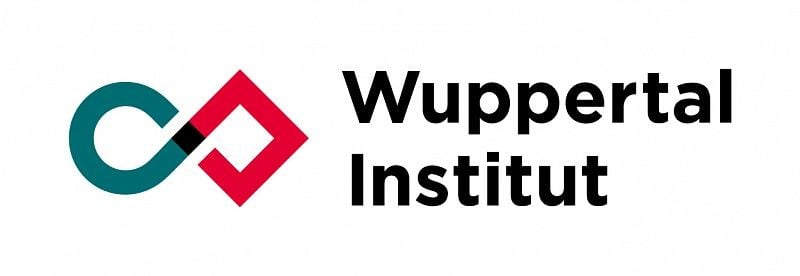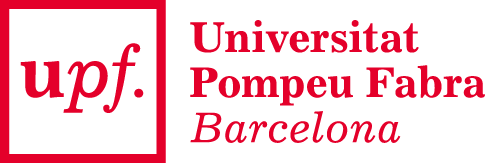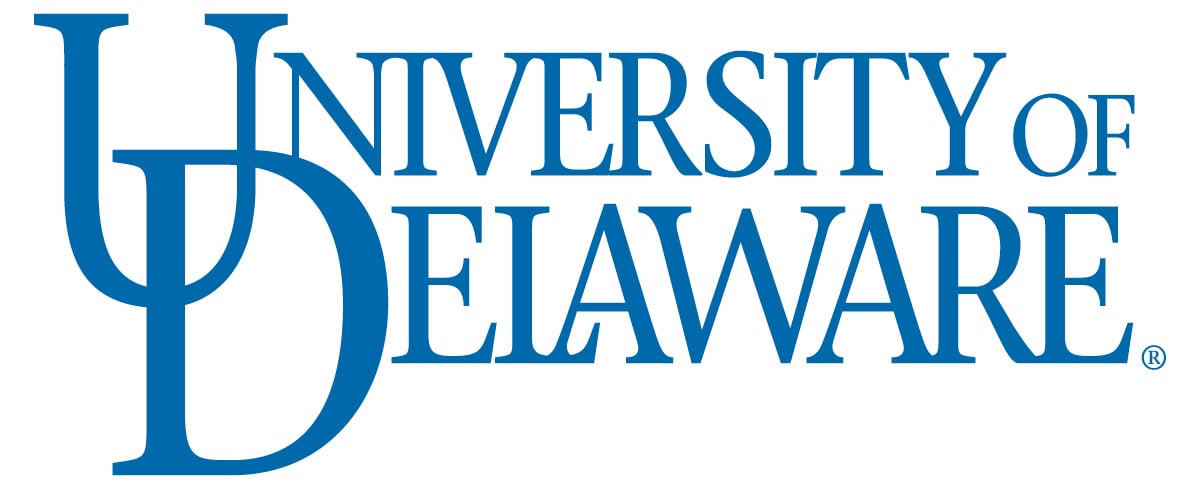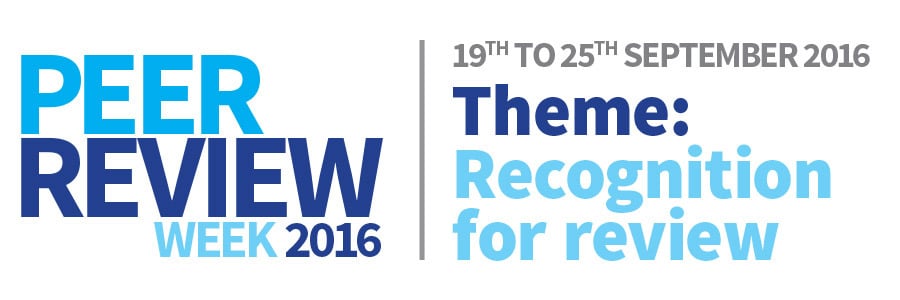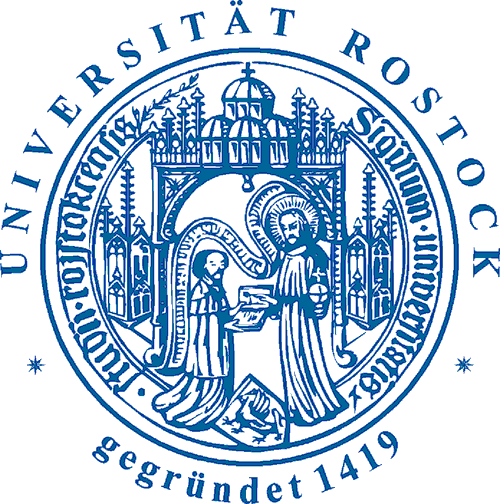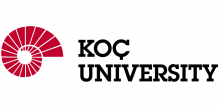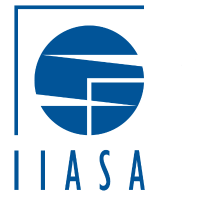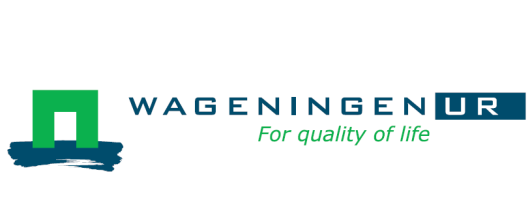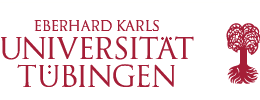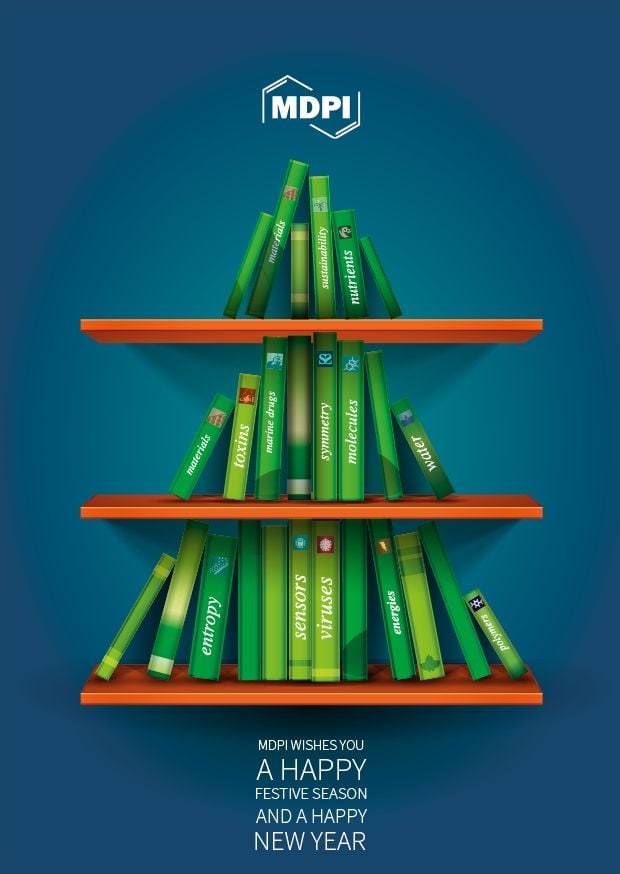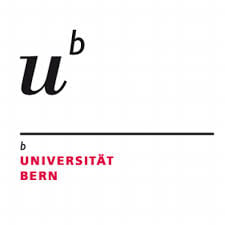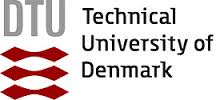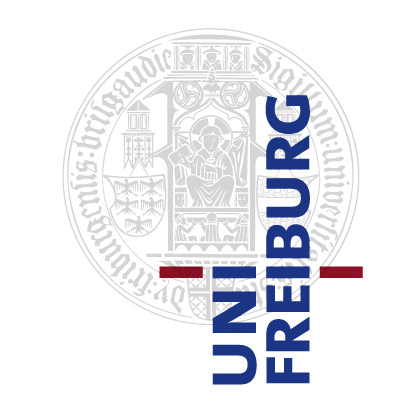
Journal Menu
► ▼ Journal Menu-
- Forests Home
- Aims & Scope
- Editorial Board
- Reviewer Board
- Topical Advisory Panel
- Instructions for Authors
- Special Issues
- Topics
- Sections & Collections
- Article Processing Charge
- Indexing & Archiving
- Editor’s Choice Articles
- Most Cited & Viewed
- Journal Statistics
- Journal History
- Journal Awards
- Conferences
- Editorial Office
Journal Browser
► ▼ Journal BrowserNeed Help?
Announcements
24 April 2024
Forests | Invitation to Read Editor’s Choice Articles Selected from Volume 15, Issues 1–3
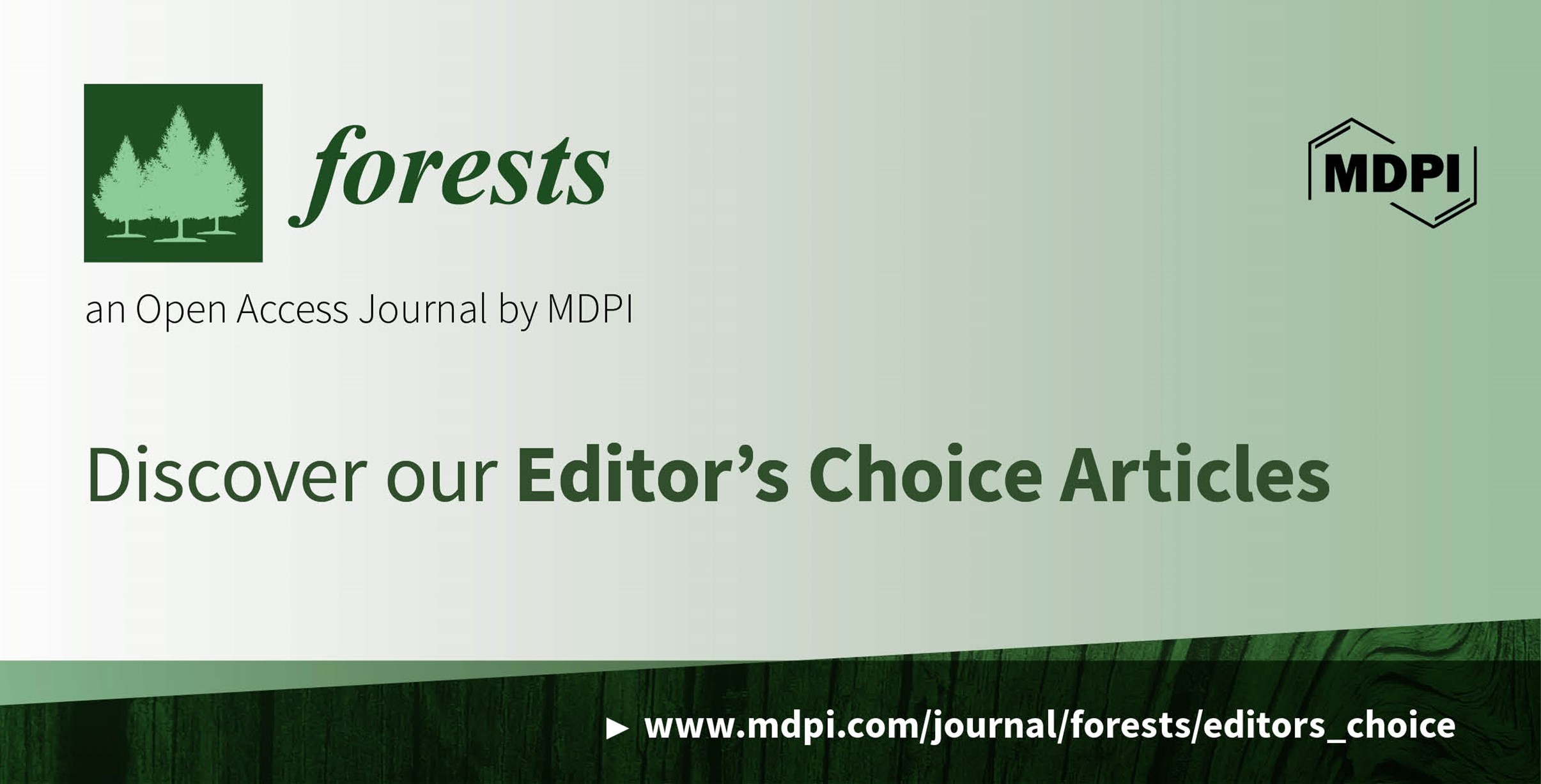
We are pleased to share the following ten Editor's Choice Articles published in Forests (ISSN: 1999-4907). These papers were selected by our Editors-in-Chief from the most notable papers published in Volume 15, Issues 1‒3. All these papers are of particular interest or importance to readers and have been well received by researchers.
1. “Effects of Climate Change on Scots Pine (Pinus sylvestris L.) Growth across Europe: Decrease of Tree-Ring Fluctuation and Amplification of Climate Stress”
by Jakub Brichta, Václav Šimůnek, Lukáš Bílek, Zdeněk Vacek, Josef Gallo, Stanisław Drozdowski, José Alfredo Bravo-Fernández, Bill Mason, Sonia Roig Gomez, Vojtěch Hájek et al.
Forests 2024, 15(1), 91; https://doi.org/10.3390/f15010091
Available online: https://www.mdpi.com/1999-4907/15/1/91
2. “Spruce Protection against Ips typographus with Anti-Attractant Blend of Tree-Based Semiochemicals: From Small Experimental Plots to Stand Scales”
by Rastislav Jakuš, Aleksei Trubin, Vivek Vikram Singh, Khodabakhsh Zabihi, Anna Jirošová, Roman Modlinger, Andrej Majdák, Nataliya Korolyova, Antonioni Acacio Campos Moliterno, Jaroslav Kašpar et al.
Forests 2024, 15(2), 356; https://doi.org/10.3390/f15020356
Available online: https://www.mdpi.com/1999-4907/15/2/356
3. “Due Diligence for Deforestation-Free Supply Chains with Copernicus Sentinel-2 Imagery and Machine Learning”
by Ivan Reading, Konstantina Bika, Toby Drakesmith, Chris McNeill, Sarah Cheesbrough, Justin Byrne and Heiko Balzter
Forests 2024, 15(4), 617; https://doi.org/10.3390/f15040617
Available online: https://www.mdpi.com/1999-4907/15/4/617
4. “Nature-Based Tourism in National and Natural Parks in Europe: A Systematic Review”
by Delia S. Donici and Diana E. Dumitras
Forests 2024, 15(4), 588; https://doi.org/10.3390/f15040588
Available online: https://www.mdpi.com/1999-4907/15/4/588
5. “Economic Profitability of Carbon Sequestration of Fine-Aroma Cacao Agroforestry Systems in Amazonas, Peru”
by Malluri Goñas, Nilton B. Rojas-Briceño, Darwin Gómez Fernández, Daniel Iliquín Trigoso, Nilton Atalaya Marin, Verónica Cajas Bravo, Jorge R. Díaz-Valderrama, Jorge L. Maicelo-Quintana and Manuel Oliva-Cruz
Forests 2024, 15(3), 500; https://doi.org/10.3390/f15030500
Available online: https://www.mdpi.com/1999-4907/15/3/500
6. “Unearthing Current Knowledge Gaps in Our Understanding of Tree Stability: Review and Bibliometric Analysis”
by Emmanuel Chukwudi Ekeoma, Mark Sterling, Nicole Metje, John Spink, Niall Farrelly and Owen Fenton
Forests 2024, 15(3), 513; https://doi.org/10.3390/f15030513
Available online: https://www.mdpi.com/1999-4907/15/3/513
7. “Characterization of Change in Tree Cover State and Condition over the Conterminous United States”
by Francis K. Dwomoh and Roger F. Auch
Forests 2024, 15(3), 470; https://doi.org/10.3390/f15030470
Available online: https://www.mdpi.com/1999-4907/15/3/470
8. “Potential Distribution Projections for Senegalia senegal (L.) Britton under Climate Change Scenarios”
by Jiaqi Fang, Jianfei Shi, Ping Zhang, Minghao Shao, Na Zhou, Yongdong Wang and Xinwen Xu
Forests 2024, 15(2), 379; https://doi.org/10.3390/f15020379
Available online: https://www.mdpi.com/1999-4907/15/2/379
9. “Driving Efficiency and Competitiveness: Trends and Innovations in ERP Systems for the Wood Industry”
by Karla Vukman, Kristina Klarić, Krešimir Greger and Ivana Perić
Forests 2024, 15(2), 230; https://doi.org/10.3390/f15020230
Available online: https://www.mdpi.com/1999-4907/15/2/230
10. “Three Censuses of a Mapped Plot in Coastal California Mixed-Evergreen and Redwood Forest”
by Gregory S. Gilbert, Sarah G. Carvill, Alexander R. Krohn and Alexander S. Jones
Forests 2024, 15(1), 164; https://doi.org/10.3390/f15010164
Available online: https://www.mdpi.com/1999-4907/15/1/164
We would like to thank all the research groups behind these exceptional papers for their contribution to Forests. We would greatly appreciate it if you would circulate this document among your colleagues or through your network.
If you want to learn more about the contributions published in Editor’s Choice Articles, please click here.
17 April 2024
Recruiting Editorial Board Members for Forests
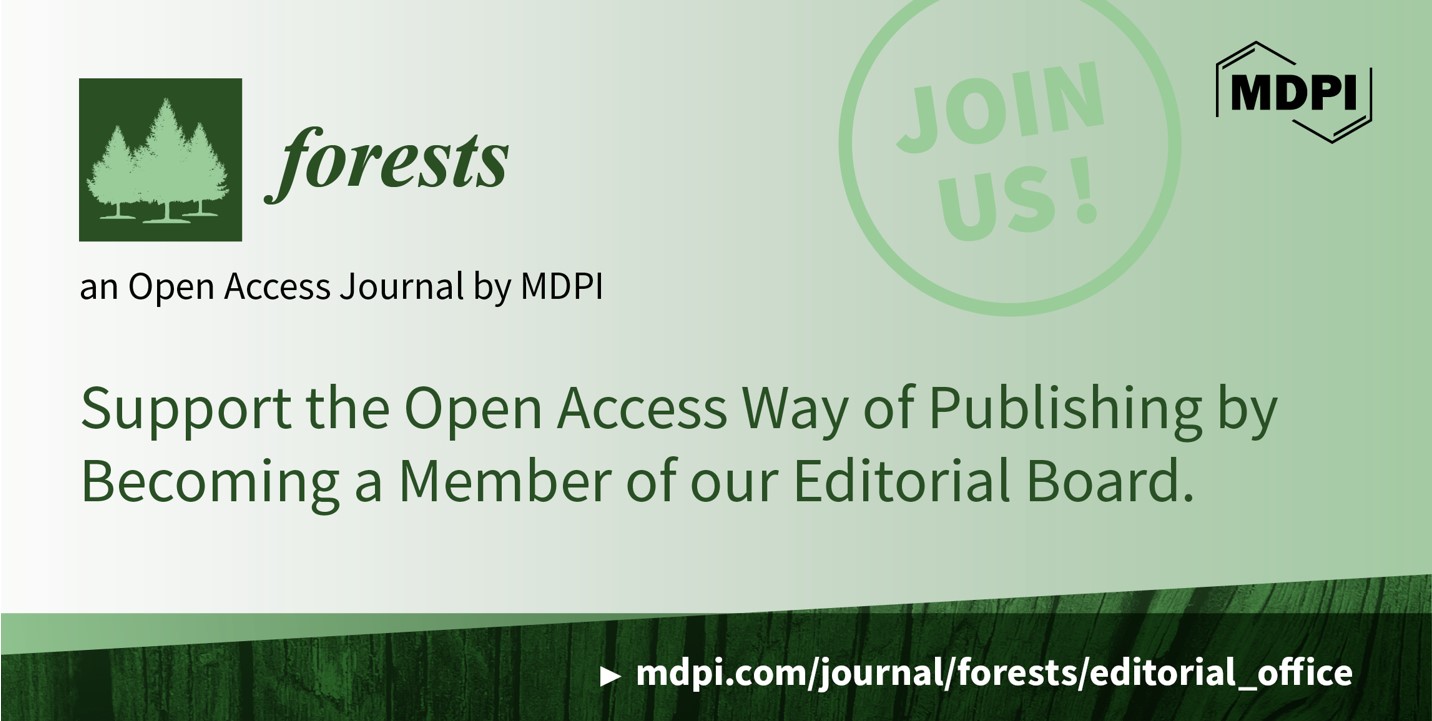
Forests (ISSN: 1999-4907) is an international, peer-reviewed, open access journal on forestry and forest ecology published monthly online by MDPI. To expand our contribution to forestry research, Forests is recruiting researchers to join our Editorial Boards of the following Sections:
- “Forest Economics, Policy, and Social Science”;
- “Forest Operations and Engineering”;
- “Natural Hazards and Risk Management”;
- “Urban Forestry”;
- “Forest Hydrology”.
The primary responsibilities of Editorial Board Members include the following:
- Pre-screening and making decisions on new submissions related to their research interests;
- Leading a Special Issue related to their research interests (or participating as co-Guest Editor in Special Issues related to their research field) when available;
- Providing input or feedback regarding journal policies;
- Helping to promote the journal among their peers or at conferences;
- Attending Board meetings to suggest journal development strategies;
- Reviewing manuscripts in their area of interest when available.
The benefits of being an Editorial Board Member include the following:
- Publication of one paper free of charge per year in Forests and potential discounts for additional papers that they invite;
- A recognition certificate as an Editorial Board Member of Forests;
- Additional sponsorships for conferences organized by Editorial Board Members;
- The opportunity to take advantage of the website or the Board to announce conferences (which Forests can sponsor) and disseminate news, position openings, or any message useful to the scientific community.
The requirements for applying to the Editorial Board Member position include the following:
- Enthusiasm for journal work and being able to assume the responsibilities required of Editorial Board Members;
- Those with experience as a Special Issue Guest Editor or reviewer will receive priority.
If you are interested in becoming an Editorial Board Member of Forests, please send your full academic CV and a short cover letter that shows your interest and enthusiasm for the position to the Forests Editorial Office. We look forward to working with you in the future.
7 April 2024
Forests | Interview with Dr. Zhichao Lou, the Committee Member of the 4th International Electronic Conference on Forests
1. Could you introduce your current research focus and provide an update on your progress?
Nowadays, my group is focused on solving the key scientific and technological problems in the development and industrialization of bamboo-based green, environment-friendly and sustainable building materials under the support of the National Key R&D Program of China (‘Research on key technology development and industrialization demonstration of high-strength bamboo-based structural materials based on innovative synergy of unit and adhesive’).
Through this project, a key technical system along with a full set of corresponding parameters for producing flattened bamboo board-based structural materials should be established, including a novel technology for saturated steam softening and floating crack-free flattening of bamboo, a novel type of environment-friendly adhesive with high wettability which is suitable for assembly, lengthening, hot-pressing and gluing of flattened bamboo boards, and the corresponding innovative bamboo lengthening and assembly methods. The environmental impact and carbon footprint analysis model and method of material creation process based on life cycle assessment will be developed to guide the extensive application of bamboo-based structural materials in green and environment-friendly buildings.
2. Have you encountered any challenges in your research? How did you overcome them? Could you share your experience?
My Ph.D. major is materials physics and chemistry, not forest engineering. The corresponding thesis is on the application research of inorganic materials in biosensors. Thus, when I began investigating bamboo processing, I was not a professional. This was the biggest challenge when I began working at Nanjing Forestry University. However, I have found that joining a professional team and receiving guidance from industry experts was a shortcut for me to overcome the challenges caused by disciplinary differences and achieve rapid improvement. Since 2018, I have been engaged in research related to bamboo processing and modification, bamboo flattening, and bamboo restructuring under the leadership of Professor Li Yanjun, a national leading talent in the field of bamboo in China. Under Professor Li's guidance, I have gradually improved my overall understanding of bamboo and wood materials.
3. Looking ahead, what do you believe will be the hot topics in the field of forest research in the next few years? Please share the topics and your reasoning.
In my opinion, bamboo processing and design of bamboo-based structural materials with the advantage of being green, environment-friendly and high-strength should be the hot topics in the field of forest research in the next few years.
As we know, bamboo has the natural carbon fixation ability. Being that they store carbon, bamboo buildings have obvious advantages and environmental benefits. Their important role in energy saving and emission reduction is increasingly noted by society. Compared with steel and concrete materials, bamboo building material has a lower carbon emission factor, so the carbon emission is low during construction, use and demolition stages. Promoting the development of bamboo structures and buildings according to local conditions is of great practical significance in reducing energy consumption and carbon emissions. However, the development of bamboo structure buildings is slow, which is due to a couple of factors: 1) Natural bamboo is difficult to be used directly as a structural material in high-rise buildings. The traditional sheet processing method greatly damaged the natural structure of bamboo, resulting in large amounts of glue, high cost, and low physical and mechanical properties; 2) The fluidity, wettability and permeability of traditional adhesives in bamboo are not good, resulting in poor bonding performance, and the extensive use of phenolic resin has adverse effects on the environment.
4. As a member of the IECF 2024 committee, could you briefly describe what kind of meeting you are hoping for?
I am looking forward to the meeting in which ground-breaking ideas from experts and young researchers in the field of forests can be shared. I hope that this meeting can provide a unique opportunity to connect with the brightest minds in the field, engage in discussions to shape new strategies and influence the future of forests.
5. With numerous conferences being organized each year, do you have any suggestions for making our conference more meaningful for scholars and students?
1) Develop professional themes; 2) strictly control the submitted abstracts, and 3) invite more well-known authoritative experts to share their research results and wisdom with everyone.
6. Could you share some of your past conference experiences? Did these conferences assist you in promoting your research results, expanding your network, finding potential collaborators, or advancing your career, etc.?
The most impressive international conference experience has been attending the SWST (Society of Wood Science and Technology) conference over the years. During these conferences, authoritative experts and renowned scholars in the field of wood science and technology from around the world were gathered. The conference set up a variety of themes and carried out various exchange activities. Everyone exchanged the latest research results during the conference, generating many meaningful research ideas.
7. What are your thoughts on the current trends and developments of open access publishing?
Open access for publishing papers can facilitate faster and wider dissemination of one's research findings. However, as an open access journal publisher, it is necessary to establish stricter standards and management in many aspects such as manuscript selection, solicitation, and review.
For more information about the 4th International Electronic Conference on Forests, please visit the following website: https://sciforum.net/event/IECF2024.
5 April 2024
Forests | Top Cited Papers with Excellent Graphical Abstracts in 2022
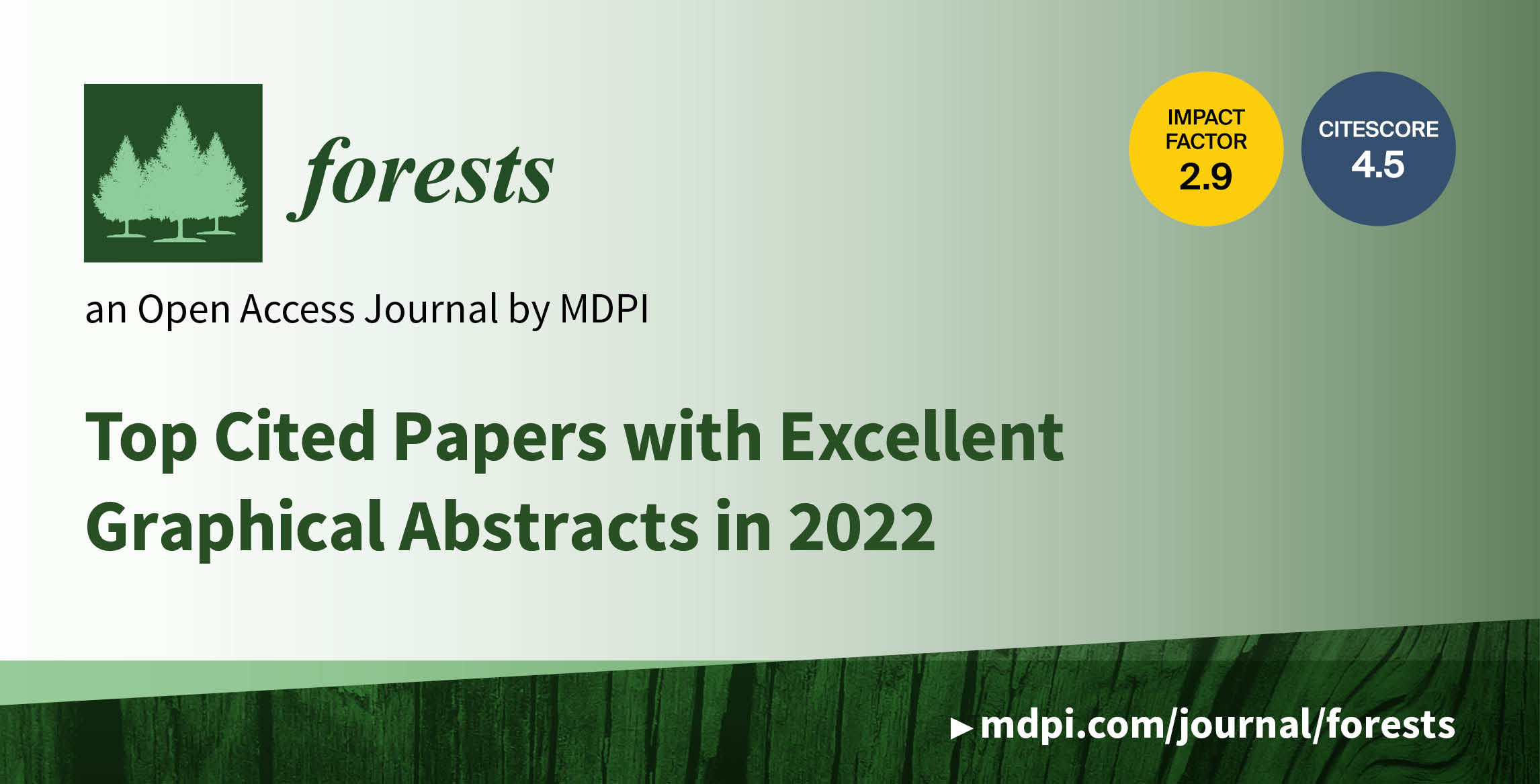
We are pleased to share the following 10 top cited papers with excellent graphical abstracts published in Forests (ISSN: 1999-4907). These papers were selected based on the highest number of citations and excellent graphical abstracts published in 2022. All of these papers are of particular interest or importance to our readers, and all have been well received by researchers. Please note that the number of downloads, abstract views and citations of articles was calculated on 6 March 2024.
1. “Twelve Years into Genomic Selection in Forest Trees: Climbing the Slope of Enlightenment of Marker Assisted Tree Breeding”
by Dario Grattapaglia
Forests 2022, 13(10), 1554; https://doi.org/10.3390/f13101554
Available online: https://www.mdpi.com/1999-4907/13/10/1554
Views: 4594; Abstract views: 3921; Citations: 21
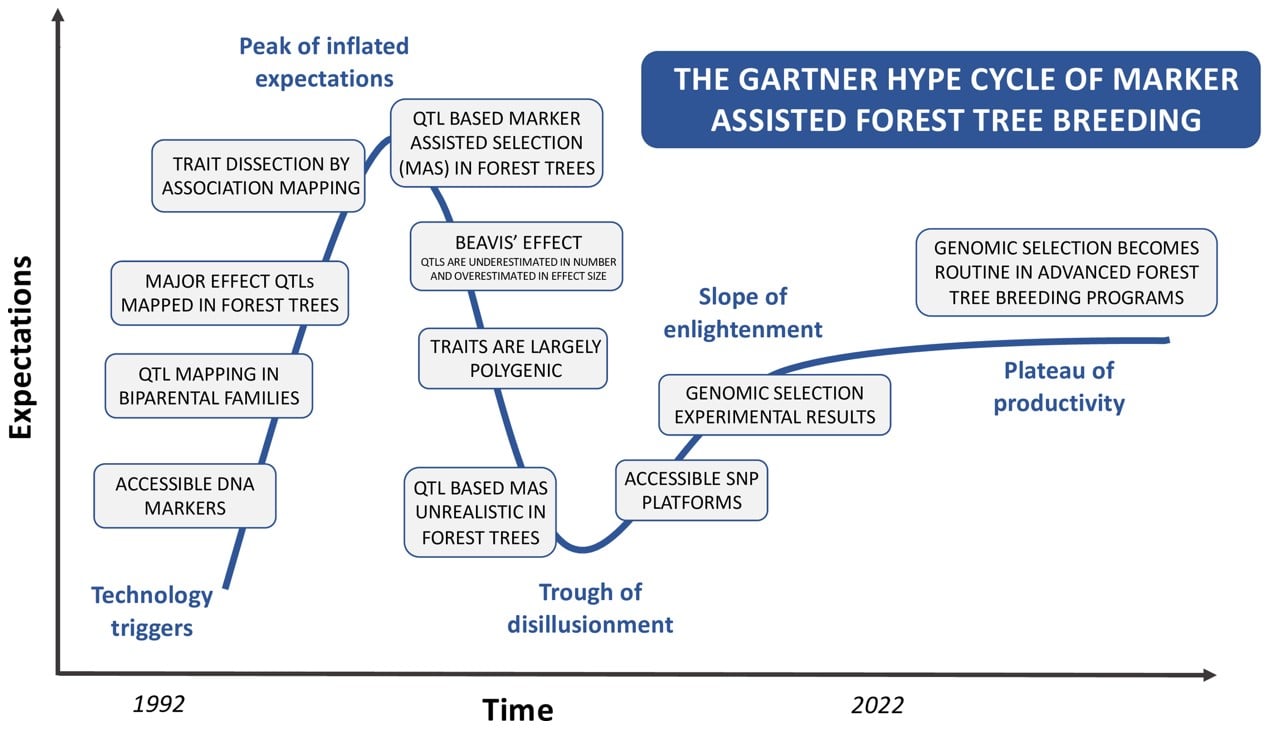
2. “Warming Responses of Leaf Morphology Are Highly Variable among Tropical Tree Species”
by Aloysie Manishimwe, Bonaventure Ntirugulirwa, Etienne Zibera, Brigitte Nyirambangutse, Myriam Mujawamariya, Mirindi E. Dusenge, Elias Bizuru, Donat Nsabimana, Johan Uddling and Göran Wallin
Forests 2022, 13(2), 219; https://doi.org/10.3390/f13020219
Available online: https://www.mdpi.com/1999-4907/13/2/219
Views: 3306; Abstract views: 2959; Citations: 11
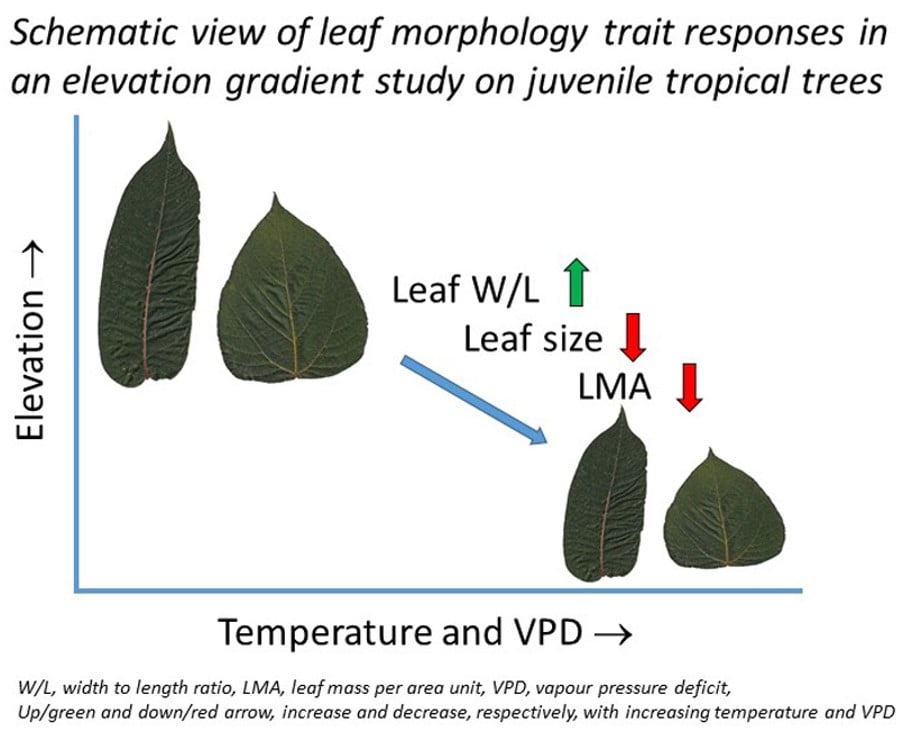
3. “Water in Wood: A Review of Current Understanding and Knowledge Gaps”
by Emil Engelund Thybring, Maria Fredriksson, Samuel L. Zelinka and Samuel V. Glass
Forests 2022, 13(12), 2051; https://doi.org/10.3390/f13122051
Available online: https://www.mdpi.com/1999-4907/13/12/2051
Views: 9211; Abstract views: 8218; Citations: 9
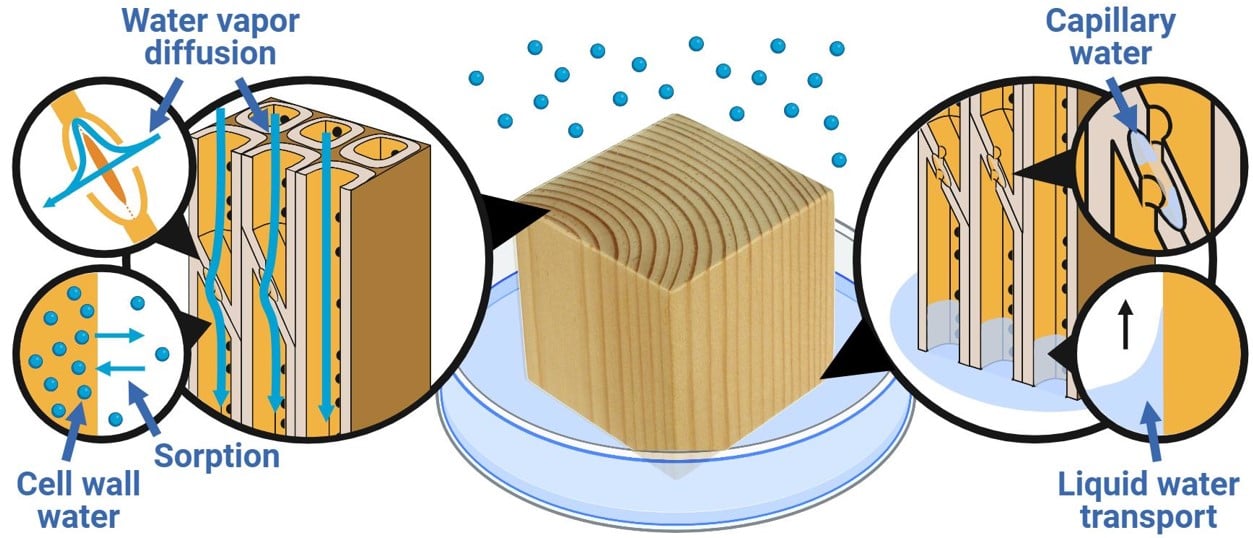
4. “Oak Decline Caused by Biotic and Abiotic Factors in Central Europe: A Case Study from the Czech Republic”
by Markéta Macháčová, Oto Nakládal, Michal Samek, Daniel Baťa, Václav Zumr and Vítězslava Pešková
Forests 2022, 13(8), 1223; https://doi.org/10.3390/f13081223
Available online: https://www.mdpi.com/1999-4907/13/8/1223
Views: 2386; Abstract views: 1959; Citations: 9
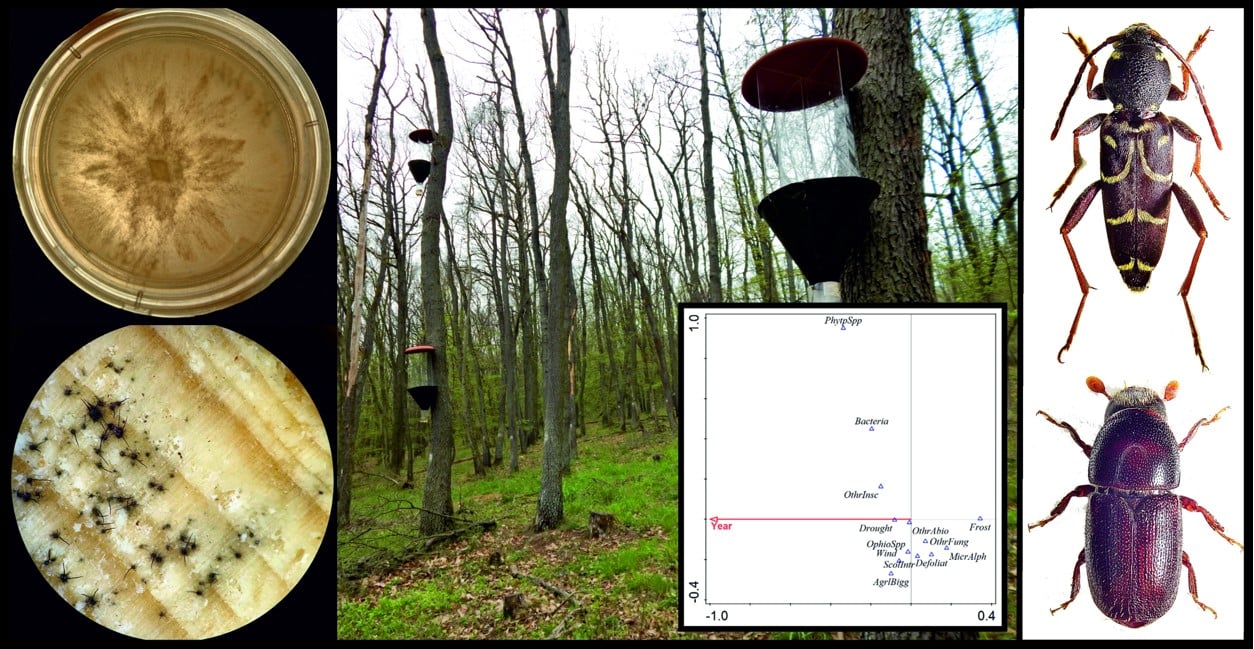
5. “Importance of Dead Wood in Virgin Forest Ecosystem Functioning in Southern Carpathians”
by Șerban Chivulescu, Diana Pitar, Bogdan Apostol, Ștefan Leca and Ovidiu Badea
Forests 2022, 13(3), 409; https://doi.org/10.3390/f13030409
Available online: https://www.mdpi.com/1999-4907/13/3/409
Views: 2241; Abstract views: 1690; Citations: 9
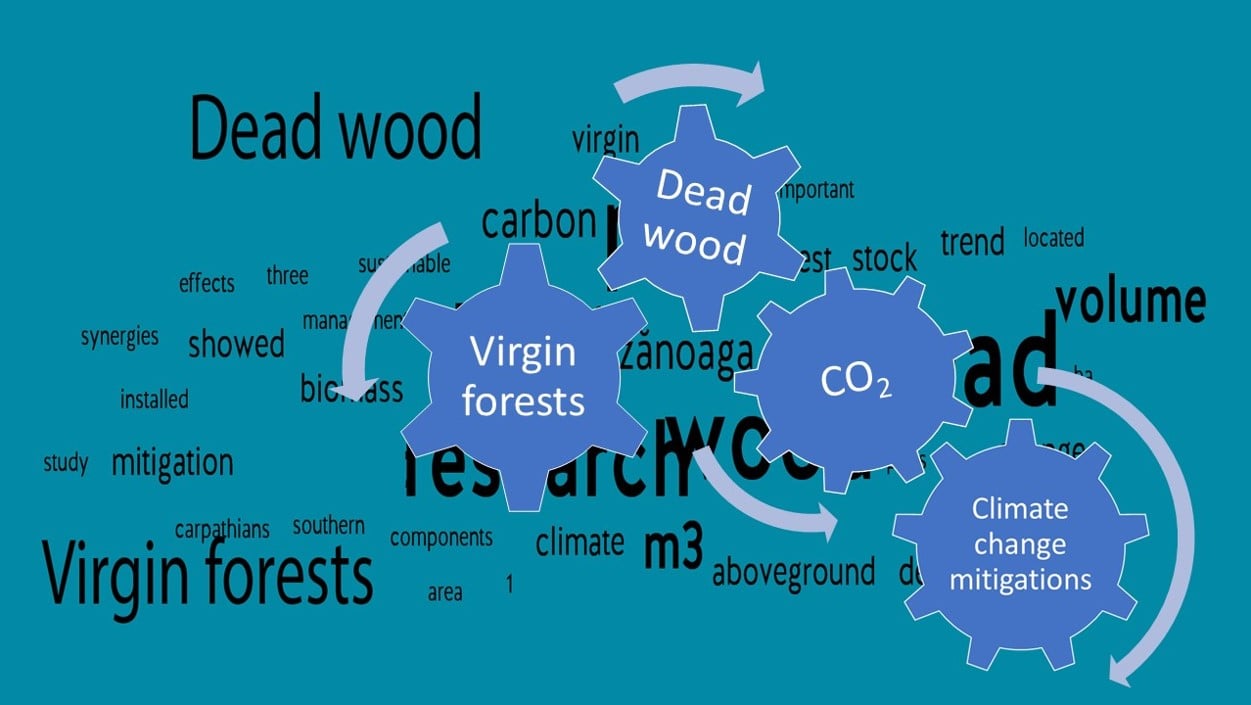
6. “Human Health and Outdoor Adventure Recreation: Perceived Health Outcomes”
by Ryan Zwart and Alan Ewert
Forests 2022, 13(6), 869; https://doi.org/10.3390/f13060869
Available online: https://www.mdpi.com/1999-4907/13/2/160
Views: 4594; Abstract views: 3921; Citations: 8
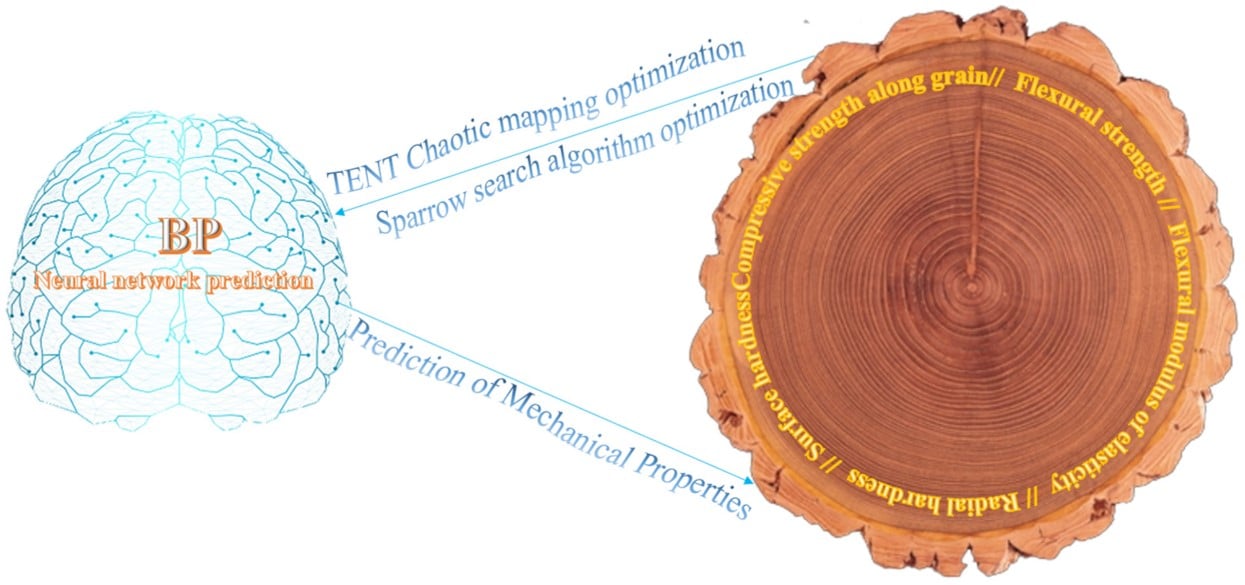
7. “The Current and Future Potential Geographical Distribution and Evolution Process of Catalpa bungei in China”
by Shengqi Jian, Tiansheng Zhu, Jiayi Wang and Denghua Yan
Forests 2022, 13(1), 96; https://doi.org/10.3390/f13010096
Available online: https://www.mdpi.com/1999-4907/13/1/96
Views: 1841; Abstract views: 1499; Citations: 8
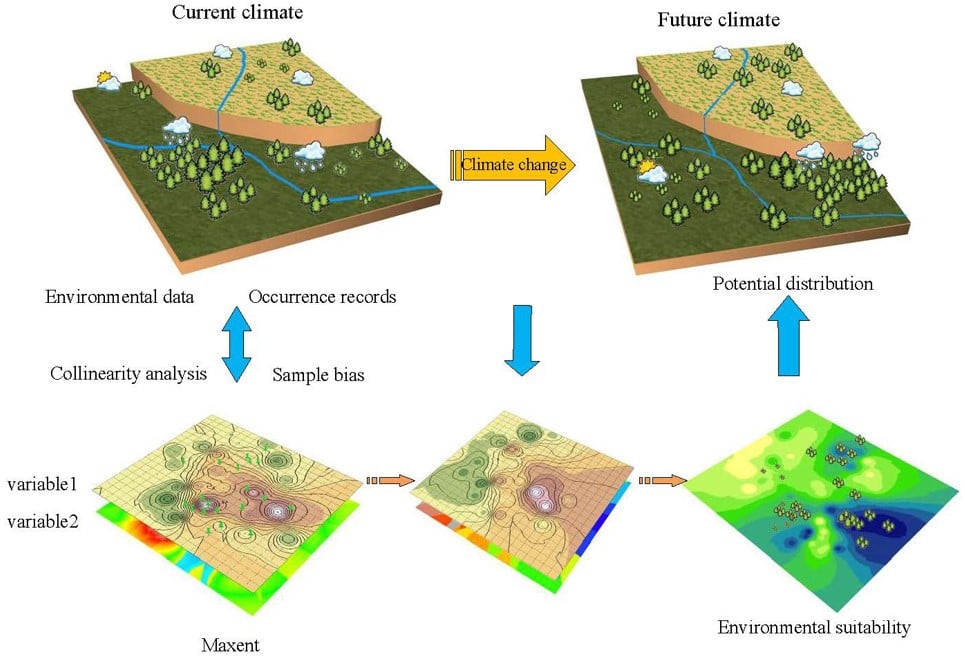
8. “n-Heptadecane-Impregnated Wood as a Potential Material for Energy-Saving Buildings”
by Ahmet Can and Jure Žigon
Forests 2022, 13(12), 2137; https://doi.org/10.3390/f13122137
Available online: https://www.mdpi.com/1999-4907/13/12/2137
Views: 1342; Abstract views: 1087; Citations: 8
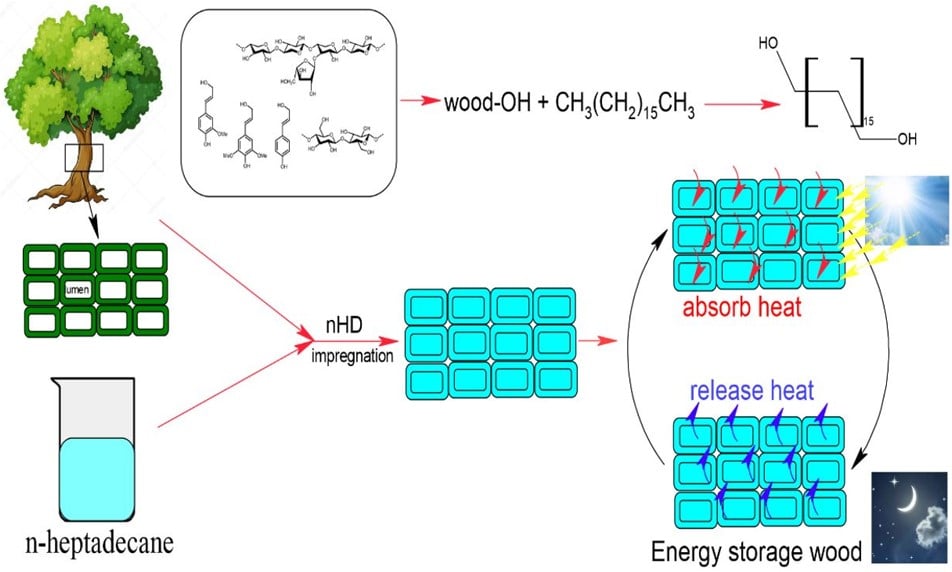
9. “Drivers of Flammability of Eucalyptus globulus Labill Leaves: Terpenes, Essential Oils, and Moisture Content”
by Fabián Guerrero, Camilo Carmona, Carla Hernández, Mario Toledo, Andrés Arriagada, Lorena Espinoza, Jan Bergmann, Lautaro Taborga, Karen Yañez, Yulián Carrasco et al.
Forests 2022, 13(6), 908; https://doi.org/10.3390/f13060908
Available online: https://www.mdpi.com/1999-4907/13/6/908
Views: 3764; Abstract views: 3281; Citations: 7
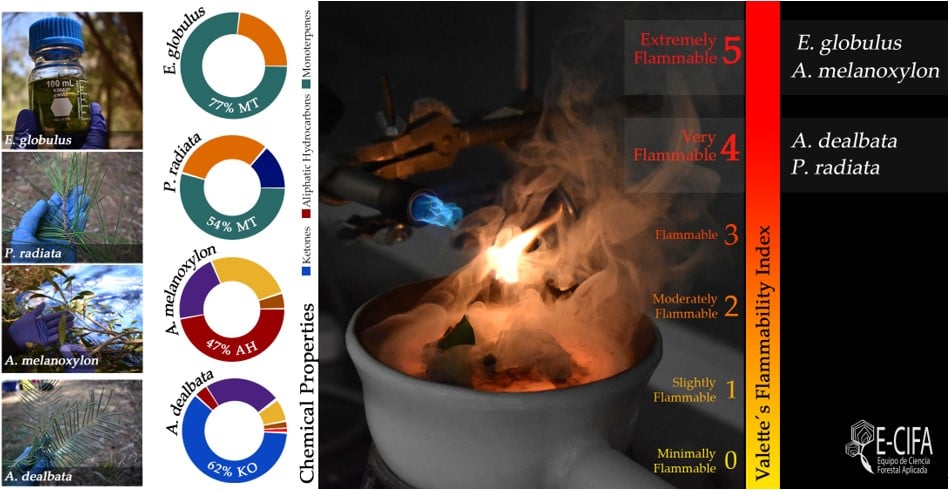
10. “Plant Diversity and Soil Nutrients in a Tropical Coastal Secondary Forest: Association Ordination and Sampling Year Differences”
by Muhammad Yaseen, Gaopan Fan, Xingcui Zhou, Wenxing Long and Guang Feng
Forests 2022, 13(3), 376; https://doi.org/10.3390/f13030376
Available online: https://www.mdpi.com/1999-4907/13/3/376
Views: 2942; Abstract views: 2194; Citations: 7
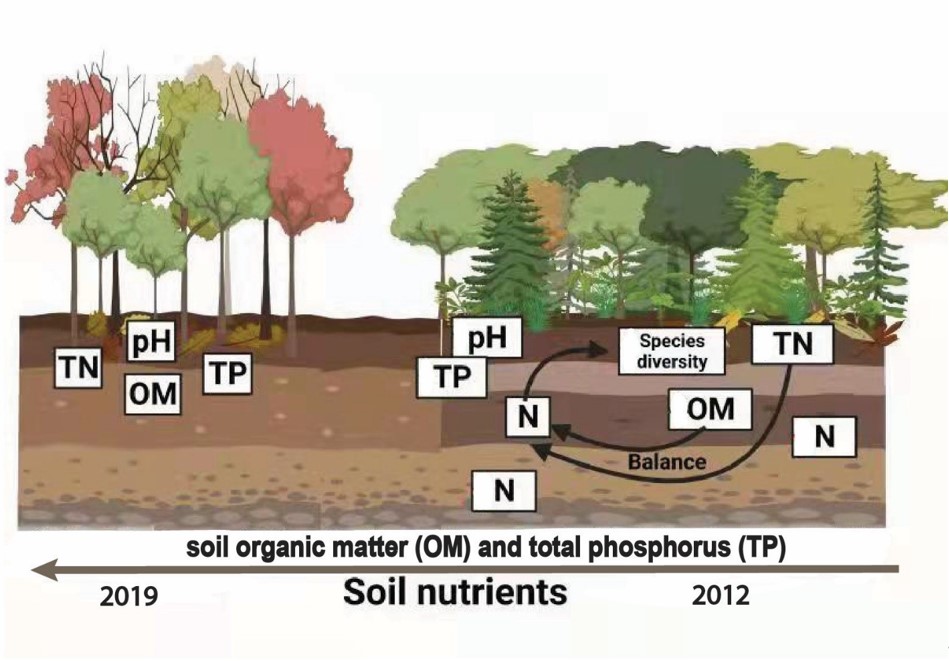
We would like to thank all the research groups behind these exceptional papers for their contributions to Forests. We would greatly appreciate it if you could circulate this document among your colleagues or through your network.
2 April 2024
Meet Us at the EGU General Assembly 2024, 14–19 April 2024, Vienna, Austria

MDPI will be attending the EGU General Assembly 2024 in Vienna, Austria, which will take place from 14 to 19 April 2024 at booth #57. The EGU General Assembly 2024 is organized by the European Geosciences Union, and this is the 22nd conference. It brings together geoscientists from all over the world to one meeting covering all disciplines of the Earth, planetary, and space sciences. The EGU 2024 aims to provide a forum where scientists, especially early-career researchers, can present their work and discuss their ideas with experts in all fields of geoscience.
The following MDPI journals will be represented:
- Remote Sensing;
- Water;
- Hydrology;
- Meteorology;
- Sustainability;
- Atmosphere;
- Climate;
- Earth;
- Land;
- Minerals;
- Geographies;
- IJGI;
- Resources;
- Gases;
- Forests;
- Oceans;
- Quaternary;
- Geotechnics;
- Mining;
- Geomatics;
- Drones;
- Geosciences;
- Nitrogen;
- Soil Systems.
If you are attending the conference, please visit our booth. Our delegates look forward to meeting you in person and answering any questions that you may have. For more information about the conference, please visit the following website: https://www.aag.org/events/aag2024/.
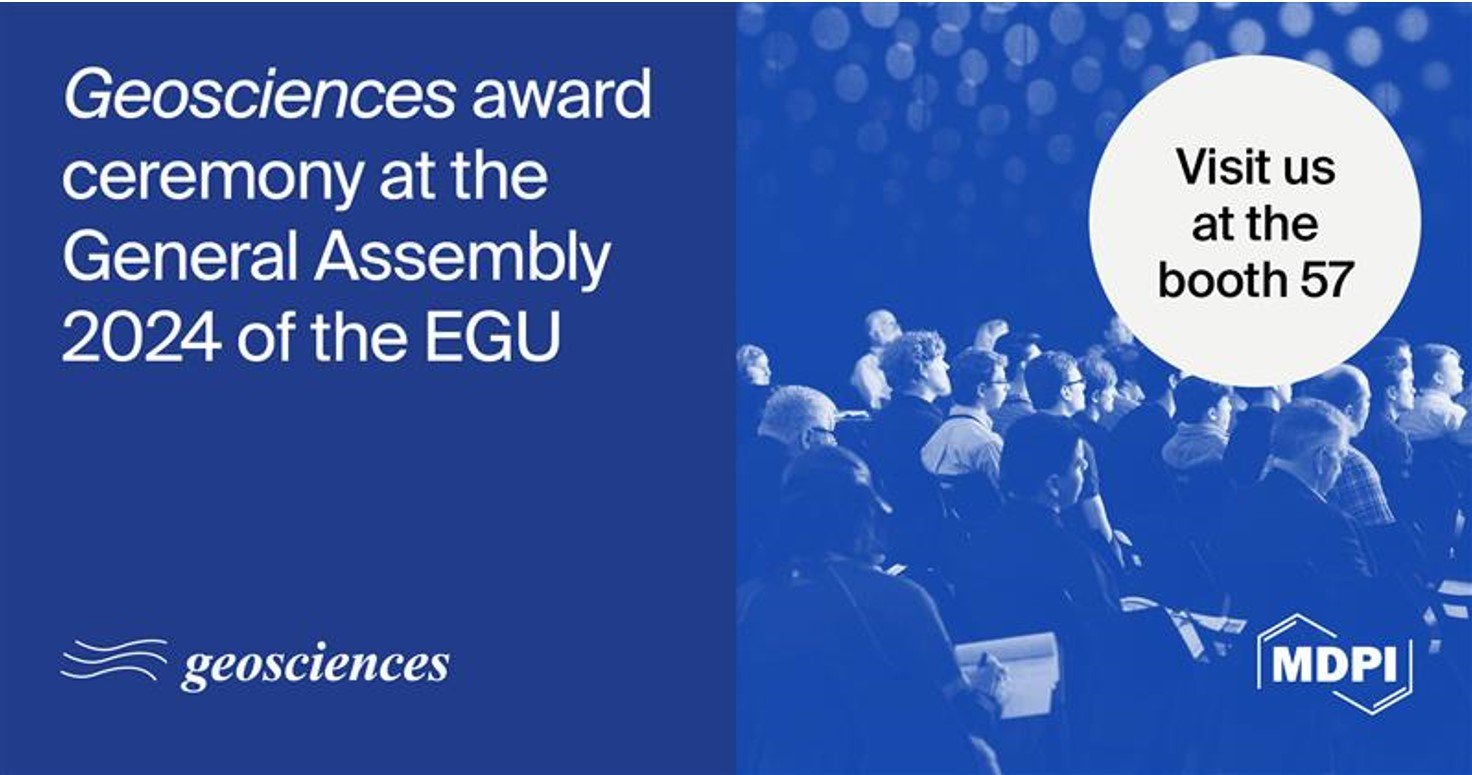
We would also like to congratulate the winners of the Geosciences 2024 Travel Award and the 2023 Outstanding Reviewer Award. Professor Olivier Lacombe, Section Editor-in-Chief of Geosciences, will present prizes on-site to Dr. Andrea Maffeis from Università di Torino, Dr. Simone Bello from University G. d’Annunzio, and Dr. Yuchen Wang from Japan Agency for Marine-Earth Science and Technology.
Join us on 16 April 2024 (17:30–17:45 CET) for the award ceremony at booth #57. If you are interested in travel support or learning about other MDPI awards, please visit our booth during the conference where our conference representatives will be available to assist you.
2 April 2024
MDPI Insights: The CEO's Letter #10 - South Korea, IWD, U2A, Japan

Welcome to the MDPI Insights: The CEO's Letter.
In these monthly letters, I will showcase two key aspects of our work at MDPI: our commitment to empowering researchers and our determination to facilitating open scientific exchange.
Opening Thoughts

Left to right: Dr. Jisuk Kang (Scientific Officer, MDPI), Stefan Tochev (CEO, MDPI), and Dr. Giulia Stefenelli (Chair of Scientific Office Board, MDPI), during media meetings at Prain Agency office in Seoul, South Korea.
Visit to Seoul, South Korea
During my recent visit to South Korea, I had the privilege of meeting various stakeholders, including representatives of government, research institutions, and academia, to understand their needs and communicate MDPI’s commitment to accessible science. Accompanied by my colleagues Dr. Giulia Stefenelli and Dr. Jisuk Kang, I engaged with the Korean scientific community, which is increasingly embracing open access (OA).
As the leading OA publisher in South Korea, MDPI is trusted by local authors and in 2023 enjoyed an approximately 30% share of the OA market. South Korea ranks sixth globally for MDPI in terms of research papers submitted and published.
MDPI and South Korea by Numbers
As at 30 March, over 76,000 MDPI articles have been authored by individuals affiliated with Korean institutions. We have over 1,800 active editorial board members (EBMs) from South Korea, with more than 880 EBMs having an H-index between 26 and 50, including 10 serving as Chief Editors.
“South Korea is the sixth-largest contributor to our total publications”
Over the past five years (2019–2023), nearly 120,000 authors affiliated with South Korean institutes have published with MDPI. Specifically in 2023, we received approximately 25,000 submissions from South Korean authors, publishing close to 13,000 articles, resulting in a rejection rate of 47.4%, which is not far below MDPI’s overall rejection rate of 56.4% in 2023.
Institutional Partnerships with South Korea
I am pleased to share that MDPI has more than 825 institutional partnerships worldwide, with 12 in South Korea, including Kyunghee University, Chung-Ang University, and Inha University, among others.

Left to right: Dr. Jisuk Kang (Scientific Officer, MDPI), Dr. Giulia Stefenelli (Chair of Scientific Office Board, MDPI), and Stefan Tochev (CEO, MDPI) fielding media questions at Prain PR Agency office in Seoul, South Korea.
Over the past three years (2021–2023), we have had some of the most prestigious academic universities ranked among the top 10 Korean institutions publishing with MDPI. Seoul National University had the highest number of publications with MDPI during those three years, publishing nearly 6,000 papers. Universities such as Korea University and Yonsei University also rank among the top 10 Korean institutions publishing with MDPI.
MDPI Hosts Seminar for Academia and Media
As the world’s leading OA publisher, MDPI is actively democratizing science. This is reflected in the seminars we hosted on 21 March to address questions about our editorial processes and ethical standards. The visit garnered media coverage, reflecting our mission to providing high-quality services and fostering open dialogue in the community.
“MDPI is actively democratizing science”
MDPI in the News

Stefan Tochev (CEO, MDPI) leading a seminar on OA and MDPI at Prain PR Agency office in Seoul, South Korea.
Media coverage generated by our visit to Seoul included the following stories:
“Open access is an unstoppable trend…it will lead the development of the knowledge ecosystem.”
I greatly appreciate the contributions of everyone who took the time to meet with us, share their stories, and hold us accountable for continuing to provide high-quality publishing services while identifying areas for improvement. I am also excited to announce that we have opened an MDPI office in Seoul and will release a press release on MDPI.com, with details, by the end April 2024. The purpose of the office is to establish a local presence to connect with and support the South Korean academic community through institutional partnerships, conferences, author workshops, stakeholder communications, and more.
Impactful Research

Featured Articles on Women’s Leadership and Healthcare
In celebration of International Women’s Day (8 March 2024), MDPI curated a collection of research articles on various topics, including women’s leadership, reproductive health, preventive healthcare, and a selection of articles from our journal Women.
Women’s Leadership
- Women Entrepreneurship and Sustainable Development: Bibliometric Analysis and Emerging Research Trends
Sustainability 2022, 14, 9160. https://doi.org/10.3390/su14159160 - Refugee Women Business Mentors: New Evidence for Women’s Empowerment
Sustainability 2022, 14, 9154. https://doi.org/10.3390/su14159154 - Women and Leadership in Higher Education: A Systematic Review
Soc. Sci. 2023, 12, 555. https://doi.org/10.3390/socsci12100555 - Understanding Needs and Potentials for Gender-Balanced Empowerment and Leadership in Climate Change Adaptation and Mitigation in Africa
Sustainability 2022, 14, 9410. https://doi.org/10.3390/su14159410 - Challenges Women Experience in Leadership Careers: An Integrative Review
Merits 2023, 3, 366-389. https://doi.org/10.3390/merits3020021
Women’s Reproductive Health
- Recreational Female Athletes’ Understanding of and Perceived Impact of the Menstrual Cycle on Physical Performance, Mood, and Sleeping Behaviour
Women 2023, 3, 445-456. https://doi.org/10.3390/women3030034 - Difficulties in Adaptation of the Mother and Newborn via Cesarean Section versus Natural Birth—A Narrative Review
Life 2023, 13, 300. https://doi.org/10.3390/life13020300 - The Main Theories on the Pathogenesis of Endometriosis
Int. J. Mol. Sci. 2023, 24, 4254. https://doi.org/10.3390/ijms24054254
Women’s Preventive Healthcare
- Insulin Metabolism in Polycystic Ovary Syndrome: Secretion, Signaling, and Clearance
Int. J. Mol. Sci. 2023, 24, 3140. https://doi.org/10.3390/ijms24043140 - Assessing Barriers Encountered by Women in Cervical Cancer Screening and Follow-Up Care in Urban Bolivia, Cochabamba
Healthcare 2022, 10, 1604. https://doi.org/10.3390/healthcare10091604 - Updates on HPV Vaccination
Diagnostics 2023, 13, 243. https://doi.org/10.3390/diagnostics13020243
Featured Articles in MDPI Journal Women
Below are a few articles from Women, our journal focused on women’s health, the social determinants of health, and the healthcare system that serves women. The aim of Women is to encourage academics to publish their experimental and theoretical results in detail, to aid reproducibility, and in an engaging style, to aid comprehensibility.
- Premenstrual Syndrome and Exercise: A Narrative Review
Women 2023, 3, 348-364. https://doi.org/10.3390/women3020026 - Increasing Awareness of the Human Papillomavirus (HPV) Vaccine for Women 18–45 Years of Age
Women 2023, 3, 365-373. https://doi.org/10.3390/women3030027 - Addressing Women’s Needs with Human Immunodeficiency Virus (HIV) and Enhancing the Visibility of Pharmacists in the Public Health Arena
Women 2022, 2, 346-352. https://doi.org/10.3390/women2040032
Inside MDPI

Championing Women’s Healthcare and Access to Healthcare Information
MDPI colleagues from our offices joined in celebrating #IWD2024. In doing so, we emphasized key missions that encompass:
- Empowering women to assume leadership and decision-making roles in both business and science.
- Helping women and girls make informed decisions about their health.
- Recruiting and developing female talent and fostering inclusive workplace environments.
“We are thrilled to recognize the accomplishments of women scientists”
I am proud to see our colleagues enthusiastically supporting the International Women’s Day call to ‘Inspire Inclusion!’ The heart-hands in the collage below symbolize our appreciation of the achievements of women researchers and the recognition of the trailblazers who have courageously made a mark on societies past and present.

We are thrilled to recognize the accomplishments of women scientists through our many MDPI awards and by highlighting success stories. As inspirational figures, female scientists are paving the way for the next generation of women aspiring to pursue careers in engineering, life sciences, computing, and various other STEM fields.
“I consider myself lucky because I work with incredibly talented women who inspire me every day.”
– Dr. Alessandra Pasut, Winner of MDPI's ‘Biology 2023 Young Investigator Award’
“It’s really important to find a supportive and enabling environment in which to do your science; it would have a big impact on you as a person and on your scientific outputs.”
– Dr. Rhea Longley, Winner of the ‘Pathogens 2023 Young Investigator Award’
Open-access publishing, in particular, allows early-career women researchers to share their work more widely, potentially attracting mentorship opportunities and collaborations. This support is crucial for career development and advancement.
Coming Together for Science

MDPI Joins United2Act in Collective Fight to Stop Paper Mills
In my February 2024 CEO Letter, I highlighted some of our recent initiatives aimed at bolstering our commitment to research integrity, including joining the STM Integrity Hub and expanding our Research Integrity and Publication Ethics team (RIPE). Continuing our efforts in coming together for science, I am pleased to share our participation in the United2Act initiative.
The text below is taken from our official announcement:
United2Act represents an international group of stakeholders in the publishing industry committed to addressing the collective challenge posed to research integrity by paper mills.
Scientists and academic publishers have increasingly noted the alarming proliferation of paper mills, recognized as fraudulent entities seeking to manipulate the publication process for financial profit. These entities engage in fraudulent practices such as falsifying or fabricating data, selling co-authorship of fake papers, manipulating peer review, and including inappropriate citations. These actions pose a significant threat to the integrity of the scholarly record, prompting widespread concern among those involved in the academic community.
MDPI has been actively contributing to combat the undermining of the scientific record. Our editors employ a set of tools to detect potential ethical breaches within a manuscript and to tackle the issue of fake papers.
United2Act’s consensus statement is the outcome of a virtual summit held in May 2023. It involved the participation of research bodies, publishers, researchers/sleuths, universities, and publishing infrastructure from 15 countries and resulted in a Consensus Statement outlining five key areas of action for all stakeholders:
- Education and awareness
- Improve post-publication corrections
- Facilitate and organise research on paper mills
- Enable the development of trust markers
- Facilitate dialogue between stakeholders
MDPI is committed to promoting transparency and integrity in scholarly publishing and is continuing to work closely with the scientific community toward this goal.
Closing Thoughts

Left to right: Ryo Hirayama (Marketing Specialist, MDPI), Takashi Sasabe (Marketing Specialist, MDPI), Dr. Giulia Stefenelli (Chair of Scientific Office Board, MDPI), Dr. Izumi Yamamoto (Marketing Manager, MDPI), and Stefan Tochev (CEO, MDPI), at MDPI’s office in Tokyo, Japan.
Visit to Tokyo and Kyoto, Japan
In March, I had the opportunity to visit our Tokyo office and engage with stakeholders in Tokyo and Kyoto. During the visit, I also recorded a video message to welcome Japanese scholars working with MDPI and to highlight our operations in Japan.
We held meetings with Editors-in-Chief, librarians, scholars, and external consultants to gather feedback on our efforts to enhance our reputation and explore additional steps we can take in that direction. Japan's rich cultural heritage, characterized by tradition, respect, and formality, provided valuable insights into meeting the publishing needs specific to Japan.
Japan’s Open Access statistics
Over the years, we have seen a shift from subscription-only to gold OA publishing in Japan, despite the lack of an official mandate. Here are some statistics:
- 2012: 68% of articles were subscription-only, 6% were green Open Access, and 8% were gold Open Access.
- 2016: 55% of articles were subscription-only, 6% were green Open Access, and 20% were gold Open Access.
- 2022: 43% of articles were subscription-only, 7% were green Open Access, and 39% were gold Open Access.
To learn more about the history of OA in Japan as well as about future trends, please read this blog post.
“Japan is the ninth-largest contributor to our total publications”

Left to right: Stefan Tochev (CEO, MDPI), Dr. Izumi Yamamoto (Marketing Manager, MDPI), and Dr. Giulia Stefenelli (Chair of Scientific Office Board, MDPI) visiting Kyoto University in Kyoto, Japan.
MDPI and Japan by Numbers
As at 1 April, over 50,000 MDPI articles have been authored by scholars affiliated with Japanese institutions, making the country the ninth-largest contributor to our total publications. Over the past three years (2020–2023), nearly 90,000 authors affiliated with Japanese institutes have published with MDPI, and we have collaborated with over 4,600 Guest Editors from Japan.
In 2023, we published over 8,200 papers from authors associated with Japanese institutions. MDPI collaborates with 41 institutional partnerships in Japan, including the University of Tokyo, Hokkaido University, and Nagoya University. We have over 2,100 active EBMs from Japan, more than 1,050 EBMs having an H-index between 26 and 50, including 13 serving as Editors-in-Chief.
General Feedback – a side note
A general takeaway from our discussions with stakeholders from around the world is that negative perceptions of MDPI often stem from misinformation, misconceptions, or misunderstandings about MDPI and our practices. While we acknowledge our mistakes and work diligently to address them, maintaining a strong editorial procedure and robust peer-review process, I find that educating stakeholders about our how we do what we do and our ongoing improvements tends to help shift opinions.
That said, we recognize the importance of addressing individual concerns. We take feedback seriously and are continuously working to get better while not compromising the core principles that millions of authors appreciate about MDPI.
Chief Executive Officer
MDPI AG
14 March 2024
Prof. Dr. Giacomo Alessandro Gerosa Appointed Editor-in-Chief of Forests

We are pleased to announce that Prof. Dr. Giacomo Alessandro Gerosa has been appointed Editor-in-Chief of our journal Forests (ISSN: 1999-4907). With an extensive background in scientific research and publishing, he brings a wealth of knowledge and expertise to this role.
The following is an interview with Prof. Dr. Giacomo Alessandro Gerosa, who shared his academic background, his involvement with Forests, and his vision for the journal:
1. Could you please tell us a little bit about yourself and your academic background and what are your current interests?
I received an M.Sc. in environmental sciences and then a Ph.D. in agricultural ecology with a research focus on ozone fluxes in agricultural and forest ecosystems. After the Ph.D., I worked for 15 years as a researcher at the Università Cattolica del Sacro Cuore, Italy, dealing with ecophysiology and the effects of air pollutants on plants. Once employed at the Italian National Scientific Habilitation as a professor of ecology, agricultural chemistry, and physics of the earth system, I was appointed associate professor of the latter subject by the Catholic University of Brescia, Italy. Then, following the second habilitation as full professor, I was promoted to my current position as a full professor of physics of the earth system, and was in charge of teaching micrometeorology, atmospheric physics, and ecology.
Even though my academic career may seem quite heretical for a forest scientist, I have worked with forests and forest trees. At the beginning, my research was aimed at studying the effects of air pollution on single forest trees, by means of fumigations and experiments in a controlled environment. Then, my interests turned to nature and forest ecosystems as a whole, particularly to monitor their matter exchange with the atmosphere. Measurements were taken in the Mediterranean holm oak forests, Mediterranean shrub maquis, Alpine larix forests, oak-hornbeam plain forests, both in Italy and in Europe, as well as in poplar plantations. I made significant contributions with these measurements and analyses to different national and European forest monitoring programs.
My current research interests are the detailed characterization of the exchange processes of matter and energy between the atmosphere and ecosystems, with particular regards to the forests, both from an experimental and a modelist perspective. My current field work consists of the installation of micrometeorological towers in forest ecosystems to measure the vertical fluxes of many matter compounds, relating them with climate, plant, and soil parameters. My collaborators and I manage an ICOS (Integrated Carbon Observation System)-associated forest site in Northern Italy, where fluxes of carbon dioxide, water, ozone, nitrogen oxides, and particles are continuously measured. Our effort is to obtain as long a time series of measurements as possible in order to assess the interannual variation of fluxes and to calibrate models. An 11-year long series is already available for the ozone, water, and carbon dioxide.
2. Which research topics do you think will be of particular interest to the research community in the coming years?
My answer is influenced by my interests. However, I think that the assessment of the combined effects of climate change and air pollution on forest ecosystems will be of paramount importance in the future, along with the studies of the best adaptation strategies. This could be addressed with experimental research in the field or in a controlled environment and by developing coupled land–atmosphere models as mechanistically as possible. The dynamics of different carbon sinks and sources in forests should be fully elucidated, along with their interactions with nutrient cycles such as nitrogen. Projections about the future are necessary, and forest scientists and ecologists will need to interact much more closely with atmospheric scientists in the near future. The spread of the IoT (Internet of Things) will allow for the more extensive, dense, and economical monitoring of forest ecosystems, and the same applies to UAV and satellite measurements. Interdisciplinarity could be a good strategy to push the limits of knowledge in forestry research.
3. As the Editor-in-Chief, what are your thoughts on the journal Forests, and what expectations do you have for the future?
The journal Forests has significantly increased its impact factor in recent years and has acquired a good reputation in the forest-related research community. Currently, it is ranked Q1 in forestry research. It is important to maintain and enhance this reputation in the future through the promotion and selection of the most innovative and high-quality research, thus increasing the number of external citations per article.
4. In your opinion, what can authors expect when they submit to Forests?
Authors can expect fair and rigorous reviews of their work, along with a rapid evaluation process. In my opinion, these are the benefits of this journal. Moreover, they have the opportunity to publish in an open-access journal of good reputation and IF.
We wish Prof. Dr. Giacomo Alessandro Gerosa every success in his new position as the Editor-in-Chief, and we greatly look forward to his contributions.
14 March 2024
Prof. Dr. Lei Deng Appointed Section Editor-in-Chief of Section “Forest Soil” in Forests

We are pleased to announce that Prof. Dr. Lei Deng, a professor at the Institute of Soil and Water Conservation, Chinese Academy of Sciences, China, has been appointed Section Editor-in-Chief of the Section “Forest Soil” in Forests (ISSN: 1999-4907).
The following is a short Q&A with Prof. Dr. Lei Deng, who shared his vision for the journal with us, as well as his views of the research area and open access publishing:
1. Can you please give a brief introduction of yourself to the readers?
I am mainly focused on the effects of vegetation restoration on soil carbon budgets. I have been conducting research in this field for 15 years. During this process, I established the evaluation method of the carbon sequestration benefit of China’s “Grain for Green” project and predicted the carbon sequestration potential of the project. At the same time, I explored the dynamic evolution process of soil carbon sequestration and its stabilization time following vegetation restoration and conducted research on the driving mechanism of soil carbon sequestration by plants, soil, and microorganisms. I have achieved a series of research results. At present, I have published more than 100 SCI-indexed papers in PNAS, Global Change Biology, Soil Biology & Biochemistry and other journals.
2. What attracted you to scientific editing for Forests?
Forestry research has been booming in recent years, especially in China, where the number, depth, and influence of innovative achievements are increasing. The Forests journal is a good carrier for solving important frontier problems in forestry research. I am delighted to have this opportunity to contribute to its development. I am full of hope and enthusiasm for its prospects and firmly believe that Forests can become an open-source archive of world-class academic achievements, a highly trusted source of innovative information and technology, and a new platform for academic exchange and knowledge dissemination in forests and related disciplines around the world.
3. Which research topics do you think will be of particular interest to the research community in the coming years?
Global climate change and human activities have always been important factors affecting the development of forest health, so in the next few years, I think the research in the field of forestry research will still be inseparable from these two aspects. Specifically, the impacts of land use change, forest management, climate change, N subsidence, and even various disasters and forest protection on forest structure and function will remain the focus of forestry research. In addition, the biological and abiotic driving mechanisms of these changes should be analyzed in detail.
4. What advice would you offer to a new editor of a journal?
I have three pieces of advice for new editors. First, adhere to lifelong learning and improve your knowledge reserve and skill level. Second, actively participate in academic exchanges and other social welfare activities to improve your comprehensive service capabilities and industry influence. Third is to undertake the due responsibilities of the Editorial Board, strictly regarding manuscripts, and put forward good suggestions for the development of the journal.
5. Forests is an open access journal. How do you think open access impacts authors?
Open access is conducive to the dissemination of papers and can result in more people seeing the papers published. I think it is a great business model.
We wish him every success in his new position, and we look forward to his contributions to the journal.
4 March 2024
MDPI Insights: The CEO's Letter #9 - Romania, Research Integrity, Viruses

Welcome to the MDPI Insights: The CEO's Letter.
In these monthly letters, I will showcase two key aspects of our work at MDPI: our commitment to empowering researchers and our determination to facilitating open scientific exchange.
Opening Thoughts

Reka Kovacs (Deputy Office Manager, MDPI), Stefan Tochev (CEO, MDPI), and Sandra Ana Spatariu (Office Manager, MDPI) at the MDPI office in Cluj, Romania.
MDPI’s Impact on Romania
In February, I visited our office in Cluj, Romania. I worked closely with our senior office managers and various teams, including the departments of training, marketing and conferences, as well as our journal relationship specialists, reviewing our service to the local scholarly community. During the visit, I also met with representatives from Babes-Bolyai University and the Technical University of Cluj-Napoca. Our multifunctional Romanian office plays an important role in supporting our collaborations with the local market as well as helping to meet MDPI’s overall business needs.

Feedback and strategy meeting with a group of MDPI’s Journal Relationship Specialists at the MDPI office in Cluj, Romania.
With 22,436 articles, Romania ranks as a top 20 contributing country to MDPI’s total number of papers published as at 28 February 2024. This highlights the importance of our collaboration with Romanian-affiliated authors and the growing opportunity to support their publishing needs. MDPI is one of the few academic publishers with a significant presence in Romania, boasting over 360 colleagues across our offices in Bucharest and Cluj. We are also proud to hire colleagues from local institutions to launch their careers within publishing.
Romania ranks as a top 20 contributing country.
The Numbers: 2019–2023
MDPI has seen a healthy increase in submissions from Romanian authors over the past three years, from 8,439 in 2021 to 11,866 by end of 2023, with most submissions going to journals such as Sustainability, Medicina, Diagnostics, IJMS, Applied Sciences, and JCM. From 2019 to 2023, MDPI published articles from 32,145 authors affiliated with Romanian institutions. Over those years, we have worked with Romanian Guest Editors on nearly 3,000 occasions to support their Special Issue and Topical collections.
With more than 300 Editorial Board Members from Romania, 34 appear on the board of Mathematics, 27 on Materials, 19 on Polymers, 18 on Coatings, and 16 on Molecules, while three serve as Section Editors-in-Chief (SEiC) on our journals Coatings (3.4 IF, 4.6 Citescore), Magnetochemistry (2.7 IF, 3.5 Citescore), and Chemosensors (4.2 IF, 3.9 Citescore).
Institutional Open Access Programs
Our commitment to working with institutions is evident in Romania, where we have established eight Institutional Open Access Programs (IOAP) with esteemed institutions such as the University of Bucharest, the University of Medicine and Pharmacy Cluj-Napoca, and most recently the National Institute for Laser, Plasma and Radiation Physics.
Our growth and presence in Romania are a true testament.
We also have IOAP agreements with Babes-Bolyai University and the Technical University of Cluj-Napoca, where I had the opportunity to meet senior stakeholders during my visit. Below are a few photos capturing our meeting with Prof. Radu Silaghi-Dumitrescu (Head of Faculty of Chemistry, Babes-Bolyai University) at the MDPI office in Cluj, Romania, along with a photo from our meeting with Vice Deans Nicoleta Cobarzan, Nicoleta Ilies, and Hoda Gavril, from the faculty of Civil Engineering at the Technical University of Cluj, Romania.


Our growth and presence in Romania are a true testament to the service we provide to the scholarly community and the relationships we foster in that region. We look forward to continuing to support Romanian scholars and institutions by providing a valuable and trusted experience with MDPI, the leader in open access publishing.
Impactful Research

MDPI Joins the STM Integrity Hub
MDPI has long been a supporter and partner of STM, with our involvement ranging from sponsoring and attending events to helping organize event programs. By joining the STM Integrity Hub, we aim to further our commitment to STM initiatives aimed at safeguarding the integrity of science.
“We are pleased to welcome MDPI as the 35th organisation participating in the Hub. This expansion is critical, as every new member enhances our capacity to prevent fraudulent submissions from entering the academic record.”
Joris van Rossum, Director of Research Integrity, STM
MDPI operates in full alignment with STM Integrity Hub's values of shared data and experiences. We strongly believe in collaboration and open exchange for the purposes of creating a holistic approach to support research integrity at MDPI itself and across the entire academic publishing industry. The Integrity Hub is an excellent example of how publishers can come together to jointly address industry-wide challenges related to research integrity, such as manuscripts that breach research integrity standards and paper-mills.
I look forward to our Research Integrity and Publication Ethics Team (RIPE) team immersing themselves in this initiative, exchanging information, best practices, and tools for the benefit of the entire scholarly ecosystem. We believe that ethical publishing standards should be implemented across the board, and we aim to be rigorous in our approach, addressing research integrity issues and improving the impact of published research.
Inside MDPI

MDPI Expands Research Integrity and Publication Ethics Team (RIPE)
In addition to external collaborations and joint initiatives aimed at further strengthening our commitment to research integrity, we are also enhancing our internal efforts. This includes improving our processes and guidelines and expanding our teams and departments to ensure quality assurance throughout our publishing process.
We are pleased to announce the expansion of our Research Integrity and Publication Ethics Team (RIPE) at MDPI. The RIPE team has recently welcomed new colleagues, each bringing unique skills and a personal commitment to prioritize ethical considerations in all our work.
The demand for research integrity and high ethical standards in academic publishing is steadily rising across our industry. Our expanded RIPE team will work to enhance and align our practices with industry best practices, ensuring excellence in research integrity and publication ethics.

Stefan Tochev (CEO, MDPI) introduces Dr. Tim Tait-Jamieson (Research Integrity Lead, MDPI) for his presentation on MDPI’s Retraction and Approval Process to a group of Journal Relationship Specialists at the MDPI office in Cluj, Romania: “The demand for research integrity and publication ethics is steadily rising across our industry.”
Introducing our Research Integrity and Publication Ethics Team
Led by Dr. Tim Tait-Jamieson (Research Integrity Lead), the RIPE team comprises Dr. Ivana Resanovic (Research Integrity Manager), Dr. Lavinia Rogojina (Research Integrity Manager), Ms. Diana Apodaritei (Research Integrity Specialist), Dr. Zoltan Mihaly (Research Integrity Specialist), Mr. Aleksandar Đukić (Research Integrity Specialist), Ms. Ana Stankovic (Research Integrity Specialist), and Ms. Anna Pena (Publication Ethics Assistant).
Please click here to access everything that you need to know about MDPI’s Research and Publication Ethics.
With this span of complementary roles, the RIPE team collaborates directly with journal editorial teams and works closely with various departments, including our Scientific Office Board and our Journal Relationship Specialists. The team’s primary objectives are to help prevent issues regarding research integrity and publication ethics during peer review, uphold MDPI’s ethics policies, adhere to industry standards, and resolve publication ethics and research integrity issues and complaints.
Quality Updates to Special Issues Oversight
At MDPI, we are committed to reviewing policies pertaining to the quality of research. In this blog post, Shaheena Patel (Communications Associate, MDPI), outlines two recent updates to MDPI journal processes. These updates pertain to Special Issue (SI) quality guidelines, in line with criteria provided by COPE and DOAJ. Alongside the SI updates, details regarding the new minor corrections policy introduced in 2024 are provided in the blog.
The two updates we implemented include greater oversight and the verification of Guest Editor credentials. These guidelines require that Editors-in-Chief (EiCs) and Editorial Board Members (EBMs) take responsibility for overseeing SIs.
PS. Thank you, James Butcher, for featuring this up in your 67th issue of the Journalogy newsletter.
Read more:
Coming Together for Science

Viruses 2024 – A World of Viruses
I am pleased to share the success of our MDPI conference Viruses 2024 – A World of Viruses, held 14-16 February, in Barcelona. With 240 registrations, this event brought together top scientists, researchers, and industry experts from 40 countries to share their findings on the latest developments in viral pathogenesis and immune responses.
Attendees gathered for the 5th edition of the Viruses’ conference, where we hosted influential keynote speeches from Nobel Prize laureate Dr. Charles M. Rice and ‘Distinguished Senior Virologist’ Prof. Luis Enjuanes, along with 14 invited speakers, 47 selected speakers, and nine flash poster presenters, to discuss the most significant issues in virology today.
Recap on the #Viruses2024 Conference
Take a look at the key moments from MDPI’s Viruses event and please join us in commemorating a gathering for global knowledge and cooperation. A heartfelt thank-you to all attendees; their passion and engagement played a crucial role in making this event an engaging success!
Below are calls to action from the keynote speakers encouraging collaboration and communication:
“There’s never been a better time than now to really take the power that we have both in terms of basic research and also in biotech and pharma to develop antiviral agents.” - Dr. Charles M. Rice, The Rockefeller University, New York, USA
“The collaboration between labs is absolutely essential. Improving initial detection and improving communication is a must for all of us working in science.” - Prof. Dr. Luis Enjuanes, National Center of Biotechnology (CNB-CSIC), Madrid, Spain

Our thanks go to our sponsors and partnering societies, our Viruses journal and editorial team, our Barcelona colleagues, and the social media, conference and other MDPI teams for making this event a memorable occasion. View the event gallery here.
Upcoming In-Person Event

24–26 April, 2024
4th MMCS – Harnessing the Power of New Drug Modalities
Location: Barcelona, Spain
Esteemed speakers at MMCS 2024 include Prof. Arun K. Ghosh, the mind behind the Darunavir molecule, and Prof. Paul Brennan, CSO of Alzheimer's Research UK Oxford Drug Discovery Institute.
Find more upcoming MDPI events here.
Organize Your Event with MDPI’s Sciforum
Sciforum is MDPI’s platform dedicated to the organization of scientific events. In line with our mission to promote science, Sciforum supports scholars, societies, research networks, and universities at all stages of organizing in-person events, virtual events and webinars. Our platforms are efficient, user-friendly, and cost-effective. We handle all steps related to event management. Contact us for details.
Closing Thoughts

Researcher to Reader (R2R) Conference
From 20–21 February 2024, I had the pleasure of attending the Researcher to Reader (R2R) conference in London, which MDPI has proudly sponsored over the years. The conference programme offered a variety of session formats, including workshops, panel discussions, debates, interviews, presentations, and lightning talks, with opportunities to discuss relevant topics.
We take pride in supporting the scientific community, bringing researchers across the world together to network, exchange ideas and share the latest in science and publishing. In 2023, MDPI invested close to 2 million CHF in sponsoring over 2,000 scientific and publishing-related conferences worldwide.
R2R Peer Review Innovations Workshop
I found the R2R conference to be engaging, with the workshops being particularly enjoyable. My colleague Giulia Stefenelli (Chair of Scientific Office Board) and I participated in the “Peer Review Innovations” workshop, which spanned four sessions over the two days. These sessions explored the future of peer review and how we can improve the peer review process for everyone involved. Notably, the large majority of attendees expressed their opinion that peer review, as currently practiced, requires significant improvement. Together, we collaborated on potential immediate and long-term improvements and innovative processes, aiming to create an ecosystem beneficial to all stakeholders by strengthening submission systems with the aim of reducing threats and making authors more responsible for their work. We also discussed the opportunity for academic institutions to better scrutinize the quality of the work produced and submitted to journals.
Our group comprised publishers, software providers, librarians, and more, bringing diverse perspectives to the discussions. These interactions were relevant to MDPI’s ongoing conversations, providing insights to our efforts. The session also made me appreciate that MDPI is doing well, as the group discussions included the subject of various quality checks that we have already embedded in our processes, ensuring that we keep abreast of industry standards.
The need for an optimized system to incentivize the activities of editors and reviewers was also a focus of discussion, as well as the support that reviewers need from publishers via the provision of strong reports through fixed forms, questionnaires and training.
At MDPI, we are currently auditing our reviewer program to improve reviewer recognition, guidelines, and methods for identifying suitable reviewers, while maintaining our commitment to quality and timeliness.
Congratulations to Mark Carden, Conference Director, and the R2R team for organizing a productive and successful event. PS: The break times were greatly appreciated as well!
Chief Executive Officer
MDPI AG
26 February 2024
Meet Us Online at the MDPI World Wildlife Day Webinar 2024, 1 March 2024
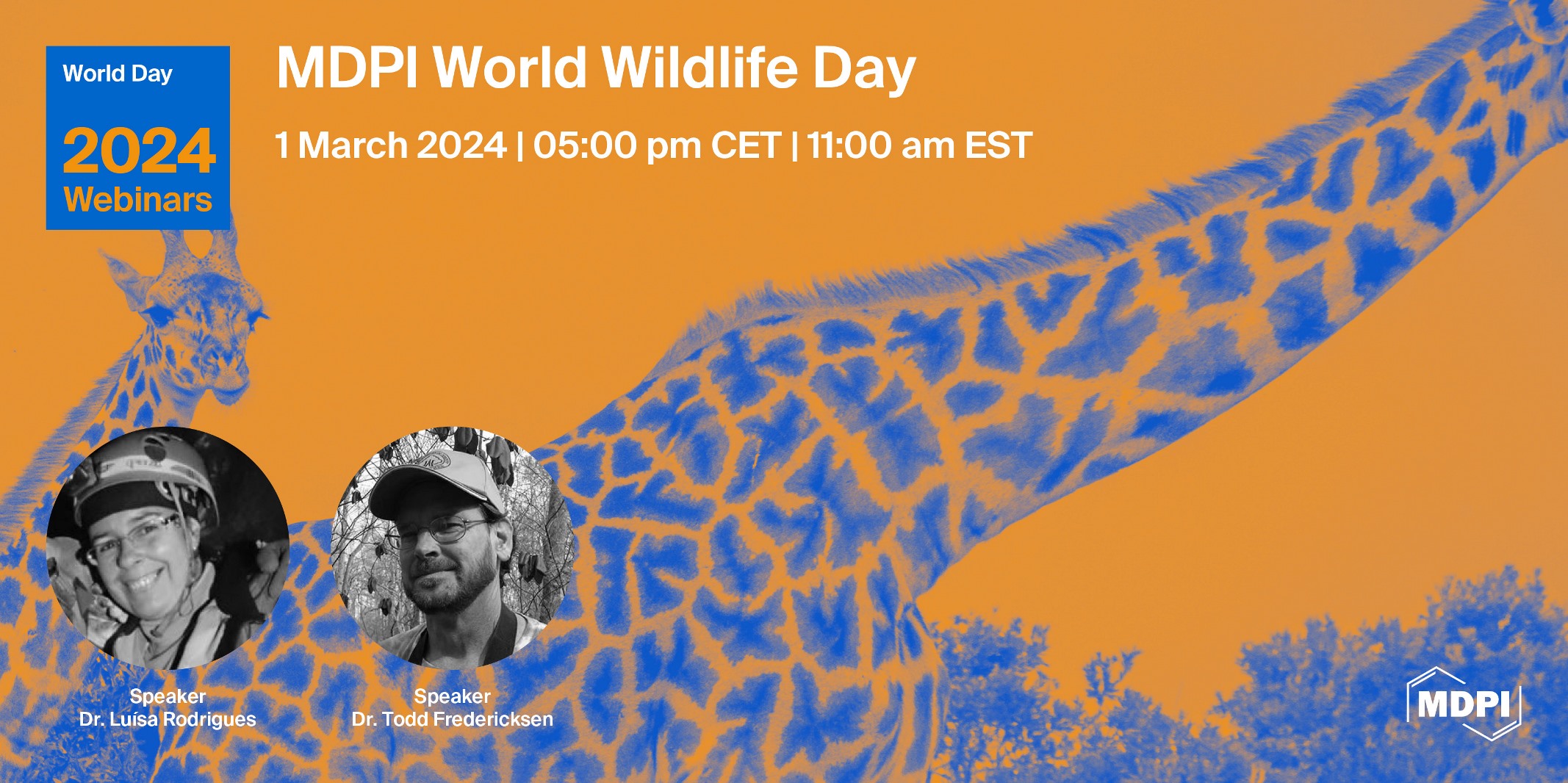
MDPI would like to invite all experts recognized in their fields to attend the MDPI World Wildlife Day Webinar 2024. The aim of this webinar is to encourage scientists to come together, take action, and raise awareness as to how the exchange of findings facilitates efforts towards wildlife conservation.
Conference: MDPI World Wildlife Day Webinar 2024
Date: 1 March 2024
Time: 5:00 p.m.–6:30 p.m. (CET)
To register in advance for this workshop, please click here.
After registering, you will receive a confirmation email containing information on how to join the workshop. The number of participants able to join the workshop is limited; however, a recording will be made available online shortly afterwards. Registrations with academic institutional email addresses will be prioritized.
Workshop Speakers:
Name: Dr. Luísa Rodrigues
Affiliation: Portuguese Institute for the Conservation of Nature and Forests, Portugal
Presentation theme: “The Importance of Knowledge Sharing: 36 Years of Bat Conservation in Portugal”
Name: Dr. Todd Fredericksen
Affiliation: Ferrum College, Virginia, USA
Presentation theme: “A Case Study on a Long-Lived Turtle: Terrestrial Species in Eastern North America - the Woodland Box Turtle”
We are pleased to provide this excellent opportunity to all outstanding researchers in their fields, to propose and develop new approaches, exchange perspectives, and encourage new lines of research.
To find out more about the speakers and the program, please visit https://sciforum.net/event/MWWDW24. We hope that you are able to join us for this event.
MDPI Webinar Secretariat
2 February 2024
Forests | Selected Special Issue Reprints Published in 2022–2023
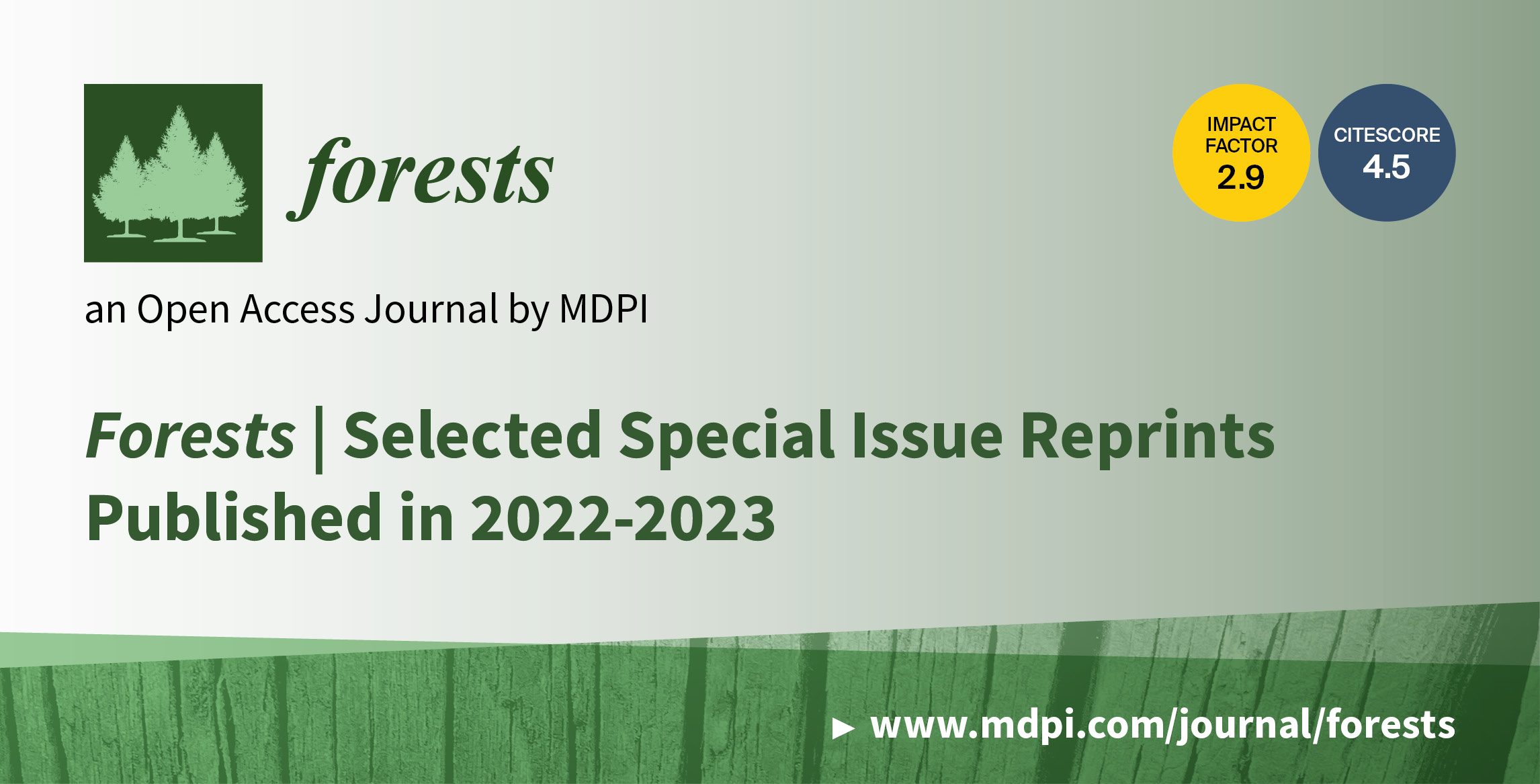
We are pleased to share 10 Special Issue Reprints published by the journal Forests (ISSN: 1999-4907) in 2022 and 2023. They were selected by the Forests Editorial Office, each with 10 or more articles published. You can read more reprints of the Special Issues published by Forests here. If you are interested in editing a Special Issue, you are welcome to check out our initiative, the Special Issue Mentor Program.
|
|
“Urban Forests and Landscape Ecology” |
|
|
“Forests as Nature-Based Solutions: Ecosystem Services, Multiple Benefits and Trade-Offs” |
|
|
“Diversity and Distribution of Forest Insects” |
|
|
“Electronics, Close-Range Sensors and Artificial Intelligence in Forestry” |
|
|
“Forest Recreation and Landscape Protection” |
|
|
“Performance and Modification of Wood and Wood-Based Materials” |
|
|
“Maintenance of Forest Biodiversity” |
|
|
“Production in Forest Nurseries and Field Performance of Seedlings” |
|
|
“Economic and Societal Losses Due to Environmental Impacts on Forestry Productivity” |
|
|
“The Diversity of Wood and Non-Wood Forest Products: Anatomical, Physical and Chemical Properties, and Potential Applications” |
31 January 2024
MDPI Insights: The CEO's Letter #8 - Altmetric and Flat Fee Agreement

Welcome to the MDPI Insights: The CEO's Letter.
In these monthly letters, I will showcase two key aspects of our work at MDPI: our commitment to empowering researchers and our determination to facilitating open scientific exchange.
Opening Thoughts

MDPI and Digital Science Meeting
At MDPI, we are committed to providing our authors with the essential tools to publish, promote, and track their research. In line with this commitment, we have established a longstanding collaboration with Digital Science, a company specializing in research data and analytical insights for the research community. Our collaboration integrates their Altmetric tool, offering us and our authors the ability to track a variety of sources that monitor and report attention surrounding publications.
As part of our collaboration, we recently hosted Cathy Holland, Director of Global Publisher Business Development, and Helen Cooke, Managing Director of Publisher Sales, from Digital Science, at our MDPI headquarters in Basel, Switzerland.
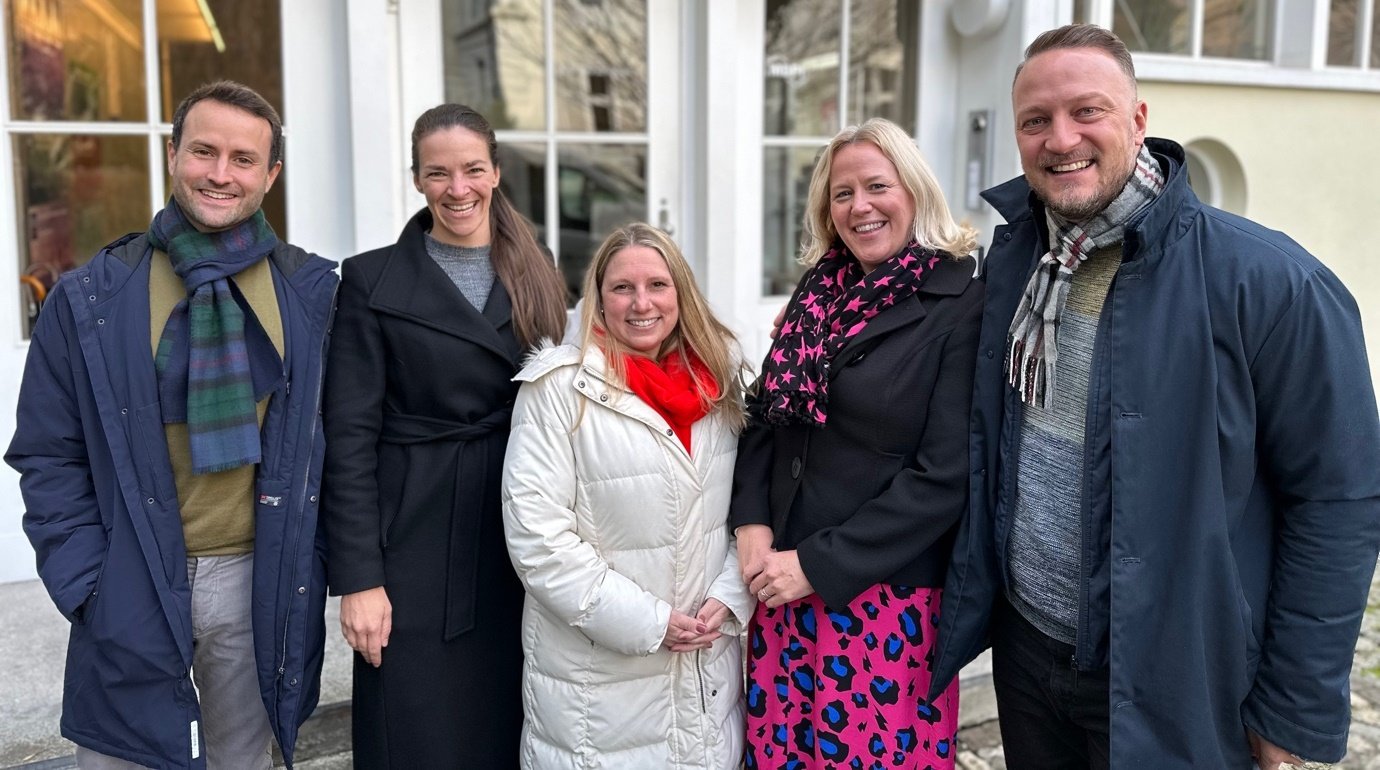
Left to right: Facundo Santomé (Senior Marketing Manager, MDPI), Constanze Shelhorn (Indexing Manager, MDPI), Cathy Holland (Director of Global Publisher Business Development, Digital Science), Helen Cooke (Managing Director of Publisher Sales, Digital Science), and Stefan Tochev (CEO, MDPI) in front of MDPI headquarters in Basel, Switzerland.
During our meeting, we discussed MDPI’s publishing philosophy and explored further avenues for collaboration. We look forward to continuing our partnership with Digital Science, aiming to improve our services yet further and meet the needs of our authors more closely than ever.
What is Altmetric?
You will notice that MDPI articles feature an Altmetric score, a colourful doughnut capturing the score in the upper right corner of the article page. This score represents ‘alternative metrics,’ as distinct from traditional metrics such as Impact Factor, CiteScore, and Scimago Journal Rank.
Altmetrics complement traditional citation-based metrics by capturing online discussions related to a specific research topic. By analyzing both sets of data, we can obtain a comprehensive understanding of the attention a particular research output receives and the sources in which it is mentioned.
“Almetric provides visual insights into where research is being discussed”
Sources Tracked by Altmetric
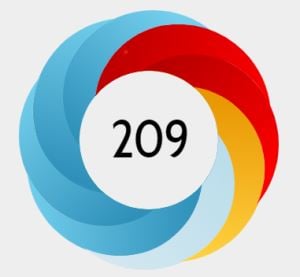
Altmetric badge showing the Altmetric score and colour-coded mention sources.
Altmetric monitors various sources, categorizing them into segments such as policy documents, peer reviews, Wikipedia, news and blogs, and social media, among other sources. Each category is identifiable by a specific colour.
The Altmetric badge provides visual insights into where the research is being discussed. A more colourful badge indicates broader mentions across multiple platforms. Such tracking enables us to gauge the extent of an article’s online dissemination, noting that increased visibility may correlate with higher citation rates.
Read more:
Impactful Research

Ten High-Altmetric Articles Published by MDPI
As at 30 January 2024, Altmetric has tracked 670,500 MDPI research outputs from MDPI, resulting in over 4.3 million mentions. This includes over 71,894 mentions in policy and patents and 294,714 mentions in news and blogs, with some achieving an Altmetric score as high as 28,754.
So, what is a good Altmetric score? There are various ways to put this score into context. You can find out more about the score in context and how to evaluate your work by this means.
Here are ten MDPI papers ranking in the top 5% of all research outputs scored by Altmetric.
|
|
“Accuracy in Wrist-Worn, Sensor-Based Measurements of Heart Rate and Energy Expenditure in a Diverse Cohort” J. Pers. Med. 2017, 7(2), 3; https://doi.org/10.3390/jpm7020003 Altmetric page: https://mdpi.altmetric.com/details/20477344 Altmetric shows that this article appeared in 253 news stories from 209 outlets including Forbes, BBC, and Fox News. |
|
|
“Daylight Saving Time and Acute Myocardial Infarction: A Meta-Analysis” J. Clin. Med. 2019, 8(3), 404; https://doi.org/10.3390/jcm8030404 Altmetric page: https://mdpi.altmetric.com/details/57654628 Altmetric shows that this article appeared in 295 news stories from 207 outlets including Forbes, The Atlantic, and New York Times. |
|
|
“The Preliminary Analysis of Cave Lion Cubs Panthera spelaea (Goldfuss, 1810) from the Permafrost of Siberia” Quaternary 2021, 4(3), 24; https://doi.org/10.3390/quat4030024 Altmetric page: https://mdpi.altmetric.com/details/111086701 Altmetric shows that this article appeared in 182 news stories from 134 outlets including CBC News, CNN, and National Geographic. |
|
|
“Not the Cat’s Meow? The Impact of Posing with Cats on Female Perceptions of Male Dateability” Animals 2020, 10(6), 1007; https://doi.org/10.3390/ani10061007 Altmetric page: https://mdpi.altmetric.com/details/83796184 Altmetric shows that this article appeared in 124 news stories from 98 outlets including VICE, CNN and The Guardian. |
|
|
“Behaviour and Welfare Impacts of Releasing Elephants from Overnight Tethers: A Zimbabwean Case Study” Animals 2022, 12(15), 1933; https://doi.org/10.3390/ani12151933 Altmetric page: https://mdpi.altmetric.com/details/133463915 Altmetric shows that this article appeared in 192 news stories from 186 outlets. |
How do I use altmetrics?
Altmetric Explorer provides a detailed step-by-step guide and instruction video for first-time users of the tool. The guide includes useful diagrams that make it easy to get started.
Sharing Research Online
For research to be tracked across different sources, Altmetric needs a research output with a persistent identifier: a DOI, ISBN, PubMed ID, handle ID, etc. When sharing research, it is important to include a link to the original research output.
|
|
“An Update on Eukaryotic Viruses Revived from Ancient Permafrost” Viruses 2023, 15(2), 564; https://doi.org/10.3390/v15020564 Altmetric page: https://mdpi.altmetric.com/details/142929875 Altmetric shows that this article appeared in 250 news stories from 180 outlets including CTV, Fox News, and CNN. |
|
|
“The Global Problem of Insufficient Sleep and Its Serious Public Health Implications” Healthcare 2019, 7(1), 1; https://doi.org/10.3390/healthcare7010001 Altmetric page: https://mdpi.altmetric.com/details/53406248 Altmetric shows that this article appeared in 252 news stories from 168 outlets including BBC, Harvard Business Review, and Forbes. |
|
|
“A Detailed Review Study on Potential Effects of Microplastics and Additives of Concern on Human Health” Int. J. Environ. Res. Public Health 2020, 17(4), 1212; https://doi.org/10.3390/ijerph17041212 Altmetric page: https://mdpi.altmetric.com/details/86529137 Altmetric shows that this article appeared in 197 news stories from 150 outlets including BBC, The Tribune, and World Economic Forum. |
|
|
“An Empirical Study of Chronic Diseases in the United States: A Visual Analytics Approach to Public Health” Int. J. Environ. Res. Public Health 2018, 15(3), 431; https://doi.org/10.3390/ijerph15030431 Altmetric page: https://mdpi.altmetric.com/details/34714141 Altmetric shows that this article appeared in 232 news stories from 149 outlets including Forbes, New York Times, and Harvard Business Review. |
|
|
“Garden Scraps: Agonistic Interactions between Hedgehogs and Sympatric Mammals in Urban Gardens” Animals 2023, 13(4), 590; https://doi.org/10.3390/ani13040590 Altmetric page: https://mdpi.altmetric.com/details/142934305 Altmetric shows that this article appeared in 172 news stories from 168 outlets including BBC. |
Inside MDPI

MDPI Annual Meeting Celebrations in China
On Thursday 25 January, over 1,300 MDPI colleagues from our two offices in Beijing gathered to kick off MDPI’s traditional ‘Annual Meetings.’ These celebrations take place in MDPI’s offices across China, including Dalian, Tianjin, Wuhan, and Nanjing.
The evenings include performances, informative talks and presentations, awards, and entertainment, providing an ideal platform to recognize our colleagues, celebrate their achievements, and set our sights on the future.
“It is essential that we stay connected and share best practices”

I sent a video congratulating everyone on their work and sharing our vision of building MDPI into the most trusted OA publisher, highlighting the roles each of us has to play in achieving that goal.
Unfortunately I could not join in person, but you may recall my recent trip, when I visited our offices in Beijing and Wuhan, which I look forward to visiting again this year.
Although our headquarters are in Basel, Switzerland, and we are expanding throughout Europe and North America, the majority of MDPI’s workforce is in China and throughout the Asia-Pacific region, including offices in Singapore, Thailand, Japan, and newly opened office in South Korea. It is essential that as a global organization, we stay connected and share best practices in order to grow collectively and continue providing the exceptional service to our authors.
The Annual Meeting is a moment to reflect and enjoy the year’s hard work and dedication.

I extend our best wishes to all for the Chinese New Year (Xīnnián kuàilè)!
Coming Together for Science
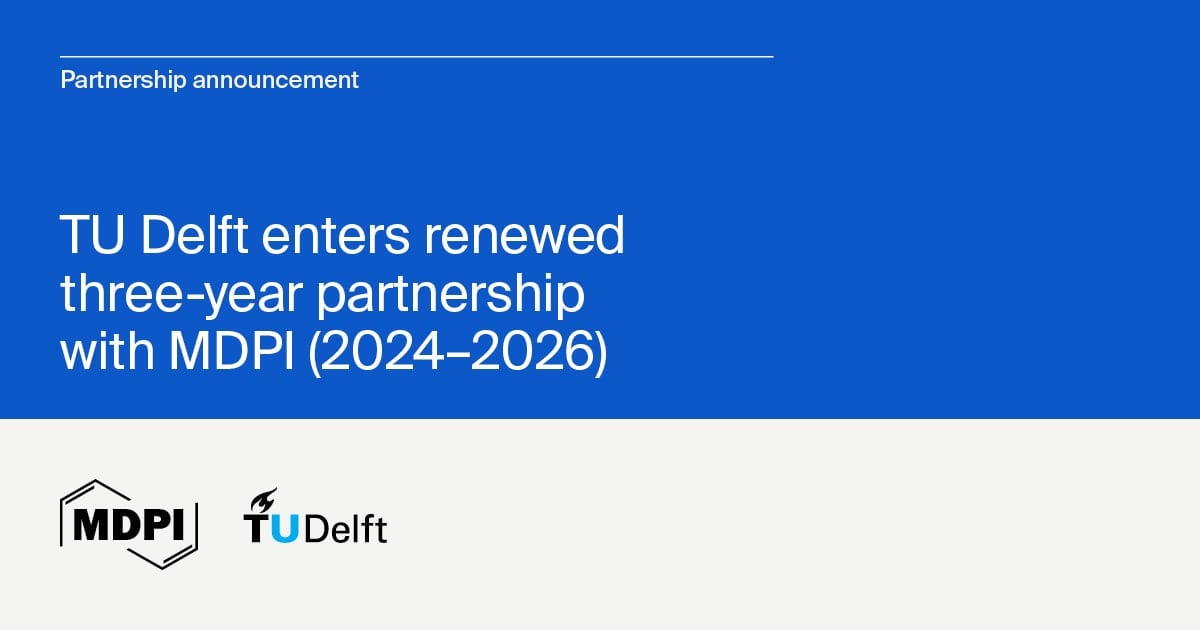
MDPI and TU Delft Adopt Flat Fee Model in Extended Partnership
We are excited to announce a renewed three-year partnership with Delft University of Technology (TU Delft) in the Netherlands. This collaboration introduces a fixed lump-sum fee, covering publishing costs from 2024 to 2026.
“This initiative reflects our dedication to transparent and inclusive publishing”
TU Delft-affiliated authors will enjoy cost-free publishing in any MDPI journal during this period, aligning with our commitment to removing barriers for open access publishing. The agreement supports Plan S compliance and facilitates a seamless publishing process for TU Delft corresponding authors. This initiative reflects our dedication to transparent and inclusive publishing, providing stability and predictability both for authors and for institutions.
For further details on our Institutional Open Access Program (IOAP), please contact us.
Benefits to MDPI’s IOAP
At MDPI we have a long tradition of partnerships, including our Institutional Open Access Program (IOAP). IOAP supports institutions through simplification, access, transparency, APC discounts, and institutional repository deposits. The program simplifies administrative processes, offers central payment, and allows easy opting in and out. Participants gain free access to Susy, MDPI’s online submission system, with extensive article metadata and exportable data. APC discounts and Book Processing Charge discounts are available for affiliated authors. Automated deposits to institutional repositories and streamlined matching of papers to IOAP participants enhance the overall experience.
For further information, see our IOAP FAQ.
Closing Thoughts

Reflections on the 2024 APE Conference
MDPI was proud to co-sponsor the Academic Publishing in Europe (APE) 2024 Conference that took place in Berlin, Germany, from 9–10 January 2024.
The conference theme, ‘Keep the Conversation Going!’, explored the evolving landscape of scholarly communication. APE is one of the key conferences I make a point to attend each year. January offers a valuable opportunity to engage with new contacts, reconnect with familiar faces, and participate in impactful discussions and presentations among professionals, scholars, and practitioners in the field.
“It's fascinating to see how other publishers are leveraging AI”
Highlights
Some of the standout panels for me include: the role of the UN Sustainable Development Goals (SDGs) within the publishing industry. It was encouraging to hear the current status quo, though I was eager also to learn about the exciting projects planned for 2024 and beyond. These will allow us to track progress in subsequent years. At MDPI, we remain committed to promoting Open–Access (OA) content on SDGs through scientific articles and books. Furthermore, we extend our commitment to sustainability by financially supporting researchers through initiatives such as the World Sustainability Award and the Emerging Sustainability Leader Award, as well as waiving the APC for feature papers on each SDG.
In recent years, discussions on AI have become increasingly prominent at such conferences. It’s fascinating to see how other publishers are leveraging AI to meet the evolving needs of their audiences while at the same time using it to safeguard the scientific process. Other engaging panels that I enjoyed included updates on transformation beyond transformative agreements, the principles of lean change, incentive structures related to research integrity, and the panel on reviewer incentives.
“We can share best practices and lessons learned”
Incorporating MDPI’s Insights into Conferences
I must confess that I sometimes feel overlooked when MDPI is not invited to participate in crucial industry discussions. As the leading open access publisher and the third-largest publisher overall, we possess extensive experience in many of these areas and can offer valuable contributions to these discussions. We can share best practices, lessons learned, and our thinking about future trajectories. For instance, in panels discussing reviewer incentives, at MDPI we offer a discount voucher to reviewers for future submissions, reflecting our commitment to fostering a robust peer review process. In 2022 alone, MDPI collected over 1.4 million peer review reports, informing the decision-making processes of our editors. Given our expertise in these areas, it would be natural to include MDPI in such discussions. I therefore extend an invitation to future conference organizers to consider MDPI for speaking engagements and collaborative opportunities.
Chief Executive Officer
MDPI AG
24 January 2024
Acknowledgment of the Reviewers of Forests in 2023
In recognizing the exceptional efforts of our reviewers in 2023, we express our sincere gratitude for upholding the high standards of Forests. Their commitment ensured the rigorous peer review that is integral to quality academic publishing.
In 2023, Forests received 9352 review reports, from 5294 reviewers. This past year, we worked with reviewers from 115 countries and regions, reflecting the diversity in our collaboration with research communities. Their dedication shapes scholarly discourse and advances global research. The editorial team expresses gratitude for the vital role played by each reviewer in the Forests family throughout 2023, and we look forward to their continued support in 2024.
The following are the reviewers who have consented to show their names:
| A. Anitha | Kristina Klarić |
| A. Salim Bawazir | Kristina Laužikė |
| Abdelghafar Abu-Elsaoud | Krzysztof Mudryk |
| Abdelnaser Elzaawely | Krzysztof Szwajka |
| Abdul Gafur | Kseniya Nikerova |
| Abdul Mannan | Kuldeep Singh Jadon |
| Abdullahi Alhassan | Kurt Mclaren |
| Abhik Patra | Kyaw Thu Moe |
| Abhiram Gunaratnam | Kyu-suk Kang |
| Abhiroop Chowdhury | Ladislav Holik |
| Abolfazl Jaafari | Ladislav Paule |
| Abolfazl Mosaedi | Laima Česonienė |
| Abolfazl Narmani | Lakha Salaipeth |
| Abolghassem Emamverdian | Lando Mentrasti |
| Abraham Escobedo-Moratilla | Larisa Fedoreyeva |
| Abu El Eyuoon Abu Zied Amin | Lars Blomqvist |
| Adarsh K. Gupta | Lars Lars |
| Adela-Eliza Dumitrascu | Lata Shukla |
| Adijailton De Souza | Laura Henry |
| Adilson Souza | Laura Luongo |
| Adis Puška | Laxman Khanal |
| Aditi Satpute | Lech Karpiński |
| Admilson Da Penha Pacheco Pacheco | Leonel Nunes |
| Admir Avdagić | Leonid Perelomov |
| Adnan Ahmad | Leopold Slotta-Bachmayr |
| Adnan Akhter | Leszek Sieczko |
| Adnane Beniaich | Leszek Wanat |
| Adolfo Peña-Acevedo | Liang Jiao |
| Adriana Galderesi | Liangjun Zhu |
| Adrienn Horváth | Lichun Jiang |
| Aggelos Tsaligopoulos | Lifen Li |
| Agita Livina | Liga Lauberte |
| Agnes Peterfalvi | Lijian Zheng |
| Agnieszka Mandziuk | Li-Jun Huang |
| Ahmad Khan | Lilu Cui |
| Ahmad Omar | Lin Chen |
| Ahmed Abd-Elgawad | Linas Balčiauskas |
| Ahmed El-Sawah | Ling Zhang |
| Ahmet Can | Linsheng Wu |
| Aivars Aboltins | Lisset Herrera Isidrón |
| Ajay Gautam | Liu Hongguang |
| Akbar Najafi | Liubov Zelena |
| Akira Otuka | Liudmila Gerasimova-Meigal |
| Aksel Granhus | Liz Trenchard |
| Akshat Chulahwat | Loredana Elena Vijan |
| Alain Cloutier | Lorena Barra-Bucarei |
| Alana Kasahara Neves | Lorena Parra |
| Aldo Rafael Martínez Sifuentes | Lorenzo Leon |
| Alejandra Baldi | Lorenzo Tonina |
| Alejandro Monterroso-Rivas | Luambo Jeffrey Ramarumo |
| Aleksandr Ignatov | Luana Basso |
| Aleksandra Jelušić | Ľubomír Lichner |
| Aleksandra Jezierska-Thöle | Luboš Staněk |
| Aleksandra Torbica | Luca Belelli Marchesini |
| Aleksey Dmitriev | Lucas Braos |
| Aleksey Troitsky | Lucia Baldino |
| Aleš Straže | Lucian Dinca |
| Alessandro Ferrarini | Luciano Bosso |
| Alessandro Petrontino | Luciano Marasco |
| Alessandro Suardi | Luciano Varela |
| Alexander Kuprin | Ludivina Barrientos-Lozano |
| Alexander Pfriem | Luigi De Masi |
| Alexander Ryss | Luigi Saulino |
| Alexander Voronkov | Luis Aristizabal |
| Alexandra Mastroberti | Luis Conceição |
| Alexandre Collin | Luis Diaz-Balteiro |
| Alexandre Jardim | Luis Eduardo Akiyoshi Sanches Suzuki |
| Alexey Andreychev | Luis Santos Pereira |
| Alexey Dmitriev | Łukasz Orman |
| Alexey Kutyrev | Łukasz Tymendorf |
| Alexey Panov | Łukasz Walas |
| Alfrendo Satyanaga | Łukasz Warguła |
| Ali Asghar Alesheikh | Lukman Ahamad |
| Ali Aydda | Luminita L. Cojocariu |
| Ali Kandemir | Luz Marina Melgarejo |
| Ali Kasal | Lynda Prior |
| Ali Uyan | Maciej Pach |
| Alicia Ayerdi Gotor | Maciej Sydor |
| Alina Badulescu | Maegala Nallapan Nallapan Maniyam |
| Alina Lato | Magdalena Broda |
| Alina Stachurska-Swakoń | Magdalena Cyrek |
| Alina Truta | Magdalena Jastrzębska |
| Alina Zajadacz | Magdalena Kacprzyk |
| Alireza Pour-Aboughadareh | Magdalena Knežević |
| Alireza Tarinejad | Magdalena Rys |
| Alisheikh Atta | Maha Krayem |
| Alla A. Kolesnikova | Mahdi Mubarok |
| Allan Bacha | Maher Mahmoudi |
| Alma Netzahuatl-Muñoz | Mahfouz Abd-Elgawad |
| Alok Sahu | Mahmoud Bayat |
| Alsu Lubyanova | Mahmoud F. Seleiman |
| Amabelia Del Pino | Maite Vaslin |
| Amelia Salimonti | Makoto Kakishima |
| Aminur Rahman | Maksym Łaszewski |
| Amira Ibrahim | Maksym Matsala |
| Amlana Panda | Małgorzata Baćmaga |
| Ammar Albalasmeh | Małgorzata Jastrzębska |
| Amr Mohamed | Manfred Sager |
| Amy Miner Ross | Manikandan Ramasamy |
| Ana Bio | Manikanta Velpuri |
| Ana Campilho | Manoj Kumar |
| Ana Elisa Rato | Manoj Singh |
| Ana Fernandes De Oliveira | Manoj Tripathi |
| Ana Luisa Garcia Oliveira | Mansoore Shamili |
| Ana Maria Benedek | Manuel Alberto M. Ferreira |
| Ana Mutis Tejos | Manuel Cach-Pérez |
| Ana Navarro Ferreira | Manuel Chacón-Fuentes |
| Anabela Reis | Manuel Esperon-Rodriguez |
| Anamika Pandey | Manuela Pires Rosa |
| Anastasia Christopoulou | Manuela Plutino |
| Anastasia Nikologianni | Marat Khaliluev |
| Anastasia Pantera | Marc Peruzzetto |
| Anastasiya Popova | Marcia Astorga–Eló |
| Anayat Mir | Marcin Chybiński |
| Anderson Puker | Marcin Jakubowski |
| André Christoforo | Marcos Barrio Anta |
| André Eduardo Biscaia Lacerda | Marcos Schimalski |
| Andrea Battisti | Marcos Vinicius Morais |
| Andrea Mastinu | Marcus Vinícius Fipke |
| Andrea Rosario Proto | Marek Šolc |
| Andrea Sciarretta | Marek Wieruszewski |
| Andreas Helmersson | Maria Angelova |
| Andreea Ona | Maria Artigas Ramirez |
| Andrei Shepelev | María Del Pilar Ortega-Larrocea |
| Andres Hirigoyen | Maria Fomicheva |
| Andrew Macrae | María Graciela Hernández-Orduña |
| Andrey Belov | Maria Perez-Lopez |
| Andrey Yurkov | María Sánchez-Coronado |
| Andrii Koveria | Maria Vittoria Corazza |
| Andrzej Sioma | Marian Dragoi |
| Andrzej Wegiel | Mariana Hristova |
| Andrzej Zolnowski | Marilaine Colnago |
| Aneta Kowalska | Marín Pompa-García |
| Aneta Słomka | Marina J. Orlova-Bienkowskaja |
| Angel Llamas | Mario Jeleč |
| Angela Lo Monaco | Mario Velasco |
| Angelos Tsikas | Marius Budeanu |
| Anirban Bhar | Mariusz Bembenek |
| Anirudha Chattopadhyay | Mariusz Kormanek |
| Anita Roth-Nebelsick | Mariusz Maciejczak |
| Anna Cedro | Marko Joksimović |
| Anna Geraskina | Marko Petrič |
| Anna Knitter-Piątkowska | Markos Konstantakis |
| Anna Lavecchia | Marlena Baranowska |
| Anna Maria Mercuri | Marta Aleksandrowicz-Trzcinska |
| Anna Szakiel | Marta Kandziora-Ciupa |
| Anna Źróbek-Sokolnik | Martin Kühmaier |
| Annie Desrochers | Martina Gažarová |
| Anti Rohumaa | Martina Štěrbová |
| Anton Pyzhev | Martín-Gutiérrez Emilio |
| Antonino Di Iorio | Maša Zorana Ostrogović Sever |
| Antonio Cabrera Ariza | Masatsugu Hatakeyama |
| Antonio Ganga | Masoud Nobahar |
| Antonio Lidón | Massimo Gennaro |
| Antonio Parra | Matei Marcel |
| António Xavier | Matej Jošt |
| Anuradha Singh | Matevz Mihelic |
| Anurag Malik | Matheus Kulmann |
| Appadoo Chandani | Mathew Smidt |
| Apri Iswanto | Matoor Gilani |
| Arian Correa-Díaz | Matteo Salvalaggio |
| Aristidis Matsoukis | Matúš Hrivnák |
| Arkadiusz Gendek | Maurice Defo |
| Arkadiusz Tomczak | Maurício Andrades Paixão |
| Armando Gomez-Guerrero | Mauricio Zapata-Cuartas |
| Armin Mešić | Mauro Manuel Martinez-Pacheco |
| Armstrong Omoregie | Md Mustafizur Rahman |
| Arnab Majumdar | Md Nazrul Islam |
| Arnan Araza | Md. Arif Sakil |
| Áron Béni | Md. Humayain Kabir |
| Árpád Székely | Md. Mostafizur Rahman |
| Arshad Khan | Md. Nurul Matin |
| Artem Belesov | Md. Sabibul Haque |
| Artemio Carrillo-Parra | Medhat Elnaggar |
| Artur Gafurov | Mehdi Rezaei |
| Artur Warchoł | Mehmet Dayi |
| Artyom Gusarov | Mehmet Ergün |
| Asad Rokhzadi | Mehmet Karaca |
| Asad Shah | Mehrdad Nikooy |
| Ashfaq Ali | Mel Camelo |
| Ashok Kumar | Melanie Vanderhoof |
| Ashraf Ali | Melissa Valentin |
| Ashutosh Bhardwaj | Melissa Vogt |
| Asif Iqbal | Merajuddin Khan |
| Asif Sajjad | Mhm Borhannuddin Bhuyan |
| Aşkım Hediye Sekmen Cetinel | Michael T. Ter-Mikaelian |
| Asli Yilmaz | Michael Winterbourn |
| Asmat Ali | Michail Orfanoudakis |
| Asmuni Mohd Ikmal | Michał Bakalarz |
| Asya Ovsepyan | Michał Napierała |
| Atefeh Sabouri | Michał Stępień |
| Atsushi Kume | Michel Hanania |
| Atul Pandey | Michela Nocetti |
| Augustine Edegbene | Miguel Ángel González Moreno |
| Aurel Maxim | Miha Humar |
| Aureliu-Florin Hălălișan | Mihaela Mircea |
| Axel Funke | Mihaela Udristioiu |
| Ayad Al-Quraishi | Mikhail Komissarov |
| Ayesha Mustafa | Miklós Bak |
| Bacem Mnasri | Milad Janalipour |
| Bahram Choubin | Milan Andrejić |
| Balwant Rawat | Milan Marinković |
| Baoguo Du | Milica Kasanin-Grubin |
| Baojun Yi | Milto Miltiadou |
| Barbara Futa | Miluska Rosas |
| Barbara Jagosz | Min Dai |
| Barbara Żarska | Min Huang |
| Barjeece Bashir | Mine Sezgül Kayseri Özer |
| Baskar Venkidasamy | Ming Cai |
| Beata Gawryszewska | Ming Li |
| Beatriz Perez | Mingxing Cheng |
| Behnam Asgari Lajayer | Minji Kim |
| Behzad Kaviani | Minodora Manu |
| Bekir Kabasakal | Mintu Meena |
| Belaghihalli Gnanesh | Miran Merhar |
| Ben Ingram | Mirjana Ljubojević |
| Beng Fye Lau | Mirjana Šipek |
| Benjamin S. Felzer | Miroslava Rakocevic |
| Benzhi Zhou | Mirosław Wyszkowski |
| Bhupendra Singh | Mohamad Awad |
| Bikram Koirala | Mohamad Padri |
| Bilal Ahmad | Mohamed Ait-El-Mokhtar |
| Bilal Rasool | Mohamed Anli |
| Biljana Filipović | Mohamed Diab |
| Biljana Ilic | Mohamed Elsadek |
| Bin Rasib Abd Wahid | Mohamed Fadl |
| Bin Wu | Mohamed Mohamed |
| Bin Yang | Mohammad Ajaz Ul Islam |
| Bing Guo | Mohammad Faisal |
| Bingjian Cui | Mohammad Ghorbani |
| Birol Akbaş | Mohammad Mehdi Khabiri |
| Biruta Bankina | Mohammad Mehdizadeh |
| Biser Hristov | Mohammad Saidur Rhaman |
| Bishnu Hari Poudyal | Mohammad Saleh Ali-Taleshi |
| Bishnu Prasad Devkota | Mohammad Zounemat-Kermani |
| Biswajit Nath | Mohammadmehdi Maharlooei |
| Bo Zhang | Mohammed Ali |
| Bogumila Pilarczyk | Mohammed Amer |
| Bohdan Konôpka | Mohammed Elbashier |
| Bojan Đurin | Mohammed Kadhom |
| Bonifacio Mostacedo | Mohammed Kara |
| Boris Igor Palella | Mohd Kamran Khan |
| Boris Kozlovsky | Mohd Natashah Norizan |
| Boštjan Lesar | Mohsen Bahmani |
| Boudewijn Van Leeuwen | Mohsin Tariq |
| Branislav Olah | Mónica Rodrigues |
| Branislav Šiler | Monika Sporek |
| Branko Hilje | Monther Sadder |
| Branko Kanjevac | Mortaza Khodaeiaminjan |
| Brindusa Cristina Budei | Mostafa Ghafouri Moghaddam |
| Bruce Chapman | Mounawer Badri |
| Bulat Usmanov | Mousa Pazhuhan |
| Bulent Saglam | Müge Şahin |
| Burcu Yılmaz Kaya | Muhammad Adly Rahandi Lubis |
| Byantara Darsan Purusatama | Muhammad Adnan Bodlah |
| Byoungchul Ko | Muhammad Afzal |
| C. R. Rejeesh | Muhammad Arshad |
| Caglar Akcay | Muhammad Azam Khan |
| Çağrı Olgun | Muhammad Fahad Sardar |
| Calin Steindal | Muhammad Hassan |
| Camilla Dibari | Muhammad Imran |
| Can Vatandaslar | Muhammad Munir |
| Carlos Gutiérrez Aguilar | Muhammad Waheed |
| Carlos Ramos-Scharron | Muhammad Zaka Emad |
| Carlos Reis | Muhammed Enes Atik |
| Carlos Troche Souza | Muhittin Inan |
| Catalina Lucia Cocianu | Mukesh Choudhary |
| Catarina Patoilo Teixeira | Mukesh Kumar |
| Caterina Valeo | Mukesh Mukesh |
| Cecilia Veracini | Mukta Chandra Das |
| Céline Blanc-Jolivet | Mukti Subedi |
| Céline Boisvenue | Mukund Shukla |
| Cesar Augusto Ruiz Agudelo | Mulualem Tigabu |
| César De Santos-Berbel | Mulugeta Belete |
| Cesar Flores | Munir Al-Saadi |
| Cezary Beker | Munoo Prasad |
| Chan Keb | Murat Demir |
| Chandra Mohan Chandra Sekar | Murugesan Kamaraj |
| Chang Xu | Musheerul Hassan |
| Changcheng Liu | Mustafa Cemali |
| Chang-ho Ahn | Mustafa Tolga Esetlili |
| Chara Vavoura | Mykola Malashevskyi |
| Chemseddine Maatki | N. C. Balaji |
| Cheng Ning Loong | Nadeem Fareed |
| Chet Ram | Nadir Ayrilmis |
| Chien Nguyen | Narayan Bhusal |
| Chinmay Sahu | Narit Thaochan |
| Chinnaiah M. C. | Nasrullah Khan |
| Chinnamani Prasannakumar | Natalia Korcz |
| Cholho Song | Natalia Levashova |
| Christian Kanzian | Natalia Naumova |
| Christoph Kogler | Natalia Repkina |
| Christopher Guppy | Natalya Ivanova |
| Christopher Mowry | Nawroz Tahir |
| Christopher Williams | Nazneen Hussain |
| Christos Staboulis | Nebi Bilir |
| Chuan Jin | Nematollah Khorasani |
| Chuanguo Shi | Neonila Kononenko |
| Chuanliang Sun | Netty Salindeho |
| Chungte Chang | Neus Aletà |
| Ciprian Palaghianu | Nicole Christoff |
| Clarissa Naidoo | Nicoleta Vrînceanu |
| Claudia Arias | Nieves Vidal |
| Claudia Bita-Nicolae | Nigus Demelash Melaku |
| Claudia Coronel-Olivares | Nikolay Baranovskiy |
| Clesnan Mendes-Rodrigues | Nikolay Neykov |
| Clizia Villano | Nina Kashchenko |
| Concetta Cardillo | Nina Pakharkova |
| Conchi Sanchez | Niroop Sugunaraj |
| Constantin Nistor | Nkulu-Kabange Rolly |
| Corrado Zoppi | Nobuhiro Akashi |
| Cosmin Filipescu | Noelia Hidalgo-Triana |
| Cristian Alionte | Nor Akmar Abdul Aziz |
| Cristian Malavert | Nóra Drienyovszki |
| Cristina Alegria | Nur Yagmur |
| Cristina González-Montelongo | Oana-Maria Boldura |
| Cristina Sousa | Octavia Zeleniuc |
| Cristina Stancă-Moise | Ofer Beeri |
| Csaba Bojtor | Okey Obi |
| Csaba Mátyás | Oksana Belous |
| Csongor Gedeon | Oksana Lastochkina |
| D. R. Bhardwaj | Olena Sdvyzhkova |
| Daesung Lee | Olexandr Yemelyanov |
| Dainis Rungis | Olfa Saddoud Deddabi |
| Dalasanuru Chandregowda Manjunathagowda | Olga Morozova |
| Dalel Daâssi | Olga Panfilova |
| Damir Krstinić | Olga Tsivileva |
| Damir Ugarkovic | Olivera Stajkovic-Srbinovic |
| Dan Chicea | Ömer Faruk Coşkun |
| Dana Copolovici | Onrizal Onrizal |
| Dani Sarsekova | Otakar Holuša |
| Daniel Chuchala | Othmane Merah |
| Daniel Perrakis | Ozkan Kaya |
| Daniel Rodriguez | Oznur Isinkaralar |
| Daniela Avetisyan | Paavo Kaimre |
| Daniela Baldantoni | Paavo Nevalainen |
| Daniela Sova | Pablo Alonso-Fernández |
| Danielle Frasca Teixeira | Pablo Vergara |
| Danijela Miljković | Pairot Pramual |
| Dănilă Iulian | Pandiyan Muthuramalingam |
| Danish Ibrar | Pantana Tor-Ngern |
| Danny Xiao | Panteleimon Xofis |
| Darda Efendi | Paolo Ruggeri |
| Dario Baričević | Paolo Trucillo |
| Dariusz Gozdowski | Paraskevi Karanikola |
| David Clabo | Parsa Arbab |
| David Ellison | Parth Bhatt |
| David Higgs | Parviz Heidari |
| David Midmore | Pashalina Zwi Terzopoulou |
| David Penaloza | Pasquale Napoletano |
| David Pires | Patchanee Charoenying |
| David Rosalen | Patricia Iweka |
| David Siqueira | Patrick Bouchet |
| Davide Gerna | Paul R Sheppard |
| Davood Akbarimehr | Paul Sestras |
| Davor Kržišnik | Paula Elbl |
| Daxing Gu | Paulo Fernandes |
| Debasis Mitra | Pavel Dmitriev |
| Dede Aulia Rahman | Pavel Fiala |
| Dèdéou Tchokponhoué | Pavel Kostylev |
| Deepa Rawat | Pavel Krechetov |
| Deepak Amaripadath | Pavel Mikhaylov |
| Deepak Kumar | Pavel Samec |
| Demetrio Antonio Zema | Paweł Hydzik |
| Demin Gao | Paweł Kossakowski |
| Dengqiu Li | Paweł Kozakiewicz |
| Denis Beliaev | Paweł Lech |
| Denis Kasymov | Pawel Przybylski |
| Denis Krivoguz | Paweł Wrona |
| Denise Dillon | Pedro Da Silva |
| Derk Jan Stobbelaar | Pedro Henrique Monteiro |
| Desimir Knežević | Pedro Vicente Mauri |
| Desislava Teneva | Pejman Peykani |
| Desislava Tomova | Pekka Kaitaniemi |
| Despina Dimelli | Pelin Alaboz |
| Dessislava Ganeva | Pengle Cheng |
| Devarajan Balaji | Petar Antov |
| Deyvis Cano | Petar Zhelev |
| Dhirender Kumar | Peter Elsasser |
| Diaa Abd El Moneim | Peter Koleda |
| Diana Paiva | Peter Mayo |
| Didzis Elferts | Peter Newton |
| Diego Portalanza | Peterson Wambugu |
| Dietrich Schroeder | Petr Hruza |
| Dilek Onkal | Petr Maděra |
| Dilfuza Jabborova | Petr Pyszko |
| Dimitrios Avtzis | Petra Grošelj |
| Dina Zhirnova | Petra Palátová |
| Dingyi Wang | Petra Schneider |
| Dinko Vusić | Petras Rupšys |
| Diogo Vidal | Petri P. Kärenlampi |
| Dionissis Latinopoulos | Petros Ganatsas |
| Dirk Landgraf | Petros Tsioras |
| Dmitrii L. Musolin | Philip Burton |
| Dmitrijs Serdjuks | Pietro Minissale |
| Dmitry Ruban | Ping Ren |
| Dominik Tomaszewski | Ping Zhu |
| Donatella Cogoni | Piotr Androsiuk |
| Donatella Privitera | Piotr Boroń |
| Doudou Chang | Piotr Robakowski |
| Douglas A. Steinmacher | Piotr Szymczyk |
| Dragan V. Vinterhalter | Pooja Preetha |
| Dragana Stamenov | Poornananda Naik |
| Dragana Vukov | Pornthap Thanonkeo |
| Dulce Flores-Rentería | Potshangbam Nongdam |
| Dung Minh Ha-Tran | Potula Sree Brahmanandam |
| Dušan Gömöry | Pradip Bhattacharrya |
| Dušan Jovanović | Pradip Saud |
| Dušan Stojnić | Prakash Adhikari |
| Eastonce T. Gwata | Prashant Kaushik |
| Ebubekir Yüksel | Prashant Sharma |
| Eddie Bevilacqua | Praveen Pandey |
| Edgar Gutiérrez-Castorena | Prolay Mondal |
| Edgar Roman-Rangel | Przemysław Mania |
| Edmund Hajduk | Pulakesh Das |
| Édson Bolfe | Qing Fang Bi |
| Eduardo Acuña | Qingqing Xiao |
| Eduardo Gomes | Qingtai Shu |
| Eduardo Kruger | Qingwang Liu |
| Eduardo Notivol | Rabah Kechiched |
| Eduardo Ribeiro | Rachele Venanzi |
| Edwin Sabuhoro | Rachid Sabbahi |
| Edyta Małachowska | Radosław Witkowski |
| Efi Yovi | Rafael García-Quesada |
| Egor Dyukarev | Rafael Melo |
| Ehsan Abdi | Rafael Navarro-Cerrillo |
| Ehsan Bari | Raghavendra Singh |
| Eka Miranda | Rahul Raj |
| Ekachai Chukeatirote | Rajani Srivastava |
| Ekaterina Zolotova | Rajeev Padbhushan |
| Ekbordin Winijkul | Rajinder Kaur |
| El Hadi Erbiai | Raju Balaji |
| El Hassan Sakar | Rakesh Srivastava |
| El Mehdi Cherrat | Ram Krishna |
| Elanthamilan Elaiyappillai | Ram Sharma |
| Elchin Suleymanov | Ram Sihag |
| Eldar Kurbanov | Ramazan Özçelik |
| Eldiiar Duulatov | Ramesh Sahni |
| Elena Apostolova | Ramūnas Tupčiauskas |
| Elena Bukvareva | Ranganathan Rani Hemamalini |
| Elena Lakatos | Ranmalee Bandara |
| Elena-Nicoleta Untaru | Raquel Gonçalves |
| Eleonora Nistor | Rashid Nazir |
| Elgar Barboza | Rasmieh Hamid |
| Eli Mihardja | Rasoul Yousefpour |
| Elif Sertel | Rastislav Sulek |
| Elina Yankova-Tsvetkova | Ratih Damayanti |
| Elisa Fasani | Rattanawat Chaiyarat |
| Elisabet Walker | Ravish Choudhary |
| Elisabetta Salvatori | Raymond Hintz |
| El-Sayed Desoky | Răzvan Câmpu |
| Elsayed Mansour | Redžo Hasanagić |
| Elżbieta Myśkow | Reiji Yoneda |
| Emad Alsherif | Renan Falcioni |
| Eman Mohallal | Rene Herrera Diaz |
| Eman Tawfik | Retno Hartati |
| Emilia Brzosko | Reza Parvaz |
| Emilia-Adela Salca | Ricardo Andrade |
| Emilia-Cornelia Dunca | Riccardo Cerrato |
| Emna Medhioub | Riccardo Marzuoli |
| Emre Babur | Richard Bowden |
| Ena E. Mata-Zayas | Richard Breia |
| Ender Buğday | Richard Carlson |
| Ender Makineci | Richard Hrčka |
| Endri Endri | Richard Van Der Hoff |
| Enéas Konzen | Richard Zada |
| Erico Fernando Lopes Pereira-Silva | Richardson Da Silva |
| Ericsson Coy-Barrera | Rıfat Kurt |
| Erika Levei | Rishikesh Singh |
| Erkan Senses | Rita Čepulienė |
| Ernesto Badano | Robert Czubaszek |
| Erzsébet Kristóf | Robert Kalbarczyk |
| Erzsébet Sándor | Robert Rauschkolb |
| Esmat Ali | Robert Strong |
| Esteban Manrique Reol | Robert Szczepanek |
| Esteban Pérez-Calderón | Roberto Cannataro |
| Eugenia-Mariana Tudor | Roberto Contreras |
| Eugeniusz Pronin | Roberto Danti |
| Eusebio Cano Carmona | Roberto Faedda |
| Eustachio Tarasco | Roberto Zanuttini |
| Eustaquio Gil-Pelegrín | Rock Ouimet |
| Éva Salamon-Albert | Roger C. Lowe |
| Evan Kane | Rogerio Margis |
| Everton Morais | Roghayeh Ghasempour |
| Evgenii Ponomarev | Rohit Joshi |
| Evgenii Sharapov | Roman Gorbunov |
| Evgeny Mavrodiev | Ronald Ernesto Ontiveros-Capurata |
| Evgeny Shvetsov | Ronggo Sadono |
| Ewa Referowska-Chodak | Rongkui Su |
| Fabio Angeoletto | Rosario Gonzalez-Cascon |
| Fabio Naselli | Rose Luiza Moraes Tavares |
| Fabrizio Buldrini | Ruben Amparado |
| Fahimeh Jami | Rudolf Kiefer |
| Fahmy Hassan | Ruei Yuan Wang |
| Fan Yang | Ruxandra Darmon |
| Fang Bao | Ryo Natsuaki |
| Fantina Tedim | Ryszard Świetlik |
| Fardin Ghanbari | Saad Farouk |
| Farha Sattar | Sabine Aboling |
| Farzam Tavankar | Sabrina Palanti |
| Faten Dhawi | Sabulal Baby |
| Fatih Gülgen | Sadhana Singh |
| Fatima Henkrar | Saeed Qaisrani |
| Fatima Zohra Benhalouche | Saeid Haji-Aghajany |
| Fayaz Ali | Saeid Niazmardi |
| Fayez Tarsha Kurdi | Safdar Bashir |
| Federico Galacho-Jiménez | Sagar Godar Chhetri |
| Fedor Lisetskii | Sahari Inoue |
| Felicita Russo | Said Lahssini |
| Felipe de Miguel-Díez | Said Moukrim |
| Felipe Martins de Oliveira | Saiful Malook |
| Felipe Vasquez | Sait Sarr |
| Fen Luo | Sajid Ali |
| Feng Qi | Saket Gowravaram Navalur |
| Fernando Júnior Resende Mascarenhas | Salah Elsayed |
| Fernando Pérez-Rodríguez | Salil Bharany |
| Filomena Fonseca | Salim Hiziroglu |
| Flavio Ruffinatto | Salvador Garcia-Ayllon |
| Flora Magdaline Romero | Sam Ottoy |
| Florin Nenciu | Saman Ghahri |
| Fotios Chatzitheodoridis | Sambandh Bhusan Dhal |
| Fousseni Folega | Sami Ul-Allah |
| Francesc Xavier Espinach | Samir Haddad |
| Francesca Merli | Samiran Das |
| Francesco Barbano | Samuel Contreras |
| Francesco Sica | Samuele De Petris |
| Francisco F. Rivera | Sandeep Gupta |
| Francisco García Fernández | Sandeep Panchal |
| Francisco Rubén Badenes-Pérez | Sandip Ghuge |
| František Lorenc | Sandra Oliveira |
| Fumin Wang | Sandra Wajchman-Świtalska |
| Furong Niu | Sangmin Lee |
| Gábor Pozsgai | Santosh Shah |
| Gabriel Costa | Saqib Ali |
| Gabriel Ferraz | Sara Remelli |
| Gabriel Hoh Teck Ling | Sara Sousa |
| Gabriela Castaño-Meneses | Sarah Abdul Razak |
| Gabriela Ramirez Ojeda | Saraj Bahadur |
| Gabriela Toader | Sarker Mohammad Rezaul Karim |
| Galena Angelova | Saša Kostić |
| Galina Smolikova | Sathish Kumar Palaniappan |
| Ganesh Nikalje | Saulo Folharini |
| Gang Chen | Saygin Abdikan |
| Gang Liu | Scott Leavengood |
| Gaurav Mudgal | Scott Pokswinski |
| Gavriil Spyroglou | Sebastian Bernat |
| Gema Ramírez Guerrero | Sebastian Kuśmierz |
| Gennady Kolesnikov | Sebastian Przybyłko |
| George K. Rogers | Sedat Severoğlu |
| George Mustoe | Sefa Durmaz |
| George Runion | Seiya Saito |
| Georgia Papadopoulou | Sema Yılmaz Genç |
| Gerardo Avalos | Sergei Im |
| Gerardo Vázquez-Marrufo | Sergey Kivalov |
| Gerhard Sinn | Sergey Sheshnitsan |
| Gerhard Zotz | Sergey Stankevich |
| Gerónimo Quiñonez-Barraza | Sergey Vasin |
| Ghada Mahmoud | Sergey Vorobyev |
| Ghada Sahbeni | Sergey Zhironkin |
| Giacomo Peruzzi | Sergio Espinoza |
| Gianandrea La Porta | Serhat Şap |
| Gilberto Vaz | Seyed Mohammad Hojjati |
| Giorgio Capello | Seyed Mohammad Mahdi Mortazavian |
| Giorgio Tofani | Seyed Mohammad Moein Sadeghi |
| Giovana Espindola | Seyed Mohsen Hosseini |
| Giovanni Avila-Flores | Seyed Vahid Razavi-Termeh |
| Giovanni Piva | Seyedeh Kosar Hamidi |
| Girish Chandra | Seyit Hayran |
| Girmantė Jurkšienė | Sezgin Ayan |
| Gisela Ohms | Shahbaz Khan |
| Giuliana Bilotta | Shamim Ahmed |
| Giuliano Ramat | Shanyi Tian |
| Giulio Senes | Shaun Watmough |
| Giulio Sperandio | Shengpei Dai |
| Giuseppe Pulighe | Shih Yin Ooi |
| Gleb Zaitsev | Shilpa Suresh |
| Gniewko Niedbała | Shin-Ichiro Tohmura |
| Gopal Krishan | Shiv Vendra Singh |
| Gopal Shukla | Shiva Najafi |
| Goran Milić | Shivendra Kumar |
| Grant T. Kirker | Shu Wang |
| Gregory Gilbert | Shucun Sun |
| Grigorios Kyriakopoulos | Shuirong Wu |
| Grzegorz Janowski | Shuqing Liu |
| Guang Bao | Siham Acharki |
| Guangfu Zhang | Silvana Nisgoski |
| Guangxing Wang | Silvana Scalon |
| Guillermo Angeles | Silvia Landi |
| Guillermo José Martínez Pastur | Silvia Pampana |
| Guo Ren Mong | Silvia Traversari |
| Gurjeet Singh | Simbarashe Jombo |
| Gustavo Perez-Verdin | Simerjeet Kaur |
| György Csomós | Simona Mancini |
| H. M. Zakir | Simonetta Fascetti |
| Ha Chu | Sinian Char |
| Habib Ali | Sinisa Polovina |
| Hafiz Ahmad | Siti Noorbaini Sarmin |
| Haidi Abdullah | Sitthisak Moukomla |
| Haijun Xiao | Sławomir Krzebietke |
| Haiyang Zhang | Sławomir Michałek |
| Håkan Lideskog | Sławomir Poskrobko |
| Halley Oliveira | Snežana Stajić |
| Hamdan Omar | Snežana Štetić |
| Hamdy Soliman | Sohail |
| Hamed Peidayesh | Songqing Wu |
| Hamid Naji | Sookuk Park |
| Hammad Ahmad Jan | Soroor Rahmanian |
| Hanqi Yang | Srdjan Seremesic |
| Hans Hoenicka | Sreetheran Maruthaveeran |
| Hanuman Jatav | Srikant Gupta |
| Hanxue Liang | Stanimir Stoilov |
| Hao Liang | Stanislav Juráň |
| Hao Xu | Stanisław Ziȩba |
| Hao Zhou | Ştefan Cristian Gherghina |
| Haradhan Kolya | Stefan Shilev |
| Harun Bektas | Stefania Nin |
| Haruna Moda | Stefania Righi |
| Hassan El-Ramady | Stefanos Hatzilazarou |
| Hefei Zhao | Stefanos Tsiaras |
| Heike Markus-Michalczyk | Stelian Alexandru Borz |
| Hela Chikh Rouhou | Stella Schons |
| Helder Viana | Stephen Amiandamhen |
| Helen Avery | Stephen Seaton |
| Helena Maria Fernandez | Stewart White |
| Helge Walentowski | Stjepan Posavec |
| Heli Lu | Su Datt Lam |
| Hemraj Chhipa | Subyakto Subyakto |
| Herbert Borchert | Sudhir Shende |
| Hira Singh | Sueli Gomes |
| Hoang Phong Le | Suhua Yang |
| Hong Wei | Süleyman Avci |
| Hongge Zhu | Sumit Chakravarty |
| Hongjian Wang | Sunni Kanta Prasad Kushwaha |
| Hongwei Li | Suraj Singh |
| Hongze Lin | Susana Pascual |
| Hormoz Sohrabi | Sushil Kumar |
| Houlin Yu | Susmita Das |
| Houling Wang | Sutomo Sutomo |
| Hrvoje Tomic | Svetlana Illarionova |
| Hu Liu | Sylwester Grajewski |
| Huaiqing Zhang | Szewczyk-Taranek Bożena |
| Huaming Shang | Tadeusz Kowalski |
| Hubert Sterba | Tae-Sung Kwon |
| Hui Chen | T'Ai Forte |
| Humphrey Agevi | Taichi Oguchi |
| Hüseyin Tecimen | Tajamul Hussain |
| Huseyin Yurtseven | Takuo Nagaike |
| Huyen Do | Talha Alam |
| Ian Hartley | Tamara Maricic |
| Ibrahim Al-Ashkar | Tamás Hofmann |
| Ibtisam Al Abri | Tanveer Bilal |
| Iftekhar Ahmed | Tao Tang |
| Ignacio Bobadilla Maldonado | Tarek Dayyoub |
| Ignacio García-González | Tarek Soliman |
| Ignas Daugėla | Tatiana Elumeeva |
| Igor Dudarev | Tatiana Gorbunova |
| Igor Karlović | Tatiana Matveeva |
| Igor Narvaes | Tayfun Tanbay |
| Igor Oscorbin | Teerapong Panboonyuen |
| Igor V. Deyneko | Teodor Rusu |
| Ilias Lazos | Teodoro Carlón Allende |
| Ilker Ali Ozkan | Teresa Vasconcelos |
| Iman Khosravi | Tetiana Sladkovska |
| Imran Ali | Thanate Ratanawilai |
| Imran Bodlah | Thangavelu Muthukumar |
| Indrikis Krams | Theodore Danso Marfo |
| Ines Grigorescu | Theodoros Stathakis |
| Ines Ksentini | Therese Atallah |
| Ingrid Belčáková | Thomas Fickert |
| Ioan Burda | Thomas M. Hinckley |
| Ioana Grozea | Thomas Panagopoulos |
| Ioana Stanculescu | Tianpeng Gao |
| Ioanna Antoniadi | Tibor Alpár |
| Ioannis-Dimosthenis Adamakis | Tijana Crnčević |
| Ion Catalin Petritan | Tijana Narandžić |
| Ionela Munteanu | Tim Ritter |
| Iongel Duran-Llacer | Timo Domisch |
| Irena Bates | Tin Lukić |
| Irina Kravchenko | Tine Hauptman |
| Irina Neta Gostin | Tiziana Maria Sirangelo |
| Irina Yu Kudrevatykh | Tomas Martinez-Trinidad |
| Irmina Ćwieląg-Piasecka | Tomasz Krzysztof Oszako |
| Irshad Ahmad | Tomasz Rokicki |
| Islam Md Rizwanul Fattah | Tomasz Wójcik |
| Ismail Doker | Tomislav Radić |
| Israel Padilla-Guerrero | Tomislav Sedlar |
| Israr Ahmad | Tong Wang |
| Istie Rahayu | Torlarp Kamyo |
| Iulia Arion | Trevor Williams |
| Iulia Muresan | Trina Weilert |
| Iulian Bratu | Truyen Quach |
| Iustina Popescu | Ujjwal Layek |
| Iva Ištok | Usman Zulfiqar |
| Ivan Marić | Uzay Karahalil |
| Ivan Repáč | Vadim Lebedev |
| Ivan Secerov | Vahid Khosravi |
| Ivana Stajcic | Vahid Nasiri |
| Ivana Živojinović | Vaidotas Lygis |
| Iwona Melosik | Valentina Kovaleva |
| Izabela Betlej | Valentina Passeri |
| Izabella Olejniczak | Valentyna Meshkova |
| J. F. Bobby Saragih | Van Quy Khuc |
| J. Jesús Vargas-Hernández | Vanessa Carlow |
| Jacek Komorowski | Vasil Georgiev |
| Jacinto Santamaria-Peña | Vasilios Liordos |
| Jack Kurki-Fox | Vassil Jivkov |
| Jacob Lisuma | Vasyl Lozynskyi |
| Jadwiga Wyszkowska | Vera Budaeva |
| Jafar Abdollahzadeh | Veraldo Liesenberg |
| Jahad Soorni | Verónica Berriel |
| Jai P. Rai | Veronica Sărățeanu |
| Jai Prakesh | Vesselin Koutev |
| Jair Putzke | Vicelina Sousa |
| Jakub Sawicki | Vicente Pantoja Maggi |
| Jamel Seidu | Víctor L. Barradas |
| James H. Speer | Victor Mukhin |
| Jamilah Mohd Salim | Víctor Rincón Herráez |
| Jamshid Ansari | Vidal Guerra-De La Cruz |
| Jan Bocianowski | Viji Vijayan |
| Jan Cudzik | Viktor V. Brygadyrenko |
| Jan Derco | Viktorija Šipilova |
| Ján Iždinský | Vilnis Šķipars |
| Jan Szadkowski | Vinay Vakharia |
| Janhvi Pandey | Vinod Ayyappan |
| Janina Gospodarek | Violeta Oro |
| Janis Krumins | Viorel Nelu Bellmondo Blujdea |
| Jason H. Byrd | Virni Arifanti |
| Javier Oliver Muncharaz | Vlada Vitunskienė |
| Jayme Barbedo | Vladimir Dodevski |
| Jean Doumit | Vladimir Myazin |
| Jean-Baptiste Renard | Vladimír Šebeň |
| Jeevan Dananjaya Kottawa-Arachchi | Vladimir Sukhov |
| Jelena Nedeljkovic | Vlastimil Borůvka |
| Jerzy Chojnacki | Vukašin Rončević |
| Jesús Domínguez | Vyacheslav Anisimov |
| Jesús Jiménez-Ruiz | Wafa Ghardallou |
| Jiacun Gu | Wahyono Wahyono |
| Jiali Yu | Waleed Asghar |
| Jiameng Yang | Walid Zorrig |
| Jian Hou | Walter Chen |
| Jian Yang | Wanfeng Li |
| Jian Zhao | Wasim Ahmad |
| Jianbo Shen | Wei Fang |
| Jianfeng Liu | Wei Yan |
| Jiangping Long | Wei Zhang |
| Jiangtao Shi | Wei Zhao |
| Jianguo Jack Wang | Weibo Liu |
| Jianheng Zhao | Weidong Man |
| Jianjun Hu | Weisheng Zeng |
| Jianming Kang | Wengang Hu |
| Jie Duan | Wenhui Shi |
| Jie Zhao | Wentao Zhang |
| Jignesh Kamdar | Wenwen Chen |
| Jihwi Jang | Weronika Żukowska |
| Jincheng Liu | Wiktor Halecki |
| Jindřich Neruda | William Ballesteros |
| Jing Xu | William Buck |
| Jinghu Pan | William N. Setzer |
| Jinkui Ning | William Viera |
| Jinlong Liu | Witold Grzywiński |
| Jinyao Lin | Witold Jan Wardal |
| Joanna Rakowska | Władysław Skarbek |
| Joanna Sender | Włodzimierz Buraczyk |
| João Marcelo Teixeira | Wojciech Litwińczuk |
| João Paulo Ribeiro-Oliveira | Won Kyong Cho |
| Joe Dahlen | Wondimagegn Mengist |
| Johan Neirynck | Worradorn Phairuang |
| Johannes Human Giliomee | Xianan Xie |
| John Amson Capitman | Xiangjun Zou |
| John Bailey | Xianzhao Liu |
| John Josephraj Selvaraj | Xiao He |
| John Prakash Susainathan | Xiaoliang Shi |
| Jonas Žiauka | Xiaolin Wang |
| Jonathan Suazo-Hernández | Xiaolu Tang |
| Jonay Cubas | Xiaomin Zeng |
| Jongkook Jung | Xiaorui Tian |
| Jongsoo Su Yim | Xiaotian Xu |
| Jorge Alonso | Xiaoyong Chen |
| Jorge Delgado | Xiguang Yang |
| José Antonio C. Santos | Xikun Hu |
| José Antonio Ortega | Xin Cun Wang |
| Jose Carlos Piñar-Fuentes | Xin Li |
| José Ferreira | Xinchen Hong |
| Jose Javier Gorgoso-Varela | Xinyu Zheng |
| José Luis Andrade | Xiuhua Song |
| José Luis Rodríguez | Xueqing Yang |
| José Manuel Álvarez Díaz | Xuhua Du |
| Jose Martins | Yahia Othman |
| Jose Mulet | Yamei Liu |
| Jose Navarro Pedreño | Yanbin Jiang |
| José Romualdo Lima | Yanming Fang |
| Jose Sierra Huelsz | Yannick Useni Sikuzani |
| Josef Gallo | Yaobo Shi |
| Josef Urban | Yaseen Mustafa |
| Joseph Conrad | Yasmina Loozen |
| Joseph Oduro Appiah | Yasumasa Hirata |
| Josip Miklečić | Yasushi Suzuki |
| Jouman Huang | Yavar Vafaee |
| Jovana Devetaković | Ye Yuan |
| Jovana Ostojić | Ygor Jessé Ramos |
| József Zsembeli | Yian Chen |
| Juan Carlos Tamarit-Urias | Yifeng Zhang |
| Juan Diego Leon Pelaez | Yikang Sun |
| Juan Soria | Yilinuer Alifujiang |
| Judy Gopal | Ying Wang |
| Juepeng Zheng | Yiquan Ye |
| Juhan Park | Yisheng Zhang |
| Julio Cesar Calvo-Alvarado | Yiyang Chen |
| Jun Geng | Yiyi Sulaeman |
| Jun Jiang | Yog Aryal |
| Justyna Nowakowska | Yong Foo Wong |
| Kaan Kalkan | Yongda Zhong |
| Kalev Adamson | Yongdong Zhou |
| Kamal Abo-Elyousr | Yongqi Zheng |
| Kamelia Radeva | Yonis Gulzar |
| Kamil Maciuk | Yoojin Kang |
| Kamlesh Verma | Yoon Soo Kim |
| Kamran Kheiralipour | Younes Rezaee Danesh |
| Kamrul Hasan | Younghyun Cho |
| Karel Charvat | Youssef Rouphael |
| Karel Matějka | Yuanjie Deng |
| Karl Auerswald | Yujing Yang |
| Karol Szubert | Yukihiro Chiba |
| Karunesh Shukla | Yuko Hiramatsu |
| Kashif Akhtar | Yun Wang |
| Kashif Tanwir | Yunchao Luo |
| Kaspars Liepiņš | Yunchao Tang |
| Kasturi Kanniah | Yunfei Liu |
| Katarina Kristianova | Yunhui Xie |
| Katarzyna Kubiak-Wójcicka | Yuri Jorge Peña-Ramirez |
| Katarzyna Wiatrowska | Yuri Mikhailov |
| Kateryna Davydenko | Yurong Wang |
| Kazem Arzani | Yusufjon Gafforov |
| Kazi Kamrul Islam | Yuvraj Khamare |
| Ke Lin Du | Zahid Ullah |
| Kelly Tonello | Zahoor |
| Kerry Walsh | Zahra Gharari |
| Khadija Basaid | Zakaria Baka |
| Khalid Rehman Hakeem | Zarya Rankova |
| Khalil Mseddi | Zaw Min Thant |
| Khawaja Ahmad | Zbigniew Jelonek |
| Khuong Tran | Željana Prijić |
| Kien Vu | Željko Dželetović |
| Kinga Kimic | Željko Stević |
| Kirill Litvintsev | Željko Tomanović |
| Kirubanandan Shanmugam | Zeqiang Shao |
| Kishwar Ali | Zhanjiang Han |
| Kiwon Lee | Zhihua Tu |
| Klaus Von Wilpert | Zhongsheng He |
| Kleomenis Kalogeropoulos | Zhouxian Ni |
| Knut Skulberg | Zhuo Ning |
| Kongshu Ji | Zienab Ahmed |
| Konstantin B. Ilijević | Zishan Ahmad |
| Konstantin Marinov | Zlata Vuksanović-Macura |
| Koraljka Bakrač | Zongbo Li |
| Kostas Kougioumoutzis | Zoya Ozherelieva |
| Krasimira Petkova | Zsuzsanna Bacsi |
| Kristina Gagalova | Zulqurnain Khan |
15 January 2024
Forests | Invitation to Read Editor’s Choice Articles Selected from Volume 14, Issues 10–12
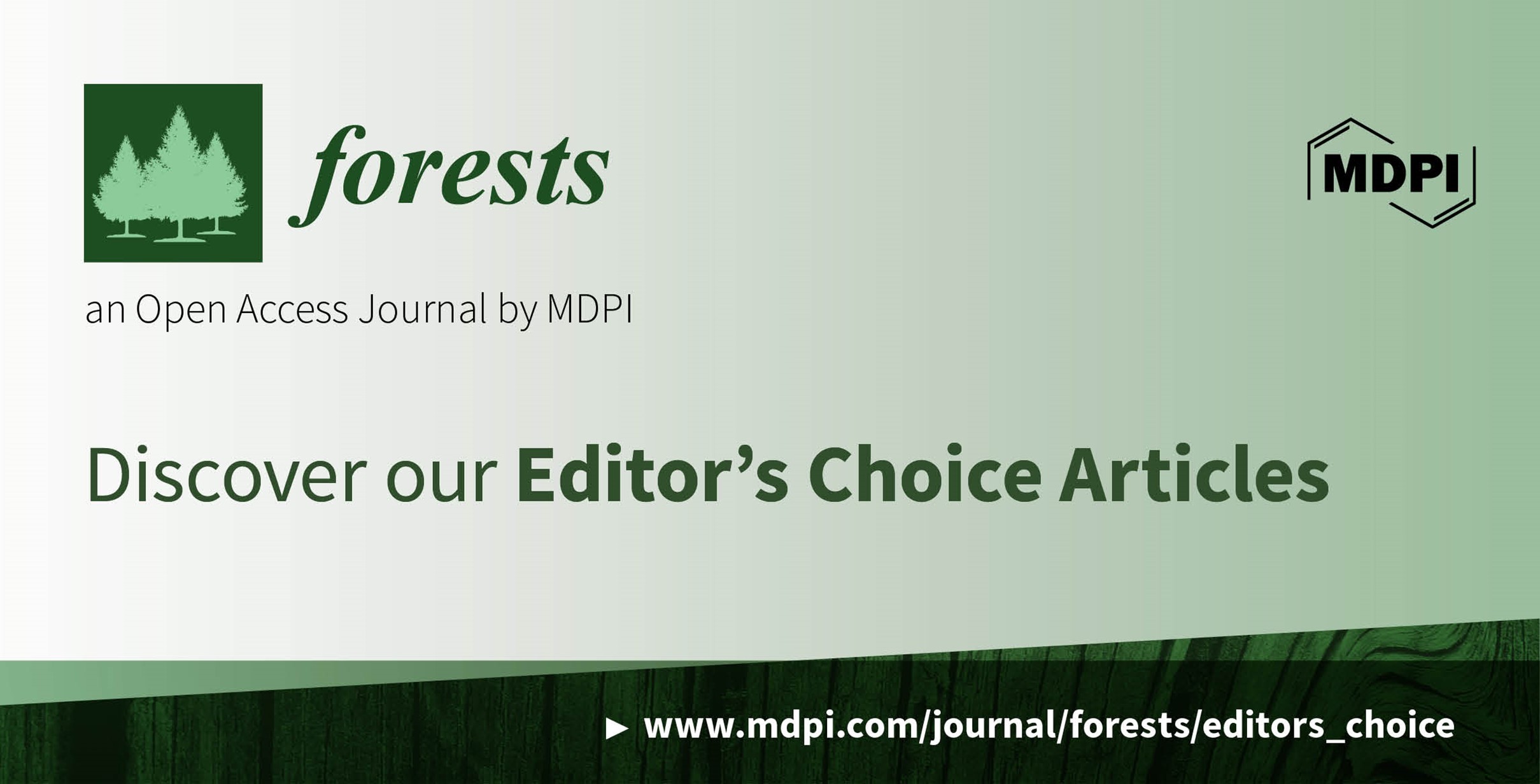
We are pleased to share the following ten Editor's Choice Articles published in Forests (ISSN: 1999-4907). These papers were selected by our Editor-in-Chief from the most notable papers published in Volume 14, Issues 10‒12. All of these papers are of particular interest or importance to our readers, and all have been well received by researchers.
1. “Modeling Above-Ground Carbon Dynamics under Different Silvicultural Treatments on the McDonald–Dunn Research Forest”
by Catherine Carlisle, Stephen Fitzgerald and Hailemariam Temesgen
Forests 2023, 14(10), 2090; https://doi.org/10.3390/f14102090
Available online: https://www.mdpi.com/1999-4907/14/10/2090
2. “Utilizing SIFT-MS and GC-MS for Phytoncide Assessment in Phytotron: Implications for Indoor Forest Healing Programs”
by Yeji Choi, Geonwoo Kim, Soojin Kim, Jae Hyoung Cho and Sujin Park
Forests 2023, 14(11), 2235; https://doi.org/10.3390/f14112235
Available online: https://www.mdpi.com/1999-4907/14/11/2235
3. “Barcoding Hymenoptera: 11 Malaise Traps in Three Thai Forests: The First 68 Trap Weeks and 15,338 Parasitoid Wasp Sequences”
by Donald L. J. Quicke, Paul D. N. Hebert, Mikko Pentinsaari and Buntika A. Butcher
Forests 2023, 14(10), 1991; https://doi.org/10.3390/f14101991
Available online: https://www.mdpi.com/1999-4907/14/10/1991
4. “Evaluation of Forestry Component Survival in Plots of the Program “Sembrando Vida” (Sowing Life) Using Drones”
by José Luis Gallardo-Salazar, Cuauhtémoc Sáenz-Romero, Roberto A. Lindig-Cisneros, Arnulfo Blanco-García and Verónica Osuna-Vallejo
Forests 2023, 14(11), 2117; https://doi.org/10.3390/f14112117
Available online: https://www.mdpi.com/1999-4907/14/11/2117
5. “Ecophysiological Behavior of Fagus sylvatica L. Growing at Its Southern Distribution Limit: Insights for Understanding the Fate of the European Beech under Warmer and Dryer Growth Conditions”
by Maria Prigoliti, Maria Teresa Chiofalo, Francesco Petruzzellis, Maria Assunta Lo Gullo and Patrizia Trifilò
Forests 2023, 14(10), 2058; https://doi.org/10.3390/f14102058
Available online: https://www.mdpi.com/1999-4907/14/10/2058
6. “Assessing the Potential of Urban Trees to Accumulate Potentially Toxic Elements: A Network Approach”
by Marija Matić, Dragana Pavlović, Veljko Perović, Dragan Čakmak, Olga Kostić, Miroslava Mitrović and Pavle Pavlović
Forests 2023, 14(11), 2116; https://doi.org/10.3390/f14112116
Available online: https://www.mdpi.com/1999-4907/14/11/2116
7. “Impact of Chemical Composition on Eucalyptus Wood Clones for Sustainable Energy Production”
by Túlio A. S. Vieira, Paulo F. Trugilho, Sónia A. C. Carabineiro, Antônio José Vinha Zanuncio, Amélia Guimarães Carvalho and Monique Branco-Vieira
Forests 2023, 14(11), 2240; https://doi.org/10.3390/f14112240
Available online: https://www.mdpi.com/1999-4907/14/11/2240
8. “Responses of Stream Water Temperature to Water Levels in Forested Catchments of South Korea”
by Sooyoun Nam, Honggeun Lim, Byoungki Choi, Qiwen Li, Haewon Moon and Hyung Tae Choi
Forests 2023, 14(10), 2085; https://doi.org/10.3390/f14102085
Available online: https://www.mdpi.com/1999-4907/14/10/2085
9. “Temporal Variability in Soil Greenhouse Gas Fluxes and Influencing Factors of a Primary Forest on the Eastern Qinghai-Tibetan Plateau”
by Shun Liu, Da Luo, Gexi Xu, Jiamei Wu, Qiuhong Feng and Zuomin Shi
Forests 2023, 14(11), 2255; https://doi.org/10.3390/f14112255
Available online: https://www.mdpi.com/1999-4907/14/11/2255
10. “Botryosphaeriaceae Species Associated with Stem Canker, Shoot Blight and Dieback of Fraxinus ornus in Italy”
by Alessandra Benigno, Chiara Aglietti, Giovanni Rossetto, Carlo Bregant, Benedetto Teodoro Linaldeddu and Salvatore Moricca
Forests 2024, 15(1), 51; https://doi.org/10.3390/f15010051
Available online: https://www.mdpi.com/1999-4907/15/1/51
We would like to thank all the research groups behind these exceptional papers for their contributions to Forests. We would greatly appreciate it if you would circulate this document among your colleagues or through your network.
If you want to learn more about the contributions published in Editor’s Choice Articles, please click here.
2 January 2024
MDPI Insights: The CEO’s Letter #7 - Nobel Laureates Entrust MDPI with Their Research

Welcome to the MDPI Insights: The CEO's Letter.
In these monthly letters, I will showcase two key aspects of our work at MDPI: our commitment to empowering researchers and our determination to facilitating open scientific exchange.
Opening Thoughts

Nobel Prize Laureates Entrust MDPI with Their Research
The Nobel Prize stands as a hallmark of distinction, honouring ground-breaking research across disciplines. Annually, the Nobel Prizes are awarded in six categories: Physics, Chemistry, Medicine or Physiology, Literature, Peace, and Economic Sciences.
Through the years, renowned scholars have entrusted MDPI with their work. As at December 2023, 26 Nobel laureates have contributed to more than 75 articles across 25 MDPI journals, including: Antibiotics, Applied Sciences, Biology, Biomedicines, Cancers, Catalysts, Cells, Crystals, Entropy, Games, IJMS, Life, Materials, Micromachines, Molecules, Pharmaceuticals, Pharmaceutics, Photonics, Quantum Beam Science, Remote Sensing, Sensors, Solids, Universe, Vaccines, and Viruses.
The best of the best trust us with their work.
Nobel Prize Laureates Who Have Published with MDPI
We are proud to list the names of Pierre Agostini, Hiroshi Amano, Werner Arber, Aaron Ciechanover, Robert H. Grubbs, Oliver Hart, Gerard ‘t Hooft, Michael Houghton, Harald zur Hausen, Katalin Karikó, Jean-Marie Lehn, Gérard Mourou, Ferid Murad, Shuji Nakamura, William Nordhaus, Kostya S. Novoselov, Giorgio Parisi, Charles M. Rice, Alvin E. Roth, Donna Strickland, K. Barry Sharpless, George F. Smoot, Anne L’Huillier, Drew Weissman, Kurt Wüthrich, Ada Yonath.
The privilege of hosting such contributors resonates deeply with our editorial teams. For instance, in this interview, the Editor-in-Chief (EiC) of Universe speaks on the significance of publishing a paper by Nobel laureate Gerard ’t Hooft within the journal.
2023 Nobel Prize Winners Published by MDPI

Nobel Prize Winners, 2023: Katalin Karikó, Drew Weissman, Anne L’Huillier (Ill. Niklas Elmehed © Nobel Prize Outreach)
Three laureates from the 2023 Nobel Prize cohort have trusted MDPI as their publishing platform. Notably, in a 2022 Pharmaceutics paper, molecular biologist Katalin Karikó and her team presented a methodology for evaluating mRNA capping efficiency, pivotal for therapeutic applications. Pharmaceutics had previously dedicated a Special Issue to “mRNA Therapeutics: A Themed Issue in Honor of Professor Katalin Karikó”, spotlighting ten articles from August 2021 to February 2022.
In the journal Vaccines, Professor Drew Weissman, collaborating with scholars from Pennsylvania University and George Mason University, contributed an influential review titled “Nanomaterial Delivery Systems for mRNA Vaccines”. His collaborative efforts spanned five papers across MDPI journals between 2021 and 2023.
Furthermore, Anne L'Huillier of Lund University, only the fifth female recipient of the Physics Prize, co-authored an article in Applied Sciences focusing on "Advanced EUV and X-Ray Optics". Similarly, Pierre Agostini, an Emeritus Professor from Ohio State University, co-authored an article featured in the special issue "Attosecond Science and Technology: Principles and Applications".
We extend heartfelt congratulations to all Nobel Prize laureates and express sincere gratitude for their confidence in MDPI as a platform for their scholarly contributions.
Read more:
Impactful Research

MDPI Journals Newly Indexed in 2023
The aim of indexing is to enhance the quality and credibility of published research, ensuring that researchers access the most credible resources available. While the principle behind citation indexing is straightforward, it remains one of the most dependable methods for tracking an idea's evolution across various scientific disciplines.
Throughout the year, MDPI works to expand the reach of our publications across premier multidisciplinary databases like Web of Science, Scopus, EBSCO, and ProQuest. This initiative is spearheaded by MDPI's Indexing team, under the leadership of Dr. Constanze Schelhorn.
In 2023, MDPI achieved 54 new acceptances in Scopus, 29 in Web of Science, 52 in EBSCO, and 83 in DOAJ: Directory of Open Access Journals.
The team prioritizes ensuring that our journals feature in numerous specialized databases, including PMC, PubMed, MEDLINE, Inspec, CAS, and FSTA, among others. Currently, MDPI collaborates with over 65 renowned international databases, consistently enhancing our database affiliations annually.
MDPI’s journals are indexed in all major global databases.
Furthermore, we collaborate with universities and government organizations to list our journals in country-specific ranking lists and relevant institutional repositories. This ensures compliance with requirements often set by funders or institutions for authors to publish in specific journals.
Web of Science Adds 24 MDPI Journals to Emerging Sources Citation Index (ESCI)
Clarivate recently analysed MDPI’s new journals, resulting in 24 journals, mainly established in 2020, being added to the ESCI in November and December 2023. Additionally, five journals passed this assessment earlier in the year. For a complete list of our journals in Web of Science, refer here. Journals in the ESCI meet 24 quality criteria, ensuring editorial rigor. They may be considered for inclusion in broader indices like the Science Citation Index Expanded (SCIE), the Social Sciences Citation Index (SSCI), or the Arts and Humanities Citation Index (AHCI), based on four impact criteria.
Read more:
Inside MDPI

MDPI Appoints New Chief Operating Officer (COO)

Alistair Freeland returned to MDPI and assumed the role of Chief Operating Officer in November 2023, a position he previously held from 2013 to 2019. He succeeds Dr. Yu Lin, who will remain a member of MDPI’s Board of Directors, overseeing significant financial decisions for the company. I would like to express my sincere thanks to Dr. Yu Lin for his service as COO.
Alistair brings extensive experience not only in scholarly publishing but also in technology and business management. Prior to rejoining MDPI, he was associated with SIX Group, the entity responsible for Switzerland's financial market infrastructure. There, he played a pivotal role in developing the blockchain-based platform SDX (SIX Digital Exchange), which has gained traction among major Swiss banks and the Swiss National Bank.
As COO, Alistair will collaborate with the MDPI management team to improve the practices and services we offer to scholarly communities. I am pleased to welcome Alistair back to MDPI and look forward to his contributions going forward.
Coming Together for Science

MDPI’s 2024 In-Person Academic Events Schedule
MDPI's Conference Team is dedicated to organizing and hosting in-person academic events across Europe, Asia-Pacific, and North America. We recognize conferences as invaluable platforms for scientific collaboration, scholarly exchange, discussions on contemporary topics, networking, and forging collaborations.
Here's a glimpse of the notable events we currently have scheduled for 2024:
|
|
14–16 February, 2024 |
|
|
24–26 April, 2024 |
|
|
28–31 May, 2024 |
|
|
1–4 August, 2024 |
Upcoming events with details to be announced:
- September 2024, Materials 2024 – Basel, Switzerland
- 19–21 September 2024, International Conference on Nanomaterials Sciences 2024 – Beijing, China
- October 2024, ncRNA 2024 – Basel, Switzerland
- November 2024, Pharmaceuticals 2024 – Barcelona, Spain
- 22–26 November 2024, International Conference on Science of Electronics – Wuhan, China
- Stay tuned for more details on the Sustainable Publishing Forum 2024.
Click here for all upcoming MDPI events.
Organize Your Event with MDPI’s Sciforum
Sciforum is MDPI’s platform dedicated to the organization of scientific events. In line with our mission to promote science, Sciforum supports scholars, societies, research networks, and universities at all stages of organizing in-person events, virtual events and webinars. Our platforms are efficient, user-friendly, and cost-effective. We handle all steps related to event management. Contact us for details.
Closing Thoughts

Reflecting on 2023 and Looking Ahead to 2024
As we approach 2024, I reflect on the incredible journey we’ve had together at MDPI this year. The past 12 months have been marked by ambitious projects and initiatives to improve our internal processes, and a commitment to continue delivering top-notch services to our stakeholders. I’d like to thank each and every one of our staff members for contributing to the positive experiences our stakeholders have reported in our surveys. Your dedication to speed, efficiency, and effective communication with our stakeholders is very much recognized and appreciated.
Becoming a stronger organisation
While we have encountered challenges in 2023, it’s important to understand that these are a part of our growth process. Difficulties provide us with opportunities to reflect, address problems at their roots, and ultimately evolve into a stronger organization. Our stakeholders expect us to overcome tough times, and it’s an expectation that we have for ourselves.
I extend my sincere appreciation to every MDPI employee, from our editorial office and IT department to marketing, indexing, IOAP, societies, Scientific Office board, products, production, conferences, finance, operations, admin, and beyond. To our newest team members, a warm welcome; to our longstanding colleagues, your dedication is invaluable.
“I am committed to taking MDPI to a new level of excellence.”
Interacting with many of you during my visits to our offices and representing MDPI at external events has been a personal highlight. I am deeply grateful to Dr. Lin for entrusting me with the role of CEO of MDPI. Looking forward, I am committed to working closely with our management team to lead MDPI and take it to a new level of excellence, aiming to establish it as the most trusted publisher in open access worldwide. This is a collective endeavour, with each of us shaping MDPI’s reputation. I therefore encourage us to take pride in our work, as it represents not only our craft but also MDPI as a whole.
Accountability and communication
As we look forward to 2024, there’s a lot to be excited about. Together, we’ll navigate challenges, seize growth opportunities, and refine our practices. To solidify MDPI’s position as the premier open access publisher globally, we must bolster accountability, improve stakeholder communication, share MDPI’s best practices, champion the open access philosophy, and educate stakeholders about our mission, methodologies, and motivations.
Thank you for engaging with the CEO Letter over the past six months of 2023. I will continue to release this newsletter as a method of sharing the great work being done at MDPI. Please feel free to connect directly with any insights or questions.
Here’s to a joyous and prosperous 2024!
Chief Executive Officer
MDPI AG
29 December 2023
Forests | Invitation to Read Feature Papers from Academic Editors in 2022
We are delighted to present a list of papers from academic editors (Editorial Board Members, Topic Advisory Panel Members, and Guest Editors) of Forests that have been published in 2022. The articles have received a wide range of attention.
“Invasive Insect Pests of Forests and Urban Trees in Russia: Origin, Pathways, Damage, and Management”
by Dmitry L. Musolin, Natalia I. Kirichenko, Natalia N. Karpun, Evgeniy V. Aksenenko, Viktor B. Golub, Ivan A. Kerchev, Michail Y. Mandelshtam, Rimvys Vasaitis, Mark G. Volkovitsh, Elena N. Zhuravleva et al.
Forests 2022, 13(4), 521; https://doi.org/10.3390/f13040521
Available online: https://www.mdpi.com/1999-4907/13/4/521
Cited by 16 | Viewed by 8227
“Water in Wood: A Review of Current Understanding and Knowledge Gaps”
by Emil Engelund Thybring, Maria Fredriksson, Samuel L. Zelinka and Samuel V. Glass
Forests 2022, 13(12), 2051; https://doi.org/10.3390/f13122051
Available online: https://www.mdpi.com/1999-4907/13/12/2051
Cited by 7 | Viewed by 7976
“Environmentally Friendly Starch-Based Adhesives for Bonding High-Performance Wood Composites: A Review”
by Muhammad Iqbal Maulana, Muhammad Adly Rahandi Lubis, Fauzi Febrianto, Lee Seng Hua, Apri Heri Iswanto, Petar Antov Lubos Kristak, Efri Mardawati, Rita Kartika Sari, Lukmanul Hakim Zaini, Wahyu Hidayat et al.
Forests 2022, 13(10), 1614; https://doi.org/10.3390/f13101614
Available online: https://www.mdpi.com/1999-4907/13/10/1614
Cited by 11 | Viewed by 7435
“Cultivation Potential and Uses of Paulownia Wood: A Review”
by Marcin Jakubowski
Forests 2022, 13(5), 668; https://doi.org/10.3390/f13050668
Available online: https://www.mdpi.com/1999-4907/13/5/668
Cited by 13 | Viewed by 6625
“Review of Wood Modification and Wood Functionalization Technologies”
by Samuel L. Zelinka, Michael Altgen, Lukas Emmerich, Nathanael Guigo, Tobias Keplinger, Maija Kymäläinen, Emil E. Thybring and Lisbeth G. Thygesen
Forests 2022, 13(7), 1004; https://doi.org/10.3390/f13071004
Available online: https://www.mdpi.com/1999-4907/13/7/1004
Cited by 16 | Viewed by 6988
“Forest Conservation and Restoration Using the Emberger Index: Cork Oak as Study Case”
by Federico Vessella and Bartolomeo Schirone
Forests 2022, 13(2), 252; https://doi.org/10.3390/f13020252
Available online: https://www.mdpi.com/1999-4907/13/2/252
Cited by 32 | Viewed by 8497
“Combustion of Aboveground Wood from Live Trees in Megafires, CA, USA”
by Mark E. Harmon, Chad T. Hanson and Dominick A. DellaSala
Forests 2022, 13(3), 391; https://doi.org/10.3390/f13030391
Available online: https://www.mdpi.com/1999-4907/13/3/391
Cited by 83 | Viewed by 6642
“A Small Target Forest Fire Detection Model Based on YOLOv5 Improvement”
by Zhenyang Xue, Haifeng Lin and Fang Wang
Forests 2022, 13(8), 1332; https://doi.org/10.3390/f13081332
Available online: https://www.mdpi.com/1999-4907/13/8/1332
Cited by 38 | Viewed by 5296
“Crown Shapes of Urban Trees-Their Dependences on Tree Species, Tree Age and Local Environment, and Effects on Ecosystem Services”
by Eleonora Franceschi, Astrid Moser-Reischl, Mohammad A. Rahman, Stephan Pauleit, Hans Pretzsch and Thomas Rötzer
Forests 2022, 13(5), 748; https://doi.org/10.3390/f13050748
Available online: https://www.mdpi.com/1999-4907/13/5/748
Cited by 10 | Viewed by 4568
“Forest Fire Causes and Motivations in the Southern and South-Eastern Europe through Experts’ Perception and Applications to Current Policies”
by Fantina Tedim, Vittorio Leone, Raffaella Lovreglio, Gavriil Xanthopoulos, María-Luisa Chas-Amil, Anne Ganteaume, Recep Efe, Dominic Royé, Borna Fuerst-Bjeliš, Nikola Nikolov et al.
Forests 2022, 13(4), 562; https://doi.org/10.3390/f13040562
Available online: https://www.mdpi.com/1999-4907/13/4/562
Cited by 9 | Viewed by 4192
28 December 2023
Forests | Invitation to Read Title Story Articles for the Second Half of 2022
We are delighted to present a list of title story articles selected for display at the top of Forests (ISSN: 1999-4907) homepage for the second half of 2022. These articles cover a wide range of topics, including forest wildfires, forest genetics, forest pests and wood science, to name a few. We hope you will find something of interest.
“The Historical Complexity of Tree Height Growth Dynamic Associated with Climate Change in Western North America”
by Yassine Messaoud, Anya Reid, Nadezhda M. Tchebakova, Jack A. Goldman and Annika Hofgaard
Forests 2022, 13(5), 738; https://doi.org/10.3390/f13050738
Available online: https://www.mdpi.com/1999-4907/13/5/738
“Crown Shapes of Urban Trees-Their Dependences on Tree Species, Tree Age and Local Environment and Effects on Ecosystem Services”
by Eleonora Franceschi, Astrid Moser-Reischl, Mohammad A. Rahman, Stephan Pauleit, Hans Pretzsch and Thomas Rötzer
Forests 2022, 13(5), 748; https://doi.org/10.3390/f13050748
Available online: https://www.mdpi.com/1999-4907/13/5/748
“Invasion of Emerald Ash Borer Agrilus planipennis and Ash Dieback Pathogen Hymenoscyphus fraxineus in Ukraine—A Concerted Action”
by Kateryna Davydenko, Yuriy Skrylnyk, Oleksandr Borysenko, Audrius Menkis, Natalia Vysotska, Valentyna Meshkova, Åke Olson, Malin Elfstrand and Rimvys Vasaitis
Forests 2022, 13(5), 789; https://doi.org/10.3390/f13050789
Available online: https://www.mdpi.com/1999-4907/13/5/789
“Comparing Geography and Severity of Managed Wildfires in California and the Southwest USA before and after the Implementation of the 2009 Policy Guidance”
by Jose M. Iniguez, Alexander M. Evans, Sepideh Dadashi, Jesse D. Young, Marc D. Meyer, Andrea E. Thode, Shaula J. Hedwall, Sarah M. McCaffrey, Stephen D. Fillmore and Rachel Bean
Forests 2022, 13(5), 793; https://doi.org/10.3390/f13050793
Available online: https://www.mdpi.com/1999-4907/13/5/793
“Review of Wood Modification and Wood Functionalization Technologies”
by Samuel L. Zelinka, Michael Altgen, Lukas Emmerich, Nathanael Guigo, Tobias Keplinger, Maija Kymäläinen, Emil E. Thybring and Lisbeth G. Thygesen
Forests 2022, 13(7), 1004; https://doi.org/10.3390/f13071004
Available online: https://www.mdpi.com/1999-4907/13/7/1004
“Global Wildfire Susceptibility Mapping Based on Machine Learning Models”
by Assaf Shmuel and Eyal Heifetz
Forests 2022, 13(7), 1050; https://doi.org/10.3390/f13071050
Available online: https://www.mdpi.com/1999-4907/13/7/1050
“Biocontrol of Phytophthora xcambivora on Castanea sativa: Selection of Local Trichoderma spp. Isolates for the Management of Ink Disease”
by Arcangela Frascella, Sabrina Sarrocco, Antonietta Mello, Francesco Venice, Cristina Salvatici, Roberto Danti, Giovanni Emiliani, Sara Barberini and Gianni Della Rocca
Forests 2022, 13(7), 1065; https://doi.org/10.3390/f13071065
Available online: https://www.mdpi.com/1999-4907/13/7/1065
“Heritage Trees as an Important Sanctuary for Saproxylic Beetles in the Central European Landscape: A Case Study from Litovelské Pomoraví, Czech Republic”
by Oto Nakládal, Václav Zumr, Jiří Remeš, Markéta Macháčová and Vítězslava Pešková
Forests 2022, 13(7), 1128; https://doi.org/10.3390/f13071128
Available online: https://www.mdpi.com/1999-4907/13/7/1128
“(Re)Designing Urban Parks to Maximize Urban Heat Island Mitigation by Natural Means”
by Victor L. Barradas, Jennifer A. Miranda, Manuel Esperón-Rodríguez and Monica Ballinas
Forests 2022, 13(7), 1143; https://doi.org/10.3390/f13071143
Available online: https://www.mdpi.com/1999-4907/13/7/1143
“The Unabated Atmospheric Carbon Losses in a Drowning Wetland Forest of North Carolina: A Point of No Return?”
by Maricar Aguilos, Ian Warr, Madison Irving, Olivia Gregg, Stanton Grady, Toby Peele, Asko Noormets, Ge Sun, Ning Liu, Steve McNulty et al.
Forests 2022, 13(8), 1264; https://doi.org/10.3390/f13081264
Available online: https://www.mdpi.com/1999-4907/13/8/1264
“Getting Flow: The Place of Production Forests in the Rise of Mountain Biking”
by Karen M. Bayne, Matthew B. Scott and Richard T. Yao
Forests 2022, 13(8), 1326; https://doi.org/10.3390/f13081326
Available online: https://www.mdpi.com/1999-4907/13/8/1326
“The New EU Forest Strategy for 2030—An Analysis of Major Interests”
by Evgenia Gordeeva, Norbert Weber and Bernhard Wolfslehner
Forests 2022, 13(9), 1503; https://doi.org/10.3390/f13091503
Available online: https://www.mdpi.com/1999-4907/13/9/1503
“Genetic Diversity and Structure of a Diverse Population of Picea sitchensis Using Genotyping-by-Sequencing”
by Tomás Byrne, Niall Farrelly, Colin Kelleher, Trevor R. HodkinsonTrevor R. Hodkinson, Stephen L. Byrne and Susanne Barth
Forests 2022, 13(9), 1511; https://doi.org/10.3390/f13091511
Available online: https://www.mdpi.com/1999-4907/13/9/1511
“Physical and Mechanical Properties of Paulownia tomentosa x elongata Sawn Wood from Spanish, Bulgarian and Serbian Plantations”
by Marius Cătălin Barbu, Katharina Buresova, Eugenia Mariana Tudor and Alexander Petutschnigg
Forests 2022, 13(10), 1543; https://doi.org/10.3390/f13101543
Available online: https://www.mdpi.com/1999-4907/13/10/1543
30 November 2023
MDPI Insights: The CEO’s Letter #6 - MDPI Spain Summit and ResearchGate

Welcome to the MDPI Insights: The CEO's Letter.
In these monthly letters, I will showcase two key aspects of our work at MDPI: our commitment to empowering researchers and our determination to facilitating open scientific exchange.
Opening Thoughts

MDPI Spain Summit

Stefan Tochev (CEO, MDPI) gives the opening speech at the MDPI Spain Summit.
On Friday 10 November 2023 I was in Barcelona, Spain, to deliver the opening presentation and participate in a panel at MDPI’s Spain Summit, a two-day event, inspired by our salon events in China.
With 16 Editors-in-Chief (EiCs) and 20 Editorial Board Members (EBMs) in attendance, the event, organized by our conference team and Barcelona office, featured presentations on open access (OA), MDPI, and publishing market trends in Spain.
The event provided a great opportunity to engage with stakeholders from various MDPI journals, including Nutrients, Vaccines, Buildings, IJMS, and others. We were able to gather feedback and have open conversations around manuscript quality, the peer-review process, and journal development, as well as accreditation agencies.
The main objective of this Summit was to bring together Editors representing MDPI journals across various disciplines within Spanish universities and research centers, primarily from the Barcelona area. The aim was to facilitate an open and fruitful discussion regarding the development of their journals, the future of OA in Spain, and to provide meaningful interactions and networking opportunities.
Connecting with Editorial Board Members

Stefan Tochev in conversation with Summit participants: "Our EBMs are passionate about the journals they serve."
Interacting with our EBMs in person provides a valuable opportunity to show how important it is to us to connect with them, hear their perspectives on their journals and learn more about their own experience collaborating with MDPI.
From my conversations, it was clear that our EBMs are passionate about the journals they serve. I know the advice they provide may sometimes involve just small tweaks, but these can lead to important improvements. As the saying goes, small hinges swing open big doors.
As at November 2023, MDPI has over 6,300 EBMs affiliated with Spanish institutions, with more than 30 of them serving as EiCs or section EiCs. Furthermore, over 68,000 Spanish scholars have contributed as reviewers in MDPI journals.
Open Access in Spain
In 2023, Spain implemented legislation mandating immediate OA for all publicly funded research, aligning with the EU’s Plan S initiative to expedite the transition to OA. The Spanish government also approved a four-year, €23.8 million annual budget for the first national OA strategy, aiming to make publicly funded research freely accessible upon publication. This strategy aims to strengthen the quality and transparency of research in Spain, and to help promote movement towards a digital, low-carbon economy.
For further details of Spain's OA policy and the history of government mandates, click here.
Spain has already seen a notable decline in subscription-only articles, decreasing by 62% over a 10-year period, while gold OA increased by 42%. Green OA slightly decreased, suggesting a shift towards publishing in gold OA journals rather than traditional subscription-based ones. Here are some statistics from Scopus.
A big thank-you to the various MDPI teams, including our conference team and the Barcelona office, for organizing this very successful event!

MDPI colleagues from various offices gathered to host and support the first MDPI Spain Summit, in Barcelona, Spain.
I think this type of gathering has the potential to become an annual event in various locations. For example, Manchester could be an option, as we have over 30 EiCs and over 3,000 EBMs in the UK, a top market for MDPI that publishes high-quality research.
Impactful Research

769 Editorial Board Members of MDPI Journals Recognized as Highly Cited Researchers in 2023
Congratulations to our 769 Editorial Board Members from 40 countries/territories who have been awarded Highly Cited Researcher status for 2023 by Clarivate. This recognition is based on their outstanding scientific research contributions and significant influence in various fields, as evidenced by Web of Science data.
Click here to view the full list of 769 Editorial Board Members.
Clarivate's Highly Cited ResearchersTM list identifies individuals with exceptional impact in scientific and social science domains over the past decade. Their papers rank in the top 1% of citations in 21 fields analysed in ‘Essential Science Indicators,’ showcasing their substantial influence.
This year, 7,125 Highly Cited Researcher 2023 designations were issued to 6,849 individuals from 67 countries, representing just 1 in 1,000 researchers worldwide.
These researchers demonstrate exceptional influence, representing a small fraction of contributors pushing the boundaries of knowledge, contributing to global well-being, sustainability, and security.
Congratulations to these scholars for their remarkable achievement: we are honoured to have them on board with our journals!
Inside MDPI

Corporate Marketing and Communications Strategy Session

Members of MDPI’s Corporate Marketing & Communications team.
For the past few years, I have led the Corporate Marketing & Communications department in our annual strategy session.
This typically involves 2–3 days of focused sessions covering key topics including budgeting, hiring targets, campaign reviews, and planning for the upcoming year, department strategy, and structure.
We are constantly exploring ways to optimize the Corporate Marketing & Communications department to support MDPI’s primary objectives and better convey the MDPI story while serving the scholarly community.
The strategy session also serves as a team-building activity, during which the team voted on bowling!
Strategy Session
In this strategy session, we looked at how to align our teams in order to better streamline our content with our campaigns, build a dedicated marketing team to strategically support our core MDPI products, expand our communications teams and functionalities to focus on company-critical campaigns and press releases, align our new brand design system with our marketing initiatives, set up a community and engagement team to support various teams with their outreach and communication efforts, and increase our use of data in the evaluation of campaign performance.
To grow in these areas, we will be hiring for various positions, including those of Public Relations Manager, Communications Manager, Internal Communications Manager, Campaign Manager, Marketing Associate, and Editorial Engagement Manager.
I am grateful for the way our Corporate Marketing & Communications department has grown and gelled over the years, and I look forward to supporting the department teams and their ideas for the future.
Coming Together for Science

ResearchGate and MDPI Partner to Boost the Visibility of Open Access Content through Journal Home

Stefan Tochev (CEO, MDPI) and Sören Hofmayer (Co-Founder and Chief Strategy Officer, ResearchGate) meet in Berlin, Germany to take their ongoing discussion further.
When I assumed the role of CEO at MDPI, my primary focus was to initiate the building of essential partnerships and collaborations within our industry. After all, I am a firm believer in achieving our goals by helping others achieve theirs and focusing on co-opetition wherever there is an opportunity. I first touched on the notion of co-opetition in MDPI Insights: The CEO's Letter #3, particularly when discussing collaborations with Elsevier.
In light of this, Sören Hofmayer (Co-Founder and Chief Strategy Officer at ResearchGate) and I connected recently to continue a discussion that had been ongoing for months. I was quickly brought up to speed and felt there was an opportunity for MDPI journals to pilot the Journal Home service that ResearchGate had launched. This would provide a new way for MDPI to engage with authors and readers and amplify the visibility of our journals.
While I receive many offers and opportunities for discussions with vendors, I am a firm believer that timing is everything, and in this case, the time for us is now. Sören and I met in person during my recent visit to Berlin and decided to proceed with piloting ten MDPI journals with the Journal Home service.
The press release below provides further details.
Press Release: Berlin (Germany) and Basel (Switzerland), 15 November 2023
ResearchGate, the professional network for researchers, and MDPI, the largest open access publisher in the world and a pioneer in open access publishing, today announced a partnership that will see ten of MDPI’s open access journals benefit from an enhanced presence on ResearchGate through its innovative Journal Home offering.
This new partnership will expand the reach and visibility of MDPI’s participating flagship journals with ResearchGate’s highly relevant community of more than 25 million researchers globally.
Around 210,000 version-of-record articles from these 10 titles will be readily available on ResearchGate, including the full archive material and all new articles as they are published. These journals also benefit from enhanced brand visibility, with dedicated journal profiles, prominent representation on all associated article pages and all relevant touchpoints across the ResearchGate network – keeping the journals top-of-mind with their reader and author audiences. All articles covered by the new partnership will automatically be added to the authors’ publication records in ResearchGate. This not only reduces MDPI authors’ needs for direct management but also offers them valuable insights into the impact of their work, including data about readership and citations.
Closing Thoughts

November is Men’s Health Awareness Month

Stefan Tochev (CEO, MDPI) listening to music as he writes at a coffee shop in Basel, Switzerland.
November is dedicated to raising awareness of various men’s health issues. I have been fortunate to have positive male role models in my life, and I strive to share my experiences with others.
I used to take part in Movember, growing my moustache throughout November to raise awareness and funds and to help “change the face of men’s health.” With male family and friends impacted by physical and mental health issues, I have recently become more interested in men’s overall well-being.
Men often face stigma involving the perceived need always to be strong and have things figured out. Recently, I’ve had meaningful conversations with male friends and colleagues about issues we rarely discuss, and it was a positive experience.
Various factors impact men’s health and well-being, all too easily leading to risky health behaviours including a lack of health awareness, poor health education, and negative, culturally induced, behaviour patterns in our work and personal lives. I hope we can break down these barriers in our work environment.
Healthy men help build healthy families and a healthy society
Men are less likely than women to seek help with their physical and mental health struggles. This is a reminder to prioritize your overall well-being. I hope that as men, we will continue to open up to one another, becoming vulnerable in order to share what we are going through. By sharing and by supporting each other, we can learn and grow together. You are not alone, and when you fall, you can still get up and stand tall.
From one broski to another, you are loved and appreciated. I hope this mindset carries into December and beyond.
Mindfulness
Our content team recently released a handful of articles on mindfulness, a practice that I believe provides a good opportunity for stress release and self-reflection:
Chief Executive Officer
MDPI AG
21 November 2023
769 Editorial Board Members of MDPI Journals Achieve Highly Cited Researcher Recognition in 2023

We extend our sincere congratulations to the 769 Editorial Board Members of our journals – from 40 different countries/territories – who have been recognized as Highly Cited Researchers for the year 2023 by Clarivate. They are being recognized for their high-quality scientific research achievements and outstanding contributions to their professional fields, as indicated by Web of Science data.
Clarivate's annual list of Highly Cited ResearchersTM identifies the most highly cited scientists for the past decade who stand out for their significant and broad influence in various scientific and social science domains. Their impactful papers are among the top 1 per cent in the citation distribution of one or more of 21 fields analyzed in the "Essential Science Indicators", distinguishing them as hugely influential among their peers.
This year, 7,125 Highly Cited Researcher 2023 designations were issued to 6,849 individuals from 67 countries, representing just 1 in 1,000 researchers worldwide.
This means that these researchers have demonstrated an incredible level of significant and broad influence in their chosen field or fields over the last decade. They represent a small fraction of the researcher population whose contributions disproportionately push the boundaries of knowledge, enhancing global well-being, sustainability, and security.
Congratulations to the scholars for their noteworthy achievement – we are honored to have them on board with our journals!
|
Abate, Antonio |
Jaiswal, Amit K. |
Shen, Zexiang |
16 November 2023
Forests | Invitation to Read Selected Papers from Editor’s Choice Articles from Volume 14, Issues 7–9
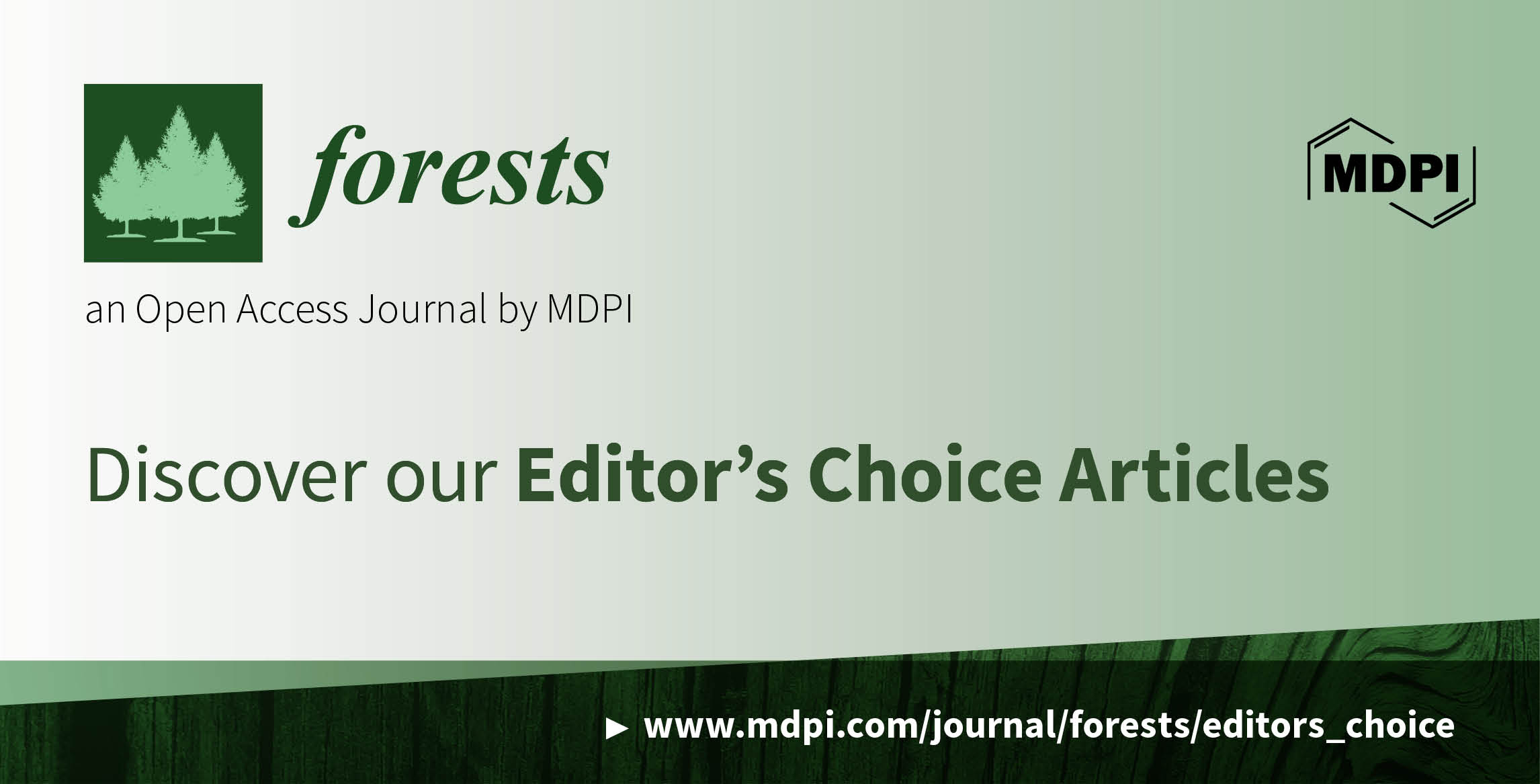
We are pleased to share the following ten Editor's Choice Articles published in Forests (ISSN: 1999-4907). These papers were selected by our Editors-in-Chief as the most notable papers published in Volume 14, Issues 7‒9. All these papers are of particular interest or importance to readers and have all been well received by researchers.
1. “The Wildfire Dataset: Enhancing Deep Learning-Based Forest Fire Detection with a Diverse Evolving Open-Source Dataset Focused on Data Representativeness and a Novel Multi-Task Learning Approach”
by Ismail El-Madafri, Marta Peña and Noelia Olmedo-Torre
Forests 2023, 14(9), 1697; https://doi.org/10.3390/f14091697
Available online: https://www.mdpi.com/1999-4907/14/9/1697
2. “Land Suitability Analysis for Forests in Lebanon as a Tool for Informing Reforestation under Climate Change Conditions”
by Noura Jezzini, Nadine Nassif, Valentina Mereu, Ghaleb Faour, Georges Hassoun and Maurizio Mulas
Forests 2023, 14(9), 1893; https://doi.org/10.3390/f14091893
Available online: https://www.mdpi.com/1999-4907/14/9/1893
3. “Identification of Candidate Genes Involved in Bud Growth in Pinus pinaster through Knowledge Transfer from Arabidopsis thaliana Models”
by José Manuel Alvarez, Sonia María Rodríguez, Francisco Fuente-Maqueda, Isabel Feito, Ricardo Javier Ordás and Candela Cuesta
Forests 2023, 14(9), 1765; https://doi.org/10.3390/f14091765
Available online: https://www.mdpi.com/1999-4907/14/9/1765
4. “Diversity of Phytophthora Species Involved in New Diseases of Mountain Vegetation in Europe with the Description of Phytophthora pseudogregata sp. nov.”
by Carlo Bregant, Giovanni Rossetto, Letizia Meli, Nicolò Sasso, Lucio Montecchio, Ana Brglez, Barbara Piškur, Nikica Ogris, Lucia Maddau and Benedetto Teodoro Linaldeddu
Forests 2023, 14(8), 1515; https://doi.org/10.3390/f14081515
Available online: https://www.mdpi.com/1999-4907/14/8/1515
5. “Recent Applications of Smart Technologies for Monitoring the Sustainability of Forest Operations”
by Rachele Venanzi, Francesco Latterini, Vincenzo Civitarese and Rodolfo Picchio
Forests 2023, 14(7), 1503; https://doi.org/10.3390/f14071503
Available online: https://www.mdpi.com/1999-4907/14/7/1503
6. “Evaluation of Soundscape Perception in Urban Forests Using Acoustic Indices: A Case Study in Beijing”
by Qi Bian, Chang Zhang, Cheng Wang, Luqin Yin, Wenjing Han and Shujing Zhang
Forests 2023, 14(7), 1435; https://doi.org/10.3390/f14071435
Available online: https://www.mdpi.com/1999-4907/14/7/1435
7. “Organic Matter Content in Mangrove Soils from a Karstic Environment: Comparison between Thermogravimetric and Loss-on-Ignition Analytical Techniques”
by José Luis Cortés-Esquivel, Jorge Herrera-Silveira and Patricia Quintana-Owen
Forests 2023, 14(3), 469; https://doi.org/10.3390/f14030469
Available online: https://www.mdpi.com/1999-4907/14/3/469
8. “New Technologies for Expedited Forest Inventory Using Smartphone Applications”
by André Sandim, Mariana Amaro, Maria Emilia Silv, Jorge Cunha, Susana Morais, Alexandra Marques, André Ferreira, José Luis Lousada and Teresa Fonseca
Forests 2023, 14(8), 1553; https://doi.org/10.3390/f14081553
Available online: https://www.mdpi.com/1999-4907/14/8/1553
9. “The Utilization of European Beech Wood (Fagus sylvatica L.) in Europe”
by Maximilian Pramreiter and Michael Grabner
Forests 2023, 14(7), 1419; https://doi.org/10.3390/f14071419
Available online: https://www.mdpi.com/1999-4907/14/7/1419
10. “Volatile Compound Chemistry and Insect Herbivory: Pinus edulis Engelm. (Pinaceae) Seed Cone Resin”
by Tyler M. Wilson, Michael C. Rotter, Emma A. Ziebarth and Richard E. Carlson
Forests 2023, 14(9), 1862; https://doi.org/10.3390/f14091862
Available online: https://www.mdpi.com/1999-4907/14/9/1862
We would like to thank all the research groups behind these exceptional papers for their contributions to Forests. We would greatly appreciate it if you could circulate this announcement among your colleagues or your network.
If you want to learn more about the contributions published in Editor’s Choice Articles, please click here.
6 November 2023
Editorial Board Members from Forests Featured among the World’s Top 2% Scientists in 2023
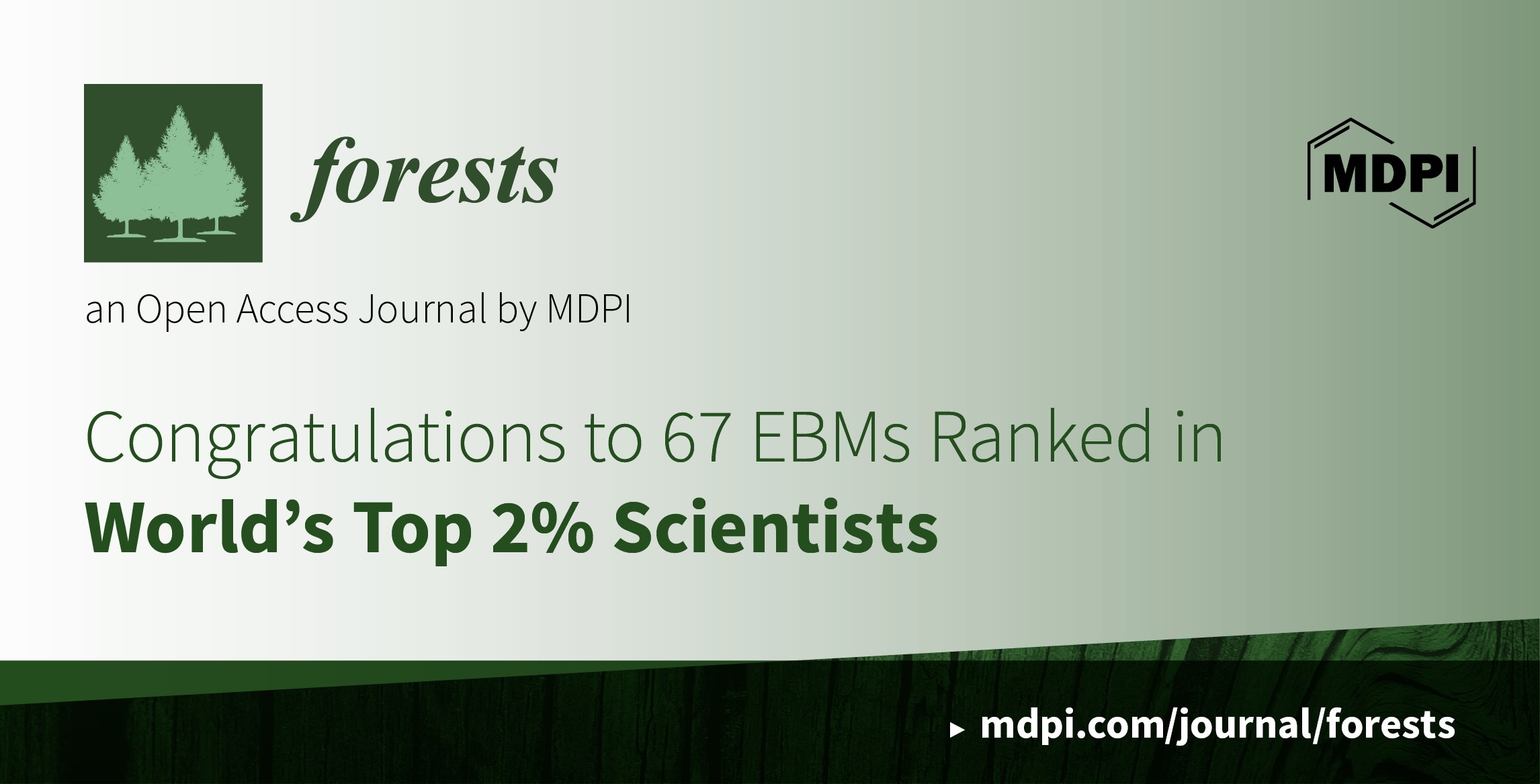
Scientists at Stanford University have recently published an update of the list of the top 2% most widely cited scientists—the World’s Top 2% Scientists.
The time node of the statistical data of this list is from 1960 to 2023, and it is divided into two lists: “Lifetime Scientific Influence Ranking” and “2023 Annual Scientific Influence Ranking”. The “Lifetime Scientific Influence Ranking” counts the comprehensive influence performance of scientists during their careers, and the “2023 Annual Influence Ranking” focuses on highlighting the academic influence of scientists in the previous year. This ranking, considered the most prestigious worldwide, is based on the bibliometric information contained in the Scopus database and includes more than 200,000 researchers from the more than 10 million scientists considered to be active worldwide, with 22 scientific fields and 174 subfields taken into account.
We are pleased to share that 67 Editorial Board Members from Forests (ISSN: 1999-4907) were featured in World’s Top 2% Scientists list in 2023.
|
Name |
Affiliation |
|
Prof. Dr. Timothy A. Martin |
School of Forest Resources and Conservation, PO Box 110410, University of Florida, Gainesville, FL 32611-0410, USA |
|
Prof. Dr. Luis Diaz-Balteiro |
Department of Forest and Environmental Engineering and Management, Universidad Politécnica de Madrid, Madrid, Spain |
|
Prof. Dr. Rodolfo Picchio |
Department of Agricultural and Forest Sciences, University of Tuscia, Via S. Camillo de Lellis, 01100 Viterbo, Italy |
|
Prof. Dr. Adele Muscolo |
Department of Agriculture, Mediterranea University, Feo di Vito, 89122 Reggio Calabria, Italy |
|
Dr. Alessandro Matese |
Institute of BioEconomy, National Research Council (CNR-IBE), Via Caproni 8, 50145 Firenze, Italy |
|
Dr. Blas Mola-Yudego |
School of Forest Sciences, Faculty of Science and Forestry, University of Eastern Finland, Joensuu Campus, PO Box 111 (Yliopistokatu 7), FI-80101 Joensuu, Finland |
|
Dr. Brian J. Palik |
Northern Research Station, USDA Forest Service, Washington, DC, USA |
|
Prof. Dr. Bruno Esteves |
Wood Engineering Programme, Polytechnic Institute of Viseu, Viseu, Portugal |
|
Prof. Dr. Chong Xu |
Geological Hazards Research Center, National Institute of Natural Hazards, Ministry of Emergency Management, Beijing, China |
|
Dr. Chris A. Maier |
Southern Research Station, USDA Forest Service, Research Triangle Park, NC 27541, USA |
|
Prof. Dr. Chris Cieszewski |
Fiber Supply Assessment, WSFNR, University of Georgia, Athens, GA 30602, USA |
|
Prof. Dr. Christian Brischke |
1. Wood Biology and Wood Products, Faculty of Forest Sciences and Forest Ecology, University of Goettingen, Buesgenweg 4, D-37077 Goettingen, Germany |
|
Dr. Christopher Gough |
Department of Biology, Virginia Commonwealth University, 1000 W. Cary Street, Richmond, VA 23284, USA |
|
Prof. Dr. Douglas Godbold |
Institute of Forest Ecology, Department of Forest and Soil Sciences, Universität für Bodenkultur, Peter Jordan Str 82, 1190 Vienna, Austria |
|
Prof. Dr. Dušan Gömöry |
Faculty of Forestry, Technical University in Zvolen, TG Masaryka 24, 96001 Zvolen, Slovakia |
|
Dr. Emil Engelund Thybring |
Bioresource Chemistry & Technology, Department of Geosciences and Natural Resource Management, University of Copenhagen, Rolighedsvej 23, DK-1958 Frederiksberg C, Denmark |
|
Dr. Enzai Du |
Faculty of Geographical Science, Beijing Normal University, Beijing 100875, China |
|
Prof. Dr. František Kačík |
Department of Chemistry and Chemical Technologies, Faculty of Wood Technology and Sciences, Technical University in Zvolen T.G.Masaryka 24, 960 01 Zvolen, Slovakia |
|
Prof. Dr. Gary Peter |
School of Forest Resources and Conservation, Department of Forest Genomics and Cell Biology, University of Florida, Gainesville, FL 32611, USA |
|
Prof. Dr. Geoffrey Daniel |
Department of Forest Biomaterials and Technology/Wood Science, Swedish University of Agricultural Sciences, 750 07 Uppsala, Sweden |
|
Prof. Dr. Gherardo Chirici |
geoLAB-Laboratory of Forest Geomatics, Department of Agricultural, Food, Environmental and Forestry Sciences and Technologies, University of Florence, Via San Bonaventura, 13, 50145 Florence, Italy |
|
Dr. Giorgio Vacchiano |
European Commission, Joint Research Centre, D1 Bio-Economy, Via Enrico Fermi 2749, 21027 Ispra (VA), Italy |
|
Prof. Dr. Giovanna Battipaglia |
Department of Environmental, Biological and Pharmaceutical Sciences and Technologies University of Campania “L. Vanvitelli”, Via Vivaldi 43, I-81100 Caserta, Italy |
|
Dr. Guangyu Wang |
Faculty of Forestry, University of British Columbia, Vancouver, BC V6T 1Z4, Canada |
|
Dr. Guillermo Gea-Izquierdo |
INIA-CIFOR, Ctra. La Coruña km 7.5, 28040 Madrid, Spain |
|
Dr. Heinrich Spiecker |
Institute of Forest Sciences, University of Freiburg, 79106 Freiburg, Germany |
|
Dr. Holger Gärtner |
Forest Dynamics, Dendrosciences, Swiss Federal Research Institute WSL, Zürcherstrasse 111, 8903 Birmensdorf, Switzerland |
|
Prof. Dr. Hubert Hasenauer |
Institute of Silviculture, Department of Forest and Soil Sciences, BOKU University of Natural Resources and Life Sciences, Vienna, Peter Jordan Strasse 70, 1190 Wien, Austria |
|
Prof. Dr. Jarosław Socha |
Department of Forest Resources Management, Faculty of Forestry, University of Agriculture in Krakow, Al. 29-listopada 46, 31-425 Krakow, Poland |
|
Dr. John Innes |
Faculty of Forestry, University of British Columbia, 2045-2424 Main Mall, Vancouver, BC V6T 1Z4, Canada |
|
Dr. Juan A. Blanco |
Institute for Multidisciplinary Applied Biology (IMAB), Department Ciencias, Campus de Arrosadia s/n, Universidad Pública de Navarra (UPNA), 31006 Pamplona, Spain |
|
Dr. Jurij Diaci |
Biotechnical Faculty, Department of Forestry, University of Ljubljana, Vecna Pot 83, 1000 Ljubljana, Slovenia |
|
Dr. Krzysztof Stereńczak |
Department of Geomatics, Forest Research Institute, Braci Leśnej 3 Street, Sękocin Stary, 05-090 Raszyn, Poland |
|
Dr. Kurt Johnsen |
U.S. Forest Service, Asheville, NC 28806, USA |
|
Dr. Laurence Schimleck |
College of Forestry, Oregon State University, Corvallis, OR 97331, USA |
|
Prof. Dr. Lei Deng |
State Key Laboratory of Soil Erosion and Dryland Farming on the Loess Plateau, Institute of Soil and Water Conservation, Northwest A&F University, Xianyang 712100, China |
|
Dr. Leonor Calvo |
Department of Biodiversity and Environmental Management, University of León, E-24071 Leon, Spain |
|
Dr. Manuel Esteban Lucas-Borja |
Department of Agroforestry Technology and Science & Genetics, School of Advanced Agricultural & Forestry Engineering, Castilla La Mancha University, Campus Universitario s/n, C.P. 02071 Albacete, Spain |
|
Prof. Dr. Marcin Pietrzykowski |
Department of Forest Ecology and Silviculture, University of Agriculture in Krakow, al. 29 Listopada 46, 31-425 Krakow, Poland |
|
Prof. Dr. Mark D. Coleman |
Department of Forest, Rangeland, and Fire Sciences, University of Idaho, Moscow, ID 83844, USA |
|
Prof. Dr. Mark S. Ashton |
School of Forestry and Environmental Studies, Yale University, 360 Prospect St, New Haven, CT 06511, USA |
|
Dr. Martin Wiesmeier |
TUM School of Life Sciences Weihenstephan, Technical University of Munich, 85354 Freising, Germany |
|
Dr. Massimiliano Schwarz |
School of Agricultural Forest and Food Sciences, Bern University of Applied Sciences, Länggasse 85, 3052 Zollikofen, Switzerland |
|
Dr. Matthew P. Thompson |
USDA Forest Service, Rocky Mountain Research Station, 240 W Prospect, Fort Collins, CO 80526, USA |
|
Prof. Dr. Miha Humar |
Biotehnical Faculty, University of Ljubljana, Jamnikarjeva 101, 1000 Ljubljana, Slovenia |
|
Prof. Dr. Petar Antov |
Department of Mechanical Wood Technology, Faculty of Forest Industry, University of Forestry, 1797 Sofia, Bulgaria |
|
Prof. Dr. Pete Bettinger |
School of Forestry and Natural Resources, University of Georgia, 180 East Green Street, Athens, GA 30602, USA |
|
Dr. Peter F. Newton |
Canadian Wood Fibre Centre, Canadian Forest Service, Natural Resources Canada, Sault Ste. Marie, ON P6A 2E5, Canada |
|
Dr. Philip Smethurst |
CSIRO Land and Water, Private Bag 12, Hobart 7000, TAS, Australia |
|
Dr. Raffaele Spinelli |
Consiglio Nazionale delle Ricerche Istituto per la Valorizzazione del Legno e delle Specie Arboree (CNR IVALSA), Via Madonna del Piano 10, I-50019 Sesto Fiorentino, Italy |
|
Dr. Rasoul Yousefpour |
Institute of Forestry Economics and Forest Planning,University of Freiburg, Tennenbacherstr. 4, D-79106 Freiburg, Germany |
|
Dr. Ricardo Ruiz-Peinado |
Spanish Institute for Agricultural and Food Research and Technology (INIA), Spanish National Research Council (CSIC), Ctra. A Coruña Km 7'5, 28040 Madrid, Spain |
|
Prof. Dr. Riccardo Valentini |
1. Department of Innovation in Biological Systems, Food and Forestry, University of Tuscia, DIBAF, Via San Camillo de Lellis, 01100 Viterbo, Italy |
|
Dr. Richard D. Bowden |
Environmental Science & Sustainability, Allegheny College, 520 N. Main St., Meadville, PA 16335, USA |
|
Prof. Dr. Robert Bradley |
Département de Biologie, Université de Sherbrooke, Sherbrooke, QC, Canada |
|
Prof. Dr. Robert G. Qualls |
Department of Natural Resources and Environmental Science, University of Nevada, Reno, NV 89557, USA |
|
Prof. Dr. Rodney Will |
Department of Natural Resources Ecology and Management, Oklahoma State University, 008C Agricultural Hall, Stillwater, OK 74078, USA |
|
Prof. Dr. Shibu Jose |
College of Agriculture, Food and Natural Resources, 2-44 Agriculture Bldg., University of Missouri, Columbia, MO 65211, USA |
|
Dr. Steven McNulty |
USDA (United States Department of Agriculture), Southeast Climate Hub, 3041 E Cornwallis Rd Research Triangle Park, Raleigh, NC 27709, USA |
|
Dr. Thomas H. DeLuca |
College of Forestry, Oregon State University, Corvallis, OR 97331-5704, USA |
|
Prof. Dr. Timo Tokola |
School of Forest Science, University of Eastern Finland, 80101 Joensuu, Finland |
|
Prof. Dr. Valentí Rull |
Botanic Institute of Barcelona, Spanish Scientific Research Council (CSIC), Barcelona, Spain |
|
Dr. Wil De Jong |
Center for Southeast Asian Studies, Kyoto University, Kyoto 6068501, Japan |
|
Dr. Xiangdong Lei |
Institute of Forest Resource Information Techniques, Chinese Academy of Forestry, Beijing 100091, China |
|
Prof. Dr. Yaoqi Zhang |
School of Forestry & Wildlife Sciences, Auburn University, Auburn, AL 36849, USA |
|
Prof. Dr. Yunqiang Wang |
Institute of Earth Environment, University of Chinese Academy of Sciences, Xi'an 710061, China |
|
Dr. Zhibin Ren |
Key Laboratory of Wetland Ecology and Environment, Northeast Institute of Geography and Agroecology, Chinese Academy of Sciences, Changchun 130102, China |
The latest rankings reflect the significant influence and research excellence of scientists who are committed to furthering their knowledge for the benefit of the world.
We would like to congratulate our Editorial Board Members on their excellent achievement and thank them for their immense contribution to the scientific progression and development of Forests.
1 November 2023
MDPI Insights: The CEO’s Letter #5 - OA Week, UK, and Strategy

Welcome to the MDPI Insights: The CEO's Letter.
In these monthly letters, I will showcase two key aspects of our work at MDPI: our commitment to empowering researchers and our determination to facilitating open scientific exchange.
Opening Thoughts

Open Access Week 2023 – the Global Drive to Open Continues
As the world's largest open-access (OA) publisher, we believe that unrestricted access to research findings is the cornerstone of transparency, efficiency, and quality control across scientific disciplines. At MDPI, we provide free, immediate access to scientific papers, empowering scientists to examine, validate, replicate, and build upon existing results. This minimizes redundancy, optimizes resources, and fosters innovative approaches.
International OA Week, held from 23 to 29 October 2023, provided a unique opportunity to link the global movement toward open sharing and open science with the progress of policy changes at the local level. Our mission, during OA Week and all the year round, is to offer educational resources highlighting the benefits of open-access publishing. The MDPI Blog is a valuable resource for information on open access and open science.
Core principles of OA publishing
Accessibility, transparency, and collaboration are core principles of OA publishing. OA aims to break down barriers that have traditionally restricted research access, ensuring that knowledge is available to all, regardless of financial situation or institutional affiliations. Our commitment to diverse pathways for OA publishing worldwide includes discounts for researchers. You can learn more about how MDPI supports scientific communities here.
One of the key strengths of OA publishing is its ability to facilitate interdisciplinary research. By removing paywalls and promoting knowledge-sharing across disciplines, OA encourages collaboration and innovation. Researchers from various fields can access and build upon each others’ work, fostering a holistic approach to addressing complex global challenges.
OA holds the potential to democratize knowledge, advance science, and drive positive societal change.
Policy driving change
Governments, institutions, and funding agencies have recognized the transformative potential of OA and have implemented policies to promote it. These policies often require publicly funded research to be made openly accessible, accelerating the growth of OA repositories and journals. Check out our spotlights on OA policies in the US, EU and China.
OA publishing is continuously evolving, with community-driven models and technologies shaping its future. Initiatives such as “Plan S” and “cOAlition S” promote OA publishing from the perspective of national funders, requiring grantees to publish their research openly. A new policy announced by the US administration last year mandates that, with effect from January 2026, all US federally funded research should be freely and immediately available after publication.
Additionally, preprint servers such as MDPI's Preprints.org, which allow researchers to share their findings before formal peer review, have gained popularity, enhancing the speed at which new knowledge is disseminated. The rise of blockchain technology is also being explored to ensure transparency and authenticity in scholarly publishing.
For more than two decades, OA publishing has been revolutionizing academic publishing by promoting accessibility, transparency, and collaboration. Its support for interdisciplinary research, evolving policies, and innovative practices all contribute to its growing influence in the global research community. As OA continues to expand, it holds the potential to democratize knowledge, advance science, and drive positive societal change.
MDPI is proud to lead the transition to open access.
Read more:
Impactful Research

Spotlight on Smart Cities
Smart cities will serve as a cornerstone for future human development. Their implementation will help us tackle many of the significant challenges we are facing – climate change, ageing populations, waste management, public safety, travel, and so on. Recognising the importance of this multifaceted field, MDPI launched the inaugural issue of Smart Cities in 2018 to provide an advanced forum for research into smart technology and society. Here we take a look at how this journal has developed, and its impact in this exciting field.
As at 30 October, 2023, Smart Cities has published 421 papers and has an Impact Factor of 6.4. It also has a CiteScore of 8.5, and more than one quarter of its published papers – 124 – have been cited 10 times or more.
Highly cited papers in Smart Cities
Below are several highly cited papers recently published in Smart Cities. Citation metrics are current as at 31 October 2023.
1. “Introducing the “15-Minute City”: Sustainability, Resilience and Place Identity in Future Post-Pandemic Cities”
Authors: Carlos Moreno, Zaheer Allam, Didier Chabaud, Catherine Gall and Florent Pratlong
Smart Cities 2021, 4(1), 93-111; https://doi.org/10.3390/smartcities4010006
Citations: Crossref (338), Scopus (366), Web of Science (270), Google Scholar (710)
The paper discusses the socio-economic impacts of the COVID-19 on cities, including increasing inequalities and rising unemployment. It introduces the concept of the "15-Minute City," a form of "chrono-urbanism," as a response to the challenges posed by the pandemic.
2. “A Review on Electric Vehicles: Technologies and Challenges”
Authors: Julio A. Sanguesa, Vicente Torres-Sanz, Piedad Garrido, Francisco J. Martinez and Johann M. Marquez-Barja
Smart Cities 2021, 4(1), 372-404; https://doi.org/10.3390/smartcities4010022
Citations: Crossref (359), Scopus (363), Web of Science (268), Google Scholar (558)
This paper provides an overview of the progress in Electric Vehicles (EVs), focusing on battery technology, charging methods, and emerging research challenges. It also analyzes the global EV market and its future outlook.
3. “IoT in Smart Cities: A Survey of Technologies, Practices and Challenges”
Authors: Abbas Shah Syed, Daniel Sierra-Sosa, Anup Kumar and Adel Elmaghraby
Smart Cities 2021, 4(2), 429-475; https://doi.org/10.3390/smartcities4020024
Citations: Crossref (121), Scopus (151), Web of Science (91), Google Scholar (215)
This paper gives an overview of the Internet of Things (IoT) in the context of Smart Cities, discussing the fundamental components, technologies, architectures, networking technologies, and artificial algorithms that underpin IoT-based Smart City systems.
4. “Artificial Intelligence Techniques in Smart Grid: A Survey”
Authors: Olufemi A. Omitaomu and Haoran Niu
Smart Cities 2021, 4(2), 548-568; https://doi.org/10.3390/smartcities4020029
Citations: Crossref (76), Scopus (94), Web of Science (57), Google Scholar (120)
This survey paper reviews the utilization of artificial intelligence (AI) techniques in the context of the smart grid. It covers various applications of AI in load forecasting, power grid stability assessment, fault detection, and security issues in the smart grid and power systems.
5. “The Metaverse as a Virtual Form of Smart Cities: Opportunities and Challenges for Environmental, Economic, and Social Sustainability in Urban Futures”
Authors: Zaheer Allam, Ayyoob Sharifi, Simon Elias Bibri, David Sydney Jones and John Krogstie
Smart Cities 2022, 5(3), 771-801; https://doi.org/10.3390/smartcities5030040
Citations: Crossref (72), Scopus (75), Web of Science (43), Google Scholar (176)
This paper discusses the concept of the Metaverse, a virtual world introduced by Meta (formerly Facebook), and its potential impact on urban life. It explores how emerging technologies such as AI, Big Data, IoT, and Digital Twins could reshape urban design and services in the context of the Metaverse.
Testimonial
“It was indeed a great and pleasant experience with MDPI regarding our recent publication. The submission process was very straightforward and less time-consuming than the norm. The review process was very fast compared to many other open access journals, which is praiseworthy. The support from the Editorial Office during the revision process was highly useful as well. We look forward to publishing with MDPI in the future, and I will most definitely recommend MDPI to my colleagues and collaborators.” – Dr. Luís Rosa, University of Minho
Article in Smart Cities: Mobile Networks and Internet of Things Infrastructures to Characterize Smart Human Mobility
Inside MDPI

MDPI Manchester office, UK Visit

Allie Shi (Editorial Director, MDPI), Stefan Tochev (CEO, MDPI), Jamie Anderson (Manchester Office Manager, MDPI), Michael O’Sullivan (Senior Scientific Officer, MDPI), Hushneara Akhtar, and Becky Castellon (IOAP Team Lead, MDPI), dining out in Manchester, UK.
In October, I visited MDPI’s new office in Manchester. During the visit, I connected with our English Editing (EE) managers, Scientific Officer, members of the Editorial team, the Marketing team, and IOAP Team Lead.
Our Manchester office focuses primarily on EE services and provides local support for the UK market. Additionally, we regularly visit Editorial Board members and participate in local conferences.
I would like to thank Jamie Anderson, Manchester Office Manager, and her team, for their deep commitment to our Manchester staff and to MDPI’s impact on the UK market.
The UK by numbers
The UK is a hub for the world’s top universities, making it a key market for MDPI and the publishing world in general. It is home to two of the top-five-ranked universities globally, 11 in the top 100, and 15 in the top 200.
As a result, the UK plays a key role in MDPI’s global market. As at October 2023, it ranks as the seventh-largest contributor to the total number of papers published by MDPI. We have 3,500 Editorial Board members affiliated with UK institutions, including 34 serving as Editors-in-Chief (EiCs). Our commitment to collaboration with institutions is evident in the UK, where we have successfully established some 60 Institutional Open Access Program (IOAP) agreements with esteemed institutions, such as the University of Oxford, the University of Cambridge, Imperial College London, the University of Edinburgh, and more.
According to InCites Dataset + ESCI for the period 2018–2022, as at October 2023, nearly 65% of UK papers are now published as OA. Just over 10% of total OA publications are by UK authors. UK papers are known for their high quality, with an average of 11 citations per paper. Furthermore, 2.16% of UK papers are in the top 1% of cited papers, and 14.61% are in the top 10% of cited papers, showcasing their impact.
We are currently hiring EEs in various locations worldwide.
English Editing at MDPI
Our English Editing (EE) department consists of two main branches, Quality Control and Learning and Development, reflecting our priorities. We are continuously enhancing the quality of our English Editing services and have raised the relevant standards, which now extend to company-wide communications. English editors participate in international interviews, conduct English assessments, and provide colleagues with presentations on ways to improve their use of written and spoken English.
While expanding, the EE department has proactively refocused its efforts on the quality of our work and how the English Editing department can benefit the company more broadly. We currently have approximately 140 full-time English Editors based across five offices worldwide, supplemented by over 700 freelance English editors.
Our Manchester office serves as the hub for the EE Department, with EE Managers situated there, except for Kurtis Jackson, who serves as the Head of EE and is located in our Basel office. Manchester EEs play a critical role in establishing and developing EE teams in our other offices, overseeing management and recruitment. The EE department plays a vital role in MDPI’s operations, as it is the department that touches every published paper. If this work interests you, I encourage you to explore our available EE positions, whether you are seeking full-time or freelance opportunities.
Testimonials
“MDPI provides an excellent service compared to any other previously used services. It delivers fast and high-quality results but at an affordable price.” – Ardha Apriyanto, University of Potsdam
“In my role as a professor, I consider that MDPI Author Services offer an excellent quality in the editing of Western academic writing while maintaining the required standards of clarity, precision and rigor. Additionally, delivery times are fast compared to other available services.” – Jesus Insuasti, University of Nariño
Read more:
Coming Together for Science

STM and Frankfurt Book Fair
Attending STM
MDPI has been a proud sponsor of the STM Conference for several years. The STM Conference is a dynamic event featuring interactive sessions, expert panellists, idea-sharing, and ample networking opportunities. On 16 October, the event kicked off with arrival drinks, sponsored by MDPI, followed by a welcoming dinner, providing a great chance to connect and network with industry professionals. The following day was filled with speakers, sessions, and further opportunities to connect. STM exemplifies the collaborative spirit of the scientific community, with session topics including achieving open, visible, and impactful research at scale; maintaining research integrity in a rapidly changing world; and exploring the impact of ever-evolving technology in the scholarly community.
Meeting with Web of Science
On a personal note, one of the highlights of STM was a candid and productive conversation with Nandita Quaderi, Editor-in-Chief and SVP at Web of Science. During our discussion, we talked about MDPI, Web of Science, the IJERPH delisting, and ways of moving forward. This open conversation aimed at fostering better collaboration for the future.
“We discussed ways to improve our communication and collaboration.”
I appreciated our frank discussion and felt that Nandita wholeheartedly supports open access. She also expressed her appreciation for the monthly CEO Letter, which she sees as a way to add personality to the MDPI brand and provide insight into the great work we do at MDPI. While we highlighted the positives, we also discussed ways to improve our communication and collaboration moving forward. This meeting alone made the trip worthwhile, and I hope Nandita doesn’t mind my sharing that she found our chat to be “the most honest and constructive discussion” she’s had with someone from MDPI in recent years.
75th Frankfurt Book Fair

Jelena Milojevic (Book Editor, MDPI), Jovana Dubajic (Book Editor, MDPI), Evan Escamilla (Project Manager, MDPI), Laura Wagner (Head of Books, MDPI), and Jenny Knowles (Commissioning Editor, MDPI), at the Frankfurt Book Fair in Frankfurt am Main, Germany.
For the 75th time, the Frankfurter Buchmesse opened its doors in October to celebrate exciting stories and their authors. If you haven’t yet had the chance to visit the Frankfurt Book Fair, I highly recommend it. It’s the largest book fair in the world, attracting thousands of visitors from around the globe. This is the place to gain valuable industry insights from top-class publishing professionals, connect with publishers directly, and learn about the latest trends in publishing.
MDPI Books
Our Books team was also present at the Frankfurt Book Fair, networking and learning from various panels. Did you know that our MDPI Books department publishes OA Books?
The book publishing program includes monographs, book series, edited books and reprints of special issues and topical collections, among other book types.
If you have a book proposal you would like to discuss, please feel free to contact our Books team to understand the benefits and methods of publishing your next book with the OA model.
Closing Thoughts

MDPI Strategy Meeting
As the newly appointed CEO, this is my first year leading the MDPI Senior Management Strategy session. I saw it as an opportunity to explore what MDPI has the potential to become in the next five years. Guided by the vision of its founder and President, Dr. Shu-kun Lin, the company has accomplished remarkable feats over the past 27 years and currently holds the position as the world’s third-largest academic publisher, following Springer Nature and Elsevier.
Our primary objective is to build upon the milestones of the past decades and consolidate MDPI’s position as well-established publishing brand. The two-day meeting emphasized the importance of communicating MDPI’s values more actively via its brand and adopting a straightforward yet impactful approach to managing MDPI as a mature academic publisher.
“Our primary objective is to consolidate MDPI’s position as well-established publishing brand”
As the world’s number one open-access publisher, MDPI has long been a game-changer in the scholarly community, serving millions of authors. The challenge in being a trailblazer is the need to continuously improve and at the same time explore the next blue-ocean strategy, while also maintaining the smooth operation of the business. Our collection model, featuring guest-curated thematic topics in the form of Special Issues, has disrupted the industry. Other publishers closely study us and attempt to replicate our models. The future of this collection model is something we are actively addressing – while, of course, looking ahead to what comes next!
Chief Executive Officer
MDPI AG
19 October 2023
Open Access Week 2023 – the Global Drive to Open Continues

MDPI has been a strong proponent of the open access publishing model right from the beginning. As one of the pioneering fully open access publishers, we firmly believe that unrestricted access to research findings forms the foundation for better transparency, efficiency, and quality control across all scientific disciplines.
In December 2022, we reached a significant milestone by surpassing one million articles published. That is one million articles freely available to all, to circulate and build upon!
Offering free and immediate access to scientific papers empowers scientists to examine, validate, replicate, and expand upon existing results. This not only helps prevent redundancy and optimizes how resources are used but also paves the way for innovative new approaches.
The International Open Access Week takes place from 23 to 29 October 2023, providing a unique opportunity to connect the global movement towards open sharing and open science with the progress of policy transformations at the local level.
Our goal, during Open Access Week as well as throughout the year, is to offer resources for educating people about the benefits of open access publishing. The MDPI Blog offers a wealth of information around open access and open science.
Promoting the values of accessibility, transparency, and collaboration
Open access publishing embodies the fundamental values of democratizing knowledge and fostering global accessibility. It aims to break down barriers that have traditionally limited access to scholarly work, ensuring that knowledge is available to all, regardless of their financial or institutional affiliations.
Discounts are part of our commitment to ensuring there are diverse pathways to Open Access publishing for researchers worldwide. MDPI supports scientific communities in several different ways.
One of the key strengths of open access publishing lies in its ability to facilitate interdisciplinary research. By removing paywalls and promoting the sharing of knowledge across disciplines, OA encourages collaboration and innovation. Researchers from diverse fields can access and build upon each other's work, fostering a holistic approach to addressing complex global challenges.
Funders' policies are getting aligned with open science
Governments, institutions, and funding agencies have recognized the transformative potential of open access and have implemented policies to promote it. These policies often mandate that publicly funded research should be made openly accessible. Such initiatives have accelerated the growth of open access repositories and journals, reinforcing the commitment to open access principles. Check our spotlights on OA policies in the US, EU and China.
Open access publishing is continually evolving, with innovative and community-driven models and technologies shaping its future. Initiatives like "Plan S" and "cOAlition S" promote the adoption of OA publishing from the national funders’ perspective by requiring grantees to publish their research openly. A new policy announced by the US administration last year requires that, as of January 2026, all US federally funded research be made freely and immediately available after publication.
Additionally, preprint servers such as MDPI's Preprints.org, which allow researchers to share their findings before formal peer review, have gained popularity, enhancing the speed at which new knowledge is disseminated. The rise of blockchain technology is also being explored to ensure transparency and authenticity in scholarly publishing.
For more than twenty years, open access scholarly publishing has been revolutionizing academia by promoting the values of accessibility, transparency, and collaboration. Its support for interdisciplinary research, evolving policies, and innovative practices all contribute to its growing influence in the global research community. As open access continues to expand, it holds the potential to democratize knowledge, advance science, and drive positive societal change.
MDPI is proud to be a leader in the transition to open access.
2 October 2023
MDPI Insights: The CEO’s Letter #4 - MDPI Presence in China

Welcome to the MDPI Insights: The CEO's Letter.
In these monthly letters, I will showcase two key aspects of our work at MDPI: our commitment to empowering researchers and our determination to facilitating open scientific exchange.
Opening Thoughts

Open Access in China
It is Saturday, 23 September, and I have just returned from an unforgettable 12-day trip to China, visiting our main offices in Beijing and Wuhan. In the wake of a packed and very enjoyable agenda of internal and external meetings, I would like to use this edition of the CEO Letter to showcase how MDPI supports the scholarly community in China.
Coincidentally, Jack McKenna, Communications Associate from MDPI’s corporate content team, has just released a blog article discussing China’s open access (OA) policy. It is a timely read, providing a concise overview of the development of the OA movement in China and reflecting on its future. I shall draw some content from Jack’s piece and use this edition of the CEO Letter to highlight the various ways in which MDPI is involved in this market. And it would be remiss of me not to include some pictures and highlights from my travels!
Open Access Policy in China
As per Jack’s post, in 2020, China became the world’s leading producer of research articles. Today, China is experiencing a “substantial growth rate in OA [Open Access] publication”. This growth is supported by the State’s commitment to research & development and its policy “requiring the promotion of open science”.
Over the past two decades, there have been gradual developments in China’s OA framework, with repositories and platforms being developed in a consistent manner. Currently, key institutions across China – including the National Science Library, the National Science and Technology Library, and the Natural Science Foundation of China – support OA. The State aims to establish consistent policies across government agencies – a framework for a more encompassing embrace of OA across institutions.
In China, the number of subscription-only articles decreased by nearly 30% over the 10-year period of 2011–2021, while gold OA increased by 22%. Between 2017 and 2020 alone, China published 800,921 academic papers in an OA format.
In 2023, as the leading publisher of academic research, China is pursuing “self-reliance”. Therefore, the State will be establishing consistent policies across government agencies, including those related to OA. Additionally, it will want to ensure that Chinese people can access the research that is supported by Chinese funding and produced by Chinese academics. For this reason, “Open Access is a matter of priority in China”.
MDPI Offices in China
While the history of MDPI begins in Basel, Switzerland, the story of MDPI’s founder is very much rooted in China. Dr. Shu-kun Lin, Founder and President of MDPI, graduated with a BSc from Wuhan University in 1982. He also studied physical chemistry at the Lanzhou Institute of Chemical Physics, Chinese Academy of Sciences (1982–1986; MSc in 1985), and at the University of Louisville, USA (1987–1989). Dr. Lin completed his doctorate in organic chemistry at the Swiss Federal Institute of Technology (ETH-Zürich) in 1992.

Stefan Tochev (CEO, MDPI) at MDPI’s Wuhan office.
In 2002, MDPI’s Basel headquarters moved to Matthäusstrasse 11, 4052 Basel, and Dr. Lin opened an editorial office in Qingdao, China, which launched the journal Marine Drugs in the following year. Below is a list of MDPI’s current offices in China and their respective dates of inauguration:
- 2008: Beijing (Tongzhou, Haidian)
- 2013: Wuhan (Hankou, Guanggu)
- 2019: Tianjin
- 2021: Dalian
- 2021: Nanjing
Our Strength is in Our People
With over 6,000 MDPI staff, across 20 offices in 11 countries, MDPI is able to offer authors responsive and efficient round-the-clock support, enabling a rapid publication process.
In my experience, stakeholders are genuinely surprised when they realize the extent of our global operations. My response is to reiterate that our people are our strength. This is why we have fast and efficient processes and top-notch responsiveness. Our global presence ensures that your manuscript is constantly attended to, rather than sitting on someone’s desk. We prioritize our authors’ needs and act quickly to move things through the various stages of publication. MDPI is built on speed, convenience, and competence, which I believe are core pillars for success in any industry. We continually strive to improve our systems and processes on the basis of these core strengths. We literally have over 6,000 staff worldwide dedicated to serving your needs. It’s not magic: it’s people; it’s real.
Impactful Research

MDPI Awards
To support the academic community, and especially young researchers, and also to enhance communication among scientists, MDPI journals offer various awards in specific fields. We serve the scientific community by funding research to facilitate the development of sustainable global solutions through our annual World Sustainability Award and Emerging Sustainability Leader Award.
In 2022, MDPI made awards totalling over US$1 million in recognition and support of researchers worldwide.
Across our journal catalogue, we have granted over 2,000 awards to recognize and support researchers from all disciplines. Since 2016, these awards have served as a source of recognition, acknowledging the impact of research by heightening the influence of talented individuals. The award types mainly include the Young Investigator Award, the Best PhD Thesis Award, the Best Paper Award, and the Outstanding Reviewer Award.
To learn more about MDPI Awards and to find out which are currently available, please click here.
MDPI Awards to Scholars from China
Since 2021, there have been 23 Best Paper Awards granted to authors affiliated with Chinese institutions, identifying their papers as having high-quality scientific impact. A total of 45 Chinese scholars have received awards such as the Young Investigator Award, the Best PhD Thesis Award, the Outstanding Reviewer Award, and the Tu Youyou Award, among others. Prizes for these awards include MDPI grants for paid publications, totalling over CHF 70,000 for scholars affiliated with Chinese institutions.
MDPI’s Tu Youyou Award

Prof. Tu Youyou (left), Dr. Shu-Kun Lin (President, MDPI).
In 2015, Professor Tu Youyou was awarded the Nobel Prize in Physiology or Medicine “for her discoveries concerning a novel therapy against Malaria.” In order to commemorate Professor Tu’s contributions to human health and to promote the passion and spirit conveyed by her experiences, MDPI in 2016 established the ‘Tu Youyou Award’, which runs biennially to recognize outstanding scholars dedicated to the research of natural products and medicinal chemistry.
The 2022 Tu Youyou Award was granted to Prof. Dr. Xiaoguang Lei of Peking University. Click here to access the interview with the winner.
2015 Nobel Prize for Medicine Awarded to Professor Youyou Tu
Professor Tu’s work was celebrated in a Special Issue from Molecules on the occasion of her 80th birthday. The Special Issue: 'Artemisinin (Qinghaosu): Commemorative Issue in Honor of Professor Youyou Tu on the Occasion of her 80th Anniversary” was created five years before she won the Nobel Prize, highlighting the visibility MDPI provides researchers and their work.
Highly Cited Articles by Chinese Scholars Published in MDPI
Click here to access the most cited MDPI papers published by scholars affiliated with Chinese institutions. This list presents the most influential research from the more than 287,000 MDPI papers published by Chinese scholars. With over 9 million total citations, I encourage you to maximize your visibility and impact by publishing with MDPI, the number one most cited open access publisher.
Read more:
- Tu Youyou Award
- World Sustainability Awards
- Available Awards
Inside MDPI
 Stefan Tochev (CEO, MDPI) with the Beijing Marketing team.
Stefan Tochev (CEO, MDPI) with the Beijing Marketing team.
Marketing Department in China
During my visit to our offices in Beijing and Wuhan, I had the opportunity to meet with, and to present to, our local marketing teams. These teams are responsible for various journal-related and corporate promotional activities, including newsletters, conferences, seminars, author training, journal awards, content creation, digital marketing, and social media.
I was pleased by the ambition and curiosity of our marketing colleagues. They showed a strong desire to collaborate and acquire knowledge and tactics to effectively market and promote MDPI-journal-related activities. I presented some of the principles and objectives that we apply in the Corporate Marketing and Communications department, and used the opportunity to strengthen our collaborative communications across offices.
 Stefan Tochev (CEO, MDPI) with the Wuhan Marketing team.
Stefan Tochev (CEO, MDPI) with the Wuhan Marketing team.
Coming Together for Science

Collaborations, Scholarships and Meetings
MDPI maintains partnerships with nearly 190 learned societies and over 800 institutions and consortia, helping to facilitate the transition to OA publishing. Our commitment to working with institutions is evident in China, where we have successfully established over 35 Institutional Open Access Programs (IOAP) with esteemed institutions such as the Tsinghua University, Huazhong University of Science and Technology, and Shanghai Jiao Tong University.
Our institutional partnerships, waiver programs, and article processing cost discounts create diverse pathways to OA publishing for researchers worldwide.
Scholarships in China
Since 2021, several MDPI journals (Sensors, Photonics, Coatings, Materials, Energies, and Journal of Fungi) have funded full scholarships for four Master’s and five Ph.D. projects in China. These scholarships align with Tianjin University, Wuhan University of Technology, Central South University, the Chinese Academy of Sciences, and the China University of Petroleum (Beijing).
Meeting with the Society of Chinese University Journals (CUJS)

Prof. Tieming Zhang (President of CUJS, centre) and MDPI colleagues at CUJS office.
I am pleased to have participated in some highly productive meetings during my visit to China, including one with the Society of Chinese University Journals (CUJS). The meeting involved Prof. Tieming Zhang (President of CUJS), Assoc. Prof. Xin Zhang (Vice President and Secretary General), and Dr. Fei Gao (Executive Member of CUJS). Alongside my colleagues Dr. Guoshi Liu, Dr. Giulia Stefenelli, and Anita Sun, I represented MDPI and held an open discussion to address any questions regarding OA and MDPI.
We discussed several methods for collaboration, including a workshop on the future of peer review, MDPI sponsoring a funding grant for early-career researchers, and transitioning journals from diamond to gold OA. I am thankful for the opportunity to have met our colleagues at CUJS in person and feel very confident about our future collaborations in support of OA publishing in China.
MDPI hosts free academic seminars, author training sessions, and academic conferences as part of its commitment to enrich and support the scholarly community. CUJS often stages academic events (e.g., conferences, editor training, and editor competitions), and I believe there are great opportunities for CUJS and MDPI to collaborate accordingly.
Meeting with National Science Library, Chinese Academy of Sciences (NSLC)

Stefan Tochev (CEO, MDPI), Dr. Giulia Stefenelli (Chair of Scientific Officers, MDPI), Anita Sun (PR Manager, MDPI) and Dr. Guoshi Liu (Managing Director, MDPI) at the National Science Library, Chinese Academy of Sciences.
We also visited the NSLC Director, Xiwen Liu, and colleagues Ying Jin, Zhesi Shen, and Sichao Tong. Following our introductions, we gave a presentation on the history and editorial process at MDPI, discussing specific details related to MDPI’s business and data. We highlighted the status of our IOAP collaborations in China and the makeup of our author base, specifically in China, and drew attention to the fact that MDPI has published research by authors from every country in the world. We then discussed the design indicators, calculation methods and implementation purposes of the ‘Early Warning Journal List’ and how we can have open communication to provide any data regarding MDPI journals. I am pleased to report that we reached a consensus on future communications, and am grateful to NSLC for hosting us in their offices.
In-person meetings with stakeholders provide an invaluable opportunity to communicate what MDPI is about and the various ways in which we serve the scholarly community. While digital marketing and online communication are essential, they are no replacement for the understanding and trust that come about through in-person interactions.
The Numbers
As at September 2023, China holds the largest position in MDPI’s global market, ranking as the largest contributor to the total number of papers published by MDPI.
At this point in time, there were more than 847,000 China mainland scholars who have published with MDPI, 51 of whom are Section-Editors-in-Chief (SEiC) of MDPI journals, with seven serving as Editors-in-Chief (EiCs) for journals such as Air, Big Data and Cognitive Computing, Blockchains, Future, Nanoenergy Advances, and Targets.
Our growth and presence in China are a true testament to the service we provide to the scholarly community, and to the relationships we foster through collaborative activities. We look forward to continuing to support the growth of the scholarly community in China, providing a valuable and trusted experience with MDPI.
Closing Thoughts
Final Reflections on our MDPI Offices in Beijing and Wuhan

Stefan Tochev (CEO, MDPI), Dr. Constanze Schelhorn (Indexing Manager, MDPI), Jiale Shang (Admin, Tongzhou, MDPI) at Beijing Capital International Airport, Beijing.
I spent approximately two weeks visiting some of our offices in China, and the first word that comes to mind when describing my experience is ‘hospitality.’ My colleagues and I were met with enthusiasm and delight at the airport by the Tongzhou Admin team (thank you, Jiale Shang, and thank you, Eric Wang, for keeping us organized on this trip!) and were taken care of with great attention. From hotels to transportation, dinners, and meetings, our stay was catered for perfectly.
Perhaps this is where MDPI’s focus on customers and service originates. At our core, we are a service company that provides a publishing platform for its authors. It’s therefore no surprise that authors consistently rate their experience with MDPI very highly.
95% of submitting authors rate their overall experience with the MDPI publication process as Excellent or Good (Springer Nature report 90%).
91% of submitting authors rate their overall experience with the MDPI peer review process as Excellent or Good.
Speed/Efficiency and Editorial Relationship are two key reasons underlying this high satisfaction score. ‘Editorial Relationship’ can be further explored, but in the past month, the most commonly noted aspects were the professionalism, kindness, availability, communicativeness, and personalized assistance provided by our editorial staff throughout the process. These attributes are at the core of our work across all our offices and continents.
Hospitality and Service
Just as our Chinese colleagues strove to keep us engaged by showing us the city sights (thank you, Thea Pan, and Jason Wu from the Wuhan Marketing team!) and sharing a variety of wonderful meals, our editorial staff are committed to serving our authors throughout their publishing journey. Our aim is to place the author at the centre of everything we do, eager to welcome our ‘guests’ and provide them with a pleasant publishing experience.
I asked my colleague Francis Wu (Senior Publisher, Wuhan office) where this hospitality originates. He responded that it is part of Chinese culture. I reflected long and deep on this answer. China is a vast country, and when visitors arrive, hosts want to ensure they feel welcomed and taken care of in order to maximize their time and visit. I can’t think of a better analogy for how I would want our authors to feel when they visit MDPI for their publishing needs. A company culture that prioritizes service, something that goes beyond products and productivity, and focuses on the overall experience. Over 6,000 people, across all MDPI offices, are ready, willing and able to go the extra mile for their colleagues and their customers. This is something I am truly proud of.
Chief Executive Officer
MDPI AG
25 September 2023
Meet Us at the 22nd China Conference on Ecology, 27–30 October 2023, Beijing, China

MDPI journals will be attending the 22nd China Conference on Ecology as exhibitors. This meeting will be held in Beijing, China, from 27 to 30 October 2023.
The conference is being organized by the Ecological Society of China and will be held at the China National Convention Center. Domestic and overseas experts, scholars, and outstanding young scientists who have made outstanding contributions to ecology and related fields will be invited to give academic reports.
The following MDPI journals will be represented:
- Diversity;
- Land;
- Plants;
- Forests;
- Environments;
- Water;
- Ecologies;
- World;
- Sustainability;
- Earth.
If you are planning to attend this conference, please feel free to start a conversation with us. Our delegates look forward to meeting you in person and answering any questions that you may have. For more information about the conference and our booth, please visit the following webpage: https://esc2023.scimeeting.cn/cn/web/index/17981.
15 September 2023
Forests | Invitation to Read 2021–2022 Highly Cited Papers in Web of Science
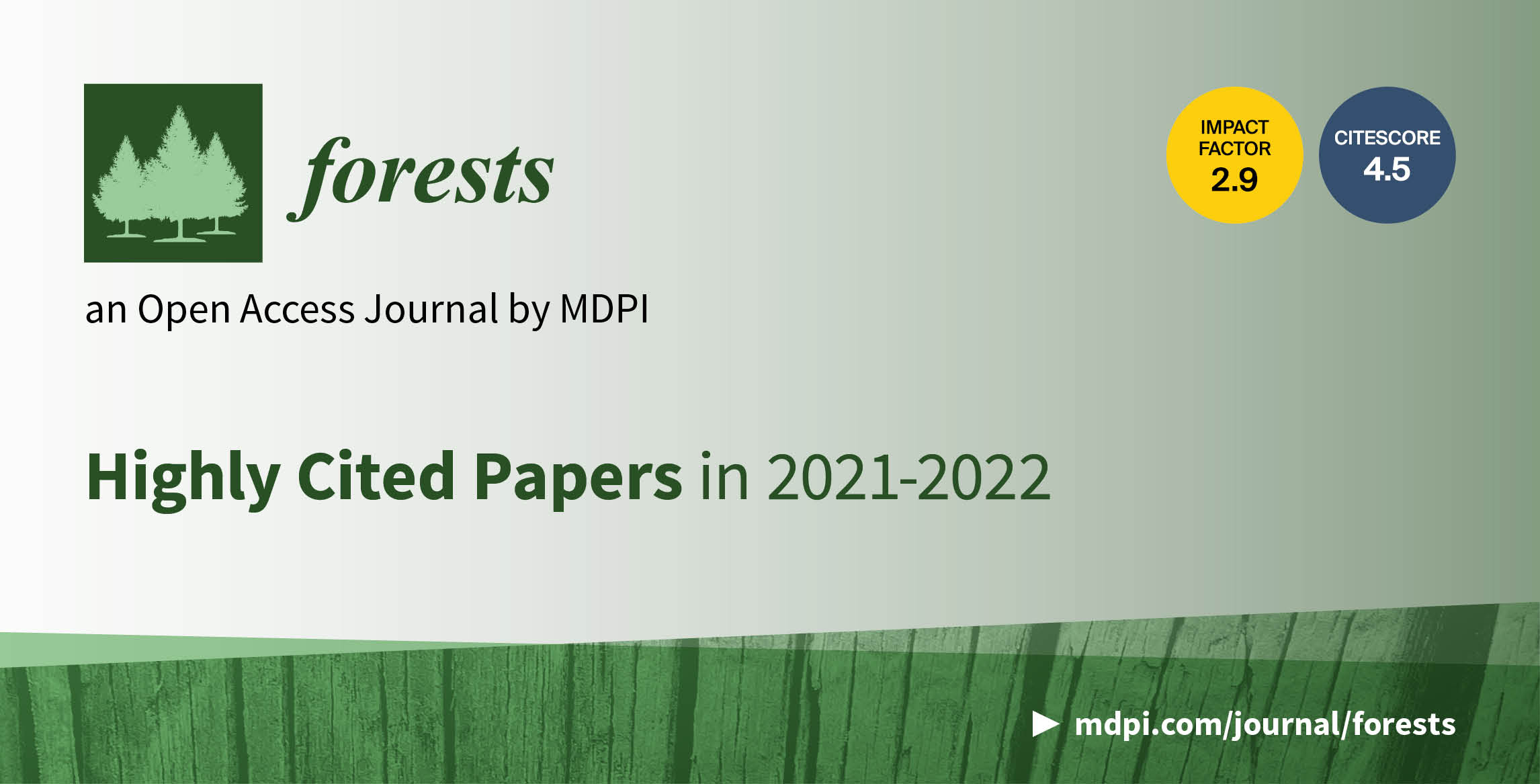
We are delighted to present a list of papers from 2021 and 2022 that have been highly cited in Web of Science. A curated list of high-quality articles from Forests (ISSN: 1999-4907) is shown below.
“Structure and Stability of Agroforestry Ecosystems: Insights into the Improvement of Service Supply Capacity of Agroforestry Ecosystems under the Karst Rocky Desertification Control”
by Shilian Jiang, Kangning Xiong and Jie Xiao
Forests 2022, 13(6), 878; https://doi.org/10.3390/f13060878
Available online: https://www.mdpi.com/1999-4907/13/6/878
Cited by 16 | Viewed by 2216
“Estimating Aboveground Biomass in Dense Hyrcanian Forests by the Use of Sentinel-2 Data”
by Fardin Moradi, Asghar Darvishsefat, Manizheh Rajab Pourrahmati, Azade Deljouei and Stelian Alexandru Borz
Forests 2022, 13(1), 104; https://doi.org/10.3390/f13010104
Available online: https://www.mdpi.com/1999-4907/13/1/104
Cited by 21 | Viewed by 2439
“Physiology of Plant Responses to Water Stress and Related Genes: A Review”
by Jiaojiao Wu, Jingyan Wang, Wenkai Hui, Feiyan Zhao, Peiyun Wang, Chengyi Su and Wei Gong
Forests 2022, 13(2), 324; https://doi.org/10.3390/f13020324
Available online: https://www.mdpi.com/1999-4907/13/2/324
Cited by 32 | Viewed by 7342
“Combination of Feature Selection and CatBoost for Prediction: The First Application to the Estimation of Aboveground Biomass”
by Mi Luo, Yifu Wang, Yunhong Xie, Lai Zhou, Jingjing Qiao, Siyu Qiu and Yujun Sun
Forests 2021, 12(2), 216; https://doi.org/10.3390/f12020216
Available online: https://www.mdpi.com/1999-4907/12/2/216
Cited by 65 | Viewed by 5507
“Recent Advances in Forest Insect Pests and Diseases Monitoring Using UAV-Based Data: A Systematic Review”
by André Duarte, Nuno Borralho, Pedro Cabral and Mário Caetano
Forests 2022, 13(6), 911; https://doi.org/10.3390/f13060911
Available online: https://www.mdpi.com/1999-4907/13/6/911
Cited by 16 | Viewed by 3809
“Conservation of Waterlogged Wood-Past, Present and Future Perspectives”
by Magdalena Broda and Callum A. S. Hill
Forests 2021, 12(9), 1193; https://doi.org/10.3390/f12091193
Available online: https://www.mdpi.com/1999-4907/12/9/1193
Cited by 41 | Viewed by 8337
“Global Change and Forest Disturbances in the Mediterranean Basin: Breakthroughs, Knowledge Gaps, and Recommendations”
by Josep Peñuelas and Jordi Sardans
Forests 2021, 12(5), 603; https://doi.org/10.3390/f12050603
Available online: https://www.mdpi.com/1999-4907/12/5/603
Cited by 42 | Viewed by 7218
“Recent Advances in Unmanned Aerial Vehicle Forest Remote Sensing-A Systematic Review. Part I: A General Framework”
by Riccardo Dainelli, Piero Toscano, Salvatore Filippo Di Gennaro and Alessandro Matese
Forests 2021, 12(3), 327; https://doi.org/10.3390/f12030327
Available online: https://www.mdpi.com/1999-4907/12/3/327
Cited by 39 | Viewed by 5986
“Forest Fire Probability Mapping in Eastern Serbia: Logistic Regression versus Random Forest Method”
by Slobodan Milanović, Nenad Marković, Dragan Pamučar, Ljubomir Gigović, Pavle Kostić and Sladjan D. Milanović
Forests 2021, 12(1), 5; https://doi.org/10.3390/f12010005
Available online: https://www.mdpi.com/1999-4907/12/1/5
Cited by 47 | Viewed by 5672
“Experiencing Urban Green and Blue Spaces in Urban Wetlands as a Nature-Based Solution to Promote Positive Emotions”
by Hongyan Li, Jiaxi Peng, Yang Jiao and Shengshu Ai
Forests 2022, 13(3), 473; https://doi.org/10.3390/f13030473
Available online: https://www.mdpi.com/1999-4907/13/3/473
Cited by 13 | Viewed by 2352
“A Forest Fire Detection System Based on Ensemble Learning”
by Renjie Xu, Haifeng Lin, Kangjie Lu, Lin Cao and Yunfei Liu
Forests 2021, 12(2), 217; https://doi.org/10.3390/f12020217
Available online: https://www.mdpi.com/1999-4907/12/2/217
Cited by 225 | Viewed by 14041
“Individual Tree Crown Segmentation Directly from UAV-Borne LiDAR Data Using the PointNet of Deep Learning”
by Xinxin Chen, Kang Jiang, Yushi Zhu, Xiangjun Wang and Ting Yun
Forests 2021, 12(2), 131; https://doi.org/10.3390/f12020131
Available online: https://www.mdpi.com/1999-4907/12/2/131
Cited by 53 | Viewed by 7570
“A Small Target Forest Fire Detection Model Based on YOLOv5 Improvement”
by Zhenyang Xue, Haifeng Lin and Fang Wang
Forests 2022, 13(8), 1332; https://doi.org/10.3390/f13081332
Available online: https://www.mdpi.com/1999-4907/13/8/1332
Cited by 26 | Viewed by 4299
“Review of Wood Modification and Wood Functionalization Technologies”
by Samuel L. Zelinka, Michael Altgen, Lukas Emmerich, Nathanael Guigo, Tobias Keplinger, Maija Kymäläinen, Emil E. Thybring and Lisbeth G. Thygesen
Forests 2022, 13(7), 1004; https://doi.org/10.3390/f13071004
Available online: https://www.mdpi.com/1999-4907/13/7/1004
Cited by 24 | Viewed by 5822
“Maxent Modelling Predicts a Shift in Suitable Habitats of a Subtropical Evergreen Tree (Cyclobalanopsis glauca (Thunberg) Oersted) under Climate Change Scenarios in China”
by Lijuan Zhang, Lianqi Zhu, Yanhong Li, Wenbo Zhu and Yingyong Chen
Forests 2022, 13(1), 126; https://doi.org/10.3390/f13010126
Available online: https://www.mdpi.com/1999-4907/13/1/126
Cited by 11 | Viewed by 2497
“Recent Advances in Unmanned Aerial Vehicles Forest Remote Sensing-A Systematic Review. Part II: Research Applications”
by Riccardo Dainelli, Piero Toscano, Salvatore Filippo Di Gennaro and Alessandro Matese
Forests 2021, 12(4), 397; https://doi.org/10.3390/f12040397
Available online: https://www.mdpi.com/1999-4907/12/4/397
Cited by 51 | Viewed by 6600
“MaxEnt Modelling and Impact of Climate Change on Habitat Suitability Variations of Economically Important Chilgoza Pine (Pinus gerardiana Wall.) in South Asia”
by Arshad Mahmood Khan, Qingting Li, Zafeer Saqib, Nasrullah Khan, Tariq Habib, Nadia Khalid, Muhammad Majeed and Aqil Tariq
Forests 2022, 13(5), 715; https://doi.org/10.3390/f13050715
Available online: https://www.mdpi.com/1999-4907/13/5/715
Cited by 40 | Viewed by 4140
“A Hybrid Landslide Warning Model Coupling Susceptibility Zoning and Precipitation”
by Deliang Sun, Qingyu Gu, Haijia Wen, Shuxian Shi, Changlin Mi and Fengtai Zhang
Forests 2022, 13(6), 827; https://doi.org/10.3390/f13060827
Available online: https://www.mdpi.com/1999-4907/13/6/827
Cited by 18 | Viewed by 1792
13 September 2023
Meet Us at the AGU Fall Meeting 2023, 11–15 December 2023, Online or On-Site in San Francisco, CA, USA
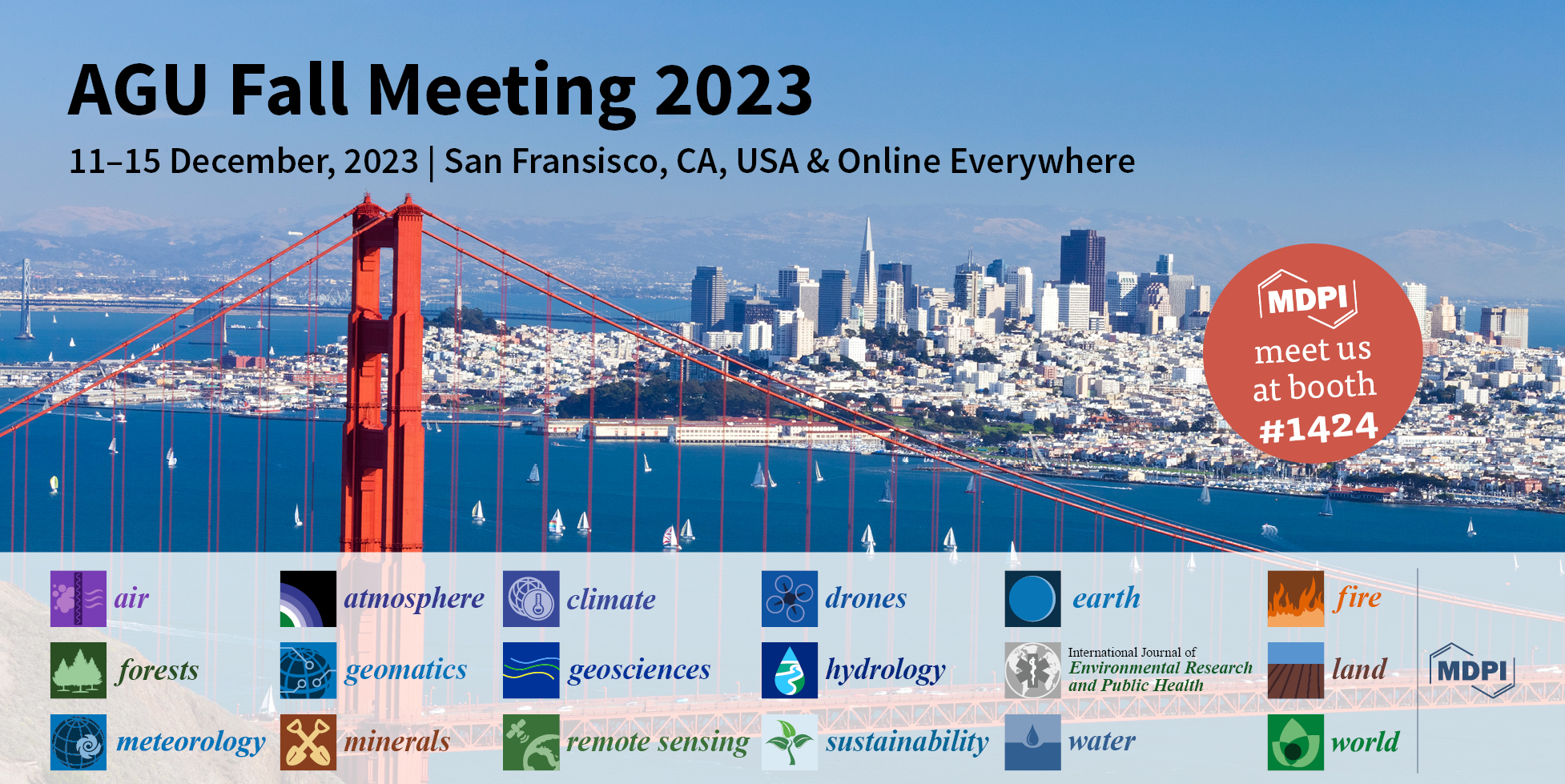
MDPI will be attending the AGU Fall Meeting 2023, which will be held from 11 to 15 December 2023 in San Francisco, CA, USA.
For more than 100 years, AGU has been opening science—opening pathways to discovery, opening greater awareness to address climate change, opening greater collaborations that lead to solutions and opening the fields and professions of science to a whole new age of justice, equity, diversity, inclusion and belonging.
2023 might be the official year of Open Science, but we also see it as an opportunity to affirm AGU’s overarching values and beliefs. It is a message for all of us to carry as we come together to share, inspire, collaborate, engage and most of all rededicate ourselves as a united community grounded in wide open science.
The following MDPI journals will be represented:
- Air;
- Atmosphere;
- Climate;
- Drones;
- Earth;
- Fire;
- Forests;
- Geomatics;
- Geosciences;
- Hydrology;
- IJERPH;
- Land;
- Meteorology;
- Minerals;
- Remote Sensing;
- Sustainability;
- Water;
- World.
If you are planning to attend this conference, please feel free to stop by our booth #1424 and start a conversation with us. Our delegates look forward to meeting you in person and answering any questions that you may have. For more information about the conference, please visit the following website: https://www.agu.org/fall-meeting.
6 September 2023
Recap of Awards Granted to Scholars in 2022
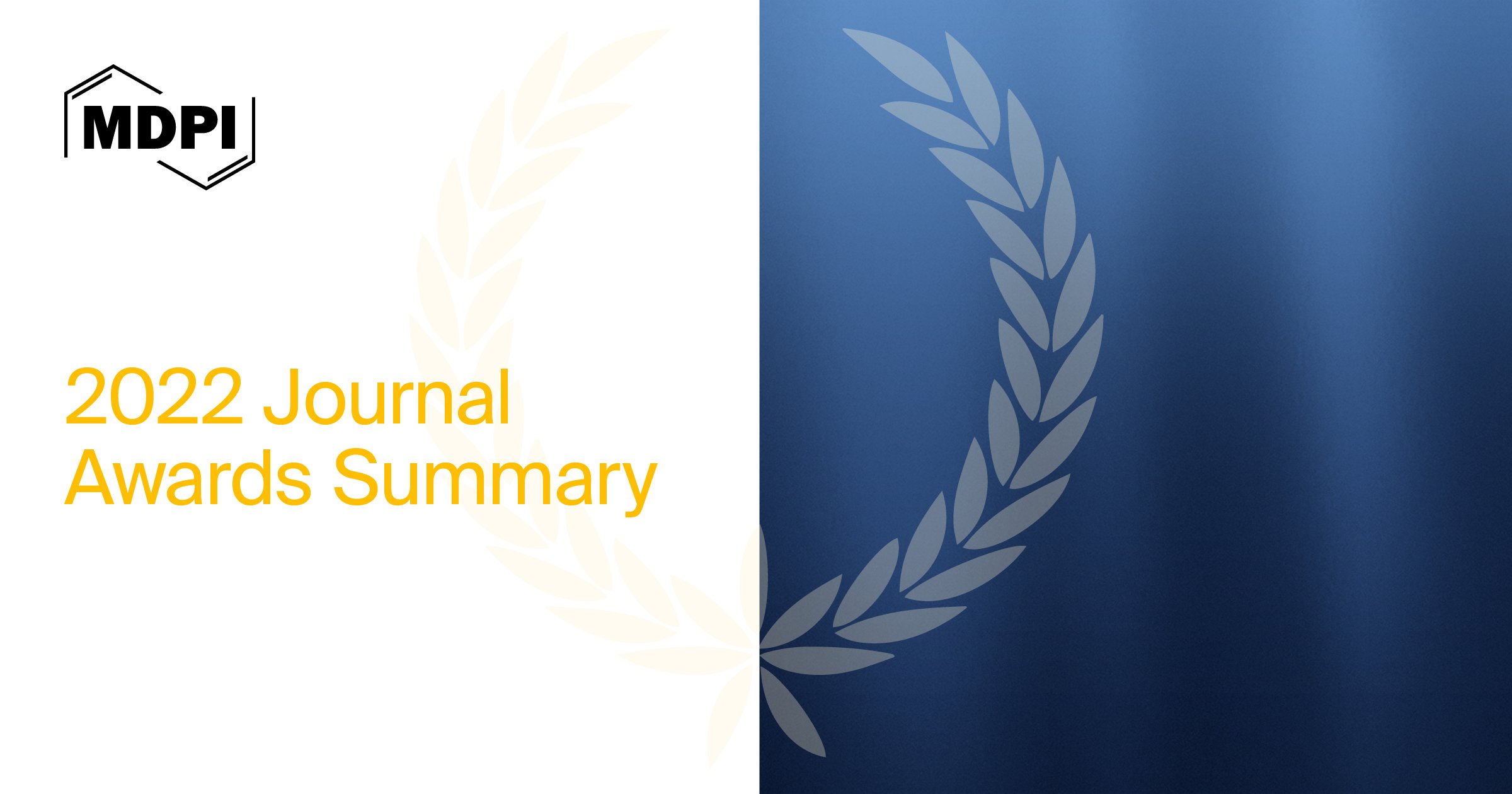
MDPI is committed to supporting the academic community, nurturing talent and advancing science. Awards are an important part of the research landscape and play a vital role in helping academics gain recognition, especially young researchers as they embark on new research avenues.
In 2022, our journals presented a total number of 394 Awards, including Travel Awards, Young Investigator Awards, Best PhD Thesis Awards, Best Paper Awards, and Outstanding Reviewer Awards, with several winners announced for some of the awards. The total prize sum amounted to just under 580,000 Swiss francs (CHF), or approximately 650,000 US dollars. Overall, more than 720 scholars were awarded.
The majority of the awards were dedicated to young researchers in relatively early stages of their careers. This encompassed 66 of the afore-mentioned Travel Awards, 60 Young Investigator Awards, supporting research projects and conference attendance, as well as 51 Best PhD Thesis Awards. Additionally, 113 Best Paper Awards were given by our journals. The selection committees were entrusted with identifying the most impactful and novel research and review articles published in their journal within a given year.
MDPI will continue its support and recognition for the academic community moving forward, sponsoring new awards across disciplines. To learn more about all the awardees and their research projects in your field of study, please visit the following pages:
To explore more MDPI awards, please click here.
30 August 2023
MDPI Insights: The CEO’s Letter #3 - Sustainability and Co-opetition

Welcome to the MDPI Insights: The CEO's Letter.
In these monthly letters, I will showcase two key aspects of our work at MDPI: our commitment to empowering researchers and our determination to facilitating open scientific exchange.
Opening Thoughts

Our Commitment to Sustainability
As a pioneer in academic open access publishing since 1996, MDPI has always been dedicated to facilitating scientific exchange across all disciplines. Our approach to open science is guided by principles such as Open Access (OA), Timeliness and Efficiency, Simplicity, High-Quality Service, Flexibility, and a commitment to Sustainability. This commitment involves preserving published papers for the long term and supporting the future of science through partnerships, sponsorships, and awards.
In this edition of the CEO Letter, I will delve into MDPI’s various sustainability initiatives. As a leader in OA publishing, we are able to provide the public with a significant amount of environment-related content at no cost.
MDPI and the Sustainable Development Goals (SDGs)
In 2020, the SDG Publishers Compact was launched to accelerate implementation of the SDGs by promoting content that informs, develops, and inspires action. MDPI joined this initiative in 2021 and subsequently launched the MDPI SDG Hub in 2022, offering free access to recent research within the scope of each of the 17 SDGs. We also support authors from underrepresented communities by waiving publication charges for selected SDG-related papers. Detailed sustainability practices and supported publications are available in the report under each Goal page.
“More than 80% of MDPI articles and reviews published in 2022 relate to the Sustainable Development Goals.” [source: InCites, Accessed on 21.08.2023]
As at August 2023, MDPI boasts 14 journals dedicated to sustainability-related topics. Our first journal in this area, Sustainability, has published over 29,000 articles on the SDGs, accumulating over 240,000 citations (source: InCites, as at 1 January 2023). These journals serve as vital platforms for researchers to share insights and address environmental challenges. In addition:
MDPI journals specializing in sustainability-related topics:
- 2009: Sustainability
- 2012: Resources
- 2013: Climate
- 2014: Environments
- 2016: Recycling
- 2019: Clean Technologies
- 2020: Sustainable Chemistry
- 2021: Wind, Biomass, Conservation, Pollutants, Solar
- 2022: Waste, Microplastics
Read more:
Impactful Research

Highly Cited Articles in Sustainability
In 2022, content published in Sustainability and indexed in Journal Citation Reports (JCR) received nearly 190,000 citations. This highlights the fact that Sustainability publishes highly cited research articles related to environmental sciences and SDG-related topics such as climate action.
We are pleased to share that Sustainability received a 2022 CiteScore of 5.8, marking a 16% increase from the 2021 metric. Specifically, the CiteScore positions Sustainability as follows: Q1 (27 out of 163) in the “Environmental Science (miscellaneous)” category, and Q1 (101 out of 779) in the “Geography Planning and Development” category. For additional journal statistics, please visit here.
“Sustainability received a 2022 CiteScore of 5.8”
While MDPI journals such as Climate and Atmosphere have a distinct focus on atmosphere pollution and its impact on climate processes, journals like Sustainability, Environments, Water, Remote Sensing, and IJERPH publish content related to climate change. These journals have published over 32,300 articles related to SDG 13: Climate Action.
Highly Cited Papers in Sustainability
Below are several highly cited papers published in Sustainability over the past three years. Citation metrics are current as at 15 August 2023.
1. “A Global Assessment: Can Renewable Energy Replace Fossil Fuels by 2050?”Authors: Jerry L. Holechek, Hatim M. E. Geli, Mohammed N. Sawalhah, and Raul Valdez
Sustainability 2022, 14(8), 4792; https://doi.org/10.3390/su14084792
Citations: Crossref (97), Scopus (91), Web of Science (82), Google Scholar (125)
This paper addresses one of the most significant challenges of climate change – achieving Net Zero Carbon by 2050. The meta-analysis suggests that while difficult, this transition is possible through the concerted application of pathways, lifestyle changes, and global cooperation.
2. “Anxiety and the Ecological Crisis: An Analysis of Eco-Anxiety and Climate Anxiety”Author: Panu Pihkala
Sustainability 2020, 12(19), 7836; https://doi.org/10.3390/su12197836
Citations: Crossref (144), Scopus (121), Web of Science (159), Google Scholar (382)
This paper has received substantial media attention, including coverage by The Guardian, BBC, Vice, and CNBC. An interview with Dr. Panu Pihkala, a leading interdisciplinary researcher on the topic, can be found on MDPI’s podcast: Insight Faster, Episode 1.
3. “Impact of Climate Change on Agriculture and Its Mitigation Strategies: A Review”Authors: Gurdeep Singh Malhi, Manpreet Kaur, and Prashant Kaushik
Sustainability 2021, 13(3), 1318; https://doi.org/10.3390/su13031318
Citations: Crossref (207), Scopus (221), Web of Science (186), Google Scholar (355)
This paper reviews literature on climate change, addressing its causes, future projections, impact on agriculture, including plant physiology, growth, productivity, pest infestation, and the economic implications of mitigation strategies.
4. “Impacts of Plastic Pollution on Ecosystem Services, Sustainable Development Goals, and Need to Focus on Circular Economy and Policy Interventions”Authors: Rakesh Kumar, Anurag Verma, Arkajyoti Shome, Rama Sinha, Srishti Sinha, Prakash Kumar Jha, Ritesh Kumar, Pawan Kumar, Shubham, Shreyas Das, Prabhakar Sharma, and P. V. Vara Prasad
Sustainability 2021, 13(17), 9963; https://doi.org/10.3390/su13179963
Citations: Crossref (134), Scopus (136), Web of Science (113), Google Scholar (184)
This review aims to assess the adverse effects of plastic pollution on ecosystems, link the management of plastic with the SDGs, and propose policy measures using transdisciplinary approaches. Empowering communities to reduce plastic use is crucial. Addressing global plastic pollution is a priority.
Sustainability is an international, cross-disciplinary, open access journal that explores environmental, cultural, economic, and social sustainability of human beings. It provides a forward-looking platform for research on sustainability and sustainable development, and is published semi-monthly online by MDPI. Sustainability is affiliated with The Canadian Urban Transit Research & Innovation Consortium (CUTRIC) and The International Council for Research and Innovation in Building and Construction (CIB).
Read more:
- Testimonials: See what our editors and authors say about Sustainability.
Inside MDPI

President of Ireland Authors Editorial in MDPI Journal Sustainability
It’s a very special occasion when the president of a country takes the initiative to write an editorial for a journal. Michael D. Higgins, President of the Republic of Ireland, has contributed his insights to a forthcoming Special Issue in Sustainability:

This Special Issue, focusing on “making sustainable development happen” at grassroots levels, allows for perspectives from, and on, the major world faiths, exploring how challenges have been conceptualised and addressed, in addition to case studies of faith-based sustainability initiatives in practice.
The experience of faith institutions and communities in translating theological and moral commitments to sustainable development into action is now a topic we must examine with urgency; one on which I am so glad this Special Issue focuses.
As President of Ireland, I very much support this Special Issue of Sustainability. It is my great hope that the contents of the papers contained herein will assist in making sustainable development happen at grassroots levels across the world so that we can cooperate together, people of faith and of none, to ensure a just, inclusive and sustainable future for all on our fragile planet.
Read the completed editorial here:
Special Issue “Faith and Sustainable Development: Exploring Practice, Progress and Challenges among Faith Communities and Institutions”: Foreword by the President of Ireland
Author: Michael D. Higgins
Sustainability 2023, 15(12), 9683; https://doi.org/10.3390/su15129683
Coming Together for Science

The World Sustainability Forum 2023
The World Sustainability Forum (WSF) is a biennial MDPI event focused on sustainability. WSF 2023 marks the tenth anniversary of the conference series, taking place on 14 September. For the first time, the event will be hosted as a 24-hour conference across three locations – Singapore, Basel in Switzerland, and Toronto in Canada – alongside virtual streaming.
This unique format allows us to span three time zones, providing live coverage of critical sustainability-related topics throughout the day:
- The Singapore Hub, chaired by Professor Horn Mun Cheah and Associate Professor Renee Tan, will explore “Sustainability for Social and Community Impact”.
- The Basel Hub, chaired by Prof. Dr. Anet Režek Jambrak and Dr. Lela Mélon, will delve into “Sustainability in the industry, and at university and corporate settings”.
- The Toronto Hub, led by Dr. Umberto Berardi, will discuss “The Sustainable Built Environment”.
MDPI Sustainability Foundation: Recognizing Excellence in Sustainability Research
The MDPI Sustainability Foundation supports researchers through two sustainability-focused awards:
- The World Sustainability Award, amounting to USD 100,000, is given to senior researchers.
- The Emerging Sustainability Leader Award, valued at USD 20,000, sponsored by the journal Sustainability, is presented to early-career researchers.
The winners of the Sustainability Foundation will be formally awarded during the WSF2023 on 14 September. Interviews with the award winners and finalists are available below.
2023 World Sustainability Award Winners
Interviews with 2023 Emerging Sustainability Leader Award Finalists
- Dr. Bahareh Kamranzad
- Dr. Youjin Kim
- Dr. Julia Lohmann
As a hybrid event, WSF23 provides scholars with the option to attend in person at one of the conference sites or, for a more sustainable approach, virtually. All sessions will be recorded and archived for future access. Registration is open until 3 September 2023, with in-person and virtual tickets available here.
Read more:
Closing Thoughts
“Co-opetition”: Collaboration Plus Healthy Competition – A Visit to Elsevier
I firmly believe in fostering collaboration and at the same time promoting healthy competition within the academic publishing industry. The market offers ample room for publishers and related companies to provide valuable services and products that enrich the academic community. While MDPI is recognized for its efficient and streamlined processes –thanks to our over 6,000 colleagues, in-house tools, and initiatives that support the author journey – our ethos has always involved learning from and collaborating with other organizations.
MDPI’s Interaction with Elsevier
In January 2023, I had a brief conversation with Judy Verses, President of Global Academic and Government Markets at Elsevier, following her participation in a panel discussion at the Academic Publishers Europe event in Berlin. One of the highlights for me was Judy’s insight into the impact of research, particularly her emphasis on the role of collaboration, including policy and showing the impact of research to influence on funding decisions.
“Such collaborations drive forward-looking strategies to elevate our support for the scholarly community”

Judy and I resumed our discussion in August, when I visited Elsevier's office to review current projects, such as our recent agreement with Science Direct and the continued indexing of MDPI journals in Scopus (indexing database owned by Elsevier). We also explored possible opportunities for the future, including a potential collaboration to expand MDPI’s Scilit data infrastructure. This endeavour aims to aggregate and provide access to scholarly metadata encompassing journal articles, conference papers, books, preprints, and more. While these discussions are ongoing, the underlying principle remains that such collaborations drive forward-looking strategies to elevate our services and support for the scholarly community.
It was great that Judy and I acknowledged the merits of 'co-opetition,' a concept based of the belief that fostering cooperation alongside healthy competition can lead to shared advancements for both individual companies and the industry at large.
‘Fully OA’ Organizations Dedicated to Open Access

MDPI proudly aligns with the ‘Fully OA’ group, a collaborative initiative comprising nine organizations dedicated to Open Access. Our monthly meetings, including an OASPA representative, serve as platforms to share non-confidential information, resources, and projects. These gatherings also facilitate discussions on topics relevant to fully OA organizations. Occasionally, joint actions spring from these interactions, such as collaborative blog posts on pertinent subjects and joint statements, such as a recent response to the House Appropriations Committee.
This display of cooperation among competing entities forms a strategic alliance focused on nurturing the best interests of the OA publishing model.
As I wrap up this third edition of the CEO Letter, I encourage you to seize opportunities for collaboration and contribute to advancing our shared academic culture. As the African proverb has it, “If you want to go fast, go alone; if you want to go far, go together.”
Chief Executive Officer
MDPI AG
28 August 2023
Meet Us at the 2023 ASA, CSSA, SSSA International Annual Meeting, 29 October–1 November 2023, St. Louis, USA

Conference: 2023 ASA, CSSA, SSSA International Annual Meeting
Date: 29 October–1 November 2023
Place: St. Louis, MO, USA
The American Society of Agronomy (ASA), Crop Science Society of America (CSSA) and Soil Science Society of America (SSSA) support their members and certified professionals by providing peer-reviewed research publications through the Online Library, educational programs, certifications, meetings, and science policy initiatives. A common thread across the programs and services of ASA, CSSA, SSSA is the dissemination and transfer of scientific knowledge to advance the profession.
The ASA, CSSA, SSSA International Annual Meeting offers a chance for leading scientists, researchers, educators, policymakers, students, exhibitors, and government institutions to gather to discuss cutting-edge developments in agronomy, crops, and soil science and features groundbreaking research.
The following MDPI journals will be represented:
- Agronomy;
- Agriculture;
- Soil Systems;
- Crops;
- Seeds;
- Grasses;
- AgriEngineering;
- Horticulturae;
- Plants;
- Forests;
- Environments;
- Nitrogen;
- IJPB.
If you are attending this conference, please feel free to start a conversation with us. Our delegates look forward to meeting you in person and answering any questions you may have. For more information about the conference, please visit the following website: https://www.acsmeetings.org/about.
23 August 2023
Meet Us at the 2023 Annual Meeting of the Geographical Society of China—Commission on Urban Geography, 15–18 September 2023, Wuhan, China
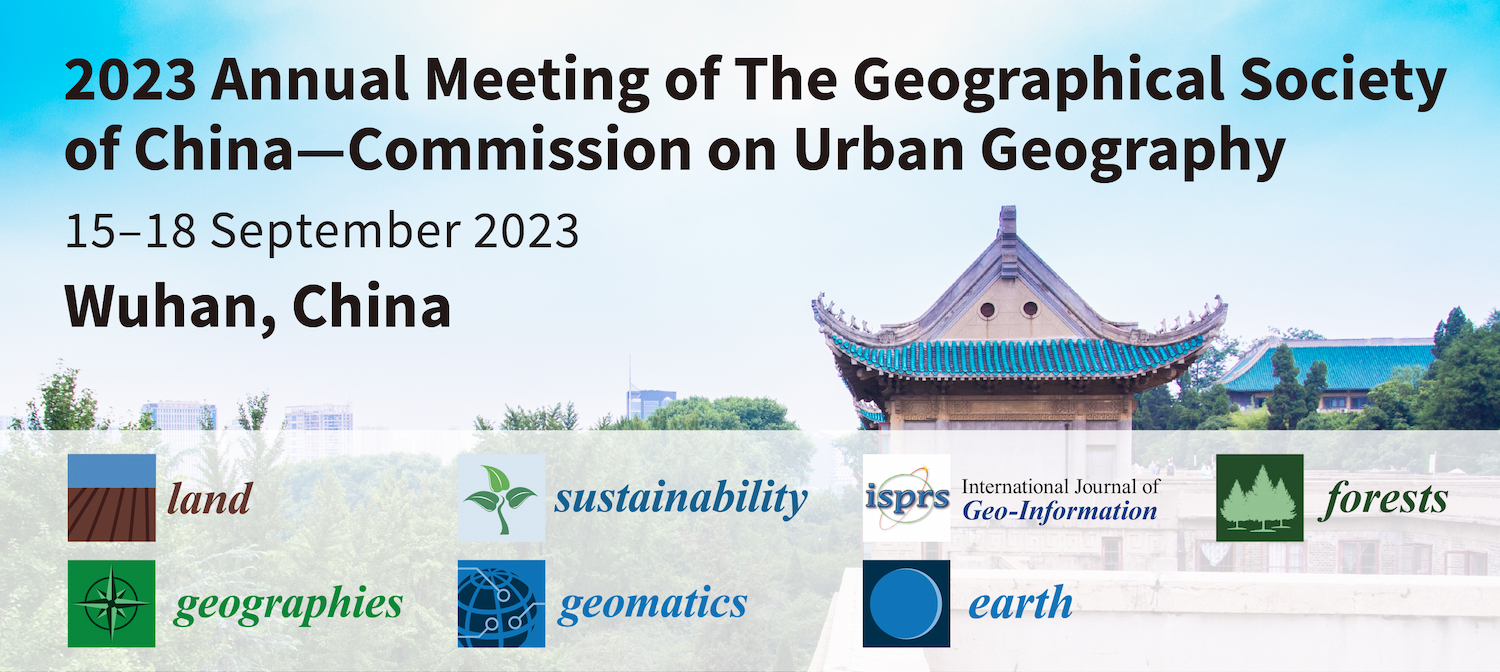
MDPI is attending the 2023 Annual Meeting of the Geographical Society of China—Commission on Urban Geography. The event will be held at Wuhan University, China, from 15 to 18 September 2023, and it is organized by the Geographical Society of China. This conference will focus on the theme "Innovative Development of Urban Geography for Chinese Modernization"; it will exchange new ideas, new trends, new methods and new practices of urban geography, explore new opportunities, new positioning and new paradigms for the development of urban geography in the context of disciplinary integration, and jointly promote the prosperity and development of urban geography in China.
Representatives of the following MDPI journals will be attending:
- Land (leading journal);
- Sustainability;
- IJGI;
- Forests;
- Geomatics;
- Geographies;
- Earth.
If you are also attending this conference, please feel free to stop by our booth. Our delegates look forward to meeting you in person to answer any questions you may have. For more information about the conference, please visit: http://www.gsc.org.cn/web/#/meeting/2fea355b-6e53-412e-8119-797535909665.
23 August 2023
Forests | Invitation to Read Editor’s Choice Articles Selected from Volume 14, Issues 4–6
We are pleased to share the following ten Editor's Choice Articles published in Forests (ISSN: 1999-4907). These papers were selected by our Editors-in-Chief from the most notable papers published in Volume 14, Issues 4‒6. All these papers are of particular interest or importance to readers and are all well received by researchers.
1. “An Overview of Oak Species in Pakistan: Past, Present, and Future Research Perspectives”
by Noor Muhammad, María Ángeles Castillejo, Maria-Dolores Rey and Jesús V. Jorrín-Novo
Forests 2023, 14(4), 777; https://doi.org/10.3390/f14040777
Available online: https://www.mdpi.com/1999-4907/14/4/777
2. “A Multi-Country Study Assessing the Mechanisms of Natural Elements and Sociodemographics behind the Impact of Forest Bathing on Well-Being”
by Montse Subirana-Malaret, Alexandre Miró, Aracely Camacho, Alex Gesse and Kirsten McEwan
Forests 2023, 14(4), 904; https://doi.org/10.3390/f14050904
Available online: https://www.mdpi.com/1999-4907/14/5/904
3. “Tree Species Classification in a Complex Brazilian Tropical Forest Using Hyperspectral and LiDAR Data”
by Rorai Pereira Martins-Neto, Antonio Maria Garcia Tommaselli, Nilton Nobuhiro Imai, Eija Honkavaara, Milto Miltiadou, Erika Akemi Saito Moriya and Hassan Camil David
Forests 2023, 14(5), 157; https://doi.org/10.3390/f14050945
Available online: https://www.mdpi.com/1999-4907/14/5/945
4. “Defective or Just Different? Observed Storm Failure in Four Urban Tree Growth Patterns”
by Andrew K. Koeser, Ryan W. Klein, Richard J. Hauer, Jason W. Miesbauer, Zachary Freeman, Christopher Harchick and Brian Kane
Forests 2023, 14(5), 311; https://doi.org/10.3390/f14050988
Available online: https://www.mdpi.com/1999-4907/14/5/988
5. “Microevolutionary Processes in a Foundation Tree Inform Macrosystem Patterns of Community Biodiversity and Structure”
by Helen M. Bothwell, Arthur R. Keith, Hillary F. Cooper, Julia B. Hull, Lela V. Andrews, Christian Wehenkel, Kevin R. Hultine, Catherine A. Gehring, Samuel A. Cushman, Thomas G. Whitham et al.
Forests 2023, 14(5), 248; https://doi.org/10.3390/f14050943
Available online: https://www.mdpi.com/1999-4907/14/5/943
6. “Exploring the Potential of Portable Spectroscopic Techniques for the Biochemical Characterization of Roots in Shallow Landslides”
by Lorenzo Marzini, Daniele Ciofini, Juri Agresti, Leonardo Ciaccheri, Enrico D’Addario, Leonardo Disperati, Salvatore Siano and Iacopo Osticioli
Forests 2023, 14(4), 385; https://doi.org/10.3390/f14040825
Available online: https://www.mdpi.com/1999-4907/14/4/825
7. “Temperature and Tree Size Explain the Mean Time to Fall of Dead Standing Trees across Large Scales”
by Antje Gärtner, Anna Maria Jönsson, Daniel B. Metcalfe, Thomas A. M. Pugh, Torbern Tagesson and Anders Ahlström
Forests 2023, 14(5), 469; https://doi.org/10.3390/f14051017
Available online: https://www.mdpi.com/1999-4907/14/5/1017
8. “Suitability of a Historical, Novel, and Occasional Host for Mountain Pine Beetle (Coleoptera: Curculionidae)”
by Katherine P. Bleiker, Claire A. Ethier and Brian H. Van Hezewijk
Forests 2023, 14(5), 559; https://doi.org/10.3390/f14050989
Available online: https://www.mdpi.com/1999-4907/14/5/989
9. “Long-Term Simulated Nitrogen Deposition Has Moderate Impacts on Soil Microbial Communities across Three Bioclimatic Domains of the Eastern Canadian Forest”
by Marie Renaudin, Rim Khlifa, Simon Legault, Steven W. Kembel, Daniel Kneeshaw, Jean-David Moore and Daniel Houle
Forests 2023, 14(5), 479; https://doi.org/10.3390/f14061124
Available online: https://www.mdpi.com/1999-4907/14/6/1124
10. “Alignment of National Forest Policy Frameworks with the EU Timber Regulation Requirements: Insights from Montenegro and the Republic of Srpska (Bosnia and Herzegovina)”
by Maja Radosavljevic, Mauro Masiero, Todora Rogelja and Dragan Comic
Forests 2023, 14(6), 210; https://doi.org/10.3390/f14061157
Available online: https://www.mdpi.com/1999-4907/14/6/1157
We would like to thank all the research groups behind these exceptional papers for their contributions to Forests. We would greatly appreciate it if you could circulate this document among your colleagues or through your network.
If you want to learn more about the contributions published in Editor’s Choice Articles, please click here.
15 August 2023
Meet Us at the 14th National Conference on Biodiversity—1st International Conference on Mediterranean Biodiversity, 13–15 September 2023, Lecce, Italy
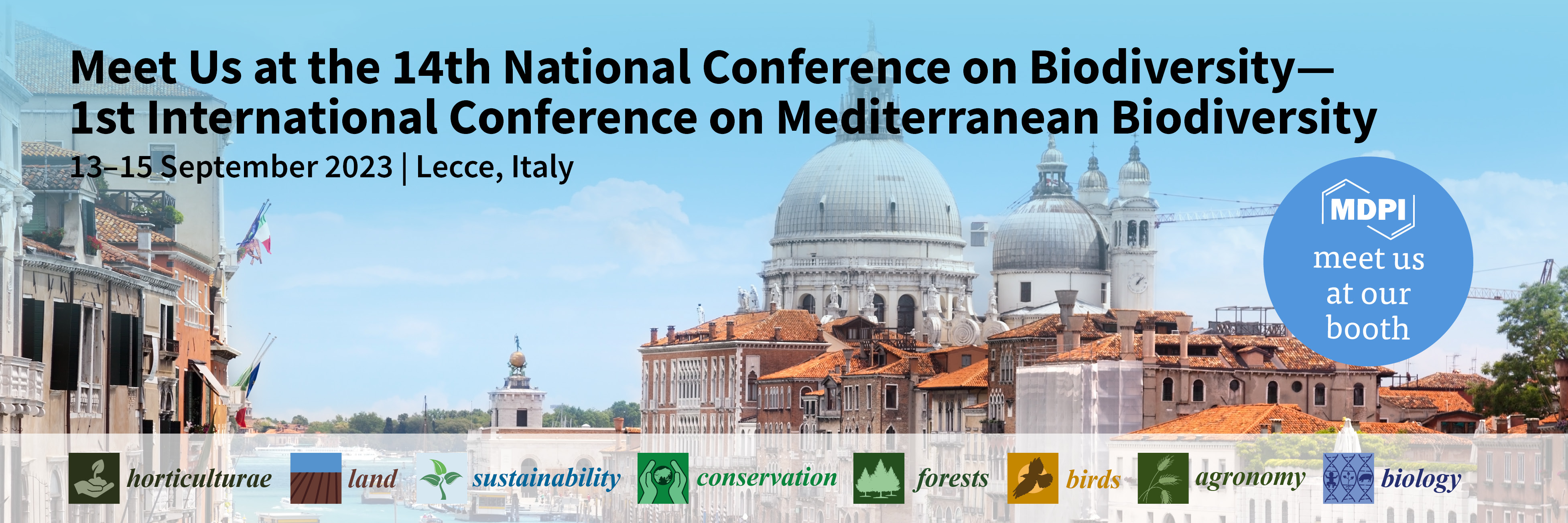
MDPI journals will be attending the 14th National Conference on Biodiversity 1st International Conference on Mediterranean Biodiversity as an exhibitor. This meeting will be held in Lecce, Italy from 13 to 15 September 2023.
The 14th National Conference on Biodiversity will be organized by the Department of Biological and Environmental Sciences and Technologies (DiSTeBA) of the University of Salento in collaboration with the Academy of Mediterranean Biodiversity Sciences (ASBM) in order to continue the discussion and dialogue initiated more than 25 years ago, among scientists, institutional and policymakers, on issues related to the mutually complementary domains of the biodiversity: biodiversity at the intraspecific level, at the interspecific level, and at the entire ecosystem level. The aim is to help promote the advancement of knowledge based on the rigor of the scientific method. In particular, the 14th National Biodiversity Conference will be a showcase for studies and research focusing on “Biodiversity, Resilience and Climate Change”.
The following MDPI journals will be represented:
If you are attending this conference, please feel free to start a conversation with us. Our delegates look forward to meeting you in person and answering any questions you may have. For more information about the conference and our booth, please visit https://leccebiodiversity2023.com/.
31 July 2023
MDPI’s 2022 Best PhD Thesis Awards in Environmental and Earth Sciences—Winners Announced
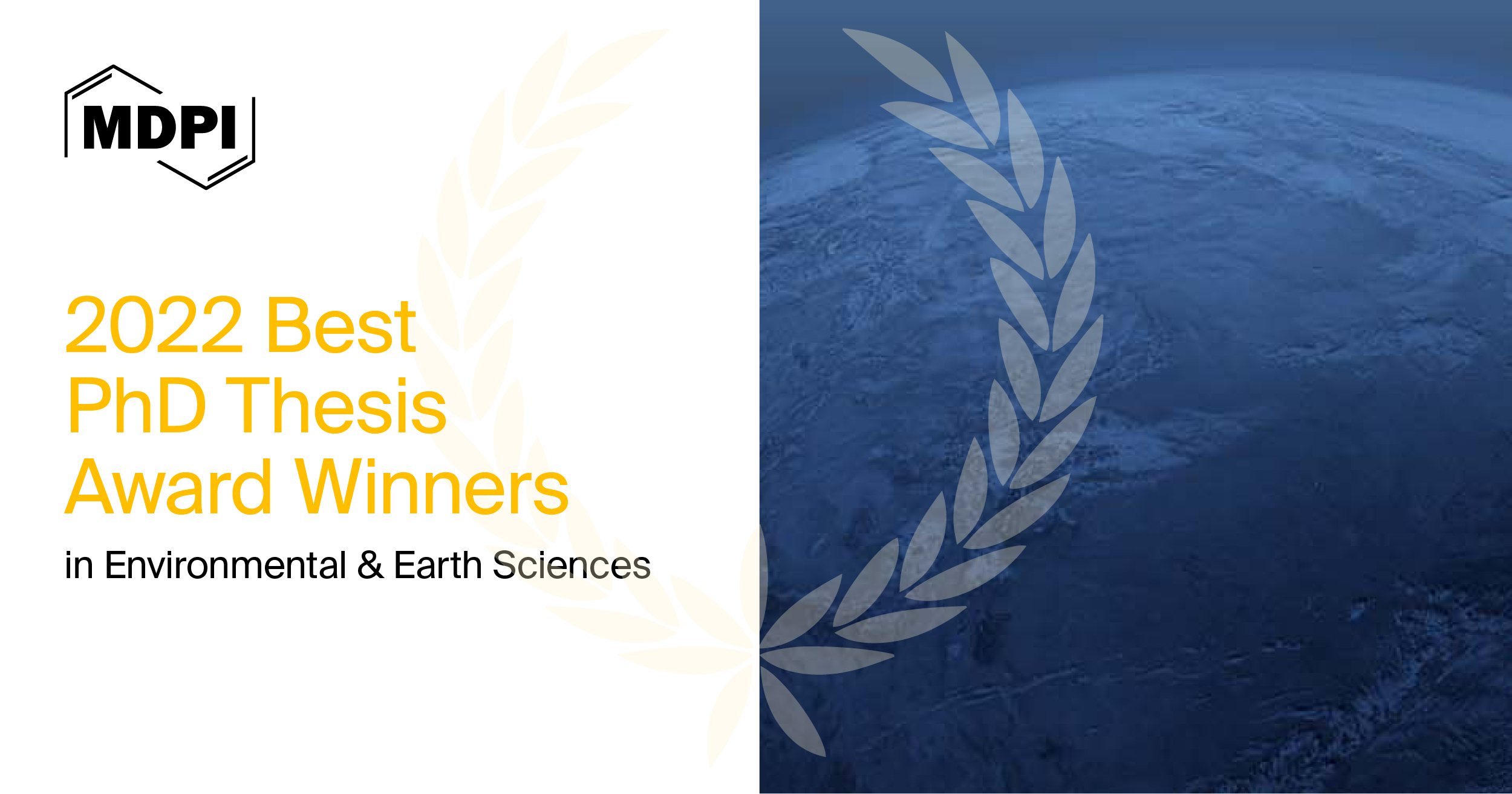
MDPI’s Best PhD Thesis Awards are presented to recognize the young scholars who are deemed to have completed the most outstanding PhD thesis in their field of research and to encourage them to continue their outstanding work and make further contributions to their field.
We would like to warmly congratulate the winners of the 2022 Best PhD Thesis Awards and wish them success with their future research endeavors.
- “Variability of Ocean Dynamics and Associated Mechanisms Over the Tropical Indian Ocean”
by Sartaj Khan, Harbin Engineering University, China
- “Nanofluid Impingement Jet Heat Transfer”
by Javad Mohammadpour, Macquarie University, Australia
- “Abiotic Sedimentary Dolomite Formation: from Nano- to Macro-Scale”
by Yihang Fang, Washington University, USA
- “Effects of Rare Earth Elements on Aquatic Organisms under a Changing Environment”
by Catia Figueiredo, CIIMAR—Interdisciplinary Centre of Marine and Environmental Research, Portugal
- “Green-Gray Coupled Runoff Control Infrastructure Adaptive Multi-Objective Optimization Method”
by Zijing Liu, Tsinghua University, China
About MDPI Awards:
In order to reward the academic community, especially young researchers and enhance communication among scientists, MDPI journals regularly offer various awards to researchers in specific fields. These awards, serving as a source of inspiration and recognition, help raise the influence of talented individuals who have been credited with outstanding achievements and are making a significant contribution to the advancement of their fields.
To explore more MDPI awards, please click here.
31 July 2023
MDPI’s 2022 Best Paper Awards in Environmental and Earth Sciences—Winners Announced
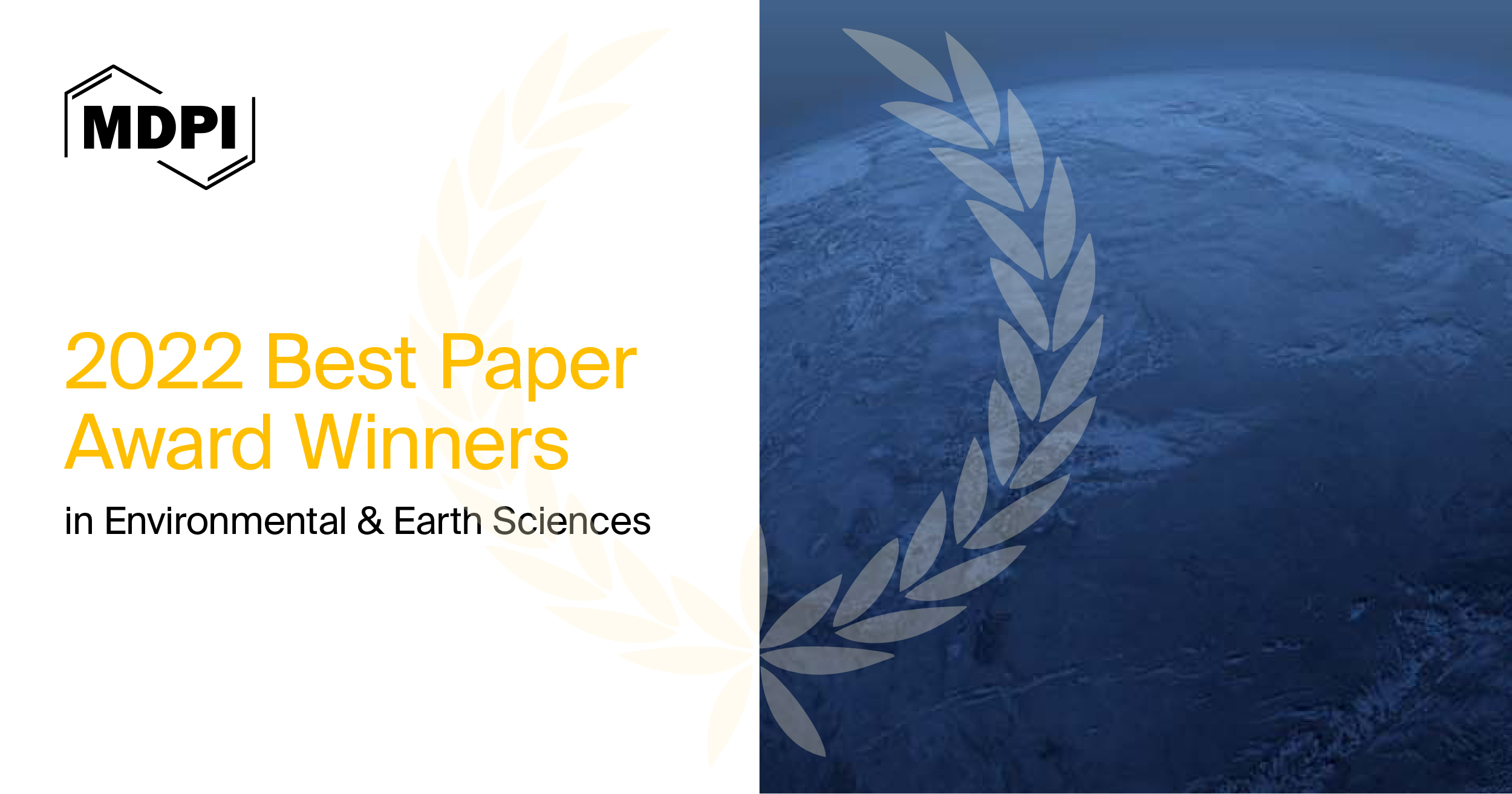
The purpose of our Best Paper Awards is to promote and recognize the most impactful contributions published within MDPI journals.
The editors of each journal carefully selected reviews and research papers through a rigorous judging process based on criteria such as the scientific merit, overall impact, and the quality of presentation of the papers published in the journal.
We are honored to present the winners for the year 2022 in environmental and earth sciences, who were selected amongst the extensive competition, and congratulate the authors for their outstanding scientific publications.
- “Covid-19 Airborne Transmission and Its Prevention: Waiting for Evidence or Applying the Precautionary Principle?”
by Annalaura Carducci, Ileana Federigi and Marco Verani
Atmosphere 2020, 11(7), 710; https://doi.org/10.3390/atmos11070710
- “The Heat Health Warning System in Germany—Application and Warnings for 2005 to 2019”
by Andreas Matzarakis, Gudrun Laschewski and Stefan Muthers
Atmosphere 2020, 11(2), 170; https://doi.org/10.3390/atmos11020170
- “Temporal Hydrological Drought Index Forecasting for New South Wales, Australia Using Machine Learning Approaches”
by Abhirup Dikshit, Biswajeet Pradhan and Abdullah M. Alamri
Atmosphere 2020, 11(6), 585; https://doi.org/10.3390/atmos11060585
- “Lignocellulosic Biomass Mild Alkaline Fractionation and Resulting Extract Purification Processes: Conditions, Yields, and Purities”
by Vincent Oriez, Jérôme Peydecastaing and Pierre-Yves Pontalier
Clean Technol. 2020, 2(1), 91-115; https://doi.org/10.3390/cleantechnol2010007
- “Environmental and Economic Evaluation of Fuel Choices for Short Sea Shipping”
by Kirsi Spoof-Tuomi and Seppo Niemi
Clean Technol. 2020, 2(1), 34-52; https://doi.org/10.3390/cleantechnol2010004
- “Analyzing Similarities between the European Union Countries in Terms of the Structure and Volume of Energy Production from Renewable Energy Sources”
by Jarosław Brodny and Magdalena Tutak
Energies 2020, 13(4), 913; https://doi.org/10.3390/en13040913
- “High Reynold’s Number Turbulent Model for Micro-Channel Cold Plate Using Reverse Engineering Approach for Water-Cooled Battery in Electric Vehicles”
by Satyam Panchal, Krishna Gudlanarva, Manh-Kien Tran, Roydon Fraser and Michael Fowler
Energies 2020, 13(7), 1638; https://doi.org/10.3390/en13071638 - “Investigation of Inorganic Phase Change Material for a Semi-Transparent Photovoltaic (STPV) Module”
by Alagar Karthick, Muthu Manokar Athikesavan, Manoj Kumar Pasupathi, Nallapaneni Manoj Kumar, Shauhrat S. Chopra and Aritra Ghosh
Energies 2020, 13(14), 3582; https://doi.org/10.3390/en13143582
- “Considerations on Potentials, Greenhouse Gas, and Energy Performance of Biofuels Based on Forest Residues for Heavy-Duty Road Transport in Sweden”
by Shveta Soam and Pål Börjesson
Energies 2020, 13(24), 6701; https://doi.org/10.3390/en13246701
- “Characterization of Hybrid-nano/Paraffin Organic Phase Change Material for Thermal Energy Storage Applications in Solar Thermal Systems”
by Manoj Kumar Pasupathi, Karthick Alagar, Michael Joseph Stalin P, Matheswaran M. M and Ghosh Aritra
Energies 2020, 13(19), 5079; https://doi.org/10.3390/en13195079
- “Snapshot of Photovoltaics—February 2020”
by Arnulf Jäger-Waldau
Energies 2020, 13(4), 930; https://doi.org/10.3390/en13040930
- “The Importance of Renewable Energy Sources in Poland’s Energy Mix”
by Renata Marks-Bielska, Stanisław Bielski, Katarzyna Pik and Krystyna Kurowska
Energies 2020, 13(18), 4624; https://doi.org/10.3390/en13184624
- “Infectious Diseases, Market Uncertainty and Oil Market Volatility”
by Elie Bouri, Riza Demirer, Rangan Gupta and Christian Pierdzioch
Energies 2020, 13(16), 4090; https://doi.org/10.3390/en13164090
- “Cost of Equity of Coal-Fired Power Generation Projects in Poland: Its Importance for the Management of Decision-Making Process”
by Piotr W. Saługa, Katarzyna Szczepańska-Woszczyna, Radosław Miśkiewicz and Mateusz Chłąd
Energies 2020, 13(18), 4833; https://doi.org/10.3390/en13184833
- “Internet of Things (IoT) and the Energy Sector”
by Naser Hossein Motlagh, Mahsa Mohammadrezaei, Julian Hunt and Behnam Zakeri
Energies 2020, 13(2), 494; https://doi.org/10.3390/en13020494
- “A Review on Thermoelectric Generators: Progress and Applications”
by Mohamed Amine Zoui, Saïd Bentouba, John G. Stocholm and Mahmoud Bourouis
Energies 2020, 13(14), 3606; https://doi.org/10.3390/en13143606
- “Contributions and Risks of Artificial Intelligence (AI) in Building Smarter Cities: Insights from a Systematic Review of the Literature”
by Tan Yigitcanlar, Kevin C. Desouza, Luke Butler and Farnoosh Roozkhosh
Energies 2020, 13(6), 1473; https://doi.org/10.3390/en13061473
- “Possibilities and Challenges for the Inclusion of the Electric Vehicle (EV) to Reduce the Carbon Footprint in the Transport Sector: A Review”
by Aritra Ghosh
Energies 2020, 13(10), 2602; https://doi.org/10.3390/en13102602
- “Energy and Climate Policy—An Evaluation of Global Climate Change Expenditure 2011–2018”
by Coilín ÓhAiseadha, Gerré Quinn, Ronan Connolly, Michael Connolly and Willie Soon
Energies 2020, 13(18), 4839; https://doi.org/10.3390/en13184839 - “A Review of The Methanol Economy: The Fuel Cell Route”
by Samuel Simon Araya, Vincenzo Liso, Xiaoti Cui, Na Li, Jimin Zhu, Simon Lennart Sahlin, Søren Højgaard Jensen, Mads Pagh Nielsen and Søren Knudsen Kær
Energies 2020, 13(3), 596; https://doi.org/10.3390/en13030596
- “Microplastic Contamination in Freshwater Environments: A Review, Focusing on Interactions with Sediments and Benthic Organisms”
by Arianna Bellasi, Gilberto Binda, Andrea Pozzi, Silvia Galafassi, Pietro Volta and Roberta Bettinetti
Environments 2020, 7(4), 30; https://doi.org/10.3390/environments7040030
- “Biogas Production from Food Residues—The Role of Trace Metals and Co-Digestion with Primary Sludge”
by Moshe Habagil, Alexander Keucken and Ilona Sárvári Horváth
Environments 2020, 7(6), 42; https://doi.org/10.3390/environments7060042
- “Coastal Pine-Oak Glacial Refugia in the Mediterranean Basin: A Biogeographic Approach Based on Charcoal Analysis and Spatial Modelling”
by Gaetano Di Pasquale, Antonio Saracino, Luciano Bosso, Danilo Russo, Adriana Moroni, Giuliano Bonanomi and Emilia Allevato
Forests 2020, 11(6), 673; https://doi.org/10.3390/f11060673
- “A Survey in Natural Forest Ecosystems of Vietnam Reveals High Diversity of both New and Described Phytophthora Taxa including ramorum”
by Thomas Jung, Bruno Scanu, Clive M. Brasier, Joan Webber, Ivan Milenković, Tamara Corcobado, Michal Tomšovský, Matěj Pánek, József Bakonyi, Cristiana Maia et al.
Forests 2020, 11(1), 93; https://doi.org/10.3390/f11010093
- “Living in Drylands: Functional Adaptations of Trees and Shrubs to Cope with High Temperatures and Water Scarcity”
by José Javier Peguero-Pina, Alberto Vilagrosa, David Alonso-Forn, Juan Pedro Ferrio, Domingo Sancho-Knapik and Eustaquio Gil-Pelegrín
Forests 2020, 11(10), 1028; https://doi.org/10.3390/f11101028
- “Advances and Promises of Epigenetics for Forest Trees”
by Joana Amaral, Zoé Ribeyre, Julien Vigneaud, Mamadou Dia Sow, Régis Fichot, Christian Messier, Gloria Pinto, Philippe Nolet and Stéphane Maury
Forests 2020, 11(9), 976; https://doi.org/10.3390/f11090976
- “Cartographic Vandalism in the Era of Location-Based Games—The Case of OpenStreetMap and Pokémon GO”
by Levente Juhász, Tessio Novack, Hartwig H. Hochmair and Sen Qiao
ISPRS Int. J. Geo-Inf. 2020, 9(4), 197; https://doi.org/10.3390/ijgi9040197
- “A Comprehensive Review of Rare Earth Elements Recovery from Coal-Related Materials”
by Wencai Zhang, Aaron Noble, Xinbo Yang and Rick Honaker
Minerals 2020, 10(5), 451; https://doi.org/10.3390/min10050451 - “SEM-Based Automated Mineralogy and Its Application in Geo- and Material Sciences”
by Bernhard Schulz, Dirk Sandmann and Sabine Gilbricht
Minerals 2020, 10(11), 1004; https://doi.org/10.3390/min10111004
- “Characteristics of Precipitation of Rare Earth Elements with Various Precipitants”
by Kenneth N. Han
Minerals 2020, 10(2), 178; https://doi.org/10.3390/min10020178
- “Lithium-Rich Claystone in the McDermitt Caldera, Nevada, USA: Geologic, Mineralogical, and Geochemical Characteristics and Possible Origin”
by Stephen B. Castor and Christopher D. Henry
Minerals 2020, 10(1), 68; https://doi.org/10.3390/min10010068
- “Using Complementary Methods of Synchrotron Radiation Powder Diffraction and Pair Distribution Function to Refine Crystal Structures with High Quality Parameters—A Review”
by Seungyeol Lee and Huifang Xu
Minerals 2020, 10(2), 124; https://doi.org/10.3390/min10020124
- “Erosive Response of Non-Glaciated Pyrenean Headwater Catchments to the Last Major Climate Transition and Establishing Interglacial Conditions”
by Kurt Martin Stange, Ivar Midtkandal, Johan Petter Nystuen, Andrew Murray, Reza Sohbati, Warren Thompson, Cornelia Spiegel and Hans-Joachim Kuss
Quaternary 2019, 2(2), 17; https://doi.org/10.3390/quat2020017
- “Last Interglacial Climate in Northern Sweden—Insights from a Speleothem Record”
by Martin Finné, Sakari Salonen, Norbert Frank, Karin F. Helmens, Andrea Schröder-Ritzrau, Michael Deininger and Steffen Holzkämper
Quaternary 2019, 2(3), 29; https://doi.org/10.3390/quat2030029
- “Climatically Controlled River Terraces in Eastern Australia”
by James S. Daley and Tim J. Cohen
Quaternary 2018, 1(3), 23; https://doi.org/10.3390/quat1030023
- “Dropstones in Lacustrine Sediments as a Record of Snow Avalanches—A Validation of the Proxy by Combining Satellite Imagery and Varve Chronology at Kenai Lake (South-Central Alaska)”
by Sien Thys, Maarten Van Daele, Nore Praet, Britta J. L. Jensen, Thomas Van Dyck, Peter J. Haeussler, Elke Vandekerkhove, Veerle Cnudde and Marc De Batist
Quaternary 2019, 2(1), 11; https://doi.org/10.3390/quat2010011
- “From Climatic to Anthropogenic Drivers: A Multi-Proxy Reconstruction of Vegetation and Peatland Development in the French Jura Mountains”
by Emilie Gauthier, Vincent E. J. Jassey, Edward A. D. Mitchell, Mariusz Lamentowicz, Richard Payne, Frédéric Delarue, Fatima Laggoun-Defarge, Daniel Gilbert and Hervé Richard
Quaternary 2019, 2(4), 38; https://doi.org/10.3390/quat2040038
- “Current Practices in UAS-based Environmental Monitoring”
by Goran Tmušić, Salvatore Manfreda, Helge Aasen, Mike R. James, Gil Gonçalves, Eyal Ben-Dor, Anna Brook, Maria Polinova, Jose Juan Arranz, János Mészáros et al.
Remote Sens. 2020, 12(6), 1001; https://doi.org/10.3390/rs12061001
- “Change Detection Based on Artificial Intelligence: State-of-the-Art and Challenges”
by Wenzhong Shi, Min Zhang, Rui Zhang, Shanxiong Chen and Zhao Zhan
Remote Sens. 2020, 12(10), 1688; https://doi.org/10.3390/rs12101688 - “A Spatial-Temporal Attention-Based Method and a New Dataset for Remote Sensing Image Change Detection”
by Hao Chen and Zhenwei Shi
Remote Sens. 2020, 12(10), 1662; https://doi.org/10.3390/rs12101662
- “Mapping Landslides on EO Data: Performance of Deep Learning Models vs. Traditional Machine Learning Models”
by Nikhil Prakash, Andrea Manconi and Simon Loew
Remote Sens. 2020, 12(3), 346; https://doi.org/10.3390/rs12030346
- “LiCSBAS: An Open-Source InSAR Time Series Analysis Package Integrated with the LiCSAR Automated Sentinel-1 InSAR Processor”
by Yu Morishita, Milan Lazecky, Tim J. Wright, Jonathan R. Weiss, John R. Elliott and Andy Hooper
Remote Sens. 2020, 12(3), 424; https://doi.org/10.3390/rs12030424
- “A Novel Method for Safety Analysis of Cyber-Physical Systems—Application to a Ship Exhaust Gas Scrubber System”
by Victor Bolbot, Gerasimos Theotokatos, Evangelos Boulougouris, George Psarros and Rainer Hamann
Safety 2020, 6(2), 26; https://doi.org/10.3390/safety6020026
- “Characteristics of Commuters’ Single-Bicycle Crashes in Insurance Data”
by Roni Utriainen
Safety 2020, 6(1), 13; https://doi.org/10.3390/safety6010013
- “Effect of Road Markings and Traffic Signs Presence on Young Driver Stress Level, Eye Movement and Behaviour in Night-Time Conditions: A Driving Simulator Study”
by Darko Babić, Dario Babić, Hrvoje Cajner, Ana Sruk and Mario Fiolić
Safety 2020, 6(2), 24; https://doi.org/10.3390/safety6020024
- “COVID-19 Could Leverage a Sustainable Built Environment”
by Manuel Duarte Pinheiro and Nuno Cardoso Luís
Sustainability 2020, 12(14), 5863; https://doi.org/10.3390/su12145863
- “Mapping the Sustainable Development Goals Relationships”
by Luis Miguel Fonseca, José Pedro Domingues and Alina Mihaela Dima
Sustainability 2020, 12(8), 3359; https://doi.org/10.3390/su12083359
- “The Impact of COVID-19 Pandemic on the Resilience of Sustainable Mobility in Sicily”
by Tiziana Campisi, Socrates Basbas, Anastasios Skoufas, Nurten Akgün, Dario Ticali and Giovanni Tesoriere
Sustainability 2020, 12(21), 8829; https://doi.org/10.3390/su12218829
- “Artificial Intelligence in the Agri-Food System: Rethinking Sustainable Business Models in the COVID-19 Scenario”
by Assunta Di Vaio, Flavio Boccia, Loris Landriani and Rosa Palladino
Sustainability 2020, 12(12), 4851; https://doi.org/10.3390/su12124851
- “Interaction of Environmental Pollutants with Microplastics: A Critical Review of Sorption Factors, Bioaccumulation and Ecotoxicological Effects”
by Albert Menéndez-Pedriza and Joaquim Jaumot
Toxics 2020, 8(2), 40; https://doi.org/10.3390/toxics8020040
- “Analysis of Cannabinoid-Containing Fluids in Illicit Vaping Cartridges Recovered from Pulmonary Injury Patients: Identification of Vitamin E Acetate as a Major Diluent”
by Bryan Duffy, Lingyun Li, Shijun Lu, Lorie Durocher, Mark Dittmar, Emily Delaney-Baldwin, Deepika Panawennage, David LeMaster, Kristen Navarette and David Spink
Toxics 2020, 8(1), 8; https://doi.org/10.3390/toxics8010008
- “Assessing the Benefits of Forested Riparian Zones: A Qualitative Index of Riparian Integrity Is Positively Associated with Ecological Status in European Streams”
by Francis J. Burdon, Ellinor Ramberg, Jasmina Sargac, Marie Anne Eurie Forio, Nancy de Saeyer, Petra Thea Mutinova, Therese Fosholt Moe, Mihaela Oprina Pavelescu, Valentin Dinu, Constantin Cazacu et al.
Water 2020, 12(4), 1178; https://doi.org/10.3390/w12041178
- “Worldwide Regulations and Guidelines for Agricultural Water Reuse: A Critical Review”
by Farshid Shoushtarian and Masoud Negahban-Azar
Water 2020, 12(4), 971; https://doi.org/10.3390/w12040971
- “Adsorption of Methylene Blue in Water onto Activated Carbon by Surfactant Modification”
by Yu Kuang, Xiaoping Zhang and Shaoqi Zhou
Water 2020, 12(2), 587; https://doi.org/10.3390/w12020587
- “Antimicrobials and Antibiotic-Resistant Bacteria: A Risk to the Environment and to Public Health”
by Liliana Serwecińska
Water 2020, 12(12), 3313; https://doi.org/10.3390/w12123313
About MDPI Awards:
In order to reward the academic community, especially young researchers and enhance communication among scientists, MDPI journals regularly offer various awards to researchers in specific fields. These awards, serving as a source of inspiration and recognition, help raise the influence of talented individuals who have been credited with outstanding achievements and are making a significant contribution to the advancement of their fields.
To explore more MDPI awards, please click here.
31 July 2023
MDPI’s 2022 Young Investigator Awards in Environmental and Earth Sciences—Winners Announced
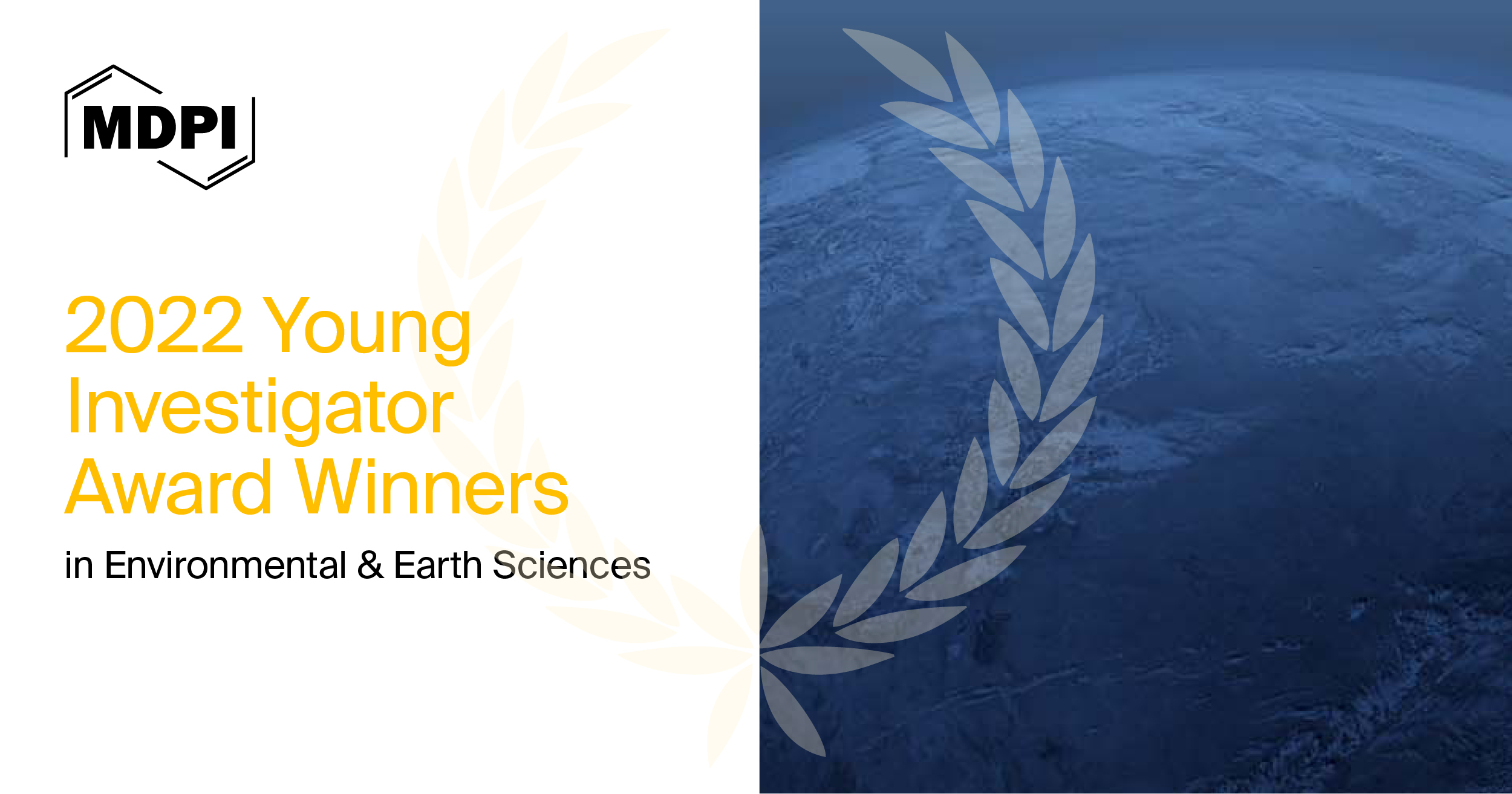
MDPI’s Young Investigator Awards recognize promising junior researchers, acknowledge their contributions, and enhance communication among scientists. We are proud to present the winners for the year 2022 in environmental and earth sciences. The winners were selected by the journals’ Award Evaluation Committee.
We warmly congratulate the awarded young investigators for their outstanding contributions. MDPI will continue to provide support and recognition to the academic community.
- Jianhuai Ye, Southern University of Science and Technology, China
- Saeed Golestan, Aalborg University (AAU), Denmark
- Michael Bertram, Swedish University of Agricultural Sciences, Sweden
- Shaunna M. Morrison, Carnegie Institution for Science, USA
- Danfeng Hong, Qingdao University, China
- Xiaolei Yuan, Aalto University, Finland
- Minjian Chen, Nanjing Medical University, China
- Sergi Garcia-Segura, Arizona State University, USA
About MDPI Awards:
In order to reward the academic community, especially young researchers and enhance communication among scientists, MDPI journals regularly offer various awards to researchers in specific fields. These awards, serving as a source of inspiration and recognition, help raise the influence of talented individuals who have been credited with outstanding achievements and are making a significant contribution to the advancement of their fields.
To explore more MDPI awards, please click here.
31 July 2023
MDPI’s 2022 Travel Awards in Environmental and Earth Sciences—Winners Announced
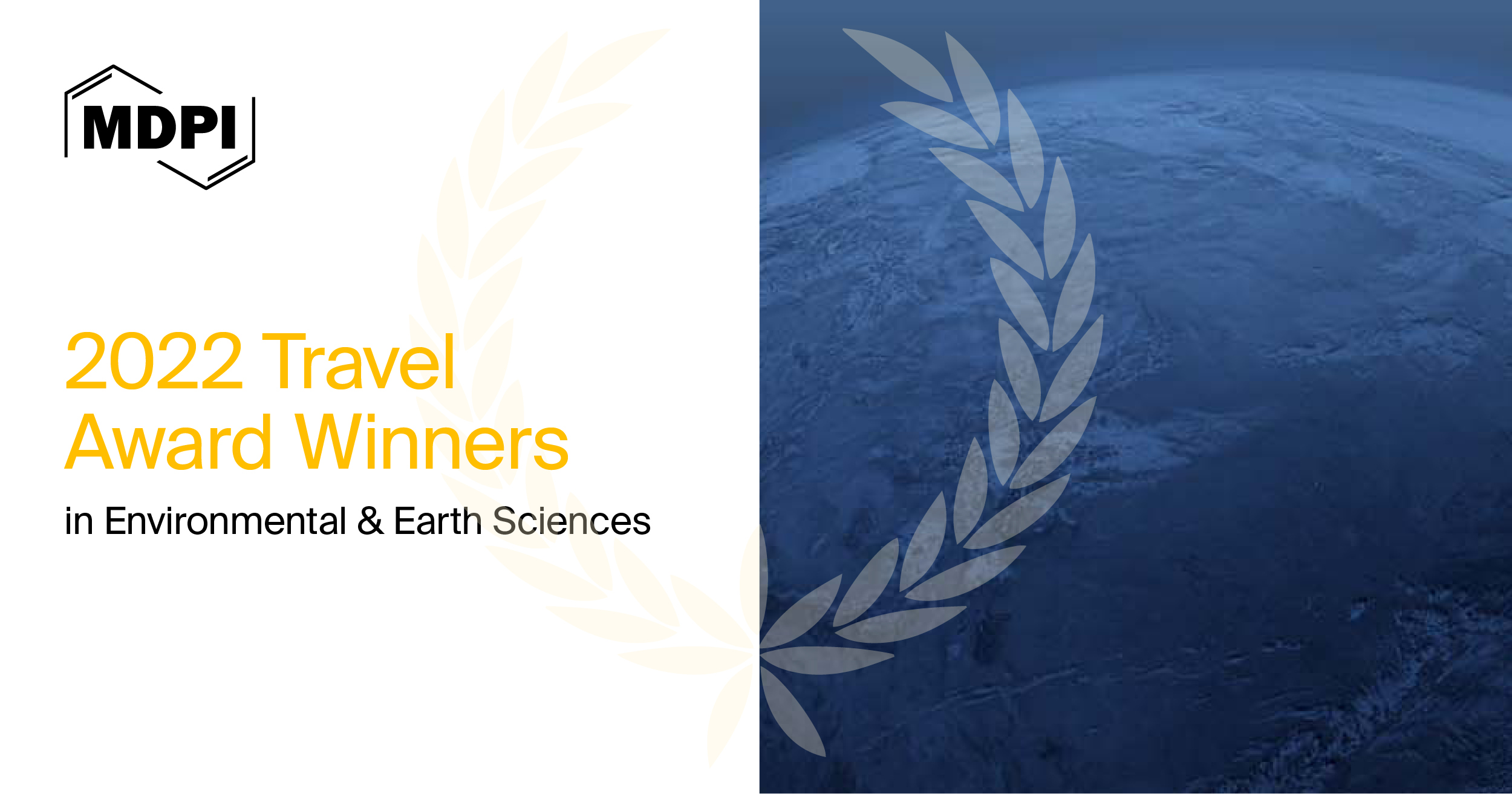
We are proud to recognize the winners of MDPI’s 2022 Travel Awards in environmental and earth sciences for their outstanding presentations and to present them with the prize.
MDPI journals regularly offer travel awards to encourage junior scientists to present their latest research at academic conferences in specific fields, which helps to increase their influence.
The winners mentioned below were carefully selected by the journal editors based on an outline of their research and the work to be presented at an academic conference.
We would like to warmly congratulate the winners of the 2022 Travel Awards and wish them the greatest success with their future research endeavors.
- Pavani Misra, Indian Institute of Technology Kanpur, India
- Runxia Cai, North Carolina State University, USA
- Lukasz Niedzwiecki, Wrocław University of Science and Technology, Poland
- Michael Eze, 1Macquarie University, Australia; 2University of Goettingen, Germany
- Murillo Vetroni Barros, Federal University of Technology—Paraná, Brazil
- Ana Novo, University of Vigo, Spain
- Eko Setio Wibowo, Kyungpook National University, Republic of Korea
- Esmaiil Mokarighahroodi, Texas A&M University, USA
- Roseane F. De Fátima Guimarães, Université de Montréal, Canada
- Phillips E. Obasohan, University of Sheffield, UK
- Katarina Baralić, University of Belgrade, Serbia
- Xianglong Xu, Monash University, Australia
- Jianwei Huang, The Chinese University of Hong Kong, China
- Sevim Sezi Karayazi, Eindhoven University of Technology, the Netherlands
- Rocky Talchabhadel, Texas A&M AgriLife Research, USA
- Leah Renwick, University of Chile, Chile
- Ana Novo, University of Vigo, Spain
- Renée Mie Fredensborg Hansen, 1Technical University of Denmark; 2Norwegian University of Science and Technology (in collaboration with The University Centre in Svalbard), Norway
- Aida Hosseinian, Oulu University, Finland
- Morteza Nazari-Heris, Pennsylvania State University, USA
- Domenico Mazzeo, University of Calabria, Italy
- Yuan Chen, The University of Sydney, Australia
- Sonia Khadija Maïté Gueroun, Tecnologia e Inovação (ARDITI), Portugal
- Konstantina Tsigkou, University of Patras, Greece
- Sabolc Pap, University of the Highlands and Islands, UK
- Xuexiu Jia, Brno University of Technology, Czech Republic
- Angelos Alamanos, Dundalk Institute of Technology, Ireland
About MDPI Awards:
In order to reward the academic community, especially young researchers and enhance communication among scientists, MDPI journals regularly offer various awards to researchers in specific fields. These awards, serving as a source of inspiration and recognition, help raise the influence of talented individuals who have been credited with outstanding achievements and are making a significant contribution to the advancement of their fields.
To explore more MDPI awards, please click here.
31 July 2023
MDPI’s 2022 Outstanding Reviewer Awards in Environmental and Earth Sciences—Winners Announced
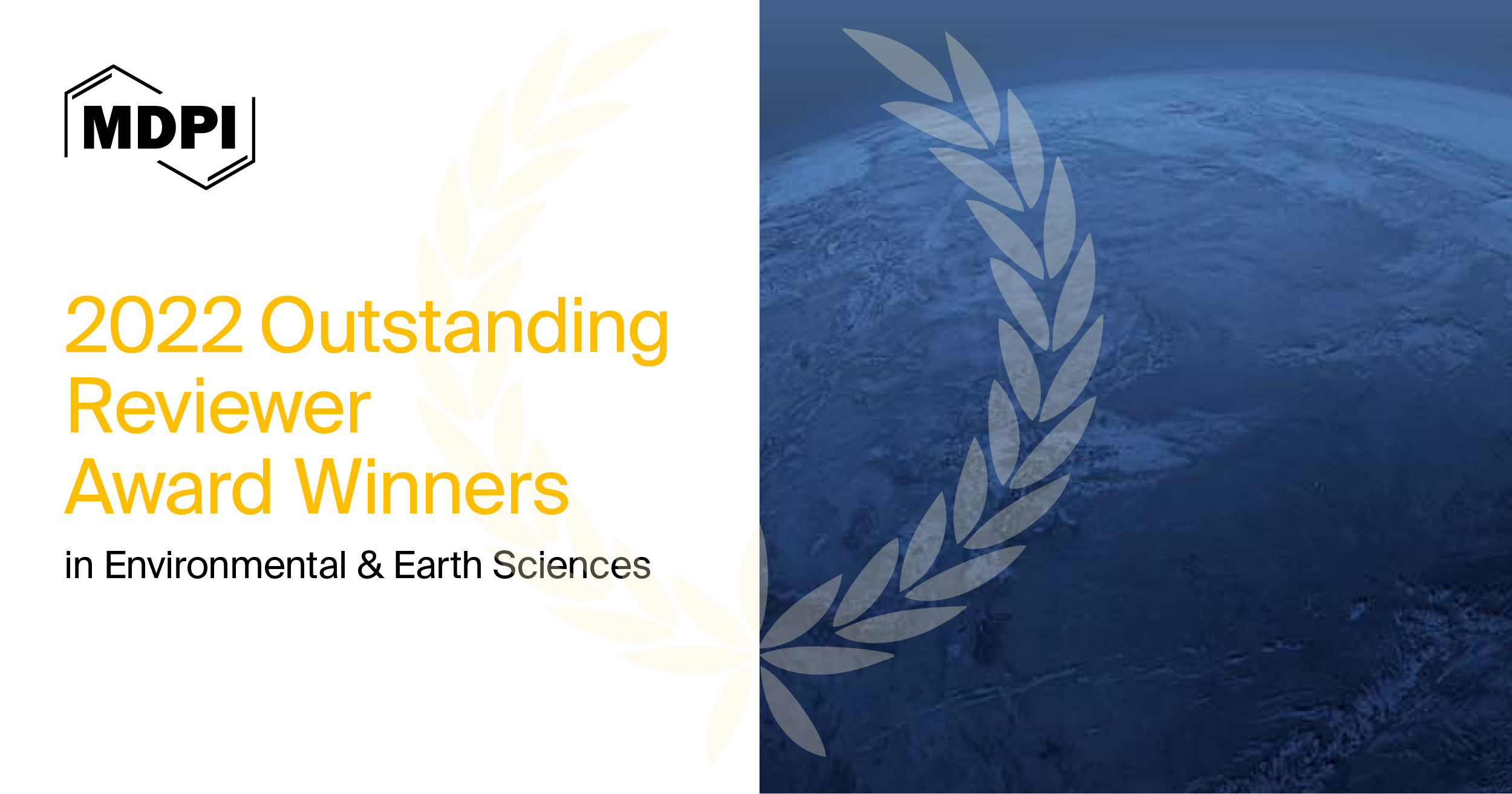
In order to acknowledge our reviewers, who so generously dedicate their time to reviewing papers and demonstrate diligence, professionalism, and timeliness when reviewing manuscripts, MDPI journals regularly offer outstanding reviewer awards to scholars who participate in the peer-review process.
We are proud to recognize the winners for the year 2022 in environmental and earth sciences for their outstanding contributions among the extensive competition by presenting them with an Outstanding Reviewer Award.
We would like to take this opportunity to congratulate all the winners on their achievements. MDPI will continue to provide support and recognition to the academic community.
- Stanislav Juráň, Global Change Research Institute CAS, Czech Republic
- Sandro W. Lubis, Pacific Northwest National Laboratory (PNNL), USA
- Eliza Kalbarczyk, Adam Mickiewicz University in Poznan, Poland
- Raffaele Carli, Polytechnic of Bari, Italy
- Marcos Tostado-Véliz, University of Jaén, Spain
- Andrea Mariscotti, University of Genova, Italy
- Xuejun Qian, Morgan State University, USA
- Dominik Zimon, Rzeszow University of Technology, Poland
- Petr Pyszko, University of Ostrava, Czech Republic
- Narayan Bhusal, Seoul National University, Republic of Korea
- Vasiliki Kamperidou, Aristotle University of Thessaloniki, Greece
- Muhammad Adnan Akram, Lanzhou University, China
- Jelena T. Petrović, Institute for Technology of Nuclear and Other Mineral Raw Materials, Serbia
- Martina Zucchi, University of Bari, Italy
- Theodore M. Present, California Institute of Technology, United States
- Anuli Njoku, Southern Connecticut State University, USA
- Álvaro Francisco Lopes De Sousa, Institute of Hygiene and Tropical Medicine, Portugal
- Carol Nash, University of Toronto, Canada
- Geovani Lopez-Ortiz, Universidad Nacional Autónoma de México, Mexico
- Jorge Velázquez Saornil, Universidad Católica de Ávila, Spain
- Naser Alsharairi, Menzies Health Institute Qld- Griffith University, Australia
- Salvador Baena-Morales, University of Alicante, Spain
- Shirley Wyver, Macquarie University, Australia
- Akihiko Katayama, Shikoku Gakuin University, Japan
- Alessandro Sapienza, Institute of Cognitive Sciences and Technologies (ISTC - CNR), Italy
- Alexandr Ceasovschih, “St. Spiridon” Emergency Hospital, Romania
- Alina Cernasev, University of Tennessee Health Science Center, USA
- Amelia Beata Staszowska, Lublin University of Technology, Poland
- Andreia Lima, Fernando Pessoa University, Portugal
- Anna Lipert, Medical University of Lodz, Poland
- Anson Kai Chun Chau, The Chinese University of Hong Kong, China
- Bianca Hanganu, “Grigore T. Popa” University of Medicine and Pharmacy of Iasi, Romania
- Bocong Yuan, Sun Yat-sen University, China
- Chee-Seng Tan, Universiti Tunku Abdul Rahman, Malaysia
- Christine Manlai Kwan,The University of Hong Kong, China
- Cristina Mendoza-Holgado, University of Extremadura, Spain
- Denise Dillon, James Cook University, Singapore
- Hiroyuki Noda, Graduate School of Medicine, Japan
- Isaac Rampedi, University of Johannesburg, South Africa
- Jan Domaradzki, Poznań University of Medical Sciences, Poland
- Joel Nitzkin, JLN, MD Associates, L.L.C., USA
- Kyung-Hyun Suh, Sahmyook University, Republic of Korea
- Lorenzo Gianquintieri, Polytechnic University of Milan, Italy
- Mariusz Duplaga, Jagiellonian University Medical College, Poland
- Matteo Riccò, Unità Operativa di Prevenzione e Sicurezza degli Ambienti di Lavoro, Italy
- Olga Czerwińska-Ledwig, University of Physical Education in Kraków, Poland
- Petra Marková, Slovak University of Technology in Bratislava, Slovakia
- Piyapong Janmaimool, Kochi University of Technology, Japan
- Rafał Gerymski, Opole University, Poland
- Rasa Jankauskiene, Lithuanian Sports University, Lithuania
- Ruben Lopez-Bueno, University of Zaragoza, Spain
- Siu Shing Man, City University of Hong Kong, China
- Tomasz Sobierajski, University of Warsaw, Poland
- Wang-Kin Oscar Chiu, Hong Kong Polytechnic University, China
- Yang Wu, Huazhong University of Science and Technology, China
- Fernando P. Fonseca, Universidade do Minho, Portugal
- Polina Lemenkova, Université Libre de Bruxelles, Belgium
- Alexandre B. Gonçalves, University of Lisbon, Portugal
- Marcin Kulawiak, Gdansk University of Technology, Poland
- Dennis Edler, Ruhr-University Bochum, Germany
- Concetta Cardillo, Center for Agricultural Policies and Bioeconomy, Italy
- Elisabetta Maria Venco, University of Pavia, Italy
- Małgorzata Dudzińska, University of Warmia and Mazury in Olsztyn, Poland
- Lubomir Strba, Technical University of Kosice, Slovakia
- Naresh Duvva, University of Texas at San Antonio, USA
- Aleksandra Jezierska-Thöle, Kazimierz Wielki University, Poland
- Piotr Borowski, Vistula University, Poland
- Elżbieta Szaruga, University of Szczecin, Poland
- Raffaele Carli, Polytechnic of Bari, Italy
- Joana Costa, University of Szczecin, Portugal
- Silvia Puiu, University of Craiova, Romania
- Miguel Afonso Sellitto, School of Unisinos, Brazil
- Tiago F. A. C. Sigahi, University of São Paulo, Brazil
- Abdalwali Lutfi, King Faisal University, Saudi Arabia
- Jarosław Uglis, Poznań University of Life Sciences, Poland
- Ágnes Csiszárik-Kocsir, Óbuda University, Hungary
- Jianwan Ji, Suzhou University of Science and Technology, China
- Aldona Zawojska, Warsaw University of Life Sciences, Poland
- Jianwei Qian, Hangzhou Normal University, China
- Ali Saleh Alshebami, King Faisal University, Saudi Arabia
- José Belda-Medina, University of Alicante, Spain
- Ana Dias, University of Aveiro, Portugal
- Krzysztof Rząsa, University of Warmia and Mazury in Olsztyn Poland, Poland
- Andreea-Ionela Puiu, The Bucharest University of Economic Studies, Romania
- Krzysztof Skrzypkowski, AGH University of Science and Technology, Poland
- Andrés Velástegui-Montoya, Escuela Superior Politécnica del Litoral (ESPOL), Ecuador
- Louis S. H. Lee, University of Hong Kong, Hong Kong
- Anita Silvana Ilak Peršurić, Institute of Agriculture and Tourism, Croatia
- Marek Gaworski, Warsaw University of Life Sciences, Poland
- Brett Bligh, Lancaster University, UK
- Meike Rombach, Lincoln University, New Zealand
- Catarina Fernandes, Instituto Politécnico de Bragança, Portugal
- Ming-Lang Tseng, Asia University, Taiwan
- Charitha Dias, Qatar University, Qatar
- Nicoleta Dospinescu, Alexandru Ioan Cuza University, Romania
- Daniel Badulescu, University of Oradea, Romania
- Roman Trach, Warsaw University of Life Sciences, Poland
- Darko Božanić, University of Defense in Belgrade, Serbia
- Romina D’Ascanio, Roma Tre University, Italy
- Donatella Privitera, University of Catania, Italy
- Sol García-Germán, Universidad Politécnica de Madrid, Spain
- Eleonora Santos, Polytechnic Institute of Leiria, Portugal
- Valentina Vasile, Romanian Academy, Romania
- Francis Boadu, Kumasi Technical University, Ghana
- Yir-Hueih Luh, National Taiwan University, Taiwan
- Chris Douvris, New York Institute of Technology, USA
- Meysam Vadiati, University of California, USA
- Carmine Apollaro, University of Calabria (UniCAL), Italy
- Giacomo Medici, University of Guelph, Canada
- Katarzyna Pietrucha-Urbanik, Rzeszow University of Technology, Poland
- Dobrochna Ginter-Kramarczyk, Poznan University of Technology, Poland
- Vladimir Dvoretsky, Murmansk Marine Biological Institute, Russia
- Chengcheng Xia, University of Padova, Italy
- Aristeidis Kastridis, Aristotle University of Thessaloniki, Greece
- Majid Niazkar, University of Milan, Italy
- Yuliia Trach, Szkoła Główna Gospodarstwa Wiejskiego w Warszawie, Poland
About MDPI Awards:
In order to reward the academic community, especially young researchers, and enhance communication among scientists, MDPI journals regularly offer various awards to researchers in specific fields. These awards serve as a source of inspiration and recognition, and help promote the influence of talented individuals who have been credited with outstanding achievements and who are making a significant contributions to the advancement of their field.
To explore more MDPI awards, please click here.
28 July 2023
Meet Us at the 118th Congress of the Italian Botanical Society, 13–16 September 2023, Pisa, Italy
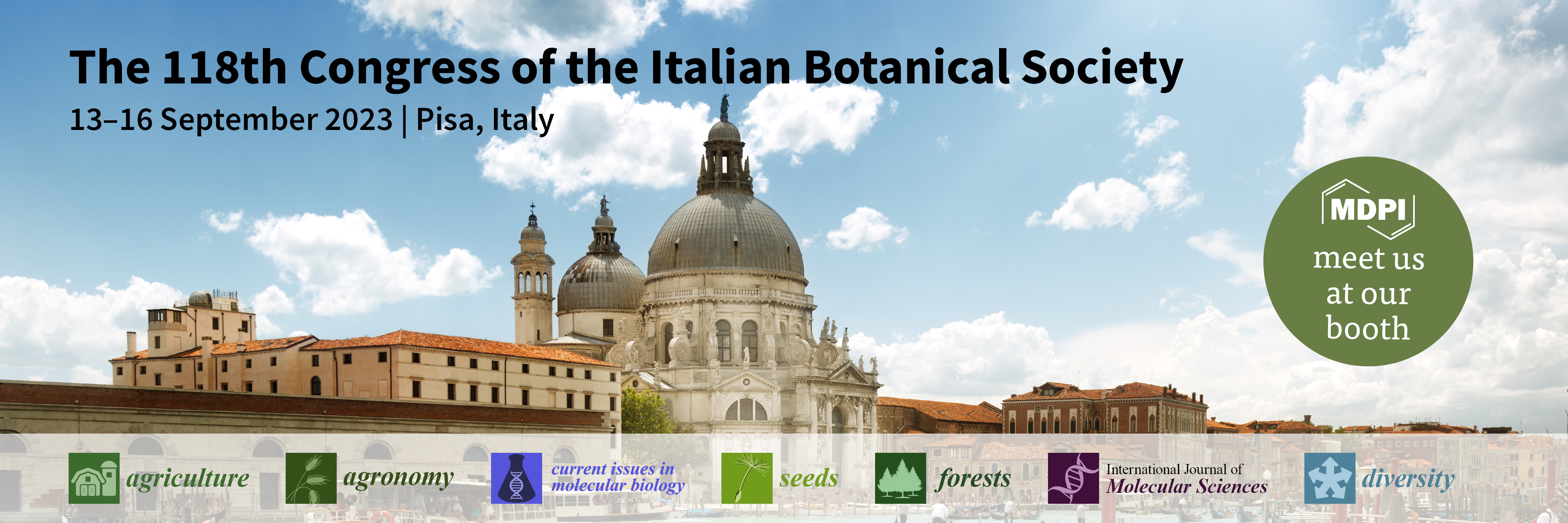
MDPI will attend the 118th Congress of the Italian Botanical Society. This event will be hosted by the Italian Botanical Society and will take place from 13 to 16 September 2023 in Pisa, Italy.
There will be speeches by internationally renowned experts in various fields of botany. The conference will introduce several innovations to ensure fair representation of all cultural areas of the association and to maximize the impact of the posters. Each full workshop exchange and each brief oral poster presentation will be associated with 1 of 42 keywords (6–8 from each macro theme), covering the diversity of research areas represented by the Social Work Group.
The following MDPI journals will be represented:
If you plan on attending this conference, please feel free to stop by our booth and speak with us. Our delegates look forward to meeting you in person and answering any questions that you may have.
For more information about the conference, please visit https://www.societabotanicaitaliana.it/118/eng/detail.asp?idn=5035.
27 July 2023
MDPI Insights: The CEO’s Letter #2 - Open Peer-Review and IJERPH

Welcome to the MDPI Insights: The CEO's Letter.
In these monthly letters, I will showcase two key aspects of our work at MDPI: our commitment to empowering researchers and our determination to facilitating open scientific exchange.
Opening Thoughts

Open Peer Review Reports
Continuing the topic of openness from my inaugural monthly CEO letter, in these Opening Thoughts, I highlight the growth and importance of open peer-review reports at MDPI. Open peer reports align with the principles of open science, making the publishing process more transparent and facilitating rigorous peer review.
MDPI journals operate an open peer-review option by default, allowing authors to publish review reports and author responses (often referred to as open reports) together with the published paper. Publishing the reviewer reports and author responses together with the article provides greater transparency and trust for readers, as this allows them to track the editorial decision-making process. Open peer-review also encourages reviewers and editors to provide high-quality comments, as these will be made public if the article is accepted for publication.
Start and Growth of Open Peer Review at MDPI
The MDPI journal Life was a pioneer in offering this opportunity to its authors in 2014. The first MDPI article with peer-review reports openly published was a review by the Nobel Laureate Werner Arber, in which the review reports were published as supplementary material. By 2018, open peer-review was available across all MDPI journals. As such, MDPI authors have embraced the open peer-review model, providing a steady increase in the number of MDPI articles. As of 2023, approximately one-third (34.0%) of MDPI articles were published with open review reports.
As at July 2023, the percentage of MDPI articles published with open peer review has increased to 36.2% of the total papers published in 2023 so far, indicating ongoing growth in adoption.
Open peer review continues to play a critical role in the assessment of the peer-review process in Life. For further insights, please see the recent editorial by Dr. Pabulo Henrique Rampelotto, the former Editor-in-Chief of Life, who spearheaded the implementation of the open peer-review process.
Benefits of Open Peer Review
The benefits of open peer review include increased transparency, trust and constructive feedback. To promote open communication further and increase the robustness of the peer-review process, we encourage reviewers to sign their reports so that their name appears on the review report (this process is referred to as open identity). The default option is for reviewers to remain anonymous; however, by signing the reports, reviewers receive direct credit for their contribution to the peer-review process and show their commitment towards open science.
As the leading open access publisher, MDPI remains committed to promoting open peer-review and encourages authors to choose this approach. Our goal is to provide a rigorous and transparent peer-review process that benefits the scientific community, and we believe that open peer-review is a vital step in fostering openness and collaboration in scientific communication.
Impactful Research

MDPI Papers Cited in the News – IJERPH edition
Every month, our corporate marketing team compiles data from Altmetrics to create a list of MDPI papers that have been cited in the news. This list continues to grow as renowned news outlets regularly reference research published by MDPI in their articles.
During 2022, a total of 111,965 MDPI research papers were mentioned in prominent news outlets such as National Geographic, The Washington Post, Forbes, The Guardian, the BBC, CNN, Time, and Harvard Business Review.
Highly Cited Journal Publications
IJERPH, known for publishing impactful research, received the most news mentions among all MDPI journals in 2022, based on Altmetrics data:
- International Journal of Environmental Research and Public Health: 3509 mentions
- Nutrients: 2698 mentions
- International Journal of Molecular Sciences: 1701 mentions
- Journal of Clinical Medicine: 1131 mentions
- Viruses: 1111 mentions
These numbers show the recognition and impact of the articles published in IJERPH. For a more detailed view of the journal’s most cited and viewed papers, you can visit here. In total, IJERPH has garnered over 28,000 mentions in prominent news outlets, and as at July 2023, an impressive count of over 17,000 papers cited 10 times or more. These figures highlight the impactful contribution of IJERPH publications to the scientific community.
Example of Recent Mentions
During May and June 2023, a noteworthy selection of articles from IJERPH was cited in news articles, including:
The Washington Post: “Bringing nature inside can improve your health. Here’s how to do it.”
IJERPH paper: “Physiological Benefits of Viewing Nature: A Systematic Review of Indoor Experiments”
Harvard Business Review: “How to Take Better Breaks at Work, According to Research”
IJERPH paper: “Canine-Assisted Therapy Improves Well-Being in Nurses”
National Geographic: “Lyme disease is spreading fast—but a vaccine may be on the way”
IJERPH paper: “Range Expansion of Tick Disease Vectors in North America: Implications for Spread of Tick-Borne Disease”
Inside MDPI

MDPI Develops an Artificial Intelligence Tool to Enhance the Peer-Review Process
At MDPI, we believe that rigorous peer-review is the corner-stone of high-quality academic publishing. We are grateful to the scholars who generously dedicate their time to peer-review articles submitted to MDPI journals. Their contributions are invaluable to the advancement of science.
Peer-review is a critical part of the publication process, ensuring that MDPI upholds the highest quality standards for the papers we publish. Every manuscript submitted to our journals undergoes a comprehensive peer-review process conducted by subject-matter experts.
To further enhance our peer-review process, our Data Analytics team has developed an Artificial Intelligence (AI) tool designed to support the selection of reviewers. This proprietary tool utilizes Natural Language Processing (NLP), a specially designed AI language model, to extract information from the title and abstract of submitted papers. It then searches our database for similar manuscripts and suggests potential reviewers based on this analysis. Integrated with MDPI's submission system (SuSy), the AI tool cross-references the suggested candidates with our reviewer database to verify their invitation status and availability.
The goal of this tool is to provide better targeted peer-review invitations, reducing the number of emails sent for each paper and increasing the efficiency of our editorial staff.
In the near future, our Data Analytics team plans to deploy similar AI projects to improve other critical aspects of our services, offering an enhanced experience to our authors and readers.
Click here to learn about MDPI’s review process, including procedures, responsibilities, and benefits.
Read more:
Coming Together for Science
The Future of IJERPH

On 5 July 2023, Prof. Dr. Paul B. Tchounwou, the founding Editor-in-Chief of IJERPH, along with five Section Editors in Chief (Prof. Dr. Germán Vicente-Rodríguez, Prof. Dr. Karl Goodkin, Prof. Dr. William A. Toscano, Prof. Dr. Jimmy T. Efird, and Prof. Dr. William Douglas Evans), gathered in Basel to discuss the future of the journal. The meeting provided an opportunity to address the recent decision by The Web of Science to delist IJERPH due to the journal failing the Content Relevance criterion, and propose best strategies that will ensure high scientific rigor as well as a clear scope and aim of IJERPH, going forward.
While the delisting is disappointing for IJERPH, as well as for our authors, academic editors, and the entire scientific community supporting our journal, we see it as an opportunity to reflect and prepare for the future direction of the journal.
Since its launch in 2004, IJERPH’s vision and mission have evolved to be more complete and comprehensive in engaging scientific communities. In light of this, we will refresh the journal’s aims and scope, ensuring they align with the organic expansion of IJERPH. Additionally, we will restructure the journal sections into broader categories, encouraging collaborative research and transdisciplinary approaches for authors. This is designed to foster collaboration and knowledge exchange among diverse fields, contributing to a holistic understanding of health promotion and disease prevention. We are confident that these next steps will enhance the scientific strength and societal impact of our journal.

Journal Achievements
In addition to the productive discussions, we took the time to celebrate some of the remarkable achievements of IJERPH, which I highlight below:
- Founded by Prof. Dr. Paul B. Tchounwou in 2004
- Indexed in PubMed in 2008
- Received its first Impact Factor in 2012
- Published its 5000th paper in 2017
- Over 60,000 papers published as at June 30, 2023
- 131,628,173 paper views in 2018–2022
- Over 28,000 mentions in prominent news outlets
- 17,000 papers cited 10 times or more as at June 30, 2023
- No.1 journal in the 2022 Google Scholar Metrics in the category of Public Health
- Awarded several editions of Young Investigator Awards, Travel Awards, and Outstanding Reviewer Awards since 2018.
These achievements showcase the journal’s significant contributions to the field and its impact on global health. We are proud of the exceptional work accomplished by the IJERPH team and look forward to building upon this success in the years to come.
Closing Thoughts
MDPI’s Impact in Spain

During the past month, I had the opportunity to visit our new office building in Barcelona, where I met with our local colleagues to discuss the ways we serve the scholarly community, particularly in Spain. The multi-functional office plays a vital role in supporting various business needs, including editorial, design, conference management, data analytics, journal relationship management, publishing partnerships, and collaborations with societies.
Spain holds a significant position in MDPI’s global market, ranking as the fourth-largest contributor to the total number of papers published by MDPI as at July 2023, ranking next to Italy, the USA, and China, with Germany completing the top five.
The Numbers
Out of the 1,680,000 total MDPI articles published as at 25 July, almost 80,000 articles are contributed by Spanish authors, representing nearly 40,000 unique authors affiliated with Spanish institutions. Remarkably, over 6,300 of these authors hold editorial board member (EBM) positions within MDPI journals, with 30 of them serving as Editors-in-Chief (EiCs).
Our commitment to working with institutions is very evident in Spain, where we have successfully established over 40 Institutional Open Access Programs (IOAP) with esteemed institutions such as the University of Barcelona, the Autonomous University of Barcelona, Pompeu Fabra University, the University of Navarre, and Complutense University of Madrid.
Over the past five years, we have successfully organized eight in-person conferences in Barcelona, attracting over 1,150 registrations, with two forthcoming events scheduled for 2024. Barcelona's excellent connectivity to international airports makes it easily accessible to participants from around the world. Its welcoming atmosphere provides us with the perfect environment for knowledge-sharing, networking, and contributing to the local economy.
Our growth and presence in Spain are a true testament to the incredible service we provide to the scholarly community and the relationships we foster through responsive and collaborative communication. We look forward to continuing to support Spanish scholars, providing them a valuable and trusted experience with MDPI, the leader in open access publishing.
Testimonials
I close this letter as I did in the first edition, by sharing testimonials from our stakeholders. Here are a few IJERPH testimonials from a Spanish guest editor and an author:
Guest Editor
“I want to thank the kindness, attention and professionalism of the MDPI team throughout the editorial process of the Special Issue. I believe that it is a very professional and quality editorial process.”
- Professor Víctor Arufe-Giráldez, University of A Coruña
Special Issue in International Journal of Environmental Research and Public Health: Physical Activity in Childhood and Adolescence
Special Issue in International Journal of Environmental Research and Public Health: Physical Education: Present and Future
__
Author
“I want to thank the rigor of the revisions made to the manuscripts to improve their quality, the support to the authors for the editor assignment system they have and the follow-up they carry out, for the speed in answering and in carrying out the entire process of the revision, and for doing all this at an affordable price.”
- Dr. María Paz García-Caro, University of Granada
Article in International Journal of Environmental Research and Public Health: Factors Associated with Suicide Attempts and Suicides in the General Population of Andalusia (Spain)
Chief Executive Officer
MDPI AG
19 July 2023
Meet Us at the 12th International Congress of Plant Pathology, 20–25 August 2023, Lyon, France
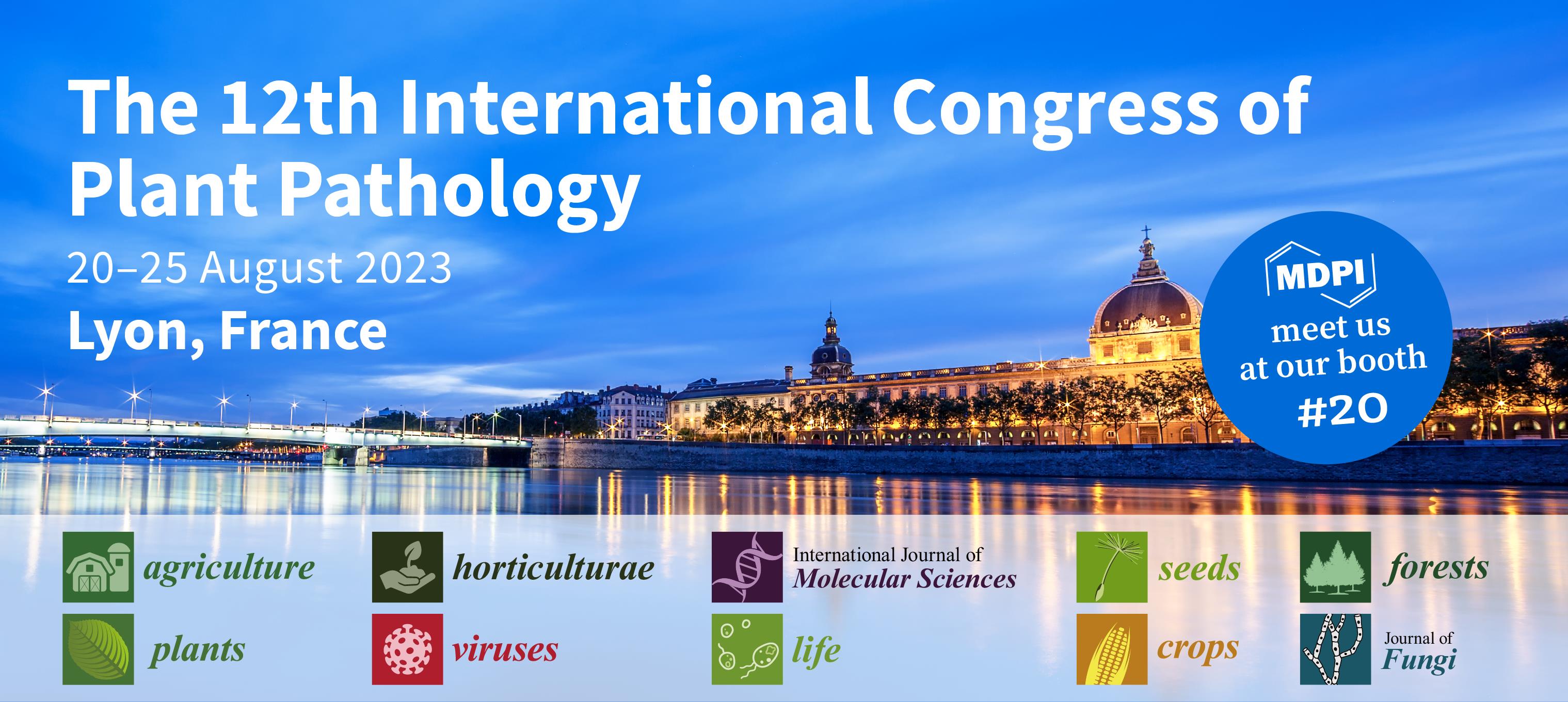
MDPI will attend the 12th International Congress of Plant Pathology. This event will be held from 20 to 25 August 2023 in Lyon, France, and is hosted by the International Society for Plant Pathology.
Plant pathologists and plant health researchers from around the world will meet to discuss their latest research as well as the current and future issues facing plant health experts. The host, the French Phytopathological Society, has set an exciting and challenging theme for the congress: “One Health for all plants, crops and trees”. This topic promises to provide a broad platform for talks, posters, and discussions that consider the integral nature of plant health with human, animal, and environmental health. In addition to an excellent program of keynote talks, concurrent sessions, poster presentations, and networking opportunities, there will be a number of satellite events before the meeting dates to provide opportunities for deeper discussions on a number of topics.
The following MDPI journals will be represented:
- Agriculture (leading);
- Plants;
- Horticulturae;
- Viruses;
- IJMS;
- Life;
- Seeds;
- Crops;
- Forests;
- JoF.
If you plan on attending this conference, please feel free to stop by our booth and start a conversation with us. Our delegates look forward to meeting you in person and answering any questions that you may have. For more information about the conference, please visit https://www.icpp2023.org/.
14 July 2023
Forests | Most Cited Special Issues
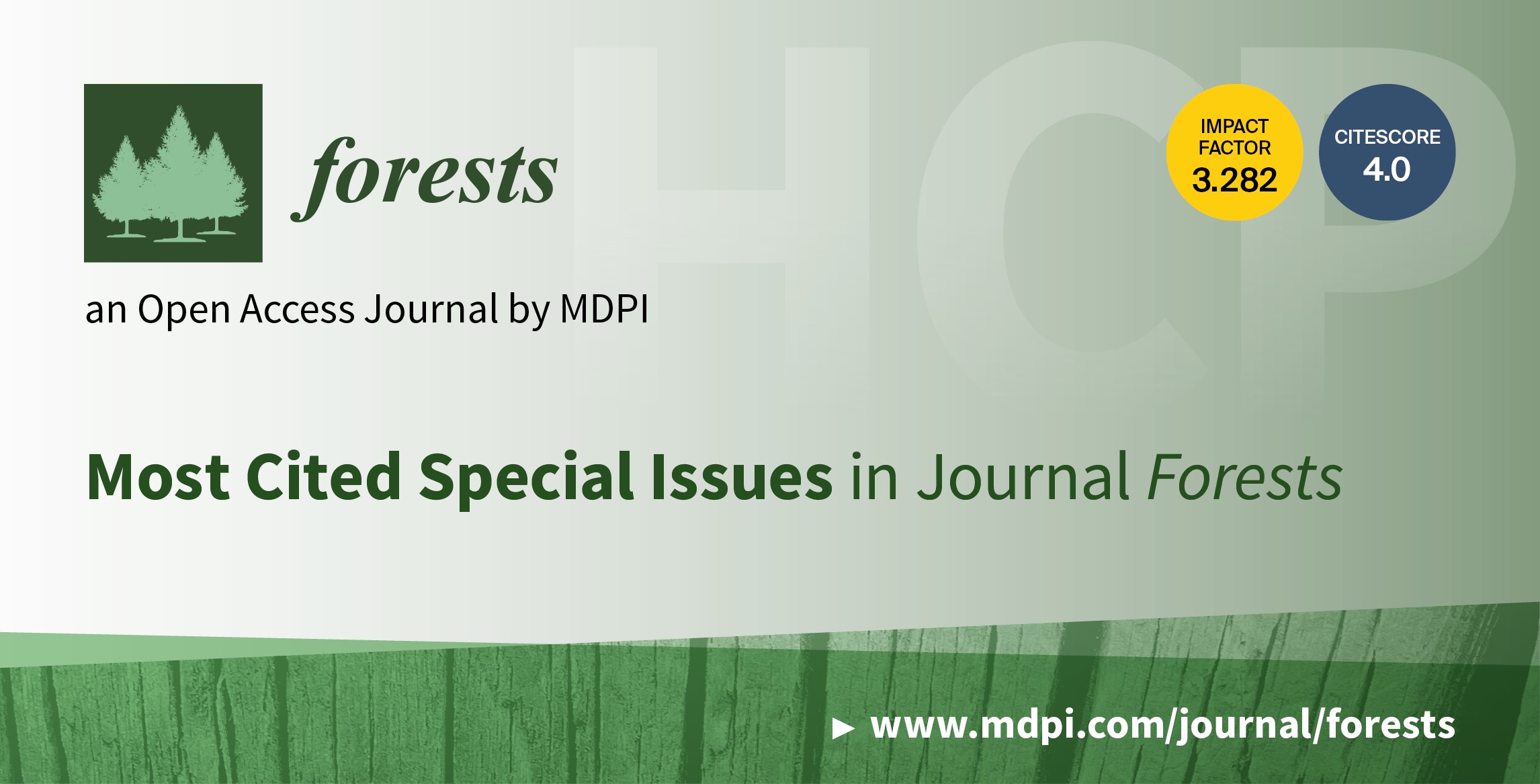
We are pleased to share the most cited Special Issues published by Forests (ISSN: 1999-4907). These Special Issues are ranked by the average number of citations (total number of citations divided by the number of papers). The data are for the last 36 months.
You are welcome to browse the Special Issues and the articles published in them that are of interest to you. In addition, you can find more highly cited and viewed Special Issues and articles published in Forests here.
1. "Electronics, Close-Range Sensors and Artificial Intelligence in Forestry"
Edited by Stelian Alexandru Borz, Andrea R. Proto, Robert Keefe and Mihai Nita
Webpage: https://www.mdpi.com/journal/forests/special_issues/forest_engineering
Average Citations: 21.38 | Number of Papers: 13
2. "Historical Wood: Structure, Properties and Conservation"
Edited by Magdalena Broda and Callum A. S. Hill
Webpage: https://www.mdpi.com/journal/forests/special_issues/historical_wood
Average Citations: 6.87 | Number of Papers: 15
3. "Climate Change and Air Pollution Effects on Forest Ecosystems"
Edited by Ovidiu Badea, Alessandra De Marco, Pierre Sicard and Mihai A. Tanase
Webpage: https://www.mdpi.com/journal/forests/special_issues/climate_pollution_ecosystem
Average Citations: 6.64 | Number of Papers: 11
4. "Evaluation and Protection of Wood and Wood Products"
Edited by Lina Nunes, Dennis Jones and Bruno Esteves
Webpage: https://www.mdpi.com/journal/forests/special_issues/Protection_Wood
Average Citations: 6.18 | Number of Papers: 11
5. "Wood Production and Promotion"
Edited by Michele Brunetti, Michela Nocetti and Alexander Petutschnigg
Webpage: https://www.mdpi.com/journal/forests/special_issues/wood_production
Average Citations: 5.67 | Number of Papers: 15
6. "Forest Vegetation Monitoring through Remote Sensing Technologies"
Edited by Steven L. Petersen
Webpage: https://www.mdpi.com/journal/forests/special_issues/vegetation_monitoring
Average Citations: 5.33 | Number of Papers: 14
7. "Mangrove Wetland Restoration and Rehabilitation"
Edited by Victor H. Rivera-Monroy, Xosé Lois Otero-Pérez, Jorge Lopez-Portillo and Tiago Osorio Ferreira
Webpage: https://www.mdpi.com/journal/forests/special_issues/Mangrove_Restoration
Average Citations: 5.27 | Number of Papers: 15
8. "Simulation Models of the Dynamics of Forest Ecosystems"
Edited by Guy R. LaRocque, Weifeng Wang, Herman H. Shugart and Vladimir Shanin
Webpage: https://www.mdpi.com/journal/forests/special_issues/Forest_Simulation_Models
Average Citations: 5.12 | Number of Papers: 17
9. "Management of Forest Pests and Diseases"
Edited by Young-Seuk Park and Won Il Choi
Webpage: https://www.mdpi.com/journal/forests/special_issues/forest_pests
Average Citations: 5 | Number of Papers: 15
10. "Biological Control in Forests Protection"
Edited by Justyna A. Nowakowska, Lassaâd Belbahri and Tomasz Oszako
Webpage: https://www.mdpi.com/journal/forests/special_issues/biological_protection
Average Citations: 4.82 | Number of Papers: 11
11 July 2023
MDPI’s Newly Launched Journals in June 2023
With the first issue released in June 2023, five new MDPI journals disseminating multi-disciplinary science are due to launch, which will cover the subjects of medicine & pharmacology, biology and physical sciences.
The newly launched journals will be overseen by professional Editorial Board Members and Editors to ensure an accurate and rapid publication, rigorous peer review and broad visibility.
Please feel free to browse and discover more about the new journals below.
| Journal | Founding Editor-in-Chief | Journal topics (selected) |
| Prof. Dr. Jun Ma, Peking University, China| Editorial | view inaugural issue | growth and development; diet and nutrients; school health promotion policies and practices; child health and care; adolescent health and wellbeing | view journal scope | submit an article |
|
| Prof. Dr. Bernd Rehm, Griffith University, Australia | Editorial | view inaugural issue | DNA and gene synthesis; synthetic transcription factors; protein engineering; viral engineering; metabolic engineering | view journal scope | submit an article | |
| Prof. Dr. Varsha Gandhi, University of Texas MD Anderson Cancer Center, USA | Editorial | view inaugural issue | lymphatics; cancers associated with lymphocytes and lymphoblasts; lymphatic tissues; lymphoma; lymphoid leukemia | view journal scope | submit an article | |
| Dr. Bradley Turner, University of Melbourne, Australia | Editorial | view inaugural issue | multiple sclerosis; amyotrophic lateral sclerosis; primary lateral sclerosis; atherosclerosis; systemic sclerosis | view journal scope | submit an article | |
 |
Prof. Dr. Clemens Burda, Case Western Reserve University, USA | Editorial | view inaugural issue | Gamma ray, X-ray, and UV–Vis spectroscopies; NIR/mid-infrared/Raman spectroscopy; microwave and THz spectroscopy; high-resolution gas-phase atomic, molecular, and cluster spectroscopy; MS, NMR, and EPR spectroscopy | view journal scope | submit an article |
We wish to thank everyone who has supported the development of open access publishing. You are welcome to submit an application to the New Journal Committee (newjournal-committee@mdpi.com) if you would like to create more new journals.
3 July 2023
MDPI Insights: The CEO’s Letter #1 - Open Access and Impactful Research

Welcome to the MDPI Insights: The CEO's Letter.
In these monthly letters, I will showcase two key aspects of our work at MDPI: our commitment to empowering researchers and our determination to facilitating open scientific exchange.
Opening Thoughts
The Future is Open, and MDPI is Leading the Way
I strongly believe in a future that embraces openness, where open source, open information, and open access (OA) take center stage. This belief that led me to join MDPI in 2020, and I am honored to have recently been appointed as Chief Executive Officer (CEO). In this capacity, and operating in close liaison with Dr. Lin and MDPI’s senior management, I shall work to build on Dr. Lin’s achievements of the past quarter-century. In this role, I will focus on communication initiatives to promote MDPI's remarkable work and continue to build our company as a trusted leader in OA publishing. For over two decades, MDPI has been at the forefront of reshaping the academic publishing landscape, with OA surpassing subscription-based publishing in 2020. This trajectory is deeply rooted in our history and reflects our unwavering commitment and vision for an open future.
1 Million Published Articles
2023 began with a remarkable achievement for MDPI, as we became the first OA publisher to reach the milestone of 1 million published articles. This represents 2.7 million unique authors who have trusted us with their work, or about a third of all researchers worldwide. As the world's most cited OA publisher, we are proud in sharing these significant milestones.
Our mission remains unchanged: to make science open and accessible to all. We understand the importance of knowledge access, empowering researchers to stay at the forefront of a rapidly changing world. Our diverse range of journals covers a wide spectrum of disciplines, offering cutting-edge insights, trusted tools, and crucial knowledge to address global challenges.
Liberating Science
As the world’s leading OA publisher, MDPI is actively liberating science. We are committed to eliminating the frustrations researchers and the general public face when accessing information, ensuring it is not locked behind paywalls. We firmly believe that everyone has a right to information, and our commitment to open access publishing drives our work.
In this inaugural edition of Insights: The CEO's Letter, I draw inspiration from the upcoming 20th anniversary of the Berlin Declaration on Open Access. Its stated mission reminds us that true impact is achieved when knowledge is widely and readily available to society:
"Our mission of disseminating knowledge is only half complete if the information is not made widely and readily available to society”
Impactful Research

MDPI Publishes Impactful Research: Recognized by Leading Indexing Databases
MDPI journals are indexed in every single top database in the world.
As of June 2023, we have 214 journals indexed within Web of Science, 223 indexed within Scopus, 87 indexed within PubMed and PMC, and 17 indexed within MEDLINE, and these numbers increase every month. We constantly strive to expand the coverage of our journals within leading multi-disciplinary and scope-specific databases, resulting in an incredibly broad range of journals that are indexed within a variety of databases. MDPI has active relationships with approximately 65 well-known databases around the world, and we continue to expand our portfolio every year so that your work can be found, cited, and referenced with ease.
Continued Growth of MDPI Journals
The 2022 Scopus and Web of Science journal citation metrics were officially released in June, and I am pleased to report that 31 MDPI journals received their first CiteScore, taking the total number of journals with a CiteScore to 216. The number of MDPI journals receiving an Impact Factor (IF) also continues to grow with 111 receiving their first, by being covered in the ESCI, bringing our total number of journals with an IF to 208 of which 41 journals received an IF above 4.0. Looking at 2022 CiteScores in the Scopus database, 80% of MDPI journals have a score that ranks them in Q1 or Q2 in at least one subject category.
Publishing impactful science would not be possible without all of our authors, editors and reviewers. Thank you for your contribution and continued support! Together we share the latest scientific insights faster and ensure that your work is accessible to all.
Read more
Inside MDPI

Preprints.org: Clarivate adds the Preprint Citation Index to the Web of Science
At MDPI, we are dedicated to driving the advancement of science. Through our initiative, Preprints.org, researchers can publish their work and gain valuable feedback from the broader research community, ensuring rapid progress in their respective fields. This is particularly crucial during times of health and climate challenges, where timely dissemination of findings is essential.
Increased Visibility for Preprints
I am pleased to share that Clarivate recognizes the significance of preprints and has taken a crucial step to enhance their visibility. Clarivate has added the Preprint Citation Index to the Web of Science, encompassing preprints published not only on Preprints.org but also on other reputable repositories.
Looking ahead, the future of preprints appears promising, bolstered by the recent indexing announcement from the Web of Science. As a result, preprints will receive increased visibility, serving as a valuable resource for staying informed about the latest research developments.
Read more
What are Preprints?
The Pros and Cons of Preprints
Preprints and COVID-19
Preprints—The Future of Open Access Publishing?
Coming Together for Science

The First International Conference on Antioxidants: Sources, Methods, Health Benefits and Industrial Applications
In this edition of ‘Coming Together for Science,’ I am pleased to highlight the First International Conference on Antioxidants organized by our conference team in the beautiful city of Barcelona, Spain. The conference attracted over 130 attendees, who engaged in 42 talks, and 89 poster presentations spread across several sessions.
Working Together
Under the leadership of Prof. Dr. Alessandra Napolitano (Department of Chemical Sciences, University of Naples ‘Federico II’, Naples, Italy) and Prof. Dr. Rosa M. Lamuela Raventos (Department of Nutrition, Food Sciences and Gastronomy, University of Barcelona, Spain) as chairs, and supported by the committee members, 10 invited keynote speakers, poster presenters, and all the attendees, this dedicated group of academics came together to discuss the natural sources, methodologies, health benefits, and industrial applications of antioxidants.
Especially noteworthy is the positive feedback received from attendees, with 94% rating the overall organization of the conference as good or excellent. I particularly love the picture above, capturing the gathering of some of the participants. You can browse through more photos in the event gallery located here.
Managing Events With Sciforum
If you are considering hosting your own academic event, I highly recommend checking out Sciforum, MDPI's event management platform. Sciforum simplifies the entire process, making it easy to host your own event by allowing you to focus on what really matters: Science!
Read more
Closing Thoughts
 Stefan Tochev, Dr. Shu-Kun Lin, Dr. Eric O. Freed, Peter Roth, Wynne Wang, Allison Yang
Stefan Tochev, Dr. Shu-Kun Lin, Dr. Eric O. Freed, Peter Roth, Wynne Wang, Allison Yang
Viruses and Editorial Quality: Acknowledging the Dedication of our Viruses Journal Team
During a June meeting with Dr. Eric O. Freed, the founding and current Editor-in-Chief of our journal Viruses, I was reminded of the exceptional dedication of our editorial board. Meeting with Eric is a pleasure, as he has a strong commitment and clear vision for the journal. Over the course of two days, we gained a deep understanding of the journal’s expectations and focus on strategic growth, editorial board representation, and engagement.
I am pleased to share that Viruses holds a CiteScore of 7.1 (an increase of 7.57% versus the 2021 metric) and an Impact Factor of 4.7. You can view the journal statistics here. Viruses publishes highly cited papers, and is indexed in renowned databases such as Scopus, SCIE (Web of Science), PubMed, and others, and maintains affiliations with prestigious societies. Moreover, the Viruses team has recently announced an exciting upcoming event titled ‘Viruses 2024 – A World of Viruses,’ scheduled to take place in Barcelona, Spain, from 14–16 February 2024.
Testimonials
If you notice my enthusiasm regarding our editorial service, it’s because the surveys and testimonials we receive speak volumes about the experiences of our authors, reviewers, and guest editors who collaborate with MDPI. The purpose of these letters is to highlight the exceptional work that we do and the experiences we create for the scholars – thus, let me end with this testimonial from an author:
“It was a great pleasure to publish in Viruses Special Issue [Emerging Viruses in Aquaculture]. The submission process was easy. Guest editors were very helpful and provided all the guidance and support as needed. The handling of the manuscript by the Editorial Team was very fast, efficient, and professional. The reviewer’s comments were insightful, and the publication processes were remarkably rapid.”
– Ms. Magdalena Stachnik, Państwowy Instytut Weterynaryjny | PIWet
Article in Viruses: Emerging Viral Pathogens in Sturgeon Aquaculture in Poland: Focus on Herpesviruses and Mimivirus Detection
Chief Executive Officer
MDPI AG
28 June 2023
2022 Impact Factors for MDPI Journals
The 2022 citation metrics have been released in the Journal Citation Reports (JCR), and we’re pleased to announce the following results for MDPI journals:

We are thrilled to announce that 90% of our ranked MDPI journals, specifically 86 out of 96 (captured in the table below), are performing above average in Q1 or Q2. This year, Clarivate has expanded its Impact Factor (IF) awards to include journals in the Emerging Sources Citation Index (ESCI) and the Arts and Humanities Citation Index (AHCI), providing greater transparency for the full set of journals indexed in the Web of Science Core Collection. As a result, 111 of MDPI journals have received their first IF in 2023, with 37 journals surpassing an IF of 3.0. In total, 208 MDPI journals have been honored with an IF.
Clarivate explains that by "expanding the coverage but holding to highly selective standards, the [Impact Factor] is now a reliable indicator of trustworthiness, as well as a measure of scholarly impact, at the journal level."
Please visit our blog post where we discuss the release of the latest citation metrics with our Indexing Manager, Dr. Constanze Schelhorn, to find out what's different this time around and how to make use of different metrics available.
| Journal | Impact Factor | Rank Quartile | Category |
| Vaccines | 7.8 | Q1 | Immunology |
| Medicine, Research & Experimental | |||
| Antioxidants | 7.0 | Q1 | Food Science & Technology |
| Biochemistry & Molecular Biology | |||
| Chemistry, Medicinal | |||
| Cells | 6.0 | Q2 | Cell Biology |
| Nutrients | 5.9 | Q1 | Nutrition & Dietetics |
| International Journal of Molecular Sciences | 5.6 | Q1 | Biochemistry & Molecular Biology |
| Q2 | Chemistry, Multidisciplinary | ||
| Journal of Theoretical and Applied Electronic Commerce Research | 5.6 | Q2 | Business |
| Biomolecules | 5.5 | Q1 | Biochemistry & Molecular Biology |
| Biosensors | 5.4 | Q1 | Chemistry, Analytical |
| Instruments & Instrumentation | |||
| Q2 | Nanoscience & Nanotechnology | ||
| Fractal and Fractional | 5.4 | Q1 | Mathematics, Interdisciplinary Applications |
| Marine Drugs | 5.4 | Q1 | Chemistry, Medicinal |
| Pharmacology & Pharmacy | |||
| Pharmaceutics | 5.4 | Q1 | Pharmacology & Pharmacy |
| Nanomaterials | 5.3 | Q1 | Physics, Applied |
| Q2 | Chemistry, Multidisciplinary | ||
| Materials Science, Multidisciplinary | |||
| Nanoscience & Nanotechnology | |||
| Cancers | 5.2 | Q2 | Oncology |
| Foods | 5.2 | Q1 | Food Science & Technology |
| Polymers | 5.0 | Q1 | Polymer Science |
| Remote Sensing | 5.0 | Q1 | Geosciences, Multidisciplinary |
| Q2 | Remote Sensing | ||
| Imaging Science & Photographic Technology | |||
| Environmental Sciences | |||
| Antibiotics | 4.8 | Q1 | Pharmacology & Pharmacy |
| Q2 | Infectious Diseases | ||
| Drones | 4.8 | Q2 | Remote Sensing |
| Journal of Functional Biomaterials | 4.8 | Q2 | Engineering, Biomedical |
| Materials Science, Biomaterials | |||
| Biomedicines | 4.7 | Q1 | Pharmacology & Pharmacy |
| Q2 | Biochemistry & Molecular Biology | ||
| Medicine, Research & Experimental | |||
| Journal of Fungi | 4.7 | Q2 | Mycology |
| Microbiology | |||
| Viruses | 4.7 | Q2 | Virology |
| Bioengineering | 4.6 | Q2 | Engineering, Biomedical |
| Gels | 4.6 | Q1 | Polymer Science |
| Molecules | 4.6 | Q2 | Chemistry, Multidisciplinary |
| Biochemistry & Molecular Biology | |||
| Pharmaceuticals | 4.6 | Q2 | Pharmacology & Pharmacy |
| Chemistry, Medicinal | |||
| Toxics | 4.6 | Q1 | Toxicology |
| Q2 | Environmental Sciences | ||
| Biomimetics | 4.5 | Q1 | Engineering, Multidisciplinary |
| Q2 | Materials Science, Biomaterials | ||
| Microorganisms | 4.5 | Q2 | Microbiology |
| Plants | 4.5 | Q1 | Plant Sciences |
| Biology | 4.2 | Q2 | Biology |
| Chemosensors | 4.2 | Q2 | Instruments & Instrumentation |
| Chemistry, Analytical | |||
| Electrochemistry | |||
| Membranes | 4.2 | Q2 | Engineering, Chemical |
| Materials Science, Multidisciplinary | |||
| Chemistry, Physical | |||
| Polymer Science | |||
| Toxins | 4.2 | Q1 | Toxicology |
| Q2 | Food Science & Technology | ||
| Metabolites | 4.2 | Q2 | Biochemistry & Molecular Biology |
| Batteries | 4.0 | Q2 | Electrochemistry |
| Materials Science, Multidisciplinary | |||
| Q3 | Energy & Fuels | ||
| Catalysts | 3.9 | Q2 | Chemistry, Physical |
| Journal of Clinical Medicine | 3.9 | Q2 | Medicine, General & Internal |
| Land | 3.9 | Q2 | Environmental Studies |
| Sensors | 3.9 | Q2 | Instruments & Instrumentation |
| Chemistry, Analytical | |||
| Engineering, Electrical & Electronic | |||
| Sustainability | 3.9 | Q2 | Environmental Sciences (SCIE) |
| Environmental Studies (SSCI) | |||
| Q3 | Green & Sustainable Science & Technology (SCIE) | ||
| Green & Sustainable Science & Technology (SSCI) | |||
| Buildings | 3.8 | Q2 | Construction & Building Technology |
| Engineering, Civil | |||
| Agronomy | 3.7 | Q1 | Agronomy |
| Q2 | Plant Sciences | ||
| Fermentation | 3.7 | Q2 | Biotechnology & Applied Microbiology |
| Pathogens | 3.7 | Q2 | Microbiology |
| Agriculture | 3.6 | Q1 | Agronomy |
| Diagnostics | 3.6 | Q2 | Medicine, General & Internal |
| Genes | 3.5 | Q2 | Genetics & Heredity |
| Journal of Intelligence | 3.5 | Q2 | Psychology, Multidisciplinary |
| Lubricants | 3.5 | Q2 | Engineering, Mechanical |
| Processes | 3.5 | Q2 | Engineering, Chemical |
| Coatings | 3.4 | Q2 | Materials Science, Coatings & Films |
| Physics, Applied | |||
| Q3 | Materials Science, Multidisciplinary | ||
| ISPRS International Journal of Geo-Information | 3.4 | Q2 | Geography, Physical |
| Q3 | Computer Science, Information Systems | ||
| Remote Sensing | |||
| Materials | 3.4 | Q2 | Metallurgy & Metallurgical Engineering |
| Physics, Applied | |||
| Physics, Condensed Matter | |||
| Q3 | Materials Science, Multidisciplinary | ||
| Chemistry, Physical | |||
| Micromachines | 3.4 | Q2 | Instruments & Instrumentation |
| Physics, Applied | |||
| Chemistry, Analytical | |||
| Q3 | Nanoscience & Nanotechnology | ||
| Water | 3.4 | Q2 | Water Resources |
| Environmental Sciences | |||
| Brain Sciences | 3.3 | Q3 | Neurosciences |
| Energies | 3.2 | Q3 | Energy & Fuels |
| Fire | 3.2 | Q1 | Forestry |
| Q2 | Ecology | ||
| Life | 3.2 | Q2 | Biology |
| Current Issues in Molecular Biology | 3.1 | Q3 | Biochemistry & Molecular Biology |
| Horticulturae | 3.1 | Q1 | Horticulture |
| Animals | 3.0 | Q1 | Agriculture, Dairy & Animal Science |
| Veterinary Sciences | |||
| Insects | 3.0 | Q1 | Entomology |
| Atmosphere | 2.9 | Q3 | Meteorology & Atmospheric Sciences |
| Environmental Sciences | |||
| Electronics | 2.9 | Q2 | Engineering, Electrical & Electronic |
| Physics, Applied | |||
| Q3 | Computer Science, Information Systems | ||
| Forests | 2.9 | Q1 | Forestry |
| Inorganics | 2.9 | Q2 | Chemistry, Inorganic & Nuclear |
| Journal of Marine Science and Engineering | 2.9 | Q1 | Engineering, Marine |
| Q2 | Oceanography | ||
| Engineering, Ocean | |||
| Metals | 2.9 | Q2 | Metallurgy & Metallurgical Engineering |
| Q3 | Materials Science, Multidisciplinary | ||
| Tropical Medicine and Infectious Disease | 2.9 | Q2 | Tropical Medicine |
| Parasitology | |||
| Q3 | Infectious Diseases | ||
| Universe | 2.9 | Q2 | Astronomy & Astrophysics |
| Physics, Particles & Fields | |||
| Healthcare | 2.8 | Q2 | Health Policy & Services (SSCI) |
| Q3 | Health Care Sciences & Services (SCIE) | ||
| Applied Sciences | 2.7 | Q2 | Engineering, Multidisciplinary |
| Physics, Applied | |||
| Q3 | Chemistry, Multidisciplinary | ||
| Materials Science, Multidisciplinary | |||
| Crystals | 2.7 | Q2 | Crystallography |
| Q3 | Materials Science, Multidisciplinary | ||
| Entropy | 2.7 | Q2 | Physics, Multidisciplinary |
| Magnetochemistry | 2.7 | Q2 | Chemistry, Inorganic & Nuclear |
| Q3 | Chemistry, Physical | ||
| Materials Science, Multidisciplinary | |||
| Symmetry | 2.7 | Q2 | Multidisciplinary Sciences |
| Actuators | 2.6 | Q2 | Instruments & Instrumentation |
| Engineering, Mechanical | |||
| Aerospace | 2.6 | Q1 | Engineering, Aerospace |
| Behavioral Sciences | 2.6 | Q2 | Psychology, Multidisciplinary |
| Current Oncology | 2.6 | Q3 | Oncology |
| Machines | 2.6 | Q2 | Engineering, Mechanical |
| Q3 | Engineering, Electrical & Electronic | ||
| Medicina | 2.6 | Q3 | Medicine, General & Internal |
| Separations | 2.6 | Q3 | Chemistry, Analytical |
| Minerals | 2.5 | Q2 | Mining & Mineral Processing |
| Mineralogy | |||
| Geochemistry & Geophysics | |||
| Children | 2.4 | Q2 | Pediatrics |
| Diversity | 2.4 | Q2 | Biodiversity Conservation |
| Q3 | Ecology | ||
| Journal of Cardiovascular Development and Disease | 2.4 | Q3 | Cardiac & Cardiovascular Systems |
| Mathematics | 2.4 | Q1 | Mathematics |
| Photonics | 2.4 | Q3 | Optics |
| Veterinary Sciences | 2.4 | Q1 | Veterinary Sciences |
| Fishes | 2.3 | Q2 | Marine & Freshwater Biology |
| Fisheries | |||
| Axioms | 2.0 | Q2 | Mathematics, Applied |
| Systems | 1.9 | Q2 | Social Sciences, Interdisciplinary |
| Tomography | 1.9 | Q3 | Radiology, Nuclear Medicine & Medical Imaging |
Note: The Journal of Personalized Medicine's Impact Factor was omitted in the original release and will be assigned separately. Please find the data on the journal webpage in due course.
Source: 2022 Journal Impact Factors, Journal Citation Reports TM (Clarivate, 2023)
19 June 2023
Forests Receives an Updated CiteScore of 4.5
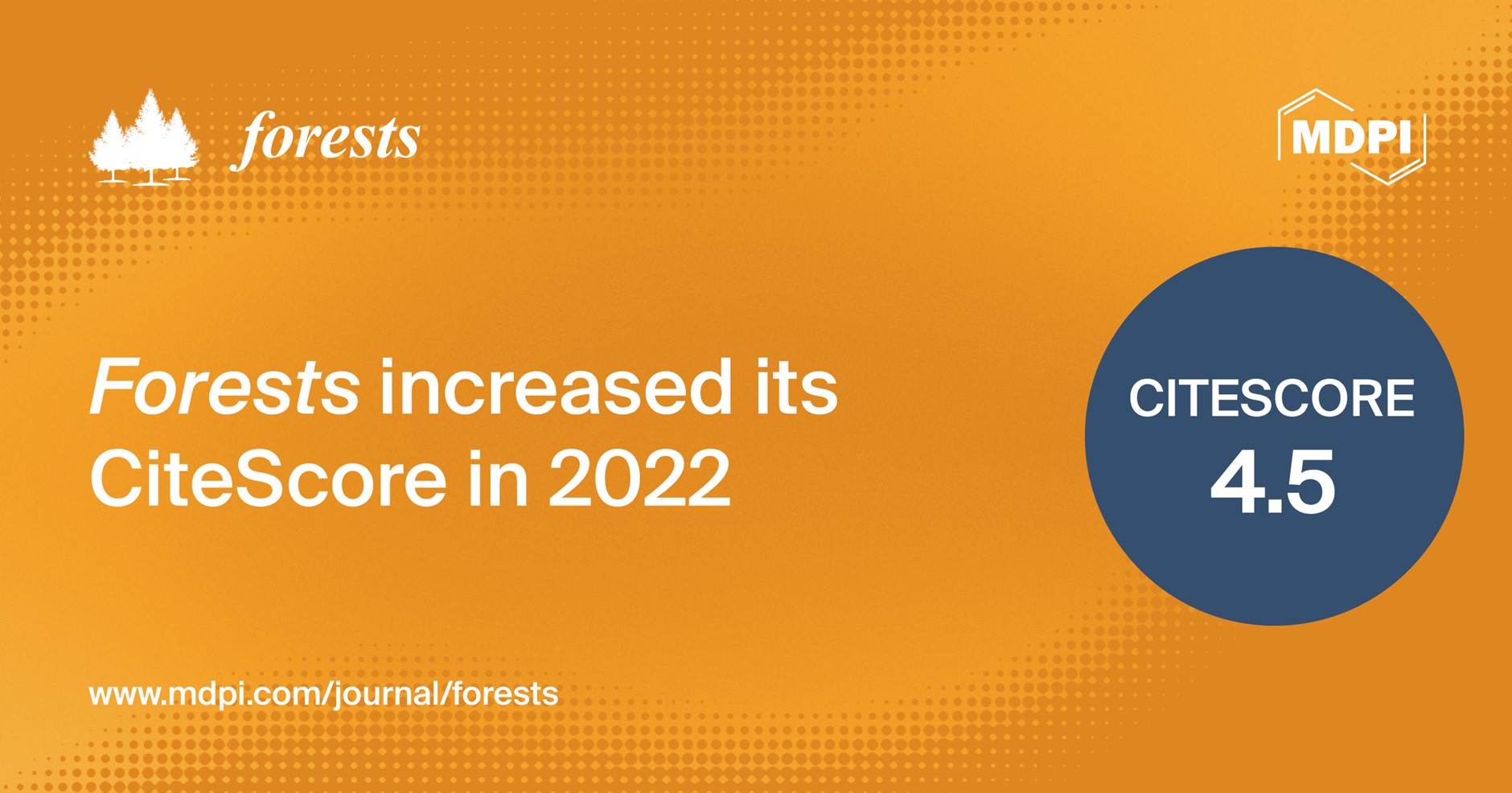
We are pleased to inform you that Forests (ISSN: 1999-4907) has received an updated CiteScore of 4.5, an increase of 12.5% compared with the 2021 metric. The 2022 CiteScore™ was released recently, making an assessment of the scientific influence of journals in the 2019 to 2022 period.
Forests’ CiteScore ranks 32 among 153 titles (Q1) in the “Forestry” category.
For more journal statistics, please visit https://www.mdpi.com/journal/forests/stats.
Excellent performance is inseparable from the support and dedication of all journal editors, reviewers, authors, and readers. We would like to take this opportunity to thank all of you who have contributed to the journal.
19 May 2023
2023 International Day for Biological Diversity

The International Day for Biological Diversity will be celebrated on 22 May 2023, under the theme “From Agreement to Action: Build Back Biodiversity”, which aims to raise awareness and understanding of biodiversity issues. Biodiversity refers to the diversity of all life forms on Earth, including genetic, species, and ecosystem diversity. Biological diversity resources are the pillars upon which we build civilizations; however, the loss of biodiversity threatens everything, including our health. We hope that the established MDPI journals on life sciences and biology, including Biology, Diversity, Fishes, Birds, Insects, Water, Forests, Grasses, Life, Seeds, Agriculture, and Agronomy, will provide suitable communication platforms. The aim is to strengthen scientific cooperation in response to the International Day for Biological Diversity and to embrace the potential to promote sustainable development.


“Avifaunal Diversity and Abundance in the Proposed Sarasalai Mangrove Reserve, Jaffna, Sri Lanka”
by Nitharsan Aloysius, Shashi Madhushanka and Chathuri Chandrika
Birds 2023, 4(1), 103-116; https://doi.org/10.3390/birds4010009
“Perils of Underestimating Species Diversity: Revisiting Systematics of Psammocambeva Catfishes (Siluriformes: Trichomycteridae) from the Rio Paraíba do Sul Basin, South-Eastern Brazil”
by Wilson J. E. M. Costa, José Leonardo Mattos, Paulo J. Vilardo, Pedro F. Amorim and Axel M. Katz
Taxonomy 2022, 2(4), 491-523; https://doi.org/10.3390/taxonomy2040032
“Environmental DNA Metabarcoding: A Novel Contrivance for Documenting Terrestrial Biodiversity”
by Shahnawaz Hassan, Sabreena, Peter Poczai, Bashir Ah Ganai, Waleed Hassan Almalki, Abdul Gafur and R. Z. Sayyed
Biology 2022, 11(9), 1297; https://doi.org/10.3390/biology11091297
“Dam Construction Impacts Fish Biodiversity in a Subtropical River Network, China”
by Xiongjun Liu, Julian D. Olden, Ruiwen Wu, Shan Ouyang and Xiaoping Wu
Diversity 2022, 14(6), 476; https://doi.org/10.3390/d14060476
“Human Communities in Protected Natural Areas and Biodiversity Conservation”
by Elizabeth Olmos-Martínez, Heidi Leticia Romero-Schmidt, María del Carmen Blázquez, Camilo Arias-González and Alfredo Ortega-Rubio
Diversity 2022, 14(6), 441; https://doi.org/10.3390/d14060441
“Effects of Habitat Fragmentation on the Population Structure and Genetic Diversity of Erythroneurini in the Typical Karst Rocky Ecosystem, Southwest China”
by Chen Xiaoxiao, Jia Jiang, Ni Zhang, Xiao Yang, Yongkuan Chi and Yuehua Song
Insects 2022, 13(6), 499; https://doi.org/10.3390/insects13060499
“Application of Ecological Restoration Technologies for the Improvement of Biodiversity and Ecosystem in the River”
by Li Pushuang, Dan Li, Xiaoqing Sun, Zhaosheng Chu, Ting Xia and Binghui Zheng
Water 2022, 14(9), 1402; https://doi.org/10.3390/w14091402
“Conservation-Status Gaps for Marine Top-Fished Commercial Species”
by Imanol Miqueleiz, Rafael Miranda, Arturo Hugo Ariño and Elena Ojea
Fishes 2022, 7(1), 2; https://doi.org/10.3390/fishes7010002

| Special Issue: “Elasmobranch Biodiversity, Conservation and Management” Edited by: Dr. Fabrizio Serena and Dr. Fabio Fiorentino |
Special Issue: “Systematics, Evolution, and Diversity of Dance Flies (Diptera, Empidoidea)” Edited by: Dr. Christophe Daugeron |
||
| Special Issue: “Taxonomy, Biodiversity and Ecology of Mediterranean Plants” Edited by: Dr. Saverio Sciandrello, Dr. Carmelo Maria Musarella and Dr. Ricardo Quinto-Canas |
Special Issue: “Macro-Ecology, Macro-Evolution and Conservation of Animals and Plants” Edited by: Prof. Dr. Youhua Chen, Prof. Dr. Kaiwen Pan and Prof. Dr. Xiaohong Chen |
||

International Day for Biological Diversity
Date and time: 22 May 2023, 9–11 a.m. (CEST)
This is a free webinar. After registering, you will receive a confirmation email containing information on how to join the webinar.

11 April 2023
Meet Us at the 2023 Science and Technology Annual Meeting of Chinese Society for Environmental Sciences, 22–23 April 2023, Nanchang, China

MDPI will be attending the 2023 Science and Technology Annual Meeting of Chinese Society for Environmental Sciences, which will be held from 22 to 23 April 2023, in Nanchang, China. The theme of the annual meeting is “Develop green and low-carbon, build a beautiful China”.
The annual meeting has arranged for an opening ceremony and specially invited keynote speeches, subsession seminars, high-end forums, special sessions for young scientists, poster exchanges, environmental protection science and technology achievement exhibitions, special events, etc. A total of 1800 delegates are expected to attend. Four academicians and other well-known experts are expected to deliver keynote speeches on climate change, the prevention and control of atmospheric, water, and soil environmental pollution, and environmental management science as well as technology. The invited keynote speeches touch on fields such as achievements in transformation.
The following MDPI journals will be represented:
- Sustainability;
- Toxics;
- Energies;
- Climate;
- Land;
- Minerals;
- Resources;
- Forests;
- Remote Sensing;
- Earth;
- Clean Technologies.
23 March 2023
Join Us at the 8th International Wildland Fire Conference (IWFC), 16–19 May 2023, Porto, Portugal
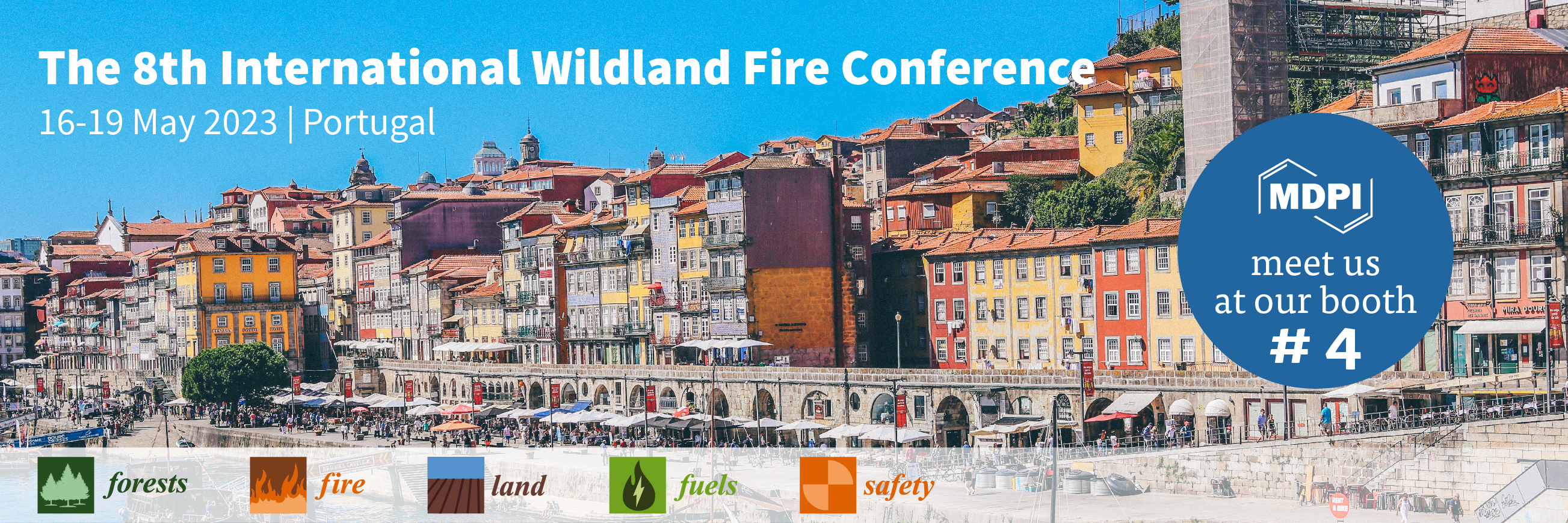
MDPI will be attending the 8th International Wildland Fire Conference (IWFC), which will take place in Porto, Portugal, from 16 to 19 May 2023. The first IWFC meeting was held in Boston, Massachusetts, in 1989. Since then, a series of conferences have been initiated to promote the exchange of expertise and international cooperation in wildland fire management. Previous conferences have helped organizations and professionals from over 70 countries develop common firefighting vocabulary, theory, training manuals, techniques, and operational standards. The 8th IWFC aims to create a space for researchers to present their latest work in the field of wildland fire. The conference welcomes institutional or professional case studies, scientific work, and papers detailing operational successes or failures in dealing with complexity and uncertainty when governing or managing wildfire risk.
MDPI invites researchers from different backgrounds to attend this conference to share their latest views and research with us.
The following MDPI journals will be represented:
- Forests;
- Land;
- Safety;
- Fire;
- Fuels.
If you plan on attending this conference, please feel free to stop by our booth and start a conversation with us. Our delegates look forward to meeting you in person and answering any questions that you may have.
21 March 2023
2023 International Day of Forests

We hope you will join us in celebrating and further protecting the planet’s forests this International Day of Forests, which takes place on the 21st of March. The theme for the 2023 International Day of Forests is "Forests and Health”. Forests give so much to our health, they purify the water, clean the air, capture carbon to fight climate change, provide food and life-saving medicines, and improve our well-being. It is up to us to safeguard these precious natural resources. At MDPI, our open access journals are primarily available online, reducing the company’s impact on deforestation and helping to protect the world’s forests.

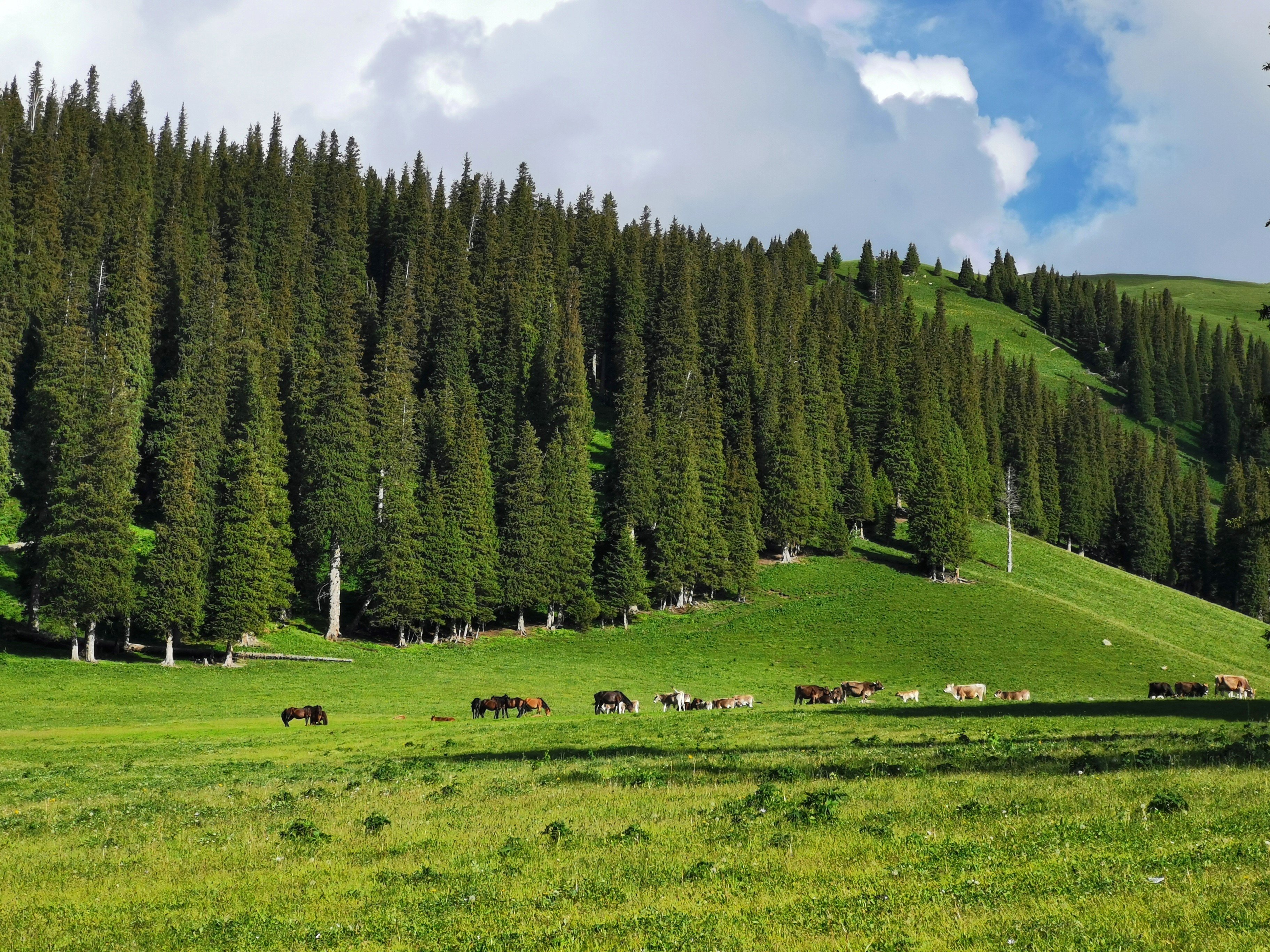 |
 |
 |
| Location: Nalati Grassland, Xinjiang, China Photo by Carolyn Chen, Sydney University |
Location: Jiangshan, Zhejiang, China Photo by Pengcheng Ye, Nanjing Institute of Environmental Science |
Location: Qinling, Shanxi, China Photo by Yuan Li, Shaanxi Normal University |
To access more content about Nature Photography Campaign and other related series activities, please click here.

 |
 |
 |
 |
 |
 |
 |
 |

- “Facilitating Prescribed Fire in Northern California through Indigenous Governance and Interagency Partnerships”
Fire 2021, 4, 37; https://doi.org/10.3390/fire4030037 - “Capitalization and Capital Return in Boreal Carbon Forestry”
Earth 2022, 3, 204-227; https://doi.org/10.3390/earth3010014 - “A Knowledge Review on Integrated Landscape Approaches”
Forests 2022, 13, 312; https://doi.org/10.3390/f13020312 - “National Implementation of the Forest Europe Indicators for Sustainable Forest Management”
Forests 2022, 13, 191; https://doi.org/10.3390/f13020191 - “Carbon Footprint and Feedstock Quality of a Real Biomass Power Plant Fed with Forestry and Agricultural Residues”
Resources 2022, 11, 7; https://doi.org/10.3390/resources11020007 - “The Necrobiome of Deadwood: The Life after Death”
Ecologies 2023, 4, 20-38; https://doi.org/10.3390/ecologies4010003

|
Special Issue: “Plant Communities: Identification, Monitoring and Evaluation of Temporal Dynamics” |
Special Issue: “The Use of Fire in Forest Ecosystem Restoration and Management” |
|
Special Issue: “Forest Therapy and Health” |
Special Issue: “Forest, Trees, Human Health and Wellbeing” |

|
International Day of Forests Webinar 2023 21 March 2023, 09:00 (CET) Free to register for the two sessions. Recordings will be available on Sciforum shortly afterward. |

|
|
|
|
13 March 2023
MDPI’s Newly Launched Journals in December 2022
As a leading open access publisher, MDPI provides scholars with a high-quality and rich academic exchange platform by continuously expanding into new and exciting research areas.
In December 2022, MDPI launched five new journals, covering multiple subjects such as life sciences, biology, medicine and pharmacology, social sciences and humanities. These new journals are being edited by established scholars across the world.
|
Journal |
Founding Editor-in-Chief |
Journal Topics (Selected) |
|
Prof. Dr. Fabio Gresta, University of Messina, Italy| Editorial | view inaugural issue |
grass/forage/turf production; grassland management; pasture monitoring; grazing and livestock; grass agro-ecosystems| view journal scope | submit an article |
|
|
Prof. Dr. Christos G. Athanassiou, University of Thessaly, Greece| Editorial | view inaugural issue |
pesticides; fungicides; herbicides; fertilizers; soil conditioners| view journal scope | submit an article |
|
|
Prof. Dr. Stephen H. Safe, Texas A&M University, USA| Editorial | view inaugural issue |
receptor structure; receptor function; receptor signaling; receptor expression and regulation; receptor interactions with drugs| view journal scope | submit an article |
|
|
Dr. Jean Jacques Vanden Eynde, University of Mons-UMONS, Belgium| Editorial | view inaugural issue |
drug discovery; medicinal chemistry; preclinical and clinical research; marketed drugs; intellectual property and regulatory affairs| view journal scope | submit an article |
|
|
Prof. Dr. Heather Kanuka, University of Alberta, Canada| Editorial | view inaugural issue |
higher education; tertiary education; policy and practice in higher education; educational leadership in higher education; educational administration and management in higher education| view journal scope | submit an article |
If you are interested in creating more open access journals with us to publish cutting-edge research, please send your journal proposal application to newjournal-committee@mdpi.com.
7 March 2023
Displaying Co-Authors’ Email Addresses on the Webpage of Published Papers
MDPI is pleased to announce that we now display the co-authors’ email addresses in addition to the corresponding author’s email address on the webpage of published papers, protected by Captcha. For more information about this change, please visit the journal’s instructions for authors page.
We believe this change will facilitate academic discussions and advance our cause of open science and research. The corresponding authors are responsible for communicating with their co-authors and indicating in our system (https://susy.mdpi.com/) if co-authors would prefer for their email addresses not to be displayed.
22 February 2023
Forests | Selected Papers from Editor’s Choice Articles (Volume 13, Issues 10–12)
We are pleased to share the following 10 Editor's Choice Articles published in Forests (ISSN: 1999-4907). Our Editors-in-Chief selected these papers from the most notable papers published in Volume 13, Issues 10‒12. They are all of particular interest or importance to readers and are all well received by researchers.
1. “Water in Wood: A Review of Current Understanding and Knowledge Gaps”
by Emil Engelund Thybring, Maria Fredriksson, Samuel L. Zelinka and Samuel V. Glass
Forests 2022, 13(12), 2051; https://doi.org/10.3390/f13122051
Available online: https://www.mdpi.com/1999-4907/13/12/2051
2. “Forest Management, Barred Owls, and Wildfire in Northern Spotted Owl Territories”
by Monica L. Bond, Tonja Y. Chi, Curtis M. Bradley and Dominick A. DellaSala
Forests 2022, 13(10), 1730; https://doi.org/10.3390/f13101730
Available online: https://www.mdpi.com/1999-4907/13/10/1730
3. “Contribution of Dry Forests and Forest Products to Climate Change Adaptation in Tigray Region, Ethiopia”
by Musse Tesfaye, Ashenafi Manaye, Berihu Tesfamariam, Zenebe Mekonnen, Shibire Bekele Eshetu, Katharina Löhr and Stefan Sieber
Forests 2022, 13(12), 2026; https://doi.org/10.3390/f13122026
Available online: https://www.mdpi.com/1999-4907/13/12/2026
4. “The Macroeconomic Implications of the Transition of the Forestry Industry towards Bioeconomy”
by Alin Emanuel Artene, Lucian-Ionel Cioca, Aura Emanuela Domil, Larisa Ivascu, Valentin Burca and Oana Bogdan
Forests 2022, 13(11), 1961; https://doi.org/10.3390/f13111961
Available online: https://www.mdpi.com/1999-4907/13/11/1961
5. “The Role of Provenance for the Projected Growth of Juvenile European Beech under Climate Change”
by Peter Petrík, Rüdiger Grote, Dušan Gömöry, Daniel Kurjak, Anja Petek-Petrik, Laurent J. Lamarque, Alena Sliacka Konôpková, Mohammad Mukarram, Harish Debta and Peter Fleischer Jr.
Forests 2023, 14(1), 26; https://doi.org/10.3390/f14010026
Available online: https://www.mdpi.com/1999-4907/14/1/26
6. “Water Retention Characteristics of Mineral Forest Soils in Finland: Impacts for Modeling Soil Moisture”
by Samuli Launiainen, Antti-Jussi Kieloaho, Antti-Jussi Lindroos, Aura Salmivaara, Hannu Ilvesniemi and Juha Heiskanen
Forests 2022, 13(11), 1797; https://doi.org/10.3390/f13111797
Available online: https://www.mdpi.com/1999-4907/13/11/1797
7. “Critical Aspects of People’s Participation in Community-Based Forest Management from the Case of Van Panchayat in Indian Himalaya”
by Kazuyo Nagahama, Satoshi Tachibana and Randeep Rakwal
Forests 2022, 13(10), 1667; https://doi.org/10.3390/f13101667
Available online: https://www.mdpi.com/1999-4907/13/10/1667
8. “A Dynamical Model Based on the Chapman–Richards Growth Equation for Fitting Growth Curves for Four Pine Species in Northern Mexico”
by Joao Marcelo Brazao Protazio, Marcos Almeida Souza, Jose Ciro Hernández-Díaz, Jonathan G. Escobar-Flores, Carlos Antonio López-Sánchez, Artemio Carrillo-Parra and Christian Wehenkel
Forests 2022, 13(11), 1866; https://doi.org/10.3390/f13111866
Available online: https://www.mdpi.com/1999-4907/13/11/1866
9. “Assessing Structural Complexity of Individual Scots Pine Trees by Comparing Terrestrial Laser Scanning and Photogrammetric Point Clouds”
by Paolo Baldi and Nicola La Porta
Forests 2022, 13(12), 2016; https://doi.org/10.3390/f13122016
Available online: https://www.mdpi.com/1999-4907/13/12/2016
10. “Linking Bacterial Rhizosphere Communities of Two Pioneer Species, Brachystegia boehmii and B. spiciformis, to the Ecological Processes of Miombo Woodlands”
by Camilo B. S. António, Chinedu Obieze, João Jacinto, Ivete S. A. Maquia, Tara Massad, José C. Ramalho, Natasha S. Ribeiro, Cristina Máguas, Isabel Marques and Ana I. Ribeiro-Barros
Forests 2022, 13(11), 1840; https://doi.org/10.3390/f13111840
Available online: https://www.mdpi.com/1999-4907/13/11/1840
We thank all the research groups behind these exceptional papers for their contributions to Forests. You are welcome to circulate this announcement among your colleagues or through your network.
If you want to learn more about the contributions published in Editor’s Choice Articles, please click here.
16 February 2023
Increasing Visibility for Preprints.org – Clarivate adds the Preprint Citation Index to the Web of Science
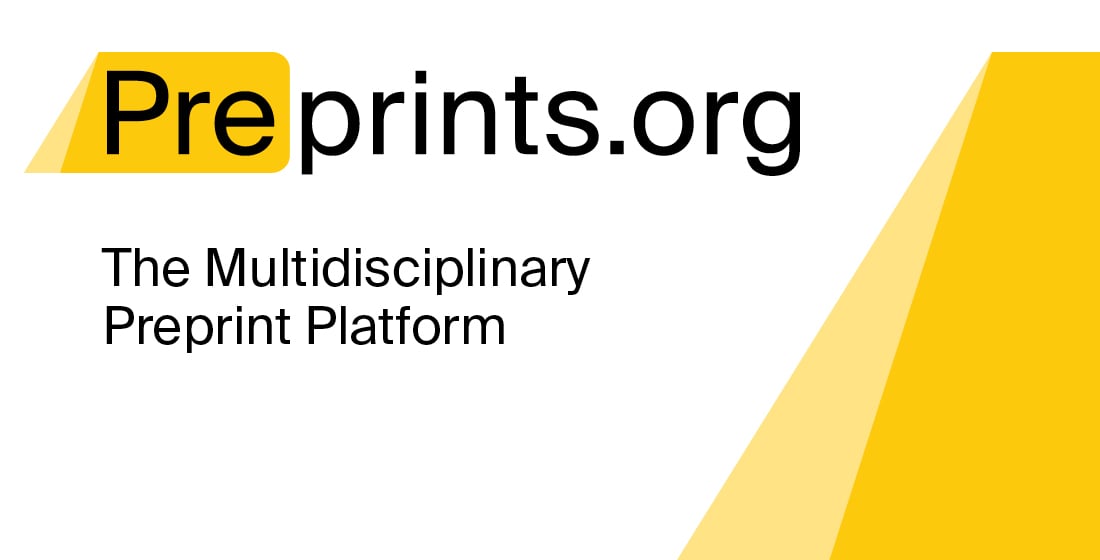
On 9 February 2023, Clarivate, a global leader in providing trusted insights and analytics, added the Preprint Citation Index to the Web of Science platform, streamlining the research process by allowing researchers to locate and link to preprints alongside other trusted content in the database.
The Preprint Citation Index will act as a bridge to connect cutting-edge preprints with peer-reviewed journal articles published within the Web of Science Core Collection. Alerts can be easily set to monitor new research across several repositories and authors will also be able to include preprints on their Web of Science Research Profile to more accurately display their various research outputs.
As of its launch, the Preprint Citation Index will provide nearly two million preprints from various repositories, including MDPI’s own Preprints.org.
MDPI's Preprints Platform – Preprints.org
To advance Open Science and the fast dissemination of research, MDPI offers researchers a free multidisciplinary preprint platform. Preprints.org accepts submissions from all research areas and offers authors high visibility, permanent archiving, article-level Metrics and immediately citable content by assigning a Digital Object Identifier (DOI) to all preprints.
During submission to any MDPI journal, authors have the option to share their research as a preprint. After an initial screening, the manuscript is available online in 48 hours or less. Once online, preprints can be downloaded, shared, commented on, and cited, providing authors maximum visibility.
We invite you to join the ranks of the over 100k researchers using Preprints.org and share your research.
For more information, please visit Preprints.org.
18 January 2023
Forests | Selected Special Issue Reprints Published in 2021–2022
We are delighted to share with you 10 reprints of Special Issues published in 2021–2022 in Forests (ISSN: 1999-4907). They were selected by the Forests Editorial Office, each with 10 or more articles published. You can read more reprints of the Special Issue published by Forests here. If you are interested in editing a Special Issue, you are welcome to check out our new initiative—the Special Issue Mentor Program.
|
|
“Responses of Forest Ecosystems to Nitrogen Deposition” |
|
|
“Genetic Resources and Adaptive Management of Conifers in a Changing World” |
|
|
“Climate Change and Air Pollution Effects on Forest Ecosystems” |
|
|
“Forest Pathology and Entomology” |
|
|
“Historical Wood: Structure, Properties and Conservation” |
|
|
“Forest Management, Conflict and Social-Ecological Systems in a Changing World” |
|
|
“Fast-Growing Trees Species—Opportunities and Risks for Sustainable Agricultural and Forest Land Use Systems” |
|
|
“Growth and Development of Short Rotation Woody Crops for Rural and Urban Applications” |
|
|
“Forests for a Better Future: Sustainability, Innovation and Interdisciplinarity” |
|
|
“Systematic Approach to Agroforestry Policies and Practices in Asia” |
9 January 2023
Forests | Issue Cover Articles in 2022
The articles below have been selected as 2022 Issue Cover papers by the Editorial Office of Forests (ISSN: ISSN 1999-4907). These articles came from multiple fields within the scope of Forests, including forest fires, forest ecology and management, forest health, forest ecophysiology and biology, urban forestry, forest products, and forest modeling. We hope they can provide insights and references for scholars in these fields.
|
|
1. “Scandinavian Forest Fire Activity Correlates with Proxies of the Baffin Bay Ice Cover” |
|
|
2. “Response of Poplar Leaf Transcriptome to Changed Management and Environmental Conditions in Pure and Mixed with Black Locust Stands” |
|
|
3. “Long-Term Carbon Sequestration in Pine Forests under Different Silvicultural and Climatic Regimes in Spain” |
|
|
4. “European Spruce Bark Beetle, Ips typographus (L.) Males Are Attracted to Bark Cores of Drought-Stressed Norway Spruce Trees with Impaired Defenses in Petri Dish Choice Experiments” |
|
|
5. “Tree Water Status Affects Tree Branch Position” |
|
|
6. “The Influence of the Provenance and Spatial Structure on the Growth of European Silver Fir (Abies alba Mill.) of Autochthonous Origin in a Forest Plantation in the Białowieża Forest” |
|
|
7. “The Impact of Visual Defects and Neighboring Trees on Wind-Related Tree Failures” |
|
|
8. “Assessment of Possible Production Leakage from Implementing the EU Biodiversity Strategy on Forest Product Markets” |
|
|
9. “The Imprint of Droughts on Mediterranean Pine Forests” |
|
|
10. “Value of Information on Root and Butt Rot Presence When Choosing Tree Species for a Previously Spruce-Dominated Stand in Norway” |
|
|
11. “Water Retention Characteristics of Mineral Forest Soils in Finland: Impacts for Modeling Soil Moisture” |
|
|
12. “Wall-to-Wall Mapping of Forest Biomass and Wood Volume Increment in Italy” |
28 December 2022
Forests | Invitation to Read Selected Papers from Editor’s Choice Articles (Volume 13, Issues 7–9)
We are pleased to share the following 10 Editor’s Choice Articles published in Forests (ISSN: 1999-4907). The Editor’s Choice Articles were selected from the most notable publications in Volume 13, Issues 7‒9 by our Editors-in-Chief. All these papers are of particular interest or importance to readers and are all well received by researchers.
1. “Wood Preservation Practices and Future Outlook: Perspectives of Experts from Finland”
by Jami Järvinen, Hüseyin Emre Ilgın and Markku Karjalainen
Forests 2022, 13(7), 1044; https://doi.org/10.3390/f13071044
Available online: https://www.mdpi.com/1999-4907/13/7/1044
2. “A Small Target Forest Fire Detection Model Based on YOLOv5 Improvement”
by Zhenyang Xue, Haifeng Lin and Fang Wang
Forests 2022, 13(8), 1332; https://doi.org/10.3390/f13081332
Available online: https://www.mdpi.com/1999-4907/13/8/1332
3. “Psychological Well-Being and Nature Relatedness”
by Olga Grabowska-Chenczke, Sandra Wajchman-Świtalska and Marcin Woźniak
Forests 2022, 13(7), 1048; https://doi.org/10.3390/f13071048
Available online: https://www.mdpi.com/1999-4907/13/7/1048
4. “Twelve Years into Genomic Selection in Forest Trees: Climbing the Slope of Enlightenment of Marker Assisted Tree Breeding”
by Dario Grattapaglia
Forests 2022, 13(10), 1554; https://doi.org/10.3390/f13101554
Available online: https://www.mdpi.com/1999-4907/13/10/1554
5. “Culturable Endophytic Fungi in Fraxinus excelsior and Their Interactions with Hymenoscyphus fraxineus”
by Marek Barta, Katarína Pastirčáková, Radovan Ostrovský, Marek Kobza and Miriam Kádasi Horáková
Forests 2022, 13(7), 1098; https://doi.org/10.3390/f13071098
Available online: https://www.mdpi.com/1999-4907/13/7/1098
6. “A National Map of Snag Hazard to Reduce Risk to Wildland Fire Responders”
by Karin L. Riley, Christopher D. O’Connor, Christopher J. Dunn, Jessica R. Haas, Richard D. Stratton and Benjamin Gannon
Forests 2022, 13(8), 1160; https://doi.org/10.3390/f13081160
Available online: https://www.mdpi.com/1999-4907/13/8/1160
7. “Effect of Wild Boar (Sus scrofa) Rooting on Soil Characteristics in a Deciduous Forest Affected by Sedimentation”
by Natalia Pitta-Osses, Csaba Centeri, Ádám Fehér and Krisztián Katona
Forests 2022, 13(8), 1234; https://doi.org/10.3390/f13081234
Available online: https://www.mdpi.com/1999-4907/13/8/1234
8. “Towards Continuous Stem Water Content and Sap Flux Density Monitoring: IoT-Based Solution for Detecting Changes in Stem Water Dynamics”
by Shahla Asgharinia, Martin Leberecht, Luca Belelli Marchesini, Nicolas Friess, Damiano Gianelle, Thomas Nauss, Lars Opgenoorth, Jim Yates and Riccardo Valentini
Forests 2022, 13(7), 1040; https://doi.org/10.3390/f13071040
Available online: https://www.mdpi.com/1999-4907/13/7/1040
9. “Assessing Structural Complexity of Individual Scots Pine Trees by Comparing Terrestrial Laser Scanning and Photogrammetric Point Clouds”
by Noora Tienaho, Tuomas Yrttimaa, Ville Kankare, Mikko Vastaranta, Ville Luoma, Eija Honkavaara, Niko Koivumäki, Saija Huuskonen, Jari Hynynen, Markus Holopainen et al.
Forests 2022, 13(8), 1305; https://doi.org/10.3390/f13081305
Available online: https://www.mdpi.com/1999-4907/13/8/1305
10. “Recreational Visit to Suburban Forests during the COVID-19 Pandemic: A Case Study of Taiwan”
by Yung-Chih Chen, Frank C. Tsai, Ming-Jer Tsai and Wan-Yu Liu
Forests 2022, 13(8), 1181; https://doi.org/10.3390/f13081181
Available online: https://www.mdpi.com/1999-4907/13/8/1181
We would like to thank all the research groups behind these exceptional papers for their contributions to Forests. We would greatly appreciate it if you would circulate this document among your colleagues or through your network.
If you want to learn more about the contributions published in Editor’s Choice Articles, please click here.
22 December 2022
Special Issue Mentor Program
We are pleased to announce the launch of a new initiative—the MDPI Special Issue Mentor Program.
This program will enable early career researchers (who must hold a Ph.D. in a related field) to experience editing a Special Issue in MDPI journals, under the mentorship of our experienced Editorial Board Members or other experienced scientists. The mentor program will provide an excellent opportunity for early career scientists to gain editorial experience, and to cultivate their ability to edit scientific research.
The mentee’s responsibilities include:
- Proposing a Special Issue title and assisting the mentor in preparing a summary (around 200–400 words) and 3–10 keywords describing the background, importance, and goal of the Issue;
- Writing a brief promotion plan for the Special Issue;
- Preparing a list of scholars who may be interested in the Issue and personally e-mailing invitations on behalf of Guest Editors;
- Writing an editorial for the online Special Issue together with the mentor.
The mentor’s responsibilities include:
- Conducting a final check before the Special Issue is published online;
- Performing editorial control of the Special Issue and quality control of the publications, both of which must be carried out in a timely manner;
- Providing suggestions to younger scholars if they have any doubts or concerns regarding submissions;
- Organizing video calls with young scholars and the Editorial Office regularly to discuss problems and improvement suggestions for the Special Issue;
- Making and submitting decisions regarding submissions with the assistance of mentees.
Certificates and awards:
After the Special Issue closes, the Editorial Office will provide official certificates for all the mentors and early career researchers.
If you are interested in this opportunity, please send your Special Issue proposal to the Editorial Office of a journal you choose, and we will discuss the process (i.e., mentor collaboration, Special Issue topic feasibility analysis, etc.) in further detail. The full list of MDPI journals is as follows: https://www.mdpi.com/about/journals.
In addition to the new Special Issue Mentor Program, we will continue to welcome all Special Issue proposals focusing on hot research topics.
14 December 2022
"Thanks a Million!" – One Million Articles Published in MDPI Journals
MDPI has just become the first open access (OA) publisher to reach the milestone of one million articles published. That is one million articles freely available to all, to circulate and build upon! We are proud to share this special moment with the global scientific community.
This landmark has been reached thanks to the immeasurable support of more than 600,000 expert reviewers, 66,000 editorial board members and 6700 hard-working colleagues across MDPI’s global offices.
Within more than 25 years of publishing, our journals received 2.1 million manuscripts and generated 4.6 million peer review reports to get to one million papers published.
Reaching the milestone of one million articles published reinforces our mission to remove any existing barriers and to make scientific research accessible to all. Since its inception, MDPI’s goal has been to create reliable processes to make science open. This is a path towards facilitating the dissemination of novel insights in scientific communities.
Regular feedback from authors and reviewers shows that our service is greatly appreciated and needed. At the same time, the feedback helps us identify areas for further improvement.
As it stands, a significant share of published research findings remain closed access. More than half of the content published with the most well-known legacy publishers stays behind a paywall, and that is not including articles published in hybrid OA journals, or made available months or years after publication.
A new policy announced by the US administration in August 2022 requires that, as of January 2026, all US federally funded research be made freely and immediately available after publication. While the new policy does not mandate articles be published under an open access license, it is aligned with the open access movement in removing all barriers to research. Similarly, some of the most advanced research institutions in the world intend to have all funded research articles published in open access by 2025.
MDPI is proud to be the leading agent of the transition to open access.
"Thanks a Million" to all the contributors!
8 December 2022
MDPI Sustainability Foundation: New Look and Nominations for the 2023 Sustainability Awards Now Open

We are pleased to announce that the website of the MDPI Sustainability Foundation has been revamped! For the past couple of months, our UX UI team and front-end developers have been working hard to launch the website in time for the opening of the Sustainability Awards nominations.
The website is not the only thing that has had a remodeling. Indeed, the format of the Emerging Sustainability Leader Award (ESLA) has been updated. ESLA is now a competition open to individual researchers or start-ups founded by researchers under the age of 35. Nominee applications will go through 2 rounds of selection until the final 3 are decided. The finalists will then be invited to give pitch presentations during the Award Ceremony to win either first place (10,000 USD) or runner-up (2 x 5000 USD).
The World Sustainability Award, on the other hand, remains the same: a total prize money of 100,000 USD is up for grabs by senior individual researchers or groups of researchers from the international research community.
Nominations for both the World Sustainability Award and the Emerging Sustainability Leader award are now open! Check out our new website for more information on how to nominate.
29 November 2022
Forests | Special Issue Mentor Program

We are pleased to announce the launch of a new initiative—The Forests Special Issue Mentor Program.
This program will enable early career researchers (who must hold a Ph.D. in a related field) to experience editing a Special Issue in MDPI journals, under the mentorship of our experienced Editorial Board Members or other experienced scientists. The mentor program will provide an excellent opportunity for early career scientists to gain editorial experience, and to cultivate their ability to edit scientific research.
The mentee’s responsibilities include:
- Proposing a Special Issue title and assisting the Guest Editor (GE) mentor in preparing a summary (around 200–400 words) and 3–10 keywords describing the background, importance, and goal of the issue;
- Writing a brief promotion plan for the Special Issue;
- Preparing a list of scholars that may be interested in the Issue and personally e-mail the invitations on behalf of GEs;
- Writing an editorial for the online Special Issue together with mentor.
The mentor’s responsibilities include:
- Conducting a final check before the Special Issue is published online;
- Performing editorial control of the Special issue and quality control of the publications in a timely manner;
- Providing suggestions to younger scholars if they have any doubts or concerns regarding submissions;
- Organizing video calls with young scholars and the Editorial Office regularly to discuss problems and improvement suggestions for the Special Issue;
- Making and submitting decisions for the submissions under the assistance of mentees.
Certificates and awards:
After the Special Issue closes, the Editorial Office will provide official certificates for all the mentors and early career researchers.
If you are interested in this opportunity, please send your Special Issue proposal to the Forests Editorial Office (forests@mdpi.com), and we will discuss the process (i.e., mentor collaboration, Special Issue topic feasibility analysis, etc.) in further detail.
In addition to the new Special Issue Mentor Program, Forests (ISSN: 1999-4907) will continue to welcome all Special Issue proposals focusing on hot research topics.
29 November 2022
Forests | Top Cited Papers in 2021
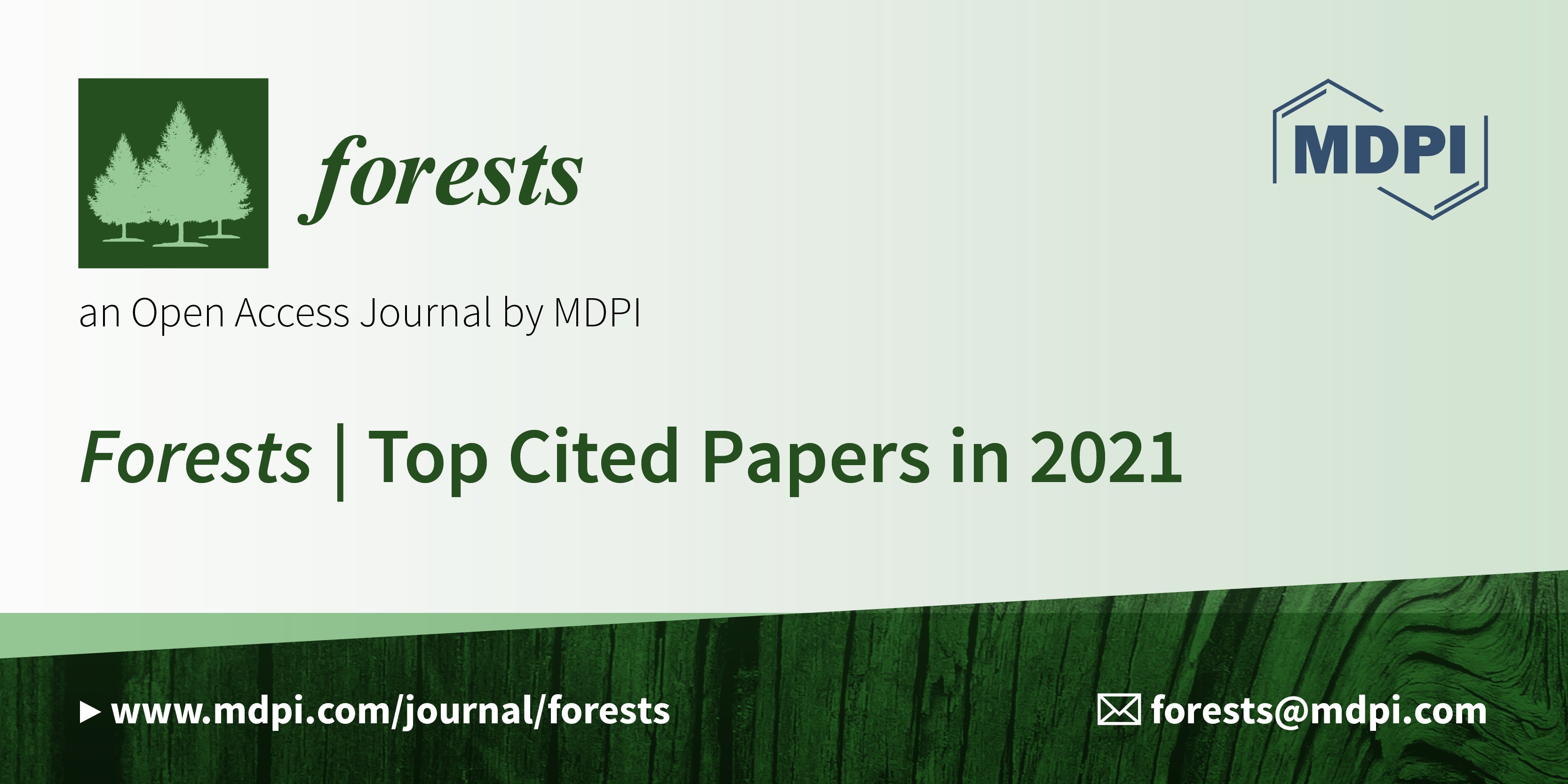
We are pleased to share the 10 most cited papers published in Forests (ISSN: 1999-4907) in 2021. You are welcome to visit more of the most cited & viewed articles.
1. “Combination of Feature Selection and CatBoost for Prediction: The First Application to the Estimation of Aboveground Biomass”
by Mi Luo, Yifu Wang, Yunhong Xie, Lai Zhou, Jingjing Qiao, Siyu Qiu and Yujun Sun
Forests 2021, 12(2), 216; https://doi.org/10.3390/f12020216
Available online: https://www.mdpi.com/1999-4907/12/2/216
2. “Thermal Conductivity of Poplar Wood Veneer Impregnated with Graphene/Polyvinyl Alcohol”
by Shuang-Shuang Wu, Xin Tao and Wei Xu
Forests 2021, 12(6), 777; https://doi.org/10.3390/f12060777
Available online: https://www.mdpi.com/1999-4907/12/6/777
3. “Economic Efficiency of Forest Enterprises—Empirical Study Based on Data Envelopment Analysis”
by Nikolay Neykov, Stanislava Krišťáková, Iveta Hajdúchová, Mariana Sedliačiková, Petar Antov and Blanka Giertliová
Forests 2021, 12(4), 462; https://doi.org/10.3390/f12040462
Available online: https://www.mdpi.com/1999-4907/12/4/462
4. “Modelling the Material Resistance of Wood—Part 3: Relative Resistance in above- and in-Ground Situations—Results of a Global Survey”
by Christian Brischke, Gry Alfredsen, Miha Humar, Elena Conti, Laurie Cookson, Lukas Emmerich, Per Otto Flæte, Stefania Fortino, Lesley Francis, Ulrich Hundhausen et al.
Forests 2021, 12(5), 590; https://doi.org/10.3390/f12050590
Available online: https://www.mdpi.com/1999-4907/12/5/590
5. “Similarities and Differences among Soil Fungal Assemblages in Managed Forests and Formerly Managed Forest Reserves”
by Marta Brygida Kujawska, Maria Rudawska, Robin Wilgan and Tomasz Leski
Forests 2021, 12(3), 353; https://doi.org/10.3390/f12030353
Available online: https://www.mdpi.com/1999-4907/12/3/353
6. “Emerald Ash Borer Approaches the Borders of the European Union and Kazakhstan and Is Confirmed to Infest European Ash”
by Mark G. Volkovitsh, Andrzej O. Bieńkowski and Marina J. Orlova-Bienkowskaja
Forests 2021, 12(6), 691; https://doi.org/10.3390/f12060691
Available online: https://www.mdpi.com/1999-4907/12/6/691
7. “Assessing Biomass Removal and Woody Debris in Whole-Tree Harvesting System: Are the Recommended Levels of Residues Ensured?”
by Abdelwahab Bessaad, Isabelle Bilger and Nathalie Korboulewsky
Forests 2021, 12(6), 807; https://doi.org/10.3390/f12060807
Available online: https://www.mdpi.com/1999-4907/12/6/807
8. “The Role of Remote Sensing for the Assessment and Monitoring of Forest Health: A Systematic Evidence Synthesis”
by Pablo Torres, Marina Rodes-Blanco, Alba Viana-Soto, Hector Nieto and Mariano García
Forests 2021, 12(8), 1134; https://doi.org/10.3390/f12081134
Available online: https://www.mdpi.com/1999-4907/12/8/1134
9. “Comparison of Selected Terramechanical Test Procedures and Cartographic Indices to Predict Rutting Caused by Machine Traffic during a Cut-to-Length Thinning Operation”
by Marian Schönauer, Stephan Hoffmann, Joachim Maack, Martin Jansen and Dirk Jaeger
Forests 2021, 12(2), 113; https://doi.org/10.3390/f12020113
Available online: https://www.mdpi.com/1999-4907/12/2/113
10. “A Qualitative Study on the US Forest Service’s Risk Management Assistance Efforts to Improve Wildfire Decision-Making”
by Courtney A. Schultz, Lauren F. Miller, Sarah Michelle Greiner and Chad Kooistra
Forests 2021, 12(3), 344; https://doi.org/10.3390/f12030344
Available online: https://www.mdpi.com/1999-4907/12/3/344
9 November 2022
Editorial Board Members from Forests Featured among the World’s Top 2% Scientists in 2022
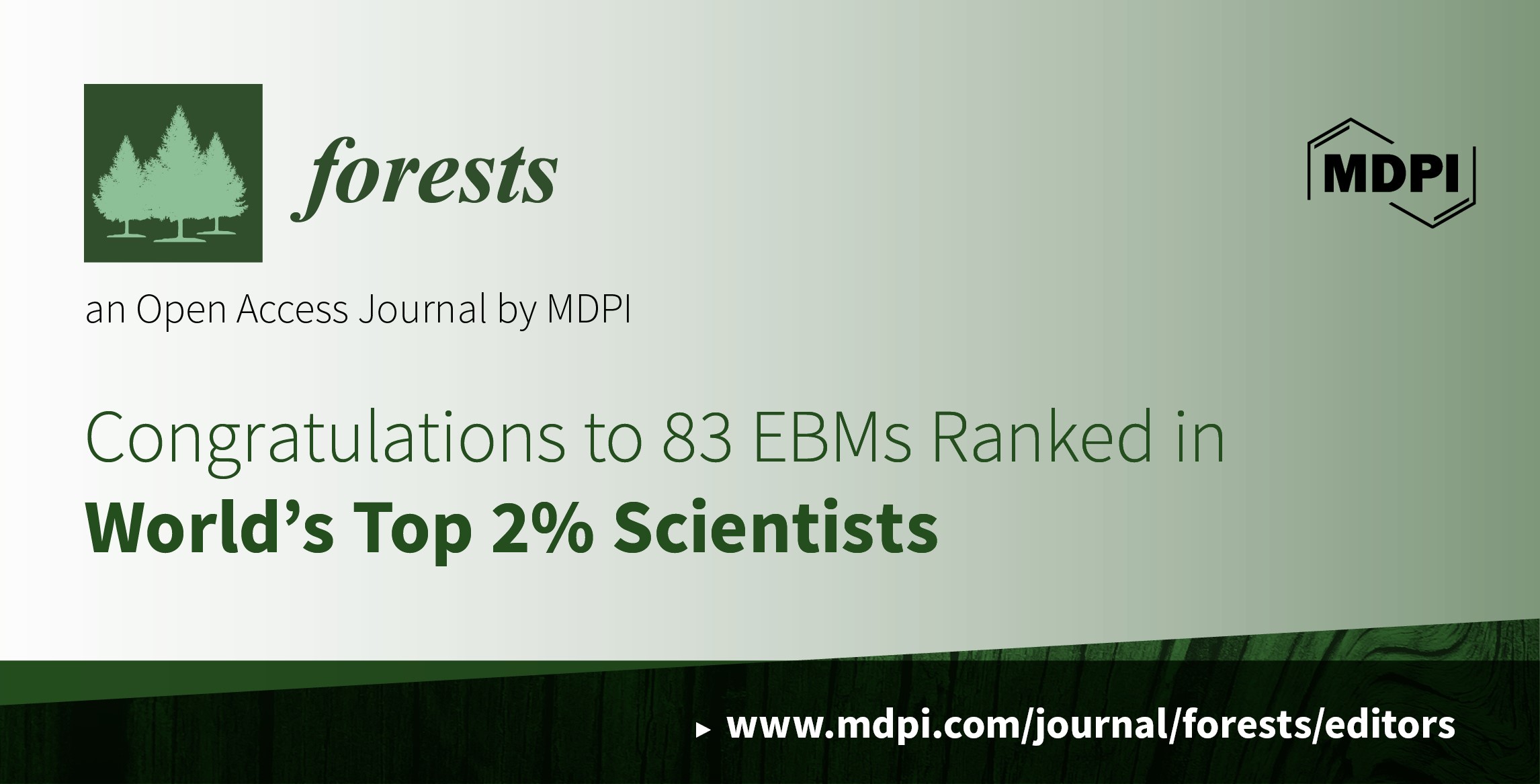
Stanford University has recently published an update of the list of the top 2% most widely cited scientists—the World’s Top 2% Scientists (https://elsevier.digitalcommonsdata.com/datasets/btchxktzyw).
The timeframe of the statistical data of this list is from 1960 to 2022, and it is divided into two lists: "Lifetime Scientific Influence Ranking" and "2022 Annual Scientific Influence Ranking". The "Lifetime Scientific Influence Ranking" includes a comprehensive influence performance of scientists during their careers, and the "2022 Annual Influence Ranking" highlights the academic influence of scientists in the previous year. This ranking, considered the most prestigious worldwide, is based on the bibliometric information contained in the Scopus database and includes more than 200,000 researchers from the more than 10 million scientists considered to be active worldwide, with 22 scientific fields and 176 subfields taken into account.
We are pleased to share that 83 Editorial Board Members from MDPI’s journal Forests (ISSN: 1999-4907) were featured in Stanford University World’s Top 2% Scientists list in 2022.
|
Prof. Dr. Timothy A. Martin (Editor-in-Chief) School of Forest Resources and Conservation, PO Box 110410, University of Florida, Gainesville, FL 32611-0410, USA |
|
Prof. Dr. Rodolfo Picchio (Section Editor-in-Chief) Department of Agricultural and Forest Sciences, University of Tuscia, Via S. Camillo de Lellis, 01100 Viterbo, Italy |
|
Prof. Dr. Luis Diaz-Balteiro (Section Editor-in-Chief) Department of Forest and Environmental Engineering and Management, Universidad Politécnica de Madrid, Madrid, Spain |
|
Dr. Ana Rey Departamento de Biogeografía y Cambio Global, Museo Nacional de Ciencias Naturales-CSIC, José Abascal 2, 28006 Madrid, Spain |
|
Prof. Dr. Arild Angelsen School of Economics and Business, Norwegian University of Life Sciences (NMBU), P.O. Box 5003, 1432 Ås, Norway |
|
Prof. Dr. Arild Vatn Department of International Environment and Development Studies, Faculty of Landscape and Society, Norwegian University of Life Sciences (NMBU), 1430 Ås, Norway |
|
Dr. Arndt Hampe BioGeCo, INRA, University of Bordeaux, F-33610 Cestas, France |
|
Dr. Arne Arnberger Institute for Landscape Development, Recreation and Conservation Planning, BOKU - University of Natural Resources and Life Sciences, A-1190 Vienna, Austria |
|
Prof. Dr. Artur Alves CESAM-Centre for Environmental and Marine Studies, Department of Biology, University of Aveiro, 3810-193 Aveiro, Portugal |
|
Prof. Dr. Azim Mallik Department of Biology, Lakehead University, Thunder Bay, ON P7B 5E1, Canada |
|
Dr. Benjamin L. Turner Soil and Water Science Department, University of Florida, Gainesville, FL 32611, USA |
|
Dr. Blas Mola-Yudego School of Forest Sciences, Faculty of Science and Forestry, University of Eastern Finland, Joensuu Campus, PO Box 111 (Yliopistokatu 7), FI-80101 Joensuu, Finland |
|
Dr. Brian J. Palik USDA Forest Service, Northern Research Station, Washington, DC, USA |
|
Dr. Carlo Calfapietra Institute of Research on Terrestrial Ecosystems (IRET), National Research Council (CNR), Via Marconi 2, 05010 Porano (TR), Italy |
|
Prof. Dr. Chong Xu Geological Hazards Research Center, National Institute of Natural Hazards, Ministry of Emergency Management, Beijing, China |
|
Dr. Chris A. Maier Southern Research Station, USDA Forest Service, Research Triangle Park, NC 27541, USA |
|
Prof. Dr. Christian Brischke Wood Biology and Wood Products, University of Goettingen, Buesgenweg 4, 37077 Goettingen, Germany |
|
Dr. Daniele Castagneri Department of Land, Environment, Agriculture and Forestry (TESAF), Università degli Studi di Padova, Viale dell’Università 16, 35020 Legnaro (PD), Italy |
|
Prof. Dr. Danilo Russo AnEcoEvo - Lab of Animal Ecology and Evolution, Dipartimento di Agraria, Università degli Studi di Napoli Federico II, Via Università, 100, 80055 Portici, Italy |
|
Dr. Dario Martin-Benito Forest Research Center INIA-CIFOR, 28040 Madrid, Spain |
|
Dr. Dmitry Schepaschenko Agriculture, Forestry, and Ecosystem Services (AFE) Research Group - Biodiversity and Natural Resources (BNR) Program, International Institute for Applied Systems Analysis (IIASA), Schlossplatz 1, 2361 Laxenburg, Austria |
|
Prof. Dr. Dušan Gömöry Faculty of Forestry, Technical University in Zvolen, TG Masaryka 24, 96001 Zvolen, Slovakia |
|
Prof. Dr. Elina Oksanen Department of Environmental and Biological Sciences, University of Eastern Finland, 111, 80101 Joensuu, Finland |
|
Dr. Enzai Du Faculty of Geographical Science, Beijing Normal University, Beijing 100875, China |
|
Prof. Dr. Franco Biondi DendroLab, Department of Natural Resources and Environmental Science, University of Nevada, Reno, NV 89557, USA |
|
Dr. Ge Sun US Department of Agriculture, Forest Service, Southern Research Station, Eastern Forest Environmental Threat Assessment Center, Research Triangle Park, NC 27709, USA |
|
Prof. Dr. Geoffrey Daniel Department of Forest Biomaterials and Technology/Wood Science, Swedish University of Agricultural Sciences, 750 07 Uppsala, Sweden |
|
Prof. Dr. George Newcombe College of Natural Resources, University of Idaho, Moscow, ID 83843, USA |
|
Dr. Gerhard Weiss Institute of Forest, Environmental and Natural Resource Policy, University of Natural Resources and Life Sciences, 1190 Vienna, Austria |
|
Dr. Gerhard Wieser Department of Alpine Timberline Ecophysiology, Federal Research and Training Centre for Forests, Natural Hazards and Landscape (BFW), Rennweg 1, 6020 Innsbruck, Austria |
|
Dr. Giorgio Vacchiano European Commission, Joint Research Centre, D1 Bio-Economy, Via Enrico Fermi 2749, 21027 Ispra (VA), Italy |
|
Prof. Dr. Giovanna Battipaglia Department of Environmental, Biological and Pharmaceutical Sciences and Technologies University of Campania “L. Vanvitelli”, Via Vivaldi 43, I-81100 Caserta, Italy |
|
Dr. Guillermo Gea-Izquierdo INIA-CIFOR, Ctra. La Coruña km 7.5, 28040 Madrid, Spain |
|
Dr. Hans Beeckman Service of Wood Biology, Royal Museum for Central Africa (RMCA), Leuvensesteenweg 13, 3080 Tervuren, Belgium |
|
Prof. Dr. Heidi Asbjornsen College of Life Science and Agriculture, University of New Hampshire, Durham, NH 03824, USA |
|
Dr. Heinrich Spiecker Institute of Forest Sciences, University of Freiburg, 79106 Freiburg, Germany |
|
Prof. Dr. Heinz Rennenberg Institute of Forest Sciences, Albert Ludwig University, 79110 Freiburg im Breisgau, Germany |
|
Prof. Dr. Heli Peltola School of Forest Sciences, University of Eastern Finland, Yliopistokatu 7, FI-80101 Joensuu, Finland |
|
Dr. Holger Gärtner Forest Dynamics, Dendrosciences, Swiss Federal Research Institute WSL, Zürcherstrasse 111, 8903 Birmensdorf, Switzerland |
|
Prof. Dr. Ido Izhaki The Department of Evolutionary and Environmental Biology, University of Haifa, Haifa, Israel |
|
Dr. Ignacio García-González Departamento de Botánica, Universidade de Santiago de Compostela, EPSE, Campus Terra, 27002 Lugo, Spain |
|
Prof. Dr. Jan Bocianowski Department of Mathematical and Statistical Methods, Poznań University of Life Sciences, Poznań, Poland |
|
Prof. Dr. Jesse Ribot School of International Service in Washington, American University, Washington, DC 20016, USA |
|
Prof. Dr. Jianquan Liu School of Life Sciences, Lanzhou University, Lanzhou, China |
|
Dr. József Geml ELKH-EKKE Lendület Environmental Microbiome Research Group, Eötvös Loránd Research Network and Eszterházy Károly Catholic University, Leányka u. 6., 3300 Eger, Hungary |
|
Dr. Juan A. Blanco Institute for Multidisciplinary Applied Biology (IMAB), Department Ciencias, Campus de Arrosadia s/n, Universidad Pública de Navarra (UPNA), 31006 Pamplona, Spain |
|
Prof. Dr. Julia Jones College of Earth, Ocean, and Atmospheric Sciences, Oregon State University, Wilkinson 220, 104 CEOAS Administration Building, Corvallis, OR 97331-5503, USA |
|
Dr. Kurt Johnsen U.S. Forest Service, Asheville, NC 28806, USA |
|
Dr. Laurence Schimleck College of Forestry, Oregon State University, Corvallis, OR 97331, USA |
|
Dr. Lei Deng State Key Laboratory of Soil Erosion and Dryland Farming on the Loess Plateau, Institute of Soil and Water Conservation, Northwest A&F University, Xianyang 712100, China |
|
Dr. Leonor Calvo Department of Biodiversity and Environmental Management, University of León, E-24071 Leon, Spain |
|
Dr. Lorena Gómez-Aparicio Instituto de Recursos Naturales y Agrobiología de Sevilla, Consejo Superior de Investigaciones Científicas (IRNAS-CSIC), Avenida Reina Mercedes, 10, 41012 Sevilla, Spain |
|
Prof. Dr. Manfred J. Lexer
|
|
Dr. Manuel Esteban Lucas-Borja Department of Agroforestry Technology and Science & Genetics, School of Advanced Agricultural & Forestry Engineering, Castilla La Mancha University, Campus Universitario s/n, C.P. 02071 Albacete, Spain |
|
Prof. Dr. Marcin Pietrzykowski Department of Forest Ecology and Silviculture, University of Agriculture in Krakow, al. 29 Listopada 46, 31-425 Krakow, Poland |
|
Prof. Dr. Mark S. Ashton School of Forestry and Environmental Studies, Yale University, 360 Prospect St, New Haven, CT 06511, USA |
|
Prof. Dr. Mark Tibbett Department of Sustainable Land Management & Soil Research Centre, School of Agriculture, Policy and Development, University of Reading, Reading, Berkshire RG6 6AR, UK |
|
Prof. Dr. Martin Lukac School of Agriculture, Policy & Development, University of Reading, Reading RG6 6EU, UK |
|
Dr. Martin Wiesmeier TUM School of Life Sciences Weihenstephan, Technical University of Munich, 85354 Freising, Germany |
|
Dr. Massimiliano Schwarz School of Agricultural Forest and Food Sciences, Bern University of Applied Sciences, Länggasse 85, 3052 Zollikofen, Switzerland |
|
Dr. Matthew P. Thompson USDA Forest Service, Rocky Mountain Research Station, 240 W Prospect, Fort Collins, CO 80526, USA |
|
Dr. Mauricio Acuna Forest Research Institute, University of the Sunshine Coast, Locked Bag 4, Maroochydore DC, QLD 4558, Australia |
|
Prof. Dr. Miha Humar Biotehnical Faculty, University of Ljubljana, Jamnikarjeva 101, 1000 Ljubljana, Slovenia |
|
Dr. Nadir Ayrilmis Department of Wood Mechanics and Technology, Faculty of Forestry, Istanbul University-Cerrahpasa, Bahcekoy, Sariyer, 34473 Istanbul, Turkey |
|
Prof. Dr. Pete Bettinger CIFOR, Jalan CIFOR, Situ Gede, Bogor Barat 16115, Indonesia |
|
Dr. Plinio Sist School of Forestry and Natural Resources, University of Georgia, 180 East Green Street, Athens, GA 30602, USA |
|
Dr. Rawshan Ara Begum Cirad-ES, Director of the Research Unit Forests and Societies Cirad, Campus International de Baillarguet, TA C-105/D, 34398 Montpellier, CEDEX 5, France |
|
Dr. Rebecca Jordan College of Agriculture and Natural Resources, Michigan State University, Room 133, Natural Resources Building, East Lansing, MI 48824, USA |
|
Prof. Dr. Reiner Finkeldey Faculty of Organic Agricultural Sciences, University of Kassel, Mönchebergstraße 19, 34109 Kassel, Germany |
|
Dr. Ricardo Ruiz-Peinado Spanish Institute for Agricultural and Food Research and Technology (INIA), Spanish National Research Council (CSIC), Ctra. A Coruña Km 7'5, 28040 Madrid, Spain |
|
Prof. Dr. Riccardo Valentini
|
|
Dr. Robert Evans SilviScan Pty Ltd, 8 Dobell Place, Doncaster, East Victoria 3109, Australia |
|
Prof. Dr. Robert G. Qualls Department of Natural Resources and Environmental Science, University of Nevada, Reno, NV 89557, USA |
|
Prof. Dr. Shibu Jose The Center for Agroforestry, University of Missouri, Columbia, MO 65211, USA |
|
Dr. Steven McNulty USDA (United States Department of Agriculture), Southeast Climate Hub, 3041 E Cornwallis Rd Research Triangle Park, Raleigh, NC 27709, USA |
|
Prof. Dr. Sune Linder Southern Swedish Forest Research Centre, Faculty of Forest Sciences, Swedish University of Agricultural Sciences (SLU), P.O. Box 49, SE-230 53 Alnarp, Sweden |
|
Prof. Dr. Svein Solberg Norwegian Institute for Bioeconomy Research (NIBIO), Division of Forest and Forest Resources, National Forest Inventory, Høgskoleveien 8, 1433 Ås, Norway |
|
Prof. Dr. Timo Tokola School of Forest Science, University of Eastern Finland, 80101 Joensuu, Finland |
|
Dr. Tohru Nakashizuka Forestry and Forest Products Research Institute, Matsunosato, Tsukuba, Ibaraki 300-1244, Japan |
|
Prof. Dr. Veronica De Micco Department of Agricultural Sciences, University of Naples Federico II, via Università, 100, 80055 Portici (Naples), Italy |
|
Dr. Wil De Jong Center for Southeast Asian Studies, Kyoto University, Kyoto 6068501, Japan |
|
Dr. Xiangdong Lei Institute of Forest Resource Information Techniques, Chinese Academy of Forestry, Beijing 100091, China |
|
Prof. Dr. Yaoqi Zhang School of Forestry & Wildlife Sciences, Auburn University, Auburn, AL 36849, USA |
The latest Stanford rankings reflect the significant influence and research excellence of the scientists, who are committed to furthering their knowledge for the benefit of the world.
We would like to congratulate our Editorial Board Members on their excellent achievement and thank them for their immense contribution to the scientific progression and development of Forests.
1 November 2022
Meet Dr. Wade T. Tinkham—Author of a 2021 Highly Cited Paper in Forests

Name: Dr. Wade T. Tinkham
Affiliation: Rocky Mountain Research Station, Forest Service, United State Department of Agriculture, CO, USA
Dr. Wade T. Tinkham is a Research Forester who utilizes a combination of field inventories, remote sensing, GIS, and forest growth/landscape change models to characterize and address a wide array of applied forest management questions. His work is building towards a suite of spatially aware decision support tools and methods for characterizing, monitoring, and projecting changes in resources across multiple scales.
Highly Cited Paper:
“Influence of Agisoft Metashape Parameters on UAS Structure from Motion Individual Tree Detection from Canopy Height Models”
by Wade T. Tinkham and Neal C. Swayze
Forests 2021, 12(2), 250; https://doi.org/10.3390/f12020250
1. Can you introduce yourself and give an overview of your current research?
I entered forestry through a private management lens but have since found my niche in research in the overlap of biometry and remote sensing as a Research Forester for the USDA Forest Service Rocky Mountain Research Station. We recently completed a series of studies developing unmanned aerial system (UAS)-assisted forest inventory methods for characterizing individual tree locations, heights, diameters, and crowns in open canopy forests like those dominated by ponderosa pine. Now, I am working with collaborators at the University of Idaho and Oregon State University to expand the feasibility of these methods to denser forest systems by merging below-canopy remote sensing with UAS observations. With my collaborators, we are working to make UAS-derived forest inventory data accessible for management planning.
2. What do you hope that readers will get from your paper? What do you hope this research will bring to forestry?
One of our goals with this paper was to conduct a validation of methods that actually could be interpreted by foresters. Much of the UAS structure from the motion literature focuses on validating the individual points, while foresters are still managing trees, so we cut out the middle step and demonstrated the quality of extracted tree variables. My hope is that this work will draw attention to the potential of UAS forest monitoring to provide individual tree observations, particularly in semi-arid conifer forests where the spatial arrangement of the trees has become an important emphasis for restoration.
3. What led you to publish in Forests? Was it important to you that the journal is open access?
We targeted Forests to publish this work for two reasons. First, we wanted to present this work that crosses the lines between remote sensing and forestry in an outlet that would be seen by a forestry audience. Second, we wanted to take advantage of the open access policy and ensure that this work could be accessible to as wide an audience as possible.
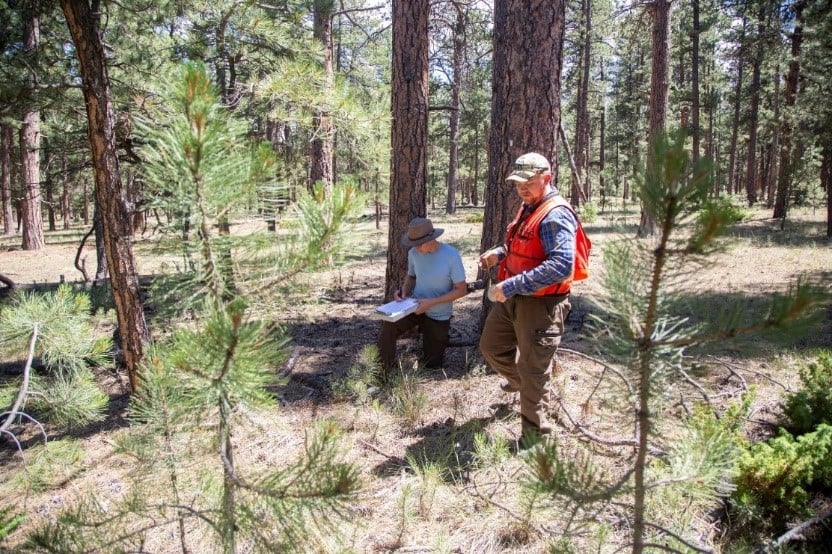
Wade T. Tinkham
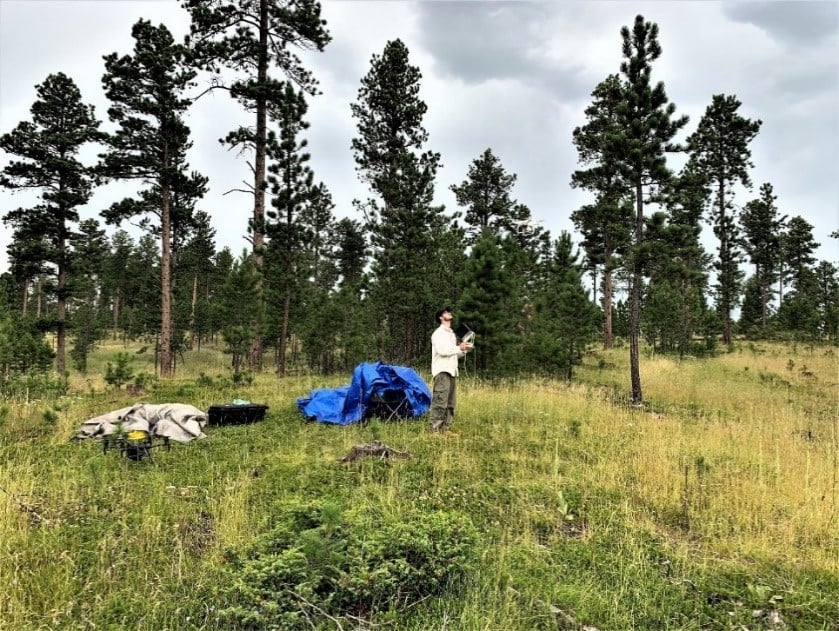
Neal C. Swayze
28 September 2022
Peer Review Week 2022 – Research Integrity: Creating and Supporting Trust in Research
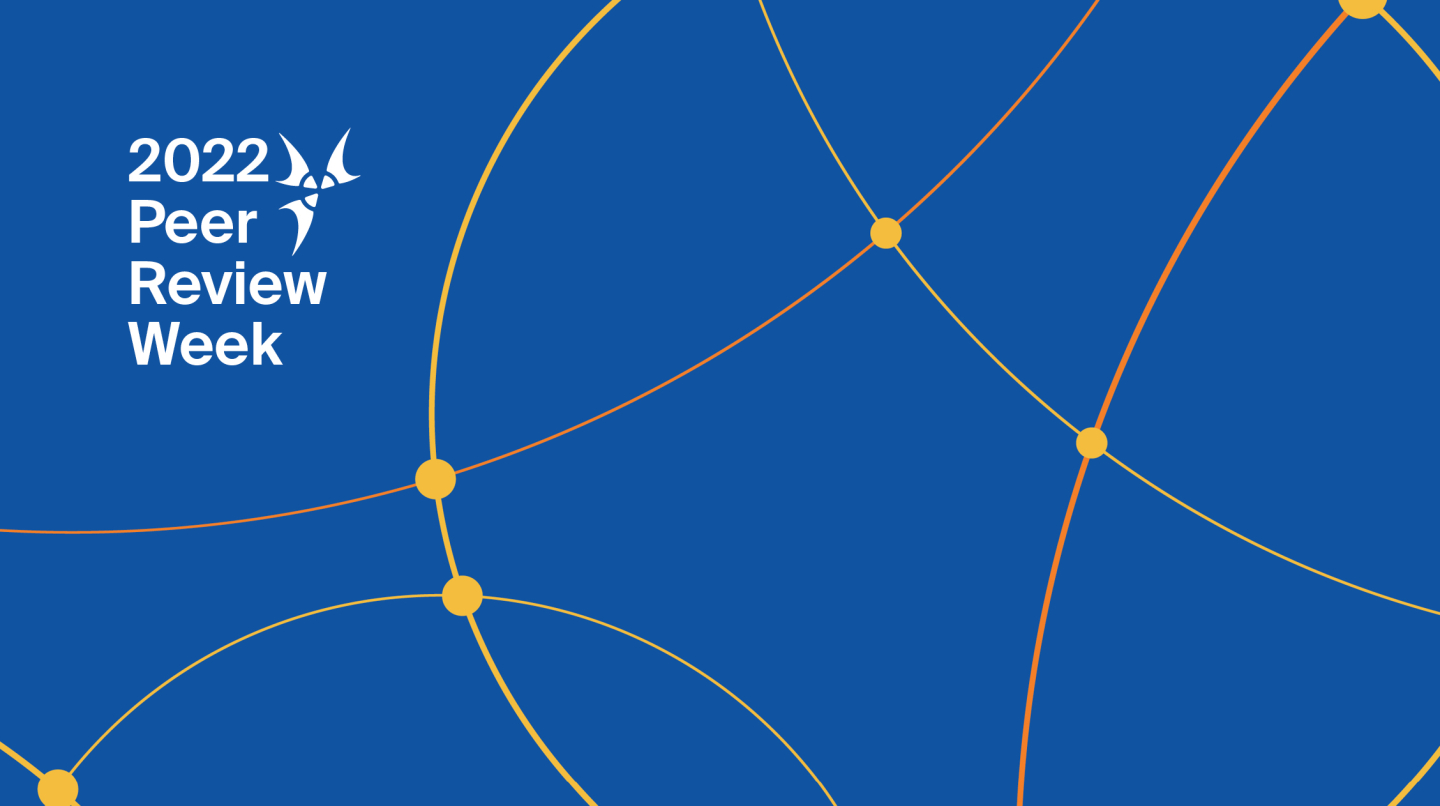
Peer Review Week began 19 September 2022 under the theme of “Research Integrity: Creating and Supporting Trust in Research”. Through various blog articles, podcast, and webinar, we discussed this crucial subject throughout the week, celebrating the essential role peer review plays in maintaining research quality.
To begin, we held a Webinar on the topic. Professor Peter W. Choate and Dr. Emmanuel Obeng-Gyasi joined Dr. Ioana Craciun, one of MDPI’s scientific officers, for an in-depth discussion.
We invite you to view the event recording:
During the week, the MDPI Blog in a series articles highlighted how good Peer Review safeguards research integrity. The following topics were covered:
- Peer Review Week 2022
- Research Integrity
- What We’ve Learned About Peer Review Reports
- 4 Steps to the Perfect Peer Review Report
- How to Write the Perfect Peer Review Report: An Interview
- Inviting Great Peer Reviewers
In a new edition of Insight Faster, an MDPI podcast, we were delighted to talk to the co-chairs of the Peer Review Week committee, Jayashree Rajagopalan (Senior Manager of Global Community Engagement for CACTUS) and Danielle Padula (Head of Marketing and Community Development at Scholastica) to get their take on this year’s event and its related topics.
You can find the Podcast here.
We hope you enjoy the contents!
6 September 2022
Dr. Cate Macinnis-Ng Appointed Editor-in-Chief of Forests
We are pleased to announce that Dr. Cate Macinnis-Ng has been appointed Editor-in-Chief of Forests (IF: 3.282, ISSN: 1999-4907).
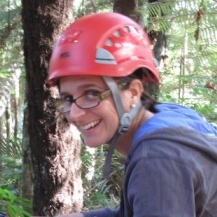
Name: Dr. Cate Macinnis-Ng
Email: c.macinnis-ng@auckland.ac.nz
Affiliation: Department of Biological Sciences, Faculty of Science, University of Auckland, Private Bag 92019, Auckland 1142, New Zealand
Homepage: https://www.tepunahamatatini.ac.nz/cate-macinnis-ng/
Research keywords: plant ecophysiology; carbon and water cycles; forest function; global change
Dr. Cate Macinnis-Ng works at the University of Auckland in the School of Biological Sciences as an Associate Professor of ecology. She is a plant ecophysiologist specializing in plant–climate interactions. Her recent work has focused on drought impacts on New Zealand's iconic kauri trees. She also has broader interests in climate change impacts on biodiversity and working with Indigenous researchers and communities to achieve restoration and conservation outcomes.
The following is a short Q&A with Dr. Cate Macinnis-Ng, who shared her vision for the journal with us, as well as her views of the research area and open access publishing:
1. What appealed to you about the journal that made you want to take the role as the Editor-in-Chief?
I am delighted to join long-standing Editor-in-Chief, Prof. Tim Martin as the Co-Editor-in-Chief of Forests. Many international journals remain somewhat region-specific with most papers coming from a particular part of the world. As a researcher in the southern hemisphere, I am conscious of the fact that we see research efforts focused on European and North American species and ecosystems and this is problematic when we are trying to understand global patterns. It also highlights the inequities in distributions of funding and resources. Forest research is a truly global discipline and the research published in Forests comes from many different parts of the world. Since the journal is open access, the research is available to all. There is more we can do to increase global representation and Forests provides a solid platform for this.
2. What does the future of this field of research look like?
Forests are an essential part of sustainable solutions to climate change. Developing research in this space covering ecology, physiology, production forests, urban forests and all aspects of tree biology will contribute to our understanding of how best to use forests to address climate change. This includes understanding the limitations of forest solutions, especially under future climates.
3. What is your vision for the journal? Do you have any suggestions for the future development of Forests?
I think the awards for emerging researchers are great and the electronic conferences are an excellent initiative because they are a carbon-friendly and free method for researchers to disseminate their work and network. I look forward to working with the Forests team to further increase the global reach of the journal.
4. What do you think of the development of open access in the publishing field?
Open access publishing is important for making results available to everyone rather than locking papers behind a paywall. I am not sure if we have found the perfect model yet, but I am pleased to be part of a journal that has all papers fully available to anyone who wants to read them.
We warmly welcome Dr. Cate Macinnis-Ng in her new role as Editor-in-Chief, and we look forward to her leading Forests to many more milestones.
15 August 2022
Meet Us at the INTECOL 2022, 28 August–2 September 2022, Geneva, Switzerland
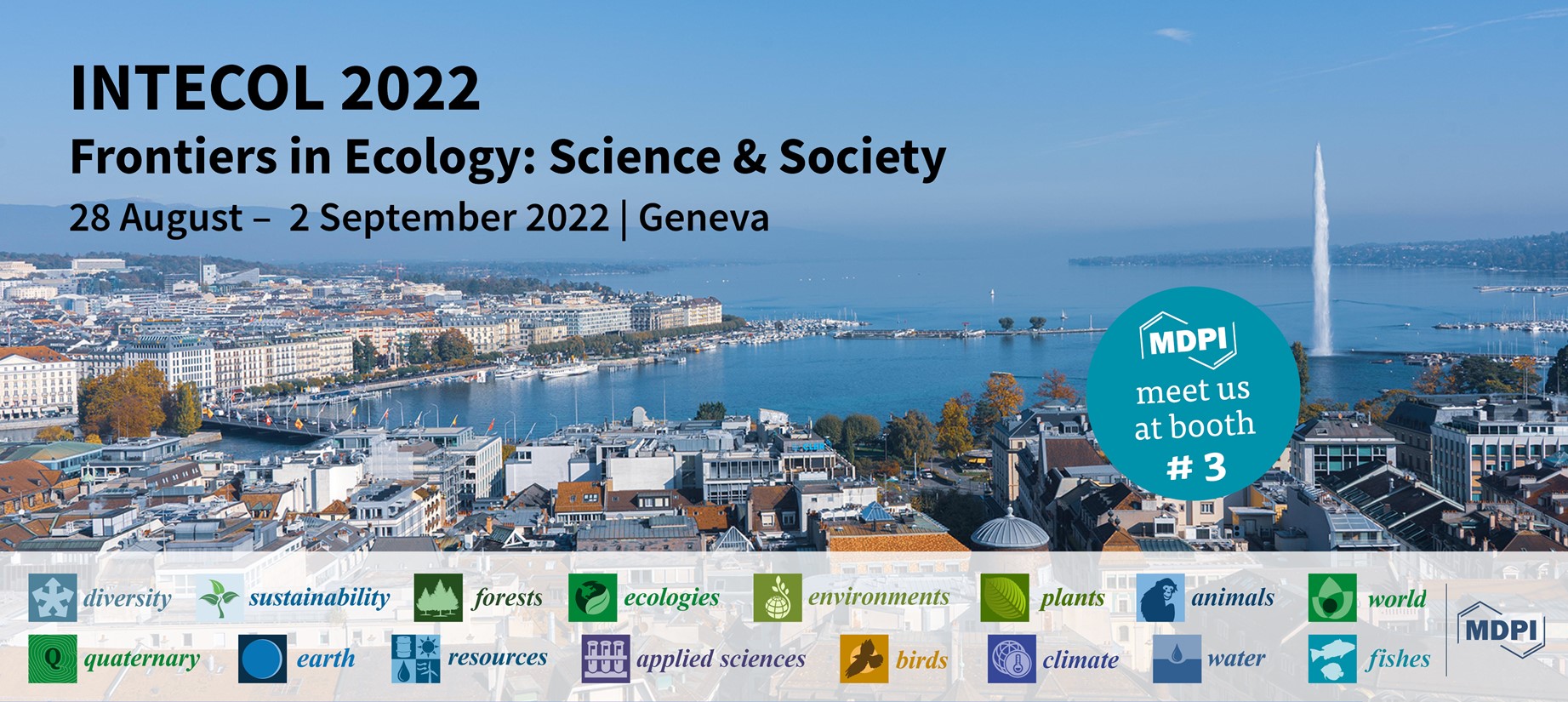
A range of MDPI journals will be attending INTECOL 2022 as exhibitors. This meeting will be held in Geneva, Switzerland, from 28 August to 2 September 2022.
“Frontiers in Ecology – Science and Society” is the general theme of the conference. With an estimated number of 1500 participants coming to Geneva, and as many following the conference from a distance, the conference aims to bring the state-of-the-art expertise in ecology to the forefront of societal challenges.
The following MDPI journals will be represented:
- Diversity (leading);
- Sustainability;
- Forests;
- Ecologies;
- Environments;
- Plants;
- Animals;
- World;
- Quaternary;
- Earth;
- Resources;
- Applied Sciences;
- Birds;
- Climate;
- Water;
- Fishes.
If you are attending this conference, please feel free to start a conversation with us at our booth #03. Our delegates look forward to meeting you in person and answering any questions that you may have. For more information about the conference, please visit http://intecol2021.org/, or contact the Diversity Editorial Office at diversity@mdpi.com.
10 August 2022
Meet Us at the 6th European Congress of Conservation Biology (ECCB2022), 22–26 August 2022, Prague, Czech Republic
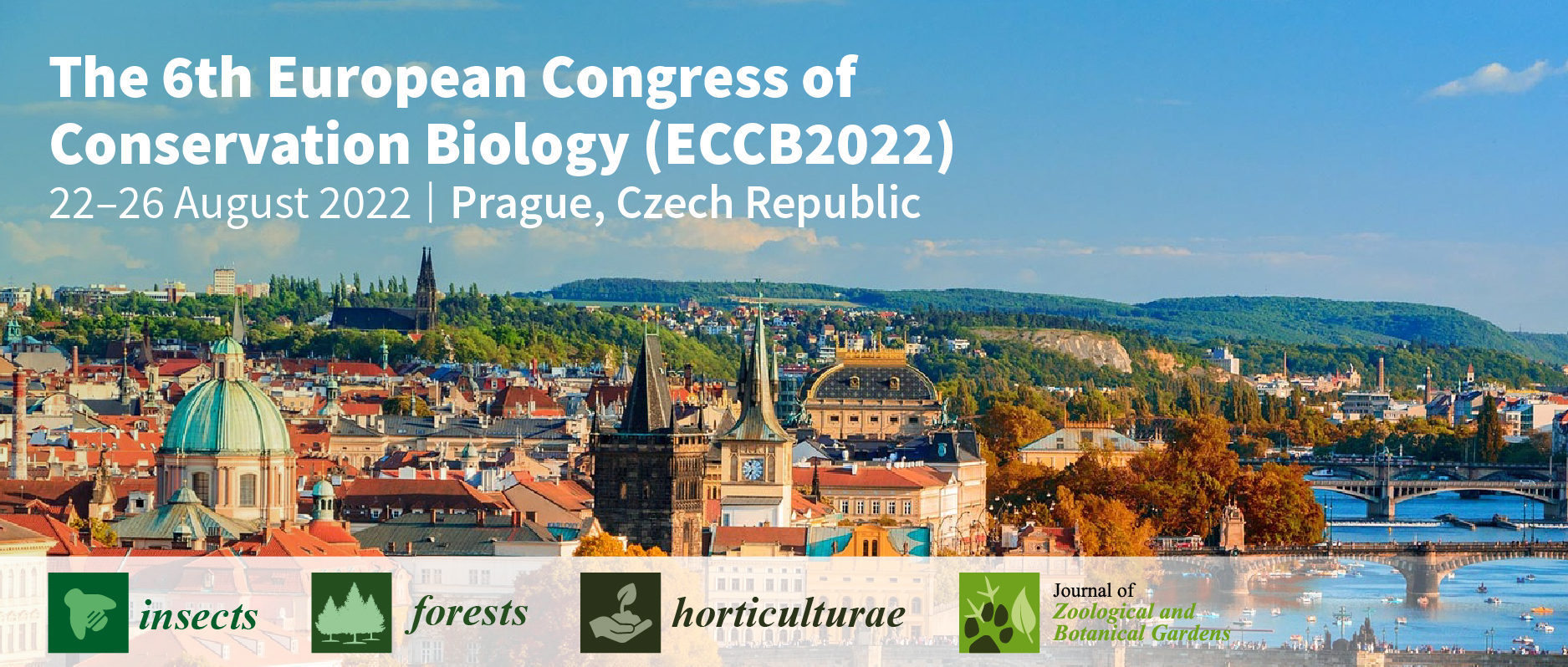
MDPI will be attending the 6th European Congress of Conservation Biology, held in Prague, Czech Republic, from 22 to 26 August 2022.
The following MDPI journals will be represented:
- Insects (leading journal);
- Forests;
- Horticulturae;
- JZBG.
If you plan on attending this conference, feel free to visit our booth. Our delegates look forward to meeting you in person and answering any questions that you may have.
For more information about the conference, please see the following link: https://www.eccb2022.eu/.
28 June 2022
2021 Impact Factors - Released
The 2021 citation metrics have been released in the Journal Citation Reports (JCR), and we’re pleased to announce the following results for MDPI journals:

| Journal | Impact Factor | Rank | Category |
| Antioxidants | 7.675 | Q1 | Food Science & Technology |
| Biochemistry & Molecular Biology | |||
| Chemistry, Medicinal | |||
| Cells | 7.666 | Q2 | Cell Biology |
| Nutrients | 6.706 | Q1 | Nutrition & Dietetics |
| Cancers | 6.575 | Q1 | Oncology |
| Pharmaceutics | 6.525 | Q1 | Pharmacology & Pharmacy |
| International Journal of Molecular Sciences | 6.208 | Q1 | Biochemistry & Molecular Biology |
| Q2 | Chemistry, Multidisciplinary | ||
| Marine Drugs | 6.085 | Q1 | Chemistry, Medicinal |
| Pharmacology & Pharmacy | |||
| Biomolecules | 6.064 | Q2 | Biochemistry & Molecular Biology |
| Batteries * | 5.938 | Q2 | Electrochemistry |
| Energy & Fuels | |||
| Materials Science, Multidisciplinary | |||
| Viruses | 5.818 | Q2 | Virology |
| Biosensors | 5.743 | Q1 | Chemistry, Analytical |
| Instruments & Instrumentation | |||
| Q2 | Nanoscience & Nanotechnology | ||
| Journal of Fungi | 5.724 | Q1 | Mycology |
| Q2 | Microbiology | ||
| Nanomaterials | 5.719 | Q1 | Physics, Applied |
| Q2 | Chemistry, Multidisciplinary | ||
| Materials Science, Multidisciplinary | |||
| Nanoscience & Nanotechnology | |||
| Metabolites | 5.581 | Q2 | Biochemistry & Molecular Biology |
| Foods | 5.561 | Q1 | Food Science & Technology |
| Drones * | 5.532 | Q2 | Remote Sensing |
| Remote Sensing | 5.349 | Q1 | Geosciences, Multidisciplinary |
| Imaging Science & Photographic Technology | |||
| Q2 | Remote Sensing | ||
| Environmental Sciences | |||
| Journal of Theoretical and Applied Electronic Commerce Research | 5.318 | Q2 | Business |
| Antibiotics | 5.222 | Q1 | Pharmacology & Pharmacy |
| Q2 | Infectious Diseases | ||
| Pharmaceuticals | 5.215 | Q1 | Pharmacology & Pharmacy |
| Q2 | Chemistry, Medicinal | ||
| Biology | 5.168 | Q1 | Biology |
| Fermentation | 5.123 | Q2 | Biotechnology & Applied Microbiology |
| Toxins | 5.075 | Q1 | Toxicology |
| Q2 | Food Science & Technology | ||
| Bioengineering * | 5.046 | Q2 | Engineering, Biomedical |
| Polymers | 4.967 | Q1 | Polymer Science |
| Journal of Clinical Medicine | 4.964 | Q2 | Medicine, General & Internal |
| Vaccines | 4.961 | Q2 | Immunology |
| Medicine, Research & Experimental | |||
| Molecules | 4.927 | Q2 | Chemistry, Multidisciplinary |
| Biochemistry & Molecular Biology | |||
| Microorganisms | 4.926 | Q2 | Microbiology |
| Journal of Functional Biomaterials * | 4.901 | Q2 | Engineering, Biomedical |
| Materials Science, Biomaterials | |||
| Biomedicines | 4.757 | Q2 | Medicine, Research & Experimental |
| Pharmacology & Pharmacy | |||
| Biochemistry & Molecular Biology | |||
| Plants | 4.658 | Q1 | Plant Sciences |
| International Journal of Environmental Research and Public Health | 4.614 | Q1 | Public, Environmental & Occupational Health (SSCI) |
| Q2 | Public, Environmental & Occupational Health (SCIE) | ||
| Environmental Sciences (SCIE) | |||
| Membranes | 4.562 | Q1 | Polymer Science |
| Q2 | Engineering, Chemical | ||
| Materials Science, Multidisciplinary | |||
| Chemistry, Physical | |||
| Pathogens | 4.531 | Q2 | Microbiology |
| Catalysts | 4.501 | Q2 | Chemistry, Physical |
| Toxics | 4.472 | Q2 | Toxicology |
| Environmental Sciences | |||
| Gels | 4.432 | Q1 | Polymer Science |
| Journal of Cardiovascular Development and Disease | 4.415 | Q2 | Cardiac & Cardiovascular Systems |
| Chemosensors | 4.229 | Q1 | Instruments & Instrumentation |
| Q2 | Chemistry, Analytical | ||
| Q3 | Electrochemistry | ||
| Genes | 4.141 | Q2 | Genetics & Heredity |
| Diagnostics | 3.992 | Q2 | Medicine, General & Internal |
| Agronomy | 3.949 | Q1 | Agronomy |
| Plant Sciences | |||
| Land | 3.905 | Q2 | Environmental Studies |
| Sustainability | 3.889 | Q2 | Environmental Sciences (SCIE) |
| Environmental Studies (SSCI) | |||
| Q3 | Green & Sustainable Science & Technology (SCIE) | ||
| Q4 | Green & Sustainable Science & Technology (SSCI) | ||
| Sensors | 3.847 | Q2 | Instruments & Instrumentation |
| Chemistry, Analytical | |||
| Engineering, Electrical & Electronic | |||
| Materials | 3.748 | Q1 | Metallurgy & Metallurgical Engineering |
| Q2 | Physics, Applied | ||
| Physics, Condensed Matter | |||
| Q3 | Materials Science, Multidisciplinary | ||
| Chemistry, Physical | |||
| Biomimetics * | 3.743 | Q2 | Engineering, Multidisciplinary |
| Q3 | Materials Science, Biomaterials | ||
| Tropical Medicine and Infectious Disease * | 3.711 | Q1 | Tropical Medicine |
| Q2 | Parasitology | ||
| Q3 | Infectious Diseases | ||
| Lubricants * | 3.584 | Q2 | Engineering, Mechanical |
| Fractal and Fractional | 3.577 | Q1 | Mathematics, Interdisciplinary Applications |
| Water | 3.530 | Q2 | Water Resources |
| Q3 | Environmental Sciences | ||
| Micromachines | 3.523 | Q2 | Instruments & Instrumentation |
| Physics, Applied | |||
| Chemistry, Analytical | |||
| Q3 | Nanoscience & Nanotechnology | ||
| Journal of Personalized Medicine | 3.508 | Q2 | Medicine, General & Internal |
| Health Care Sciences & Services | |||
| Agriculture | 3.408 | Q1 | Agronomy |
| Processes | 3.352 | Q2 | Engineering, Chemical |
| Separations | 3.344 | Q2 | Chemistry, Analytical |
| Magnetochemistry | 3.336 | Q2 | Chemistry, Inorganic & Nuclear |
| Q3 | Chemistry, Physical | ||
| Materials Science, Multidisciplinary | |||
| Brain Sciences | 3.333 | Q3 | Neurosciences |
| Buildings | 3.324 | Q2 | Construction & Building Technology |
| Engineering, Civil | |||
| Forests | 3.282 | Q1 | Forestry |
| Energies | 3.252 | Q3 | Energy & Fuels |
| Life | 3.251 | Q2 | Biology |
| Coatings | 3.236 | Q2 | Materials Science, Coatings & Films |
| Physics, Applied | |||
| Q3 | Materials Science, Multidisciplinary | ||
| Animals | 3.231 | Q1 | Agriculture, Dairy & Animal Science |
| Veterinary Sciences | |||
| Journal of Intelligence * | 3.176 | Q2 | Psychology, Multidisciplinary |
| Fishes | 3.170 | Q1 | Marine & Freshwater Biology |
| Q2 | Fisheries | ||
| Healthcare | 3.160 | Q2 | Health Policy & Services (SSCI) |
| Health Care Sciences & Services (SCIE) | |||
| Inorganics * | 3.149 | Q2 | Chemistry, Inorganic & Nuclear |
| Insects | 3.139 | Q1 | Entomology |
| Atmosphere | 3.110 | Q3 | Meteorology & Atmospheric Sciences |
| Environmental Sciences | |||
| Current Oncology | 3.109 | Q3 | Oncology |
| ISPRS International Journal of Geo-Information | 3.099 | Q2 | Geography, Physical |
| Q3 | Computer Science, Information Systems | ||
| Remote Sensing | |||
| Diversity | 3.029 | Q2 | Biodiversity Conservation |
| Ecology | |||
| Tomography | 3.000 | Q3 | Radiology, Nuclear Medicine & Medical Imaging |
| Current Issues in Molecular Biology | 2.976 | Q3 | Biochemistry & Molecular Biology |
| Medicina | 2.948 | Q3 | Medicine, General & Internal |
| Symmetry | 2.940 | Q2 | Multidisciplinary Sciences |
| Horticulturae | 2.923 | Q1 | Horticulture |
| Machines | 2.899 | Q2 | Engineering, Mechanical |
| Engineering, Electrical & Electronic | |||
| Systems * | 2.895 | Q2 | Social Sciences, Interdisciplinary |
| Applied Sciences | 2.838 | Q2 | Engineering, Multidisciplinary |
| Physics, Applied | |||
| Q3 | Chemistry, Multidisciplinary | ||
| Materials Science, Multidisciplinary | |||
| Children | 2.835 | Q2 | Pediatrics |
| Minerals | 2.818 | Q2 | Mining & Mineral Processing |
| Mineralogy | |||
| Geochemistry & Geophysics | |||
| Universe | 2.813 | Q2 | Astronomy & Astrophysics |
| Q3 | Physics, Particles & Fields | ||
| Journal of Marine Science and Engineering | 2.744 | Q1 | Engineering, Marine |
| Q2 | Oceanography | ||
| Engineering, Ocean | |||
| Entropy | 2.738 | Q2 | Physics, Multidisciplinary |
| Fire * | 2.726 | Q2 | Forestry |
| Q3 | Ecology | ||
| Metals | 2.695 | Q2 | Metallurgy & Metallurgical Engineering |
| Q3 | Materials Science, Multidisciplinary | ||
| Electronics | 2.690 | Q3 | Engineering, Electrical & Electronic |
| Computer Science, Information Systems | |||
| Physics, Applied | |||
| Crystals | 2.670 | Q2 | Crystallography |
| Q3 | Materials Science, Multidisciplinary | ||
| Aerospace | 2.660 | Q1 | Engineering, Aerospace |
| Mathematics | 2.592 | Q1 | Mathematics |
| Photonics | 2.536 | Q3 | Optics |
| Actuators | 2.523 | Q2 | Instruments & Instrumentation |
| Q3 | Engineering, Mechanical | ||
| Veterinary Sciences | 2.518 | Q2 | Veterinary Sciences |
| Behavioral Sciences * | 2.286 | Q3 | Psychology, Multidisciplinary |
| Axioms * | 1.824 | Q2 | Mathematics, Applied |
For more information on Impact Factors and what it means to index academic journals, please visit our related blog posts.
* Journals given their first Impact Factor in 2022
Source: 2021 Journal Impact Factors, Journal Citation Reports TM (Clarivate, 2022)
13 June 2022
MDPI’s 2021 Young Investigator Awards in “Environmental & Earth Sciences”—Winners Announced
MDPI’s Young Investigator Awards recognize promising junior researchers, acknowledge their contributions, and enhance communication among scientists. We are proud to present the winners for the year 2021 in the “Environmental & Earth Sciences” category. The winners were selected by the journals’ editors.
We warmly congratulate the awarded young investigators for their outstanding contributions. MDPI will continue to provide support and recognition to the academic community.
- Shaojie Song, Harvard University, USA
- Francesco Galiano, Institute on Membrane Technology of the National Research Council, Italy
- Qilin Wang, University of Technology Sydney, Australia
- Christopher H. T. Lee, Nanyang Technological University, Singapore
International Journal of Environmental Research and Public Health:
- Grace Vincent, Central Queensland University, Australia
- Antony Burnham, Australian National University, Australia
- Celso Henrique Leite Silva Junior, National Institute for Space Research – INPE, Brasil; Agricultural Engineering Department of the State University of Maranhão – UEMA, Brazil
- Baojie He, Chongqing University, China
- Stefanos Giannakis, Polytechnic University of Madrid, Spain
13 June 2022
MDPI’s 2021 Outstanding Reviewer Awards in “Environmental & Earth Sciences”—Winners Announced
In order to acknowledge our reviewers, who so generously dedicate their time to reviewing papers and demonstrate diligence, professionalism, and timeliness when reviewing manuscripts, MDPI journals regularly offer outstanding reviewer awards to scholars who participate in the peer-review process.
We are proud to recognize winners for the year 2021 in the “Environmental & Earth Sciences” category for their outstanding contributions among extensive competition by presenting them with an Outstanding Reviewer Award.
We would like to take this opportunity to congratulate all the winners on their achievement. MDPI will continue to provide support and recognition to the academic community.
- Hristo Chervenkov, National Institute of Meteorology and Hydrology, Bulgaria
- Jouni Räisänen, University of Helsinki, Finland
- Piotr F. Borowski, Warsaw University of Life Sciences, Poland
- Elena Lucchi, Institute for Renewable Energy, Italy
- Marcin Dębowski, University of Warmia and Mazury in Olsztyn, Poland
- Miroslav Variny, Slovak University of Technology in Bratislava, Slovakia
- Piotr F. Borowski, Warsaw University of Life Sciences, Poland
- Vedran Mrzljak, University of Rijeka, Croatia
- Tomasz Oszako, Forest Research Institute, Poland
- Stelian Alexandru Borz, Transilvania University of Brasov, Romania
- Maricar Aguilos, North Carolina State University, USA
- Narayan Bhusal, Seoul National University, South Korea
- Dave Waters, University of Oxford, UK
International Journal of Environmental Research and Public Health:
- Anuli Njoku, Southern Connecticut State University, USA
- Haruna Musa Moda, Manchester Metropolitan University, UK
- Jesús Molina-Mula, University of BalearicIsland, Spain
- Katharina Diehl, Friedrich-Alexander-University of Erlangen-Nuremberg, Germany
- Katarzyna Tomaszek, Pedagogical University of Kracow, Poland
- Matteo Nioi, University of Cagliari, Italy
- Pablo A. Cantero-Garlito, Universidad de Castilla La Mancha, Spain
- Seoyong Kim, Ajou University, South Korea
- Andrzej Adamski, University of Information Technology and Management, Poland
- Adrian Curto, Faculty of Medicine, University of Salamanca, Spain
- Arkaitz Castañeda Babarro, University of Deusto, Spain
- Álvaro Francisco Lopes De Sousa, Universidade Nova de Lisboa, Portugal
- Agata Gabryelska, Medical University of Lodz, Poland
- Ana Reyes Menéndez, Rey Juan Carlos University, Spain
- Bartosz Dalewski, Pomeranian Medical University in Szczecin, Poland
- Chong Chen, Yamaguchi University Graduate School of Medicine, Japan
- Carla Maria Batista Ferreira Pires, CBIOS-Universidade Lusófona de Humanidades e Tecnologias-Escola de Ciências e Tecnologias da Saúde, Portugal
- Claudia Pisanu, University of Cagliari, Italy
- Emmanuel Obeng-Gyasi, North Carolina Agricultural and Technical State University, USA
- Faisal F. Hakeem, King’s College London, UK
- Francisco Javier Fernández Carrasco, Punta de Europa Hospital, Spain
- Haewon Byeon, Inje University, South Korea
- HuiJun Chih, Curtin University, Australia
- Jerónimo Aragón Vela, University of Granada, Spain
- Joana Costa, University of Aveiro, Portugal,
- Joanne Lloyd, University of Wolverhampton, UK
- José Luis Romero-Bejar, University of Granada, Spain
- Laura Nathans, Human Development and Family Studies, Penn State Scranton, USA
- Mateusz Jankowski, Centre of Postgraduate Medical Education, Poland
- Matteo Riccò, Azienda USL-IRCCS di Reggio Emilia, Italy
- Nicola Döring, Technische Universität Ilmenau, Germany
- Nora Suleiman-Martos, University of Granada, Spain
- Russell Kabir, Anglia Ruskin University, UK
- Roy McConkey, University of Ulster, UK
- Sunhee Kim, Ajou University, South Korea
- Sol García-Germán, Centro de Estudios e Investigación para la Gestión de Riesgos Agrarios y Medioambientalesdisabled, Spain
- Sebastian Rutkowski, Opole University of Technology, Poland
- Tamás Berki, University of Szeged, Hungary
- Terence Moriarty, University of Northern Iowa, USA
- Pedro Antonio Martín Cervantes, University of Almería, La Cañada de San Urbano, Spain
ISPRS International Journal of Geo-Information:
- Lemenkova Polina, Université Libre de Bruxelles, Belgium
- Andrew Newton, Nottingham Trent University, UK
- Dennis Edler, Ruhr University Bochum, Germany
- Lukáš Herman, Masaryk University, Czech Republic
- Marcela Bindzarova Gergelova, Technical University of Kosice, Slovakia
Land:
- Rahul Datta, Mendel University in Brno, Czech Republic
- Dirk H.R. Spennemann, Charles Sturt University, Australia
- Raimundo Jimenez-Ballesta, (Retired recently) Autonoma University of Madrid, Spain
- Veraldo Liesenberg, Santa Catarina State University, Brazil
- Yady Tatiana Solano-Correa, University of Cauca, Colombia
- Francesco Marinello, University of Padova, Italy
- Pedro Melo-Pinto, Universidade de Trás-os-Montes e Alto Douro, Portugal
- Ignacio Bosch, Universitat Politènica de València, Spain
- Juan Soria, University of Valencia, Spain
- Chiman Kwan, Signal Processing, Inc., USA
- Benoit Vozel, University of Rennes, France
- Giuseppe Casula, National Institute of Geophysics and Volcanology Unit of Bologna, Italy
- Simone Cosoli, The University of Western Australia, Australia
- Maria Economou-Eliopoulos, University of Athens, Greece
- Cynthia Rider, National Institute of Environmental Health Sciences, USA
13 June 2022
MDPI’s 2021 Travel Awards in “Environmental & Earth Sciences”—Winners Announced
We are proud to recognize the winners of MDPI’s 2021 Travel Awards in the “Environmental & Earth Sciences” category for their outstanding presentations and to present them with the prize.
MDPI journals regularly offer travel awards to encourage talented junior scientists to present their latest research at academic conferences in specific fields, which helps to increase their influence.
The winners mentioned below were carefully selected by the journal editors based on an outline of their research and the work to be presented at an academic conference.
We would like to warmly congratulate the Travel Awards winners for the year 2021 and wish them the greatest success with their future research endeavors. MDPI will continue to enhance communication among scientists.
- Charbel Harb, Civil and Environmental Engineering, Virginia Tech, USA
- Jibran Khan, Aarhus University, Roskilde, Denmark
- Agostino Niyonkuru Meroni, Politecnico di Milano, Italy
- Platon Patlakas, National and Kapodistrian University of Athens, Greece
- Nnaemeka Vincent Emodi, University of Tasmania, Australia
- Irene Poza-Casado, Universidad de Valladolid, Spain
- Pipiet Larasatie, Oregon State University, USA
- Tania L. Maxwell, French National Research Institute for Agriculture, Food and Environment (INRAE), France
- Georgia Papacharalampous, Roma Tre University, Italy
- Mattei Alexandra, University of Corsica, France
International Journal of Environmental Research and Public Health:
- Danila Azzolina, University of Eastern Piedmont, Italy
- Kelvin Fong, Yale University, USA
- Levi Frehlich, University of Calgary, Canada
- Garyfallos Konstantinoudis, Imperial College London, UK
ISPRS International Journal of Geo-Information:
- Junghwan Kim, University of Illinois at Urbana-Champaign, USA
- Xuke Hu, Institute of Data Science, German Aerospace Center (DLR), Germany
Land:
- Álvaro Castilla Beltrán, University of La Laguna, Spain
- Lauren Nerfa, University of Hawaiʻi, USA
- Amen Al-Yaari, Sorbonne University, France
- Meng Lu, Utrecht University, Netherlands
- Alessandro Lenci, University of Bologna, Italy
- Evangelia Georgantzia, Liverpool John Moores University, UK
- Sayyed Rasoul Khayyam Nekouei, University of New South Wales (UNSW), Australia
- Georgia A. Papacharalampous, Roma Tre University, Italy
- Raquel Filipa da Costa Viveiros, NOVA University of Lisbon, Portugal
- Rajesh Pathak, South Dakota State University, USA
- Nnanake-Abasi Okon Offiong, University of Uyo, Nigeria
- Tonni Agustiono Kurniawan, Polytechnic of Health, Indonesia
- Shawna Andrea Foo, Arizona State University, USA
13 June 2022
MDPI’s 2021 Best Paper Awards in “Environmental & Earth Sciences”—Winners Announced
The purpose of our Best Paper Awards is to promote and recognize the most impactful contributions published within MDPI journals.
The editors of each journal carefully selected reviews and research papers through a rigorous judging process based on criteria such as the scientific merit, overall impact, and the quality of presentation of the papers published in the journal last year.
We are honored to present the winners in the subject areas of “Environmental & Earth Sciences”, who were selected amongst extensive competition, and congratulate the authors for their outstanding scientific publications.
MDPI will continue to provide support and recognition to the academic community.
- “Distinguishing between Deep-Water Sediment Facies: Turbidites, Contourites and Hemipelagites”
by Dorrik Stow and Zeinab Smillie
Geosciences 2020, 10(2), 68. https://doi.org/10.3390/geosciences10020068 - “Review of Explosive Hydrovolcanism”
by Károly Németh and Szabolcs Kósiks
Geosciences 2020, 10(2), 44. https://doi.org/10.3390/geosciences10020044
- “A Review on Deep Learning Techniques for 3D Sensed Data Classification”
by David Griffiths and Jan Boehm
Remote Sens. 2019, 11(12), 1499. https://doi.org/10.3390/rs11121499 - “Satellite Remote Sensing of Precipitation and the Terrestrial Water Cycle in a Changing Climate”
by Vincenzo Levizzani and Elsa Cattani
Remote Sens. 2019, 11(19), 2301. https://doi.org/10.3390/rs11192301 - “Evaluation of Different Machine Learning Methods and Deep-Learning Convolutional Neural Networks for Landslide Detection”
by Omid Ghorbanzadeh, Thomas Blaschke, Khalil Gholamnia, Sansar Raj Meena, Dirk Tiede and Jagannath Aryal
Remote Sens. 2019, 11(2), 196. https://doi.org/10.3390/rs11020196 - “An Integrated View of Greenland Ice Sheet Mass Changes Based on Models and Satellite Observations”
by Ruth Mottram, Sebastian B. Simonsen, Synne Høyer Svendsen, Valentina R. Barletta, Louise Sandberg Sørensen, Thomas Nagler, Jan Wuite, Andreas Groh, Martin Horwath, Job Rosier, Anne Solgaard, Christine S. Hvidberg and Rene Forsberg
Remote Sens. 2019, 11(12), 1407. https://doi.org/10.3390/rs11121407 - “UAV-Based High Resolution Thermal Imaging for Vegetation Monitoring, and Plant Phenotyping Using ICI 8640 P, FLIR Vue Pro R 640, and thermoMap Cameras”
by Vasit Sagan, Maitiniyazi Maimaitijiang, Paheding Sidike, Kevin Eblimit, Kyle T. Peterson, Sean Hartling, Flavio Esposito, Kapil Khanal, Maria Newcomb, Duke Pauli, Rick Ward, Felix Fritschi, Nadia Shakoor and Todd Mockler
Remote Sens. 2019, 11(3), 330. https://doi.org/10.3390/rs11030330
- “A Review of Biomonitoring of Phthalate Exposures”
by Wang, Yu, Hongkai Zhu and Kurunthachalam Kannan
Toxics 2019, 7(2), 21; https://doi.org/10.3390/toxics7020021 - “Trace Element Uptake by Herbaceous Plants from the Soils at a Multiple Trace Element-Contaminated Site”
by Nworie, Obinna E., Junhao Qin and Chuxia Lin
Toxics 2019, 7(1), 3; https://doi.org/10.3390/toxics7010003
- “Water Quality Indices: Challenges and Application Limits in the Literature”
by Moez Kachroud, Fabienne Trolard, Mohamed Kefi, Sihem Jebari and Guilhem Bourrié
Water 2019, 11(2), 361. https://doi.org/10.3390/w11020361 - “A Brief Review of Random Forests for Water Scientists and Practitioners and Their Recent History in Water Resources”
by Hristos Tyralis, Georgia Papacharalampous and Andreas Langousis
Water 2019, 11(5), 910. https://doi.org/10.3390/w11050910 - “The Use of Non-Conventional Water Resources as a Means of Adaptation to Drought and Climate Change in Semi-Arid Regions: South-Eastern Spain”
by Álvaro-Francisco Morote, Jorge Olcina and María Hernández
Water 2019, 11(1), 93. https://doi.org/10.3390/w11010093 - “Hydrological Effectiveness of an Extensive Green Roof in Mediterranean Climate”
by Stefania Anna Palermo, Michele Turco, Francesca Principato and Patrizia Piro
Water 2019, 11(7), 1378. https://doi.org/10.3390/w11071378 - “Forecasting Groundwater Table in a Flood Prone Coastal City with Long Short-term Memory and Recurrent Neural Networks”
by Benjamin D. Bowes, Jeffrey M. Sadler, Mohamed M. Morsy, Madhur Behl and Jonathan L. Goodall
Water 2019, 11(5), 1098. https://doi.org/10.3390/w11051098 - “Effectiveness of Rainwater Harvesting Systems for Flood Reduction in Residential Urban Areas”
by Gabriele Frenib and Lorena Liuzzo
Water 2019, 11(7), 1389. https://doi.org/10.3390/w11071389
9 June 2022
2021 CiteScores - Released
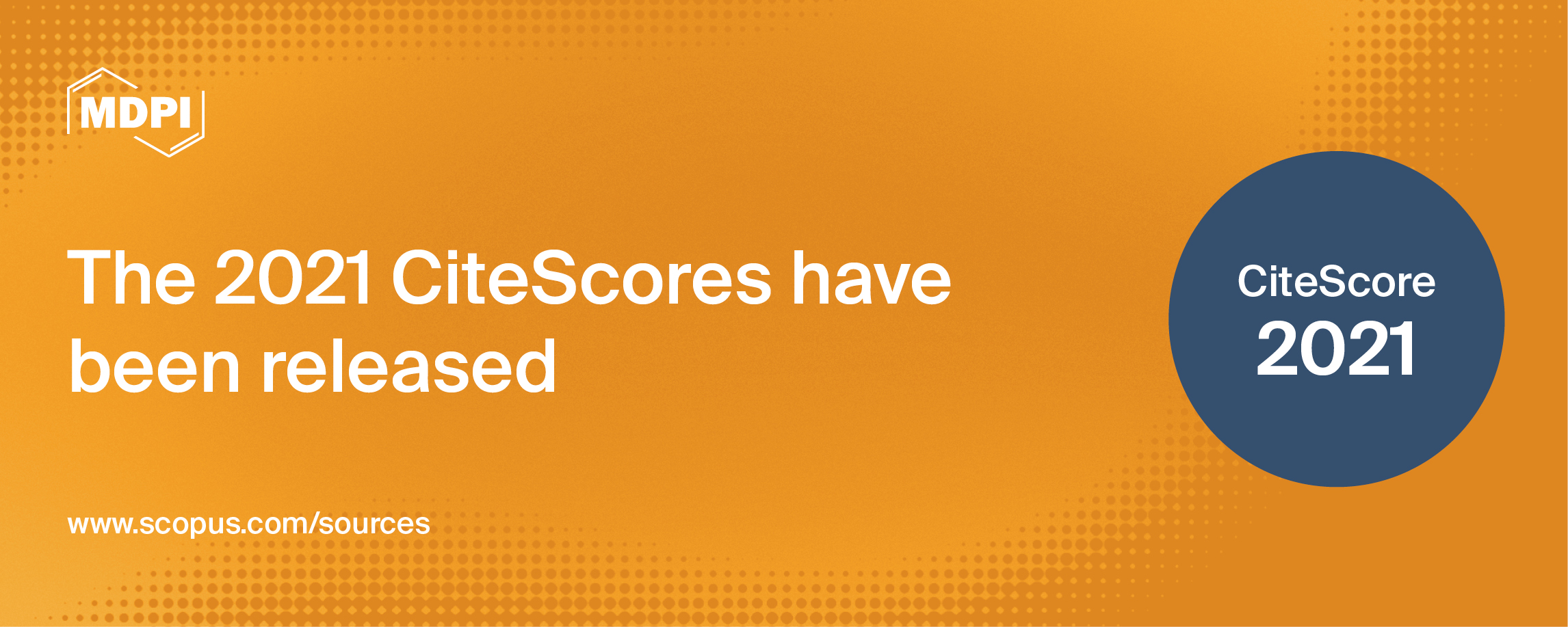
The 2021 citation metrics have been officially released in Scopus!
We are pleased to announce that 182 MDPI journals are included, of which:
● 21 journals received their first CiteScore.
● 85% of journals increased their CiteScore from 2020.
● 155 journals (85%) ranked above average, in at least one category.
The following 65 MDPI journals (36%) ranked among the top 25% of journals, in at least one category:
|
Journal |
CiteScore |
Quartile |
Category |
|
10.1 |
Q1 |
Genetics |
|
|
10.0 |
Q1 |
Biomedical Engineering |
|
|
8.1 |
Q1 |
Pharmacology, Toxicology and Pharmaceutics (miscellaneous) |
|
|
7.9 |
Q1 |
Electrical and Electronic Engineering |
|
|
7.9 |
Q1 |
Nutrition and Dietetics |
|
|
7.4 |
Q1 |
General Earth and Planetary Sciences |
|
|
7.2 |
Q1 |
Computer Science Applications |
|
|
6.9 |
Q1 |
Inorganic Chemistry |
|
|
6.9 |
Q1 |
Computer Networks and Communications |
|
|
6.7 |
Q1 |
General Biochemistry, Genetics and Molecular Biology |
|
|
6.6 |
Q1 |
General Chemical Engineering |
|
|
6.6 |
Q1 |
Health, Toxicology and Mutagenesis |
|
|
6.6 |
Q1 |
Infectious Diseases |
|
|
6.5 |
Q1 |
Food Science |
|
|
6.5 |
Q1 |
Civil and Structural Engineering |
|
|
6.4 |
Q1 |
Nature and Landscape Conservation |
|
|
6.4 |
Q1 |
Instrumentation |
|
|
6.1 |
Q1 |
Management Information Systems |
|
|
5.9 |
Q1 |
Chemistry (miscellaneous) |
|
|
5.7 |
Q1 |
Polymers and Plastics |
|
|
5.6 |
Q1 |
Engineering (miscellaneous) |
|
|
5.5 |
Q1 |
General Environmental Science |
|
|
5.5 |
Q1 |
Urban Studies |
|
|
5.4 |
Q2 |
Computer Networks and Communications |
|
|
5.3 |
Q1 |
Food Science |
|
|
5.3 |
Q1 |
Plant Science |
|
|
5.2 |
Q1 |
Ecology, Evolution, Behavior and Systematics |
|
|
5.2 |
Q1 |
General Engineering |
|
|
Journal of Open Innovation: Technology, Market, and Complexity |
5.1 |
Q1 |
Development |
|
5.0 |
Q1 |
Chemistry (miscellaneous) |
|
|
5.0 |
Q1 |
Control and Optimization |
|
|
5.0 |
Q1 |
Geography, Planning and Development |
|
|
5.0 |
Q1 |
Geography, Planning and Development |
|
|
4.9 |
Q1 |
Forestry |
|
|
4.9 |
Q1 |
Control and Optimization |
|
|
4.9 |
Q1 |
Soil Science |
|
|
4.8 |
Q1 |
General Earth and Planetary Sciences |
|
|
4.8 |
Q1 |
Mechanical Engineering |
|
|
4.8 |
Q1 |
Public Health, Environmental and Occupational Health |
|
|
4.8 |
Q1 |
Geography, Planning and Development |
|
|
International Journal of Environmental Research and Public Health |
4.5 |
Q1 |
Public Health, Environmental and Occupational Health |
|
4.5 |
Q1 |
Physical Therapy, Sports Therapy and Rehabilitation |
|
|
4.4 |
Q1 |
Mathematical Physics |
|
|
4.4 |
Q1 |
General Medicine |
|
|
4.3 |
Q1 |
General Mathematics |
|
|
4.2 |
Q1 |
Surgery |
|
|
4.1 |
Q1 |
Health Professions (miscellaneous) |
|
|
4.1 |
Q1 |
Plant Science |
|
|
4.0 |
Q1 |
General Engineering |
|
|
4.0 |
Q1 |
Forestry |
|
|
4.0 |
Q1 |
Education |
|
|
3.9 |
Q1 |
General Pharmacology, Toxicology and Pharmaceutics |
|
|
3.9 |
Q1 |
Applied Mathematics |
|
|
3.8 |
Q1 |
Development |
|
|
3.8 |
Q1 |
Architecture |
|
|
3.8 |
Q1 |
Metals and Alloys |
|
|
3.5 |
Q1 |
Communication |
|
|
3.4 |
Q1 |
General Social Sciences |
|
|
2.9 |
Q1 |
General Mathematics |
|
|
2.8 |
Q1 |
Analysis |
|
|
2.7 |
Q1 |
General Veterinary |
|
|
2.6 |
Q1 |
Algebra and Number Theory |
|
|
1.8 |
Q1 |
Conservation |
|
|
1.0 |
Q1 |
Religious Studies |
|
|
0.9 |
Q1 |
Philosophy |
Source: 2021 CiteScores™ (Elsevier)
9 June 2022
Prof. Dr. Giacomo Alessandro Gerosa Appointed Section Editor-in-Chief of the Section “Forest Meteorology and Climate Change” in Forests

We are pleased to announce that Prof. Dr. Giacomo Alessandro Gerosa has been appointed Editor-in-Chief of the Section “Forest Meteorology and Climate Change” in Forests (ISSN: 1999-4907).
Giacomo Alessandro Gerosa is a full professor of atmospheric physics at the Catholic University of the Sacred Heart, campus of Brescia, Italy. He graduated in environmental sciences at the University of Milan and then obtained a Ph.D. in agricultural ecology at the same university. He was a researcher of agricultural chemistry and physics for the Catholic University for more than a decade and then an associate professor of atmospheric physics, with a teaching assignment of ecology and pollutant control in agricultural and forest ecosystems.
He is an atmospheric scientist and ecophysiologist with a particular interest in micrometeorology as it applies to agriculture, forest, and terrestrial ecology. For the past two decades, he has been measuring and modeling the exchange of carbon dioxide, water vapor, ozone, nitrogen oxides, particulate matter, and energy between the atmosphere and agriculture and forest ecosystems. He has participated in many international collaborative research projects and led some National and European projects.
He has published more than 100 scientific articles and some book chapters. Prof. Dr. Gerosa is the coordinator of the research group Environmental Physics and Ecophysiology at the Catholic University of the Sacred Heart in Brescia, Italy.
The following is a short Q&A with Prof. Dr. Giacomo Alessandro Gerosa, who shared his vision for the journal with us, as well as his views of the research area and open access publishing:
1. What appealed to you about the journal that made you want to take the role as its Section Editor-in-Chief?Forests is a dynamic journal where scientists from different backgrounds write and share their research. I was surprised by their offer to lead the Section “Forest Meteorology and Climate Change”. That’s a sign of openness to interdisciplinarity that I really appreciated.
2. What is your vision for the journal?Atmospheres support many biosphere processes, such as photosynthesis and respiration. A better understanding of the interactions between vegetation and the atmosphere, as well as of the related ecosystem services, is of vital interest to mankind in scenarios of climate change. I would like to create a section where foresters, ecophysiologists and meteorologists discuss ways to identify the best strategies for managing and adapting forests to environmental pollution and climate changes.
3. What does the future of this field of research look like?The collection of data with new measurement campaigns, even in forests located on complex terrain, and the accurate study of processes will contribute to the development of increasingly scientifically sound land-atmosphere models to predict and assess our planet's responses to ongoing climate change. It will also contribute to better management of water resources and air quality.
4. What do you think of the development of open access in the publishing field?Open access is a way to lower the costs of articles’ accessibility by researchers and practitioners in developing countries. At the same time, it is a way to avoid any monopolistic centralization of knowledge in a few large editorial groups, because it guarantees acceptable earnings even for small publishing houses. In both cases, it is a way to increase knowledge sharing around the world.
We wish him every success in his new position, and we look forward to his contributions to the journal.
23 May 2022
Forests | Invitation to Read Selected Papers from the “Editor’s Choice Articles” (Volume 13, Issues 1–3)
Our Editor-in-Chief has selected a number of papers to be presented in the "Editor's Choice Articles". All of these papers have proved to be of particular interest or importance to readers. Additionally, they are always well-received by researchers.
The following new 10 papers were recently selected by the Editorial Office from the most downloaded publications in Volume 13, Issues 1–3:
|
“Impacts of Climate Change on Blue Carbon Stocks and Fluxes in Mangrove Forests” |
“Combustion of Aboveground Wood from Live Trees in Megafires, CA, USA” |
|
“Restoration Trajectories and Ecological Thresholds during Planted Urban Forest Successional Development” |
“The Potential of Low-Cost 3D Imaging Technologies for Forestry Applications: Setting a Research Agenda for Low-Cost Remote Sensing Inventory Tasks” |
|
“Forest Structure and Composition Are Critical to Hurricane Mortality” |
“Fungal and Bacterial Communities in Tuber melanosporum Plantations from Northern Spain” |
|
“Upward Treeline Shifts in Two Regions of Subarctic Russia Are Governed by Summer Thermal and Winter Snow Conditions” |
“Detecting Coastal Wetland Degradation by Combining Remote Sensing and Hydrologic Modeling” |
|
“Development and Validation of a 36K SNP Array for Radiata Pine (Pinus radiata D.Don)” |
“Experimental Characterization of Particulate and Gaseous Emissions from Biomass Burning of Six Mediterranean Species and Litter” |
We would like to take this opportunity to thank all of the research groups behind these exceptional papers for their contributions to Forests. We would greatly appreciate it if you could circulate this document among your colleagues or through your networks.
If you want to learn more about the contributions published in the “Editor’s Choice Articles”, please read the information found at the following link: https://www.mdpi.com/journal/forests/editors_choice.
20 April 2022
Prof. Dr. Víctor Resco de Dios Appointed Section Editor-in-Chief of the Section “Natural Hazards and Risk Management” in Forests
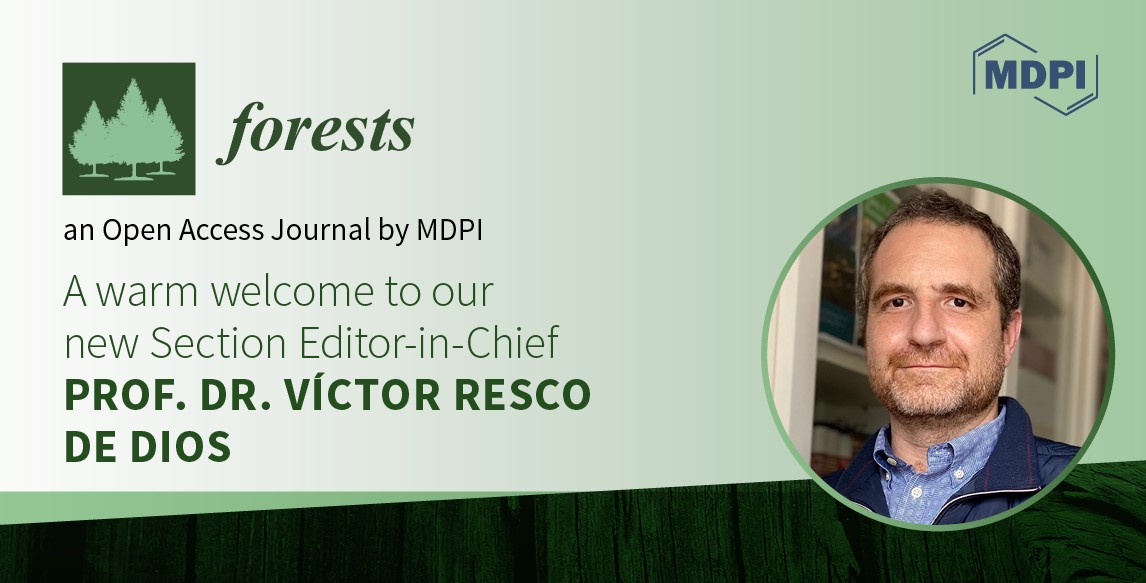
We are pleased to announce that Prof. Dr. Víctor Resco has been appointed Section Editor-in-Chief of the Section “Natural Hazards and Risk Management” in Forests (ISSN: 1999-4907).
Prof. Dr. Víctor Resco de Dios is an Associate Professor of Forest Engineering at the University of Lleida (Spain) and he also works with the Southwest University of Science and Technology (China). He obtained his Ph.D. from the University of Wyoming (USA) and has previously been a faculty member at the University of Castilla-la Mancha (Spain) and at the Hawkesbury Institute for the Environment (Australia). He has written one book on forest fires and over 100 scientific articles, and is currently listed as a highly cited scientist in Biology in the Scopus ranking. He is a fire scientist working at the biosphere–atmosphere interface. More specifically, he seeks to understand plant–drought–fire interactions from a physiological perspective and their spatial and temporal upscaling to anticipate changes in fire regimes under global change and in developing sustainable fire management strategies. He is regularly asked for comments on wildfire issues from the press globally.
The following is a short Q&A with Prof. Dr. Víctor Resco de Dios, who shared his vision for the journal with us, as well as his views of the research area and open access publishing:
1. What appealed to you about the journal that made you want to take the role as its Editor-in-Chief?
Forests has established itself as a major journal in the field of forestry, at least in terms of the number of papers published. As a forest fires scientist, I think this is a great opportunity to provide service for the community in such an important journal by leading the Section on “Natural Hazards and Risk Management".
2. What is your vision for the journal?
Wildfires, landslides, windthrow, and many other natural disturbances are modulated by forests and their management. However, we were missing a foresty journal specialized in this field. I hope this new Section within Forests will contribute to fill in this gap by specializing on this up and coming field.
3. What does the future of this field of research look like?
Global change, a process that includes climate change, changes in forest management, and many other processes, is altering the frequency and distribution of many natural hazards and how we manage them. I see global change responses as agenda setting, and the challenge lies in embedding natural risk management within both ecologically and economically sustainable forest management.
4. What do you think of the development of open access in the publishing field?
Open access is now very firmly established. It has solved some of the problems associated with conventional publishing. The challenge now lies in ensuring that efficient publishing is continued without becoming a burden for scientists who may face difficulties affording the publication fees.
We wish Prof. Dr. Víctor Resco de Dios every success in his new position, and we look forward to his contributions to the journal.
18 April 2022
Forests | Invitation to Read Selected Papers from “Editor’s Choice” (Volume 12, Issues 10–12)
Our Editors-in-Chief have selected many papers to be displayed in “Editor’s Choice”. All of them have proven to be particularly interesting to authors or otherwise important to the field.
Recently, the Editorial Office selected the following papers from the most downloaded publications from Volume 12, Issues 10–12.
|
“Effects of Early, Small-Scale Nitrogen Addition on Germination and Early Growth of Scots Pine (Pinus sylvestris) Seedlings and on the Recruitment of the Root-Associated Fungal Community” David Castro et al. |
“Determination of Riparian Vegetation Biomass from an Unmanned Aerial Vehicle (UAV)” Alessandro Matese et al. |
|
“Simulating the Effects of Thinning Events on Forest Growth and Water Services Asks for Daily Analysis of Underlying Processes” Rasoul Yousefpour et al. |
“The Contribution of Trees Outside of Forests to Landscape Carbon and Climate Change Mitigation in West Africa” David L. Skole et al. |
|
“GIS-Based Aesthetic Appraisal of Short-Range Viewsheds of Coastal Dune and Forest Landscapes” Arvydas Urbis et al. |
“Combining Landscape Fire Simulations with Stand-Level Growth Simulations to Assist Landowners in Building Wildfire-Resilient Landscapes” Susana Barreiro et al. |
|
“Fragmentation and Coordination of REDD+ Finance under the Paris Agreement Regime” Dong-hwan Kim et al. |
“Impact of Gene Flow and Introgression on the Range Wide Genetic Structure of Quercus robur (L.) in Europe” Bernd Degen et al. |
|
“The Contribution of Roots, Mycorrhizal Hyphae, and Soil Free-Living Microbes to Soil Respiration and Its Temperature Sensitivity in a Larch Forest” Naoki Makita et al. |
“Chemical Signals in Tree Rings from Northern Patagonia as Indicators of Calbuco Volcano Eruptions since the 16th Century” Lizette J. Bertin et al. |
We would like to take this opportunity to thank all the research groups behind these exceptional papers for their contributions to Forests (ISSN: 1999-4907). We would greatly appreciate it if you could circulate this document among your colleagues or through your network.
If you want to learn more about the contributions published in “Editor’s Choice”, please click the following link: https://www.mdpi.com/journal/forests/editors_choice.
24 March 2022
Forests 2020 Best Paper Award—Winners Announced
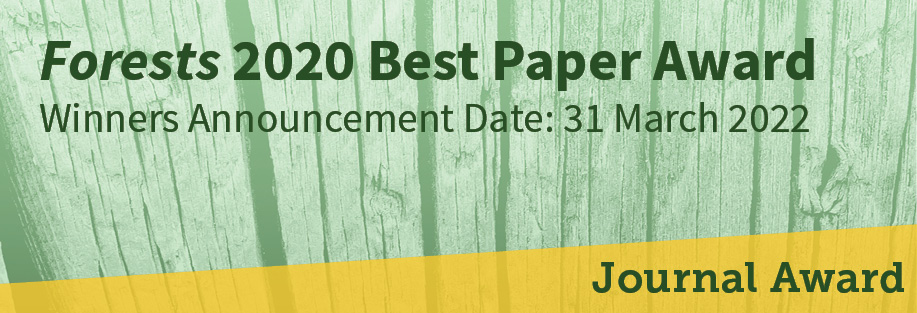
We are pleased to announce the winners of the Forests 2020 Best Paper Award. All papers published in the year 2020 (1 January 2020 to 31 December 2020) in Forests (ISSN: 1999-4907) were considered for the award. After a thorough evaluation of the originality and significance of the papers, citations, and downloads, the four winning papers have been selected.
Two Articles:
1. “Coastal Pine-Oak Glacial Refugia in the Mediterranean Basin: A Biogeographic Approach Based on Charcoal Analysis and Spatial Modelling”
by Gaetano Di Pasquale, Antonio Saracino, Luciano Bosso, Danilo Russo, Adriana Moroni, Giuliano Bonanomi and Emilia Allevato
Forests 2020, 11(6), 673; https://doi.org/10.3390/f11060673
2. “A Survey in Natural Forest Ecosystems of Vietnam Reveals High Diversity of both New and Described Phytophthora Taxa including P. ramorum”
by Thomas Jung, Bruno Scanu, Clive M. Brasier, Joan Webber, Ivan Milenković, Tamara Corcobado, Michal Tomšovský, Matěj Pánek, József Bakonyi, Cristiana Maia, Aneta Bačová, Milica Raco, Helen Rees, Ana Pérez-Sierra and Marília Horta Jung
Forests 2020, 11(1), 93; https://doi.org/10.3390/f11010093
Two Reviews:
1. “Living in Drylands: Functional Adaptations of Trees and Shrubs to Cope with High Temperatures and Water Scarcity”
by José Javier Peguero-Pina, Alberto Vilagrosa, David Alonso-Forn, Juan Pedro Ferrio, Domingo Sancho-Knapik and Eustaquio Gil-Pelegrín
Forests 2020, 11(10), 1028; https://doi.org/10.3390/f11101028
2. “Advances and Promises of Epigenetics for Forest Trees“
by Joana Amaral, Zoé Ribeyre, Julien Vigneaud, Mamadou Dia Sow, Régis Fichot, Christian Messier, Gloria Pinto, Philippe Nolet and Stéphane Maury
Forests 2020, 11(9), 976; https://doi.org/10.3390/f11090976
Each winner (corresponding author) will receive CHF 500 and a chance to publish a paper in Forests free of charge (Article Processing Charge: CHF 2000) in 2022. On behalf of the assessment committee, we would like to congratulate the winners on their accomplishment. We would also like to take this opportunity to thank all the nominated research groups of the above exceptional papers for their contributions to Forests and the Award Committee for voting and helping with this award.
Prof. Dr. Timothy A. Martin, Editor-in-Chief, on behalf of the Forests 2020 Best Paper Award Evaluation Committee
21 March 2022
Forests | Recruiting Editor-in-Chief for New Section “Urban Forestry”
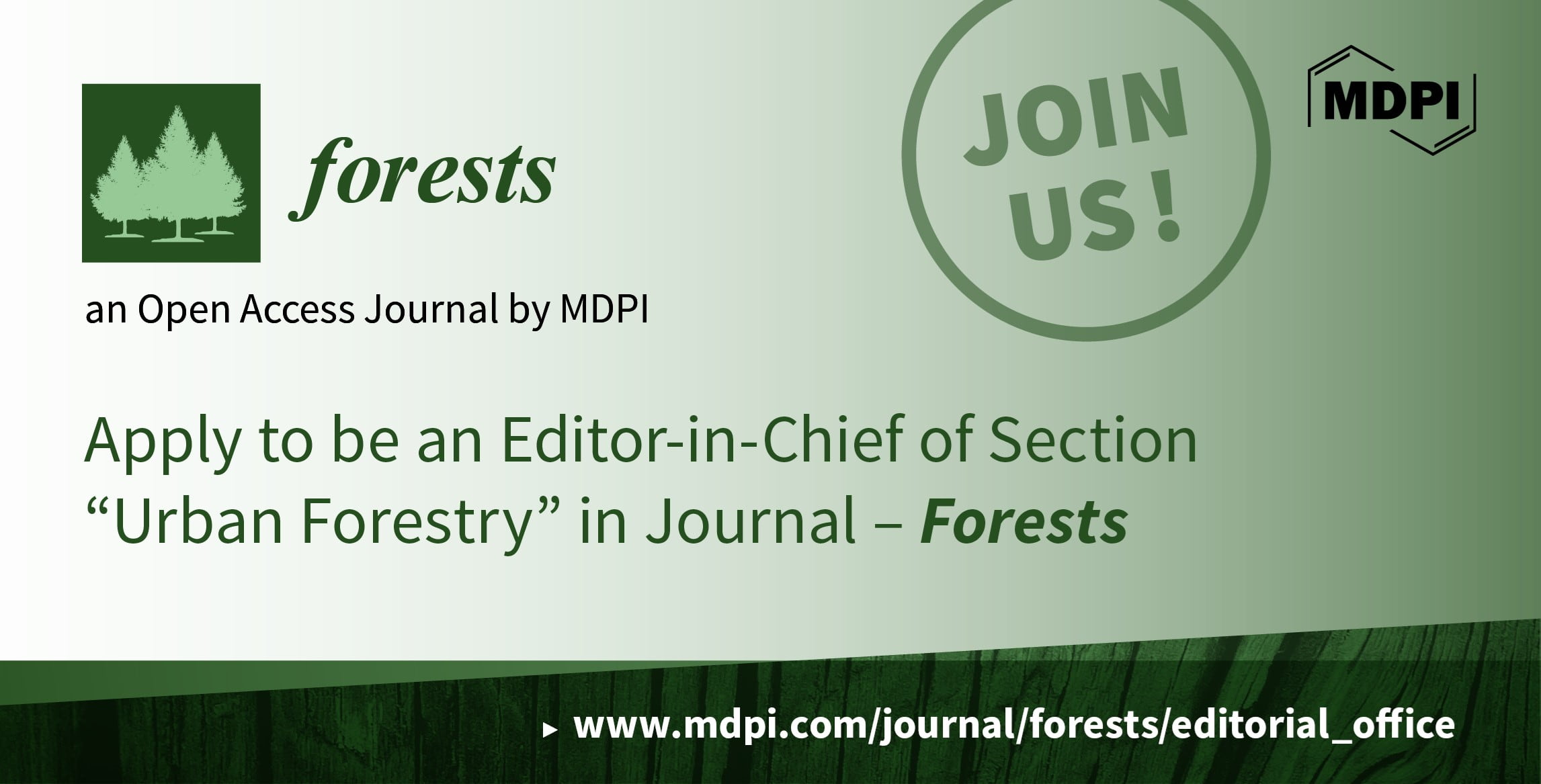
We are happy to announce the establishment of the new Section “Urban Forestry” in Forests (ISSN 1999-4907). The Section is currently recruiting an Editor-in-Chief.
The Section “Urban Forestry” aims to publish articles on original research based on green infrastructure at multiple scales, from the neighborhood, to metropolitan areas, to the regional landscape. The scope includes urban parks, street trees, landscaped boulevards, gardens, rivers and coastal promenades, greenways, river corridors, wetlands, nature preserves, shelter belts of trees, and working trees at former industrial sites. Further information about the Section may be found at the following link: https://www.mdpi.com/journal/forests/sections/urban_forestry.
The Section Editor-in-Chief is responsible for the following:
- Defining the aims and scope of the Section;
- Advising on the strategic development of the Section;
- Ensuring that the published content is of high quality;
- Nominating/inviting Guest Editors and optionally providing them with the authority to make final acceptance decisions about submitted articles;
- Nominating/inviting contributors;
- Nominating and leading the Section Editorial Board;
- Promoting the journal at scientific conferences or through other venues;
- Conducting preliminary checks of submissions and making the final decision as to whether a paper can be accepted for publication following peer review and author revisions (when it suits your schedule).
To apply for this position, please contact the Forests Editorial Office (forests@mdpi.com) with the following two files attached:
- A full academic CV;
- A short cover letter that details your interest and enthusiasm for the position.
Forests Editorial Office
9 March 2022
Forests 2022 Outstanding Reviewer Award—Open for Applications
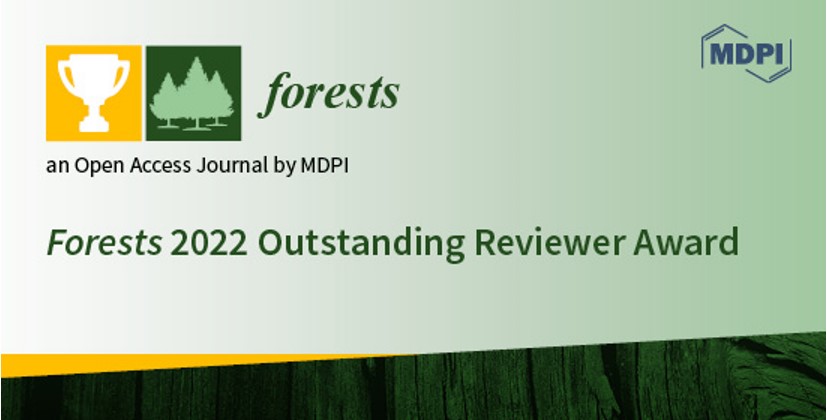
On behalf of the Section Editor-in-Chief, Prof. Dr. Timothy A. Martin, and in recognition of our reviewers’ outstanding contributions to Forests (ISSN: 1999-4907), we are pleased to announce an award for reviewers who have demonstrated excellent dedication, professionalism, and timeliness in their work.
Although anonymous peer-review is one of the cornerstones of publishing high-quality, comprehensive manuscripts devoted to the advancement of science and engineering research, it is also often one of the most underappreciated. The Forests editorial team is extremely grateful to reviewers for the time, energy, and dedication that they freely provide to support their peers.
Who is eligible for this award?
All of the reviewers for Forests in 2022 will be automatically included.
What will the winners receive?
There will be four awardees this year. Each of the winners will receive the following:
- CHF 500;
- A certificate;
- An opportunity to publish a paper free of charge in 2023.
When will the winners be announced?
The winners will be announced in February 2023 on the journal website.
How can I meet the eligibility criteria?
If you have not yet reviewed papers for the journal, but would like to do so, you can register as a reviewer at: https://susy.mdpi.com/volunteer/profile/edit.
The winners will be announced on 28 February 2023 on the journal’s website. For further details, please visit the following link: https://www.mdpi.com/journal/Forests/awards.
23 February 2022
Forests 2022 Travel Awards—Winners Announced
We are pleased to announce the two awardees for the 2022 Forests Travel Awards, Mr. Eko Setio Wibowo and Ms. Melissa Latella.
|
|
Mr. Eko Setio Wibowo is pursuing his Ph.D. at the Department of Wood Science and Technology at Kyungpook National University in the Republic of Korea. With his background and expertise in the field, we expect Mr. Wibowo will make significant contributions to advancing the scientific knowledge base of wood adhesives. His current research focuses on wood adhesives and the investigation and characterization of the unique properties of UF resins, such as crystalline formation. |
|
|
Ms. Melissa Latella is completing her Ph.D. at Politecnico di Torino, Italy. Ms. Latella has shown enormous talent for research, contributing to the development of new methodologies to combine field measurements, remote sensing data processing, and analytical and numerical modelling for ecomorphodynamic investigations. We look forward to her future achievements in this field. |
Each of the awardees will receive the following benefits:
- CHF 600 (Swiss francs);
- A certificate.
For more information about the Forests awards, please visit the following link: https://www.mdpi.com/journal/forests/awards.
27 January 2022
The 3rd International Electronic Conference on Forests (IECF2022), 15–31 October 2022—Open for Submission
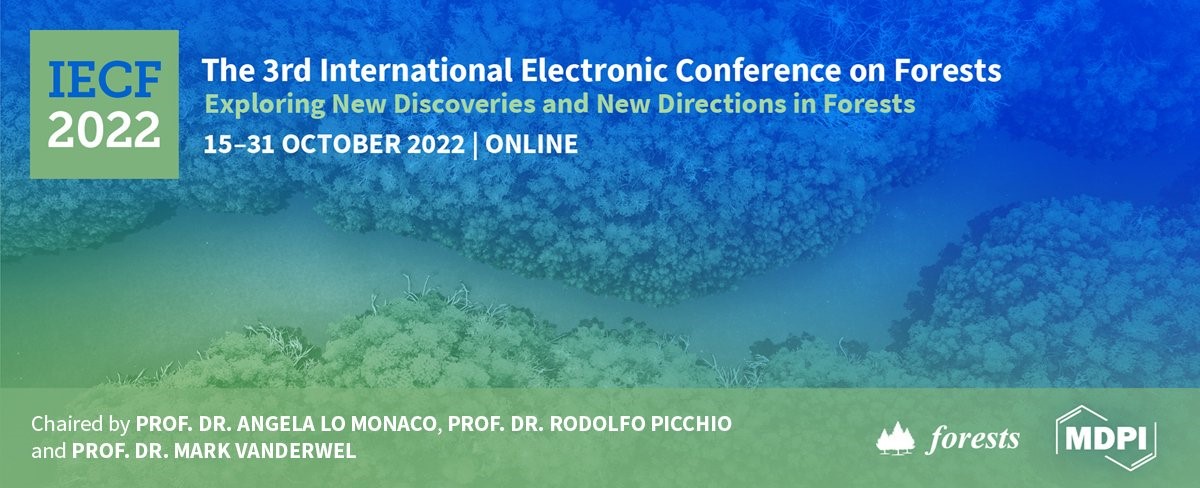
It is a pleasure to announce the 3rd International Electronic Conference on Forests (IECF2022)—Exploring New Discoveries and New Directions in Forests. The conference has been organized by the MDPI open-access journal Forests (impact factor 2.634) and will be held online from 15 to 31 October 2022.
The conference will provide an opportunity to share new ideas, technologies, and innovations in the broad area of forest sciences with the global community of scientists in the field of forestry.
Forests are crucial for the health of our planet, as also highlighted in the recent COP26 meeting, and all stakeholders, beginning with forest scientists, must focus their attention on the overall sustainability of the forestry sector. Alongside timber production, forests provide several fundamental ecosystem services, such as biodiversity conservation, soil protection, recreation, landscape, food supply, and carbon stocking, without forgetting the value in terms of aesthetics, education, spiritualism, art, and identity that forests possess. It is up to us to manage forests in the best possible way, allowing them to continue to carry out all of these crucial roles. The global pandemic has further increased, if possible, the importance of forests, highlighting their relevance to human health.
Taking into account the abovementioned factors, the role of forest research is fundamental, and only through sharing knowledge and competence among the different sectors of forest science will it be possible to achieve the ambitious but crucial goal of Sustainable Forest Management.
Therefore, we invite you to join us with your work and be part of this exciting experience.
The topics of the conference include:
- Forest Ecology and Management;
- Forest Ecophysiology and Genetics;
- Wood Science, Production Chains, Fuelwood and Trade;
- Forest Operations and Engineering;
- Forest and Urban Forest Sustainability;
- Forest Inventory, Quantitative Methods and Remote Sensing;
- Forest Wildfires and Other Natural Hazards;
- Forest Economics, Policy and Social Science;
- Forest Climate Regulation.
For the IECF2022, participation and attendance are FREE of charge. Hopefully, this means it will be an inclusive and sustainable conference due to the lack of taxes, travel costs, or other related expenditures. All you need is a computer and access to the Internet. This online event will bring together researchers from all over the world. However, this conference represents a commitment to a “physical” meeting, which we hope will be held in the very near future.
We warmly invite our colleagues from across the world to actively take part in this important and inspiring event by presenting their latest work.
Event Awards
To acknowledge the support of the conference’s esteemed authors and recognize their outstanding scientific accomplishments, we are pleased to launch the Best Paper Award and the Best Poster Award.
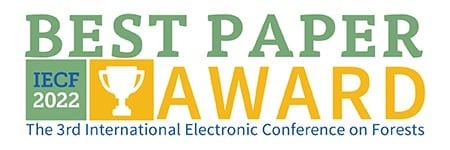
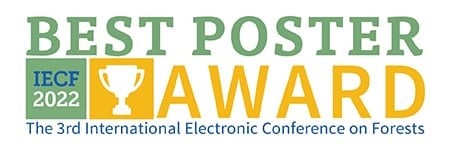
The winners will receive the following:
- 350 Swiss francs;
- A certificate;
- Opportunities to publish one paper in Forests with a 50% discount before 31 December 2023.
For more information on IECF, please visit the conference website (https://sciforum.net/event/IECF2022) or contact us by email (iecf2022@mdpi.com).
24 January 2022
Forests 2021 Outstanding Reviewer Award—Winners Announced
The Forests Editorial Board and editorial team would like to gratefully acknowledge the time and energy given by reviewers in assessing the manuscripts submitted to the journal. With their great support, many interesting papers of high quality have been published in Forests (ISSN: 1999-4907) and a quick peer review process is maintained. In order to acknowledge our reviewers, the editorial team has dedicated an award to reviewers in gratitude for their exceptional dedication, professionalism, and timeliness in reviewing manuscripts for Forests.
The following four referees will be awarded the Forests 2021 Outstanding Reviewer prize on the basis of the quantity, timeliness, and quality of their reviews in 2021. Each of them will receive CHF 500, a certificate, and a 50% discount on APC for their outstanding review work. We are very pleased to acknowledge the following referees:
|
|
|
|
|
|
|
|
|
|
|
|
If you are interested in reviewing articles for Forests, please register your contact details, including your ORCID identifier, institutional affiliation, a short CV, and 5–6 keywords in line with your expertise at the following link: https://susy.mdpi.com/volunteer_reviewer/step/1. The managing editors will send you a notification once approved.
Prof. Dr. Timothy A. Martin
Editor-in-Chief
19 January 2022
Forests 2021 Early Career Investigator Award—Application Deadline Extended
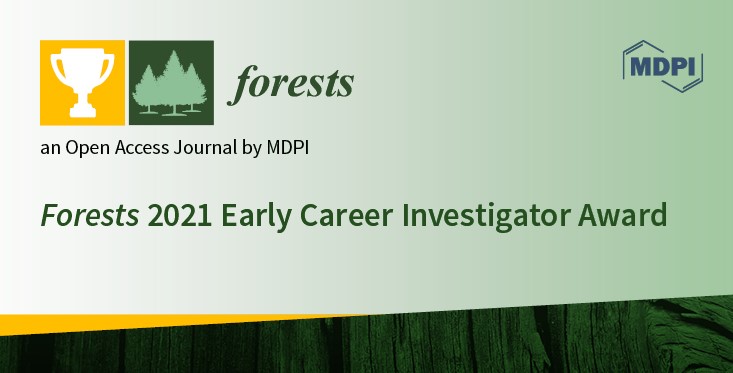
We are pleased to announce that Forests is now inviting nominations for the Forests 2021 Early Career Investigator Award. This prize will be awarded to two early career investigators in recognition of their excellence in the fields covered by Forests (ISSN: 1999-4907). All nominations will be assessed by an evaluation committee, which will be led by the Editor-in-Chief Prof. Dr. Timothy A. Martin.
The prize:
- An official certificate;
- CHF 1000 (Swiss francs);
- The option to publish two papers, after peer review, in Forests, with a 50% discount on the article processing charge.
Eligibility and requirements:
- Must have received a Ph.D. degree on, or after, 1 January 2017;
- Must have produced ground-breaking research and made a significant contribution to the advancement of Forests;
- Candidates must be nominated by senior scientists;
- Exemptions to the five years since Ph.D. criterion will be permitted for career interruptions, including caring responsibilities, disability, disaster management and recovery (excluding the COVID-19 pandemic), medical conditions, parental leave, and unemployment. If you would like to apply for an exemption, please submit a statement that clearly describes the nature and duration of the disruption. Please include the name of a senior researcher who can verify the statement.
List of documents for nomination:
- Detailed curriculum vitae, including an updated publication list and a list of the researcher’s own research grants;
- Scanned copy of the candidate’s doctorate certificate;
- Signed nomination letters from two established senior scientists;
- Statement of career interruption (if applicable).
Schedule:
- Nomination deadline: 31 August 2022;
- Winner announcement: 31 October 2022.
How to submit nominations?
- The nominations must be submitted online.
If you, or anyone you know, are qualified for the award, please apply at your earliest convenience. Please do not hesitate to contact us at forests@mdpi.com with any questions.
Find more details and to apply for the award, please visit the following website: https://www.mdpi.com/journal/forests/awards.
20 December 2021
Forests 2021 Best Ph.D. Thesis Award—Open for Applications
It is our pleasure to announce that we are now inviting applications for the Forests 2021 Best Ph.D. Thesis Award (award: CHF 500). This prize will be awarded to two Ph.D. students who are expecting to graduate or participate in a graduation thesis soon. If you are interested in applying for this award, please submit your application and relevant documents via the following link, by 31 May 2022: https://www.mdpi.com/journal/forests/awards/submit/1477.
The winners of this award will be announced on the journal website on 31 July 2022. For more details about Forests awards, please visit the following link: https://www.mdpi.com/journal/forests/awards.
Forests Editorial Office
6 December 2021
Forests | Invitation to Read Selected Papers from “Editor’s Choice” (Volume 12, Issues 7–9)
“Editor’s Choice” articles are papers that have been specially collated by our Editor-in-Chief. All have had a significant influence on the scientific community.
Recently, the Editorial Office selected another 10 papers from among the most downloaded publications in Volume 12, Issues 7–9. The following papers were selected:
|
“From Acid Rain to Low Precipitation: The Role Reversal of Norway Spruce, Silver Fir, and European Beech in a Selection Mountain Forest and Its Implications for Forest Management” https://www.mdpi.com/1999-4907/12/7/894 Enno Uhl et al. |
“Productivity of Eucalyptus pellita in Sumatra: Acacia mangium Legacy, Response to Phosphorus, and Site Variables for Guiding Management” https://www.mdpi.com/1999-4907/12/9/1186 Eko B. Hardiyanto et al. |
|
“Effects of Spatial Boreal Forest Harvesting Practices on Efficiency through a Benchmarking Approach in Eastern Canada” https://www.mdpi.com/1999-4907/12/8/1108 Daniela Mazo et al. |
“Chemical Signals in Tree Rings from Northern Patagonia as Indicators of Calbuco Volcano Eruptions since the 16th Century” https://www.mdpi.com/1999-4907/12/10/1305 Lizette J. Bertin et al. |
|
“How to Evaluate Downed Fine Woody Debris Including Logging Residues?” https://www.mdpi.com/1999-4907/12/7/881 Nathalie Korboulewsky et al. |
“Spatial Patterns of ‘Ōhi‘a Mortality Associated with Rapid ‘Ōhi‘a Death and Ungulate Presence” https://www.mdpi.com/1999-4907/12/8/1035 Ryan L. Perroy et al. |
|
“A Test of the Relationship between Sap Flow and Evapotranspiration, Normalized via Leaf Area, under Non-Limiting Soil Moisture” https://www.mdpi.com/1999-4907/12/7/875 Michael A. Forster |
“Enhancement of Wood Biological Resistance and Fire Retardant Properties after Laccase Assisted Enzymatic Grafting” https://www.mdpi.com/1999-4907/12/8/1102 Cristian Bolaño et al. |
|
“Assessing Forest Structural and Topographic Effects on Habitat Productivity for the Endangered Apennine Brown Bear” https://www.mdpi.com/1999-4907/12/7/916 Angela Anna Rositi et al. |
“Analysis of Olive Grove Destruction by Xylella fastidiosa Bacterium on the Land Surface Temperature in Salento Detected Using Satellite Images” https://www.mdpi.com/1999-4907/12/9/1266 Teodoro Semeraro et al. |
We would like to take this opportunity to thank all of the research groups behind these exceptional papers for their contribution to Forests (ISSN: 1999-4907). We would be very appreciative if you shared these selected papers among your colleagues or through your network.
If you want to learn more about the contributions published in “Editor’s Choice”, please follow this link: https://www.mdpi.com/journal/forests/editors_choice.
22 November 2021
722 MDPI Editorial Board Members Receiving "2021 Highly Cited Researchers" Distinction
It is our great honor to congratulate the Editorial Board Members and Editors in MDPI's journals who have been distinguished as 2021 Highly Cited Researchers by Clarivate, according to Web of Science data. We herewith express our gratitude for the immense impact the named researchers continue to make on scientific progress and on our journals' development.
Clarivate's annual list of Highly Cited ResearchersTM identifies the most highly cited scientists for the past decade. Their impactful papers are among the top 1 per cent in the citation distribution of one or more of 22 fields analyzed in the "Essential Science Indicators", distinguishing them as hugely influential among their peers.
| Abate, Antonio Abatzoglou, John T. Abbaszadeh, Mostafa Acharya, U. Rajendra Acharya, Viral V. Agarwal, Ravi P. Ahn, Myung-Ju Airoldi, Laura Ali, Imran Allakhverdiev, Suleyman I. Aluko, Rotimi E. Anasori, Babak Andersson, Dan I. Andes, David Anker, Stefan D. Apergis, Nicholas Ariga, Katsuhiko Arqub, Omar Abu Aschner, Michael Assaraf, Yehuda G. Astruc, Didier Atala, Anthony Atanasov, Atanas G. Atangana, Abdon Bahram, Mohammad Bakris, George L. Balandin, Alexander A. Baleanu, Dumitru Balsamo, Gianpaolo Bando, Yoshio Banks, William A. Bansal-Travers, Maansi Barba, Francisco J. Barros, Lillian Basit, Abdul W. Baskonus, Haci Mehmet Bassetti, Matteo Battino, Maurizio Bell, Jordana T. Bellomo, Nicola Benediktsson, Jon Atli Benelli, Giovanni Benjakul, Soottawat Bhatnagar, Amit Biddle, Stuart J. H. Biondi, Antonio Biondi-Zoccai, Giuseppe Bjarnsholt, Thomas Blaabjerg, Frede Blaschke, Thomas Blay, Jean-Yves Blumwald, Eduardo Blunt, John W. Boffetta, Paolo Bogers, Marcel Bonomo, Robert A. Bowman, David M.J.S. Boyer, Cyrille Brestic, Marian Brevik, Eric C. Buhalis, Dimitrios Burdick, Jason A. Byrd, John C. Cabeza, Luisa F. Cai, Xingjuan Cai, Jianchao Calhoun, Vince D. Calin, George Cao, Jinde Cao, Guozhong Carvalho, Andre F. Castellanos-Gomez, Andres Cerqueira, Miguel Ângelo Parente Ribeiro Chang, Jo-Shu Chang, Chih-Hao Chastin, Sebastien Chau, Kwok-wing Chemat, Farid Chen, Xiaobo Chen, YangQuan Chen, Jianmin Chen, Chaoji Chen, Min Chen, Qi Chen, Jun Chen, Xi Chen, Peng Chen, Yulin Chen, Bo Chen, Chen Chen, Zhi-Gang Chen, Wei-Hsin Chen, Gang Chen, Yongsheng Chen, Xiang Chen, Yimin Chen, Runsheng Chen, Lidong Chen, Shaowei Chen, Qian Chen, Yu Chen, Shuangming Chiclana, Francisco Cho, Sun Young Choi, Wonyong Chowdhary, Anuradha Choyke, Peter L. Cichocki, Andrzej Corella, Dolores Corma, Avelino Cortes, Javier Cortes, Jorge Costanza, Robert Crommie, Michael F. Cui, Yi Cui, Haiying Cui, Qinghua Cummings, Kenneth Michael Dai, Shifeng Dai, Sheng Daiber, Andreas Davis, Steven J. Dawson, Ted M. de la Fuente-Nunez, Cesar Decker, Eric Andrew Dekel, Avishai Demaria, Marco Deng, Yong Deng, Xiangzheng DePinho, Ronald A. Desneux, Nicolas Dimopoulos, Meletios-Athanasios Ding, Aijun Dionysiou, Dionysios D. Dokmeci, Mehmet Remzi Dolgui, Alexandre Dong, Fan Dou, Shi Xue Dou, Letian Du, Qian Du, Bo Dube, Shanta Rishi Dufresne, Alain Dummer, Reinhard Dupont, Didier Edwards, David Elaissari, Abdelhamid Elhoseny, Mohamed Ellahi, Rahmat Ellis, Erle C. ElMasry, Gamal Esteller, Manel Estévez, Mario Fabbro, Doriano Facchetti, Antonio Fan, Zhanxi Fang, Chuanglin Fasano, Alessio Fečkan, Michal Felser, Claudia Feng, Liangzhu Fensholt, Rasmus Ferdinandy, Péter Fernandez-Lafuente, Roberto Ferreira, Isabel C. F. R. Filippi, Massimo Fisher, Helen Fortino, Giancarlo Fosso Wamba, Samuel Franceschi, Claudio Fujita, Hamido Fujita, Masayuki Gai, Francesco Gaisford, Simon Galanakis, Charis M. Galluzzi, Lorenzo Galvano, Fabio Gan, Ren-You Gan, Lihua Gandomi, Amir H. Gao, Bin Gao, Feng Gao, Minrui Gao, Huijun Gao, Wei Gao, Huile Garbe, Claus Garcia, Hermenegildo Gasbarrini, Antonio Gasco, Laura Gautret, Philippe Geng, Yong Gerdts, Gunnar Geschwind, Daniel H. Ghadimi, Noradin Ghaffari, Roozbeh Ghamisi, Pedram Giampieri, Francesca Glick, Bernard R. Gnant, Michael Goel, Ajay Gogotsi, Yury Goldewijk, Kees Klein Gong, Jinlong Gong, Yongji Govindan, Kannan Granato, Daniel Grancini, Giulia Green, Douglas R. Grosso, Giuseppe Gu, Ke Guan, Cao Guastella, Adam J. Guerrero, Josep M. Gui, Guan Guizani, Mohsen Guo, Zaiping Gupta, Rangan Gutzmer, Ralf Haase, Dagmar Habibi-Yangjeh, Aziz Hagemann, Stefan Hagger, Martin Hamblin, Michael R. Hammoudeh, Shawkat Han, Heesup Hanes, Justin Harrison, Roy M. Hartung, Hans-Peter Hasanuzzaman, Mirza He, Jr-Hau He, Hongwen He, Jiaqing He, Debiao Henseler, Jörg Herrera, Francisco Herrera-Viedma, Enrique Hetz, Claudio Ho Kim, Jung Holmes, Elaine Hossain, Ekram Hsueh, Po-Ren Hu, Xiaosong Hu, Wenbin Huang, Jianping Huang, Hongwei Huang, Yu Huang, Jianying Huang, Peng Huang, Baibiao Huang, Shaoming Hubacek, Klaus |
Iqbal, Hafiz M. N. |
Saad, Fred |
The full list of 2021 Highly Cited Researchers can be accessed at the following webpage in the Web of ScienceTM https://recognition.webofscience.com/awards/highly-cited/2021/.
--- Highly Cited Researchers (HCR) is a Clarivate product.
16 November 2021
Topical Advisory Panel Established to Support Editorial Board
Academic editors play a crucial role in leading our journals and ensuring that each article undergoes a robust and timely peer-review. With the launch of Topics this year and addition of Topic Editors to our family of academic editors, we decided it would be a good time to restructure our academic boards, thus providing more clarity and support for each role. MDPI is pleased to announce the launch of a new position—Topical Advisory Panel Member, that will replace the previous position of Topics Board Member. The Topical Advisory Panel will be comprised of early career researchers eager to gain experience in editorial work.
The main responsibility of the new members of the Topical Advisory Panel is to regularly provide support to Guest Editors, Topic Editors, and Section Board Members. The responsibilities of the Topical Advisory Panel are available here: https://www.mdpi.com/editors.
Each year, the members’ performances are evaluated, and outstanding members are promoted to the Editorial Board by the Editor-in-Chief.
To qualify as a Topical Advisory Panel Member, applicants must:
- Have expertise and experience in the field related to the journal;
- Have received a Ph.D. in the last 10 years, approximately;
- Have at least 6-8 published papers in the last 5 years as first author or corresponding author;
- Currently hold an independent research position in academia or a government institute.
If you are interested in this role, please contact the editorial office by email.
We look forward to hearing from you soon.
25 October 2021
Open Access Week 2021 | It Matters How We Open Knowledge: Building Structural Equity, 25–31 October

Founded in 1996, MDPI was one of the first fully Open Access publisher. Over 25 years MDPI has grown to become the largest Open Access publisher globally, publishing over 160,000 articles across more than 350 journals in 2020. At the core, MDPI was founded in response to a pressing need of fast publication and inclusion. The scholar was set at the centre of the publication process for the first time. Acting as a service provider, rather than a product provider, MDPI exists to help scientists achive their objective to disseminate research results. At MDPI, we believe scientists deserve a better service from the publishing world.
The International Open Access Week (Open Access Week), founded by the SPARC (the Scholarly Publishing and Academic Resources Coalition) Alliance and student partners in 2008, has been successfully running for 13 years. As an advocate and pioneer of open access publishing, MDPI actively responds to the call of International Open Access Week. This year’s theme of “It Matters How We Open Knowledge: Building Structural Equity” highlights the Recommendation’s call for equitable participation from all authors and readers.
For the last 25 years, MDPI has been committed to disseminating open research. Here is a video showing MDPI’s Commitment to Equity, Inclusion and Diversity for More than 25 Years.
International Open Access Week is an important opportunity to catalyze new conversations, create connections across and between communities that can facilitate this co-design, and advance progress in the building of more equitable foundations for opening knowledge—discussions and actions that need to be continued, year in and year out. MDPI has always aimed to provide professional and efficient publishing services to scholars around the world.
Our mission is to make scientific research accessible to everyone; this year, we interview and hold discussions with open science ambassadors on how to build an equal and inclusive environment for open science. Academic editors help us collaborate with more institutions to advocate for open access ideas.
Besides this, our scientific community is a key driver of our success and MDPI’s remarkable growth. Despite the pandemic, we have prepared online conferences and workshops to gather scholars from different communities.
The Basel Sustainable Publishing online forum provides an equal opportunity for stakeholders and researchers from multi-cultural environments to exchange ideas and eliminate barriers to participation.
Conference date: 25 October 2021, online
Conference website: https://bspf2021.sciforum.net/
Main topics: MDPI discusses the current dilemma of open access science from various perspectives such as governments, libraries, and publishers, and related measures on how to change the status quo of discrimination from a global perspective.
We aim to support equality, inclusion, diversity, and accessibility in scholarly communications. We collaborate with universities and key laboratories and have scholarly communications with researchers, teachers, and students on open access workshops.

- 25 October 2021
Energies journal and Institute of Mechanics, Chinese Academy of Sciences
- 28 October 2021
Machines journal and State Key Laboratory of Traction Power, Southwest Jiaotong University
- 29 October 2021
Processes journal and Beijing Institute of Technology
- 29 October 2021
Coatings journal and Wuhan University of Technology
MDPI is committed to providing open access and high-quality publishing services for scholars and promoting rapid dissemination of academic achievements. We hope to promote the practices and policies of open access publishing and diversify the dissemination of academic achievements.
21 October 2021
Prof. Dr. Rodolfo Picchio Appointed Editor-in-Chief of Section “Forest Operations and Engineering” in Forests
We are pleased to announce the appointment of Prof. Dr. Rodolfo Picchio as Editor-in-Chief of the “Forest Operations and Engineering” Section of Forests (ISSN 1999-4907), as of September 2021.
Prof. Dr. Rodolfo Picchio obtained a Forest Sciences degree and a Ph.D. in Forest Mechanization at Tuscia University, Viterbo. He began his career in 2004, working as a university researcher until 2014. Since then, he has been an Associate Professor in Forest Logging and Wood Technologies and led the Forest Utilization Research Work Group at Tuscia University (DAFNE). From 2015 to 2017, he served as the president of Conservation and Restoration of the Forest Environment and Soil Defense, a Master’s program at Tuscia University (DAFNE). Since 2018, he has served on the board of Tuscia University’s Ph.D. programs, including Science and Technologies for Forest and Environmental Management (2005–2013) and Engineering for Energy and Environment. His fields of expertise include forest operation engineering, forest logging, forest mechanization, precision forestry, wood technologies, and the environmental impacts of wood harvesting operations. He is also on the editorial boards of international scientific journals covering forestry and forest engineering subjects. He continues to be a participant in cost, life, horizon, and international cooperation projects, coordinating several EAFRD-funded rural development programs (RDPs). Furthermore, he has co-authored more than 100 peer-reviewed papers in international journals indexed by WoS and Scopus, 30 technical books, and over 200 papers in technical journals. He is also a member of the scientific Italian Society of Silviculture and Forest Ecology. At Tuscia University, he teaches a variety of modules, including Forest Operations, Planning and Management of Forest Yards, Reduced Impact Logging, and Research Application on Forest Logging.
The following is a short Q&A with Prof. Dr. Rodolfo Picchio:
- What appealed to you about the journal that made you want to take the role as its Section Editor-in-Chief?
The Forests journal in these recent years has achieved significant levels of interest among forestry and environmental scientists, as demonstrated by the high bibliometric indices obtained. However, there was a gap related to the important Section "Forest Operations and Engineering (FOsE)". As an expert in the field, I noticed how it was necessary to provide specific skills on FOsE within the Editorial Board in order to improve the level of research published directly from the journal.
For these reasons, I accepted the opportunity to serve as an Editor-in-Chief. This is a great honor for me and, together with our outstanding Editorial Board members, I am looking forward to shaping the future of this journal to cater effectively and efficiently to our science community.
- What is your vision for the journal?
To make Forests a leading open access journal platform for the publication of high-quality and high-impact research papers from all areas of forest sciences.
- What does the future of this field of research look like?
The field of forest sciences is highly interdisciplinary and complex. Big data, artificial intelligence, and precision forestry will be the leading power tools to reshape the field of forest sciences in the coming years. However, researchers are at the forefront of addressing sustainability, management, as well as the conservation of forests. These objectives are not only achievable with new technologies but with the widespread transfer of knowledge on a global level.
- What do you think of the development of open access in the publishing field?
Open access has permitted or is better at permitting, the widespread transfer of knowledge on a global level.
The editorial team warmly welcomes Prof. Dr. Rodolfo Picchio as Editor-in-Chief of the “Forest Operations and Engineering” Section and looks forward to his contribution to the continued success of Forests.
For further information on the journal sections, please click here.
27 September 2021
Recruiting Topical Advisory Panel Members for Forests
Forests (ISSN 1999-4907) is launching a Topical Advisory Panel Member position. This role primarily involves the provision of regular support to Guest Editors, Topic Editors, and Section Board Members. A more comprehensive list of the Topical Advisory Panel’s responsibilities is available here: https://www.mdpi.com/editors.
Forests, a peer-reviewed, open access journal of forestry and forest ecology, is published monthly online by MDPI. The distinguished editorial board and refereeing process ensures the highest degree of scientific rigor and review of all published articles, typically consisting of original research articles and timely reviews. We aim to promote the recognition of Forests as one of the foremost publication outlets for its high-quality, cutting-edge research in this broad and diverse field, all available to readers with unlimited free access. More information on the journal can be found at https://www.mdpi.com/journal/forests/about.
Each year, the performance of each member will be evaluated. Outstanding members will be promoted to the Editorial Board by the Editor-in-Chief.
To qualify as a Topical Advisory Panel Member, it is required that applicants:
- Have expertise and experience in a field related to the journal;
- Have received a Ph.D. in the last 10 years, approximately;
- Have at least 6–8 published papers in the last 5 years as a first author or corresponding author;
- Currently hold an independent research position in academia or a government institute.
If you are interested in this role or have any recommendations, please feel free to contact us (forests@mdpi.com).
We look forward to hearing from you soon.
23 September 2021
2020 MDPI Top Reviewer Award—Winners Announced
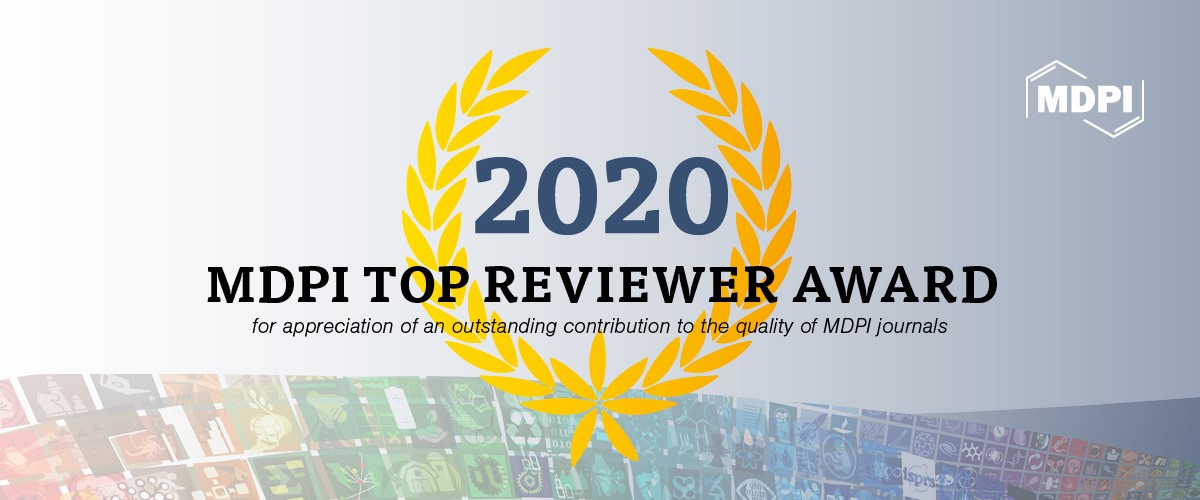
Rigorous peer-review is the cornerstone of high-quality academic publishing. Over 369,916 scholars served as reviewers for MDPI journals in 2020. We are extremely appreciative of all those who made a contribution to the editorial process in this capacity. At the beginning of every year, journal editorial offices publish a list of all reviewers’ names to express our gratitude. In addition, this year, the MDPI Top Reviewer Award was announced, to recognize the very best reviewers for their expertise and dedication, and their high-quality, and timely review reports. We are pleased to announce the following winners of the 2020 MDPI Top Reviewer Award:
- Adriana Burlea-Schiopoiu;
- Alban Kuriqi;
- Álvaro González-Vila;
- Alessandro Alaimo;
- Alexey Beskopylny;
- Alexander Yu Churyumov;
- Alberto Fernández-Isabel;
- Andrea Mastinu;
- Antonios N. Papadopoulos;
- Anton Rassõlkin;
- Antonio Humberto Hamad Minervino;
- Arkadiusz Matwijczuk;
- Artur Słomka;
- Baojie He;
- Bartłomiej Potaniec;
- Bojan Đurin;
- Camilo Arturo Rodriguez Diaz;
- Carmelo Maria Musarella;
- Chiachung Chen;
- Chiman Kwan;
- Cristian Busu;
- Danil Pimenov;
- Dan-Cristian Dabija;
- Delfín Ortega-Sánchez;
- Demetrio Antonio Zema;
- Denis Butusov;
- Elena Lucchi;
- Gaurab Dutta;
- Livia Anastasiu;
- M. R. Safaei.
For more information about how to become a reviewer of MDPI journals, please see: www.mdpi.com/reviewers.
22 September 2021
MDPI Joins SDG Publishers Compact

UN's 17 Sustainable Development Goals (SDGs) are the blueprint to achieve a better and more sustainable future for all. In 2020 the SDG Publishers Compact was launched, aimed to inspire publishers and accelerate progress to achieve the 17 goals by 2030. Members of the programme are committed to support the publication of materials that will promote and inspire actions towards SDGs.
MDPI is an eager advocate of SDGs and has already been supporting the programme by creating Special Issues and publishing a series of books on SDGs prior to joining the Compact in 2021. MDPI's Sustainability Foundation initiated the World Sustainability Awards in 2016. We fully support UN's goals to promote sustainable actions that make the world a better place for all and, as part of its commitment, we will focus our actions on SDG10: Reduced Inequalities whilst promoting all 17 SDGs. For more details, please visit the programme’s website: https://www.un.org/sustainabledevelopment/sdg-publishers-compact/.
Joining this initiative was a unanimous decision. MDPI has in its core values the dissemination of science for all, breaking the wall between research access and under-represented members of the scientific community and the general population. To support this initiative further and continue to support under-represented scientists, MDPI will take a series of actions that will be announced once ready.
The first action MDPI takes is to nominate Dr. Liliane Auwerter as the coordinator of the programme. Dr. Auwerter studied Environmental Process Technology (UTFPR, Brazil), obtained her MSc degree in Water and Environmental Engineering (University of Surrey, UK) and in 2020 completed her PhD in self-healing low-friction materials for water transport (Imperial College London, UK), always focusing on diverse scientific projects that would potentially bring sustainability to industrial processes. As a student in Brazil, she engaged in volunteering activities focused on environmental education and took part in the Millennial Development Goals meetings held at the university.
For more information, please contact:
Dr. Liliane Auwerter
Scientific Officer
liliane.auwerter@mdpi.com
18 September 2021
Forests | New Section “Forest Operations and Engineering” Established
We are pleased to announce the launch of a new Section, “Forest Operations and Engineering”, to provide a specific venue for this field of research in Forests (ISSN: 1999-4907), led by Prof. Dr. Rodolfo Picchio (Department of Agricultural and Forest Sciences, University of Tuscia, Italy). One of the main aims of this section is to promote knowledge for future relations between forest logging, environmental protection and management of forests, in order to provide timber at reasonable costs, and other ecosystem services, such as recreation and conservation, as well as biodiversity. Forest operations are of particular interest, but delicate issues must be analyzed and evaluated in order to create real sustainability.
Authors are invited to contribute original papers covering the following subjects, including, but not limited to:
- Sustainability in forest operations and engineering;
- Impact assessment due to forest logging and management;
- Innovative forest harvesting systems, technology, and techniques;
- The role and potential of precision forestry (robotics, LIDAR, etc.) in improving management;
- Sustainability of wood supply chains;
- Environmentally friendly forest operations and reduced impact logging (RIL);
- How can forest operations be adjusted to preserve the levels of biodiversity necessary to keep forests healthy and productive?
We are now accepting submissions for this Section (https://www.mdpi.com/journal/forests/sections/forest_operations_engineering). Work may be directly submitted via the following link: https://susy.mdpi.com/user/manuscripts/upload?journal=forests.
Submissions before 31 December 2021 will receive a 10% discount on the article processing charge. Alternatively, if you are an active researcher in one of the aforementioned fields and are interested in joining the Editorial Board, please do not hesitate to get in touch (forests@mdpi.com).
Please feel free to contact us with any questions. We look forward to collaborating with you.
Forests Editorial Office
15 September 2021
Forests 2021 Early Career Investigator Award—Open for Applications
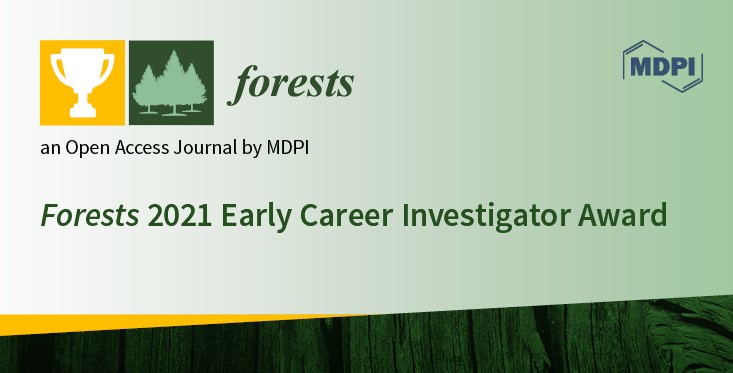
We are pleased to announce that Forests is now inviting nominations for the “Forests 2021 Early Career Investigator Award”. This prize will be given to two early career investigators in recognition of their excellence in the field covered by Forests. All nominations will be assessed by an Evaluation Committee led by the Editor-in-Chief, Prof. Dr. Timothy A. Martin.
The Prize:
- An official certificate;
- 1000 CHF (Swiss francs);
- Option to publish two papers, after peer review, in Forests with a 50% discount on the article processing charge.
Eligibility and Requirements:
- Must have received a Ph.D. degree on, or after 1 January, 2017;
- Must have produced ground-breaking research and made a significant contribution to the advancement of Forests;
- Candidates must be nominated by senior scientists;
- Exemptions to the five years since Ph.D. criterion will be allowed for career interruptions, including caring responsibilities, disability, disaster management and recovery (excluding the COVID-19 pandemic), medical conditions, parental leave and unemployment. If you would like to apply for an exemption, please submit a statement clearly describing the details of the nature and duration of the disruption. Please include the name of a senior researcher who can verify the statement.
List of Documents for Nomination:
- Detailed curriculum vitae, including an updated publication list and a list of the researcher’s own research grants;
- Scanned copy of your doctorate certificate;
- Signed nomination letters from two established senior scientists;
- Statement of career interruption (if applicable).
Schedule:
- Nomination deadline: 31 December 2021;
- Winner announcement: 28 February 2022.
How to Submit Nominations?
- The nominations must be submitted online.
Please feel free to contact us at forests@mdpi.com with any questions.
2 September 2021
Forests 2019–2020 Best Cover Awards—Winners Announced
We are pleased to announce the winners of the “Forests 2019–2020 Best Cover Awards”. In total, 24 cover stories published from 2019 to 2020 in Forests were considered for these awards.
The winners are as follows:
- “Non-Destructive Evaluation Techniques and What They Tell Us about Wood Property Variation”
Forests, Volume 10, Issue 9 (September 2019)
(doi: 10.3390/f10090728).
- “Identifying European Old-Growth Forests using Remote Sensing: A Study in the Ukrainian Carpathians”
Forests, Volume 10, Issue 2 (February 2019)
(doi: 10.3390/f10020127).
- “Variation in Deadwood Microsites in Areas Designated under the Habitats Directive (Natura 2000)”
Forests, Volume 11, Issue 5 (May 2020)
(doi: 10.3390/f11050486).
- “Vegetative and Edaphic Responses in a Northern Mixed Conifer Forest Three Decades after Harvest and Fire: Implications for Managing Regeneration and Carbon and Nitrogen Pools”
Forests, Volume 11, Issue 10 (October 2020)
(doi: 10.3390/f11101040).
- “DBH Distributions in America’s Urban Forests—An Overview of Structural Diversity”
Forests, Volume 11, Issue 2 (February 2020)
(doi: 10.3390/f11020135).
The winners of the “Forests 2019–2020 Best Cover Awards” will receive CHF 200 each.
Congratulations to the winners for their excellent research!
Forests Editorial Office
17 August 2021
Meet Us Online at the 2021 SAF National Convention | 3–6 November 2021

MDPI will support, and be attend, the 2021 SAF National Convention as a silver-level sponsor. The conference will be held in virtual form and will take place from the 3rd to the 6th of November, 2021.
The 2021 SAF Convention will highlight the critical role played by forests in providing life-giving ecosystem services and serving as green infrastructure to our communities. The conference will be offering a variety of educational, networking, and business development opportunities while reigniting fan favorites like the SAFter Party; People, Policy, & Popcorn; and much more!
The following MDPI journals will be represented:
- Forests (https://www.mdpi.com/journal/forests);
- Remote Sensing (https://www.mdpi.com/journal/remotesensing).
If you are attending this conference, please feel free to start an online conversation with us. Our delegates look forward to meeting you in person and answering any questions you may have. For more information about the conference and our virtual booth, please visit: https://safstage.evareg.com/exhibitor/mdpi-forests.
17 August 2021
Forests | Call for Special Issue Proposal

Forests (ISSN 1999-4907) is an international and cross-disciplinary scholarly journal of forestry and forest ecology. It has been covered by leading indexing services, including the SCIE (Web of Science), Scopus, Ei Compendex, etc. The 2020 Impact Factor was 2.633. The aims and scope of the journal can be found at https://www.mdpi.com/journal/forests/about.
The Forests editorial team is pleased to announce this open call for Special Issue proposals, which offers a group of authors the opportunity to work on an interconnected set of papers on an innovative topic. We are soliciting high-quality proposals that will be evaluated in a continuous selection process throughout the year.
Proposals for a Special Issue should have a well-articulated unifying topic and reflect on an international level, the best work in a particular research area (either an established or an important emerging area), in which future investigations may be propelled by the publication of a set of novel research papers. Hence, an international group of Guest Editors and a few high-quality planned papers are always encouraged when it comes to proposals.
Proposals for Special Issues must be sent to the Editorial Office (forests@mdpi.com) or be sent via the website: https://www.mdpi.com/journalproposal/sendproposalspecialissue/forests.
Information to be provided in a proposal:
- A 200–400-word summary that clearly states the significance, novelty, technical advancement, and adherence to the scope of the journal of the proposed topic;
- 6–10 keywords on the topic;
- A brief resume of the proposed Guest Editors, together with their information (title, name, email, affiliation, personal website, keywords of interests);
- A proposed submission deadline (a Special Issue will usually be open for submissions for 6–8 months);
- A list of at least 20 potential contributors or a list of 8 planned papers.
As a Guest Editor, you would be responsible for:
- Inviting papers from your peers to be published in this Special Issue and taking advantage of the high publicity of the open access, rapid, high-quality peer-review process, and immediate publication after acceptance;
- Checking the suitability of abstracts/manuscripts submitted to the Special Issue;
- Making pre-check decisions regarding whether to send a new submission to peer review;
- Making final decisions regarding whether to accept or reject a paper based on peer-review outcomes.
As a Guest Editor, you would have the following privileges:
- A recognition certificate as a Guest Editor of Forests;
- Publishing one paper free of charge in your Special Issue;
- Inviting high-quality papers to be published in your Special Issue free of charge or with certain discounts;
- If the Special Issue is successful, with at least 5 accepted manuscripts after full peer review, we can make it into a printed book.
Editorial Office’s role:
The Editorial Office will set up the Special Issue website, arrange promotional material, assist with invitations to contribute papers, and take care of the administrative tasks associated with peer review, including inviting reviewers, collating reports, contacting authors, and arranging professional production before publication.
Please do not hesitate to contact the Editorial Office (forests@mdpi.com) if you are interested and would like further details and clarifications.
We look forward to receiving your proposals.
Forests Editorial Office
6 August 2021
Forests |Invitation to Read Selected Papers from “Editor’s Choice” (Volume 12, Issues 4–6)
Since it was established, “Editor’s Choice” has always been welcomed by researchers. Our Editors-in-Chief have selected many papers to display here. All of them have proven to be particularly interesting to authors or otherwise important to the field.
Recently, the Editorial Office selected the following papers among the most downloaded publications from Volume 12, Issues 4–6.
|
Developmental Dynamics of Gilbertiodendron dewevrei (Fabaceae) Drive Forest Structure and Biomass in the Eastern Congo Basin https://www.mdpi.com/1999-4907/12/6/738 Henry B. Glick et al. |
Rapid Detection of Pine Pathogens Lecanosticta acicola, Dothistroma pini and D. septosporum on Needles by Probe-Based LAMP Assays https://www.mdpi.com/1999-4907/12/4/479 Chiara Aglietti et al. |
|
Simulating the Effects of Intensifying Silviculture on Desired Species Yields across a Broad Environmental Gradient https://www.mdpi.com/1999-4907/12/6/755 Eric B. Searle et al. |
sUAS for 3D Tree Surveying: Comparative Experiments on a Closed-Canopy Earthen Dam https://www.mdpi.com/1999-4907/12/6/659 Cuizhen Wang et al. |
|
Genetic Diversity and Population Genetic Structure of Ancient Platycladus orientalis L. (Cupressaceae) in the Middle Reaches of the Yellow River by Chloroplast Microsatellite Markers https://www.mdpi.com/1999-4907/12/5/592 Bei Cui et al. |
A STELLA-Based Model to Simultaneously Predict Hydrological Processes, N Uptake and Biomass Production in a Eucalyptus Plantation https://www.mdpi.com/1999-4907/12/5/515 Ying Ouyang et al. |
|
Genome-Wide Characterization of Dirigent Proteins in Populus: Gene Expression Variation and Expression Pattern in Response to Marssonina brunnea and Phytohormones https://www.mdpi.com/1999-4907/12/4/507 Lingling Li et al. |
Crown Structure Explains the Discrepancy in Leaf Phenology Metrics Derived from Ground- and UAV-Based Observations in a Japanese Cool Temperate Deciduous Forest https://www.mdpi.com/1999-4907/12/4/425 Noviana Budianti et al. |
|
Effect of Temperature and Exposure Time on Cambium Cell Viability In Vitro for Eucalyptus Species https://www.mdpi.com/1999-4907/12/4/445 Yasika Medhavi Subasinghe Achchige et al. |
Investigating the Role of Restoration Plantings in Introducing Disease—A Case Study Using Phytophthora https://www.mdpi.com/1999-4907/12/6/764 Flora Donald et al. |
We would like to take this opportunity to thank all the research groups behind these exceptional papers for their contributions to Forests. We would greatly appreciate it if you would circulate this document among your colleagues or through your network.
If you want to learn more about the contributions published in “Editor’s Choice”, please read here: (https://www.mdpi.com/journal/forests/editors_choice).
3 August 2021
Announcement on Japanese Consumption Tax (JCT)
This serves to announce to our valued authors based in Japan that value-added tax, or consumption tax will now be imposed on article processing fees and other service fees for all papers submitted, or resubmitted (assigned new paper IDs), effective from 15 August 2021. The change is in accordance with the Japanese "Act for Partial Revision of the Income Tax Act and Other Acts" (Act No. 9 of 2015), which includes a revision of consumption taxation on cross-border supplies of services such as digital content distribution.
For additional information from the National Tax Agency please see here ("Cross-border supplies of electronic services").
Contact: Setsuko Nishihara, MDPI Tokyo
30 June 2021
2020 Impact Factors - Released
The 2020 citation metrics have been officially released in the Journal Citation Reports (JCR)!
We are pleased to announce that 85 MDPI journals are included, of which:
- 10 journals received their first impact factor
- 96% of journals increased their impact factor from 2019
- 32 journals (38%) ranked among the top 25% of journals, in at least one category
| Journal | Impact Factor | Rank | Category |
| Cancers | 6.639 | Q1 | • Oncology |
| Cells | 6.600 | Q2 | • Cell Biology |
| Pharmaceutics | 6.321 | Q1 | • Pharmacology & Pharmacy |
| Antioxidants | 6.313 | Q1 | • Food Science & Technology |
| • Biochemistry & Molecular Biology | |||
| • Chemistry, Medicinal | |||
| Biomedicines | 6.081 | Q1 | • Medicine, Research & Experimental |
| • Pharmacology & Pharmacy | |||
| • Biochemistry & Molecular Biology | |||
| International Journal of Molecular Sciences | 5.924 | Q1 | • Biochemistry & Molecular Biology |
| Q2 | • Chemistry, Multidisciplinary | ||
| Pharmaceuticals | 5.863 | Q1 | • Pharmacology & Pharmacy |
| • Chemistry, Medicinal | |||
| Journal of Fungi | 5.816 | Q1 | • Mycology |
| • Microbiology | |||
| Nutrients | 5.719 | Q1 | • Nutrition & Dietetics |
| Biosensors | 5.519 | Q1 | • Chemistry, Analytical |
| • Instruments & Instrumentation | |||
| Q2 | • Nanoscience & Nanotechnology | ||
| Marine Drugs | 5.118 | Q1 | • Chemistry, Medicinal |
| • Pharmacology & Pharmacy | |||
| Biology | 5.079 | Q1 | • Biology |
| Nanomaterials | 5.076 | Q1 | • Physics, Applied |
| Q2 | • Chemistry, Multidisciplinary | ||
| • Materials Science, Multidisciplinary | |||
| • Nanoscience & Nanotechnology | |||
| Viruses | 5.048 | Q2 | • Virology |
| Journal of Personalized Medicine | 4.945 | Q1 | • Medicine, General & Internal |
| • Health Care Sciences & Services | |||
| Metabolites | 4.932 | Q2 | • Biochemistry & Molecular Biology |
| Biomolecules | 4.879 | Q2 | • Biochemistry & Molecular Biology |
| Remote Sensing | 4.848 | Q1 | • Geosciences, Multidisciplinary |
| Q2 | • Remote Sensing | ||
| • Imaging Science & Photographic Technology | |||
| • Environmental Sciences | |||
| Gels * | 4.702 | Q1 | • Polymer Science |
| Antibiotics | 4.639 | Q2 | • Infectious Diseases |
| • Pharmacology & Pharmacy | |||
| Toxins | 4.546 | Q1 | • Toxicology |
| • Food Science & Technology | |||
| Vaccines | 4.422 | Q2 | • Immunology |
| • Medicine, Research & Experimental | |||
| Molecules | 4.412 | Q2 | • Chemistry, Multidisciplinary |
| • Biochemistry & Molecular Biology | |||
| Foods | 4.350 | Q2 | • Food Science & Technology |
| Polymers | 4.329 | Q1 | • Polymer Science |
| Journal of Clinical Medicine | 4.242 | Q1 | • Medicine, General & Internal |
| Toxics | 4.146 | Q2 | • Toxicology |
| • Environmental Sciences | |||
| Catalysts | 4.146 | Q2 | • Chemistry, Physical |
| Microorganisms | 4.128 | Q2 | • Microbiology |
| Membranes | 4.106 | Q1 | • Polymer Science |
| Q2 | • Engineering, Chemical | ||
| • Materials Science, Multidisciplinary | |||
| • Chemistry, Physical | |||
| Genes | 4.096 | Q2 | • Genetics & Heredity |
| Fermentation * | 3.975 | Q2 | • Biotechnology & Applied Microbiology |
| Journal of Cardiovascular Development and Disease * | 3.948 | Q2 | • Cardiac & Cardiovascular Systems |
| Plants | 3.935 | Q1 | • Plant Sciences |
| Life | 3.817 | Q2 | • Biology |
| Diagnostics | 3.706 | Q2 | • Medicine, General & Internal |
| Current Oncology | 3.677 | Q3 | • Oncology |
| Materials | 3.623 | Q1 | • Metallurgy & Metallurgical Engineering |
| Q2 | • Materials Science, Multidisciplinary | ||
| • Chemistry, Physical | |||
| • Physics, Applied | |||
| • Physics, Condensed Matter | |||
| Sensors | 3.576 | Q1 | • Instruments & Instrumentation |
| Q2 | • Chemistry, Analytical | ||
| • Engineering, Electrical & Electronic | |||
| Pathogens | 3.492 | Q2 | • Microbiology |
| Agronomy | 3.417 | Q1 | • Agronomy |
| • Plant Sciences | |||
| Chemosensors | 3.398 | Q2 | • Instruments & Instrumentation |
| • Chemistry, Analytical | |||
| Q3 | • Electrochemistry | ||
| Land | 3.398 | Q2 | • Environmental Studies |
| Brain Sciences | 3.394 | Q3 | • Neurosciences |
| International Journal of Environmental Research and Public Health | 3.390 | Q1 | • Public, Environmental & Occupational Health (SSCI) |
| Q2 | • Public, Environmental & Occupational Health (SCIE) | ||
| • Environmental Sciences (SCIE) | |||
| Tomography | 3.358 | Q2 | • Radiology, Nuclear Medicine & Medical Imaging |
| Fractal and Fractional * | 3.313 | Q1 | • Mathematics, Interdisciplinary Applications |
| Sustainability | 3.251 | Q2 | • Environmental Sciences (SCIE) |
| • Environmental Studies (SSCI) | |||
| Q3 | • Green & Sustainable Science & Technology (SCIE) | ||
| • Green & Sustainable Science & Technology (SSCI) | |||
| Water | 3.103 | Q2 | • Water Resources |
| • Environmental Sciences | |||
| Journal of Theoretical and Applied Electronic Commerce Research | 3.049 | Q3 | • Business |
| Energies | 3.004 | Q3 | • Energy & Fuels |
| Agriculture | 2.925 | Q1 | • Agronomy |
| ISPRS International Journal of Geo-Information | 2.899 | Q2 | • Geography, Physical |
| • Computer Science, Information Systems | |||
| Q3 | • Remote Sensing | ||
| Micromachines | 2.891 | Q2 | • Instruments & Instrumentation |
| • Physics, Applied | |||
| Q3 | • Chemistry, Analytical | ||
| • Nanoscience & Nanotechnology | |||
| Coatings | 2.881 | Q2 | • Materials Science, Coatings & Films |
| • Physics, Applied | |||
| Q3 | • Materials Science, Multidisciplinary | ||
| Children | 2.863 | Q2 | • Pediatrics |
| Processes | 2.847 | Q3 | • Engineering, Chemical |
| Separations | 2.777 | Q3 | • Chemistry, Analytical |
| Insects | 2.769 | Q1 | • Entomology |
| Animals | 2.752 | Q1 | • Agriculture, Dairy & Animal Science |
| • Veterinary Sciences | |||
| Symmetry | 2.713 | Q2 | • Multidisciplinary Sciences |
| Atmosphere | 2.686 | Q3 | • Meteorology & Atmospheric Sciences |
| • Environmental Sciences | |||
| Applied Sciences | 2.679 | Q2 | • Engineering, Multidisciplinary |
| • Physics, Applied | |||
| Q3 | • Chemistry, Multidisciplinary | ||
| • Materials Science, Multidisciplinary | |||
| Photonics | 2.676 | Q2 | • Optics |
| Buildings * | 2.648 | Q2 | • Construction & Building Technology |
| • Engineering, Civil | |||
| Healthcare | 2.645 | Q2 | • Health Policy & Services (SSCI) |
| Q3 | • Health Care Sciences & Services (SCIE) | ||
| Minerals | 2.644 | Q2 | • Mining & Mineral Processing |
| • Mineralogy | |||
| • Geochemistry & Geophysics | |||
| Forests | 2.634 | Q1 | • Forestry |
| Crystals | 2.589 | Q2 | • Crystallography |
| Q3 | • Materials Science, Multidisciplinary | ||
| Entropy | 2.524 | Q2 | • Physics, Multidisciplinary |
| Diversity | 2.465 | Q2 | • Biodiversity Conservation |
| Q3 | • Ecology | ||
| Journal of Marine Science and Engineering | 2.458 | Q2 | • Oceanography |
| • Engineering, Marine | |||
| • Engineering, Ocean | |||
| Medicina | 2.430 | Q2 | • Medicine, General & Internal |
| Machines * | 2.428 | Q2 | • Engineering, Mechanical |
| Q3 | • Engineering, Electrical & Electronic | ||
| Electronics | 2.397 | Q3 | • Engineering, Electrical & Electronic |
| • Computer Science, Information Systems | |||
| • Physics, Applied | |||
| Fishes * | 2.385 | Q2 | • Fisheries |
| • Marine & Freshwater Biology | |||
| Metals | 2.351 | Q2 | • Metallurgy & Metallurgical Engineering |
| Q3 | • Materials Science, Multidisciplinary | ||
| Horticulturae * | 2.331 | Q1 | • Horticulture |
| Veterinary Sciences * | 2.304 | Q1 | • Veterinary Sciences |
| Universe | 2.278 | Q3 | • Physics, Particles & Fields |
| • Astronomy & Astrophysics | |||
| Mathematics | 2.258 | Q1 | • Mathematics |
| Magnetochemistry | 2.193 | Q3 | • Chemistry, Inorganic & Nuclear |
| • Chemistry, Physical | |||
| • Materials Science, Multidisciplinary | |||
| Current Issues in Molecular Biology | 2.081 | Q4 | • Biochemistry & Molecular Biology |
| Actuators | 1.994 | Q3 | • Instruments & Instrumentation |
| • Engineering, Mechanical | |||
| Aerospace * | 1.659 | Q2 | • Engineering, Aerospace |
* Journals given their first Impact Factor in 2021
Source: 2020 Journal Impact Factors, Journal Citation Reports ® (Clarivate, 2021)
24 June 2021
Forests | New Section “Forest Health” Established
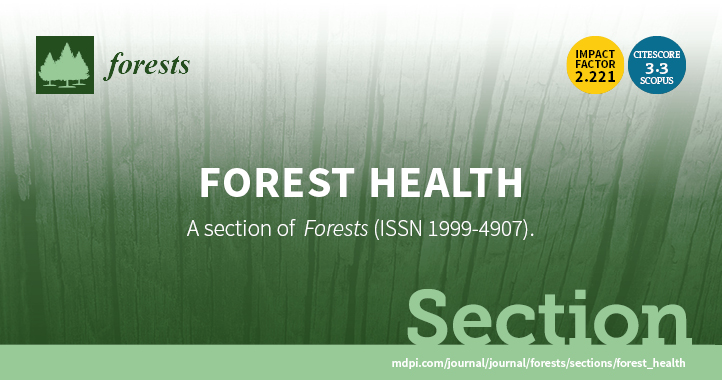
We are pleased to announce the new Section “Forest Health” (https://www.mdpi.com/journal/forests/sections/forest_health) in the journal Forests. Prof. Dr. Young-Seuk Park is serving as the Section Editor-in-Chief.
Section Information
The Section “Forest Health” publishes original research and full-length review articles describing research on all aspects of forest health. Examples of areas covered in the Section “Forest Health” include but are not limited to:
- Physiological and genetic interactions between trees and harmful biotic impacts;
- Resistance and resilience mechanisms;
- Biological and applied aspects of tree diseases;
- Biology, ecology, and control of forest tree insects;
- Diagnosis, monitoring, and assessment of forest pathogen and insects;
- Impacts of forest pathogens and insects on forests;
- Impacts of disturbances, such as pollution and climate change, on forest trees and forest ecosystems;
- Methodology of forest insect and disease surveys;
- Population dynamics of forest insects;
- Forest health assessment;
- Alien invasive species;
- Social dimensions of forest health;
- Integrated management of forest defoliating insects and pathogens;
- Quantitative approaches, including statistical, mathematics, and computer technology.
In particular, we welcome contributions by early career researchers. We also invite senior scientists to serve as Guest Editors of new Special Issues on a single and particular theme of significant and/or growing importance.
22 June 2021
Forests | Welcome to Read Selected Papers from “Editor’s Choice” (Volume 12, Issues 1–3)
Editor’s Choice articles are based on recommendations by our Editors-in-Chief. Since it was first established, “Editor’s Choice” has always been welcomed by researchers. Our Editors-in-Chief have selected many papers to display here. All of them are particularly interesting to authors or otherwise important in this field.
Recently, the Editorial Office selected the following papers, which are among the most downloaded publications from Volume 12, Issues 1–3. The following is the paper list.
|
A Novel Tree Biomass Estimation Model Applying the Pipe Model Theory and Adaptable to UAV-Derived Canopy Height Models https://www.mdpi.com/1999-4907/12/2/258 Takashi Machimura et al. |
In-Depth Genetic Diversity and Population Structure of Endangered Peruvian Amazon Rosewood Germplasm Using Genotyping by Sequencing (GBS) Technology https://www.mdpi.com/1999-4907/12/2/197 Muhammad Azhar Nadeem et al. |
|
Drought and Pathogen Effects on Survival, Leaf Physiology, Oxidative Damage, and Defense in Two Middle Eastern Oak Species https://www.mdpi.com/1999-4907/12/2/247 Ehsan Ghanbary et al. |
Wood Products for Cultural Uses: Sustaining Native Resilience and Vital Lifeways in Southeast Alaska, USA https://www.mdpi.com/1999-4907/12/1/90 Adelaide Johnson et al. |
|
Influence of Agisoft Metashape Parameters on UAS Structure from Motion Individual Tree Detection from Canopy Height Models https://www.mdpi.com/1999-4907/12/2/250 Wade T. Tinkham and Neal C. Swayze |
Smaller and Isolated Grassland Fragments Are Exposed to Stronger Seed and Insect Predation in Habitat Edges https://www.mdpi.com/1999-4907/12/1/54 Kitti Kuli-Révész et al. |
|
Natural Drying and Chemical Characteristics of Hybrid Poplar Firewood Produced from Agricultural Bioenergy Buffers in Southern Québec, Canada https://www.mdpi.com/1999-4907/12/2/122 Julien Fortier et al. |
Diversity of Phytophthora Species Detected in Disturbed and Undisturbed British Soils Using High-Throughput Sequencing Targeting ITS rRNA and COI mtDNA Regions https://www.mdpi.com/1999-4907/12/2/229 Blanca B. Landa et al. |
|
Penetration of Different Liquids in Wood-Based Composites: The Effect of Adsorption Energy https://www.mdpi.com/1999-4907/12/1/63 Hamid R. Taghiyari et al. |
Xylem and Phloem Formation Dynamics in Quercus ilex L. at a Dry Site in Southern Italy https://www.mdpi.com/1999-4907/12/2/188 Angela Balzano et al. |
We would like to take this opportunity to thank all the research groups behind these exceptional papers for their contributions to Forests. We would appreciate it if you would circulate this document among your colleagues or through your network.
If you want to learn more about the contributions published in “Editor’s Choice”, please read here (https://www.mdpi.com/journal/forests/editors_choice).
8 June 2021
Forests Receives Updated CiteScore of 3.3
We are pleased to announce that Forests (ISSN 1999-4907) has a new CiteScore of 3.3, ranking 34th out of 142 journals (Q1) in the category “Forestry”. We would like to extend our sincerest gratitude to all authors, reviewers, and editors who have contributed to the journal.
Forests is an international, peer-reviewed, open access journal that presents the latest research on all aspects of forestry and forest ecology. Submission to the first decision is usually completed within 16.7 days, and acceptance to publication within 2.7 days, on average.
To make the most of this opportunity, we would like to invite you to make a submission to Forests. If you have a paper on any topic within the scope of the journal, please feel free to submit it here (https://susy.mdpi.com/user/manuscripts/upload).
We look forward to working with you in the future.
Forests Editorial Office
28 April 2021
Book Builder—Compile a Customized E-Book from Your Favorite MDPI Open Access Content
MDPI Books recently released Book Builder, a new online tool to conveniently arrange, design and produce an eBook from any content published in MDPI journals. Book Builder offers two functions: on the one hand (1) Selections, available to every registered user of MDPI; on the other hand (2) Special Issue Reprints, which can be used exclusively by Guest Editors of Special Issues.
Selections
In just a matter of a few clicks, all users are now able to assemble books from MDPI articles and receive instantaneous feedback in the form of a fully produced and compiled book (PDF), which can be downloaded or ordered as print copy. Selections can include any paper published with MDPI, picking and combining content from different journals and special issues.
This way, the user may for example choose to compile an ebook focusing around a particular topic, or assemble articles from a group of others.
We invite you to make yourself familiar with the new tool! The Book Builder can be found here: https://www.mdpi.com/books/book_builder.
Special Issue Reprints
The Book Builder allows Guest Editors of MDPI journals to create a reprint from a successfully completed Special Issue or Topical Collection in book format. If you are a Guest Editor for an MDPI journal, you can use the new tool to create an PDF document which includes all articles published in the Special Issue as well as a book cover and table of contents.
For Special Issues containing a minimum of 5 articles, the Guest Editor can request its publication on the MDPI Book platform. Published reprints are assigned an ISBN and DOI.
In addition to the PDF copy of the Reprint Book, as a token of our gratitude, MDPI offers every Guest Editor one (1) complimentary print copy (via print-on-demand). All contributors benefit from a discount on orders of any additional print copies, to share with colleagues or libraries or others.
In line with our organization's values, MDPI Books publishes all content in open access, promoting the exchange of ideas and knowledge in a globalized world. MDPI Books encompasses all the benefits of open access—high availability and visibility, as well as wide and rapid dissemination. MDPI Books are distributed under the terms and conditions of the Creative Commons Attribution License, meaning as an author you retain the copyright for your work. In addition, with MDPI Books you can complement the digital version of your work with a high-quality printed counterpart.
If you are interested in editing a book volume or series, or have a monograph manuscript to be considered for publication, please submit your proposal online and look at our Information for Authors.
Contact: Laura Wagner, MDPI Books Manager (email)
15 April 2021
MDPI Celebrates Company Milestone With 25th Anniversary Page
"We exist to help scientists achieve their own objectives"

In June of this year, MDPI will celebrate the 25th anniversary of its foundation. To mark this significant milestone, we have created a 25th Anniversary page on our website that evokes the development of our company over the past quarter-century.
MDPI has been a pioneer of Open Access publishing ever since the concept was first created.
In a wide-ranging interview, our CEO Delia Mihaila reflects on the company’s 25th anniversary and its contribution to the world of scientific publishing.
Delia considers how MDPI has evolved since starting life in 1996 as a visionary ‘project’ run out of an apartment in Basel, Switzerland, by Dr. Shu-Kun Lin. A chemist who was passionate about the long-term preservation of rare chemical sample, Dr. Lin was determined to help scholars publish their findings as quickly as possible and make their research results available to as wide a readership as possible worldwide. That determination remains unchanged 25 years later.
Today, MDPI is an international organization with over 4,000 employees based on three continents and in ten countries, and ranks among the world's top four academic publishers.
MDPI's mission is to accelerate access to new scientific research, delivering insight faster for researchers worldwide. Read more here about the company's remarkable success story and what the Open Access publishing model can offer the global scientific community.
10 March 2021
Journal Selector: Helping to Find the Right MDPI Journal for Your Article
At MDPI, we strive to make your online publication process seamless and efficient. To achieve this, our team is continuously developing tools and features to make the user experience useful and convenient.
As the number of academic papers continues to grow, so does the need to analyze and work with them on a large scale. This prompted us to design a new feature aimed at helping researchers find journals that are relevant to their publication by matching their abstract topic. In this regard, we designed a similarity model that automatically identifies the most suitable academic journals for your paper.
We are pleased to introduce Journal Selector, a new feature that measures similarity in academic contexts. By simply entering the title and/or abstract into our Journal Selector, the author will see a list of the most related scientific journals published by MDPI. This method helps authors select the correct journals for their papers, highlighting the time of publication and citability.
The methodology is known as representation learning, where words are represented as vectors in hyperspace. Representation helps us differentiate between different concepts within articles, and in turn, helps us identify similarities between them.
We used an advanced machine learning model to better capture the semantic meanings of words. This helps the algorithm make better predictions by leveraging scientific text representation. In turn, this ensures high precision, helping authors decide which journal they should submit their paper to.
The goal is to support authors to publish their work in the most suitable journal for their research, as fast as possible, accelerating their career progress.
Contact: Andrea Perlato, Head of Data Analytics, MDPI (email)
26 February 2021
Forests | 2021 Graduate Student/Post-Doc Travel Awards Winners Announced
We are pleased to announce the two awardees for the 2021 Forests Graduate Student/Post-Doc Travel Awards, Ms. Pipiet Larasatie and Ms. Tania L. Maxwell.
|
|
Ms. Pipiet Larasatie is completing her PhD at Oregon State University, Corvallis, OR, USA. She is an interdisciplinary scholar and social scientist researching sustainable business management and forest sector competitiveness. Her current research includes engineered wood industry development, public perceptions of wooden multi-story buildings, forest-based circular bioeconomy, and gender dynamics in the forest industry and faculties of forestry. For more information about her research and publications, please visit her personal website www.competitive-forest.com. |
|
|
Ms. Tania L. Maxwell is a PhD student at the French National Research Institute for Agriculture, Food and Environment (INRAE), completing a double-degree program focused on Biogeochemistry and Ecosystems at the Université de Bordeaux, and Forest Sciences at the Université Laval in Quebec, Canada. Her professional interests include soil ecology, biogeochemistry, forests, global changes, and R and coding. |
Each of them will receive the following:
–– CHF 600 (Swiss francs);
–– Opportunities to publish a paper with a 30% discount in 2021;
–– A certificate.
For more information about Forests awards, please see the following link: https://www.mdpi.com/journal/forests/awards.
26 February 2021
Forests | 2020 Young Investigator Awards Winners
We are pleased to announce that the winners of the Forests 2020 Young Investigator Award are Dr. Rachael Nolan and Dr. Adriane Esquivel Muelbert.
|
|
Dr Rachael Nolan is a lecturer of fire ecology and biogeosciences at the Hawkesbury Institute for the Environment, Western Sydney University, Sydney, Australia. She is fascinated by the role of disturbances in ecosystems, in particular the effects of fire on the landscape. She has two main areas of research. The first is focused on understanding how ecosystems respond to disturbance, and what this means for ecosystem services such as carbon sequestration, habitat values and water resources. The second research area she focuses on is developing models of forest flammability in relation to dynamics of fuel loads and moisture content. |
|
|
Dr. Adriane Esquivel Muelbert is a lecturer in Global Forest Ecology at School of Geography, Earth and Environmental Sciences, University of Birmingham, Birmingham, UK. She is interested in Global Change Ecology, particularly of forests. Adriane’s goal is to unravel the implications of global change on biodiversity and forest dynamics and how these will affect forests’ role in the global biogeochemical cycles. Her work leverages large sources of field-based data on forest dynamics, functional traits, and species composition to answer questions at a continental and global scale. She is passionate about tropical forests and their complexity, particularly the Amazon, and seeks to translate her research into conservation efforts. |
Each of them will receive the following:
Prize for Winners:
– An official certificate
– 1000 CHF (Swiss Francs)
– Option to publish two papers, after peer review, in Forests with a 50% discount on the article processing charge.
For more information about Forests awards, please see the following link: https://www.mdpi.com/journal/forests/awards.
23 February 2021
Forests | In Cooperation with the ForestDSS CoP and IUFRO on Special Issue “Spatial Decision Support for Forest Management and Policy Formulation”
We are pleased to announce that Forests is collaborating with the ForestDSS CoP and four units of the International Union of Forest Research Organizations (IUFRO) on the Special Issue “Spatial Decision Support for Forest Management and Policy Formulation”. The IUFRO units in this collaboration are:
- Uncertainty analysis, computational ecology, and decision support (Unit 4.03.00);
- Characterization of uncertainty in forest modelling systems (Unit 4.03.01);
- Machine learning and computational ecology (Unit 4.03.02);
- Decision support systems and related information technologies for the sustainable management of forest systems (Unit 4.03.03);
- Sustainable forest management scheduling (Unit 4.04.04).
Decision support systems for forest management have been steadily evolving since about 1980 in response to growing demand from forest managers for sophisticated analytical systems that can address the complexities of contemporary forest management issues such as adaptive management in the context of managing forest ecosystem sustainability, integrity, and resilience while ensuring the provision of ecosystem services. In this same time frame, there has also been a steady shift in emphasis from stand-level to landscape-level decision support systems, in part driven by the improved ecological understanding of, and appreciation for, the need to account for patterns and processes in forest management and planning.
Accordingly, we set up a 2021 Special Issue on spatial decision support systems and their application to state-of-the-art landscape solutions for forest management and policy formulation. In this initial call, manuscript proposals are invited for original research and review articles addressing:
- Contemporary, state-of-the art systems and their application, emphasizing spatial decision support for either forest management or policy formulation;
- Forward-looking (and perhaps more speculative) articles on how to advance spatial decision support technologies for forest management and policy formulation beyond the current state-of-the-art.
Spatial decision support technologies have evolved in numerous pathways, including knowledge-based, probabilistic, and linear programming systems, as well as combinations of these and other technologies, so articles addressing any of these areas are welcome.
More information about the current call and submission requirements can be found here:
https://www.mdpi.com/journal/forests/special_issues/decision_support_forest_management_policy.
8 February 2021
Section in Forests: Wood Science and Forest Products
We are pleased to announce that MDPI’s open access journal Forests is modifying the section name "Wood Science" to "Wood Science and Forest Products". With this change, Forests aspires to provide a worldwide medium for research into all aspects of wood science, including forests and plantations, wood components, and wood-based products. The section also publishes articles on non-wood products derived from forest resources, collectively described as non-timber forest products (NTFPs).
We invite you to visit the updated website to discover what is new!
3 February 2021
Call for Reviewers for Forests
We hope to call upon your expertise as a reviewer to help maintain the quality and efficiency of Forests.
We are particularly interested in recruiting reviewers in the following fields related to forests. In recent decades, this area has attracted a lot of research interest and significant progress has been made. We welcome scholars with research experience in topics including but not limited to the following:
- forest ecology, management, and restoration;
- forest economics and natural resource policy and planning;
- silvicultural systems;
- forest entomology and forest pathology;
- forest ecophysiology and biology;
- forest genetics, tree breeding, and biotechnology;
- climate change impacts, adaptation, and mitigation in forests;
- forest biomass, bioenergy, and carbon sequestration;
- forest engineering;
- tropical forests and management;
- forest inventory, quantitative methods, and remote sensing;
- forest soil management;
- forest simulation modeling;
- forest and nature-based recreation;
- wildland fire science and management;
- wood properties;
- human dimensions;
- urban forests.
We will extend the following benefits to reviewers:
- The Forests Editorial Board will acknowledge all reviewers in its annual reviewer list through a publication/announcement in the “Acknowledgement to Reviewers of Forests” editorial on the journal website.
- Reviewer members who provide prompt, thorough, rigorous peer-review reports will receive a voucher that can be applied to reduce the cost of their next publication in an MDPI journal.
- We hold an “outstanding reviewer award” yearly to acknowledge our reviewers who so generously give their time to review papers for the journal. There would be a chance for you to receive this award. Please click here for more details: https://www.mdpi.com/journal/forests/awards.pdf/0/pdf_42_2022_1_award.pdf.
- Reviewers may be presented with the option to join the Editorial Board of the journal (subject to the approval of the Editor-in-Chief).
If you are interested in this work, please submit your information at https://susy.mdpi.com/volunteer/profile/edit.
We would greatly appreciate your support and hope you will join our team of reviewers!
Forests Editorial Office
31 January 2021
Forests Now Indexed by PaperChem
We are pleased to announce that Forests (ISSN 1999-4907) was recently selected for indexing in the PaperChem (Elsevier) database:
27 January 2021
Forests 2020 Outstanding Reviewer Awards Winners
We are pleased to announce the 2020 Outstanding Reviewer Awards of Forests. Following reviewers have been selected on the basis of the timeliness, quality, and speed of their review reports. They are:
|
|
|
|
|
|
|
|
|
|
|
|
Each of them will receive the following:
- CHF 500 (Swiss francs);
- Opportunities to publish papers (no quantity limit) with 50% discount in 2021;
- A certificate.
We thank them for their efforts in the review process. In addition, we would like to express our sincere gratitude to all the reviewers for their time and dedication in 2020.
For more information about Forests awards, please see the following link: https://www.mdpi.com/journal/forests/awards.
28 December 2020
New Editorial Board Members Joined Forests
We welcome the following recognized researchers, who recently joined the Editorial Board of Forests:
|
Prof. Dr. Carlo Blasi |
Prof. Dr. Stanisław Małek |
|
Prof. Dr. Jan Bocianowski |
Dr. Dan Metcalfe |
|
Dr. Manuela Branco |
Dr. Brad Murray |
|
Dr. Felipe Bravo |
Dr. Takuo Nagaike |
|
Dr. Giorgio Brunialti |
Dr. Jose Antonio Navarro Cano |
|
Dr. Federico Di Rita |
Dr. Romà Ogaya |
|
Dr. Laszlo Erdos |
Dr. Antonios Papadopoulos |
|
Dr. Juan F. Fernández-Manjarrés |
Dr. Nicholas Payne |
|
Dr. Luisa Frati |
Dr. Tomas Pypker |
|
Prof. Dr. Oliver Gailing |
Dr. Bryce Richardson |
|
Prof. Dr. Herminia García-Mozo |
Prof. Dr. Paul-Antoine Santoni |
|
Dr. Guillermo Gea-Izquierdo |
Dr. Meelis Seedre |
|
Dr. Filippo Giadrossich |
Prof. Dr. Mark Tibbett |
|
Dr. Pablo Gotor |
Prof. Dr. Mulualem Tigabu |
|
Prof. Dr. David F. Greene |
Dr. Eddie J.B. van Etten |
|
Dr. H. Roaki Ishii |
Dr. Rimvydas Vasaitis |
|
Dr. Rebecca Jordan |
Prof. Dr. Arild Vatn |
|
Dr. Colin Kelleher |
Dr. Joana Ferreira |
|
Dr. David Kenfack |
Prof. Dr. Cristina Nabais |
|
Dr. Xiangdong Lei |
Dr. Marta Pardos |
|
Dr. Martin Maier |
|
We wish them every success in developing the journal.
Further details concerning the Editorial Board can be found at: https://www.mdpi.com/journal/forests/editors
28 December 2020
Recruiting Editors for New Section “Genetics and Molecular Biology” in Forests
In order to better categorize the papers published in the journal, the section “Genetics and Molecular Biology” has recently been established. We are now recruiting Editorial Board members for this new section (https://www.mdpi.com/journal/forests/sections/genetics_molecular_biology).
If you are an active researcher in the field and are passionate about participating in cutting-edge research publications, please do not hesitate to contact us about joining the Editorial Board. As an Editorial Board member, you will have the following responsibilities:
- Make decisions on whether a manuscript can be accepted or not based on the reports we collect;
- Serving as the Editor of a Special Issue on a topic related to your research interests when it is convenient for you;
- Reviewing a number of manuscripts in your area of interest when you are available;
- Recommending topics or appropriate conferences;
- Promoting Forests and increasing its visibility at related academic conferences.
Editorial Board Members are entitled to publish one paper free of charge in Forests each year and apply for additional discounts for papers invited by you.
Further information about the Editorial Board may be found at https://www.mdpi.com/editors.
If you are interested in becoming an Editorial Board Member for Forests, please send us your full academic CV and a short cover letter that details your interest and enthusiasm for the position.
Forests Editorial Office
28 December 2020
Dr. Carol A. Loopstra Appointed Section Editor-in-Chief of “Genetics and Molecular Biology” in Forests
We are pleased to announce that Dr. Carol A. Loopstra has been appointed as the Editor-in-Chief of the new Section “Genetics and Molecular Biology” in Forests.

Dr. Carol A. Loopstra is an Associate Professor at the Department of Ecology and Conservation Biology at Texas A&M University, College Station. She works on the genomics of loblolly pine. Her most recent publications have dealt with SNP (single nucleotide polymorphism) discovery and association genetics in loblolly pine. Her current work focuses on identification of markers that could be used by breeding programs to increase drought tolerance, water-use efficiency, and yield of loblolly pine in the southeastern United States. Gene expression and regulation has been her long-term interest as well. Dr. Loopstra teaches “Forest Trees of North America” and “Forest Tree Improvement and Regeneration” in the undergraduate Forestry program, where she also serves as the Forestry Program leader.
We warmly welcome Dr. Loopstra as the Editor-in-Chief of the section “Genetics and Molecular Biology”, and we look forward to Forests achieving many milestones under her leadership.
For further information on the journal section, please click: https://www.mdpi.com/journal/forests/sections/genetics_molecular_biology
15 December 2020
MDPI adopts C4DISC principles to improve diversity and inclusion in scholarly communications
MDPI is proud to adopt the principles of the Coalition for Diversity & Inclusion in Scholarly Communications (C4DISC) to support building equity, inclusion, diversity, and accessibility in scholarly communications.
The C4DISC represents organizations and individuals working in scholarly communications and is focused on addressing issues of diversity and inclusion within the publishing industry.
MDPI’s Managing Editors encourage the Editors-in-Chief and Associate Editors to appoint diverse expert Editorial Boards. This is also reflective in our multi-national and inclusive workplace. We are proud to create equal opportunities without regard to gender, ethnicity, geographic location, sexual orientation, age, disability, political beliefs, religion, or socio-economic status. There is no place for discrimination in our workplace and editors of MDPI journals are to uphold these principles in high regard.
Representatives from C4DISC meet monthly, and have started to implement initiatives to shed light and improve on the lack of diversity in scholarly communications. Some of the initiatives include developing a joint statement of principles; conducting market research; providing training resources, best practices, toolkits, and documentation for our collective memberships; and establishing outreach programs, curricula, events, and publications.
The Coalition is committed to:
- eliminating barriers to participation, extending equitable opportunities across all stakeholders, and ensuring that our practices and policies promote equitable treatment and do not allow, condone, or result in discrimination;
- creating and maintaining an environment that respects diverse traditions, heritages, and experiences;
- promoting diversity in all staff, volunteers, and audiences, including full participation in programs, policy formulation, and decision-making;
- raising awareness about career opportunities in our industries to groups who are currently underrepresented in the workforce;
- supporting our members in achieving diversity and inclusion within their organizations.
14 December 2020
Article Layout and Templates Revised for Future Volumes
At MDPI we have slightly revised the layout for articles to be published in the 2021 Volume, starting at the end of December 2020. As of today, the article templates available for download on ‘Instructions for Authors’ pages have been updated.
The most noticeable change can be found on the first page of the article, where a left-hand column has been created to include the following front matter elements: (i) the recommended citation style for the article, (ii) the publishing history, (iii) as well as the Creative Commons Attribution license used (iv) a standard note regarding affiliations. At the same time, the extra spacing on the left means the authors’ affiliations are now more clearly set apart than before. Other front matter key elements such as journal logo, article type, article title, authors, abstract and keywords remain unchanged.
The blank column on the left runs through all pages in an article; as a result, the main text is slightly more condensed, which improve reader friendliness for smaller screens. Small figures/tables are aligned on the left with standard indenture, while large figures/tables are centered and covering the full width of the page. The revised layout was applied in the article pictured below, to serve as an example:

1) Information is displayed in the left information bar.

2) In the main text, there is a blank column on the left.

3) Small tables/figures are aligned on the left, large tables/figures are centered.
11 December 2020
2020 "Highly Cited Researchers" on MDPI Journal's Editorial Boards
We are pleased to acknowledge that many academic editors who have made an impact on MDPI journals as editorial board members, editors-in-chief, or section editors, are recognized as 2020 Highly Cited Researchers by Clarivate.
Highly Cited Researchers highlights the top 1% of researchers, by citations, in one or more of the 22 fields used in Clarivate Analytics Essential Science Indicators. We offer our congratulations to 279 academic editors of MDPI journals who were recognized as the most influential scholars in their fields in 2020.
Adams, Dave Agarwal, Ravi P. Ahn, Choon Ki Ahn, Myung-Ju Albrecht, Randy A. Andersson, Dan I. Anker, Stefan D. Apergis, Nicholas Ariga, Katsuhiko Artaxo, Paulo Balsamo, Gianpaolo Barba, Francisco J. Benediktsson, Jon Atli Benelli, Giovanni Bhatnagar, Amit Bialystok, Ellen Blaabjerg, Frede Blay, Jean-Yves Bogers, Marcel Bolton, Declan J. Boyer, Cyrille Brocca, Luca Bruix, Jordi Buhalis, Dimitrios Burdick, Jason A. Byrd, John C. Cabeza, Luisa F. Cabrerizo-Lorite, Francisco Javier Cai, Jianchao Calhoun, Vince D. Cantu, Robert C. Cerqueira, Miguel Chang, Jo-Shu Chau, Kwok-wing Chemat, Farid Chen, Jianmin Chen, Jun Chen, Min Chen, Shaowei Chen, Wei Chen, Wei-Hsin Chen, Xiaofeng Chen, Yangkang Chen, Zhi-Gang Chiclana, Francisco Corella, Dolores Cortes, Javier Cortes, Jorge Cummings, Kenneth Michael Dai, Shifeng Decker, Eric A. DePinho, Ronald A. Dimopoulos, Meletios-Athanasios Dincer, Ibrahim Du, Yihong Dupont, Didier Edwards, David Ellahi, Rahmat Ellis, Erle C. ElMasry, Gamal Esteller, Manel Estruch, Ramón Fang, Chuanglin Fasano, Alessio Fernandez-Lafuente, Roberto Ferreira, Isabel Fortino, Giancarlo Galluzzi, Lorenzo Galvano, Fabio Gandomi, Amir H. Gandomi, Amir H. Gao, Bin Gao, Feng Gao, Wei Garbe, Claus García, Hermenegildo Geschwind, Daniel H. Giampieri, Francesca Giralt, Sergio A. Glanz, Karen Goldewijk, Kees Klein Gössling, Stefan Govindan, Kannan Granato, Daniel Grosso, Giuseppe Grosso, Giuseppe Guerrero, Josep M. Haase, Dagmar Hagger, Martin S. Hamblin, Michael R. Han, Heesup Jankovic, Joseph Janotti, Anderson |
Jiang, Hai-Long Kalaji, Hazem M. Kalantar-Zadeh, Kourosh Kaner, Richard B. Karimi, Hamid Reza Kataoka, Kazunori Keesstra, Saskia Kepp, Oliver Kerminen, Veli-Matti Keyzers, Robert A. Khademhosseini, Ali Khan, Nafees A. Kim, Ki-Hyun Klemeš, Jiří Jaromír Klenk, Hans-Peter Konopleva, Marina Y. Krammer, Florian Krebs, Frederik C. Kroemer, Guido Kudo, Masatoshi Kurths, Juergen Kurzrock, Razelle Kuznetsov, Nikolay V. Kyrpides, Nikos C. La Vecchia, Carlo Lai, Yuekun Lam, James Lancellotti, Patrizio Lee, Sangmoon Leung, Victor C. M. Li, Jinghong Li, Yurui Lindahl, José M. Merigó Lip, Gregory Y. H. Loh, Xian Jun Long, Hualou Lund, Henrik Luo, Jingshan Luque, Rafael Lyons, Timothy W. Ma, Jun Ma, Wen-Xiu Ma, Yanming Maeda, Keisuke Makarova, Kira Mantovani, Alberto Martín-Belloso, Olga Martinoia, Enrico Marzband, Mousa Masclaux-Daubresse, Celine Masson, Patrick Mateos, María Victoria Mathiesen, Brian Vad Matyjaszewski, Krzysztof McArthur, Grant A. McCauley, Darren Medlock, Jolyon M. Melero, Ignacio Mezzetti, Bruno Miroshnichenko, Andrey E. Moran, Daniel Mueller, Lukas A. Mueller-Roeber, Bernd Naushad, Mu Nemeroff, Charles B. Nieto, Juan J. O'Donnell, Colm Ogino, Shuji Olabi, Abdul-Ghani O'Regan, Donal Orsini, Nicola Oswald, Isabelle P. Ozcan, Aydogan Pahl-Wostl, Claudia Pang, Huan Payne, James E. Peng, Shushi Perc, Matjaz Perez-Alvarez, Jose Angel Piquero, Alex R. Ploss, Alexander Postolache, Mihai Pradhan, Biswajeet Prinsep, Michele R. Qian, Dong Qu, Xiaogang Reiter, Russel J. Riahi, Keywan Richter, Andreas Rignot, Eric Robert, Caroline Ros, Emilio Rosell, Rafael |
Rosen, Marc A. |
The full list of 2020 Highly Cited Researchers can be accessed on https://recognition.webofsciencegroup.com/awards/highly-cited/2020/
--- Highly Cited Researchers (HCR) is a Clarivate product.
10 December 2020
Forests 2020 Young Investigator Awards
Forests is inviting nominations for the 2020 Young Investigator Awards. This prize will be given to two young investigators in recognition of their excellence in the field of forestry and forest ecology research. All nominations will be assessed by an Evaluation Committee led by the Editor-in-Chief, Prof. Dr. Timothy A. Martin.
Eligibility and Requirements:
− Should be below 40 years of age or have received their Ph.D. no more than 10 years prior to 31 December 2020;
− Should have produced groundbreaking research and made a significant contribution to the advancement of their research field;
− Should be nominated by their supervisor(s), research director, or department head.
List of Documents for Nomination:
− Detailed curriculum vitae, including an updated publication list and a list of the researcher’s own research grants;
− Birth certificate or other proof of age;
− Scanned copy of doctorate certificate;
− Signed nomination letters from two established senior scientists.
Prize for Winners:
− An engraved plaque;
− 1000 CHF (Swiss Francs);
− Option to publish two papers, after peer review, in Forests with a 50% discount on the article processing charge.
Nomination deadline:
15 December 2020.
How to apply?
The nominations must be submitted online here.
Please apply online before 15 December 2020. The winners will be informed via email and announced on the Forests web page by March 2021.
Kind regards,
Forests Editorial Office
10 December 2020
Dr. Olga Viedma Appointed Section Editor-in-Chief for Section “Forest Inventory, Modeling and Remote Sensing” in Forests
We are pleased to announce that Dr. Olga Viedma was appointed Section Editor-in-Chief for the Section “Forest Inventory, Modeling and Remote Sensing”.

Dr. Olga Viedma is an assistant professor of Environmental and Land Planning at the University of Castilla-La Mancha (Spain). Her main interest is focused on ecological responses to wildfires in a context of climate change and other changes such as land use-land cover or the socio-economy of fire-affected areas. She works on new methodologies for mapping fires from satellite images, analysis of spatiotemporal patterns of forest fires, post-fire effects by satellite and LiDAR; and spatio-temporal modeling of historical land use-land cover changes related to fire hazard. She has carried out digital mapping of land use changes since the 1950s, and forest fires from the 1970s to the present, from satellite images and historical cartography. She also has modeled the different roles played by physiographic, climatic, and socio-economic conditions in the abandonment of agricultural activities over time. On the other hand, through selectivity analysis and randomization processes, she has determined the different preferences of fires towards land use and changes (abandonment, reforestation, densification, etc). She has also analyzed the effect of changes in land uses, climate, physiography, and socio-economics on the occurrence of fires from the 1970s to the present using temporarily explicit models (analysis of longitudinal data) and satellite data. Another important line of research is based on estimating the severity of fire and biomass consumed using field data, satellite image, and LiDAR data; as well as identifying the factors that control fire severity.
We are confident that the strong academic background and connections of Dr. Viedma will help to continue raising Forests' prestige and quality, while maintaining the efficiency of manuscript processing that Forests authors have come to expect.
4 December 2020
Updated Sections in Forests: “Forest Economics, Policy, and Social Science” and “Forest Inventory, Modeling and Remote Sensing”
We would like to inform you that Forests is updating two of its section names: “Forest Economics and Human Dimensions” will change to “Forest Economics, Policy, and Social Science” and “Forest Inventory, Quantitative Methods, and Remote Sensing” will become “Forest Inventory, Modeling, and Remote Sensing”.
With this change, Forests aspires to provide a medium for research throughout the world on forest economics and related disciplines, and especially encourages work within a broad interdisciplinary framework with explicit management or policy recommendations.
Forests also aspires to become a respected venue for the peer-reviewed, rapid, and affordable publication of papers related to various technologies and their applications in forest modeling, mensuration, and inventory areas.
We invite you to visit thes two updated website to discover the latest topics and articles!
https://www.mdpi.com/journal/forests/sections/Forest_Economics_Policy_Social_Science
https://www.mdpi.com/journal/forests/sections/forest_inventory_modeling_remote_sensing
9 July 2020
Open Access Agreement Between Jisc Collections and MDPI
We are delighted to announce the establishment of our Open Access agreement with Jisc Collections, which will allow UK institutions to benefit from access to article processing charge (APC) discounts and streamlined payment workflows.
All institutions participating in the agreement will also gain access to the MDPI online submission system where they can find full article metadata and pricing information for easy identification and additional transparency.
Eligible authors affiliated with the participating institutions are prompted to choose the corresponding Institutional Open Access Program (IOAP) when they submit an article via our online submission system.
About Jisc
Jisc's vision is for the UK to be the most digitally advanced education and research nation in the world. At its heart is the super-fast national research and education network, Janet, with built-in cyber security protection. Jisc also provides technology solutions for its members (colleges, universities and research centres) and customers (public sector bodies), helps members save time and money by negotiating sector-wide deals and provides advice and practical assistance on digital technology. Jisc is funded by the UK higher and further education and research funding bodies and member institutions.
For more information, contact helen.dobson@jisc.ac.uk.
About MDPI
MDPI is a publisher of fully peer-reviewed, Open Access journals with a focus on thorough and rapid editorial processing. Its aim is to ensure that high-quality research is verified and made available to the research community as quickly as possible. MDPI stands at the forefront of the Open Access movement, having launched its first online journal Molecules in 1996. Today, MDPI is a leader in Open Access publishing with over 250 journals across all research disciplines, and all content published under a Creative Commons Attribution License (CC BY).
For any questions about this agreement, please contact the MDPI IOAP team at ioap@mdpi.com.
29 June 2020
Updated Impact Factors Released in the Journal Citation Reports (Clarivate)
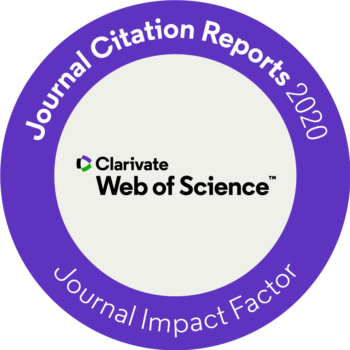
The updated citation metrics have been released in the Journal Citation Reports (JCR), published by Clarivate. The recent release of the JCR includes seventy-one MDPI titles. Out of these, 18 titles are newcomers, receiving a first Journal Impact Factor which is based on citation activity in 2019: Actuators, Agriculture, Biology, Biomedicines, Biosensors, Chemosensors, Children, Healthcare, Journal of Fungi, Journal of Personalized Medicine (JPM), Land, Life, Magnetochemistry, Membranes, Pharmaceuticals, Photonics, Separations and Toxics.
- Out of the previously listed journals, a total of 72 percent boast an increased Impact Factor.
- 25 journals are ranked among the top 25% of journals in at least one of the categories they are ranked for.
- Articles published in 2019 in MDPI journals account for approximately 17 percent of of articles published in gold Open Access journals covered in the Science Citation Index Expanded (SCIE) and Social Sciences Citation Index (SSCI).
First Impact Factors
| Journal | Impact Factor | Rank | Category | Details |
| Actuators | 1.957 | 31/64 (Q2) | • Instruments & Instrumentation | Link |
| Agriculture | 2.072 | 25/91 (Q2) | • Agronomy | Link |
| Biology | 3.796 | 19/93 (Q1) | • Biology | Link |
| Biomedicines | 4.717 | 30/138 (Q1) 36/270 (Q1) |
• Medicine, Research & Experimental • Pharmacology & Pharmacy |
Link |
| Biosensors | 3.240 | 24/86 (Q2) | • Chemistry, Analytical | Link |
| Chemosensors | 3.108 | 16/64 (Q1) 27/86 (Q2) 13/27 (Q2) |
• Instruments & Instrumentation • Chemistry, Analytical • Electrochemistry |
Link |
| Children | 2.078 | 50/128 (Q2) | • Pediatrics | Link |
| Healthcare | 1.916 | 62/102 (Q3) 45/87 (Q3) |
• Health Care Sciences & Services (SCIE) • Health Policy & Services (SSCI) |
Link |
| Journal of Fungi | 4.621 | 5/29 (Q1) 31/135 (Q1) |
• Mycology • Microbiology |
Link |
| Journal of Personalized Medicine | 4.433 | 24/165 (Q1) 10/102 (Q1) |
• Medicine, General & Internal • Health Care Sciences & Services |
Link |
| Land | 2.429 | 58/123 (Q2) | • Environmental Studies (SSCI) | Link |
| Life | 2.991 | 26/93 (Q2) 109/267 (Q2) |
• Biology • Microbiology |
Link |
| Magnetochemistry | 1.947 | 22/45 (Q2) 109/159 (Q3) 201/314 (Q3) |
• Chemistry, Inorganic & Nuclear • Chemistry, Physical • Materials Science, Multidisciplinary |
Link |
| Membranes | 3.094 | 53/143 (Q2) 129/314 (Q2) 23/89 (Q2) |
• Engineering, Chemical • Materials Science, Multidisciplinary • Polymer Science |
Link |
| Pharmaceuticals | 4.286 | 49/270 (Q1) | • Pharmacology & Pharmacy | Link |
| Photonics | 2.140 | 48/97 (Q2) | • Optics | Link |
| Separations | 1.900 | 53/86 (Q3) | • Chemistry, Analytical | Link |
| Toxics | 3.271 | 32/92 (Q2) 92/265 (Q2) |
• Toxicology • Environmental Sciences |
Link |
Updated Impact Factors
| Journal | Impact Factor | Rank | Category | Details |
| Agronomy | 2.603 | 18/91 (Q1) 65/234 (Q2) |
• Agronomy • Plant Sciences |
Link |
| Animals | 2.323 | 10/63 (Q1) 14/142 (Q1) |
• Agriculture, Dairy & Animal Science • Veterinary Sciences |
Link |
| Antibiotics | 3.893 | 23/93 (Q1) 64/270 (Q1) |
• Infectious Diseases • Pharmacology & Pharmacy |
Link |
| Antioxidants | 5.014 | 10/139 (Q1) 56/297 (Q1) 7/61 (Q1) |
• Food Science & Technology • Biochemistry & Molecular Biology • Chemistry, Medicinal |
Link |
| Applied Sciences | 2.474 | 161/314 (Q3) 32/91 (Q2) 88/177 (Q2) 62/154 (Q2) |
• Materials Science, Multidisciplinary • Engineering, Multidisciplinary • Chemistry, Multidisciplinary • Physics, Applied |
Link |
| Atmosphere | 2.397 | 48/93 (Q3) | • Meteorology & Atmospheric Sciences | Link |
| Biomolecules | 4.082 | 98/297 (Q2) | • Biochemistry & Molecular Biology | Link |
| Brain Sciences | 3.332 | 113/271 (Q2) | • Neurosciences | Link |
| Cancers | 6.126 | 37/244 (Q1) | • Oncology | Link |
| Catalysts | 3.520 | 65/159 (Q2) | • Chemistry, Physical | Link |
| Cells | 4.366 | 70/195 (Q2) | • Cell Biology | Link |
| Coatings | 2.436 | 10/21 (Q2) | • Materials Science, Coatings & Films | Link |
| Crystals | 2.404 | 10/26 (Q2) 165/314 (Q3) |
• Crystallography • Materials Science, Multidisciplinary |
Link |
| Diagnostics | 3.110 | 39/165 (Q1) | • Medicine, General & Internal | Link |
| Diversity | 1.402 | 119/168 (Q3) | • Ecology | Link |
| Electronics | 2.412 | 125/266 (Q2) | • Engineering, Electrical & Electronic | Link |
| Energies | 2.702 | 63/112 (Q3) | • Energy & Fuels | Link |
| Entropy | 2.494 | 33/85 (Q2) | • Physics, Multidisciplinary | Link |
| Foods | 4.092 | 27/139 (Q1) | • Food Science & Technology | Link |
| Forests | 2.221 | 17/68 (Q1) | • Forestry | Link |
| Genes | 3.759 | 53/177 (Q2) | • Genetics & Heredity | Link |
| Insects | 2.220 | 18/101 (Q1) | • Entomology | Link |
| International Journal of Environmental Research and Public Health (IJERPH) | 2.849 | 58/193 (Q2) 32/170 (Q1) 105/265 (Q2) |
• Public, Environmental & Occupational Health (SCIE) • Public, Environmental & Occupational Health (SSCI) • Environmental Sciences (SCIE) |
Link |
| International Journal of Molecular Sciences (IJMS) | 4.556 | 74/297 (Q1) 48/177 (Q2) |
• Biochemistry & Molecular Biology • Chemistry, Multidisciplinary |
Link |
| ISPRS International Journal of Geo-Information (IJGI) | 2.239 | 31/50 (Q3) 18/30 (Q3) |
• Geography, Physical • Remote Sensing |
Link |
| Journal of Clinical Medicine | 3.303 | 36/165 (Q1) | • Medicine, General & Internal | Link |
| Journal of Marine Science and Engineering | 2.033 | 31/66 (Q2) | • Oceanography | Link |
| Marine Drugs | 4.073 | 16/61 (Q2) | • Chemistry, Medicinal | Link |
| Materials | 3.057 | 132/314 (Q2) | • Materials Science, Multidisciplinary | Link |
| Mathematics | 1.747 | 28/324 (Q1) | • Mathematics | Link |
| Medicina | 1.205 | 107/165 (Q3) | • Medicine, General & Internal | Link |
| Metabolites | 4.097 | 95/297 (Q2) | • Biochemistry & Molecular Biology | Link |
| Metals | 2.117 | 18/79 (Q1) 185/314 (Q3) |
• Metallurgy & Metallurgical Engineering • Materials Science, Multidisciplinary |
Link |
| Micromachines | 2.523 | 56/92 (Q3) 23/64 (Q2) |
• Nanoscience & Nanotechnology • Instruments & Instrumentation |
Link |
| Microorganisms | 4.152 | 37/135 (Q2) | • Microbiology | Link |
| Minerals | 2.380 | 6/21 (Q2) 11/30 (Q2) |
• Mining & Mineral Processing • Mineralogy |
Link |
| Molecules | 3.267 | 70/177 (Q2) 141/297 (Q2) |
• Chemistry, Multidisciplinary • Biochemistry & Molecular Biology |
Link |
| Nanomaterials | 4.324 | 89/314 (Q2) 42/103 (Q2) |
• Materials Science, Multidisciplinary • Nanoscience & Nanotechnology |
Link |
| Nutrients | 4.546 | 17/89 (Q1) | • Nutrition & Dietetics | Link |
| Pathogens | 3.018 | 65/135 (Q2) | • Microbiology | Link |
| Pharmaceutics | 4.421 | 44/270 (Q1) | • Pharmacology & Pharmacy | Link |
| Plants | 2.762 | 58/234 (Q1) | • Plant Sciences | Link |
| Polymers | 3.426 | 16/89 (Q1) | • Polymer Science | Link |
| Processes | 2.753 | 59/143 (Q2) | • Engineering, Chemical | Link |
| Remote Sensing | 4.509 | 9/30 (Q2) | • Remote Sensing | Link |
| Sensors | 3.275 | 22/86 (Q2) 77/266 (Q2) 15/64 (Q1) |
• Chemistry, Analytical • Engineering, Electrical & Electronic • Instruments & Instrumentation |
Link |
| Sustainability | 2.576 | 120/265 (Q2) 26/41 (Q3) 53/123 (Q2) 6/8 (Q3) |
• Environmental Sciences (SCIE) • Green & Sustainable Science & Technology (SCIE) • Environmental Studies (SSCI) • Green & Sustainable Science & Technology (SSCI) |
Link |
| Symmetry | 2.645 | 29/71 (Q2) | • Multidisciplinary Sciences | Link |
| Toxins | 3.531 | 21/92 (Q1) 34/139 (Q1) |
• Toxicology • Food Science & Technology |
Link |
| Universe | 1.752 | 18/29 (Q3) 42/68 (Q3) |
• Physics, Particles & Fields • Astronomy & Astrophysics |
Link |
| Vaccines | 4.086 | 57/158 (Q2) 50/138 (Q2) |
• Immunology • Medicine, Research & Experimental |
Link |
| Viruses | 3.816 | 12/37 (Q2) | • Virology | Link |
| Water | 2.544 | 31/94 (Q2) | • Water Resources | Link |
Source: Clarivate 2020, InCites Journal Citation Reports®.
28 June 2020
The 1st International Electronic Conference on Forests (IECF) - Open for Submission
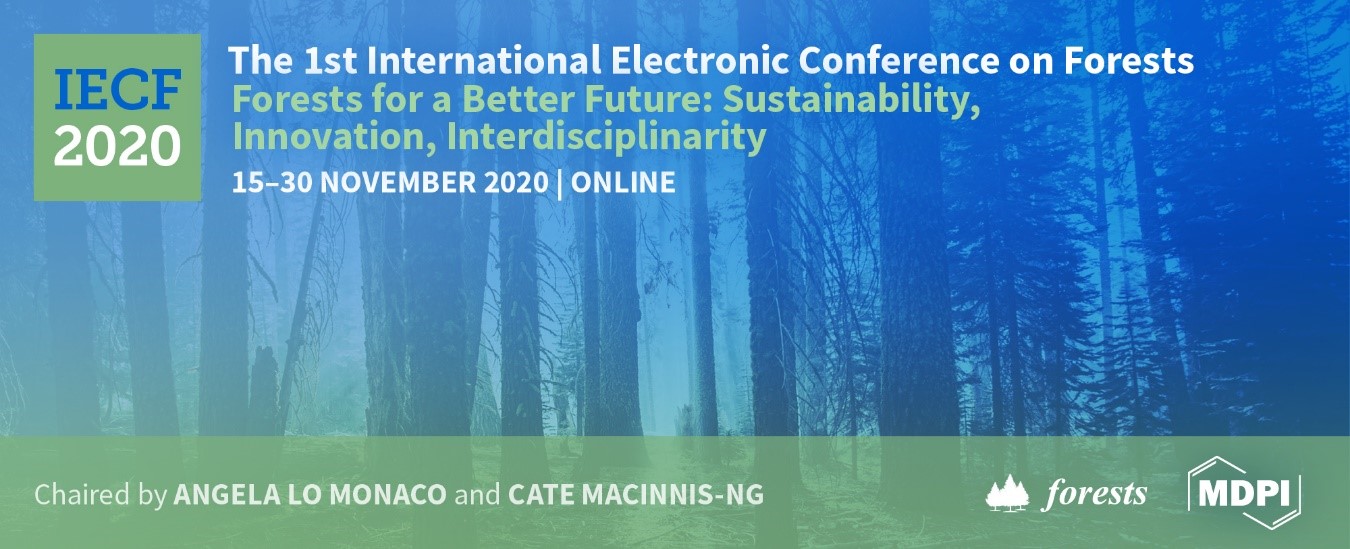
It is with immense pleasure that we announce the 1st International Electronic Conference on Forests (IECF):
Forests for a Better Future: Sustainability, Innovation, Interdisciplinarity
Forests contribute to the improvement of some important development issues focused on sustainability and responsible forest management as a shared and essential factor to address global challenges and guarantee the conservation and enhancement of the global forest heritage as well as the socio-economic development of production, environmental, and socio-cultural chains.
The global pandemic has forced us to reduce travel and to reflect on our ability to leave scientific acquisitions as a legacy to future generations. This reduced mobility stimulates us to maintain connections with the scientific network using emerging technologies. This conference is an opportunity to communicate our shared passion for forests, forest products and services, and forest biodiversity.
The conference will discuss the state of the art of forestry operations, wood supply chains, and ecosystem services, and objectives for the future will be sought. Sharing and discussing the latest research findings with the global community of scientists in the field of forests is the central purpose of this virtual meeting.
Topics of the conference include:
- Forest Ecology, Management and Restoration
- Forest Genetics, Ecophysiology and Biology
- Forests and Urban Forest Sustainability
- Forest Inventory, Quantitative Methods and Remote Sensing
- Wood Science, Production Chains and Fuelwood
- Forest Operations and Engineering
- Fire Risks and Other Natural Hazards
IECF is a virtual conference sponsored by Forests (ISSN 1999-4907; Impact Factor 2.116 (2018)). Participation is free of charge for authors and attendees. Accepted papers will be gathered in the proceedings of the conference. Selected extended versions of the papers will be published in a Forests conference Special Issue with a 20% discount applied to the article processing charge (https://www.mdpi.com/journal/Forests/special_issues/IECF2020).
IECF offers you the opportunity to participate in this international, scholarly conference without having the concern or expenditure of travel—all you need is your computer and access to the Internet. We would like to invite you to “attend” this conference by presenting your latest work.
For more information on IECF, please visit the conference website (https://iecf2020.sciforum.net/) or contact us by email (iecf2020@mdpi.com).
13 May 2020
COVID-19 Academic Resources Center

Since 1996, MDPI has been committed to supporting the research community by providing the latest research freely available and making relevant and useful research available as quickly as possible. The world is current experiencing a pandemic of COVID-19, and researchers are working extremely hard to understand it and find a cure.
The values MDPI holds strongly are particularly important at the moment, and we will continue to publish relevant, peer-reviewed research as quickly as possible in open access format. This means that it will immediately be available for researchers, health professionals, and the general public to read, distribute, and reuse. We believe that scientific advancements will be crucial to overcoming this pandemic, and will do everything we can to support researchers working looking for solutions.
COVID-19 Academic Resources Center contains a variety of information related to COVID-19 available from MDPI, including journal articles, special issues, and preprints, among others.
For more information, please visit: https://www.mdpi.com/covid-19
9 April 2020
Free Open Platforms to Support Academics During the COVID-19 Pandemic

As a leading Open Access publisher, MDPI is committed to fostering open scientific exchange in all forms across all disciplines. Due to the outbreak of COVID-19, many researchers have to stay at home and many academic conferences have been cancelled or postponed. In light of these changes, MDPI has adopted numerous initiatives that may help accelerate scientific exchange and provide support to the academics during this period.
Scholarly Community—Encyclopedia
Encyclopedia is an online reference created and curated by active scholars. It aims to highlight the latest research results as well as providing benchmark information for researchers and the general public interested in accurate and advanced knowledge on specific topics.
Comprehensive and Free Literature Database—Scilit
Scilit is a comprehensive, free database for scientists that uses a new method to collate data and index scientific material. Our crawlers extract the latest data from CrossRef and PubMed on a daily basis. This means that newly published articles are immediately added to Scilit.
Display Academic Achievements—SciProfiles
SciProfiles is an innovative social network for researchers and scholars that is developed by MDPI. In line with our broad mission, the purpose of SciProfiles is to accelerate discovery and innovation by facilitating immediate access to research results and providing opportunities for academic networking.
Organize and Participate in Conferences Online—Sciforum
Sciforum is an event planning platform that supports open science by offering the opportunity to host and participate in academic conferences. It provides an environment for scholarly exchange, discussion of topics of current interest, building of networks, and establishing collaborations.
Post Early Versions of Research Outputs—Preprints
Preprints is a platform dedicated to making early versions of research outputs permanently available and citable. We post original research articles and comprehensive reviews, and papers can be updated by authors at any time. Content on Preprints is not peer-reviewed, and feedback can be received from readers.
***
MDPI remains committed to open science and open data and has signed a statement, along with more than thirty scholarly publishers, showing our intention to facilitate sharing of new research findings as early on as possible. The initiative sees publishers collectively removing barriers to new research, in the face of a global healthcare crisis.
25 March 2020
MDPI Comment on the COVID-19 Virus
The world is currently suffering from a global pandemic of the corona virus COVID-19. MDPI expresses its sympathies for all of those affected by the virus and stands in solidarity with medical staff and researchers treating patients and searching for scientific solutions.
MDPI has previously published papers covering corona viruses in addition to new papers on the current outbreak, see all papers here. In particular, Viruses has published a number of Special Issues and papers on the topic (see here, here, and here) as well as a forthcoming Special Issue.
Alongside journal articles, MDPI has been a strong supporter of preprints, which are increasingly being used to rapidly disseminate the latest research, and we run the preprint server Preprints.org. Our database of research articles, Scilit, is free to use and covers all publishers including preprint servers. New papers are often in search results within hours of publication and users can set up alerts for new papers.
Our main priority during this period has been the health and safety of staff, and we continue to allow staff to work at home and closely monitor the situation in all locations in which we work. Despite the restrictions, we continue to provide a full publication service and, by close collaboration with our editorial boards and making use our in-house teams, ensure that there are no unnecessary delays in publishing vital research. Fast and open publication has always been at the core of MDPI values and is now more important than ever.
We hope that a solution to the current situation will emerge soon. In the meantime, we will do our best to continue communicating vital research in all fields.
18 March 2020
MDPI Co-Signed Position Statement on Transformative Agreements
The advantages of the open access model of scientific publishing are being increasingly recognized in the scientific community. It allows new scientific evidence to be accessed from the moment of publication for free by anyone around the globe, boosting the impact of new research. In response, many funders, libraries and universities have been adopting new principles to accelerate the transition to open access.
Recently, “transformative agreements” have been negotiated between traditional publishers and various institutions. While increasing the number of open access papers, these agreements lack binding commitments to a full transition to open access, their conditions vary across different regions, and access is still limited for many users.
MDPI is a co-signatory of the recent position statement raising concerns about potential downsides of transformative agreements and how they may delay a full transition to open access. The statement highlights that these models “risk perpetuating current limitations on access, transparency and market competitiveness, while simultaneously facilitating excessive charges on the public purse”.
As a pioneering open access journal publisher, MDPI is the first to promote the importance of science being made available to everyone. Our peer-reviewed journals, covering diverse academic disciplines, are fully accessible to the public free of charge under a Creative Commons Attribution License (CC BY). This is why, along with other open access publishers, MDPI is a proud signatory of the position paper and is committed to contributing to the replacement of weak transitional agreements with “agreements with publishers that are already fully committed to open science and who offer full, immediate and transparent Open Access”.
Read the position paper here
16 March 2020
Encyclopedia Outstanding Contributor Awards 2020 - Open for Application
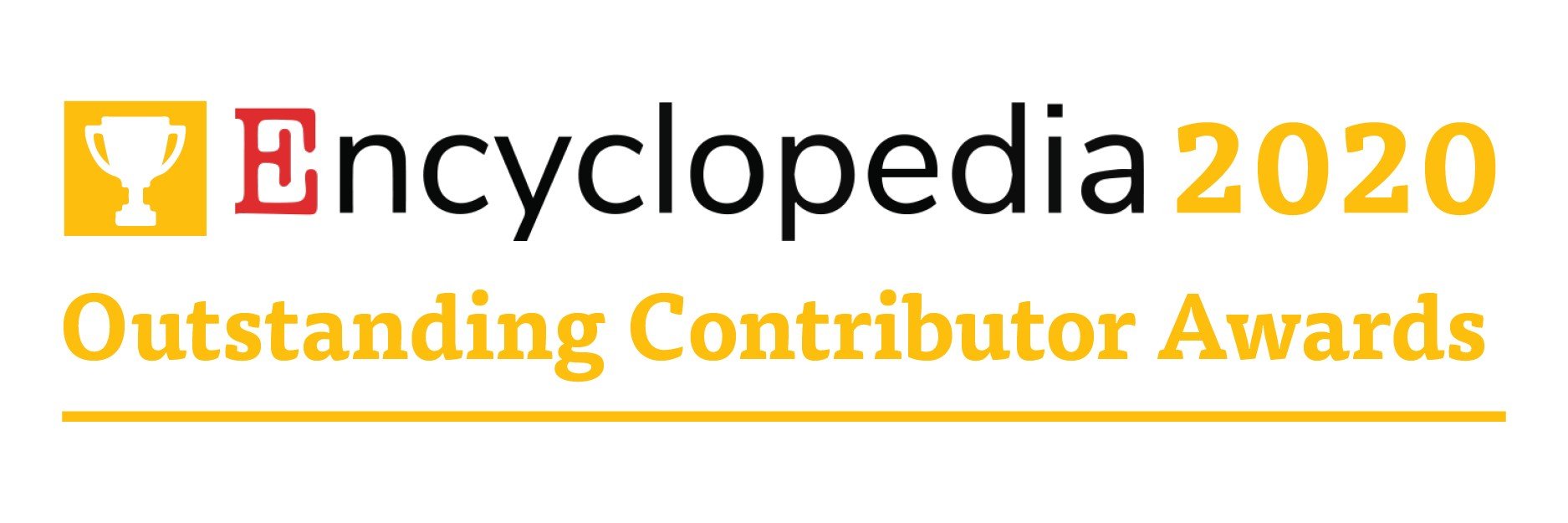
We are pleased to announce that Encyclopedia will be awarding five Outstanding Contributor Awards for researchers in 2020. The nominations and applications will be assessed by an Evaluation Committee consisting of senior scholars from the Encyclopedia Editorial Board.
Prize for Winners
- An official certificate;
- A cash award of 500 CHF or an MDPI discount voucher of 800 CHF.
Application Deadline
31 December, 2020 (Please send your application email with a list of all entries you contributed to our office before the deadline: office@encyclopedia.pub)
Candidate Requirements
- Have a Ph.D. degree;
- Have more than three qualified entries published in Encyclopedia in 2020.
Evaluation Standards
- Number of entries published in Encyclopedia in 2020;
- Quality of entries online (including length, figure quality, and novelty);
- Impact of entries (including the number of likes, discussion contents, views, and downloads).
If you are a researcher and have not yet contribute entries to Encyclopedia, please do not miss this chance to highlight your research results.
13 March 2020
2020 Forests Travel Award Winners Announced
We are pleased to announce the winners of the 2020 Travel Awards, sponsored by MDPI and Forests. The awards were granted to two outstanding young researchers working in forests science areas:
Travel Award in Forests Graduate Student/Post-Doc 2020
|
Morgan Crowley is a PhD candidate at the Department of Natural Resource Sciences, McGill University, Québec, Canada. Her current research focuses on mapping and analyzing forest fires in Canada using satellite-based remote sensing and Google Earth Engine. |
 |
|
Ninni Saarinen is a Postdoctoral Fellow at the Department of Forest Sciences, University of Helsinki, Helsinki, Finland. Her current research focuses on characterizing and modeling of forest ecosystems at various scales—from the branches and stem of an individual tree to regional and national scale monitoring. |
 |
For more information about Forests awards, please visit: https://www.mdpi.com/journal/forests/awards.
11 February 2020
Prof. Dr. Angela Lo Monaco Appointed Section Editor-in-Chief for New Section “Wood Science” in Forests
We are pleased to announce that Prof. Dr. Angela Lo Monaco was appointed Section Editor-in-Chief for the New Section “Wood Science”.

Prof. Dr. Angela Lo Monaco works at the University of Tuscia, Viterbo, Italy. The fields of her research activity particularly concern wood anatomy, dendrochronology, xylology, evaluation of wood quality, and the restoration of wood and wooden objects. Her research topics can be summarized as follows:
- Wood anatomy, diagnosis, and characterization of lumber and of artefacts in cultural heritage;
- Dendrochronological analysis;
- Wood valorization;
- Wood for energy
- "Wood culture" diffusion.
We are confident that the strong academic background and connections of Prof. Dr. Lo Monaco will help to continue raising Forests' prestige and quality, while maintaining the efficiency of manuscript processing that Forests authors have come to expect.
21 November 2019
Prof. Dr. Luis Diaz-Balteiro Appointed Section Editor-in-Chief for "Forest Economics and Human Dimensions" in Forests
We are pleased to announce that Prof. Dr. Luis Diaz-Balteiro was appointed as the Section Editor-in-Chief for the Section 'Forest Economics and Human Dimensions' in the journal Forests.

Since 2012, Dr. Luis Diaz-Balteiro is a Professor in the Department of Forest and Environmental Engineering and Management (Technical University of Madrid). His research has focused on the design and implementation of diverse analytical tools for solving problems associated with economics and forest management issues.
We are confident that the strong academic backgrounds and connections of the Editor will help continue to raise the prestige and quality of Forests, while maintaining the efficiency of manuscript processing that Forests authors have come to expect.
For more information about Forests, please visit: https://www.mdpi.com/journal/forests
24 October 2019
Forests 2019 Editorial Board Meeting at XXV IUFRO World Congress (IUFRO 2019) in Curitiba, Paraná, Brazil, 29 September – 5 October 2019
Editorial Board Members of Forests held a fruitful Editorial Board Meeting on 29 Sep–5 Oct 2019 in Curitiba, Paraná, Brazil, during the "XXV IUFRO World Congress".
The delegate of Forests Mr. Nathan. Li met editorial board members in VIP lounge room. The meeting was a great opportunity to exchange experiences and knowledge on journal growth and development, as well as to stay up to date on the latest research findings and trends for the future of forestry and forest research in all areas of the world.
On behalf of the Editor-in-Chief, Prof. Dr. Timothy A. Martin, we would like to once again thank all the participants for their excellent suggestions for the strategy development plan. To get more of the latest journal news or published papers, please follow Forests website at https://www.mdpi.com/journal/forests.
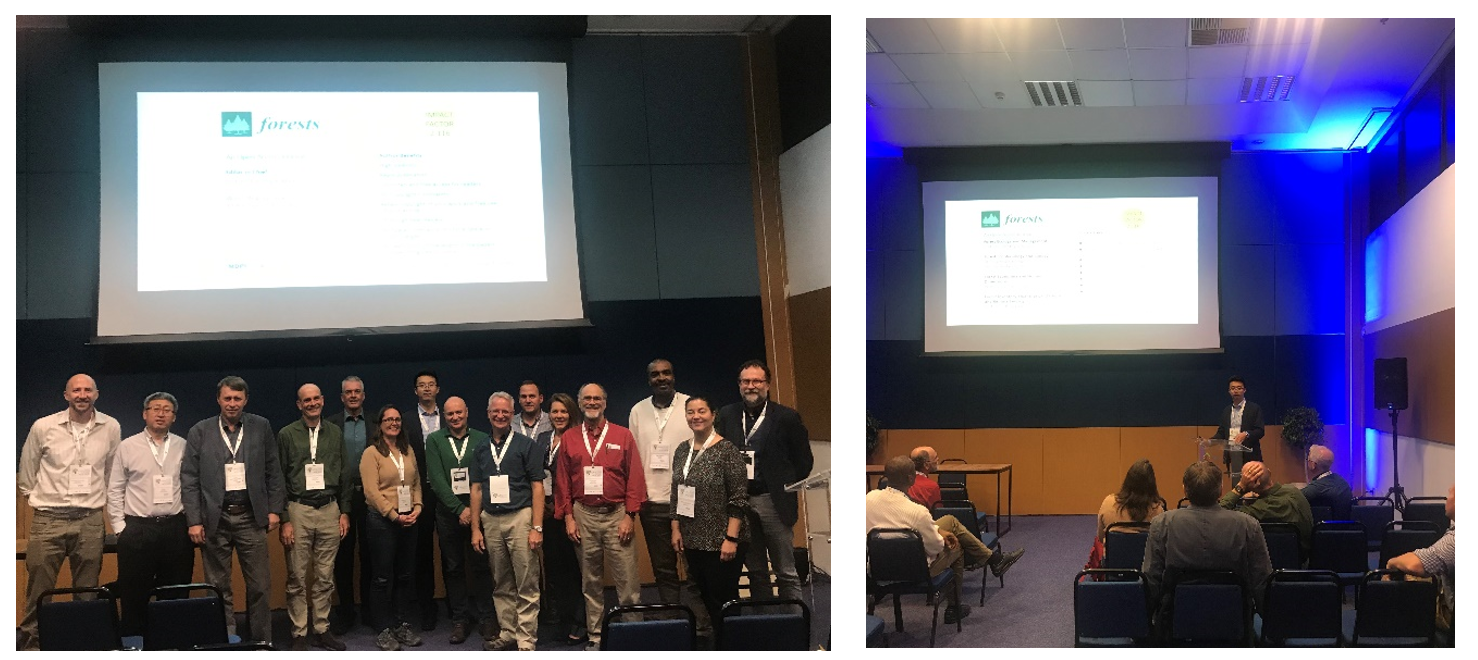
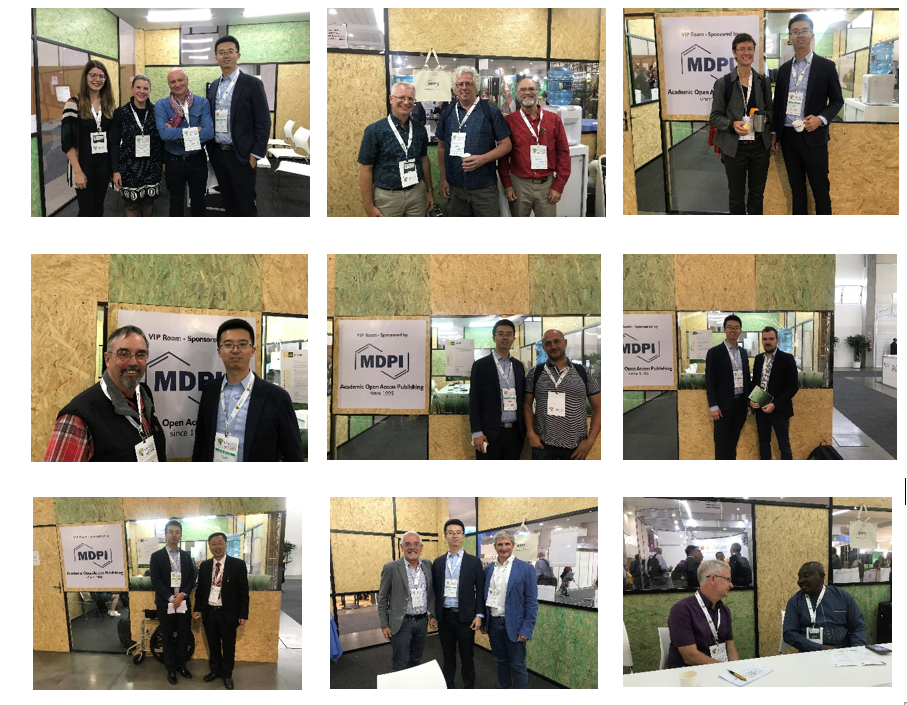
11 October 2019
Introducing SciProfiles, an Academic Social Network
MDPI is pleased to announce the release of SciProfiles, its social network platform for researchers and scholars.
The purpose of SciProfiles is aligned with MDPI’s broad mission to accelerate discovery and innovation by facilitating immediate access to research results and to serve scholars and communities by providing opportunities for academic networking.
SciProfiles also ambitions to serve as a sustainable, transparent and community-driven research evaluation system aligned with the DORA principles (https://sfdora.org/). Through their scientific profiles, academics can highlight their contribution to research communities, and measure their impact on their field, beyond publication numbers and impact factors. SciProfiles is currently a beta version and will enrich to give researchers the possibility to highlight all of their contributions to science and their scientific communities as authors, reviewers, editors, conference organizers, conference panelists, conference keynote speakers, or even as lecturers or student mentors at their University.
The classic components of popular community social networks, including follower/following, classical metrics, endorsements and recommendations (https://www.mdpi.com/about/announcements/1690), comments (https://www.mdpi.com/about/announcements/1397) are or will be very soon highlighted in SciProfiles as open science contributions.
To help increase the impact and visibility of articles and their authors to an appropriate audience, the platform offers a NewsFeed that includes recommendations of relevant content based on interests, publication history, saved searches or colleagues’ recommendations.
SciProfiles’ avatars are now being integrated on several MDPI platforms, meaning that you will directly access researchers’ profiles from any of the MDPI platforms:
MDPI's journal publishing website: www.mdpi.com
MDPI's conference hosting and management website: www.sciforum.net
MDPI's pre-print website : www.preprints.org
MDPI's knowledge sharing website : www.encyclopedia.pub
MDPI's books store: www.mdpi.com/books
MDPI's literature database : www.scilit.net
SciProfiles aims to serve scientific communities at large. It can be embedded into third-party websites and also welcomes integration of data from third-parties.
Dr. Shu-Kun Lin: https://sciprofiles.com/profile/2
Dr. Franck Vazquez: https://sciprofiles.com/profile/FranckVazquez
Dr. Martyn Rittman: https://sciprofiles.com/profile/martynrittman
2 October 2019
Winners of the 2019 MDPI Writing Prize
We are delighted to announce the winners of the 2019 MDPI Writing Prize. Entrants were asked to write on the theme "Judging research: How should research and researchers be evaluated and rewarded?" We received a large number of excellent essays from PhD students and postdocs, and the process of shortlisting and choosing winners was not an easy one. The winners demonstrated excellent writing skills alongside interesting and thought-provoking ideas.
As last year, we will begin the process of collating all entries into a book that will be available in open access format. Alongside promoting good writing skills, we see the prize as a way to promote the voices of early career researchers within broader debates and policy discussions.
Congratulations to all of the participants and especially the winners. The winners are:
1st Prize (500 CHF):
Albin Nilsson (National Centre for Nuclear Research, Warsaw, Poland)
[Read here]
2nd Prize (250 CHF):
Qi Zhang (Shandong University, Jinan, China)
[Read here]
Igor Ogashawara (Indiana University, Indianapolis, US)
[Read here]
3rd Prize (100 CHF):
Margaret Sivapragasam (Universiti Teknologi Petronas, Perak, Malaysia)
[Read here]
Arvind Sharma (The University of Queensland, Gatton, Australia)
[Read here]
Jose Flores-Guerrero (University Medical Center Groningen, Groningen, The Netherlands)
[Read here]
The MDPI Writing Prize is an annual award supported by MDPI Author Services, which provides services including language editing, reformatting, plagiarism checks, and image editing.
20 September 2019
MDPI Now Gives Scholars the Possibility to Endorse and Recommend Articles

MDPI is pleased to announce the release of a new functionality giving the possibility for researchers and scholars to endorse, and formally recommend articles to their colleagues.
MDPI was an early signatory of the San Francisco Declaration on Research Assessment (https://sfdora.org/read/) which calls for improvement in how quality and impact of scholarly research outputs are evaluated, especially in moving beyond journal-based citation metrics (journal Impact Factor, Scopus Citescore, etc.).
MDPI supports the establishment of article-level impact metrics, including citations, views, downloads, and Altmetric scores. These measures serve as an impact indicator for research articles on a case–by-case basis, assessing paper on its own merit. However, these metrics are also subjective and can give a biased picture of the article impact: they do not directly reflect the quality or the intrinsic scientific value of the article.
In our view, community engagement with publications based on community-driven metrics can help to overcome this limitation. We have therefore launched an option for scholars to endorse articles, indicating their own assessment of its content and making a recommendation to their community. This follows our implementation of the open source Hypothesis commenting tool, which has been available for all articles published by MDPI for over a year (https://www.mdpi.com/about/announcements/1397). Both endorsement and commenting are available for all previously published and forthcoming MDPI articles.
In addition to potentially serving as a sustainable solution to article assessment, endorsements will help scientific communities to identify the most relevant articles, independently of the journal in which it was published.
The code for the endorsing functionality, which relies on DOIs and ORCIDs, will be made available on GitHub with an open source license.
Dr. Shu-Kun Lin, President and Founder
Dr. Franck Vazquez, Chief Scientific Officer
Dr. Martyn Rittman, Publishing Director
16 September 2019
Meet Us at XXV IUFRO World Congress (IUFRO 2019) in Curitiba, Paraná, Brazil, 29 Sep–5 Oct 2019

MDPI will be attending the XXV IUFRO World Congress (IUFRO 2019) in Curitiba, Paraná, Brazil, 29 Sep–5 Oct 2019.
The Congress will be a great opportunity to exchange experiences and knowledge on technological innovations, as well as to stay up to date on the latest research findings and trends for the future of forestry and forest research in all areas of the world.
The following MDPI journals will be represented:
If you are also attending this conference, please feel free to meet us in VIP lounge room. Our delegates look forward to meeting you in person to answer any questions you may have. For more information about the conference, please visit the following link: http://iufro2019.com/
11 September 2019
Create an Entry in Encyclopedia to Get a 100 CHF Voucher in Publishing in MDPI Journals
Encyclopedia is a free online reference created and curated by active scholars. It aims to highlight the latest research results as well as provide a comprehensive record of scientific development. If you have any suggestions or questions, please feel free to contact us via office@encyclopedia.pub.

6 August 2019
Preprints Reaches 10,000 Posted Articles Milestone
We are pleased to announce that Preprints has passed the milestone of 10,000 posted preprints. We are delighted to have reached this after just over three years of operation. Our congratulations and thanks go to our authors and advisory board who have supported growth of the platform and been crucial to its operation.
You can find further details at https://www.preprints.org/announcement/show/37.
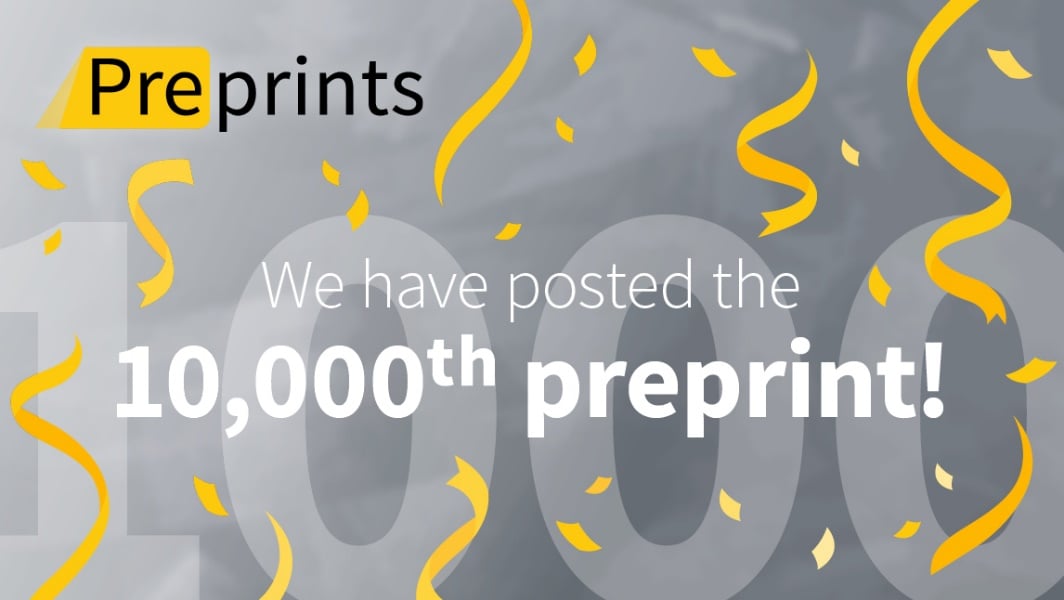
5 August 2019
Meet Us at “Embracing the Digital Environment” 2019 ASA-CSSA-SSSA International Annual Meeting in San Antonio, Texas, USA, November 10-13, 2019

MDPI will be attending the “Embracing the Digital Environment” 2019 ASA-CSSA-SSSA International Annual Meeting in San Antonio, Texas, USA, November 10-13, 2019.
The American Society of Agronomy, the Crop Science Society of America, and the Soil Science Society of America will host approximately 4,000 scientists, professionals, educators, and students at the 2019 International Annual Meeting. This premier scientific meeting provides unlimited networking opportunities, scientific abstracts, oral and poster sessions, a robust exhibit hall, technical workshops, and professional and destination tours. Plus, there's a career center, graduate and undergraduate programs, distinguished lecturers, awards, continuing education units (CEU's), prizes, and more!
The following MDPI journals will be represented:
If you are also attending this conference, please feel free to stop by our booth (Booth #320). Our delegates look forward to meeting you in person to answer any questions you may have. For more information about the conference, please visit: https://www.acsmeetings.org/
2 August 2019
DeepGreen Partnering with Publishers and Universities in Distributing Open Access Content to Institutional Repositories
Last week, the DeepGreen initiative in Germany started into an advanced test phase with the publishing partners S. Karger AG, SAGE Publishing, MDPI, Frontiers and De Gruyter, as well as 27 universities from all over Germany, from Hamburg University of Applied Sciences to University of Konstanz.
DeepGreen aims at lowering the barriers for open access publishing by automatically delivering metadata and full text publications from participating publishers to authorized repositories at German universities.
In preparation for a later live operation, the advanced test phase serves to gain experience with extensive data deliveries from publishers and also handling different repository software (including OPUS4, DSpace, EPrints, MyCoRe). DeepGreen thereby acts as a sophisticated platform, receiving articles published by authors affiliated with German universities and depositing these articles to respective university repositories, based on the affiliation metadata. For more information about DeepGreen: https://deepgreen.kobv.de
Karger AG has been a close cooperation partner of the DeepGreen consortium since 2016. S. Karger has more than 80 subscription-based and around 20 open access journals covering a wide spectrum in health science. DeepGreen will assign S. Karger articles to authorized institutions on the legal basis of German alliance and national licenses.
SAGE Publishing was founded by Sara Miller McCune in 1965 to support the dissemination of usable knowledge and educate a global community. SAGE publishes more than 1,000 journals and over 600 new books each year, spanning a wide range of subject areas. Our growing selection of library products includes archives, data, case studies and video. SAGE remains majority owned by our founder and after her lifetime will become owned by a charitable trust that secures the company’s continued independence. Principal offices are located in Los Angeles, London, New Delhi, Singapore, Washington DC and Melbourne. SAGE Publishing has been a close cooperation partner of DeepGreen since 2016.
MDPI is a scientific open access publisher and has been a partner of DeepGreen since 2017. MDPI comprises 205 peer-reviewed journals of various disciplines. All articles are published under a CC-BY license and are freely available without embargo period.
Frontiers is a scientific open access publisher with 61 journals of over 600 academic disciplines. All articles are peer-reviewed and published freely available under CC-BY license.
De Gruyter is an academic publisher with more than 700 subscription-based and open access journals of 29 disciplines. Articles provided by De Gruyter will be assigned to institutions with German alliance and national licenses.
There is promising communication with other publishers.
DeepGreen is funded by the German Research Foundation (DFG) and the consortium comprises six institutions: the Cooperative Library Network Berlin-Brandenburg, Bavarian State Library, Bavarian Library Network, University Library of the Technische Universität Berlin, University Library of Erlangen-Nuremberg and the Helmholtz Open Science Coordination Office at the GFZ German Research Centre for Geosciences.
If you would like to know in more detail which institutions take part in the advanced test phase of DeepGreen, you can find more information here.
17 July 2019
First Basel Sustainable Publishing Forum
The University of Basel and the MDPI Sustainability Foundation are organizing the First Basel Sustainable Publishing Forum on 9th September 2019.
The aim of this event is to provide background and perspectives on Plan S to Learned Societies, which have to make well-informed decisions to transition their journals to Open Access (OA).
The BSPF will bring together several representatives of Learned societies, Plan S architects as well as representatives from various publishers and publishing platforms. After getting the big picture from cOAlition S, panel discussions will allow to better understand the diverse challenges that Learned societies are facing to transition their journals to OA as well as to identify sustainable, implementable and scalable solutions for successful Open Access transition.
For program details and registration, please follow the link below:
https://sciforum.net/conference/SustainableSolutionsToOpenAccess
20 June 2019
Forests Receiving 2018 Updated Impact Factor of 2.116
We are pleased to inform that Forests received an updated Journal Impact Factor of 2.116 in the recent release of the Journal Citation Reports®. The journal's 5-Year Impact Factor is 2.453. Forests now ranks 17/67 (Q2) in the 'Forestry' category.
Evolution of Impact Factor, Citations and Publications for Forests:

Source: data according to Journal Citation Reports®, 2018 release, a Clarivate Analytics product; and Scopus journal metrics.
13 June 2019
Attending Entomology 2019 in St. Louis, MO, USA, 17–20 November

The organizer of the conference is the Entomological Society of America (ESA), which is the largest organization in the world serving the professional and scientific needs of entomologists and individuals in related disciplines. Entomology 2019 is the flagship conference of the Entomology field.
The following MDPI journals will be represented:
Insects
Agronomy
Diversity
Plants
Pathogens
Forests
If you are also going to be in attendance, please stop by our booth (# 319). Our delegates look forward to meeting you in person to answer any questions you may have regarding open access publishing or our journals. For more information about this conference, please visit https://www.entsoc.org/events/annual-meeting.
4 June 2019
Meet Us at 2019 Society of American Foresters National Convention in Louisville, KY, 30 October – 3 November 2019

MDPI will be attending the 2019 Society of American Foresters National Convention in Louisville, KY, 30 October – 3 November 2019.
The SAF National Convention is one of the largest conferences related to Forestry in the USA. This is a great opportunity to connect face-to-face with nearly 2000 land management and forestry professionals.
The 2019 SAF Convention will highlight mega trends such as advanced wood materials and new products from cellulose, while acknowledging the legacy of American wood use in music, food, shelter, and culture.
The following MDPI journals will be represented:
If you are also attending this conference, please feel free to stop by our booth (Booth #517). Our delegates look forward to meeting you in person to answer any questions you may have. For more information about the conference, please visit: https://www.eforester.org/Safconvention/Default.aspx.
4 April 2019
Meet Us at IGARSS 2019 in Yokohama, Japan, 28 July – 2 August 2019
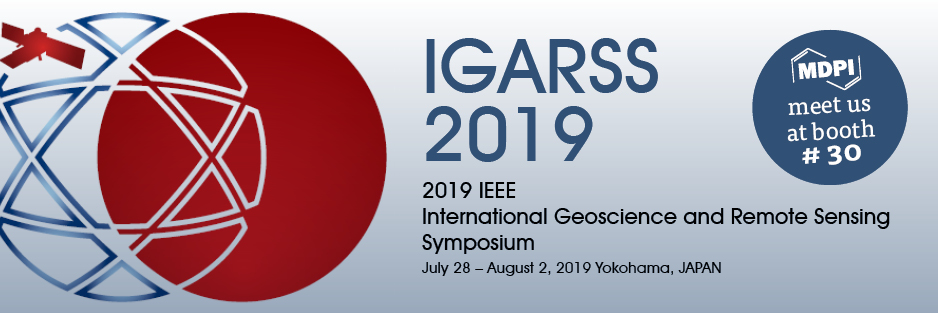
MDPI will be attending the 2019 IEEE International Geoscience and Remote Sensing Symposium, to be held in Yokohama, Japan, 28 July – 2 August 2019.
This conference will be the 39th annual IGARSS symposium and will continue the excellent tradition of gathering world-class scientists, engineers and educators engaged in the fields of geoscience and remote sensing. We believe that the additional scientific themes of this event, focusing on 'Disasters and Environment' will allow the formation of an inspiring technical program.
IGARSS is recognized today as a premier event in remote sensing and provides an ideal forum for obtaining up-to-date information about the latest developments, exchanging ideas, identifying future trends in your research area and making contacts with the international remote sensing community. With intensive and careful planning underway we anticipate a technically outstanding and most pleasant symposium.
The following MDPI journals will be represented:
Remote Sensing
IJGI
Sensors
Water
Geosciences
Atmosphere
Land
Forests
JMSE
Sustainability
If you are also attending this conference, please feel free to stop by our booth (Booth # 30). Our delegates look forward to meeting you in person to answer any questions you may have. For more information about the conference, please visit https://igarss2019.org/CallForSponsorsExhibitors.asp.
20 March 2019
Fostering Open Access Publishing Worldwide: New IOAP Participants in February and March 2019
We are pleased to welcome more universities from Poland, Italy, Germany, Brazil and other parts of the world to MDPI's Institutional Open Access Program (IOAP). A warm welcome to the institutions listed below, who have joined the Program in February and March this year.
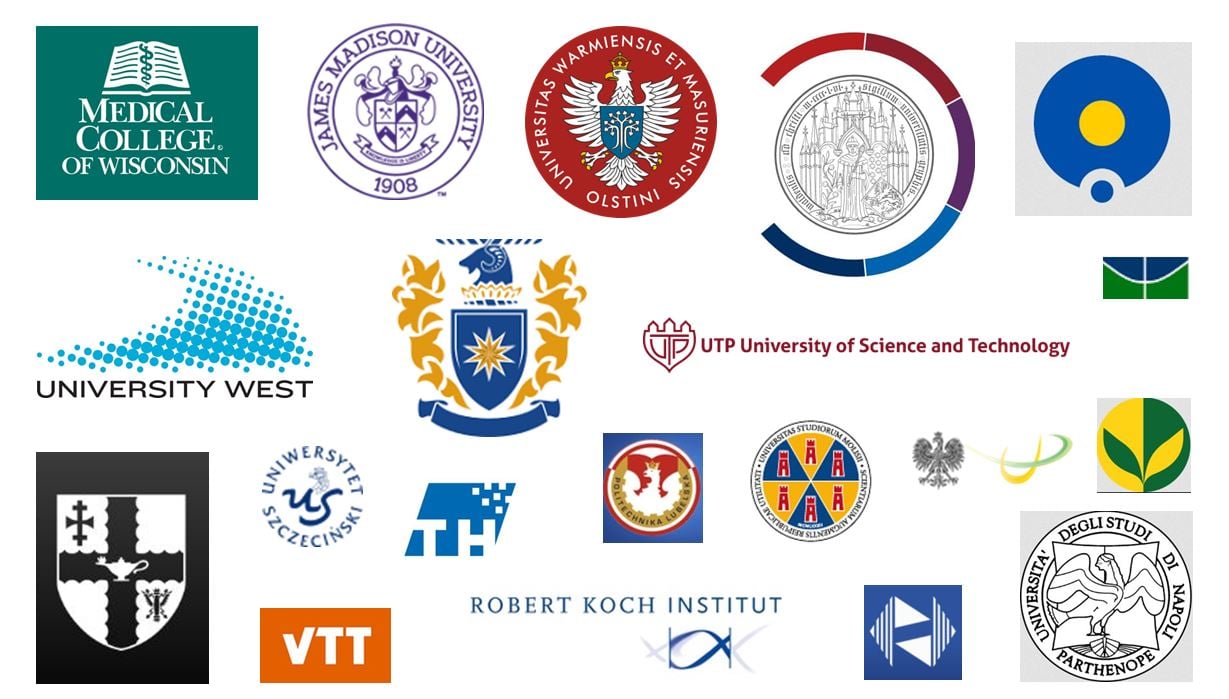
Authors affiliated with these institutions can now enjoy a discount on the APC for papers accepted for publication in any MDPI journal. If you would like to learn more about our program, please visit: https://www.mdpi.com/about/ioap or email us at ioap@mdpi.com.
5 March 2019
MDPI Joins Jisc’s Publications Router Service
We are delighted to announce our participation in Jisc’s Publication Router project, as of March 2019.
Publications Router is a Jisc service that automatically sends notifications about research articles to institutions' systems such as their repositories or CRISs, since May 2015. Through this agreement, MDPI will provide Jisc with daily feeds and information regarding published articles, which will be gathered by their system and delivered to institutions also registered to this service. Nearly all of our articles are published within 15 days of acceptance, so institutions will receive them quite promptly.
The feed will include the full text of the published version of record, with no embargo, so the articles can be exposed immediately for public view. They are accompanied by rich metadata, including confirmation of the immediate CC BY licence, minimising the need for any manual intervention or checking.
For more information about Publications Router, you may contact Jisc’s central helpdesk at help@jisc.ac.uk. For any queries about MDPI’s institutional agreements and collaborations, you may get in touch with MDPI’s Institutional Engagement team at ioap@mdpi.com, which would be very happy to hear from further UK institutions.
28 February 2019
Professor L. Monika Moskal Appointed Section Editor-in-Chief in Forests
We are pleased to announce that Prof. Dr. L. Monika Moskal was appointed Section Editor-in-Chief for the Section ''Forest Inventory, Quantitative Methods and Remote Sensing''.

Dr. Moskal is an Associate Professor of Remote Sensing in the School of Environmental and Forest Sciences (SEFS), within the College of the Environment. She serves as the Associate Director of SEFS, Director of the Precision Forestry Cooperative (PFC), and Director of the Remote Sensing and Geospatial Analysis Laboratory (RSGAL) at the University of Washington (UW) in Seattle, USA.
Professor Moskal is affiliated with the UW BioEnergy IGERT, the UW Interdisciplinary PhD Program and the UW Department of Geography. She is also a Visiting Associate Professor at Keio University, Global Environmental System Leader Program, Graduate School of Science and Technology and Graduate School of Media and Governance, Japan. Dr. Moskal earned her PhD in Remote Sensing and GIS from the University of Kansas, her Master’s in Remote Sensing from the University of Calgary and her Bachelor’s of Environmental Sciences from the University of Waterloo.
1 February 2019
2018 MDPI Top Reviewer Award—Winners Announced
Rigorous peer-review is the cornerstone of high quality academic publishing. Over 97,000 scholars served as reviewers for MDPI journals in 2018. We are extremely appreciative of all those who made a contribution to the editorial process in this capacity. At the beginning of every year, journal editorial offices publish a list all reviewers’ names to express our gratitude. In addition, this year the “MDPI Top Reviewer Awards” are announced, to recognize the very best reviewers for their expertise, dedication, high quality, and timely review reports. We are pleased to announce the following winners of the 2018 MDPI Top Reviewer Awards:
- Ali Behnood
- Andrea Pezzuolo
- Angela Gorgoglione
- Anna D'Auria
- Antonio D'Andrea
- Azhar Abbas
- Bogdan Zagajewski
- Chunhui Chen
- Dominika Głąbska
- Dominika Guzek
- Dragan Pamucar
- Francisco J. G. Silva
- Frank Li
- Gianluca Serafini
- Gyorgy Szekely
- Haozhi Pan
- Helvi Heinonen-Tanski
- José Manuel Gómez-Soberón
- Kathy Lewis
- Klara Kosova
- Luis N. López De Lacalle
- M. Z. Naser
- Malwina Tytła
- Masoume Amirkhani
- Matteo Ghidelli
- Moretti Laura
- Petra Schneider
- Roberto Cerchione
- Spyros Papaefthymiou
- Ştefan Cristian Gherghina
24 January 2019
Dr. Cate Macinnis-Ng and Professor Stefan Arndt Appointed Section Editors-in-Chief in Forests
We are pleased to announce that Dr. Cate Macinnis-Ng and Professor Stefan Arndt were appointed Section Editors-in-Chief for the Section 'Forest Ecophysiology and Biology'.

Dr. Cate Macinnis-Ng is an Associate Investigator in the School of Biological Sciences at the University of Auckland. She is a plant ecophysiologist and ecohydrologist specialising in water and carbon fluxes of trees and other vegetation.

Professor Stefan Arndt completed his PhD in plant ecophysiology at the University of Vienna in 2000 and is working at the School of Ecosystem and Forest Sciences of the University of Melbourne since 2002. The major focus of his research is on the interface between plants and their environment. He is particularly interested to understand the physiological responses of plants to their abiotic and biotic environment and the role of plants in the functioning of ecosystems.
We are confident that the strong academic backgrounds and connections of the Editors will help continue to raise Forests' prestige and quality, while maintaining the efficiency of manuscript processing that Forests authors have come to expect.
24 January 2019
JAMS Journals: A Low-Cost Publishing Platform

Since 2010, MDPI has run its own online submission system. More recently, we have made the software, with accompanying publishing services, available to other publishers as JAMS (Journal and Article Management System). We are now delighted to announce the launch of JAMS Journals, a standardized platform for operating open access journals at low cost.
JAMS Journals provides a comprehensive service, including a shared submission website, journal websites hosted at a URL provided by the publisher, and a full production service. There is a small setup fee and the cost for each published paper is just a few hundred Swiss francs.
The platform demonstrates that running an open access journal can be straightforward and affordable. The JAMS Journals platform is suitable for
- small publishers or groups of scholars looking to launch their own journal;
- existing publishers or societies seeking to explore open access options;
- publishers looking to convert an existing subscription journal to open access.
JAMS journals launches with two journals from Canadian-based publisher Etcetera Publications:
- Canadian Journal of Pesticides & Pest Management (http://www.cjppm.ca)
- Nanotechnology in Agriculture, Food & Environment (http://www.nanoafe.ca)
Dr AJ Al-Rajab (President of Etcetera Publications) comments:
“In the past few months, we were working on our project to launch new open access scientific journals in the field of agricultural and environmental sciences. We decided to go with JAMS for this venture because of the high quality of their services, reasonable prices, professionalism and easy communication. Our portfolio is expected to grow rapidly during 2019 to include more titles covering different areas in agriculture and environment. MDPI earned already our complete satisfaction and we are looking for a long term cooperation.”
Alongside the new platform, we continue to provide flexible, tailored journal management solutions for existing publishers. For any questions or to request a quotation, contact Dr. Constanze Schelhorn (constanze.schelhorn@mdpi.com).
24 January 2019
Popularity of Preprints Continues to Grow

2018 was a great year for preprints, with increasing numbers of authors looking to make their papers available online before peer review. Along with other preprint servers, our platform Preprints.org saw an increase in the uptake from authors, and more than double the number of announced papers compared to 2017. In fact, we recently passed two important milestones: 8000 preprints online and 30,000 authors.
We believe that the whole research community has the opportunity to benefit from work being available online as early as possible. We thank and congratulate our authors for supporting us to make this goal a reality.
In 2019, we will be looking carefully at how to provide better value for authors, maintain efficiency while growing in size, and make sure we remain well-connected with the research community.
If you want to participate, you can consider screening preprints or joining our advisory board. And, of course, posting your own work.
9 January 2019
Open Access Agreement between the Austrian Academic Library Consortium (KEMÖ), the Austrian Science Fund (FWF), and MDPI

We are delighted to announce the establishment of our national Open Access agreement with the Austrian Academic Library Consortium (KEMÖ) and the Austrian Science Fund (FWF). Through this national agreement, the Austrian institutions listed below as well as FWF will cover the Article Processing Charges (APC) of manuscripts published by eligible corresponding or funded authors in MDPI journals as long as central funds are available.
All participating institutions have gained access to the MDPI online submission system where they can find full article metadata and pricing information as well as Funder and Grant ID details for easy identification and additional transparency. At the same time eligible authors are benefited from an APC discount which comes at no cost for the institutions.
Eligible corresponding authors affiliated with the participating institutions are prompted to choose the corresponding Institutional Open Access Program (IOAP) when they submit an article via our online submission system. The program will be selected automatically if authors submit their papers using their institutional email address. To claim their discount, FWF funded authors should choose the particular funder and add their Grant ID upon online submission of their manuscript. The institutions will then crosscheck the information and confirm the APC funding.
Eligible authors that have their APC covered by their institution or funder are advised to include the following sentence in their acknowledgments: "Open Access Funding by the [name of the institution/funder]".
The full text of the agreement is openly available online at: http://doi.org/10.5281/zenodo.2536007
For any questions about the agreement, please contact the KEMÖ Consortium at emedien@obvsg.at, FWF at Katharina.Rieck@fwf.ac.at, or the MDPI IOAP team at ioap@mdpi.com.
The Austrian institutions participating in this agreement are:
- Austrian Science Fund (FWF)
- University for Continuing Education Krems
- University of Applied Sciences BFI Vienna
- University of Applied Sciences Upper Austria
- University of Applied Sciences Technikum Wien
- Vorarlberg University of Applied Sciences
- International Institute for Applied Systems Analysis (IIASA)
- Institute of Science and Technology Austria
- MCI Management Center Innsbruck
- University of Graz
- University of Linz
- University of Salzburg
- Graz University of Technology
- TU Wien
- University of Veterinary Medicine Vienna
- University of Vienna
This is our first collective agreement with a national library consortium, while the individual institutions around the world participating in our IOAP are now more than 500 - see details here: https://www.mdpi.com/about/ioap. We would be mostly interested in discussing about possible collaborations with other consortia, funders, and institutions in our mutual efforts to accelerate Open Access.
2 January 2019
Encyclopedia—the Scholarly Community Encyclopedia

We are pleased to announce the new platform Encyclopedia, which is an online reference created and curated by active scholars. It aims to highlight the latest research results as well as providing benchmark information for researchers and the general public interested in accurate and advanced knowledge on specific topics.
We encourage authors of review articles to quote and adapt the content of their published papers to create Encyclopedia entries. You can create completely new entries on topics in which you have knowledge and expertise. There is no limit on the topics or research fields. All of science and the humanities are included. Each entry will be published directly after submission.
We also have prepared a DOI application function in Encyclopedia. Once a DOI application is approved, the entry website will announce the DOI number and a pdf version with DOI information will be automatically created.
We look forward to your contributions and hope you will make use of this service. Find more about the service at: https://encyclopedia.pub/
31 October 2018
Meet Us at the BES Annual Meeting 2018 in Birmingham, UK, 16–19 December 2018

MDPI will be attending the British Ecological Society Annual Meeting 2018, to be held in Birmingham, UK, 16–19 December 2018.
Over the last 40 years, the British Ecological Society Annual Meeting has grown into Europe’s largest and most influential annual event dedicated to ecology. In 2018, the British Ecological Society staging the Annual Meeting at the ICC in the heart of Birmingham. From 16–19 December 2018, 1600 ecologists—many of them world leaders in their field—representing business, academia, professional bodies, and NGOs from across the world, will converge in the United Kingdom’s second largest city for #BES2018.
The following MDPI journals will be represented:
Sustainability
Forests
Land
Climate
Life
Challenges
If you are also attending this conference, please feel free to stop by our booth (Stand #F). Our delegates look forward to meeting you in person to answer any questions you may have. For more information about the conference, please visit: https://www.britishecologicalsociety.org/events/bes2018/.
30 October 2018
Institutional Open Access Agreement between Bill and Melinda Gates Foundation and MDPI
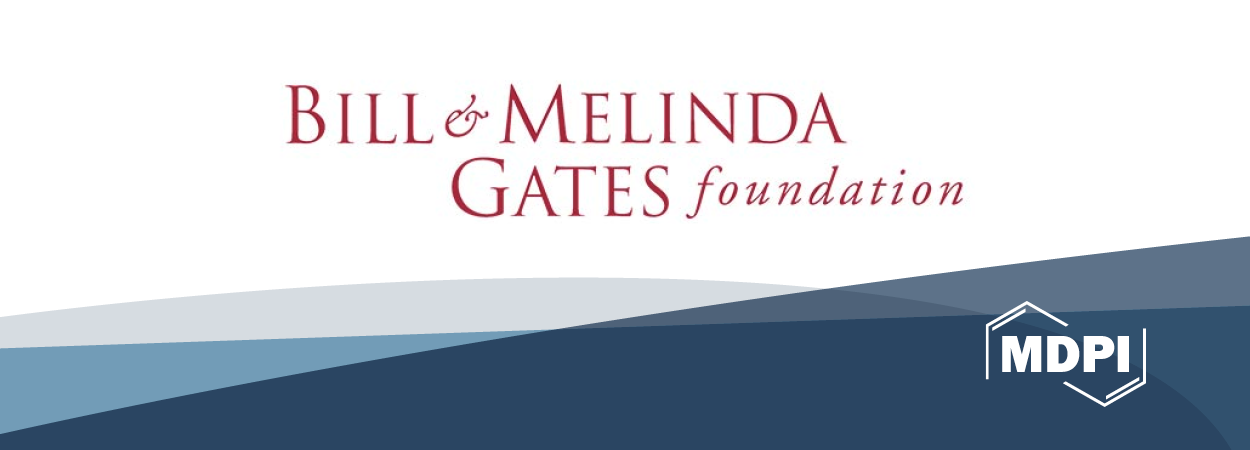
We are delighted to announce that the Bill and Melinda Gates Foundation (BMGF) is now a participant of our Institutional Open Access Program (IOAP). Authors funded by the BMGF can enjoy discounts on the APC, while the funder covers the costs of eligible articles centrally. BMGF also has access to the MDPI online submission system where they can find full article metadata and pricing information as well as Grant ID details for easy identification and additional transparency.
We hope that funded authors find the programme beneficial and we are happy to offer our IOAP to other funders that need a streamlined workflow of compliance checking and APC coverage.
To claim their discount, BMGF funded authors should choose the particular funder and add their Grant ID upon online submission of their manuscript.
For any questions about the BMGF agreement, please contact the funder at support@chronos-oa.com or the MDPI IOAP team at ioap@mdpi.com.
2 October 2018
MDPI Welcomes Plan S
Recently, it was announced that a group of European funders supported 10 principles that will help to expand open access, known as Plan S. MDPI warmly welcomes this move as a step towards achieving more open and accessible communication of research across all disciplines. Some aspects remain to be clarified, however the details given so far match the aims and values that MDPI has held over the past two decades.

We believe that open access publishers should be active participants in discussions around Plan S, particularly regarding potential new business models and practical aspects of implementation. MDPI supports APCs as a transparent unit of payment for article publishing, however we are committed to exploring other measures and recently signed the Jussieu Call. Sustainability is a key value for MDPI, and future funding models should have at their heart the sustainability of knowledge and research dissemination. Plan S provides an opportunity for funders and publishers to directly discuss funding of open access journals in ways that are beneficial to all parties involved.
30 August 2018
MDPI establishes Open Access agreement with Qatar National Library

We are happy to announce the establishment of an Open Access (OA) agreement with Qatar National Library (QNL). QNL is committed to supporting and helping Qatar authors publish OA at no cost. Through this national agreement, QNL will cover the Article Processing Charges (APC) of manuscripts published by Qatar-based corresponding authors in MDPI journals.
Eligible corresponding authors affiliated with Qatar research centers and universities are prompted to choose QNL as part of our Institutional Open Access Program (IOAP) when they submit an article via our online submission system. The program will be selected automatically if authors submit their papers using their institutional email and/or a computer registered with the institution’s IP range. QNL will then crosscheck the information and confirm the APC funding.
Qatar authors that have their APC covered by QNL are advised to include the following sentence in their acknowledgments: "The publication of this article was funded by Qatar National Library".
For more information, please visit Open Access at QNL or email the QNL Open Access team at openaccess@qnl.qa.
28 June 2018
Meet us at the 2018 Society of American Foresters National Convention (2018 SAF) in Portland, USA

The journal Forests will be represented at the SAF National Convention 2018, which will be held in Portland, USA, 3–7 October 2018.
From an overview of Pacific Northwest forests to perspectives on how and why science and science communication should remain policy-neutral and the challenges of transforming forest policy into effective natural resource management, plenary sessions will consider the role of science in policy decisions such as wildland fire policies, as well as the role of scientists and managers in the policy process.
If you are also attending this conference, please feel free to stop by our booth (Booth #703) to meet the Forests editorial team. Our delegates look forward to meeting you in person and will be able to answer any questions you may have regarding open access publishing or our journals. For more information about the conference, please visit: https://www.eforester.org/SAFConvention_18/.
26 June 2018
2017 Impact Factor Released for Forests: 1.956
We are pleased to inform that Forests received an updated Journal Impact Factor of 1.956 in the June 2018 release of the Journal Citation Reports®. The journal's 5-Year Impact Factor is 2.252. Forests now ranks 18/66 (Q2) in the 'Forestry' category.
Overview of Citation Metrics:
- Journal Impact Factor, 2 yrs (2017): 1.956
- 5-Year Impact Factor (2017): 2.252
- CiteScore, 3 yrs (Scopus): 2.31
- SJR Scimago Journal Rank 2017 (SJR): 0.812
- Source Normalized Impact 2017 (SNIP): 0.990
Evolution of Impact Factor, Citations and Publications for Forests:
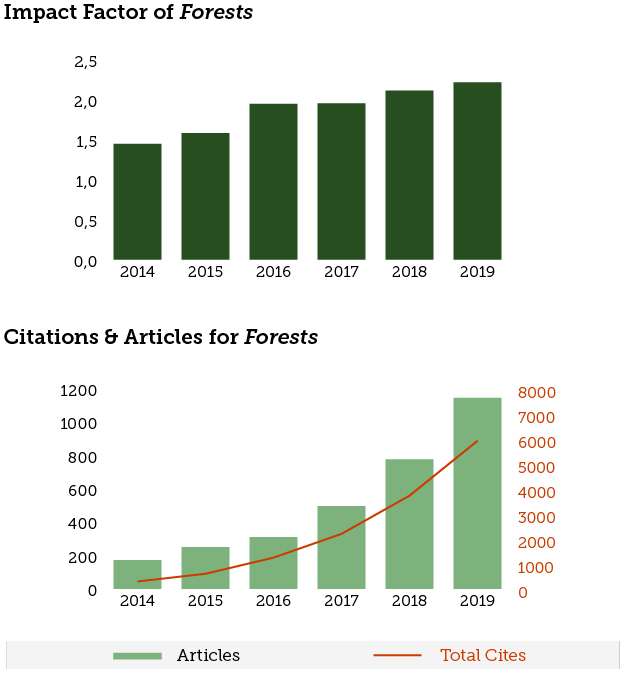
1 June 2018
Forests 2017 CiteScore™ Announced - 2.31
We are pleased to report Forests received a CiteScore of 2.31 for 2017. The metric reflects citation activity in 2017 in Scopus for papers published in the period 2014‒2016.
For the full details in the current CiteScore release, please see the journal's Source profile. To check the full list of MDPI journals receiving CiteScores, please see here.
31 May 2018
2017 CiteScore™ Metrics Released
The 2017 CiteScore™ data is available now, based on citation data in the Scopus® database. The current CiteScore reflects citation activity in 2017 for articles published in 2014‒2016. Please note that the list below includes journals assigned a CiteScore in this year’s release. For a full list of journals indexed in Scopus, please see our journal list.
Thirteen of our journals received a CiteScore which is in the top 10% of the distribution in at least one of the categories (marked with * in the table below), while a further 32 journals exhibit scores that are in the first quartile of the respective categories.
To access the full data for MDPI journals, please see here. More data can also be found in SJR Scimago Journal & Country Rank.
Unlike CiteScores and the widely used Journal Impact Factors, the Source Normalized Impact per Paper (SNIP) metrics are normalized in order to correct for differences in citation practices between scientific fields. Therefore, the SNIP allows direct comparison between journals specialized in different fields.
According to 2017 data, MDPI publishes six journals with an average citation impact, or SNIP, in excess of 1.500. These journals are Biomolecules, Cancers, Journal of Clinical Medicine (JCM), Marine Drugs, Remote Sensing and Sensors (see the last column in the table below).
CiteScore Data for MDPI Journals
| Journal | Rank (Quartile) |
Category | Link | CiteScore 2017 | 2016 |
2015 |
SNIP 2017 |
| Aerospace | 43/116 (Q2) | • Aerospace Engineering | Link | 1.23 | - | - | 1.152 |
| Agriculture | 69/309 (Q1) 91/398 (Q1) 78/255 (Q2) |
• Agronomy and Crop Science • Plant Science • Food Science |
Link | 1.93 | - | - | 1.133 |
| Agronomy | 46/309 (Q1) | • Agronomy and Crop Science | Link | 2.38 | - | - | 1.115 |
| Algorithms | 22/46 (Q2) 61/125 (Q2) 60/107 (Q3) 64/114 (Q3) |
• Numerical Analysis • Computational Mathematics • Computational Theory and Mathematics • Theoretical Computer Science |
Link | 1.03 | 1.15 | 1.07 | 0.749 |
| Animals | 12/154 (Q1) * 48/367 (Q1) |
• General Veterinary • Animal Science and Zoology |
Link | 2.02 | 1.46 | 1.66 | 1.099 |
| Antibiotics | 6/68 (Q1) * 62/263 (Q1) 55/230 (Q1) 31/108 (Q2) 47/134 (Q2) 139/398 (Q2) |
• General Pharmacology, Toxicology and Pharmaceutics • Infectious Diseases • Pharmacology (medical) • Microbiology (medical) • Microbiology • Biochemistry |
Link | 2.85 | 1.65 | - | 0.975 |
| Antibodies | 43/143 (Q2) 61/164 (Q2) 85/189 (Q2) |
• Drug Discovery • Immunology and Allergy • Immunology |
Link | 2.85 | - | - | 0.844 |
| Antioxidants | 23/119 (Q1) 35/169 (Q2) 100/398 (Q2) 119/367 (Q2) 102/264 (Q2) |
• Clinical Biochemistry • Physiology • Biochemistry • Molecular Biology • Cell Biology |
Link | 3.42 | - | - | 1.361 |
| Applied Sciences | 48/270 (Q1) 15/66 (Q1) 31/116 (Q2) 18/53 (Q2) 151/434 (Q2) 186/535 (Q2) |
• General Engineering • Fluid Flow and Transfer Processes • Instrumentation • Process Chemistry and Technology • General Materials Science • Computer Science Applications |
Link | 1.90 | - | - | 0.801 |
| Biology | 12/177 (Q1)* 32/186 (Q1) 10/40 (Q1) |
• General Agricultural and Biological Sciences • General Biochemistry, Genetics and Molecular Biology • General Immunology and Microbiology |
Link | 3.48 | 3.02 | 2.78 | 0.961 |
| Biomolecules | 31/398 (Q1) * 41/367 (Q1) |
• Biochemistry • Molecular Biology |
Link | 5.72 | 1.67 | 3.08 | 1.542 |
| Biosensors | 20/119 (Q1) | • Clinical Biochemistry | Link | 3.59 | 2.83 | 2.37 | 1.122 |
| Brain Sciences | 47/111 (Q2) | • General Neuroscience | Link | 2.56 | - | - | 0.695 |
| Cancers | 26/323 (Q1) * 23/191 (Q1) |
• Oncology • Cancer Research |
Link | 5.82 | 5.02 | 4.07 | 1.567 |
| Catalysts | 32/151 (Q1) 21/46 (Q2) |
• Physical and Theoretical Chemistry • Catalysis |
Link | 3.23 | 3.44 | 3.45 | 0.954 |
| Crystals | 76/272 (Q2) 140/434 (Q2) 127/398 (Q2) 26/64 (Q2) |
• General Chemical Engineering • General Materials Science • Condensed Matter Physics • Inorganic Chemistry |
Link | 1.97 | 1.89 | 1.47 | 0.745 |
| Diagnostics | 49/119 (Q2) | • Clinical Biochemistry | Link | 2.43 | - | - | 0.788 |
| Diversity | 30/124 (Q1) 14/52 (Q2) 83/306 (Q2) 11/29 (Q2) |
• Nature and Landscape Conservation • Agricultural and Biological Sciences (miscellaneous) • Ecology • Ecological Modelling |
Link | 2.15 | 2.03 | 1.96 | 1.300 |
| Electronics | 109/644 (Q1) 26/148 (Q1) 42/224 (Q1) 50/259 (Q1) 23/96 (Q1) |
• Electrical and Electronic Engineering • Hardware and Architecture • Control and Systems Engineering • Computer Networks and Communications • Signal Processing |
Link | 2.97 | - | - | 1.227 |
| Energies | 6/73 (Q1) * 31/192 (Q1) 103/644 (Q1) 4/16 (Q1) 47/140 (Q2) |
• Control and Optimization • Energy Engineering and Power Technology • Electrical and Electronic Engineering • Energy (miscellaneous) • Renewable Energy, Sustainability and the Environment |
Link | 3.11 | 2.50 | 2.87 | 1.340 |
| Entropy | 35/202 (Q1) | • General Physics and Astronomy | Link | 2.41 | 1.87 | 1.99 | 1.189 |
| Forests | 17/129 (Q1) | • Forestry | Link | 2.31 | 2.06 | 1.76 | 0.990 |
| Future Internet | 132/259 (Q3) | • Computer Networks and Communications | Link | 1.25 | - | - | - |
| Games | 132/187 (Q3) 78/110 (Q3) 305/418 (Q3) |
• Statistics and Probability • Statistics, Probability and Uncertainty • Applied Mathematics |
Link | 0.61 | 0.87 | 0.57 | 1.038 |
| Genes | 21/91 (Q1) 74/311 (Q1) |
• Genetics (clinical) • Genetics |
Link | 3.49 | 3.62 | 3.18 | 0.374 |
| Geosciences | 32/182 (Q1) |
• General Earth and Planetary Sciences | Link | 1.97 | 1.67 | 1.29 | 0.856 |
| Information | 143/251 (Q3) | • Information Systems | Link | 1.16 | 0.78 | 0.94 | 1.146 |
| Insects | 27/135 (Q1) | • Insect Science | Link | 1.85 | 1.81 | 1.38 | 0.719 |
| International Journal of Environmental Research and Public Health (IJERPH) | 80/478 (Q1) 34/106 (Q2) |
• Public Health, Environmental and Occupational Health • Health, Toxicology and Mutagenesis |
Link | 2.41 | 2.38 | 2.42 | 0.931 |
| International Journal of Molecular Sciences (IJMS) | 7/69 (Q1) * 61/535 (Q1) 20/163 (Q1) 9/64 (Q1) 26/151 (Q1) 89/367 (Q2) 17/46 (Q2) |
• Spectroscopy • Computer Science Applications • Organic Chemistry • Inorganic Chemistry • Physical and Theoretical Chemistry • Molecular Biology • Catalysis |
Link | 3.86 | 3.73 | 3.37 | 0.998 |
| ISPRS International Journal of Geo-Information (IJGI) | 79/605 (Q1) 22/82 (Q2) 13/36 (Q2) |
• Geography, Planning and Development • Earth and Planetary Sciences (miscellaneous) • Computers in Earth Sciences |
Link | 2.10 | 1.62 | 1.52 | 1.062 |
| Journal of Clinical Medicine (JCM) | 10/841 (Q1) * | • General Medicine | Link | 7.07 | - | - | 1.535 |
| Journal of Functional Biomaterials (JFB) | 43/199 (Q1) 23/77 (Q2) |
• Biomedical Engineering • Biomaterials |
Link | 3.47 | - | - | 1.344 |
| Journal of Low Po- wer Electronics and Applications (JLPEA) |
301/644 (Q2) | • Electrical and Electronic Engineering | Link | 1.12 | 0.98 | 0.83 | 0.367 |
| Journal of Personalized Medicine (JPM) | 54/189 (Q2) | • Medicine (miscellaneous) | Link | 2.61 | - | - | 0.944 |
| Land | 50/124 (Q2) 129/306 (Q2) 36/65 (Q3) |
• Nature and Landscape Conservation • Ecology • Global and Planetary Change |
Link | 1.44 | - | - | 0.658 |
| Life | 4/94 (Q1) * 70/561 (Q1) 40/186 (Q1) 20/80 (Q2) |
• Palaeontology • Ecology, Evolution, Behavior and Systematics • General Biochemistry, Genetics and Molecular Biology • Space and Planetary Science |
Link | 3.16 | 2.95 | 1.68 | 0.935 |
| Marine Drugs | 17/146 (Q1) | • Drug Discovery | Link | 4.58 | 3.83 | 3.66 | 1.537 |
| Materials | 83/434 (Q1) | • General Materials Science | Link | 3.02 | 3.26 | 3.11 | 1.285 |
| Membranes | 5/18 (Q2) 15/53 (Q2) 4/10 (Q2) |
• Chemical Engineering (miscellaneous) • Process Chemistry and Technology • Filtration and Separation |
Link | 2.69 | 2.19 | 2.95 | 0.880 |
| Metabolites | 47/209 (Q1) 103/398 (Q2) 127/367 (Q2) |
• Endocrinology, Diabetes and Metabolism • Biochemistry • Molecular Biology |
Link | 3.35 | - | - | 0.925 |
| Metals | 155/434 (Q2) | • General Materials Science | Link | 1.87 | - | - | 0.955 |
| Micromachines | 105/554 (Q1) 154/644 (Q1) 64/224 (Q2) |
• Mechanical Engineering • Electrical and Electronic Engineering • Control and Systems Engineering |
Link | 2.31 | 1.83 | 1.78 | 0.987 |
| Minerals | 33/175 (Q1) 45/208 (Q1) |
• Geotechnical Engineering and Engineering Geology • Geology |
Link | 2.21 | 2.13 | 1.77 | 1.149 |
| Molecules | 4/25 (Q1) 25/172 (Q1) 18/104 (Q1) 31/163 (Q1) 30/151 (Q1) 31/146 (Q1) 55/160 (Q2) |
• Chemistry (miscellaneous) • Pharmaceutical Science • Analytical Chemistry • Organic Chemistry • Physical and Theoretical Chemistry • Drug Discovery • Molecular Medicine |
Link | 3.27 | 3.09 | 2.65 | 1.146 |
| Nutrients | 11/255 (Q1) * 9/112 (Q1) * |
• Food Science • Nutrition and Dietetics |
Link | 4.35 | 4.29 | 4.07 | 1.403 |
| Pathogens | 38/263 (Q1) 20/108 (Q1) 9/40 (Q1) 40/164 (Q1) 110/367 (Q2) |
• Infectious Diseases • Microbiology (medical) • General Immunology and Microbiology • Immunology and Allergy • Molecular Biology |
Link | 3.52 | - | - | 1.166 |
| Pharmaceuticals | 14/172 (Q1) * 33/160 (Q1) |
• Pharmaceutical Science • Molecular Medicine |
Link | 4.12 | 4.90 | 3.64 | 1.370 |
| Pharmaceutics | 21/172 (Q1) | • Pharmaceutical Science | Link | 3.68 | 3.83 | 2.68 | 1.092 |
| Photonics | 30/116 (Q1) 80/270 (Q2) 53/160 (Q2) |
• Instrumentation • Radiology Nuclear Medicine and Imaging • Atomic and Molecular Physics, and Optics |
Link | 1.96 | - | - | 0.817 |
| Plants | 73/561 (Q1) 48/389 (Q1) 44/306 (Q1) |
• Ecology, Evolution, Behavior and Systematics • Plant Science • Ecology |
Link | 3.13 | - | - | 0.969 |
| Polymers | 17/142 (Q1) 63/359 (Q1) |
• Polymers and Plastics • General Chemistry |
Link | 3.30 | 3.74 | 3.37 | 1.213 |
| Religions | 26/389 (Q1) * | • Religious Studies | Link | 0.56 | - | - | 0.676 |
| Remote Sensing | 13/182 (Q1) * | • General Earth and Planetary Sciences | Link | 4.03 | 3.56 | 3.76 | 1.559 |
| Resources | 19/142 (Q1) 39/261 (Q1) |
• Nature and Landscape Conservation • Management, Monitoring, Policy and Law |
Link | 2.69 | - | - | 1.387 |
| Scientia Pharmaceutica | 92/172 (Q3) | • Pharmaceutical Science | Link | 0.86 | - | - | 0.513 |
| Sensors | 9/116 (Q1) * 25/160 (Q1) 100/644 (Q1) 19/104 (Q1) 113/398 (Q2) |
• Instrumentation • Atomic and Molecular Physics, and Optics • Electrical and Electronic Engineering • Analytical Chemistry • Biochemistry |
Link | 3.23 | 2.78 | 2.21 | 1.550 |
| Social Sciences | 81/213 (Q2) | • General Social Sciences | Link | 0.60 | - | - | 0.445 |
| Sustainability | 61/605 (Q1) * 55/261 (Q1) 60/140 (Q2) |
• Geography, Planning and Development • Management, Monitoring, Policy and Law • Renewable Energy, Sustainability and the Environment |
Link | 2.37 | 1.96 | 1.78 | 1.030 |
| Symmetry | 44/327 (Q1) 17/45 (Q2) 16/40 (Q2) 14/25 (Q2) |
• General Mathematics • Computer Science (miscellaneous) • Physics and Astronomy (miscellaneous) • Chemistry (miscellaneous) |
Link | 1.32 | 1.12 | 0.95 | 0.802 |
| Toxins | 18/106 (Q1) 21/111 (Q1) |
• Health, Toxicology and Mutagenesis • Toxicology |
Link | 3.32 | 3.34 | 3.76 | 1.136 |
| Vaccines | 5/230 (Q1) * 13/263 (Q1) * 18/302 (Q1) * 11/146 (Q1) * 32/189 (Q1) |
• Pharmacology (medical) • Infectious Diseases • Pharmacology • Drug Discovery • Immunology |
Link | 4.88 | 1.23 | 3.76 | 1.255 |
| Viruses | 29/263 (Q1) 16/68 (Q1) |
• Virology • Infectious Diseases |
Link | 3.88 | 3.60 | 3.74 | 1.130 |
| Water | 66/605 (Q1) 37/191 (Q1) 43/199 (Q1) 193/398 (Q2) |
• Geography, Planning and Development • Water Science and Technology • Aquatic Science • Biochemistry |
Link | 2.29 | 2.05 | 1.96 | 1.007 |
2 May 2018
Meet us at the ESA Annual Meeting 2018 in New Orleans, Louisiana
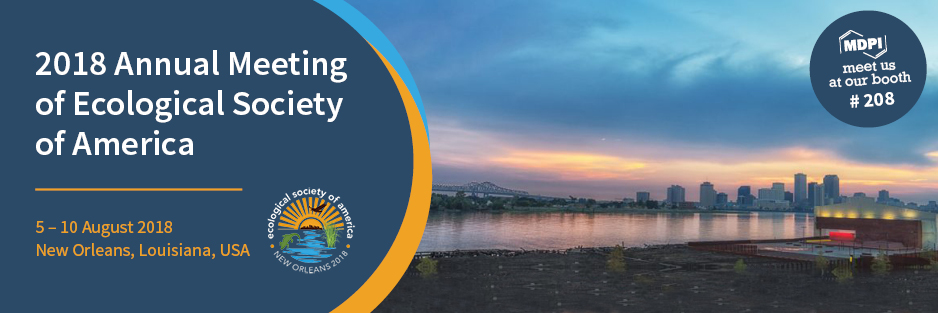
MDPI will be represented at the ESA Annual Meeting 2018 which will be held in New Orleans, Louisiana, 5–10 August 2018.
Extreme events, such as heat waves, droughts, floods, fires and storms, are exacerbated by human activities and challenge populations, communities and ecosystems, as well as our human health and living conditions. The ability of ecosystems to respond to these challenges depends on the integrity of resilience mechanisms that have been severely undermined by land-use practices that increase effects of extreme conditions. Past civilizations, such as the Maya and Mesopotamians, apparently exacerbated the droughts (that caused their demise) through deforestation and agricultural practices similar to our own. Clearly, the sustainability of ecosystem services and human well-being depends on ecosystem resilience to extreme events.
The following MDPI journals will be represented:
If you are also attending this conference, please feel free to stop by our booth (Booth #208). Our delegates look forward to meeting you in person to answer any questions you may have regarding open access publishing or our journals. For more information about the conference, please visit: https://esa.org/neworleans/
30 April 2018
Winners of the First MDPI Writing Prize
We are pleased to announce the results of the first MDPI Writing Prize. We received a large number of entries from across the globe on the theme of “The Global Benefits of Open Research”. It was a pleasure to read so many original, well-researched and well-presented ideas, and the final choice was not an easy one. We are pleased to announce that the winners are as follows:
1st prize (500 CHF, Swiss knife and certificate)
Edmond Sanganyado, Shantou University, China
2nd prizes (250 CHF, Swiss knife and certificate)
Kamala T. Rajahgopal, Asia e University, Malaysia
Yin Zhixuan, Qingdao University of Technology, China
3rd prizes (100 CHF, Swiss knife and certificate)
Alexandra Ticea, Carol Davila University of Medicine and Pharmacy, Romania
Ankur Sarker, University of Virginia, USA
Daniel Attoye, United Arab Emirates University, UAE
Congratulations to all of them! The winning entries can be downloaded by clicking on the names above. A compilation of all entries will soon be available as an open access book.
The writing prize is sponsored by the MDPI English editing service.
27 April 2018
Meet Us at the 2018 ESA, ESC, and ESBC Joint Annual Meeting

Location: Vancouver Convention Center, Vancouver, Canada
Date: 11–14 November 2018
We will be attending the 2018 ESA, ESC, and ESBC Joint Annual Meeting (Entomology 2018) in Vancouver, Canada from November 11 to 14, 2018. The Entomological Society of America (ESA) is the largest organization serving the professional and scientific needs of entomologists and individuals in related disciplines from around the world. This Annual Meeting offers unique opportunities to share your research, gain exposure, and collaborate across border and across these three Societies. Connect with over 3,000 scientists and researchers from around the globe over the four science-filled days. Representatives of the following MDPI open access journals will attend:
Insects (https://www.mdpi.com/journal/insects)
Agriculture (https://www.mdpi.com/journal/agriculture)
Agronomy (https://www.mdpi.com/journal/agronomy)
Biology (https://www.mdpi.com/journal/biology)
Diversity (https://www.mdpi.com/journal/diversity)
Forests (https://www.mdpi.com/journal/forests)
If you are attending this conference, please stop by our booth (Booth #407). Our delegates look forward to meeting you in person and answering any questions you may have concerning open access publishing and our journals.
For more information about the conference, please visit:
24 April 2018
Winner of a Forests Travel Awards 2018 Presented at the US-IALE Annual Meeting in Chicago, IL, USA, April 8–12, 2018
We are pleased to announce that one of the winners of the 2018 Forests Graduate Student/Post-Doc Travel Awards is Ms. Monika Shea. Ms. Shea made a presentation at the US Regional Association of the International Association for Landscape Ecology (US-IALE) Annual Meeting in Chicago, IL, USA, April 8–12, 2018. She is a PhD student at the University of Wisconsin-Madison, Madison, WI, USA, studying the identification processes controlling vegetation in ecotones. The Chair of the US-IALE awards committee, Dr. Betty Kreakie presented Ms. Monika Shea with a certificate commemorating the award on 17 April 2018.
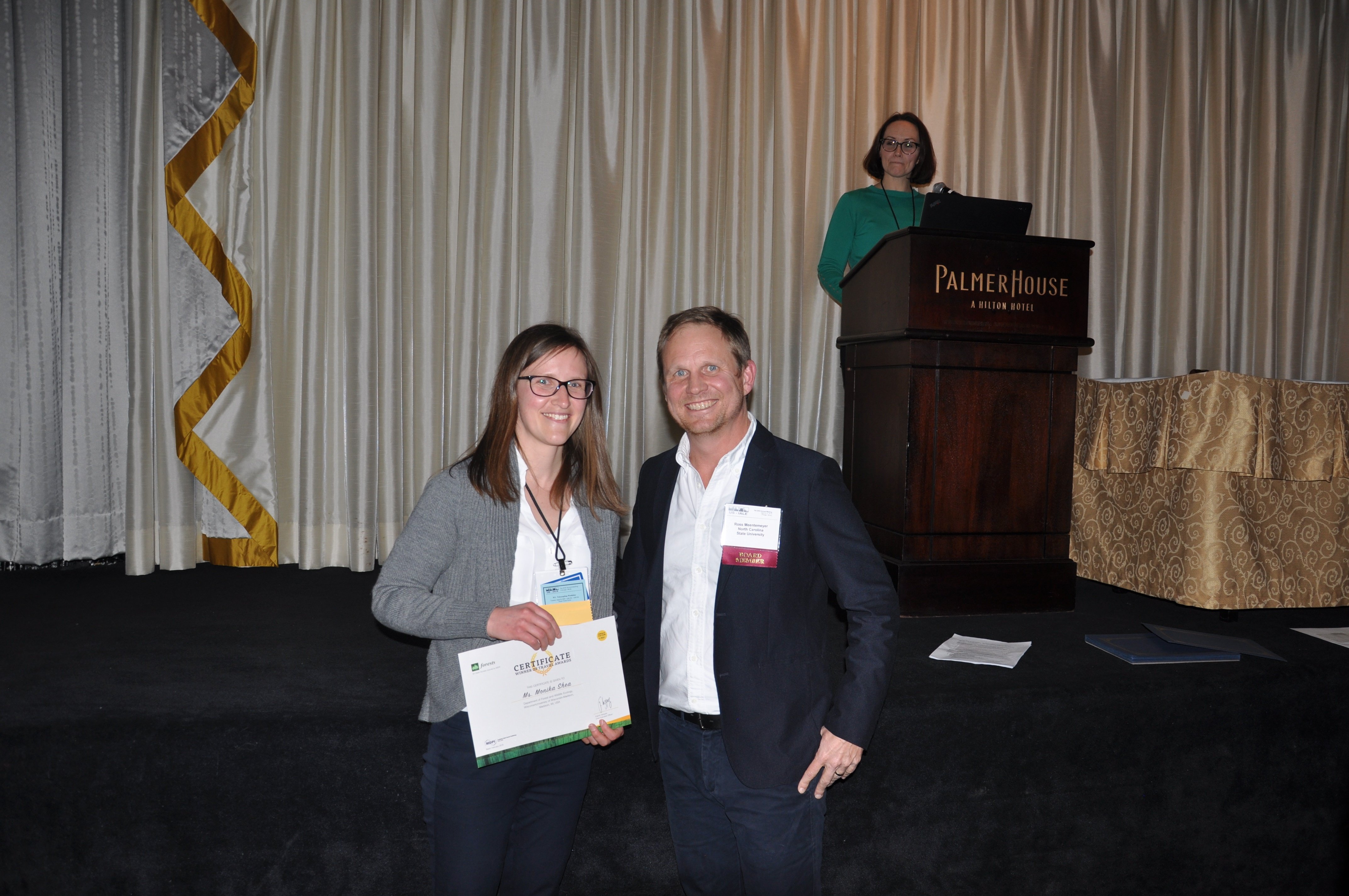
For more information about Forests Awards, please visit: https://www.mdpi.com/journal/forests/awards
23 March 2018
Check for Updates: A New Function in the Article PDF Version

At MDPI, we always want to keep you up to date. Even for already published articles, some corrections or minor changes may occur. To prevent you from missing any updates, from now on you will be able to access the latest version of any manuscript by clicking on the “check for updates” logo that you can find in the PDF file, even if you have saved the file on your computer.
13 March 2018
MDPI Becoming a Member of UKSG

We are proud to announce that MDPI is now a member of UKSG, the UK´s largest scholarly communications community. Through UKSG, different stakeholders share their knowledge and experience in order to improve the knowledge and information environment for researchers. UKSG´s members include universities, publishers, content providers, intermediaries, and other similar organisations. Members participate in discussions and events on issues around scholarly communications.
The UKSG Annual Conference and Exhibition is a flagship initiative from the UKSG and one of the most stimulating events in the scholarly communications calendar. It is held annually and attracts a large number of delegates. More information is available at https://www.uksg.org/events/annualconference
MDPI is delighted to be a part of this active community and we look forward to making our own contribution. We will continue to support organisations and initiatives that boost collaboration and vision within scholarly communication.
More information about UKSG can be found at https://www.uksg.org/. The full membership list is available at: https://www.uksg.org/members.
12 March 2018
New Section Editors-in-Chief for Forests
We are pleased to announce that we have instituted a Section Editor-In-Chief structure to spread all submissions to four Sections:
Editor-In-Chief: Prof. Dr. Timothy Martin
Section Editor-In-Chief of 'Forest Ecology and Management': Dr. Libby Pinkard
Section Editor-In-Chief of Section 'Forest Ecophysiology and Biology': Dr. Timothy Martin
Section Editor-In-Chief of 'Forest Economics and Human Dimensions': Dr. Damian C. Adams
Section Editor-In-Chief of 'Forest Inventory, Quantitative Methods and Remote Sensing': Dr. David Verbyla
We are confident that the strong academic backgrounds and connections of the Editors will help continue to raise Forests' prestige and quality, while maintaining the efficiency of manuscript processing that Forests authors have come to expect.
Dr. Timothy A. Martin is a professor in the School of Forest Resources and Conservation at the University of Florida. He also serves as a Co-Director for the Forest Biology Research Cooperative. His research program focuses on the physiological mechanisms controlling productivity, carbon and water flux in trees and forests.
Dr. Libby Pinkard is a Principal Research Scientist at CSIRO Land and Water, and a Group Leader for Forest and landscape Processes and Risks. Her research focuses on tree physiology, climate change, environmental stress, forest management and pests and diseases.
Dr. Damian C. Adams is an associate professor in the School of Forest Resources and Conservation at the University of Florida. His research primarily focuses on understanding how people value ecosystem goods and services, the impact of attitudes and preferences on those values, and translating that information to inform policy decisions.
Dr. David Verbyla is a professor in the Department of Natural Resources Management at the University of Alaska. His broad research interest is in GIS technology for resource inventory and climate change studies, integrating remote sensing and GIS for regional analysis and support for spatial analysis using GIS.
1 February 2018
MDPI Signed the San Francisco Declaration on Research Assessment (DORA)

The DORA initiative addresses the need for advanced approaches in the evaluation and measurement of the quality of scientific research outputs. It is a worldwide initiative covering all scholarly disciplines. MDPI proudly joins a list of more than 400 organizations around the world which support DORA’s recommendations for improving the way the quality of research results is evaluated.
More info can be found at http://www.ascb.org/dora/
29 December 2017
Meet Us at the EGU General Assembly 2018 in Vienna, 8–13 April 2018
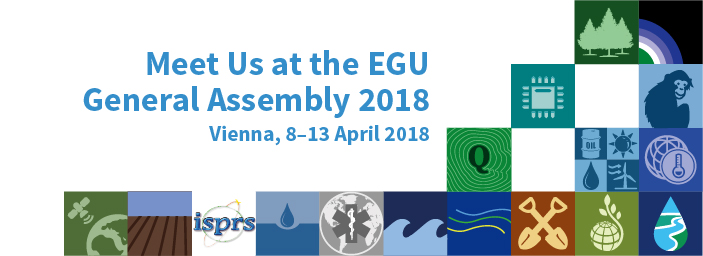
We will be attending the General Assembly 2018 of the European Geosciences Union (EGU) (https://egu2018.eu/home.html). The EGU General Assembly 2018 will bring together geoscientists from all over the world to one meeting covering all disciplines of the Earth, planetary and space sciences. It aims to provide a forum where scientists, especially early career researchers, can present their work and discuss their ideas with experts in all fields of geoscience. Representatives of the following open access journals will attend:
Remote Sensing
Geosciences
ISPRS International Journal of Geo-Information
Water
Animals
Atmosphere
Climate
Environments
Forests
Hydrology
International Journal of Environmental Research and Public Health (IJERPH)
Journal of Marine Science and Engineering
Land
Minerals
Resources
Quaternary
Sensors
If you are also attending this conference, please feel free to stop by our booth (Booth #36). Our delegates look forward to meeting you in person to answer any questions you may have. For more information about the conference, please visit: https://egu2018.eu/home.html.
19 December 2017
Announcing the MDPI English Writing Prize
The competition is still open until end of March! Please check out the banner for more details: https://mdpi-res.com/data/english-prize.pdf
18 December 2017
Congratulations to Forests Editorial Board Member Professor Ge Sun, the Researcher Recipient of Chief and Deputy Chief Awards, U.S. Forest Service
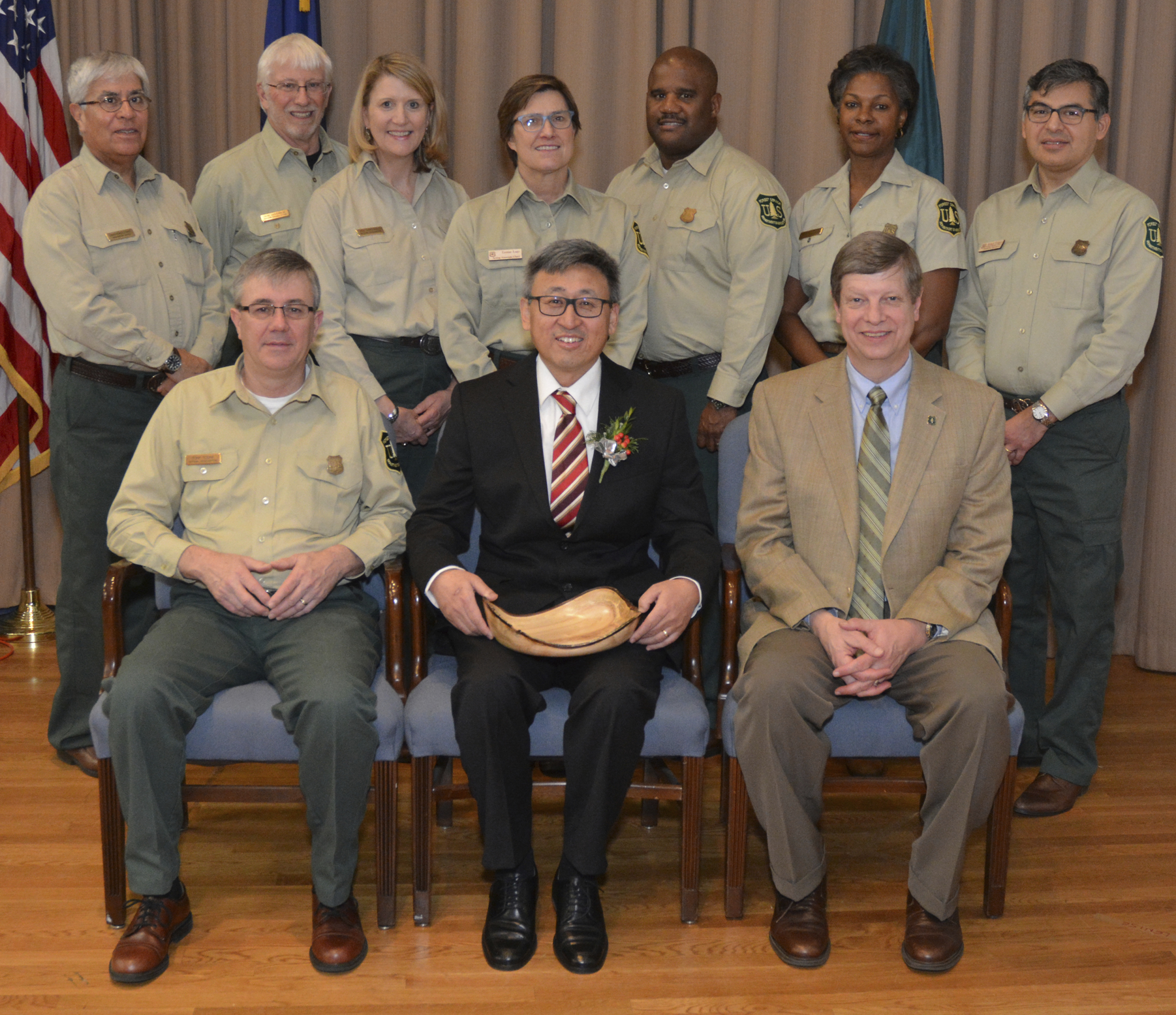
Professor Ge Sun, research hydrologist, is the recipient of both the U.S. Forest Service’s Deputy Chief’s Award for Distinguished Science and is also the recipient of a Chief’s Award in the category of Applying Knowledge Globally. Prof. Sun is being recognized for his research in forest hydrology, particularly the development and application of hydrological models and tools for global natural resource management. He will receive the Chief’s Award this December and the Deputy Chief’s award in February 2018.

15 December 2017
UCL Press Adopts the MDPI Editorial Platform JAMS
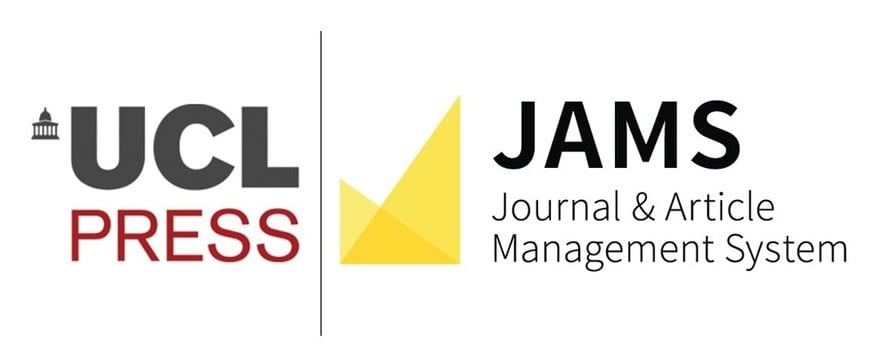
We are delighted to announce that UCL Press has adopted MDPI's Journal Article & Management System, JAMS, including production services. JAMS is a modular, integrated editorial platform for academic publishers. It offers flexibility, ease-of-use, and is a fully integrated solution for the end-to-end management of scholarly journals. JAMS is based on the software used to publish MDPI’s portfolio of journals.
Ian Caswell, UCL Press Journals Manager, says he is "excited to see UCL Press and MDPI partner together to implement the JAMS submission system for all UCL Press journals. The system offered a flexible, efficient and straightforward solution for our processes from author submission to ready for publication. I am grateful for the valuable experience and support MDPI have offered and look forward to developing our programme with an effective submission system in place.” Dr Martyn Rittman, MDPI’s Publishing Services Manager, adds, “We are proud to support one of the UK’s premier university presses in their publishing operation. This is an excellent way for us at MDPI to share our experience and knowledge, and benefit the research community beyond our own journals.”
JAMS combines services that are kept separate for many publishers. The entire editorial process, production and invoicing (e.g. for open access article processing charges) are fully integrated into a single platform. This allows for efficient, fast manuscript processing. For further information about JAMS, see https://www.mdpi.com/publishing_services.
23 November 2017
New Participants in the Institutional Open Access Program (IOAP)
We are pleased to welcome new participants to MDPI's Institutional Open Access Program (IOAP), designed to help institutions manage the transition to the Open Access publishing model. Researchers affiliated with participating universites benefit from a 10% discount on the Article Processing Charges (APC) for any paper published in an MDPI journal, while the participating library or university incurs no basic fee for participating in the program.
The IOAP set of free services, provided by MDPI to institutions that sign up, include:- No fee for participants and no obligation to prolong after the initial 12 months. The participants may withdraw from the programme at any time, and we will also keep it free for the library for as long as they continue in the programme.
- Authors affiliated with the university will receive a 10% discount on the APC.
- The institution is granted free access to the MDPI submission system and can receive free alerts of new submissions to our journals.
- By default, authors from the institution will continue to be invoiced directly unless the institution opts for central billing.
- Auto-archiving of papers into the institutions´ repository as long as it supports SWORD 1.3.
More details about the programme and a list of our current participant institutions can be found at: https://www.mdpi.com/about/ioap
Institutions which are interested to participate may do so online at: https://www.mdpi.com/ioap-form
The following North American universities have signed up to the IOAP program recently:
Connecticut College, USA
Emory University, USA
Florida International University, USA
Johns Hopkins University, USA
Mississippi State University, USA
Northeastern University, USA
Rice University, USA
University of Ontario Institute of Technology, Canada
University of Rhode Island, USA
University of Texas Southwestern Medical Center, USA
University of Toronto, Canada
University of Windsor, Canada
University of Wisconsin–Madison, USA
Wellesley College, USA
West Virginia University, USA
Many prestigious institutions from Europe and Asia have joined as well:
Asia Pacific University of Technology & Innovation, Malaysia
Czech Technical University in Prague, Czech Republic
Gdansk University of Technology, Poland
Martin-Luther-Universität Halle-Wittenberg, Germany
National Chung Hsing University, Taiwan
Newcastle University, UK
Northumbria University, UK
Southwest University, China
Technical University of Crete, Greece
University Malaya, Malaysia
University of Antwerp, Belgium
University of Cyprus, Cyprus
University of Manchester, UK
University of Reading, UK
University of Sussex, UK
University of Warwick, UK
West Pomeranian University of Technology Szczecin, Poland
We offer a warm welcome to the new participants!
10 November 2017
Available Journal Awards at MDPI
In order to reward the academic community, especially young researchers, and enhance communication among scientists, MDPI journals regularly offer various awards to researchers in specific fields, for example, Young Investigator Awards, Travel Awards, Best Paper Awards, and Best Poster Awards, etc. The awardees range from PhD students to junior scientists.
Currently, the following 44 awards given by MDPI journals are accepting applications. Please click on the award title below to check whether you are eligible for it and start the application process.
|
Subject |
Journal |
Award |
Intended Awardee |
|
Biology & Life Sciences |
Animals |
PhD students or postdoctoral researchers |
|
|
Antioxidants |
Postdoctoral researchers or PhD students |
||
|
Biology |
PhD or postdoctoral fellows |
||
|
Forests |
Postdocs or PhD students |
||
|
International Journal of Molecular Sciences (IJMS) |
Ground-breaking contribution in the fields of Molecular Biology, and Molecular Pathology |
||
|
Journal of Fungi (JoF) |
Travel Awards 2018 |
PhD graduate students, and postdoctoral fellows |
|
|
Life |
Travel Award 2018 |
PhD students or postdoctoral fellows |
|
|
Metabolites |
PhD students |
||
|
Pharmaceuticals |
PhD students |
||
|
Toxins |
Postdoctoral fellows |
||
|
Viruses |
Viruses 2018 participants |
||
|
Viruses |
Viruses 2018 participants |
||
|
Water |
2018 Young Investigator Award |
Young investigators |
|
|
Chemistry & Materials Science |
Biomimetics
|
Graduate Student or Postdoctoral Trainee / Research Associate |
|
|
Catalysts |
PhD students |
||
|
Chemosensors |
PhD or postdoctoral fellows |
||
|
Entropy |
Young investigators |
||
|
Fibers |
2018 Travel award |
Postdocs or PhD students |
|
|
Magnetochemistry |
Postdocs |
||
|
Materials |
PhD or postdoctoral fellows |
||
|
Metals |
PhD or postdoctoral fellows |
||
|
Minerals |
PhD or postdoctoral fellows |
||
|
Sensors |
Travel Award 2018 |
PhD or postdoctoral fellows |
|
|
Sensors |
Sensors' reviewers in 2017 |
||
|
Sensors |
Young investigators |
||
|
Technologies |
PhD students |
||
|
Computer Science & Mathematics |
Multimodal Technologies and Interaction (MTI) |
Postdoctoral researchers or PhD students |
|
|
ISPRS International Journal of Geo-Information(IJGI) |
Postdocs |
||
|
Journal of Sensor and Actuator Networks (JSAN) |
Postdoctoral fellows and PhD students |
||
|
Journal of Imaging |
Postdoctoral fellows and PhD students |
||
|
Engineering |
Actuators |
PhD or postdoctoral fellows |
|
|
Remote Sensing |
Authors |
||
|
Machines |
PhD or postdoctoral fellows |
||
|
Micromachines |
PhD or postdoctoral fellows |
||
|
Fluids |
Postdoctoral fellows and PhD students |
||
|
ChemEngineering |
Postdoctoral researchers and PhD students |
||
|
Environmental & Earth Sciences |
Diversity |
Travel Awards 2018 |
Postdoctoral fellows |
|
International Journal of Environmental Research and Public Health (IJERPH) |
Authors who submit from 1 Nov 2017 to 31 Oct 2018 |
||
|
Resources |
Postdocs or PhD students |
||
|
Geosciences |
Postdoctoral fellows and PhD students |
||
|
Physical Sciences & Astronomy |
Galaxies |
Ph.D. students, postdoctoral fellows, or lecturers in cosmology or galaxies physics |
|
|
Applied Science |
Postdocs |
||
|
Medicine & Pharmacology; Public Health & Healthcare |
Journal of Clinical Medicine (JCM) |
PhD or postdoctoral fellows |
|
|
Medicines |
Postdocs |
7 November 2017
MDPI has signed the Jussieu Call for Open Science and Bibliodiversity
The Jussieu Call aims to develop and implement alternative models to meet the aims of open science while promoting bibliodiversity. In particular it wishes to promote new business models for funding open access publication. It was drafted on the Jussieu campus in Paris by a group of French researchers and scientific publishing professionals.
MDPI supports scholarly communities and initiatives that innovate and further promote Open Access publishing. There is a need to explore different frameworks to fund open access in ways that ensure that excessive funds are not diverted from research towards publishing. Many fair funding models already exist, and they can be further developed and extended. These include institutional support, library contributions or subsidies, premium services, participatory funding, etc. For this reason, MDPI has signed up to the Jussieu call and welcomes its aims.
More information can be found at http://jussieucall.org/ (archived here)

19 October 2017
Forests 2017 Editorial Board Meeting in Freiburg, Germany
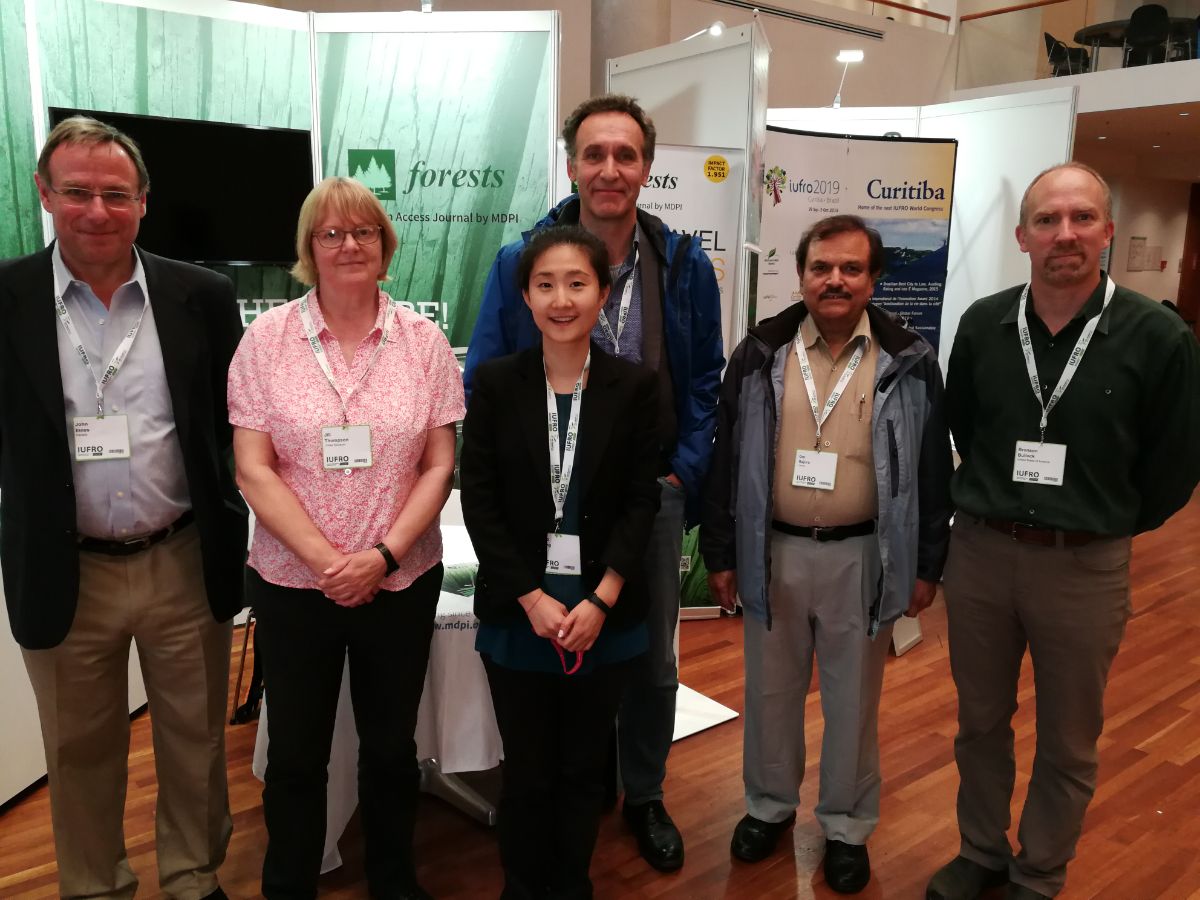
First row from left to right: Prof. Dr. John Innes (University of British Columbia, Canada), Dr. Jill Thompson (Centre for Ecology & Hydrology, UK), Dr. Echo Zhang (Managing Editor of Forests), Prof. Dr. Om P. Rajora (University of New Brunswick, Canada), Dr. Bronson P. Bullock (University of Georgia, USA)
Second row: Prof. Dr. Jürgen Bauhus (University of Freiburg, Germany)
6 October 2017
Dr. Franck Vazquez, MDPI CEO, Interviewed by Scholarly Kitchen
The Society for Scholarly Publishing’s popular blog about topics in academic publishing, Scholarly Kitchen, recently interviewed MDPI’s CEO, Dr. Franck Vazquez. He shared some thoughts and information on the past and future of MDPI and open access publishing in general:
“In the long run, we aim to anchor MDPI in research communities. We recently developed and launched the preprint platform Preprints, revamped our free-to-use conference hosting platform Sciforum, and are working on other projects, such as Scilit, our bibliographic database.”
Read the full interview here.
29 September 2017
Meet Us at ASA CSSA SSSA Annual Meeting 2017 in Tampa
We will be attending the ASA CSSA SSSA Annual Meeting 2017, which will be held at Tampa Convention Center, October 22–25, 2017, representing the following open access journals:
Agronomy
Forests
Agriculture
Foods
Plants
Land
Horticulturae
Sustainability
Please come visit our stand to chat with our delegates about our journals and travel awards that you might be interested in. The Editorial Board Member of Agronomy, Professor Jerry L. Hatfield, section leader of Global Agronomy, will also be there to answer your questions about the journal and publishing. We look forward to meeting you in person to answer any questions you may have.
Conference address:
2017 ASA CSSA SSSA Annual Meeting
Tampa Convention Center, Tampa, FL, USA
Conference date:
October 22–25 2017
For more information on the conference, please visit:
https://www.acsmeetings.org/home
19 September 2017
A Warm Welcome to the New IOAP Participants
We are delighted to have welcomed 24 new participants to our Institutional Open Access Programme (IOAP) since the beginning of September this year. These are University libraries and Research Institutions located around the world; from the USA and Canada to the UK, and from Norway and Spain to Greece. Well respected Universities, such as the University of Denver, the University of Colorado Boulder, and the University of Arizona in the US, have signed up, while their researchers can now benefit from a 10% discount on the Article Processing Charges (APC) for any papers they publish in MDPI journals, at no cost for the library or the University.
We are more than happy to see the Open Access movement growing stronger and wider every day and we appreciate the vital role which librarians, repository managers, and other scholarly communications professionals play in the field. Our communication with and service to this community is, therefore, one of our principal priorities. The IOAP is our way to support academic and scientific Institutions as well as their scholars in managing, administrating, and publishing research in an Open Access world.
The IOAP set of free services, provided by MDPI to institutions that sign up, include:
- No fee for participants and no obligation to prolong after the initial 12 months. The participants may withdraw from the programme at any time, and we will also keep it free for the library for as long as they continue in the programme.
- Authors affiliated with the university will receive a discount on the article processing charge (APC).
- The institution is granted free access to the MDPI submission system and can receive free alerts of new submissions to our journals.
- By default, authors from the institution will continue to be invoiced directly unless the institution opts for central billing.
- Auto-archiving of papers into the institutions´ repository as long as it supports SWORD 1.3.
More details about the programme and a list of our current participant institutions can be found at: https://www.mdpi.com/about/ioap
Institutions which are interested to participate may do so online at: https://www.mdpi.com/ioap-form
The full list of the Institutions that signed up in September is as follows:
- University of Denver, USA
- University of Colorado Boulder, USA
- University of Arizona, USA
- Institute of Metrology of Bosnia and Herzegovina, Bosnia and Herzegovina
- Middlebury College, USA
- Touro College, USA
- University of New Orleans, USA
- University of Leicester, UK
- Indiana University-Purdue University Indianapolis, USA
- University of Strathclyde, UK
- Cranfield University, UK
- Hope College, USA
- Oregon State University, USA
- Drew University, USA
- Swansea University, UK
- University of South Florida, USA
- University of Georgia, USA
- Arizona State University, USA
- University of Southern Mississippi, USA
- Université du Québec à Chicoutimi, Canada
- Grinnell College, USA
- Norwegian University of Science and Technology, Norway
- University of Patras, Greece
- Public University of Navarre, Spain
23 June 2017
Congratulations for Publishing the 100,000th Peer-Reviewed Article
Congratulations to the authors Javier Monroy and Javier Gonzalez-Jimenez from Universidad de Malaga, Spain, Victor Hernandez-Bennets, Han Fan and Achim Lilienthal from Örebro University, Sweden for publishing the 100,000th peer-reviewed article.
The article is published in the Chemical Sensors section of Sensors.
GADEN: A 3D Gas Dispersion Simulator for Mobile Robot Olfaction in Realistic Environments
Evermore pressing environmental concerns have led global actors and decision-makers to search for stricter emission monitoring approaches. As part of novel monitoring systems, robots with gas and environmental sensors are a promising solution. However, validation of such robotic inspectors is expensive, time consuming, and plagued by repeatability issues. In this article, we present GADEN (the short form for Gas Dispersion Simulator for Mobile Robot Olfaction in Realistic Environments), which combines gas dispersion and robotics simulation in a common framework. Developed under the widely used Robot Operating System (ROS), GADEN enables validation of sensing strategies with gas dispersion being simulated using computational fluid dynamics and filament dispersion theory. GADEN allows simulating complex, realistic, 3D environments for reproducible testing of robotic gas sensing algorithms. Through qualitative and quantitative evaluations, we show that GADEN is a versatile and user-friendly evaluation tool and emphasize its enormous potential for the mobile robot olfaction community.
Read the full article here: https://www.mdpi.com/1424-8220/17/7/1479/htm
14 June 2017
2016 Impact Factor Released for Forests – 1.951
Forests now ranks 13/64 (Q1) in the category ‘Forestry’. It is the highest ranking Open Access journal in the category.
Evolution of Impact Factor, Citations and Publications for Forests:

6 June 2017
CiteScore™ Metrics Released for Scopus Journals
The CiteScore, the new citation metric for journals covered in the Scopus® database, was released on 1 June 2017, reflecting the citation activity in 2016 for articles published during the three previous years. Please note that the list below does not contain all MDPI journals covered in Scopus. For the CiteScore to serve as a reliable metric at least three volumes of articles need to be indexed in Scopus; journals which have not met this criterion have been omitted here.
Ten MDPI journals received a CiteScore which is in the Top 10% of scores in at least one of the categories, while a further 21 journals exhibit scores that are in the first quartile of the respective categories.
CiteScore Data for MDPI Journals
| Journal | Rank | Category | Link | CiteScore 2016 | 2015 |
2014 |
| Algorithms | 44/112 (Q2) 49/111 (Q2) 19/42 (Q2) 52/113 (Q2) |
• Numerical Analysis • Computational Mathematics • Computational Theory and Mathematics • Theoretical Computer Science |
Link | 1.15 | 1.07 | 1.06 |
| Animals | 69/343 (Q1) 21/146 (Q1) |
• Animal Science and Zoology • General Veterinary |
Link | 1.46 | 1.66 | 0.74 |
| Biology | 13/92 (Q1) 34/81 (Q1) 10/75 (Q1) |
• General Agricultural and Biological Sciences • General Biochemistry, Gene- tics and Molecular Biology • General Immunology and Microbiology |
Link | 3.02 | 2.78 | 1.74 |
| Biomolecules | 234/382 (Q3) 260/353 (Q3) |
• Biochemistry • Molecular Biology |
Link | 1.67 | 3.08 | 1.00 |
| Biosensors | 36/118 (Q2) 209/2156 (Q1) |
• Clinical Biochemistry • General Medicine |
Link | 2.83 | 2.37 | 2.04 |
| Cancers | 29/196 (Q1) 27/321 (Q1) |
• Cancer Research • Oncology |
Link | 5.02 | 4.07 | 2.31 |
| Catalysts | 18/44 (Q2) 27/144 (Q1) |
• Catalysis • Physical and Theoretical Chemistry |
Link | 3.44 | 3.45 | 2.17 |
| Crystals | 70/270 (Q2) 25/64 (Q2) 118/398 (Q2) 131/424 (Q2) |
• General Chemical Engineering • Inorganic Chemistry • Condensed Matter Physics • General Materials Science |
Link | 1.89 | 1.47 | 1.03 |
| Diversity | 10/41 (Q1) 9/25 (Q2) 76/291 (Q2) 24/109 (Q1) |
• Agricultural and Biological Sciences (miscellaneous) • Ecological Modelling • Ecology • Nature and Landscape Conservation |
Link | 2.03 | 1.96 | 1.82 |
| Energies | - | - | Link | 2.50 | 2.87 | 2.66 |
| Entropy | 51/198 (Q2) | • General Physics and Astronomy | Link | 1.87 | 1.99 | 1.69 |
| Forests | 17/127 (Q1) | • Forestry | Link | 2.06 | 1.76 | 1.84 |
| Games | 204/398 (Q3) 83/181 (Q2) 48/105 (Q2) |
• Applied Mathematics • Statistics and Probability • Statistics, Probability and Uncertainty |
Link | 0.87 | 0.57 | 0.64 |
| Genes | 62/300 (Q1) 18/90 (Q1) |
• Genetics • Genetics (clinical) |
Link | 3.62 | 3.18 | 1.33 |
| Geosciences | 36/169 (Q1) |
• General Earth and Planetary Sciences | Link | 1.67 | 1.29 | 1.13 |
| Information | 156/237 (Q3) | • Information Systems | Link | 0.78 | 0.94 | 0.74 |
| Insects | 28/131 (Q1) | • Insect Science | Link | 1.81 | 1.38 | 1.23 |
| International Journal of Environmental Research and Public Health (IJERPH) | 67/446 (Q1) 31/102 (Q2) |
• Public Health, Environmental and Occupational Health • Health, Toxicology and Mutagenesis |
Link | 2.38 | 2.42 | 2.47 |
| International Journal of Molecular Sciences (IJMS) | 23/157 (Q1) 8/64 (Q1) 90/353 (Q1) 22/144 (Q1) 16/44 (Q1) 8/62 (Q1) |
• Organic Chemistry • Inorganic Chemistry • Molecular Biology • Physical and Theoretical Chemistry • Catalysis • Spectroscopy |
Link | 3.73 | 3.37 | 3.06 |
| ISPRS International Journal of Geo-Information | 12/29 (Q2) 28/79 (Q2) 96/587 (Q1) |
• Computers in Earth Sciences • Earth and Planetary Sciences (miscellaneous) • Geography, Planning and Development |
Link | 1.62 | 1.52 | - |
| Journal of Low Power Electronic Applications (JLPEA) | 301/645 (Q2) | • Electrical and Electronic Engineering | Link | 0.98 | 0.83 | 0.83 |
| Life | 65/525 (Q1) 36/186 (Q1) 5/92 (Q1) 20/80 (Q2) |
• Ecology, Evolution, Behavior and Systematics • General Biochemistry, Gene- tics and Molecular Biology • Palaeontology • Space and Planetary Science |
Link | 2.95 | 1.68 | 1.20 |
| Marine Drugs | 18/145 (Q1) | • Drug Discovery | Link | 3.83 | 3.66 | 3.59 |
| Materials | 63/424 (Q1) | • General Materials Science | Link | 3.26 | 3.11 | 2.69 |
| Membranes | 103/424 (Q1) | • Materials Science | Link | 2.19 | 2.95 | 2.42 |
| Micromachines | 173/645 (Q2) 69/211 (Q2) 113/526 (Q1) |
• Electrical and Electronic Engineering • Control and Systems Engineering • Mechanical Engineering |
Link | 1.83 | 1.78 | 2.10 |
| Minerals | 45/206 (Q1) 29/167 (Q1) |
• Geology • Geotechnical Engineering and Engineering Geology |
Link | 2.13 | 1.77 | - |
| Molecules | 32/157 (Q1) | • Organic Chemistry | Link | 3.09 | 2.65 | 2.62 |
| Nutrients | 12/247 (Q1) | • Food Science | Link | 4.29 | 4.07 | 3.78 |
| Pharmaceuticals | 8/168 (Q1) 21/158 (Q1) |
• Pharmaceutical Science • Molecular Medicine |
Link | 4.90 | 3.64 | 1.92 |
| Pharmaceutics | 19/168 (Q1) | • Pharmaceutical Science | Link | 3.83 | 2.68 | 2.46 |
| Polymers | 13/138 (Q1) 44/354 (Q1) |
• Polymers and Plastics • General Chemistry |
Link | 3.74 | 3.37 | 4.10 |
| Remote Sensing | 13/169 (Q1) | • General Earth and Planetary Sciences | Link | 3.56 | 3.76 | 3.23 |
| Sensors | 25/96 (Q2) 25/159 (Q1) 124/382 (Q2) 103/645 (Q1) |
• Analytical Chemistry • Atomic and Molecular Physics, and Optics • Biochemistry • Electrical and Electronic Engineering |
Link | 2.78 | 2.21 | 2.40 |
| Sustainability | 49/129 (Q2) 68/587 (Q1) 56/236 (Q1) |
• Renewable Energy, Sustai-nability and the Environment • Geography, Planning and Development • Management, Monitoring, Policy and Law |
Link | 1.96 | 1.78 | 1.52 |
| Symmetry | 17/42 (Q2) 49/111 (Q2) |
• Numerical Analysis • Computational Mathematics |
Link | 1.12 | 0.95 | 1.02 |
| Toxins | 16/102 (Q1) 16/108 (Q1) |
• Health, Toxicology and Mutagenesis • Toxicology |
Link | 3.34 | 3.76 | 2.85 |
| Vaccines | 146/184 (Q4) 151/250 (Q3) 93/145 (Q3) 186/299 (Q3) 130/232 (Q3) |
• Immunology • Infectious Diseases • Drug Discovery • Pharmacology • Pharmacology (medical) |
Link | 1.23 | 3.76 | 2.85 |
| Viruses | 15/68 (Q1) 34/250 (Q1) |
• Virology • Infectious Diseases |
Link | 3.60 | 3.74 | 3.80 |
| Water | 33/184 (Q1) 48/195 (Q1) 62/587 (Q1) 198/382 (Q3) |
• Water Science and Technology • Aquatic Science • Geography, Planning and Development • Biochemistry |
Link | 2.05 | 1.96 | 1.45 |
17 May 2017
Three New Institutional Memberships Established
We are pleased to announce that the Goethe University of Frankfurt, the Technical University of Hamburg (TU Hamburg-Harburg), as well as the Humboldt University of Berlin, in Germany, have joined MDPI's institutional membership program: Primary authors from these instititions will benefit from a 10% discount on the article processing charges.
Additional details can be found on our institutional membership page.
4 May 2017
MDPI Supports the Initiative for Open Citations (I4OC)
As an open access publisher, we are keen to support openness and transparency in the research process. Citation data is very important for assessing the value of individual papers and the contribution of researchers. As such, we support the recently launched Initiative for Open Citations (I4OC). The initiative recognizes that citations should be freely available and machine-readable. By doing so, authors gain the maximum benefit from having their work cited.
MDPI now uploads citation data with metadata uploaded to Crossref when registering digital object identifiers (DOIs) for published papers. We are delighted to take this step to support a truly open research environment.
2 May 2017
Publons Peer Review Academy Goes Live
Getting high quality review reports is critical for any journal’s editorial process. At MDPI we have put in place several measures to motivate reviewers and reward them for their work. We are proud of the quality of reviewer reports we receive and grateful for the hours put in by active researchers from across the globe.
Reviewers of MDPI’s largest journals can get recognition via Publons, a website dedicated to rewarding peer reviewers. They have now taken this one step further and launched the Publons Reviewer Academy to help train reviewers to provide useful feedback. Through the academy, researchers can be trained and tutored in various aspects of how to provide structured feedback that will be of genuine help to editors and authors. We support this initiative and recommend it to potential MDPI reviewers, especially early career researchers. See the Publons announcement for further information.
More information on reviewing for MDPI, including how to volunteer as a reviewer, can be found here.
24 April 2017
Two New Institutional Memberships Established
We are pleased to announce that the following universities have joined MDPI's institutional membership program: Trinity University, San Antonio, Texas, USA and the University of New South Wales (UNSW), Sydney, Australia. Primary authors from these instititions will benefit from a 10% discount on the article processing charges.
Additional details can be found on our institutional membership page.
30 March 2017
Credit for Preprints Comments via Publons
Preprints.org is a platform run by MDPI that allows authors to make early versions of manuscripts available before peer review has been completed.
One of the major benefits of putting a preprint online is to get feedback before journal submission. Until now, however, the feedback has been on a voluntary basis. Preprints is delighted to be the first preprint server to collaborate with Publons to acknowledge substantial comments as reviews and give commentators the opportunity to receive credit for their efforts.
When you add a comment to any article, there is a check box to click for it to appear on Publons. If you have already linked your account it will be passed on automatically. If you don't already have a Publons account, you will be contacted soon afterwards with instructions on how to create one.
We appreciate the enthusiasm and cooperation of Publons in this project and expect it to be of great benefit to authors and commenters alike.
20 March 2017
MDPI 2016 Annual Report Released
We are pleased to announce that our annual report for the year 2016 has now been published.
It contains information regarding company and journal performance, conferences and other publishing services that we provided throughout 2016.
To read the report in full or download a copy, please click here.
15 March 2017
Our 100,000th Article Could be Yours!
After the 20th anniversary of MDPI in 2016, we will reach another milestone this year and will publish the 100,000th peer-reviewed article in one of our 170+ open access journals.
We would like you to be part of this great achievement and so are offering to publish the 100,000th accepted paper free of charge.
To be in with a chance, select a journal in one of our 10 scientific subject areas and submit your paper.
Access the live tracker on published articles here.
![]()
3 March 2017
1000 Preprints Online
We are delighted that Preprints now has 1000 papers online since its launch on 3 May 2016.
For more information, see the editorial here.
9 February 2017
Minister and State Secretaries Visit MDPI Office at STP, Belgrade, Serbia
Earlier this week the Science Technology Park in Belgrade, Serbia was visited by Swiss Secretary of State Dr. Mauro Dell’Ambrogio, as well as Serbian Minister of Public Administration and Local Self-Government Ana Brnabic, State Secretary Dr. Vladimir Popovic and Mayor of Belgrade Mr. Siniša Mali.
During the visit to the STP they had a short presentation from MDPI’s CEO Dr. Franck Vazquez and IT Manager Mr. Miloš Čučulović, and further discussed important issues such as Open Access and Open education. Dr. Dell'Ambrogio said he was impressed with the potential for development and ideas for business.
For more information please see:
http://bit.ly/2kpIu7k and http://bit.ly/2kpUQfz
7 February 2017
The 6th World Sustainability Forum: Final Press Release
Basel, 29 January 2017
The 6th World Sustainability Forum #WSF2017SA: African universities critical to achieving the Sustainable Development Goals
Jeffrey and Sonia Sachs win first World Sustainability Award.
Universities need to take the lead in solving the greatest challenges the world faces today, particularly in Africa. They need to do this not only through education – teaching the next generation to think critically and creatively to find sustainable solutions – but also through research that cuts across a range of disciplines. To ensure these solutions are implemented, they need to partner with the private sector and with government.
This was the key message from the 6th World Sustainability Forum (WSF2017), which took place in Cape Town on 27 and 28 January 2017. Sponsored by MDPI and the journal Sustainability under the patronage of the Universities of the Western Cape (UWC), Cape Town (UCT), University of Basel and the National Research Foundation (NRF) of South Africa, the conference was attended by key national and international speakers, including world-leading economist Professor Jeffrey D. Sachs, senior United Nations (UN) advisor and director of the Earth Institute at Columbia University.
The WSF is an annual sustainability conference which addresses research in a range of areas related to sustainable development and sustainability globally. This was the first WSF to take place on the African continent. Discussions at the 2017 conference were driven by the 17 sustainable development goals (SDGs) adopted as part of the 2030 Agenda for Sustainable Development by the UN in September 2015.
Achieving the SDGs “is the moonshot for our generation,” said Sachs. “Like the moonshot [moon landing] of the 1960s, these are tough, bold and achievable objectives.”
“This is a nasty, tough world we live in, and our world agrees on very little. So when 193 governments agree on something, that is important. And when they agree on something as important as sustainable development, that is really something for us to grab hold of – that is a lifeline.”
There was agreement at the WSF that the SDGs are particularly important for Africa, and that African universities in particular have a role to play in achieving them.
Said Professor Tyrone Pretorius, vice-chancellor of UWC: “The quest for sustainable development can only be met through education. Universities today are the oil that fuels the knowledge economy.”
As part of the drive to develop academic capacity to provide the knowledge needed to meet the SDGs, WSF2017 was preceded by the 1st Postgraduate Forum on Sustainability. “A series of workshops for postgraduate education linked to WSF are important, in order to equip postgraduates with the skills necessary to promote sustainability,” said Professor Thandi Mgwebi, director for research at UWC. A second postgraduate forum will take place alongside the WSF2018 in Beijing.
This capacity development is particularly critical to Africa. Said Sachs: “African universities need to do research to find solutions to Africa’s development challenges, because no other university will.”
The UN set a target of achieving the SDGs by 2030: “I regard this as the breakthrough period to end extreme poverty on the continent,” said Sachs, “and for Africa to become one of the most dynamic centres of the world economy.”
It is a critical time for South African universities, said Professor Mamokgethi Phakeng, deputy vice-chancellor for research and internationalisation at UCT: “Higher education is at a crossroads, and there is much polarisation. We need to think carefully about how this sustainable development agenda is owned by all so that it is inclusionary.”
There was also strong emphasis on public–private partnerships – for universities, business and government to work together to achieve the goals.
Said Professor Francis Petersen, deputy vice-chancellor at UCT and vice-chancellor designate at the University of the Free State: “Business sustainability has become critical, because there is increasing demand and complexity of demand on business from the natural, social and economic environment. Sustainability cannot be a standalone issue, divorced from business as usual. Sustainability needs to be embedded into business.”
Environmental crises and climate change was also high on the WSF agenda. In his keynote address, Sachs noted the irreversibility of the climate- and environmental-related challenges.
“If we don’t get our act together, we lose the chance of safety,” he said.
Said Professor Mark New, pro vice-chancellor and director of the African Climate and Development Initiative at UCT: “We have a fundamental challenge in responding to climate change, and we must go further than just putting a plaster on a wound. We need to address the deep structural issues, to move from our current model of development into climate-compatible development.”
“This requires researchers to find the evidence for the correct development pathways to take, and then support the ability of policymakers at all levels to enable the shift to climate-compatible development planning.”
Said Dr. Aldo Stroebel, executive director of international relations and cooperation at the NRF, in closing: “We have seen over the past two days an urgency towards the next step of thinking, that critical type of framework that we all must engage with, not only from an academic perspective, but further up into the policy environment and into rural-based environments where one can clearly see the links and effectiveness of the work.”
World Sustainability Awards
The first World Sustainability Award and the first Emerging Sustainability Leader Awards were presented by Prof. Thandi Mgwebi, Director of Research at UWC, and Dr. Franck Vazquez, CEO of MDPI, during the ceremony on 27 January 2017 as part of the gala dinner of the 6th World Sustainability Forum in South Africa.after day one of proceedings of the 2017 World Sustainability Forum South Africa.
Professor Jeffrey D. Sachs and Dr. Sonia Ehrlich Sachs are the joint recipients of the first World Sustainability Award. Jeffrey Sachs is a world-renowned economist and senior United Nations (UN) advisor and director of the Earth Institute at Columbia University. Sonia Sachs is a paediatrician and public health specialist, and director of the Health Centre at the Centre for Sustainable Development, also at Columbia University.
The joint recipients of the first Emerging Sustainability Leader Award are Dr. Esther Ngumbi and Dr. Xiaosong Hu. Esther Ngumbi is a postdoctoral researcher at Auburn University in Alabama USA and serves as a 2015 Clinton Global University Mentor for agriculture. Xiaosong Hu is a professor at the Chongqing University in China and specialises in automotive control systems and mechanical engineering.
The World Sustainability Award and the Emerging Sustainability Leader Awards are funded to encourage new initiatives and developments in sustainability with the ultimate aim of fostering the transition to sustainable practices and societies.
The World Sustainability Award is funded by the MDPI Sustainability Foundation, and included a monetary prize of USD 100,000 to Jeffrey and Sonia Sachs. The Emerging Sustainability Leader Award is funded by the journal Sustainability, awarded to researchers under 40, and included a monetary prize of USD10,000.
Issued jointly by: UCT Global Strategy and Visibility, Research Office, UWC Communications & Media and MDPI AG
Conference photos are free available at: https://sciforum.net/conference/wsf-6/page/175 Photo credit: Matthias Burkhalter
|
Carla Bernardo |
Luthando Tyhalibongo |
Matthias Burkhalter |
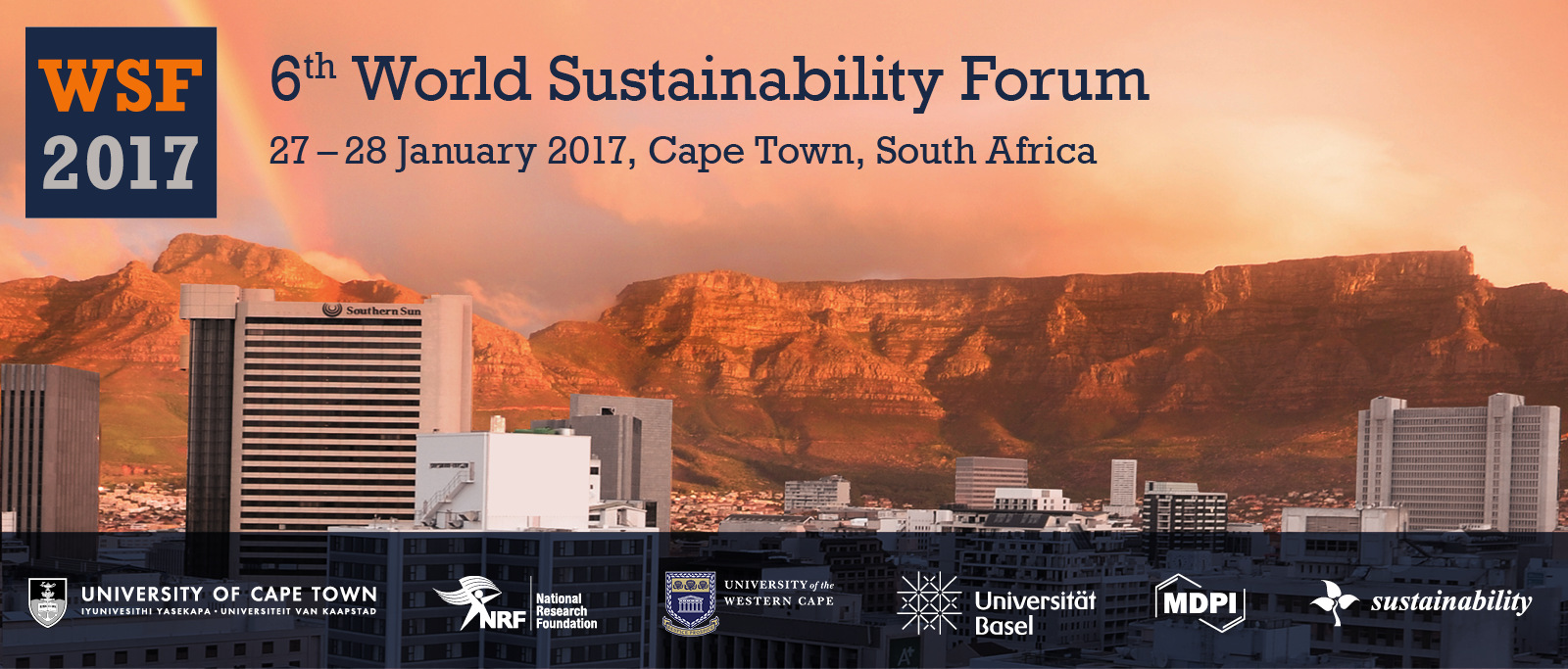
7 February 2017
New Editor-in-Chief of Forests
We are pleased to announce that Professor Timothy A. Martin has been appointed as Editor-in-Chief of Forests (ISSN 1999-4907). His appointment starts from January 2017.
Timothy Martin has been on the faculty at the University of Florida School of Forest Resources and Conservation since 1997. He received a B.S. in Forest Management from Oklahoma State University, and M.S. and Ph.D. degrees in Tree Physiology from the University of Georgia and University of Washington, respectively. He teaches undergraduate and graduate courses in natural resource management and tree physiology. His research program focuses on understanding the interacting influences of genetics, climate, environmental stresses, and forest management on forest productivity, water fluxes, and carbon sequestration, and to elucidate the physiological mechanisms underlying these responses. He is a co-Director of the Forest Biology Research Cooperative, which brings together corporate, government, and university scientists to better understand the interactions of genetics, silviculture, and the environment on forest productivity and sustainability. He authored or co-authored 75 peer-reviewed research publications, and has been Principal Investigator on more than $20 million in research grants.
We would like to warmly welcome Professor Martin as Editor-in-Chief and look forward to his contribution to the continued success of Forests.
31 January 2017
Three New Institutional Memberships Established
We are pleased to announce that the Chalmers University of Technology, Sweden, the University of Manitoba, Canada and the Technical University of Cartagena, Spain, have joined MDPI's institutional membership program: Primary authors from these institutions will benefit from a 10% discount on the article processing charges.
Additional details can be found on our institutional membership page.
27 January 2017
6th World Sustainability Forum under way in South Africa
The 6th World Sustainability Forum is currently being held at the Cape Sun Hotel until 28 January 2017.
The Forum will showcase the work of internationally renowned researchers and include more than 150 presentations. During the conference dinner, the World Sustainability Award, associated with a US$ 100,000 prize, will be announced, as well as the Emerging Sustainability Leader Award, associated with a US$ 10,000 prize. The prizes are sponsored by the MDPI Sustainability Foundation and Sustainability, an academic open access journal by MDPI.
Here are some pictures from the forum so far:
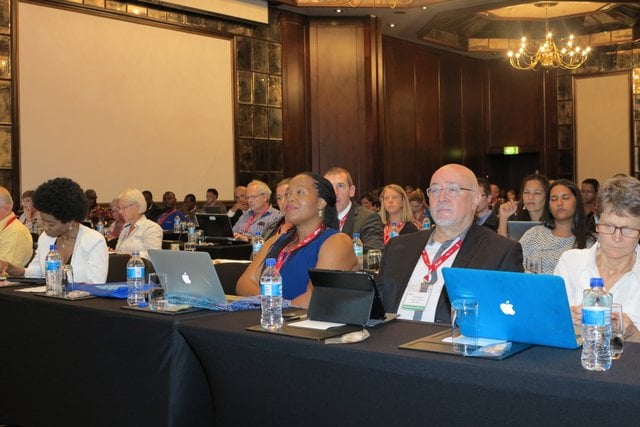
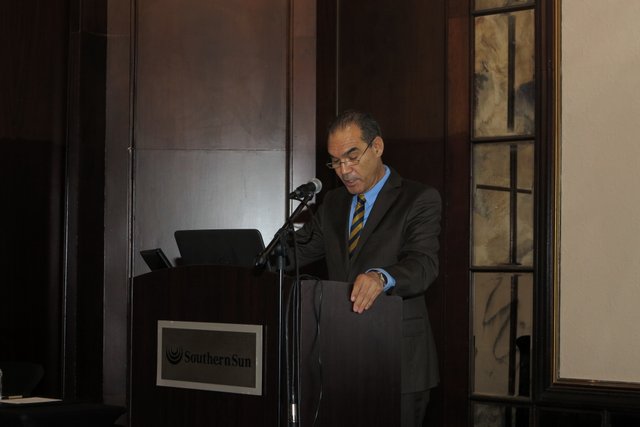
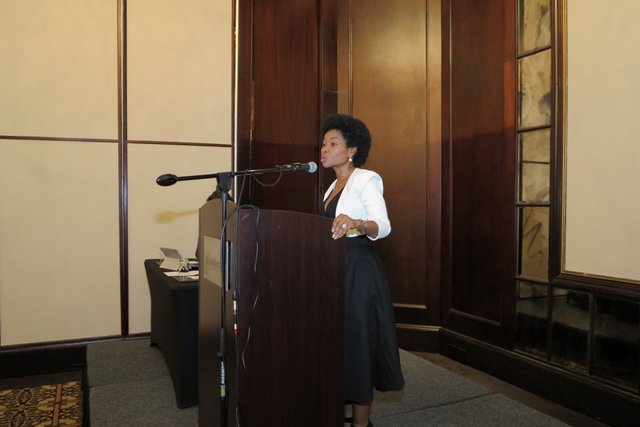
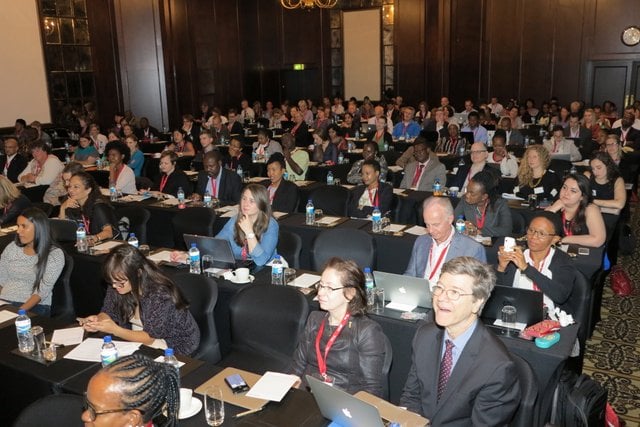
To see the full WSF2017 program and schedule, please see here: https://sciforum.net/conference/wsf-6/page/schedule
19 January 2017
Cape Town to Host the 6th World Sustainability Forum
Cape Town will host the 6th World Sustainability Forum at the Cape Sun Hotel on 27 and 28 January 2017. This prominent event, held for the first time in Africa, will include many illustrious South African and international experts, such as Her Excellency Graça Machel (Sustainable Development Advocate for the United Nations, Mozambique), Joyene Isaacs (HoD Agriculture Western Cape Government), Jeffrey Sachs (Columbia University, USA), Max Bergman (SRaM, University of Basel), Mark New (Pro Vice-Chancellor, University of Cape Town), Frans Swanepoel (FutureAfrica, University of Pretoria) and Francis Petersen (Vice-Chancellor-designate, University of the Free State). The Forum will provide a stage for national and international debates on sustainability in South Africa, the African continent, and about international perspectives on sustainability. It brings together researchers and representatives from government and the business sector to discuss a wide-ranging set of issues associated with sustainability, including food security, water and energy scarcity, mining, poverty reduction, climate change, and urbanisation.
The next few decades will be marked by profound changes in the relationships between global economics, national societies, and the environment. We have entered what some call the Anthropocene, an age in which human activity dominates the climate and the environment. These changes will have numerous consequences on societies around the globe. South Africa and Africa will play a central role, for better or worse, in creating opportunities and risks during these changing times as Africa is profoundly influencing and being influenced by global developments.
The adoption of the 17 United Nations Sustainable Development Goals and the 2030 Agenda for Sustainable Development in September 2015 was accompanied by what insiders considered an optimism they have not experienced in relation to UN resolutions before. The relative efficiency in the drafting, the lack of trenches between East and West, or between North and South, and the unanimity of support of the 193 countries speak volumes. In stark contrast, sustainability seems to go against a changing economic and political tide, where waves of nationalism and protectionism from some of the most powerful countries risk the wellbeing of the rest of the world. The 6th World Sustainability Forum will enable fruitful exchanges, which sensitise South African and international communities to the global urgency and specifics of sustainability.
The Forum will showcase the work of internationally renowned researchers and include more than 150 presentations. During the conference dinner, the World Sustainability Award, associated with a US$ 100 000 prize, will be announced, as well as the Emerging Sustainability Leader Award, associated with a US$ 10 000 prize. The prizes are sponsored by the MDPI Sustainability Foundation and Sustainability, an academic open access journal by MDPI. The World Sustainability Forum is preceded by the Postgraduate Forum on Sustainability, which will introduce more than 100 young scholars from South Africa and the African continent to sustainability research. Both events are organized and sponsored by the University of Cape Town, the University of the Western Cape, the University of Basel, MDPI, and by the National Research Foundation of South Africa.
Contacts:
Scientific Matters: Prof Manfred Max Bergman, Social Research and Methodology Group (SRaM), University of Basel, Switzerland; Email: max.bergman@unibas.ch
Press Accreditation and General Enquiries: Mr Matthias Burkhalter, MDPI AG, Basel, Switzerland; Email: burkhalter@mdpi.com; Tel. +41 61 683 77 34
Follow us on Twitter
#WSF2017SA
6 January 2017
MDPI Supports the OA2020 Initiative
MDPI is now a proud supporter of the OA2020 Initiative.
Open Access 2020 is an international initiative that aims to induce the swift, smooth and scholarly-oriented transformation of today’s scholarly journals from subscription to open access publishing.
MDPI is participating in the upcoming Berlin13 conference in March 2017, where we are contributing to the initiative by aiding in the design of the roadmap which will make OA the default publishing model.
For more information please see here.
5 January 2017
Three New Institutional Memberships Established
We are pleased to announce that the University of Texas at Arlington, USA, the Harbin Institute of Technology, China and TU Darmstadt, Germany, have joined MDPI's institutional membership program: Primary authors from these institutions will benefit from a 10% discount on the article processing charges.
Additional details can be found on our institutional membership page.
22 December 2016
Two New Institutional Memberships Established
We are pleased to announce that the Otto-von-Guericke-Universität Magdeburg, Germany and the University of California, Berkeley, USA, have joined MDPI's institutional membership program: Primary authors from these instititions will benefit from a 10% discount on the article processing charges.
Additional details can be found on our institutional membership page.
19 December 2016
MDPI and Wellcome Trust Compliance
The Wellcome Trust has, for a number of years, required that the results of its funded projects are published in open access format. Recently it announced criteria that publishers must fulfil for publication fees to be paid by the Trust. MDPI is pleased to have been added to the list of compliant publishers.
Only publishers who have confirmed their compliance by 16 December 2016 will be eligible to receive payment of APCs by the Wellcome Trust as of 1 April 2017. For more information on the criteria and a full list of publishers that meet them, see here.
13 December 2016
Meet MDPI at the 2016 AGU Fall Meeting
 MDPI is currently attending the 2016 AGU Fall Meeting (12–16 December, 2016)
MDPI is currently attending the 2016 AGU Fall Meeting (12–16 December, 2016)
If you are also attending the conference, please feel free to stop by our booth (Booth #1147) and meet the representative editors.
Conference details:
2016 AGU Fall Meeting
12–16 December 2016
Moscone Center
747 Howard St
San Francisco, CA 94103, USA
8 December 2016
Three New Institutional Memberships Established
We are pleased to announce that Purdue University, USA, the Universitat Politécnica de Valencia, Spain and the Queensland University of Technology, Australia, have joined MDPI's institutional membership program: Primary authors from these instititions will benefit from a 10% discount on the article processing charges.
Additional details can be found on our institutional membership page.
16 November 2016
World Sustainability Award - Final Extension
The deadline for the World Sustainability Award has been extended for one last time! You now have one more month to nominate an individual researcher, group or project! The final deadline for nominations will be December 15, 2016.
For full details, please visit here.
11 November 2016
Three New Institutional Memberships Established
We are pleased to announce that the University of Minnesota, USA, the Universidad Politécnica de Madrid, Spain and Shanghai Jiao Tong University, China, have joined MDPI's institutional membership program: Primary authors from these instititions will benefit from a 10% discount on the article processing charges.
Additional details can be found on our institutional membership page.
4 November 2016
MDPI Joins the United Nations Global Compact
MDPI has become a member of the United Nations Global Compact to support corporate sustainability and have committed ourselves to the ten principles associated with the Compact.
Sustainability has always been at the core of MDPI’s values, starting with the collection and preservation of rare chemical samples that started in 1996 and led to the first journal, Molecules. Sustainability has become one of our flagship journals and we have supported and organized several conferences and events based on Sustainability, including the upcoming 6th World Sustainability Forum. As a global enterprise, we see it as our duty to promote responsible practices that will ensure a bright future for our planet. Given this, the choice to join the Global Compact was an easy one and we will do our utmost to fully implement it.
3 November 2016
MDPI Now a Member of SPARC Europe
We are delighted to announce that MDPI has become a member of SPARC Europe, an organization that works for open scholarship in Europe, including support of open access publication.
As one of the few publishers to join SPARC Europe to date, MDPI looks forward to making a contribution that puts open scholarship on a positive and sustainable path. We fully support the goals of open scholarship that allow the largest number of people possible to benefit from work of researchers in all disciplines. We hope that our membership will enable us to work with other stakeholders to find the best possible solution.
2 November 2016
World Sustainability Award Deadline Extension
The deadline for the World Sustainability Award has been extended! You now have until November 15, 2016 to nominate an individual researcher, group or project!
For full details, please visit here.
26 October 2016
Four New Institutional Memberships Established
We are pleased to announce that the Wuppertal Institut, Germany, the University of Girona, Spain and Central South University and Huazhong University of Science and Technology, China, have joined MDPI's institutional membership program: Primary authors from these instititions will benefit from a 10% discount on the article processing charges.
Additional details can be found on our institutional membership page.
24 October 2016
International Open Access Week 2016
Meet us during International Open Access Week 2016! We will be presenting at various locations in Europe and China.
To get involved and for full details see the complete list of events organised by MDPI here.
18 October 2016
Institutional Membership established with Universitat Pompeu Fabra, Spain and Aalto University, Finland
We are pleased to announce that the Universitat Pompeu Fabra, Spain and Aalto University, Finland, have joined MDPI's institutional membership program: Primary authors from these universities will benefit from a 10% discount on the article processing charges.
Additional details can be found on our institutional membership page.
12 October 2016
Institutional Membership Established with Iowa State University and the University of North Texas, USA
We are pleased to announce that the Iowa State University and the University of North Texas, USA, have joined MDPI's institutional membership program: Primary authors from these universities will benefit from a 10% discount on the article processing charges.
Additional details can be found on our institutional membership page.
7 October 2016
MDPI at Open Access Days in Munich, 10-11 October 2016
Meet MDPI during the Open Access Days held from 10-11 October 2016 at Ludwig Maximilian University of Munich, Germany.
The two-day event will feature experts from the open access sector, scientists from all disciplines, publishing representatives and supporters of scientific research and communication from libraries as well as research institutes and funding institutions. Join us!
For more information about the event and to see the program, visit the event webpage.
7 October 2016
Institutional Membership Established with the University of Sevilla and the University of Alicante, Spain
We are pleased to announce that the University of Sevilla and the University of Alicante, Spain have joined MDPI's institutional membership program: Primary authors from these universities will benefit from a 10% discount on the article processing charges.
Additional details can be found on our institutional membership page.
29 September 2016
Institutional Membership Established with the University of Delaware
We are pleased to announce that the University of Delaware, USA, has joined MDPI's institutional membership program: Primary authors from this university will benefit from a 10% discount on the article processing charges.
Additional details can be found on our institutional membership page.
19 September 2016
Peer Review Week 2016
As an open access publisher indebted to the work of our peer reviewers, we are proud to support Peer Review Week 2016. As part of the week's activities and to celebrate this year's theme "Recognition for Review", MDPI will host two webinars that anyone can join.
These webinars will explore the role and value of reviewers and the recognition they receive from a publishers perspective, with examples from MDPI's experience in publishing nearly 80,000 peer reviewed papers, along with evidence from reviewer surveys. It will also touch upon potential changes in how review is carried out and tips for early career researchers who want to be involved in the review process.
Details and links to join can be found below:
Wednesday September 21, 08:00 (CEST)
Friday September 23, 16:00 (CEST)
For more information about all the activites taking place, please visit the Peer Review Week website.
6 September 2016
Institutional Membership established with Kansas State University and Northwestern University, USA
We are pleased to announce that Kansas State University and Northwestern Universty, USE, have joined MDPI's institutional membership program: Primary authors from these universities will benefit from a 10% discount on the article processing charges.
Additional details can be found on our institutional membership page.
5 September 2016
Institutional Membership Established with University College Cork
We are pleased to announce that University College Cork, Ireland, has joined MDPI's institutional membership program: Primary authors from this university will benefit from a 10% discount on the article processing charges.
Additional details can be found on our institutional membership page.
22 August 2016
MDPI New Office Location
We are pleased to announce that MDPI has now moved to a new permanent address:
MDPI AG
St. Alban Anlage 66
CH-4052 Basel
Postfach, CH-4020 Basel
Switzerland
Telephone and fax numbers remain unchanged.
10 August 2016
Institutional Membership established with the University of Texas at Austin, USA, the Wroclaw University of Science and Technology, Poland and the University of Granada and the Compultense University of Madrid, Spain
We are pleased to announce that the following institutions have joined MDPI's institutional membership program in August 2016:
- University of Texas at Austin, USA
- Wroclaw University of Science and Technology, Poland
- University of Granada, Spain
- Compultense University of Madrid, Spain
Authors affiliated with these institutions will benefit from a 10% discount on the article processing charges.
Additional details can be found on our institutional membership page.
18 July 2016
Institutional Membership established with Louisiana State University and Florida State University, USA, Royal College of Surgeons, Ireland, University of Rostock, Germany, AGH University of Science and Technology, Poland and Southeast University, China
We are pleased to announce that the following institutions have joined MDPI's institutional membership program in July 2016:
- Louisiana State University, USA
- Florida State University, USA
- Royal College of Surgeons, Ireland
- University of Rostock, Germany
- AGH University of Science and Technology, Poland
- Southeast University, China
Authors affiliated with these institutions will benefit from a 10% discount on the article processing charges.
Additional details can be found on our institutional membership page.
12 July 2016
MDPI Moving to New Office Location in Basel (Switzerland) in August 2016
As of 20 August 2016, MDPI's new address in Basel will be:
MDPI AG
St. Alban-Anlage 66
CH-4052 Basel
Switzerland
Telephone and fax numbers remain unchanged.
St. Alban-Anlage 66 was built from 1947 to 1948 and initially the home of the "Bühler AG", a book printing business.


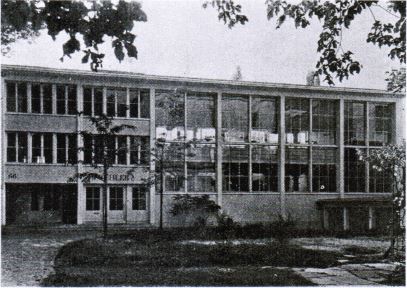

For more information about this building, see: https://www.mdpi.com/about/headquarters
21 June 2016
"Behind the Scenes of Academic Publishing—A Publisher's Perspective" - MDPI's Lecture at the University of Basel
From the 15-16 September, 2016, MDPI will run a course on Academic Publishing at the University of Basel.
In this two day workshop, MDPI will look in detail at the role performed by academic journal publishers and how they interact with academics. Ethical dimensions, what happens when problems occur and how the publisher coordinates all aspects of the submission process will also be covered.
For more detailed information about the program, trainers and registration please visit the course webpage.
14 June 2016
2015 Impact Factors Released
We are pleased to report the 2015 Journal Impact Factors in the latest Journal Citation Reports® Science Edition, published by Thomson Reuters in June 2016. Twenty out of 25 journals have seen an increase in their Impact Factor and two journals (Crystals and IJGI) received a first Impact Factor. Coatings was recently added to SCIE and will receive its first Impact Factor in next year’s JCR.
Updated Impact Factors for Journals in the Science Citation Index Expanded (SCIE)
| Journal | 2015 Impact Factor | Details | Category Rank |
| Applied Sciences | 1.726 | Link | 83/163 (Q3) in ‘Chemistry, Multidisciplinary’; 129/271 (Q2) in ‘Materials Science, Multidisciplinary’; 64/145 (Q2) in ‘Physics, Applied’ |
| Atmosphere | 1.221 | Link | 66/84 (Q4) in ‘Meteorology & Atmospheric Sciences’ |
| Catalysts | 2.964 | Link | 53/144 (Q2) in ‘Chemistry, Physical’ |
| Energies | 2.077 | Link | 43/88 (Q2) in ‘Energy & Fuels’ |
| Entropy | 1.743 | Link | 25/79 (Q2) in ‘Physics, Multidisciplinary’ |
| Forests | 1.583 | Link | 19/66 (Q2) in ‘Forestry’ |
| Genes | 3.242 | Link | 60/165 (Q2) in ‘Genetics & Heredity’ |
| International Journal of Environmental Research and Public Health (IJERPH) | 2.035 | Link | 101/225 (Q2) in ‘Environmental Sciences’ |
| International Journal of Molecular Sciences (IJMS) | 3.257 | Link | 110/289 (Q2) in ‘Biochemistry & Molecular Biology’; 51/163 (Q2) in ‘Chemistry, Multidisciplinary’ |
| Marine Drugs | 3.345 | Link | 13/59 (Q1) in ‘Chemistry, Medicinal’ |
| Materials | 2.728 | Link | 63/271 (Q1) in ‘Materials Science, Multidisciplinary’ |
| Metals | 1.574 | Link | 18/73 (Q1) in ‘Metallurgy & Metallurgical Engineering’; 145/271 (Q3) in ‘Materials Science, Multidisciplinary’ |
| Micromachines | 1.295 | Link | 30/56 (Q3) in ‘Instruments & Instrumentation’ 63/83 (Q4) in ‘Nanoscience & Nanotechnology’ |
| Minerals | 1.468 | Link | 9/21 (Q2) in ‘Mining & Mineral Processing; 14/29 (Q2) in ‘Mineralogy’ |
| Molecules | 2.465 | Link | 24/59 (Q2) in ‘Chemistry, Organic’ |
| Nanomaterials | 2.690 | Link | 64/271 (Q1) in ‘Materials Science, Multidisciplinary’; 36/83 (Q2) in ‘Nanoscience & Nanotechnology’ |
| Nutrients | 3.759 | Link | 16/78 (Q1) in ‘Nutrition & Dietetics’ |
| Polymers | 2.944 | Link | 20/85 (Q1) in ‘Polymer Science’ |
| Remote Sensing | 3.036 | Link | 5/28 (Q1) in ‘Remote Sensing’ |
| Sensors | 2.033 | Link | 36/75 (Q2) in ‘Chemistry, Analytical’; 16/27 (Q3) in ‘Electrochemistry’; 12/56 (Q1) in ‘Instruments & Instrumentation’ |
| Sustainability | 1.343 | Link | 146/225 (Q3) in ‘Environmental Sciences’; 22/29 (Q4) in ‘Green & Sustainable Science & Technology’ |
| Symmetry | 0.841 | Link | 31/63 (Q2) in ‘Multidisciplinary Sciences’ |
| Toxins | 3.571 | Link | 16/89 (Q1) in ‘Toxicology’ |
| Viruses | 3.042 | Link | 14/33 (Q2) in ‘Virology’ |
| Water | 1.687 | Link | 33/85 (Q2) in ‘Water Resources’ |
Journals with First Impact Factors
| Journal | 2015 Impact Factor | Details | Category Rank |
| Crystals | 2.075 | Link | 13/26 (Q2) in ‘Crystallography’ |
| ISPRS International Journal of Geo-Information | 0.651 | Link | 45/49 (Q4) in ‘Geography, Physical’; 26/28 (Q4) in ‘Remote Sensing’. |
14 June 2016
2015 Impact Factor Released for Forests – 1.583
We are pleased to inform you that the new Impact Factor of Forests has been released. According to the Journal Citation Reports®, published by Thomson Reuters in June 2016, the new Impact Factor is 1.583, and the 5-Year Impact Factor is 1.690.
Forests now ranks 19/66 (Q2) in the category ‘Forestry’. It is the highest ranking Open Access journal in the category.
Evolution of Impact Factor, Citations and Publications for Forests:
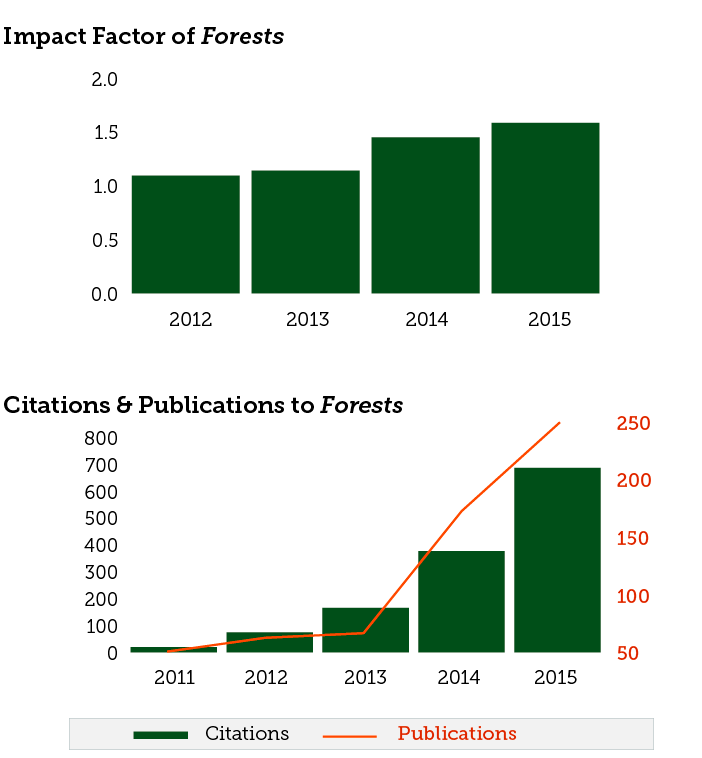
26 May 2016
Institutional Membership established with University of Bremen, Germany, Koç University, Turkey, IIASA, Austria and Jilin University and Kunming Institute of Botany, CAS, China
We are pleased to announce that the following institutions have joined MDPI's institutional membership program in May 2016:
- Unversity of Bremen, Germany
- Koç University, Turkey
- International Institute for Applied Systems Analysis (IIASA), Austria
- Jilin University, China
- Kunming Institute of Botany, Chinese Academy of Sciences, China
Authors affiliated with these institutions will benefit from a 10% discount on the article processing charges.
Additional details can be found on our institutional membership page.
23 May 2016
Institutional Membership Established with the KTH Royal Institute of Technology, Sweden and the South China University of Technology, Beijing University of Technology and Southern Medical University, China
We are pleased to announce that the following institutions have joined MDPI's institutional membership program in April and May 2016:
- KTH Royal Institute of Technology, Sweden
- South China University of Technology, China
- Beijing University of Technology, China
- Southern Medical University, China
Authors affiliated with these institutions will benefit from a 10% discount on the article processing charges.
Additional details can be found on our institutional membership page.
26 April 2016
New Section on www.mdpi.com - Latest Books
You may have noticed a new section that is now visible on our home page. This section is called "Latest Books" and showcases recent publications from MDPI Books, our book publishing service.
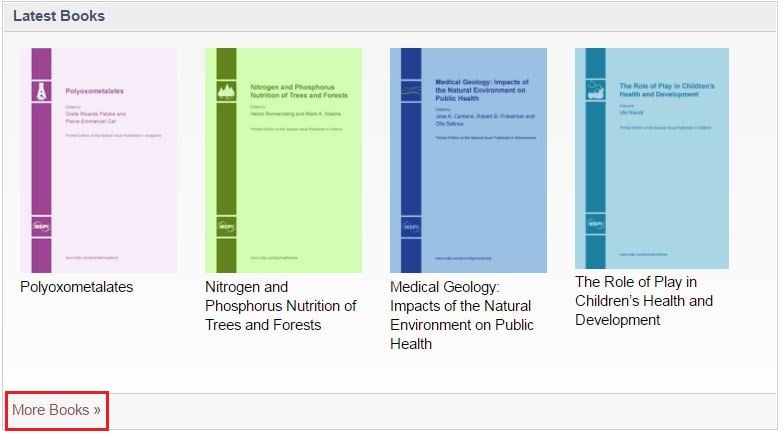
By clicking on the hyperlink "More Books" you will be taken to the MDPI Books Home Page. There you will find more information about the service, as well as the "Recent Publications" list.
Clicking on any of the book images in this list will take you to detailed information about that book (shown below). Here you can also download a PDF version of the book, or order a hardcover printed copy.
For further information about the MDPI Books service, please visit the webpage or contact books@mdpi.com.
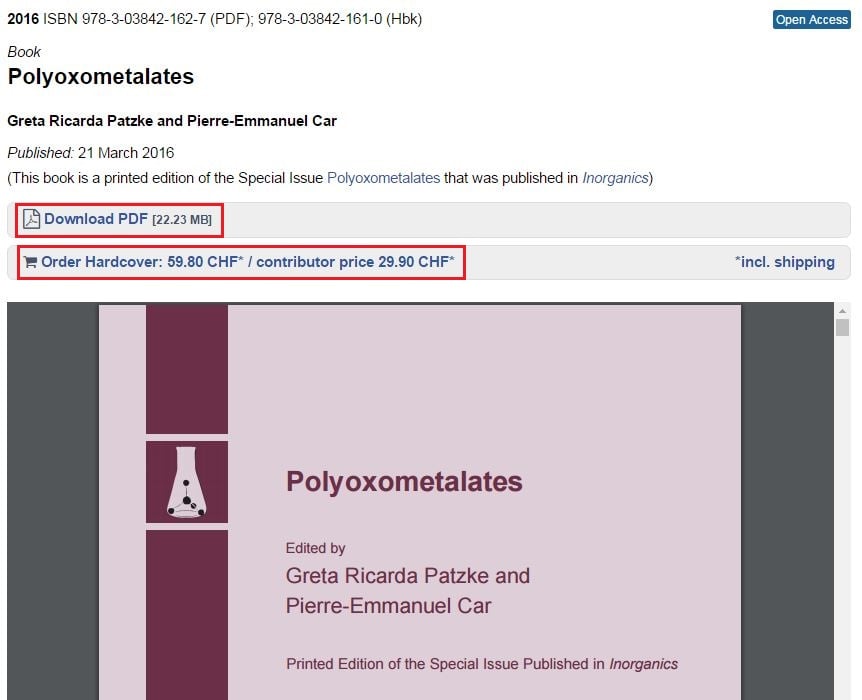
31 March 2016
Axioms, Behavioral Sciences, Photonics, Separations and Toxics added to the Emerging Sources Citation Index in Web of Science
We are pleased to announce that the journals Axioms, Behavioral Sciences, Photonics, Separations and Toxics were recently accepted for inclusion in the newly launched Emerging Sources Citation Index (ESCI) in Web of Science.
ESCI serves to highlight promising journals which are still under consideration for the Science Citation Index Expanded (SCIE) or the Social Sciences Citation Index (SSCI).
The Emerging Sources Citation Index (ESCI), Science Citation Index Expanded (SCIE), Social Sciences Citation Index
(SSCI), and Web of Science™ (WoS) are Thomson Reuters products.
30 March 2016
Institutional Membership established with the University of Winchester, UK, Silesian University of Technology, Poland and Beijing Jiaotong University and Zhejiang University, China
We are pleased to announce that the University of Winchester, UK, the Silesian University of Technology, Poland and Beijing Jiaotong University and Zhejiang University, China, have joined our Institutional Membership program. Primary authors from these universities will benefit from a 10% discount on article processing charges.
Additional details can be found on our institutional membership page.
24 March 2016
New Editorial Office in Barcelona, Spain
We are excited to announce the opening of our new editorial office in Barcelona, Spain. The launch team is led by a Senior Editor and comprises further staff holding doctoral degrees with several years of research experience. The new editorial team will help us to get closer to European research communities and progress Sciforum, the platform to support the scientific community via conference hosting and other functions. They will also help spread the word about Open Access and meet academics at scientific events.
We are in the process of hiring more doctoral and masters graduates to join the editorial team and welcome applications via jobs@mdpi.com. For contact details about the office, see our contact page.

29 February 2016
New Associate Editor-in-Chief: Prof. Dr. Timothy A. Martin
Prof. Dr. Timothy A. Martin (School of Forest Resources and Conservation, University of Florida, USA) accepted our invitation to serve as Associate Editor-in-Chief of Forests.
22 February 2016
Membership Established with the Max Planck Society
We are pleased to announce that the Max Planck Digital Library (MPDL) has signed an agreement with MDPI to support authors associated with the Max Planck Society (Max-Planck-Gesellschaft). As of 22 February 2016, corresponding authors will receive full funding from the MPDL for articles published in MDPI journals, with a 10% discount applied to the Article Processing Charges. Additional details can be found at our institutional membership page.
Founded in 1948, The Max Planck Society is one of Germany’s leading research organizations, and is currently made up of 83 institutes conducting basic research in natural sciences, life sciences, social sciences and humanities. 18 Nobel laureates have emerged from its ranks of scientists and the society has more than 15,000 publications in scientific journals each year.
5 February 2016
Institutional Membership Extension: Wageningen University, CSIC, University of Zürich, ETH Zürich, University of Tübingen and Osnabrück University
We are pleased to announce that Wageningen University, the Netherlands, the Spanish National Research Council (CSIC), Spain, the University of Zürich and ETH Zürich, Switzerland, and the University of Tübingen and Osnabrück University, Germany, have not only renewed their institutional memberships with MDPI after two years of successful cooperation, but have also increased the reduction of the article processing charges (APCs) for affiliated authors to 25%.
Additional details can be found on our institutional membership page.
5 February 2016
Institutional Membership established with Brock University, Canada and the University of Pisa, Italy
We are pleased to announce that Brock University, Cananda, and the University of Pisa, Italy, have joined MDPI's institutional membership program: Primary authors from these universities will benefit from a 10% discount on the article processing charges as of 01 February 2016.
Additional details can be found on our institutional membership page.
25 January 2016
MDPI Sponsors diss:kurs with the University of Basel
MDPI is pleased to announce its newly established sponsorship of diss:kurs, an event coordinated by the University of Basel to support their doctorate program. For more information about the event and how to register, please visit the diss:kurs webpage.
7 January 2016
New Institutional Memberships Established with Tsinghua University, the Chinese Society of Micro-Nano Technology, Ruhr University Bochum and the University of Ulm
We are pleased to announce that the following institutions have joined MDPI's institutional membership program as of 1 January 2016:
- Tsinghua University, China
- Chinese Society of Micro-Nano Technology (CSMNT)
- Ruhr University Bochum, Germany
- University of Ulm, Germany
Authors affiliated with these institutions will benefit from a 10% discount on the article processing charges.
Additional details can be found on our institutional membership page.
5 January 2016
Safety, Fermentation, C-Journal of Carbon Research, Magnetochemistry, Batteries and Horticulturae Released Their First Issue in December 2015
We are pleased to announce that MDPI's open access journals Safety, Journal of Imaging, Fermentation, C-Journal of Carbon Research, Magnetochemistry, Batteries and Horticulturae released their first issue at the end of December 2015.
17 December 2015
Institutional Membership Extension: University of Bern, Switzerland
We are pleased to announce that the University of Bern, Switzerland has not only renewed their institutional membership with MDPI after two years of successful cooperation, but also increased the reduction of the article processing charges (APCs) for affiliated authors to 25%.
17 December 2015
Institutional Membership with the University of Ulm and Helmholtz Zentrum Munich
We are pleased to announce that University of Ulm, Germany and Helmholtz Zentrum Munich, Germany has joined MDPI's institutional membership program:
Primary authors from the University of Ulm and Helmholtz Zentrum Munich will benefit from a 10% discount on the article processing charges as of 1 January 2016. Additional details can be found on our institutional membership page.
9 December 2015
Membership Established with the Virginia Polytechnic Institute and State University (Virginia Tech)
We are pleased to announce that Virginia Tech has joined MDPI's institutional membership program. Authors from Virginia Tech will benefit from a 10% discount on the article processing charges as of 1 December 2015. Additional details can be found on our institutional membership page.
1 December 2015
Membership Established with the Technical University of Denmark and the University of North Florida
We are pleased to announce that the following universities have joined MDPI's institutional membership program:
- Technical University of Denmark (as of 1 November 2015)
- University of North Florida, USA (as of 15 November 2015)
Primary authors from the Technical University of Denmark and the University of North Florida will benefit from a 10% discount on the article processing charges.
Additional details can be found on our institutional membership page.
2 October 2015
Membership Established with the University of Freiburg and the University of Regensburg
We are pleased to announce that the following universities have joined MDPI's institutional membership program:
University of Freiburg, Germany
University of Regensburg, Germany
Primary authors from the University of Freiburg and the University of Regensburg will benefit from a 10% discount on the article processing charges as of 1 October 2015 and 1 November 2015.
Additional details can be found on our institutional membership page.

19 June 2015
Updated Impact Factor for Forests – 1.449
We are pleased to report the 2014 Impact Factor for Forests. According to the 2015 release of the Journal Citation Reports® Science Edition (published by Thomson Reuters in June 2015), the updated Impact Factor for Forests is 1.449. It has risen from 1.139 in the previous year (+27%), as illustrated in the figure below. The 5-Year Impact Factor is 1.738. Forests now ranks 23/65 (Q2) in the category ‘Forestry’.
Evolution of the Forests Impact Factor:
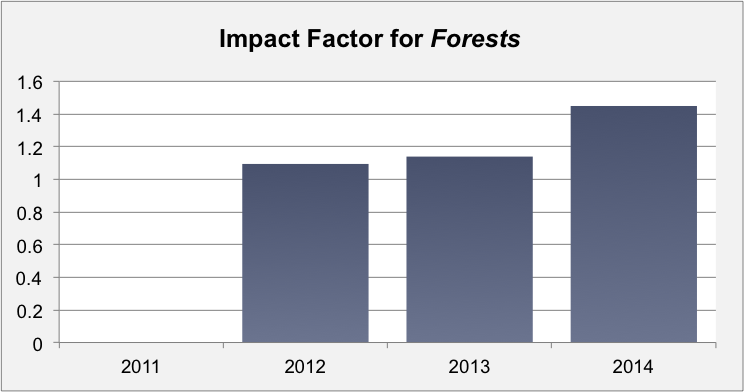
Evolution of citations to Forests:
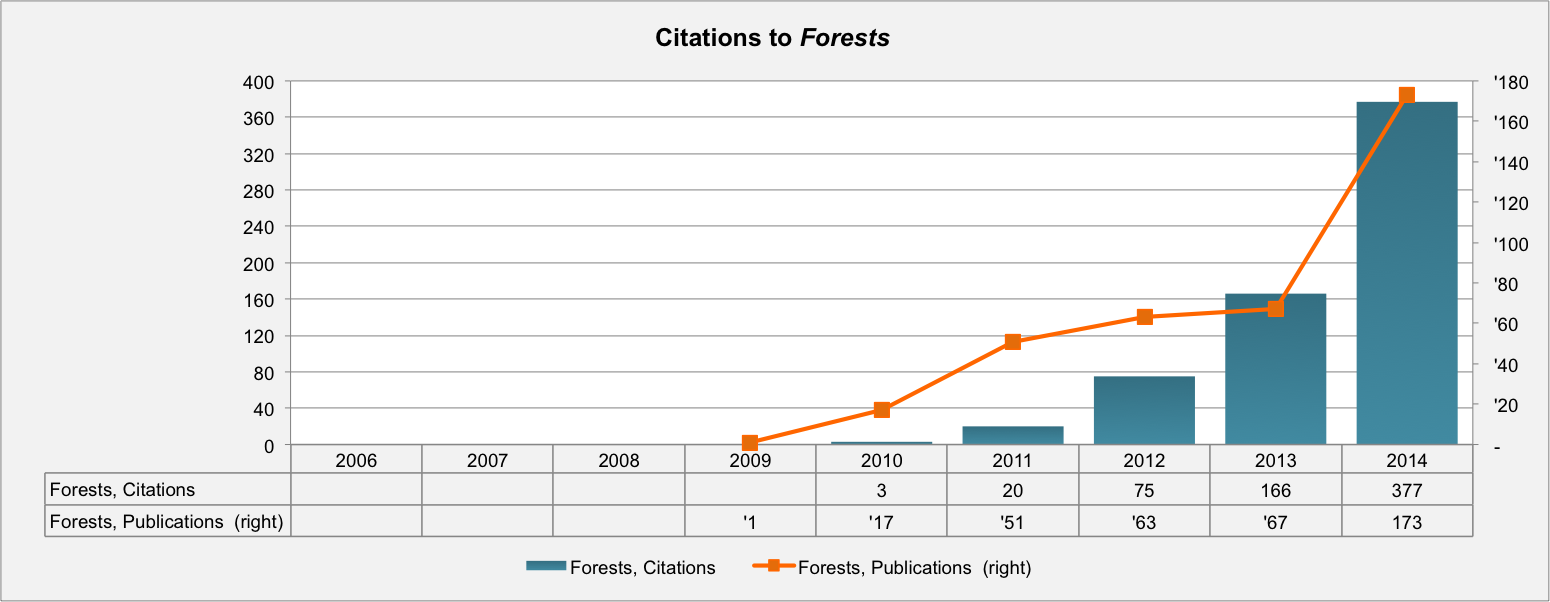
21 February 2013
Forests (ISSN 1999-4907) Accepted for Coverage in the Science Citation Index Expanded (SCIE)
We are pleased to announce that Forests has been accepted for indexing in the Science Citation Index Expanded (SCIE) / Web of Science, the leading indexing database in natural sciences.
This means that the research you publish with Forests is now more visible than ever. Forests is an international and cross-disciplinary scholarly journal of forestry and forest ecology. Covered subjects include forest engineering, forest science and forest technology, sustainable development of forests, woodlands and trees, but also forest entomology and pathology, and forest management and economics.
Forests is also covered by CAB Abstracts, COMPENDEX, GeoBase, Scopus and a variety of other indexing databases and archives.




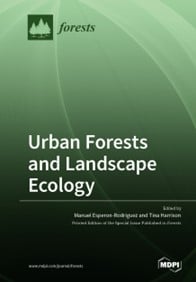
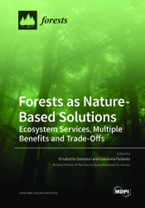
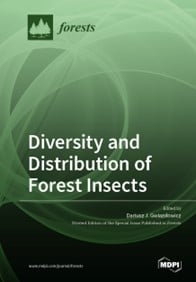
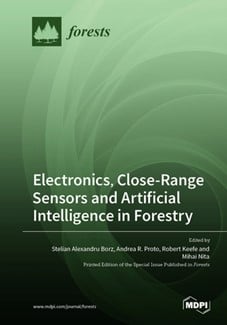
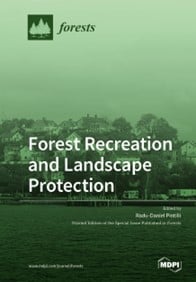
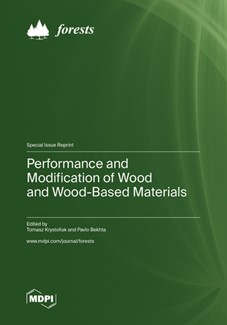
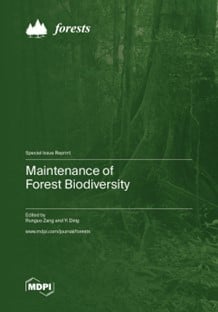
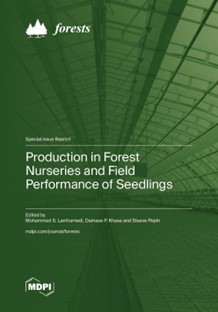
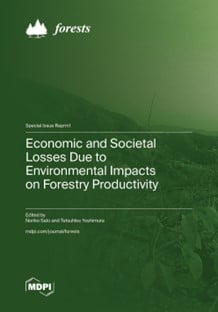
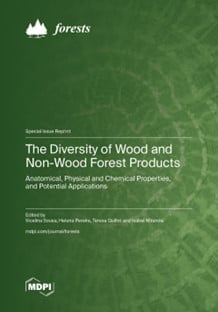




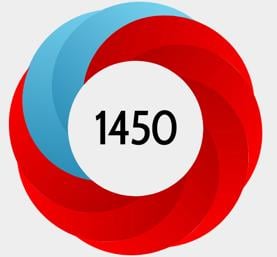





















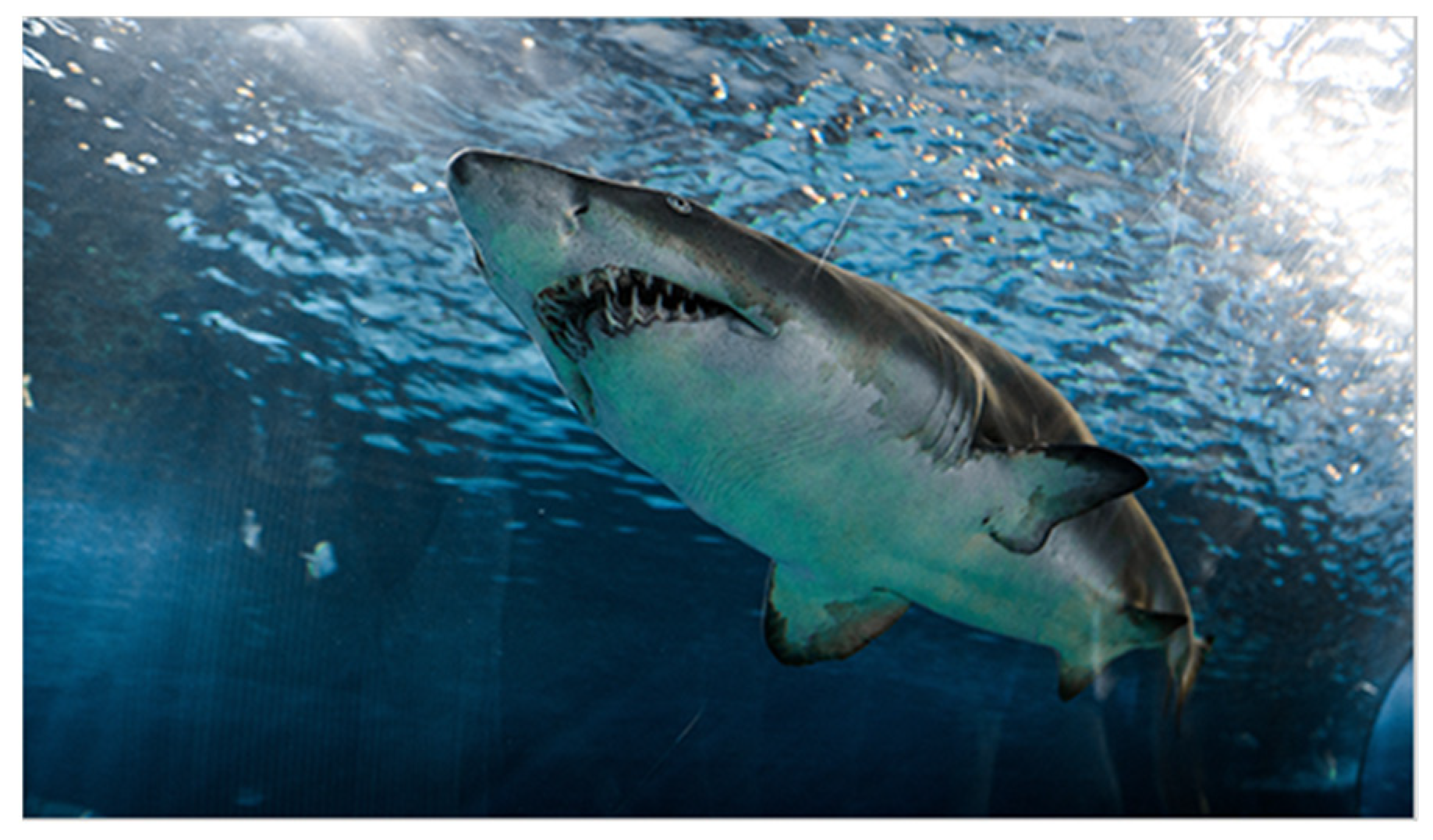
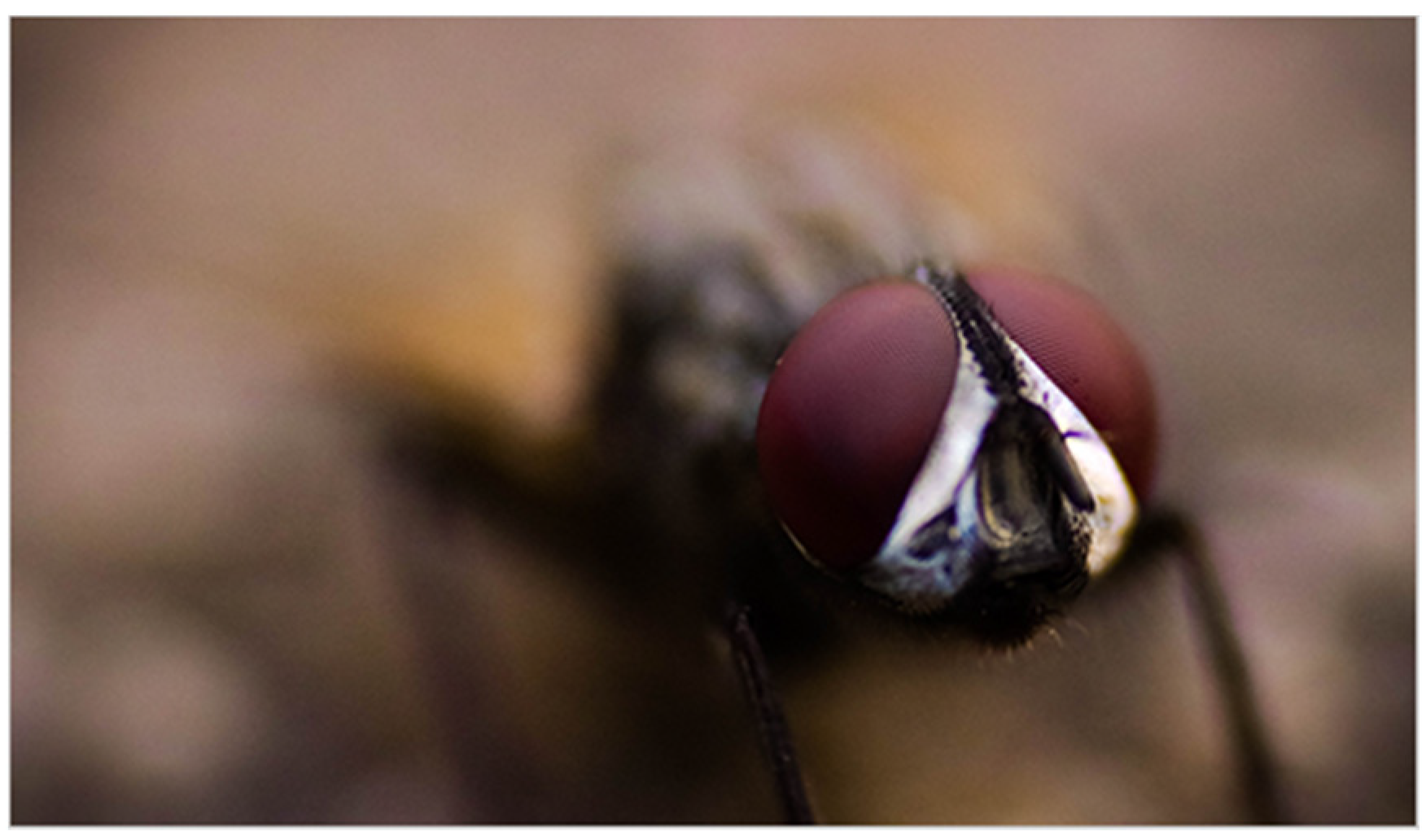
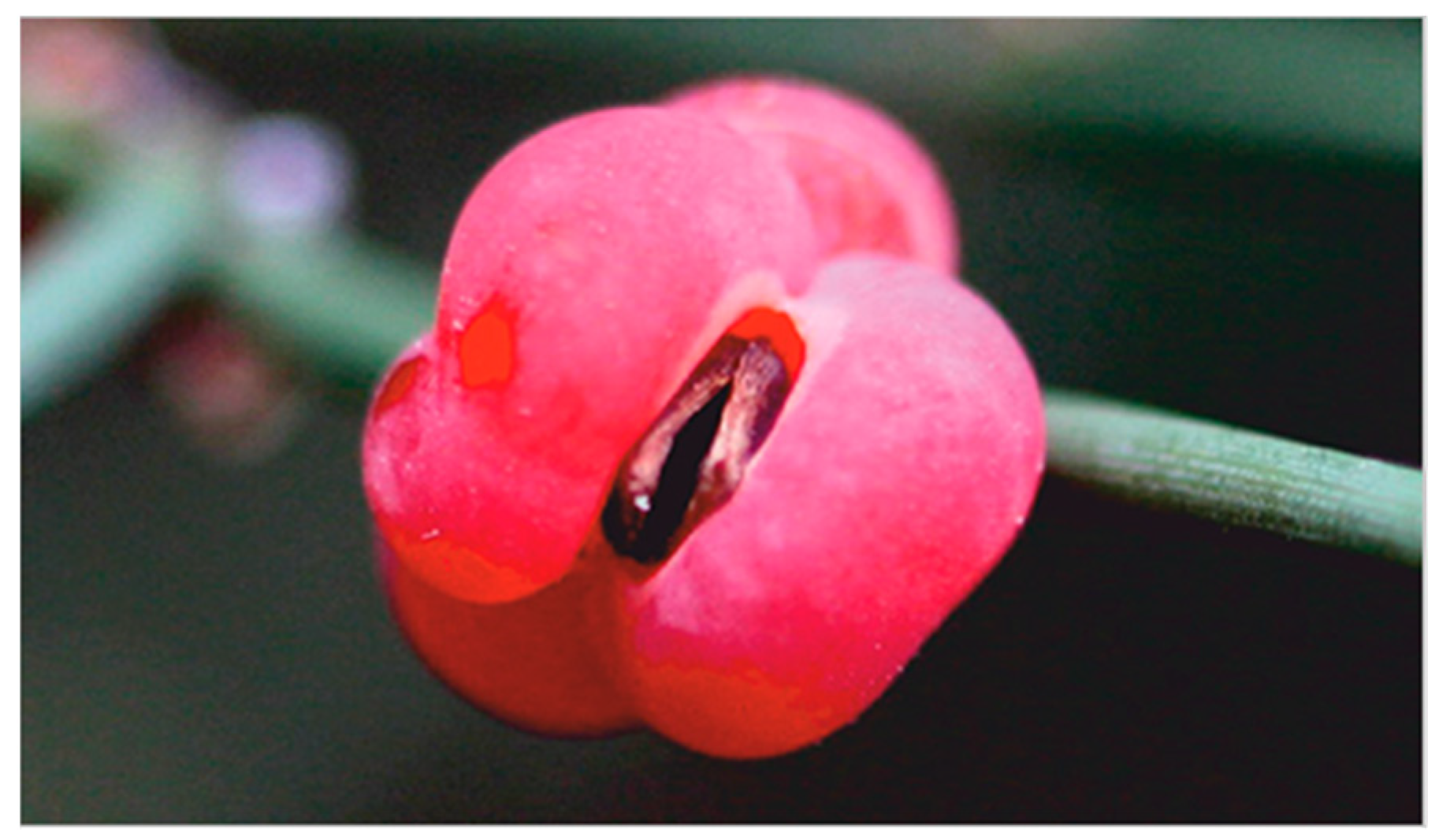
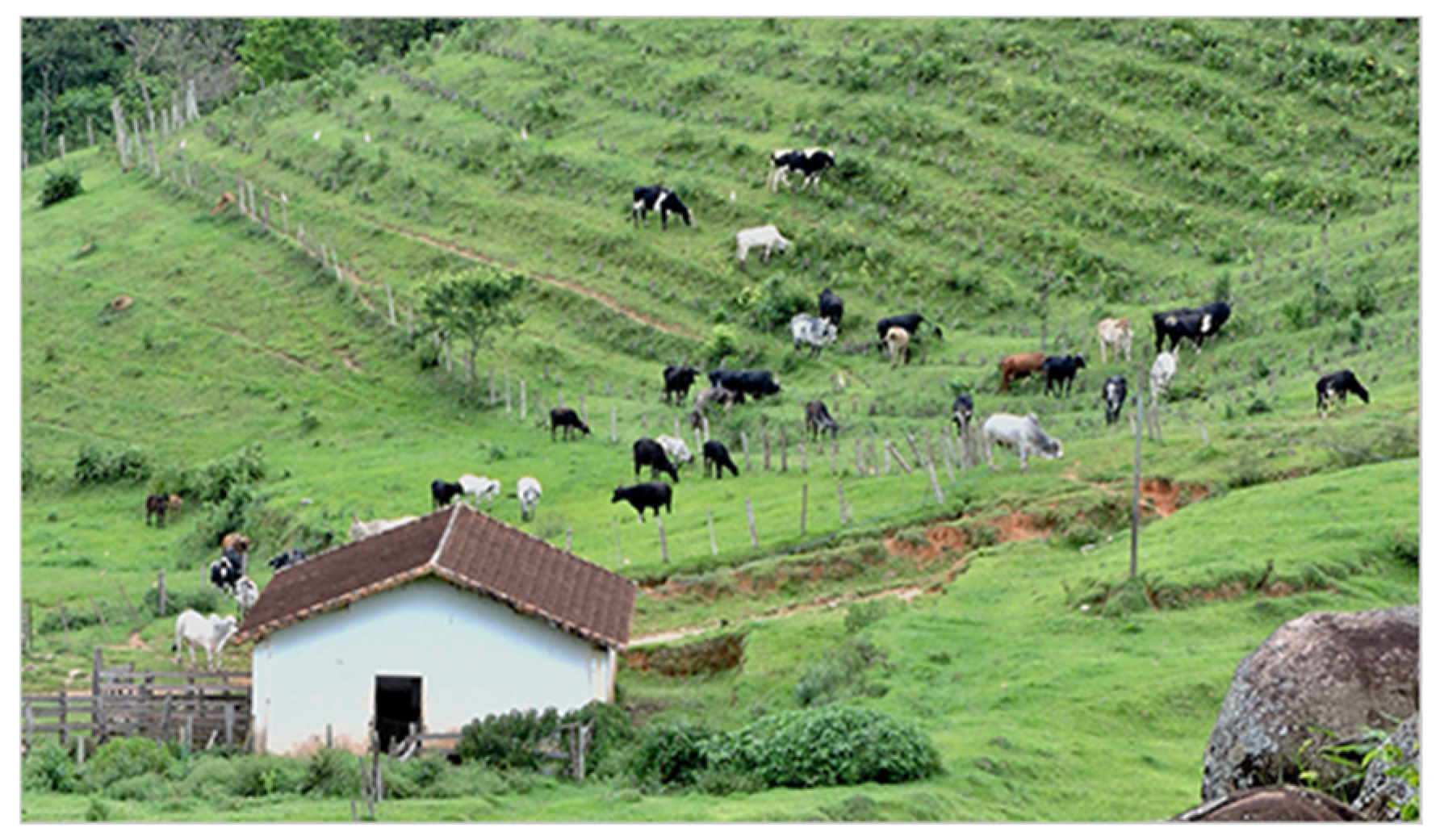
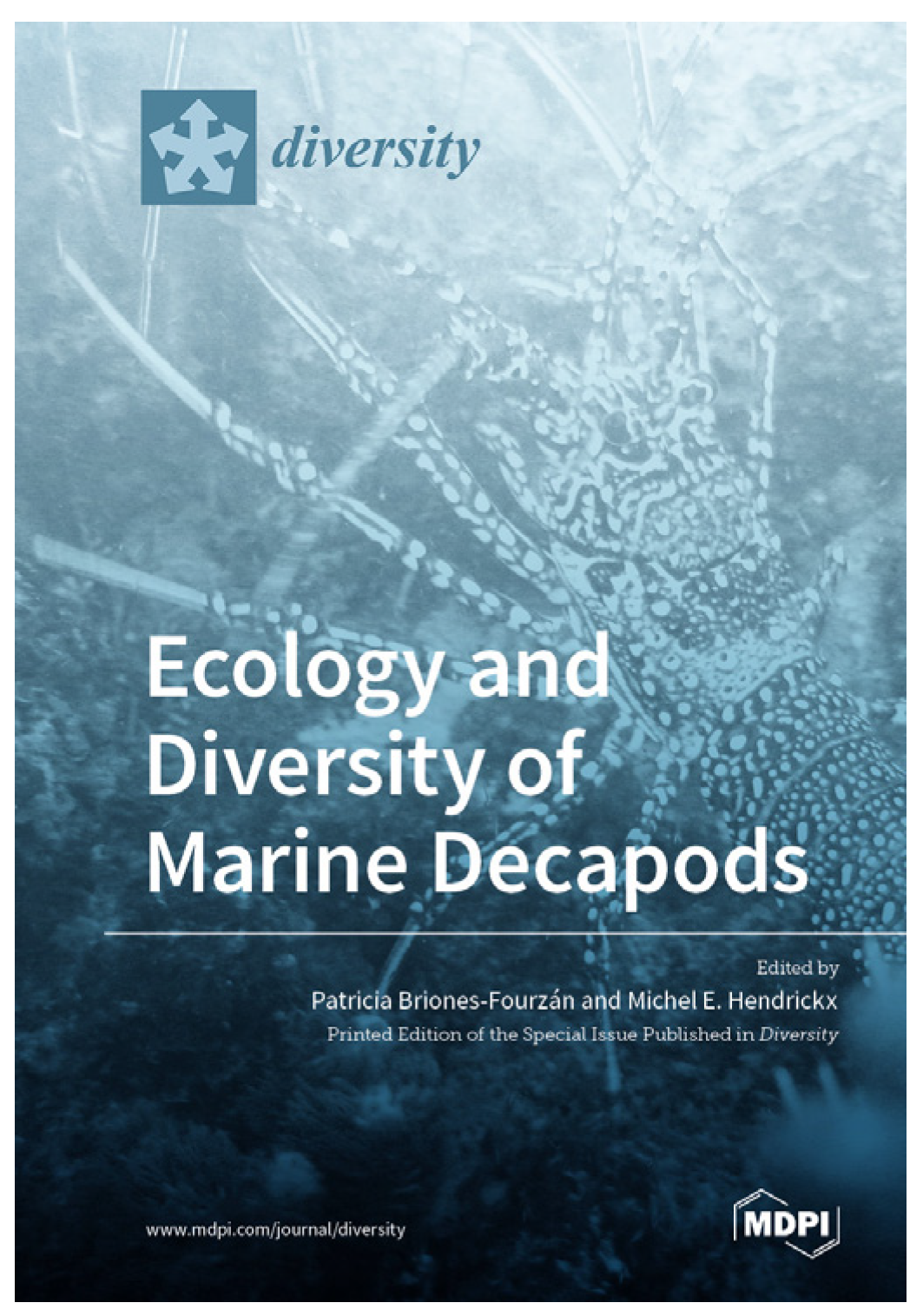
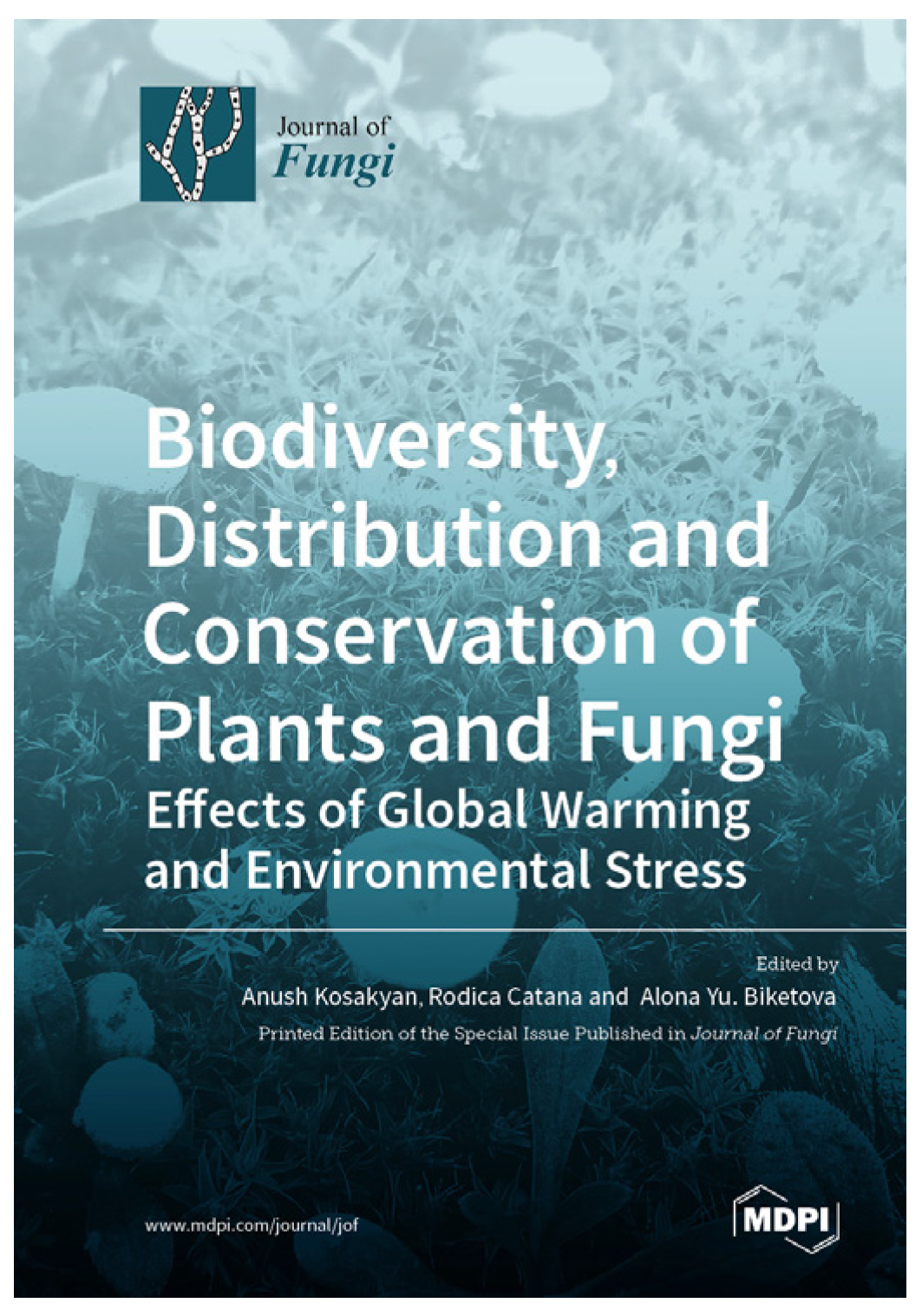
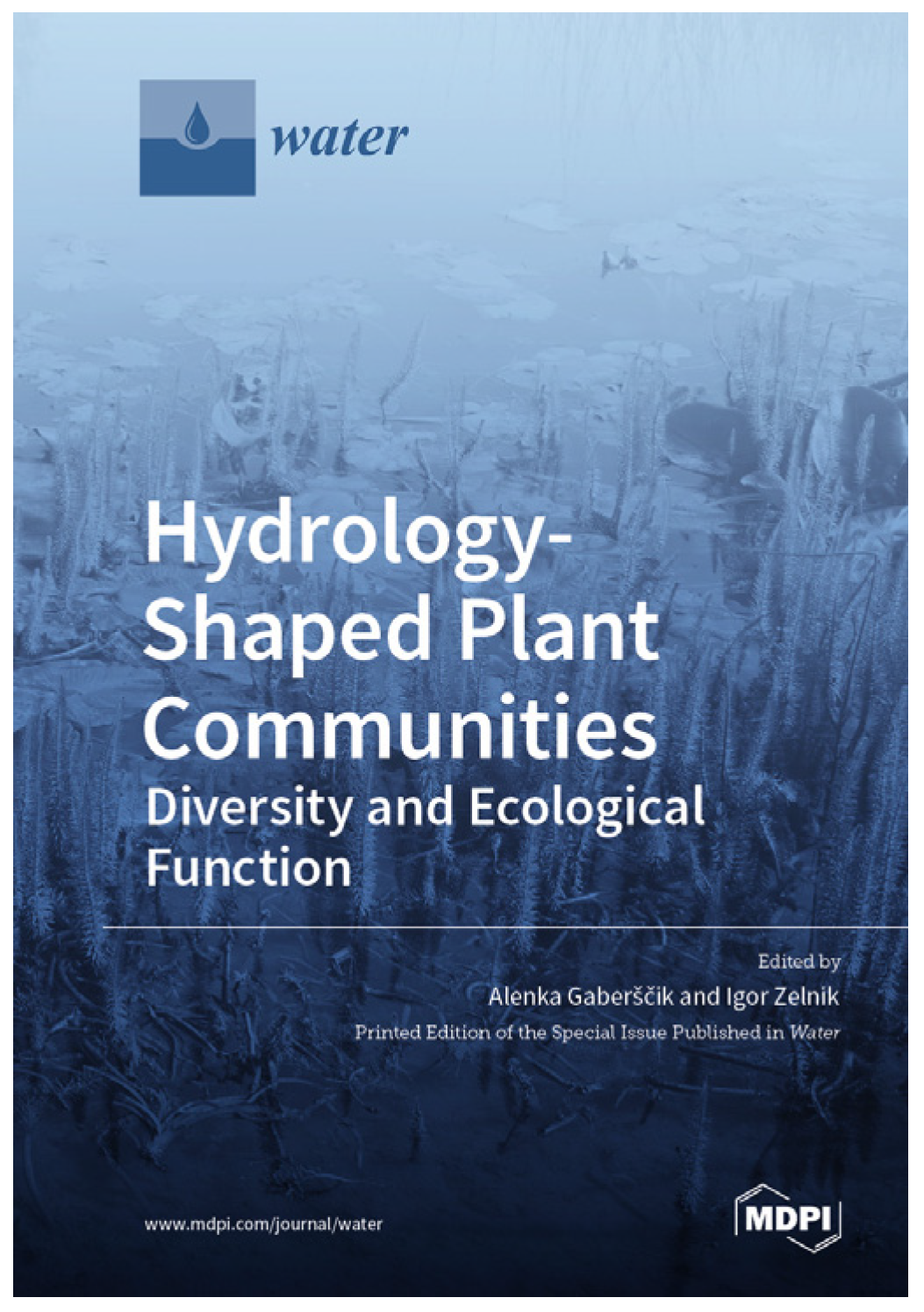
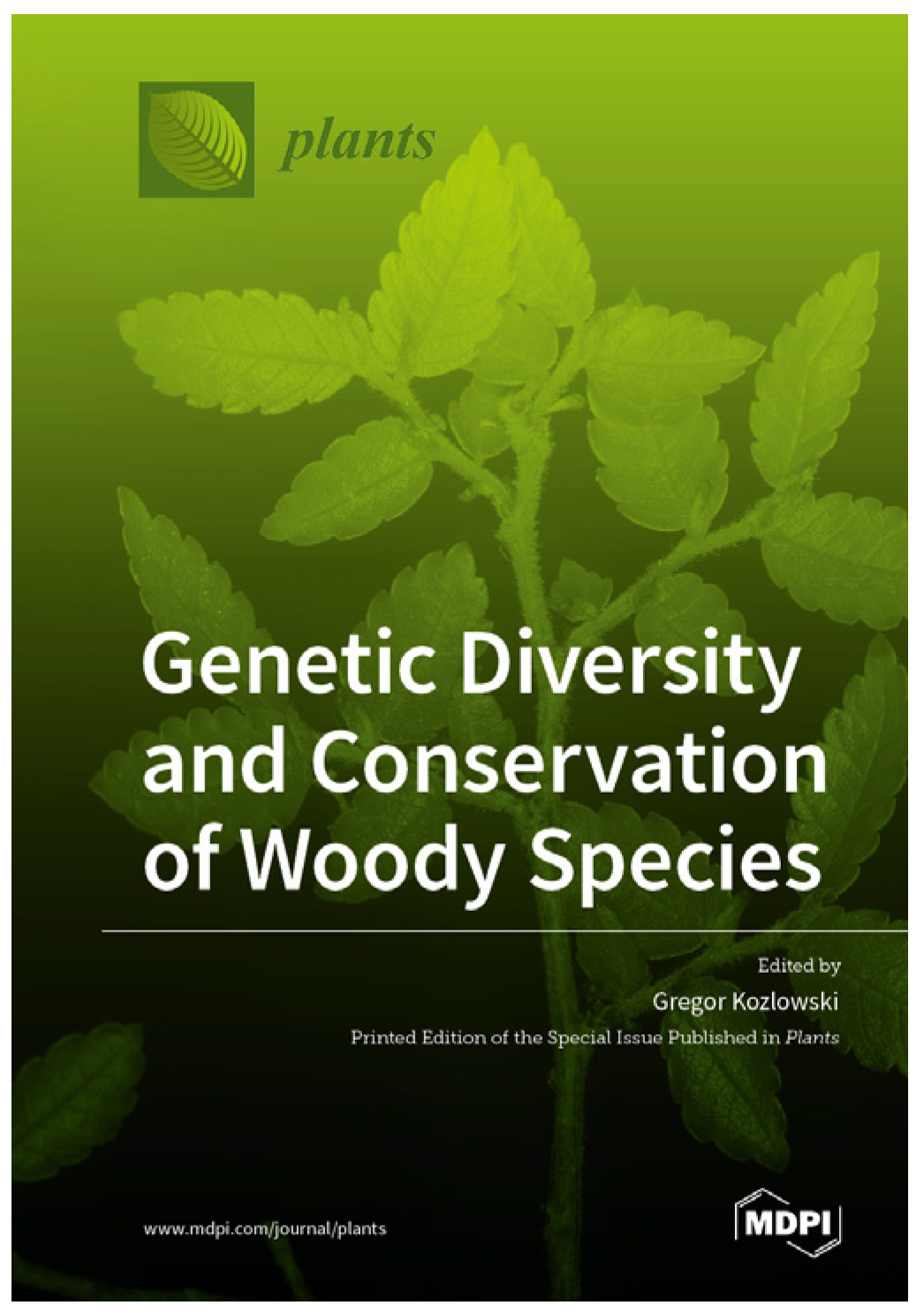



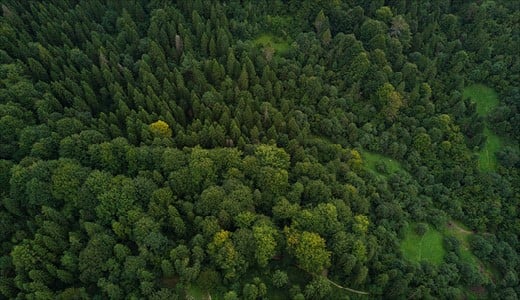
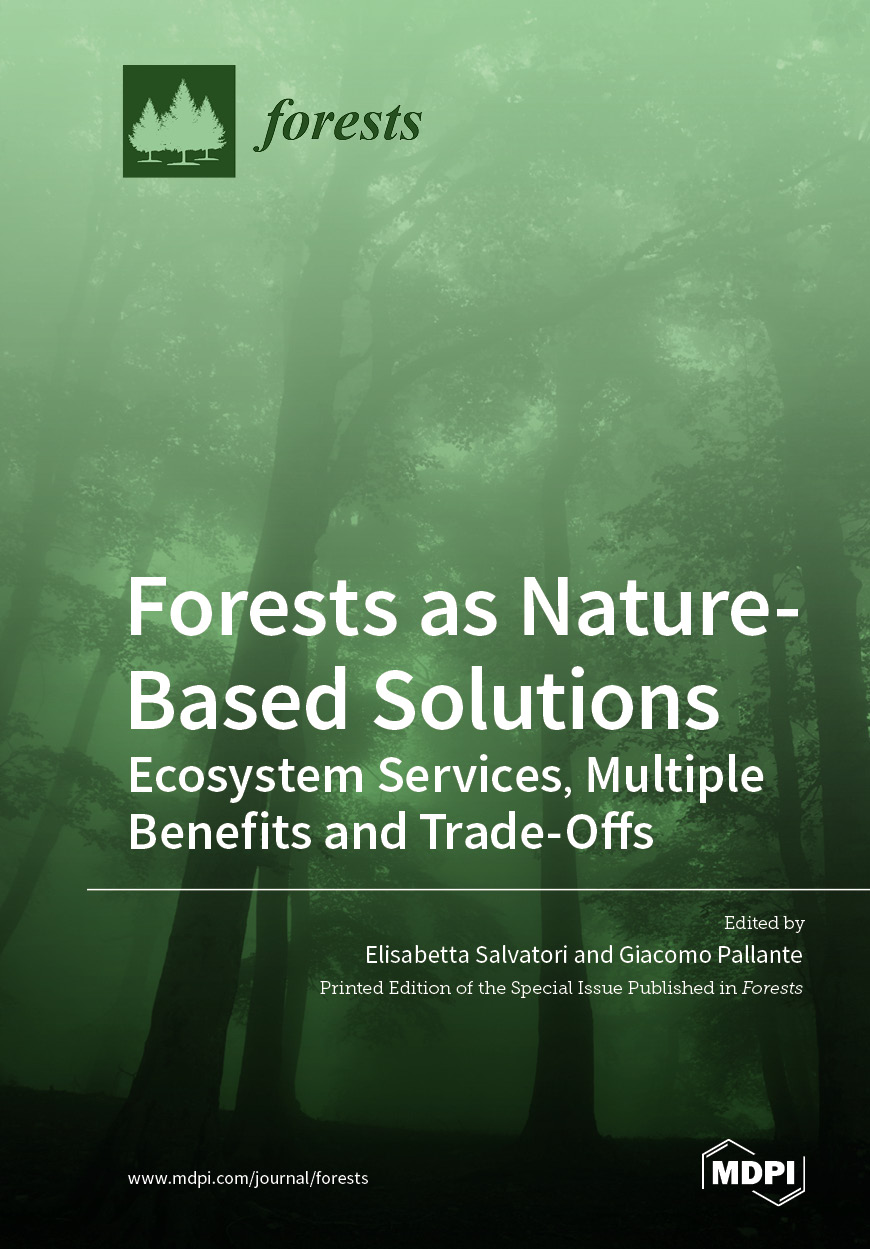
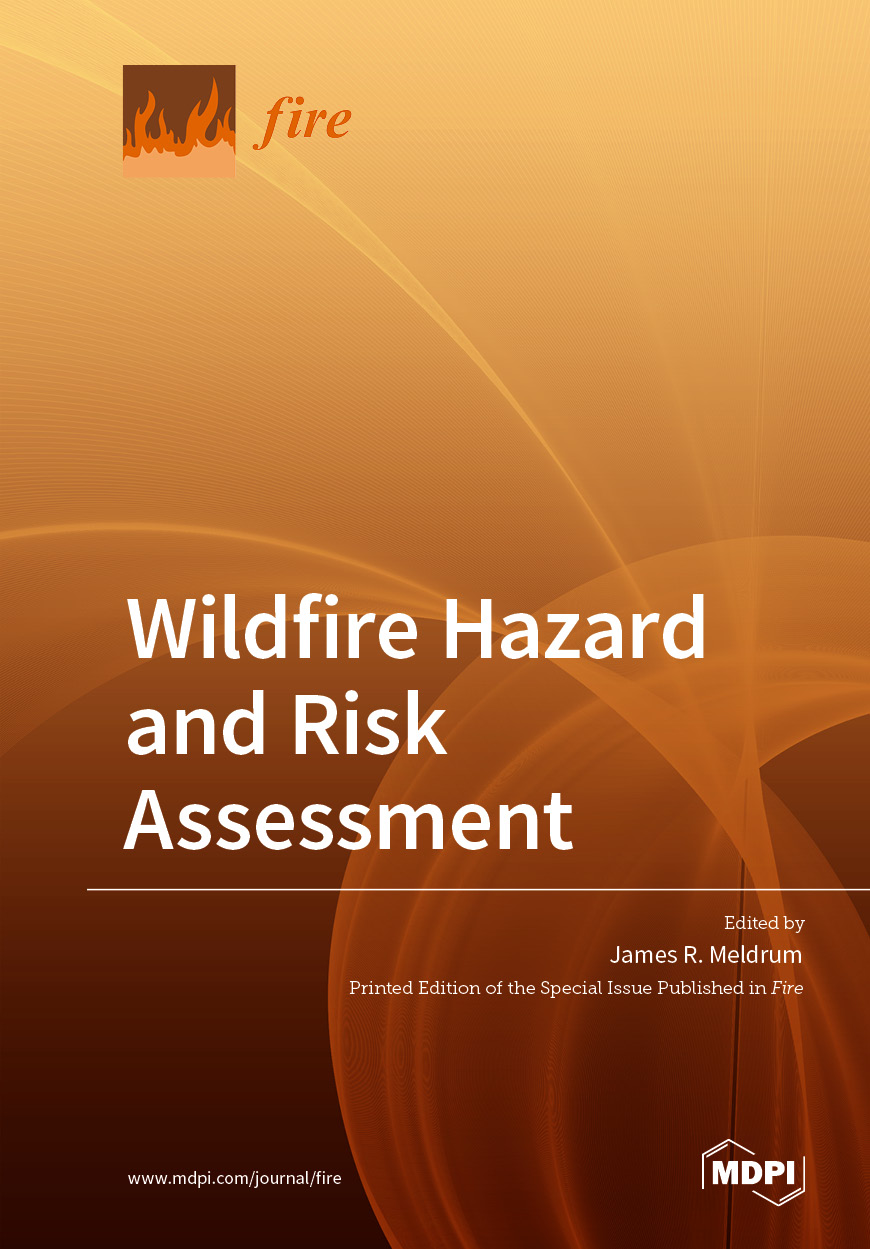
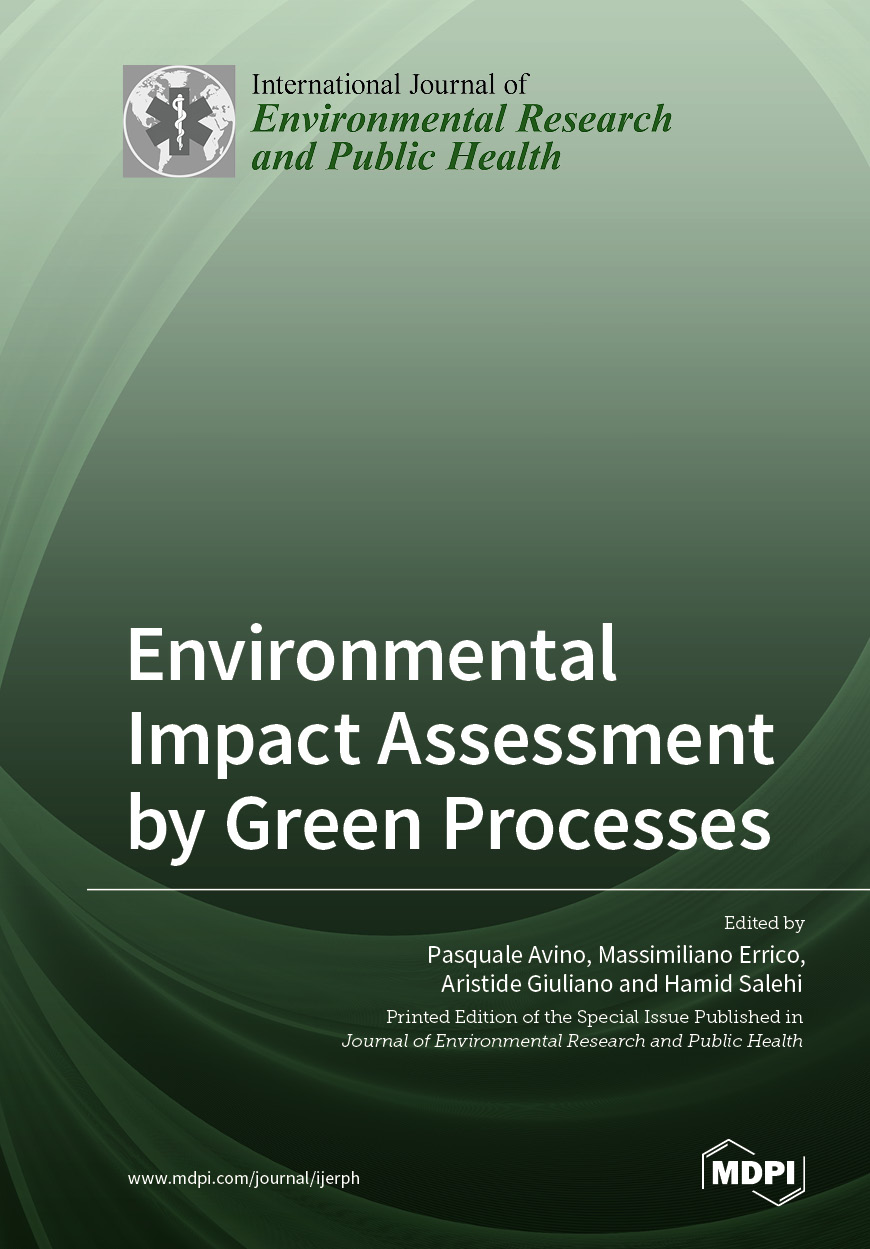
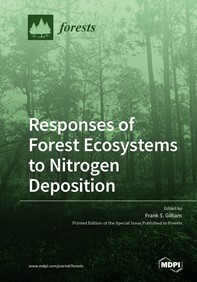
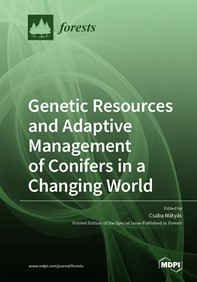
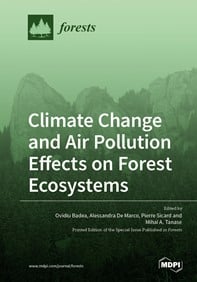
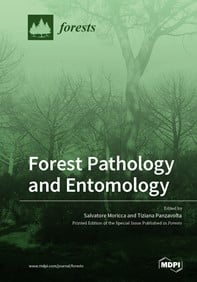
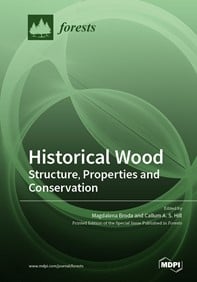
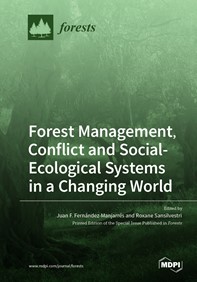
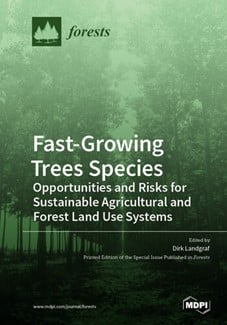
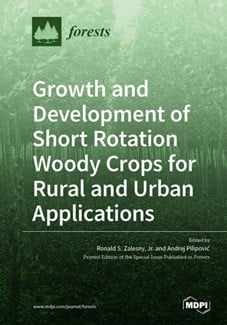
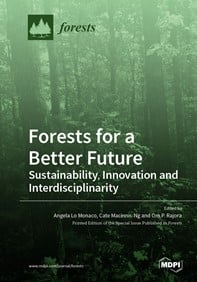
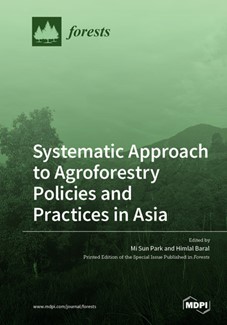
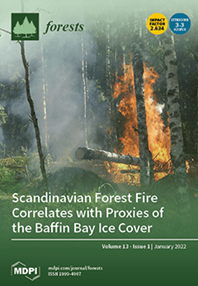
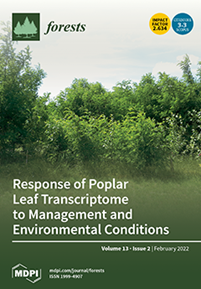
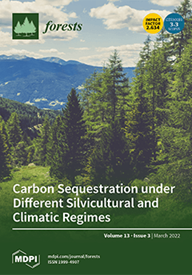
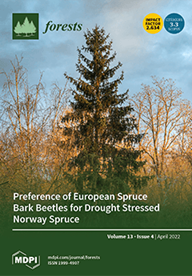
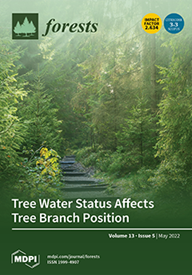
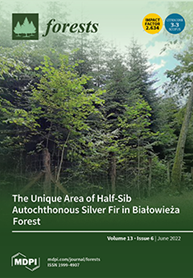
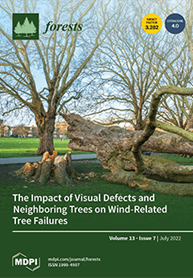
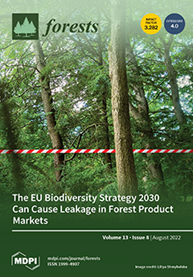
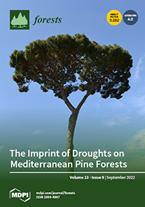
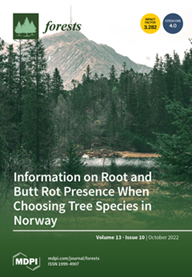
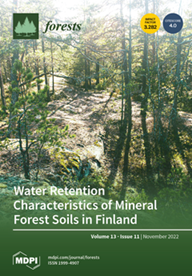
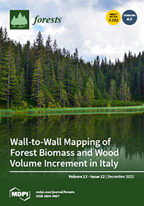


































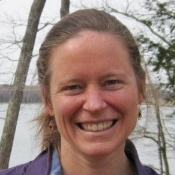

























































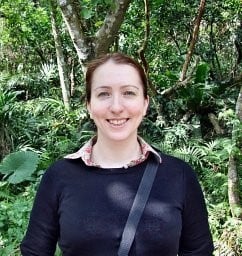









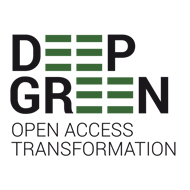








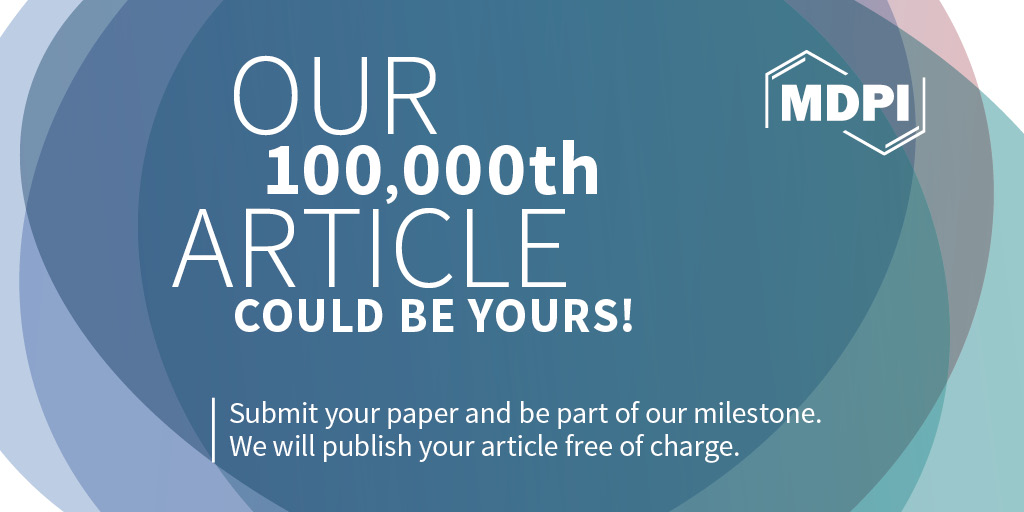



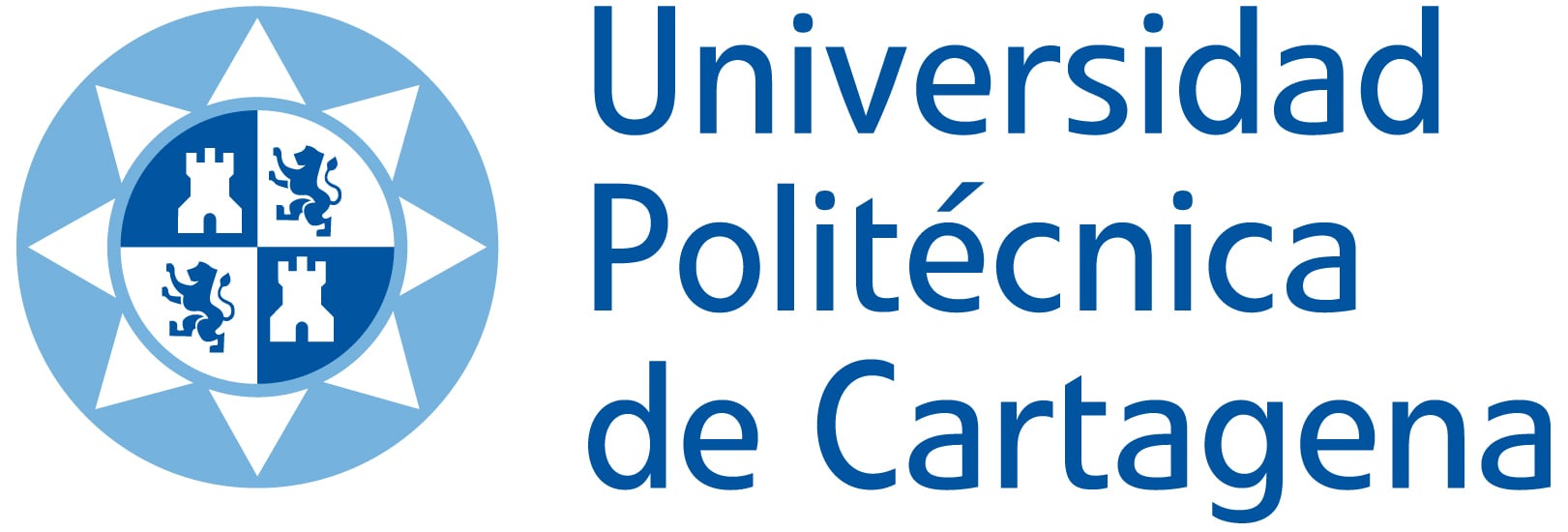
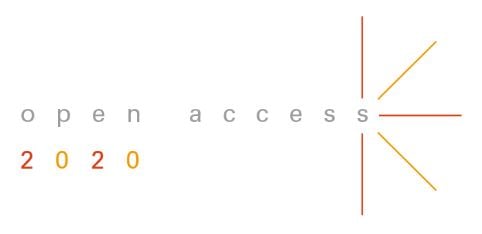



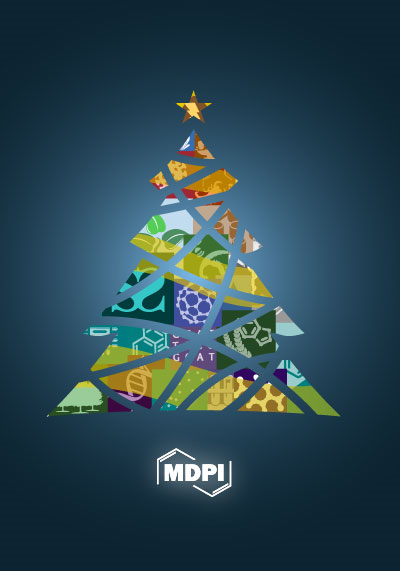





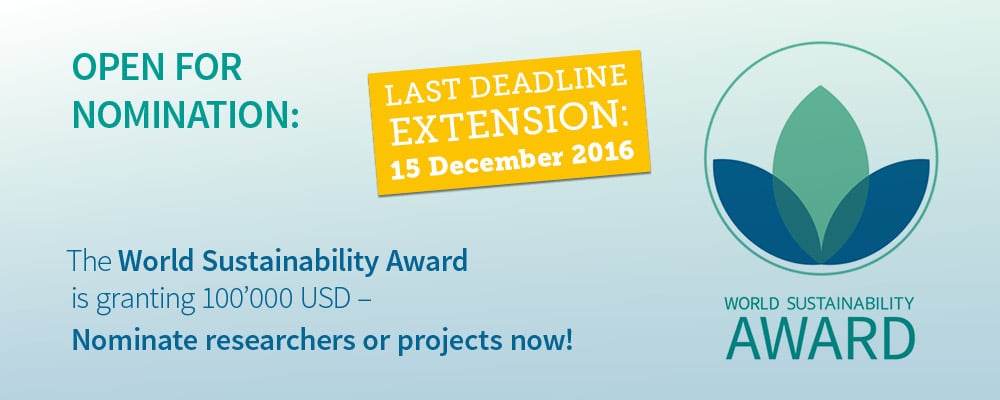




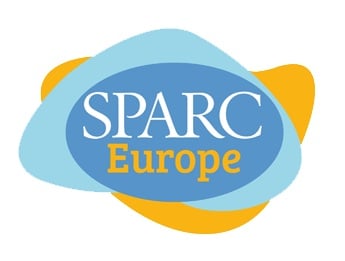
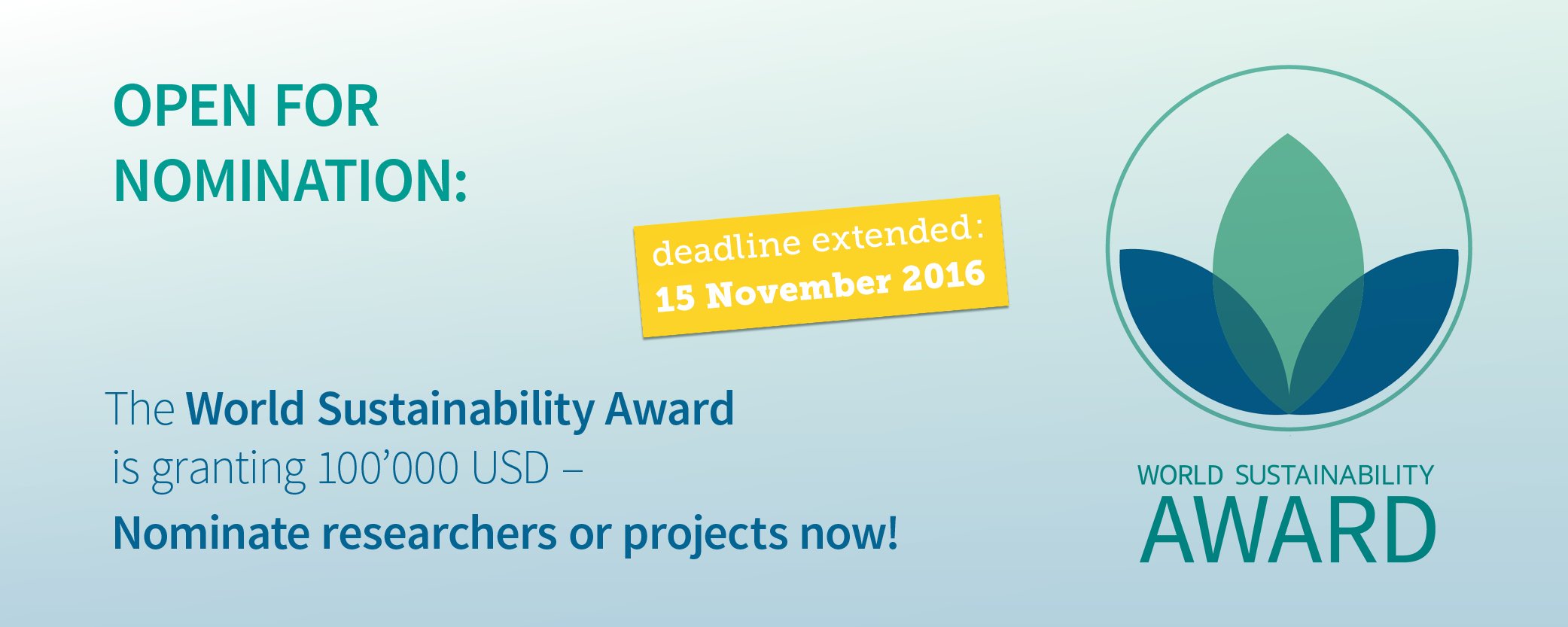 .
.